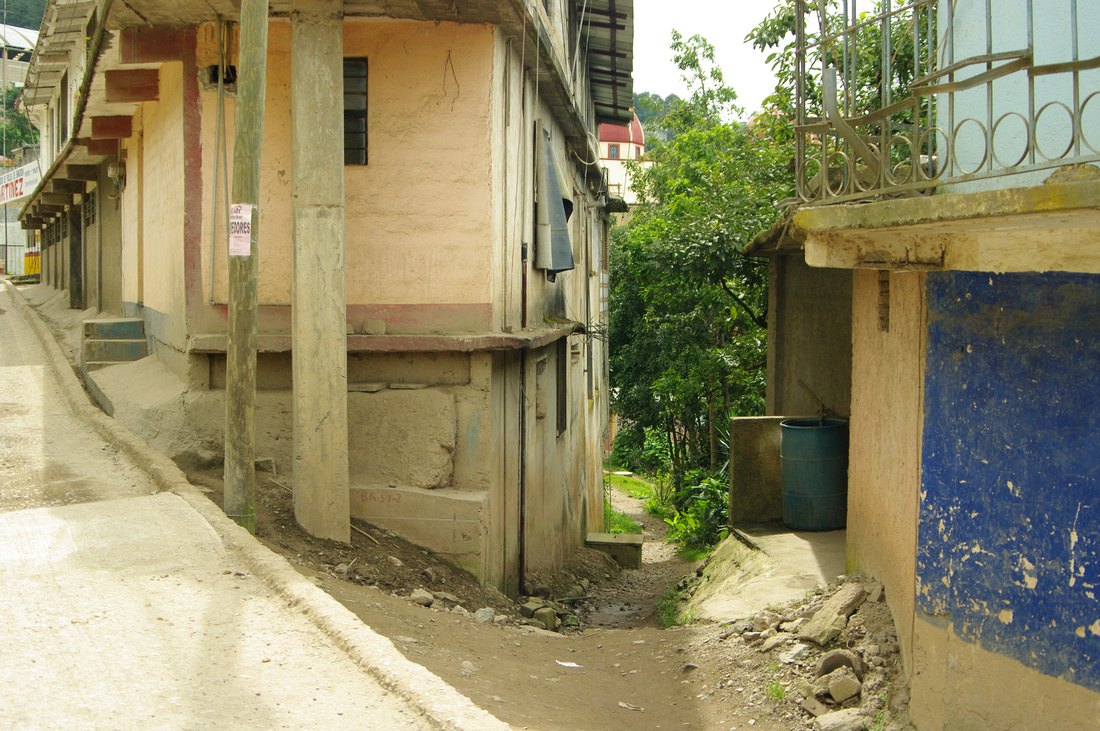Notes From Don Pedrillo
January - April 2015
We haven’t written a blog since November. Laziness or lack of motivation, I suppose, are to blame. We’re into the hot dry season. The temperature rose to 82 degrees in the house the other day. That’s the hottest it’s ever been. I can’t imagine what it’s like in some of these brick homes with cement roofs. I suspect the temperature must reach into the 100s in the afternoons. No wonder many folks spend their time outside in the shade. From morning to nine and about six to sunset are the comfortable times to work outside. Everyone is talking rain. We’re really looking forward to those overcast days when the temperature hovers in the low 70s. I’m always amazed when people tell me that this is their favorite time of year. They love the heat. 90° is uncomfortable for us. We went to a birthday party in Union Zapata the other day and were astonished to see a game of soccer being played. This was in the peak of the heat. Don’t know why they didn’t play their game in the morning. Could have been a tournament, I suppose. Anyway, we were shocked. The location of the comida was one the side of a hill where three separate areas had been cleared making three terraced areas. The steps between each area consisted of cement blocks stacked to make steps. I was sitting on the bottom area when I noticed three young boys about four years old playing. They were running around chasing each other. At that point I began to take in my surroundings. To say that it looked like an obstacle course would be an understatement. In fact I thought if the US Army used a similar location for training parents would be outraged. Anyway amongst the rocks, piles of cement, uneven ground, tree stumps, pieces of rebar sticking up from the ground, the unfinished outhouse that consisted of a huge hole, sharp pieces of tin roofing, and cooking fires these young boys were maneuvering around chasing each other. There were lots of people watching but no one seemed to doubt that the boys were smart enough to avoid the obstacles.
We bought four hens and a rooster. Fresh eggs every day! We are unable to consume them all so many are given away. Sitting on the porch and watching the birds scratch around has become part of our daily routine. They too run for shade during the peak of high temperature. Under my truck is their favorite location to get out of the sun. Pickings are scarce for them now. Not many insects. When we first got them, the yard was full of various morsels. They rely on ground corn to survive. When the rain arrives, they’ll get their fill of grasshoppers which are here in the thousands. The grasshoppers eat our tree leaves so it will be interesting to see how effective the chickens are in reducing damage. They have greatly reduced the ant population who also eat tree leaves. I had some leftover one by twelves that were used for cement forms, so I used them to make a coop. They have to be locked up at night or they’ll be eaten by the various animals that come down from the mountains at night. In the morning when their door is opened, they file out and immediately begin the search for insects. At night they file back in by themselves. They also return to the coop to lay their eggs. About a month after we got our hens, the neighbor’s rooster started coming over which we tolerated. Then he began leading our hens over to his yard. The hens didn’t return during the day so we were not getting any eggs. This went on for some time. I talked to my neighbor but he was unwilling to do anything. We even bought a rooster, but at that time Big Boy was no match for our neighbor’s rooster. The problem was solved when my neighbor’s rooster mysteriously died. Our chickens now stay in the yard and have accepted Big Boy as their leader.
Fortunately Big Boy can't read.
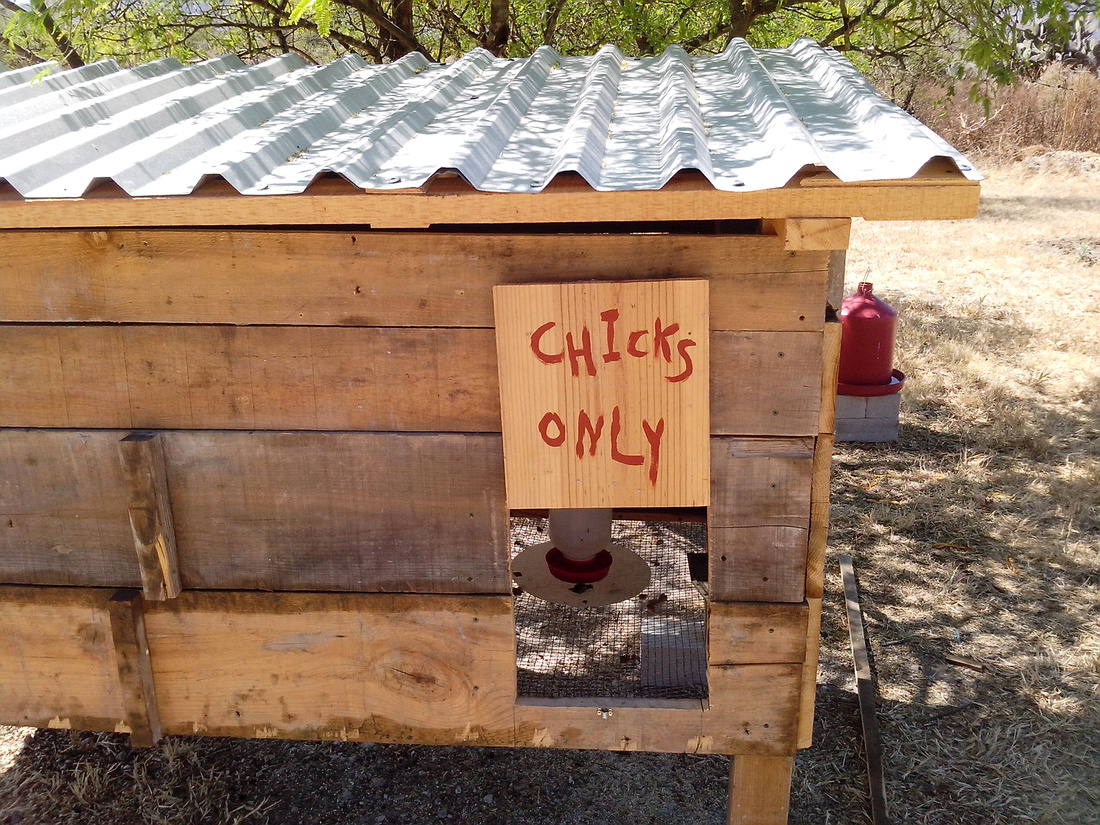

This little door makes it easy to collect eggs.
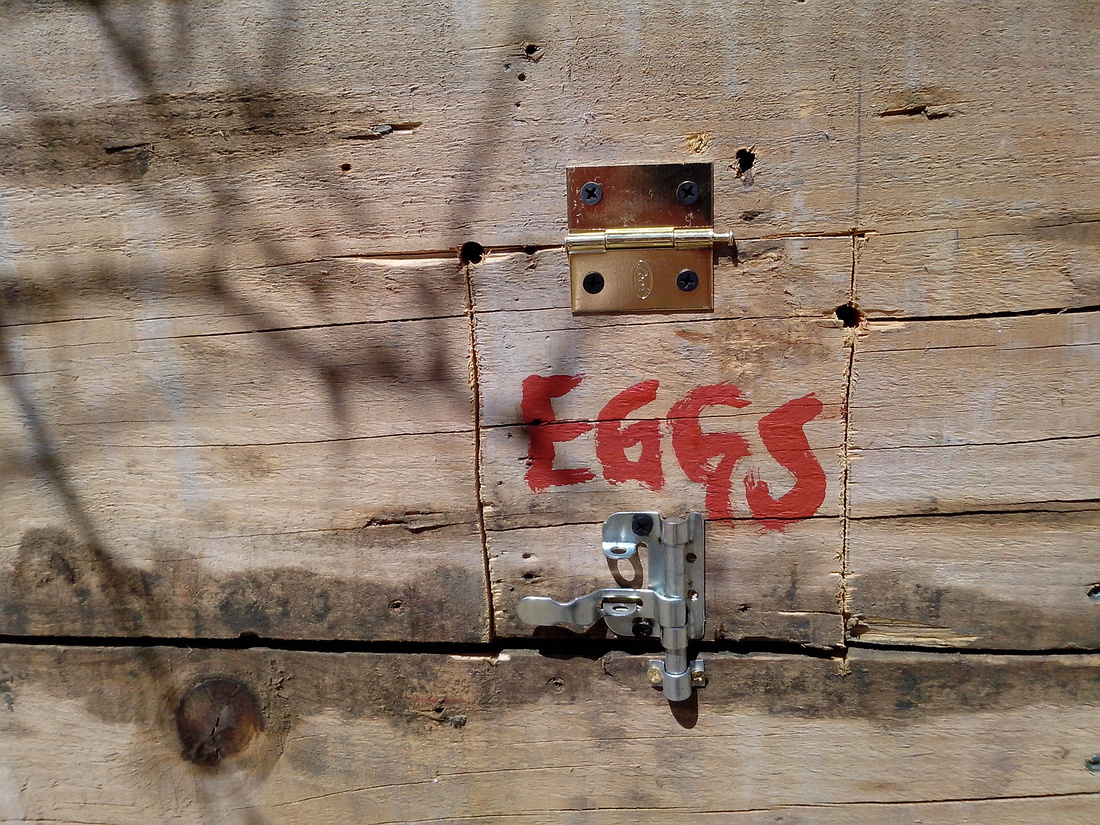

As food became scarce outside they now come into the patio to beg for something fresh.
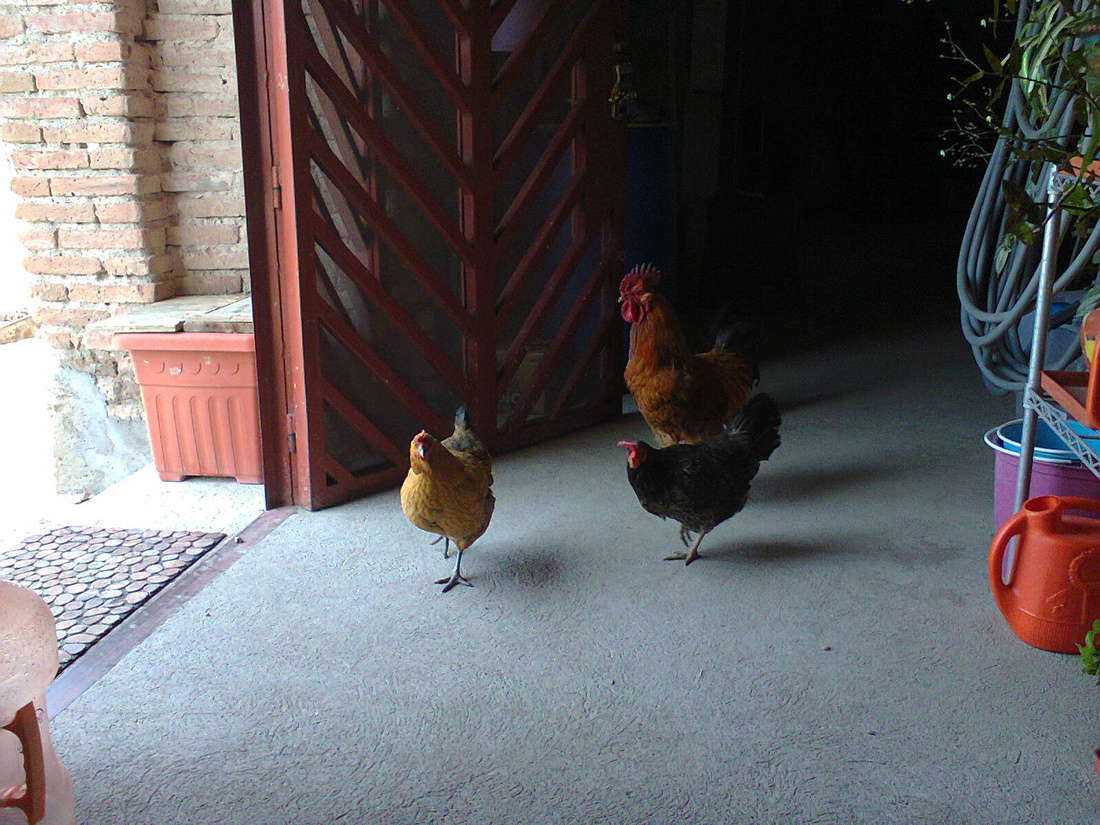

It's funny watching them file out in the morning.

Big Boy and Betty. They don't seem to mind American names!
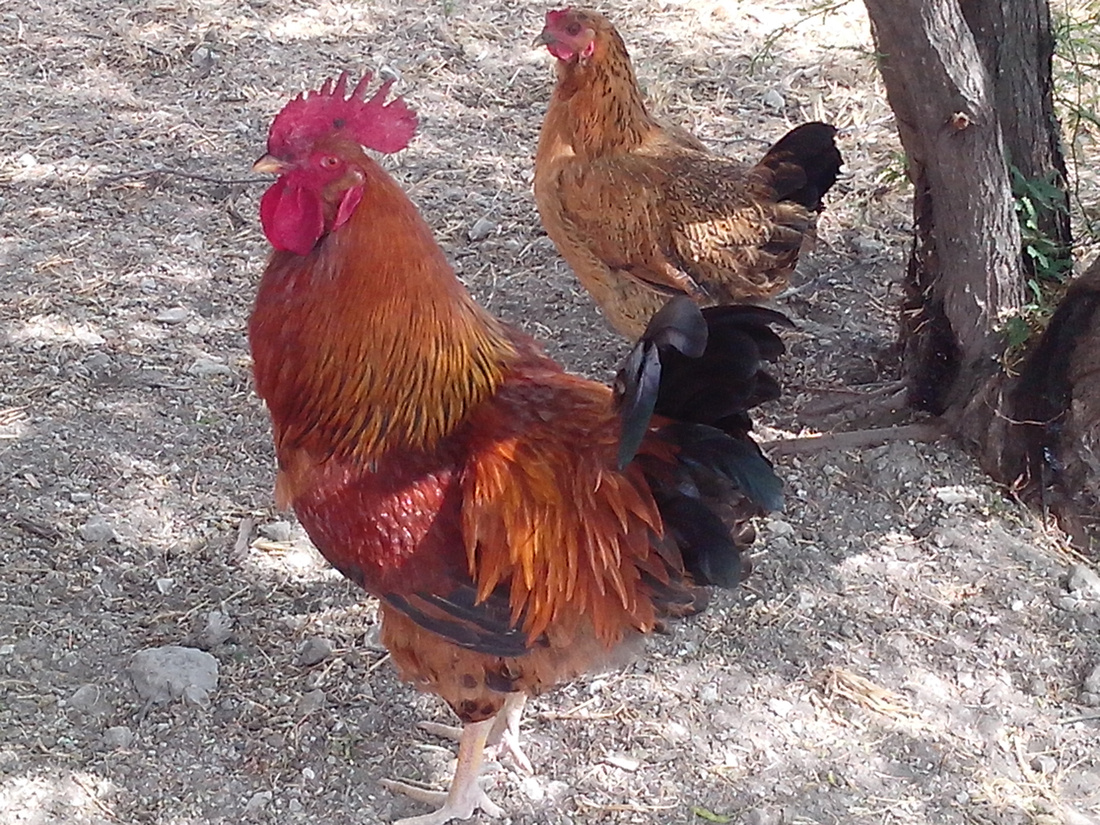

The eggs always vary in color.


The dogs are always looking for a handout.
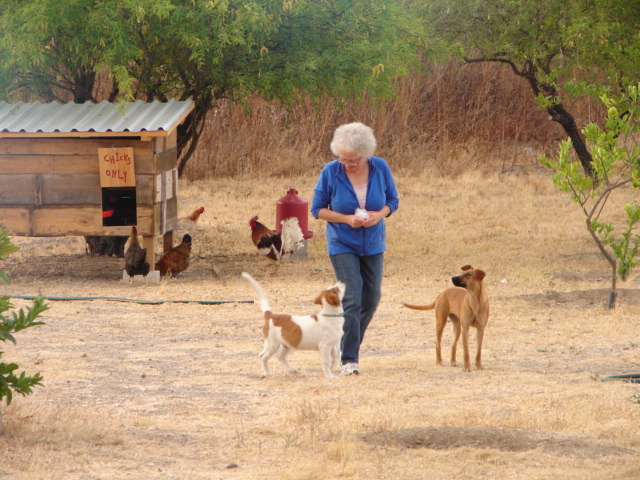

I caught Coby in the coop.
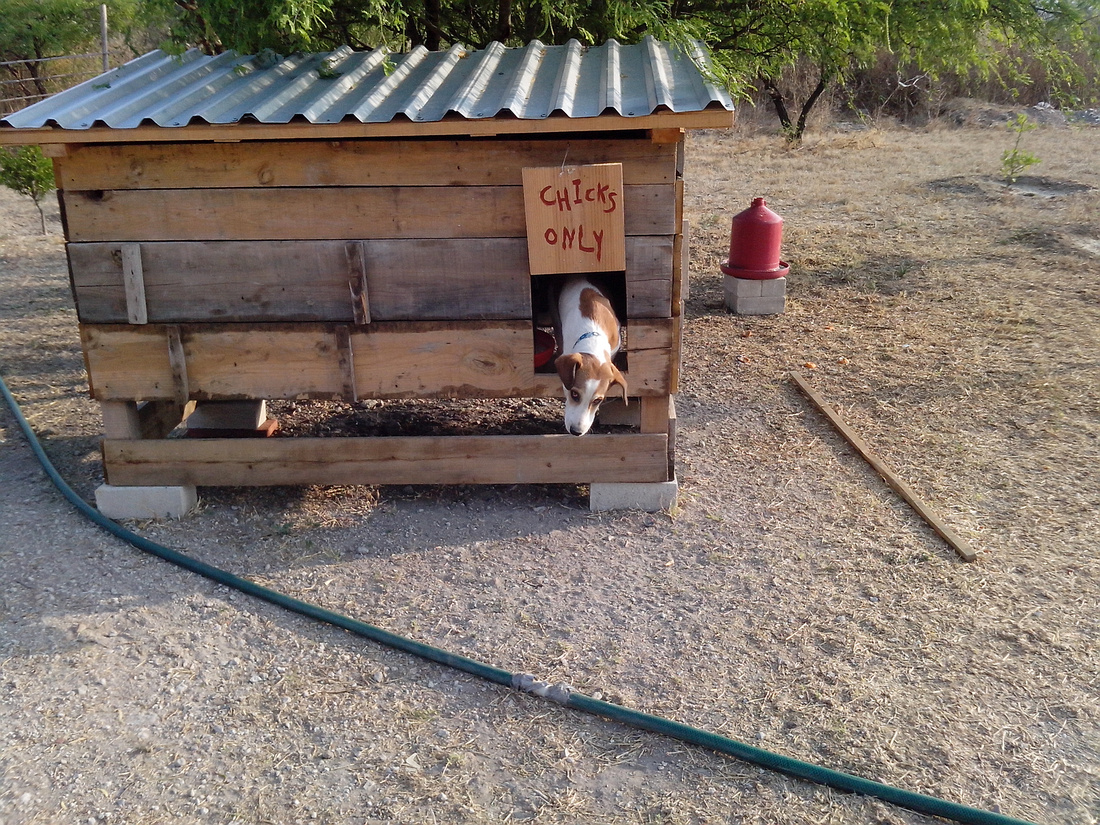

When I last measured, our well was holding at six meters of water. I expected less. We water fruit trees every other day and shade trees every fourth day. I installed some valves to make it a little easier to switch from watering outside to filling the tinaco inside for home use. We add a little chlorine when will fill the tinaco that’s why I added the screw on cap.
We continue to be appreciative for our internet. Because there are still so many things we do that are foreign to us, we are constantly turning to Google. It’s not an exaggeration to say that we sometimes Google particular subjects three or four times a day. I can’t imagine living here without Google. Solving problems would have been extremely difficult, if not impossible. Facebook has gotten a little frustrating. I still don’t read news but am sometimes drawn to spectacular political headlines that are regurgitated on Facebook. Ninety-nine percent of the time the headlines prove to be false and I feel foolish for being sucked in. We’ve solved the problem by unfollowing those who seem to revel in regurgitating negative political news without checking the validity of the story.
Our computer of nine years finally gave out so we bought a new one. Windows is in Spanish. We keep a dictionary next to the computer but many words are not listed. When a scary box pops up, (one of those are you sure you want to do that?) it’s a bit unnerving. Adding to the language change was the switch from XP to Windows 8.1. Fortunately all programs we install are in English. The Latin keyboard was worse to deal with than the Spanish operating system. We figured out how to configure the keyboard to US style and have added our old keyboard. Much better!!!
I am learning to play guitar with the ultimate goal of playing slide. There is so much information available. From the internet I’m learning scales, finding new chords, acquiring background tracks to play along with, learning tips from old time guitar players, learning how to set my amp for particular sounds, finding sheet music to learn familiar songs, and there is even a metronome on the internet to practice staying in time. This information is all the more important because I’ve yet to find anyone that plays anything except Latino music. Added to the disconnect of musical tastes is the Mexican formula for identifying notes and ultimately chords. In the US notes and chords are identified by the, a b c d e f g method. Here, “do ra me fa so la ti do” is used. Rapid chord changes are impossible. When I’m told to go to ra, for instance, I have to use fingers to count much like when I first learned the days of the week. There is no lack of musical talent here. With all the fiestas there is a plethora of groups competing to play at weddings, birthday parties, anniversaries, and town fiestas. I’ve probably mentioned it before, but it’s still interesting to see eighty year olds listening to the same music as fourteen year olds. It’s not always the case, but I think music here in general passes through more generations than in the States. Maybe Country music would be the exception.
Four months ago a friend brought us a two month old pup that had been abandoned. We named him Coby. He’s a mix with some hunting dog blood in him. He’s been a wonderful addition to our home. He is a bit goofy, but oh so innocent. We were able to house break him pretty quickly. He would eat all day if we allowed him. He loves chicken poop. He’ll literally walk behind the chickens waiting for them to drop a snack. It’s a bit dangerous and we’ve tried to change his behavior but with little results. The other day we caught him inside the chicken coop. He barely fits through the door. Each time he goes into the coop, he falls through the screening we use as a floor. Each time I repair it, I make it a little stronger. He tried to enter the coop again the other day, but he could only get his head and front paws in. Beth chased him out, so hopefully he’s learning that we don’t like it.
Lucky, the dog we inherited from our neighbor, is pregnant. We wanted to take her to the vet and have her fixed but she’d been abused so bad she won’t let us touch her. She too has a bad eye. She’s a great guard dog and always the first to bark when someone passes or comes to the house. She wags her tail and greets us when we return to the house after being gone but stops at letting us touch her. She’s had a couple of close calls with death mostly due to infections. The name Lucky fits her well.
Our one eyed Scooter is almost eleven. After being a house dog for so many years in Brownsville, he seems to love the freedom he has here. He still struggles with the plants that have spinas. Poor guy spends much of his day sleeping now but still likes to explore our property like he’s on guard duty. He doesn’t have much to do with the other dogs. He enjoys his time with us or alone. He’s a grouchy little guy but we’re sure going to miss him when he goes. Everyone that comes to the house is amazed by how well he communicates with us.
I saw a young Mexican boy in Tlacolula the other day wearing a German helmet. It cracked me up.
We had a little scare the other day. I was standing on the porch the other evening talking on the phone when up the road came four police vehicles and three motorcycles. I panicked a little thinking what have we done but was relieved when they passed by the house. It turns out that the police had stopped a fellow who’d stolen a car that he was using to transport drugs. He ran so the police were scouring the area. They eventually caught him.
The new prison down the road is almost completed. It won’t be long until prisoners from all over Mexico will be transferred here. It’s a maximum security prison. Our apprehension isn’t so much with escapees as with the possible migration of family members of the incarcerated.
Living amidst the poverty continues to weigh on us. It can be so overwhelming. As the dollar rises in power, the peso drops and makes life here more difficult for Mexicans. I was talking to a Walmart worker the other day. She makes fifteen pesos an hour. That’s almost an hour’s work to buy a Coke. Standard wage here is now about 150 to 200 pesos a day, roughly 10 to 15 dollars. Mexico for the most part lacks the safety nets and programs offered in the US so people must fend for themselves. Combined with the sorrow is an admiration we feel watching thousands of people eke out a living on their own. The ingenious ways they come up with to make a few pesos is humbling.
Beth continues to enjoy growing flowers and edibles. January and February were the best months to grow lettuce here and we had a great crop from one large planter. She also planted marigolds which flourished in the cool weather. Now with warmer temperatures and more sun, she has planted spinach, sunflowers, little onions, radishes, cilantro, garlic, and little cucumbers. If she can find the dill seeds or fresh dill, Beth would like to make some kosher dill pickles which we haven’t been able to purchase locally. Her roses and geraniums continue to do well as long as we water regularly. Our fruit trees (lime, mandarin, orange, apple, and avocados) have been advancing well with regular watering. We look forward to the additional growth that all our trees and plants will experience once the rainy season begins.
We went to Sam’s Club this past Tuesday. While in the store an alarm went off and all customers were escorted out due to an earthquake. They no sooner let us back in when there was another. Back outside we went. In all our years here and in various states in the US, we had never been told to leave a store due to an earthquake. We saw no visible damage and were allowed back in the store within minutes.
We’re going on three years here in the valley. One of the things that was initially missing was a network of providers. It’s scary not knowing which doctor to use, which auto mechanic to trust and so on. That’s different now. We’re pretty comfortable with those that we have chosen to make our purchases from. It’s added a fuller sense of security and of belonging. It’s one of those things you take for granted especially if you’ve lived in a location for an extended period of time.
We discovered something interesting today (May 6th): the rooster (Big Boy) and the hens (Betty, Goldie, Blackie, and Dixie) all love Bimbo Bread Integral (whole wheat), and both Scooter and Coby love Holanda Blackberry Cheesecake ice cream!! Hmmm, no wonder Coby now weighs 46 lbs. and little Scooter weighs 13 lbs.
Our first year here what appeared to be rat excrement began showing up in front of our gate every morning. Turns out it was a bat. I sprayed water up in the archway and the bat flew away. The next year they came back and I sprayed again. This year when the droppings appeared I decided to let him stay. Pretty soon though there was quite a bit of droppings. Then there were more. I finally sprayed water and thirteen bats flew out. I hated spraying this year but it really is a mess.
I don’t ever remember living anywhere where the smells were so distinct and powerful. When you walk through the market there is an incredible variety of different smells. Many of them are pleasant but some are not. I usually hold my breath when we walk by the dried fish and shrimp area. The drains are not usually sealed so there are often human waste odors. There are so many street venders making different types of food. I’m sure the smells of the vendors is an advertising technique. The fruits are sold ripe here so their smells linger. Roasting chickens, all types of tacos, barbacoa de chivo, all types of fresh breads, grilled beef, coffee being brewed, fresh pork rinds, fresh tortillas, flowers, and sometimes garbage. The central market isn’t just busy on Sundays. The market is full of people every day especially in the mornings.
The food reminds me of the lack of diversity here. Not much diversity in food, religion, Nationality, dress, or customs. Often the diversity that does exist is minimal. We have noticed the difference between the folks in Oaxaca City and the people here in the valley. People typically greet you in the towns here. They are much friendlier. I suppose it’s that way around the world. I think the lack of diversity often works in their favor.
Beth and I were discussing the difference between the roles of a homemaker here compared to in the States. Here in the valley especially in the small villages water has to be hauled maybe not far but it still has to be hauled. Clothes are washed by hand usually taking several hours to complete. Almost all food is prepared from scratch many times being cooked over a wood fire which takes time to make. Collecting firewood is an ongoing process for many families. Many women, aside from being homemakers, have found a way to make a few extra pesos: selling cups of jello, tortillas, bread, sewn items, objects made from palm leaves, having a little store in their house, raising animals, and countless other ways. Many women additionally help their husbands in the fields. The point being here in the valley the saying, a women’s work is never done truly applies.
A while back I tried to pay for groceries at Walmart. For some reason my debit card wouldn’t go through so I asked the cashier to hold on. She returned my card and I withdrew from a cash machine and paid the cashier. It wasn’t until a week later when we were making another purchase in Walmart that I realized the cashier hadn’t returned my driver’s license. I went to the customer service counter and to my relief they had my license. I’m afraid this wouldn’t have been the case in many stores. Buying in an open market (not yuppie farmer’s markets) opens your eyes to why the FDA was started. There are so many products at the market that we just won’t buy. Any kind of control is nonexistent. People do all kinds of things to make an extra peso at the expense of buyers. I am much more comfortable at Walmart. I often think of mistakes made by the FDA, but I’ll take a non-perfect organization over no organization any day. Walmart is clean; I don’t worry about pick-pockets; I pay the same as locals; most products are guaranteed; items are sealed; and prices are competitive.
Many of the women from small villages wear plastic shoes. There is no support. I wonder what the effect is on their legs. Many women walk with a small limp. As these women age, they also complain of problems with their knees, hips, back, and ankles. I can’t help but wonder if those plastic shoes are the cause. Men’s shoes are not much better. Most farmers wear huaraches which are still made with a tire for a sole. I had a pair for a while but gave them away. My feet killed me when I was on my feet for an extended time.
As I am writing this we are preparing for another trip to Guatemala to secure new permissions to be in Mexico. We are hoping this is our last trip. We have started the process of putting our property in our names which will aid us in obtaining immigration status. We’ll also be able to nationalize our truck and buy medical insurance.
Best wishes to friends and family. We hope to see some of you here.
Finally on this Mother’s Day, I’d like to thank my partner of over thirty-five years for sticking with me and helping me realize my dreams. Without her support and input, they would have been impossible. She’s been a good mother to our children, the foundation in our home, and continues to search for new adventures. She is strong, loving, and cares for others. I appreciate her patience and thoughtfulness. It’s been difficult at times having a partner that’s smarter than I am. I applaud her for her academic accomplishments. The move here to Mexico presented her with many new challenges which she met with her usual determination and fortitude. I’ve enjoyed watching her adapt to our country life in a foreign country. Happy Mother’s Day, Beth.
For a school project Jose had to interview a non-Mexican living in Mexico.
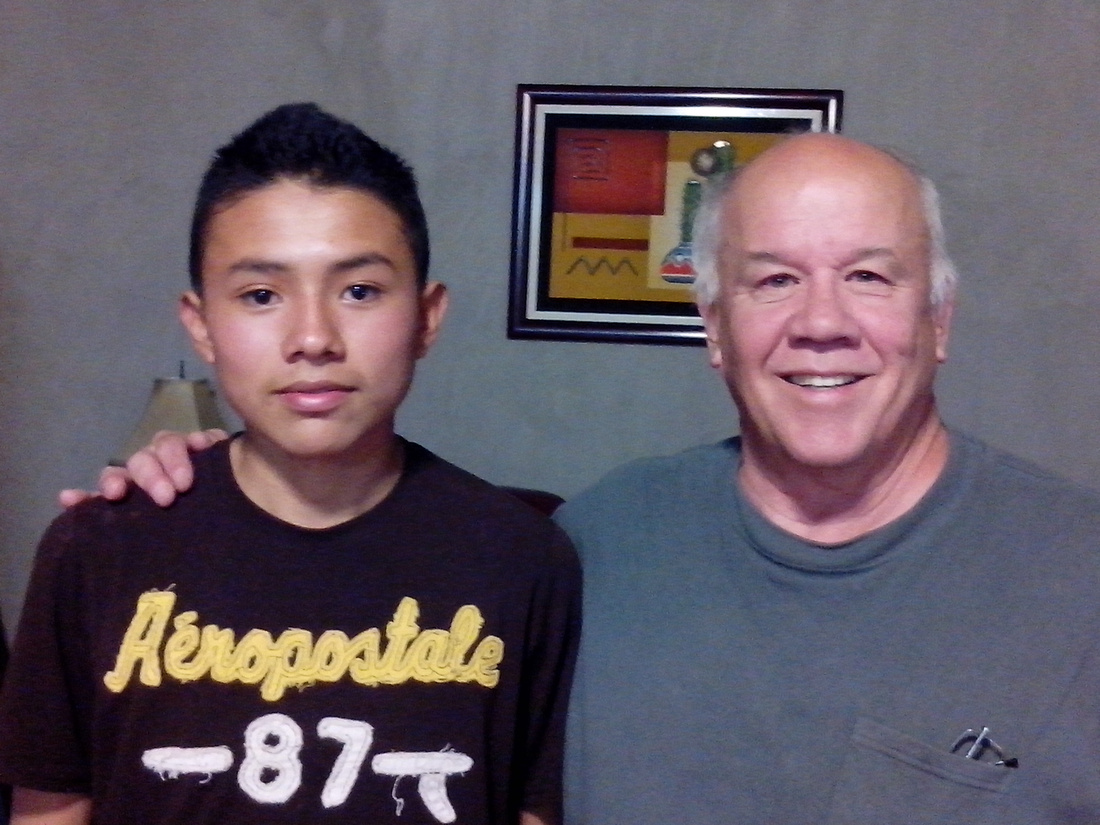

Our friend Abelardo opened a taco stand in Union Zapata. The tacos are great!
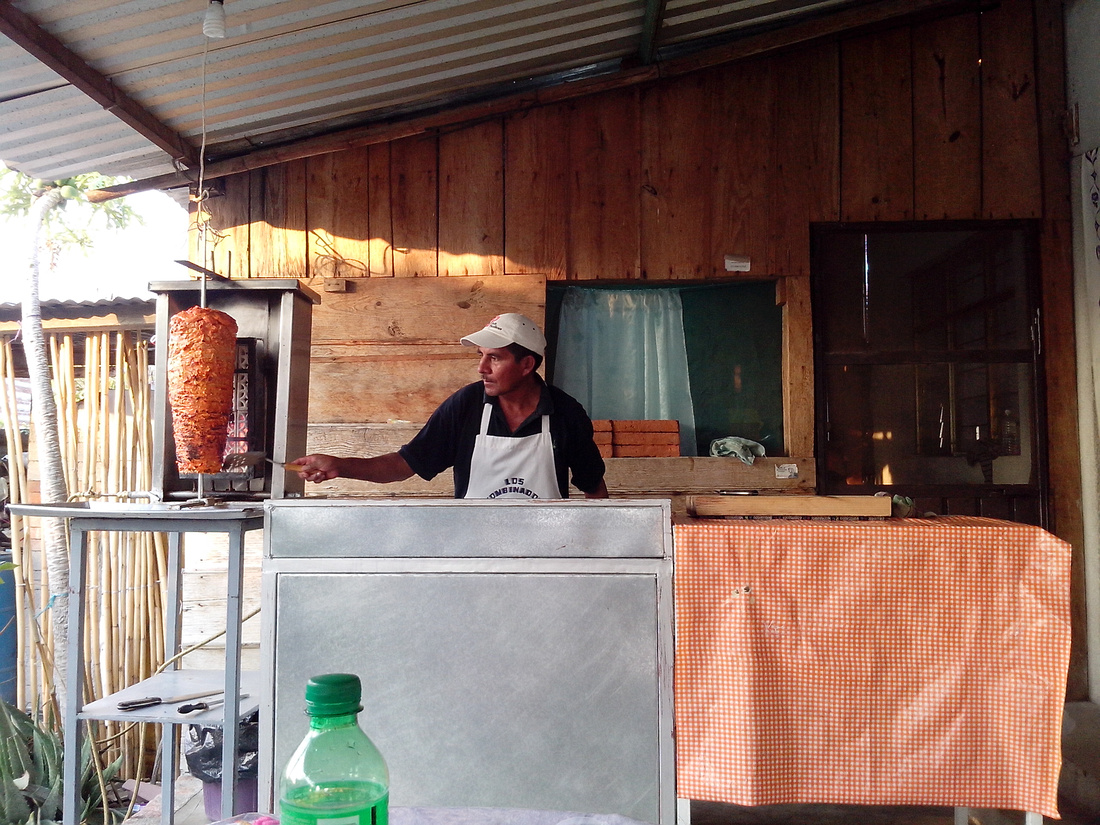

Taking the boys to the Vet. Coby has grown so much he no longer fits in the cab.
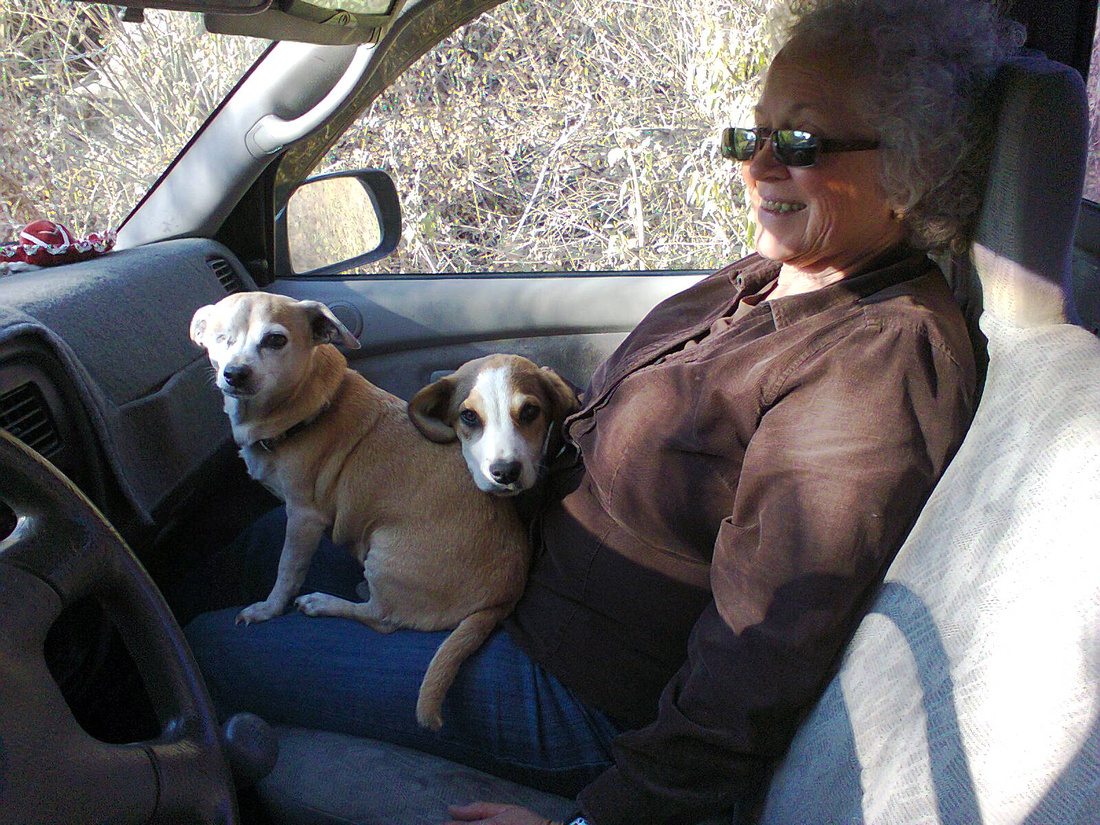

The post office in Tlacolula. No sign of automation.
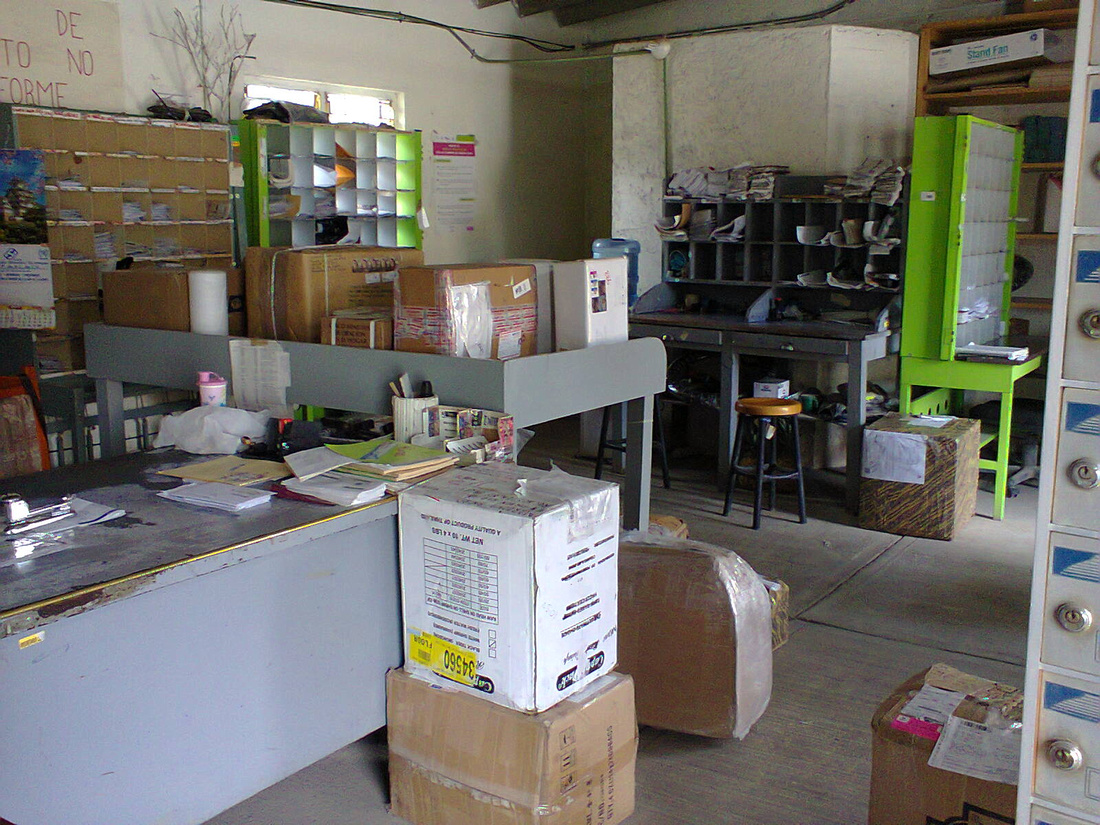

Yesenia in a Shakespeare play. She's a little beauty.
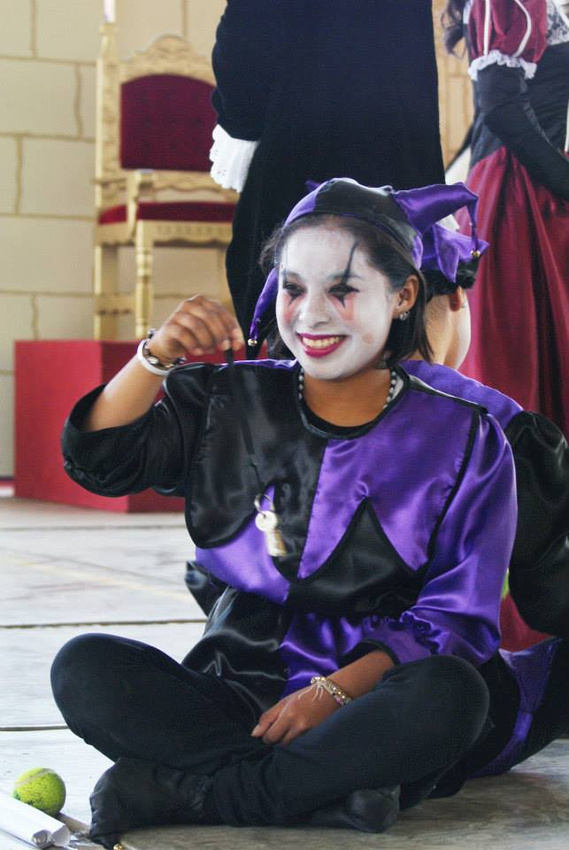

Felipe taking a break during a comida.
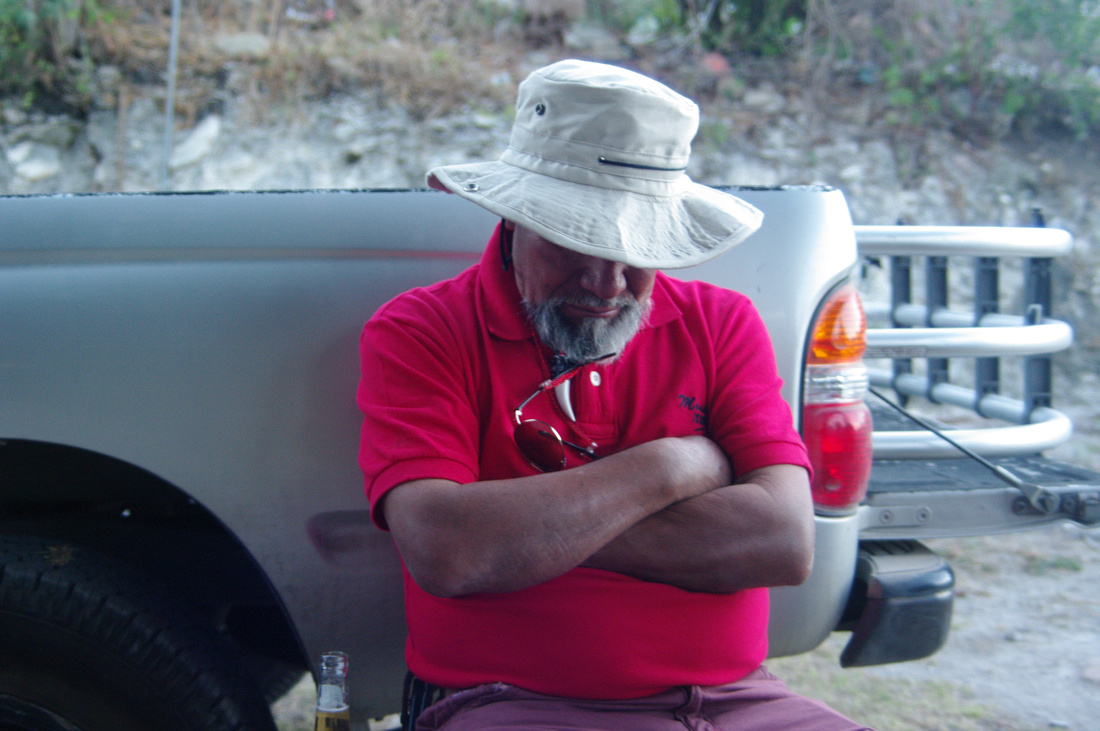

This is what it looks like when a group decides to block the highway. It's pretty unusual in Tlacolula.
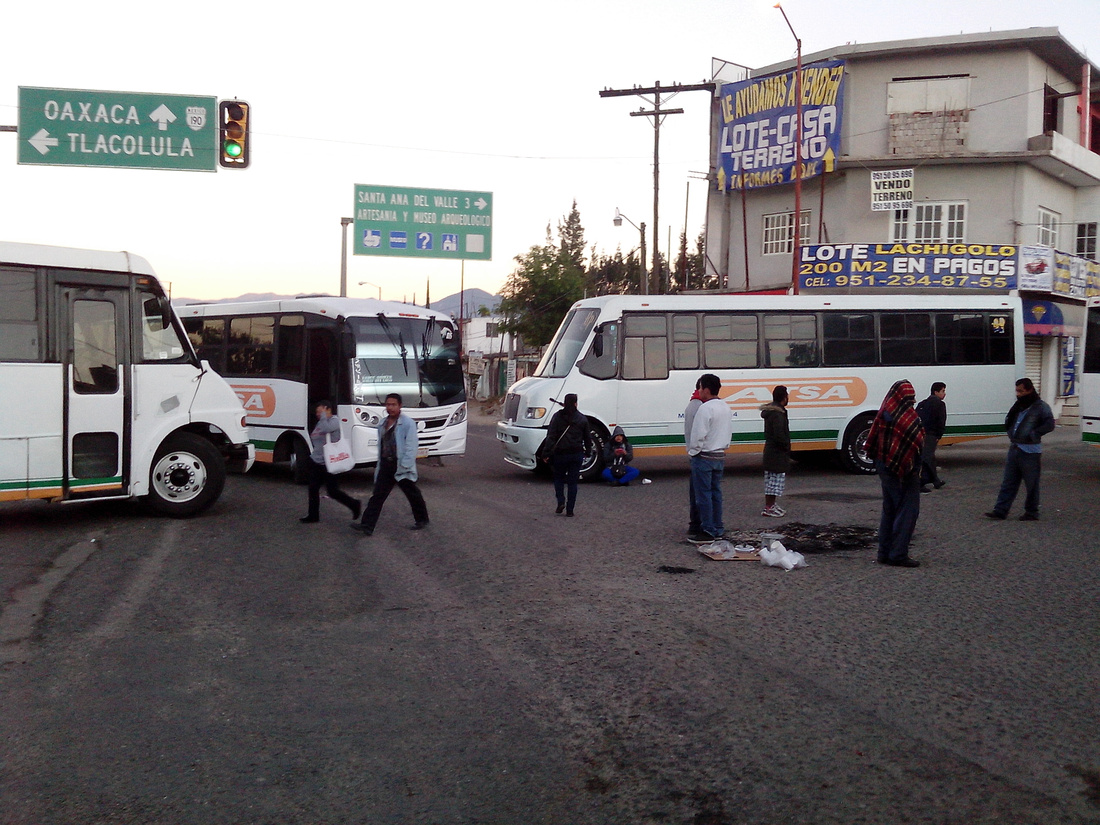

Went up to the mountains and was surprised how cold it was.
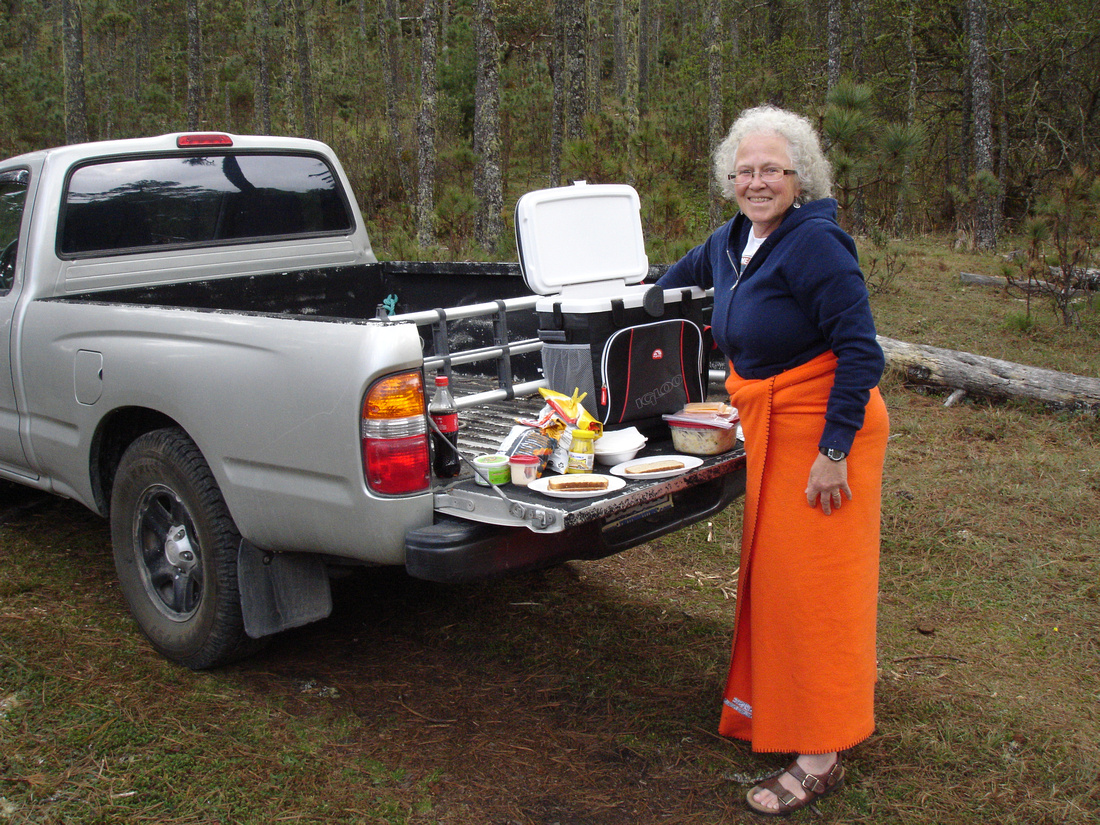

I can imagine Scooter thinking: um fried, boiled, or roasted!
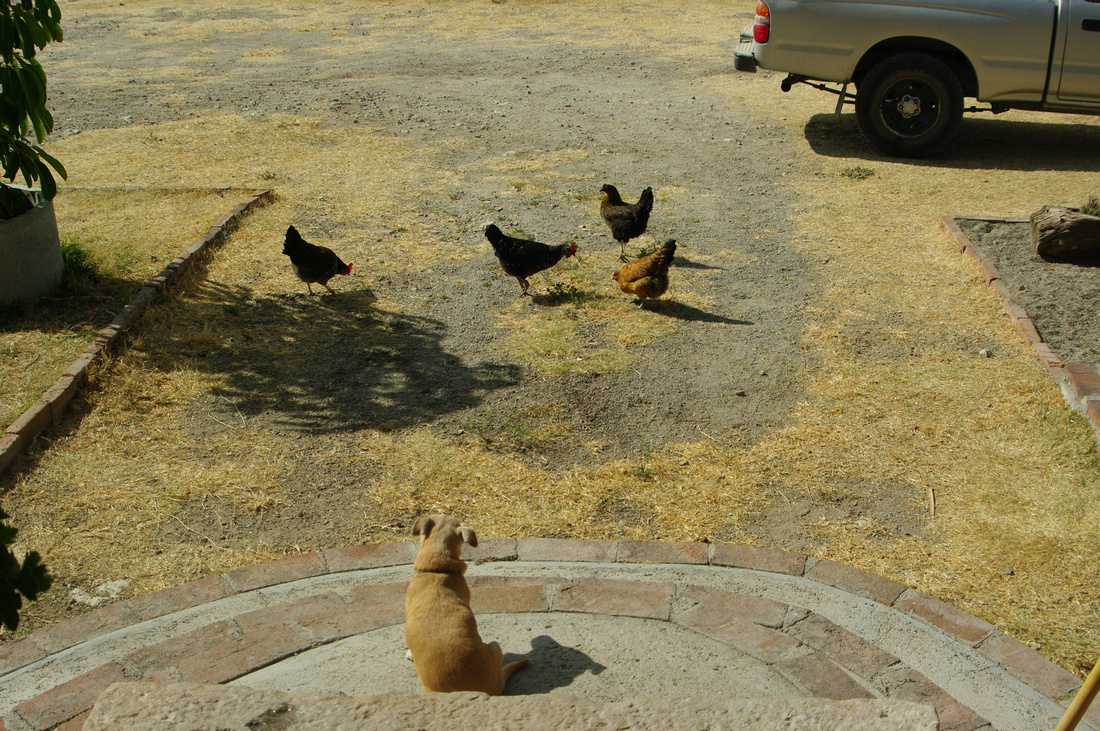

Beth with the mother of a dear friend. I think Beth's cheeks are rosy from drink!
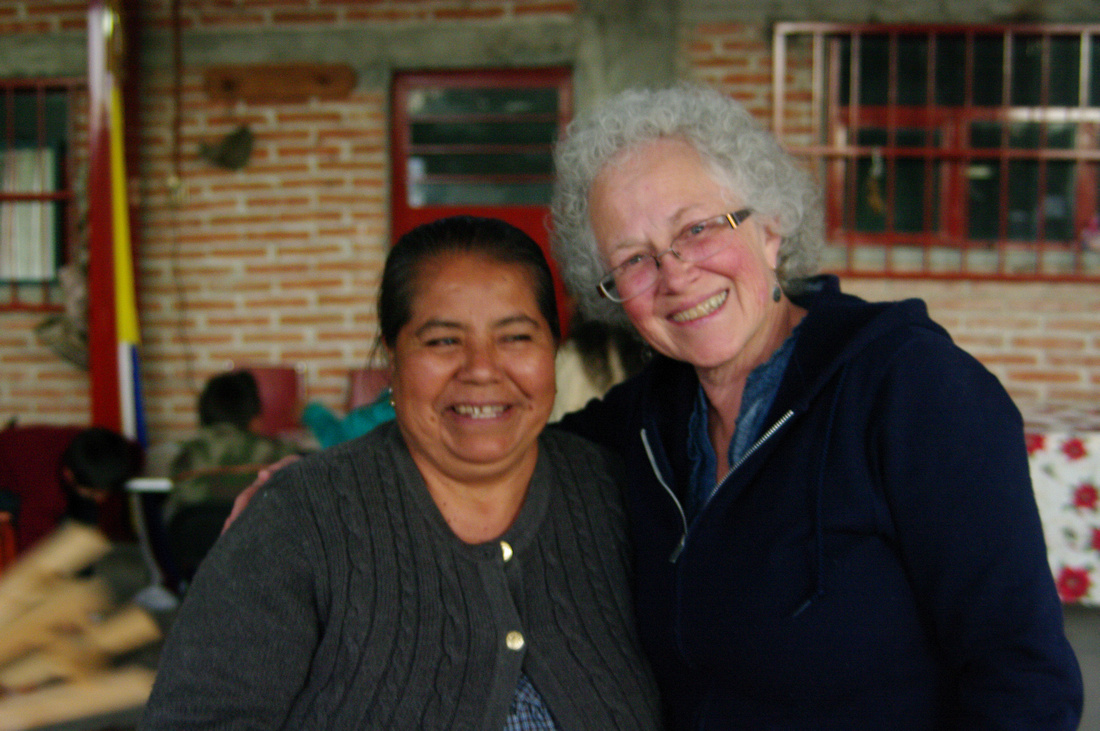

November 2014
Since I bought Everette an electric guitar and amp for an early Christmas present, I have now become the designated blog writer. Since today is the last day of this month, I will just add one picture of our home at Don Pedrillo.
November seems to be the most appropriate month to express thankfulness; therefore, this blog will be one of personal thanksgiving.
I am thankful for:
- My husband of 34+ years, Everette, who is the greatest problem-solver I have ever known. He has acquired an immense list of skills that enabled him to make this adobe-walled structure into a beautiful home. He does not shy away from learning new ways to attack a variety of problems.
- My three sons, Chris, Sam, and Mickey whose intelligence, ingenuity, creativity, resourcefulness, and “joy in living” inspire me.
- My first daughter-in-law, Yadira, who adds the feminine perspective and her enormous heart to my family. I could not imagine my family without her.
- My newest daughter-in-law, Danielle, who with my son Chris, enriched my family with my first grandchild, the long awaited granddaughter, Alysandra. I look forward to spending more time with both whenever possible.
- Our friend, Felipe, who invited and welcomed my family to Oaxaca back in 1994. He and his family helped us adjust to our first year in Mexico and helped us purchase this property.
- Felipe’s wife, Alejandra, who sheltered and protected us during that first year here. She continues to share her knowledge of local customs, plants, etc. She is a lovely woman and I appreciate her friendship.
- Felipe’s family and friends who have extended their love and friendship to my family for the past 20+ years.
- The opportunity to study and to work at UTB in Brownsville, Texas. I am also grateful for the years Everette and I were able to work in Texas which afforded us the finances to reconstruct this home and to retire comfortably here.
- The ability to learn a new language and to appreciate a new culture.
- The beautiful vistas and the variable weather here in Oaxaca.
- The new vision, attitude, and appreciation of life that my time here in Oaxaca has provided me.
- My role as wife and mother with all its joys and challenges.
- My husband’s brothers and sisters: Cathy, Joel, Bobbie, Legrand, and Rachel, who have always accepted me into their family with unconditional love. My life has been blessed by them.
- The opportunity I had to live in the states of CT, PA, MA, CO, CA, WA, NC, and TX. My horizons expanded with each new state.
- For my parents, John and Jean Whitman, who raised me in a traditional home and taught me right from wrong, encouraged me to read voraciously, and showed me how to love the USA. They provided me with the foundation to pursue my many travels and adventures as well as my education.
- For all the teachers and the professors I encountered from kindergarten through graduate school who challenged me and inspired me to reach farther, see clearer, and to never stop learning.
- For the opportunity Everette and I had to start and run a business, set and achieve goals, and meet so many interesting people along the way.
- For the technology that has been available in my lifetime including computers, the internet, and especially Facebook and Skype. These last two have enabled me to communicate with my sons and my friends from around the US.
- The hours my husband spent online acquiring books, audiobooks, and movies for our enrichment and enjoyment here in Don Pedrillo.
- For my health and the energy to pursue my hobbies of cooking, gardening, crocheting baking, and sewing.
- A comfortable home which needs neither a heater nor an air conditioner, thanks to the 3’ thick adobe walls and the 18’ high roof of teja.
For all of these and many, many more I am thankful this year.
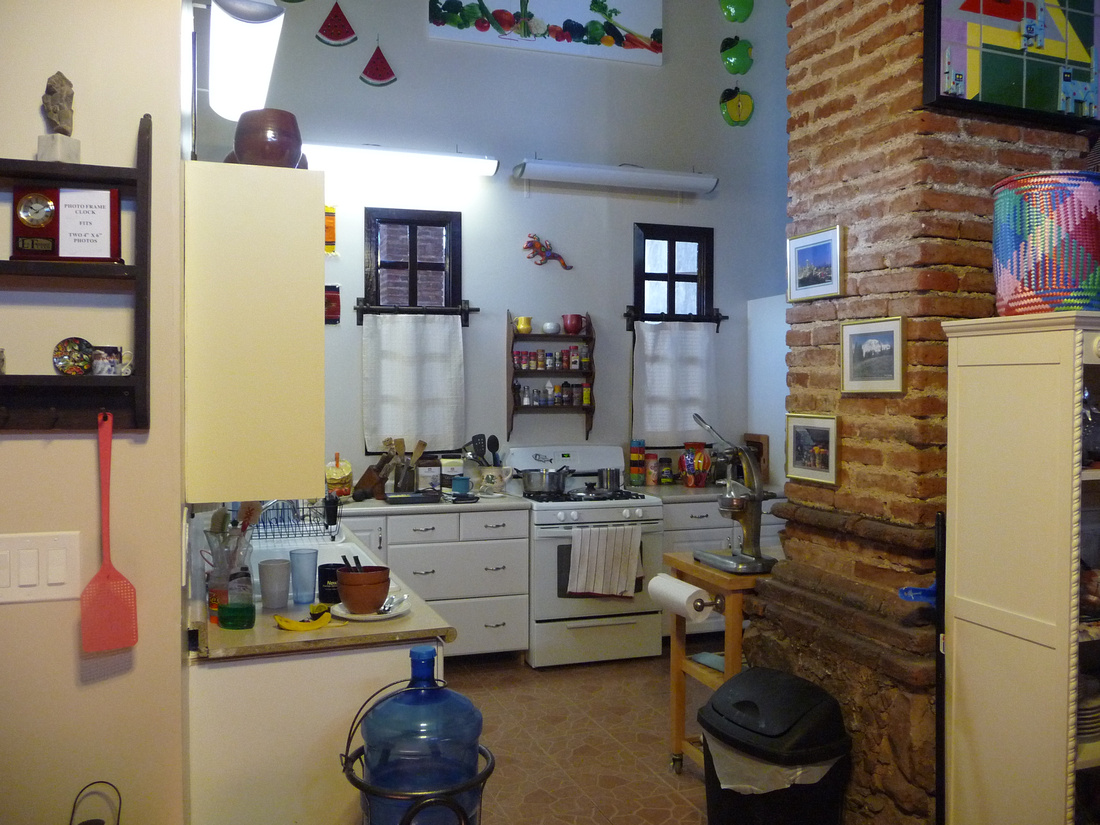

October 2014
It's about five hundred meters from Highway 190 (kilometer marker 39.5) to our home. The winding road makes it a little longer. Here is a short video showing the road from the highway to our house. We've been without rain for over a week yet we still have a little standing water. During the dry season our house can be seen from the entrance. When we return home at night, it is very difficult to see the entrance especially when making a left turn. There are no street lights and no sign. Sometimes it's hard to find the opening in between the bushes. Everette put reflectors on the posts but they don't help much. When we first moved down in 2012, it was in the middle of the rainy season. The water was about a foot high in some places. We've invested quite a bit improving the road. Dirt can't be placed on the road since the force of the rain washes it away or turns it into mud. We've put down sandstone and another type of filler that we don't know the name of in English. The stretch passing the carrizo was especially spooky at night that first year. It was too easy to conjure up animals coming out of nowhere. The headlights added to the surreal atmosphere.

Standing at our front gate and looking up over our left shoulders, we see what we call Bear (Oso) Mountain. Don't you think that it resembles the head of a bear complete with right ear, two eyes, and a nose?
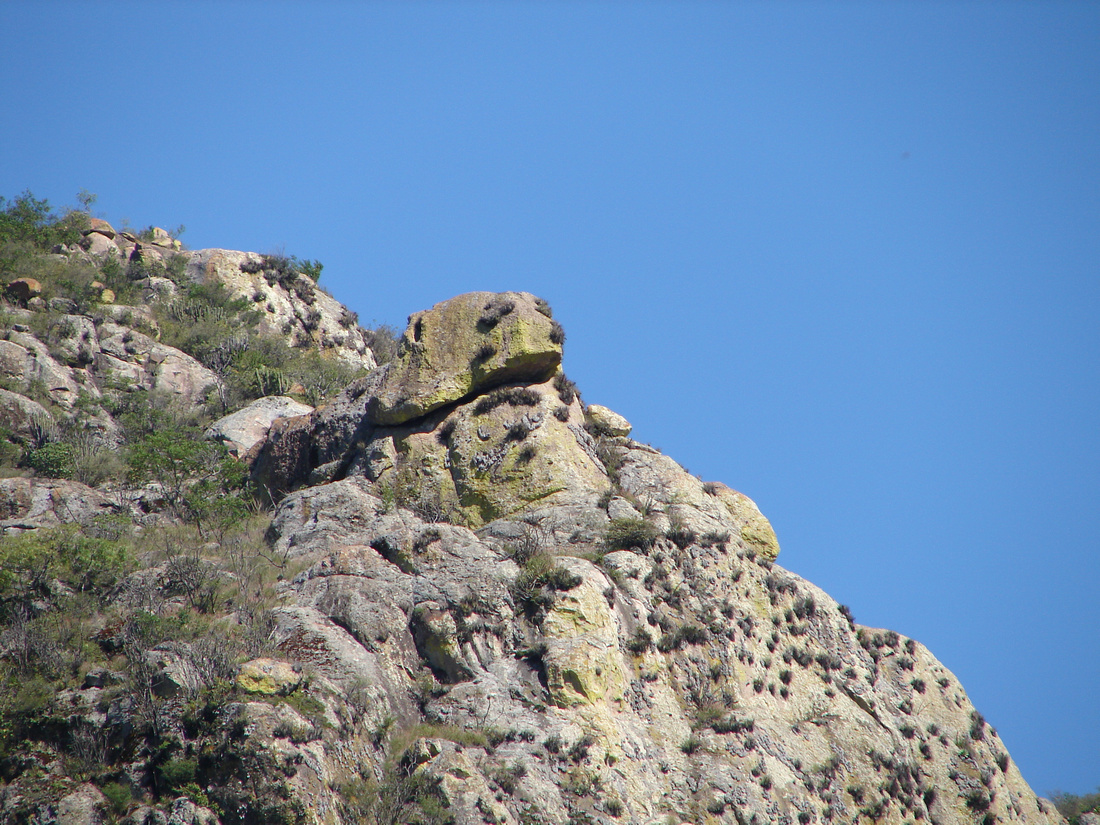

This is posted in front of a Pemex station outside Tlacolula. Can you imagine posting this in the USA? Nope, that would be major discrimination. However, we see these signs often, employers requesting that either women or men apply to work for them, for whatever their reasons.
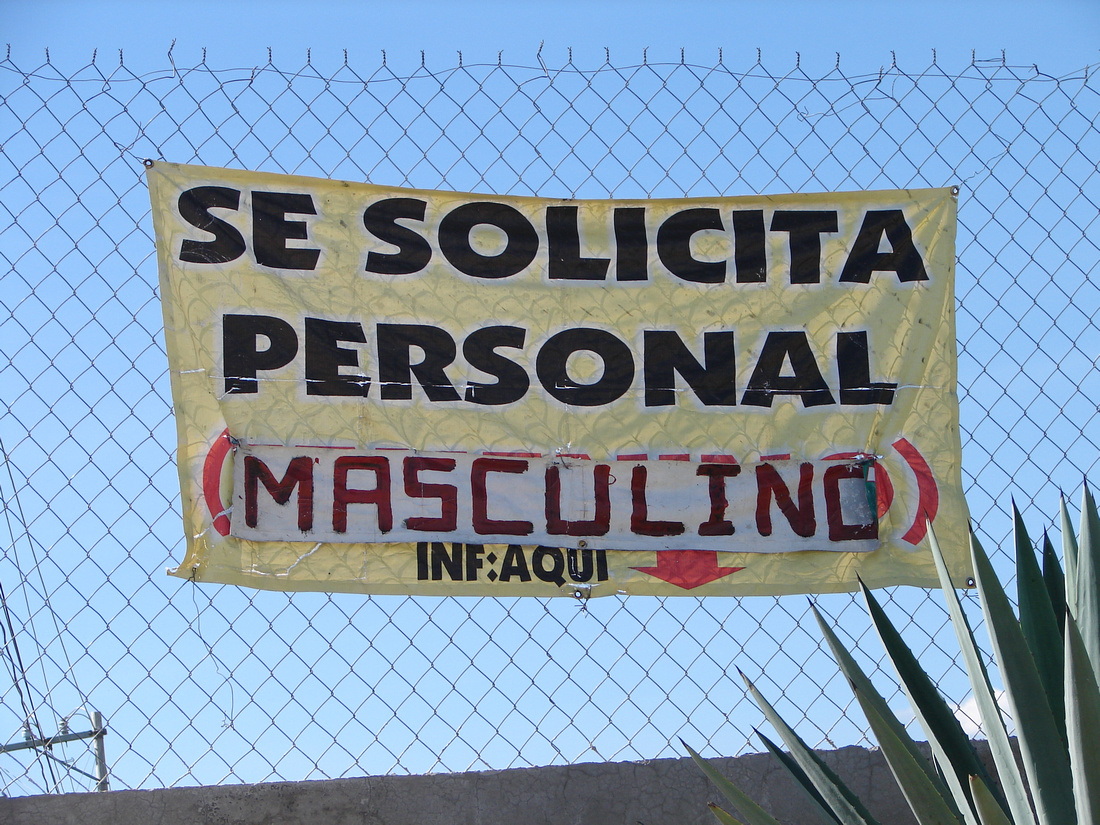

Just across the highway from our home and on the way to the zoo, there is currently a women's prison.
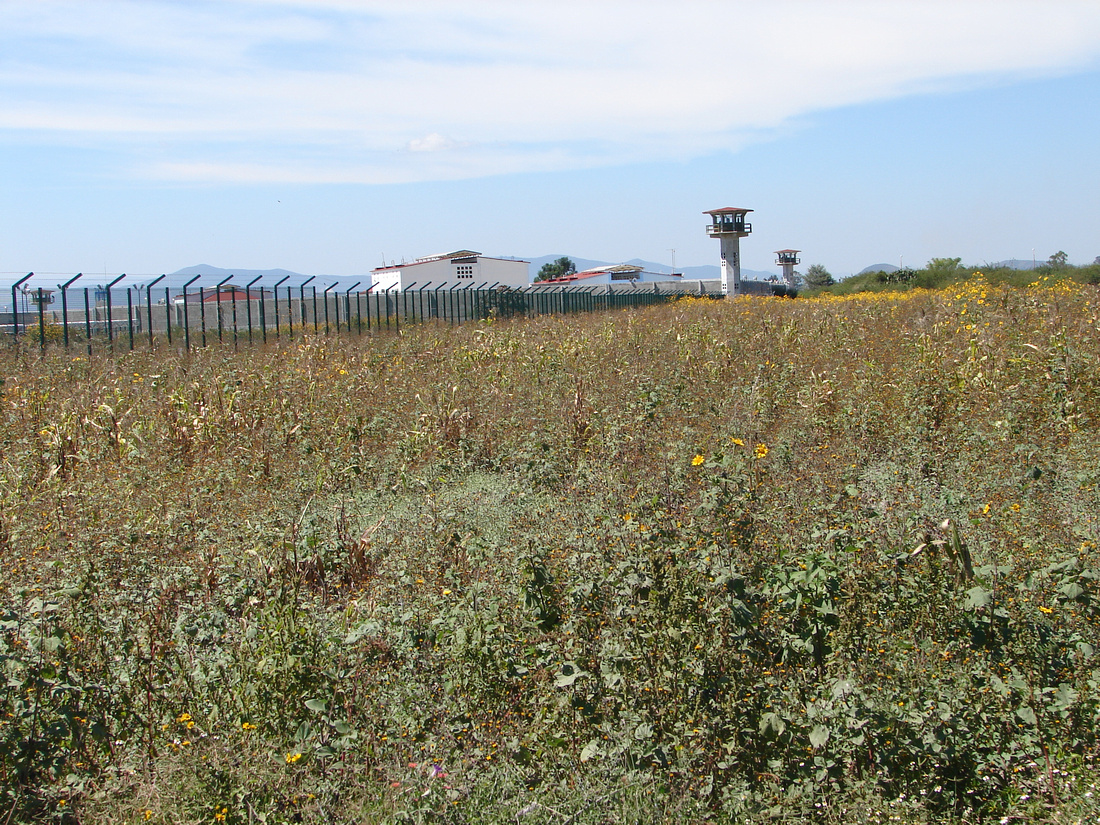

The Federal government is now completing construction of a maximum security prison which will house approximately 5,000 criminals from across all of Mexico. We are not worried about escapees; they will want to flee the area quickly. However, we are a little concerned about how their families and friends may change the makeup of surrounding communities.
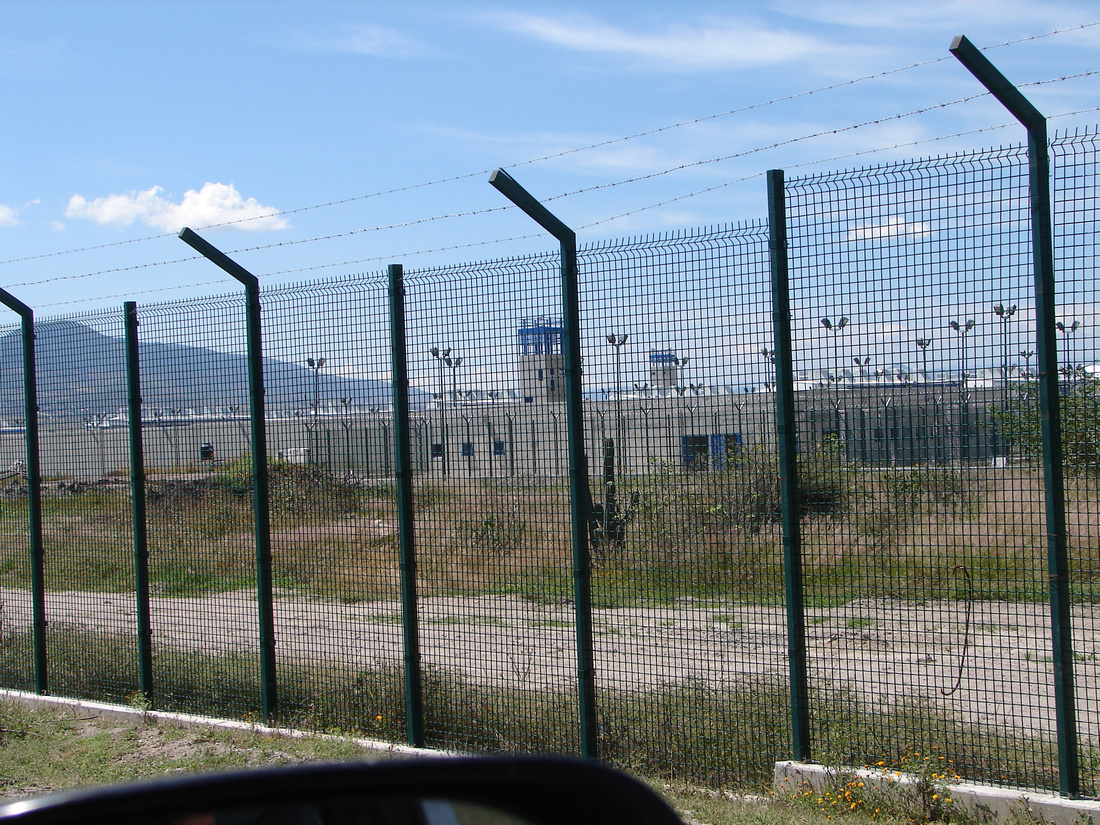

Construction of this facility has provided much needed work for many of our friends and acquaintances.
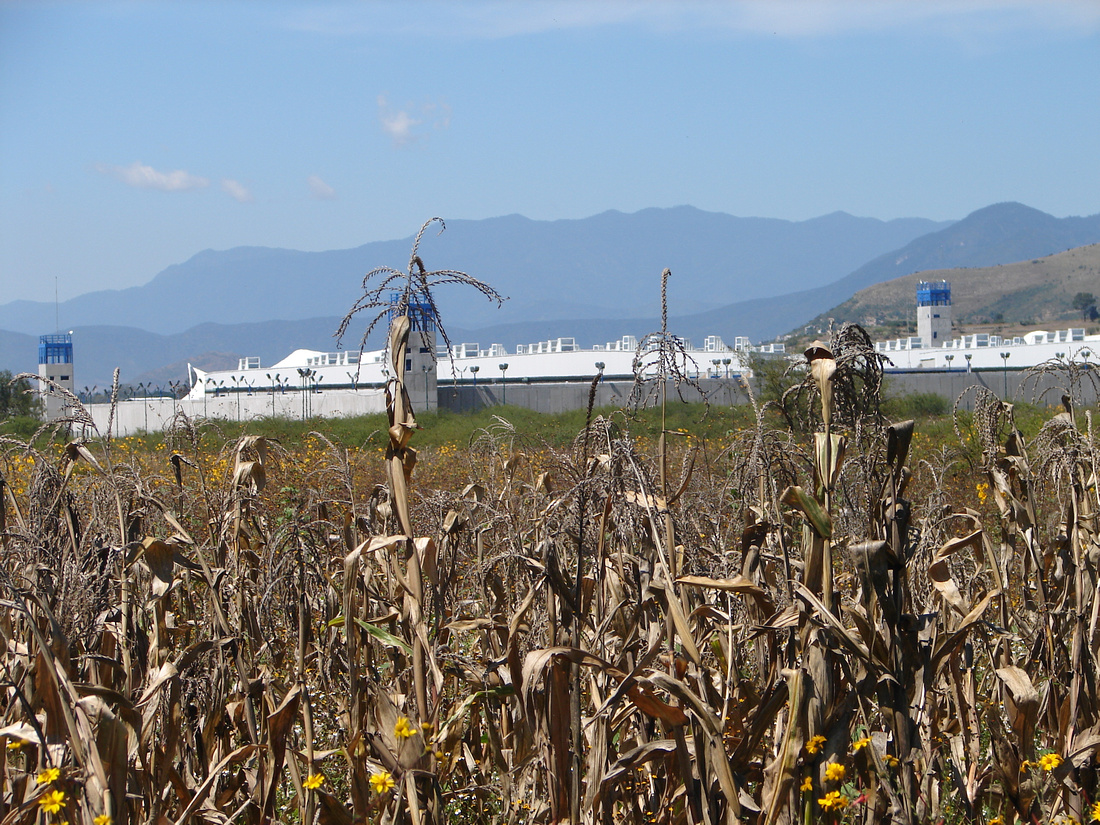

This river runs from the mountains east of here and behind our home and provides water for the pueblo of Tanivet. There is lots of water now due to the late October rains.
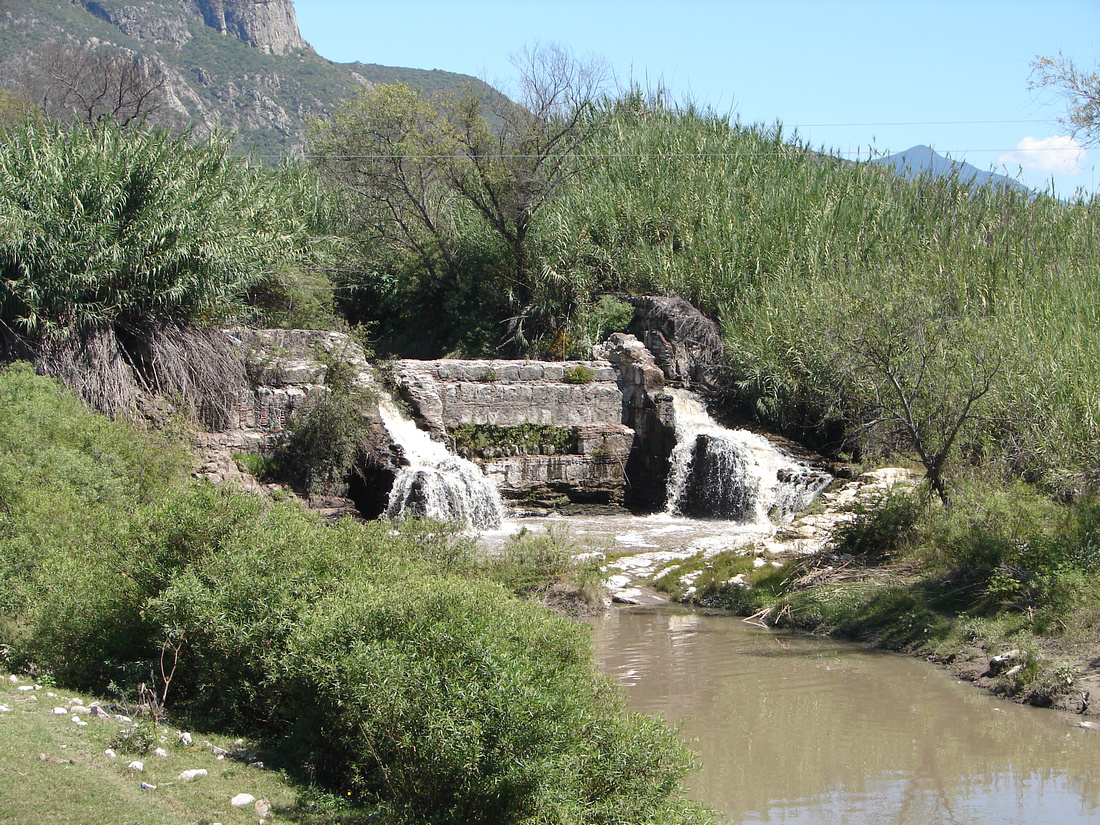

The other day on the way to the Jaguar Zoo outside Tanivet, we encountered these animals on their way to feed in the fields nearby. We enjoyed this since we were in no hurry.
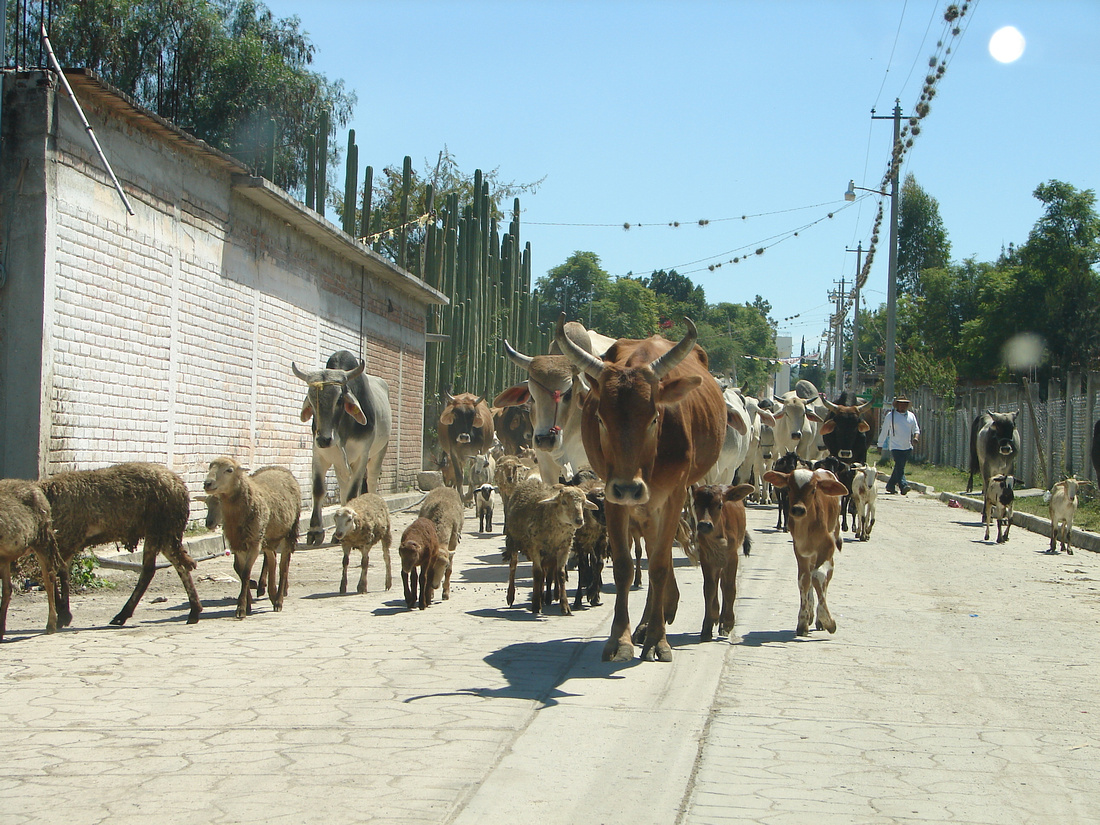

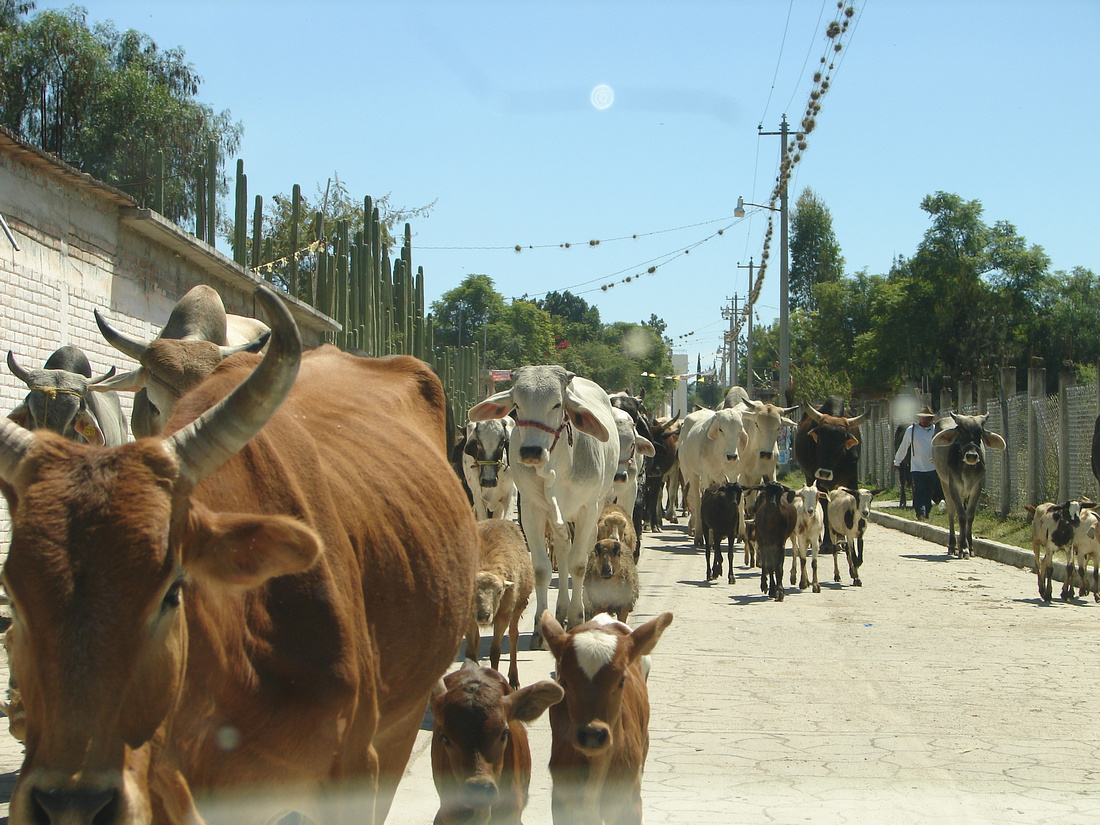

I must say that this was a little intimidating for both us!
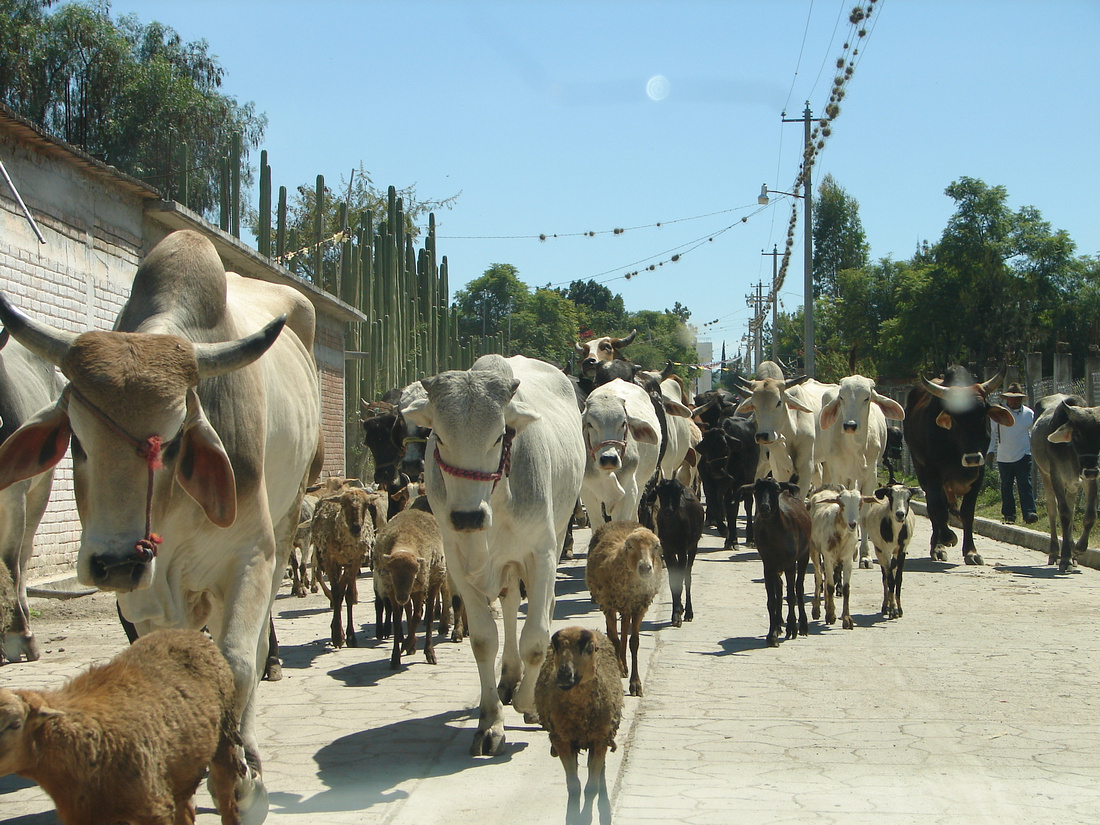

These animals provide a living for many inhabitants of these small villages.
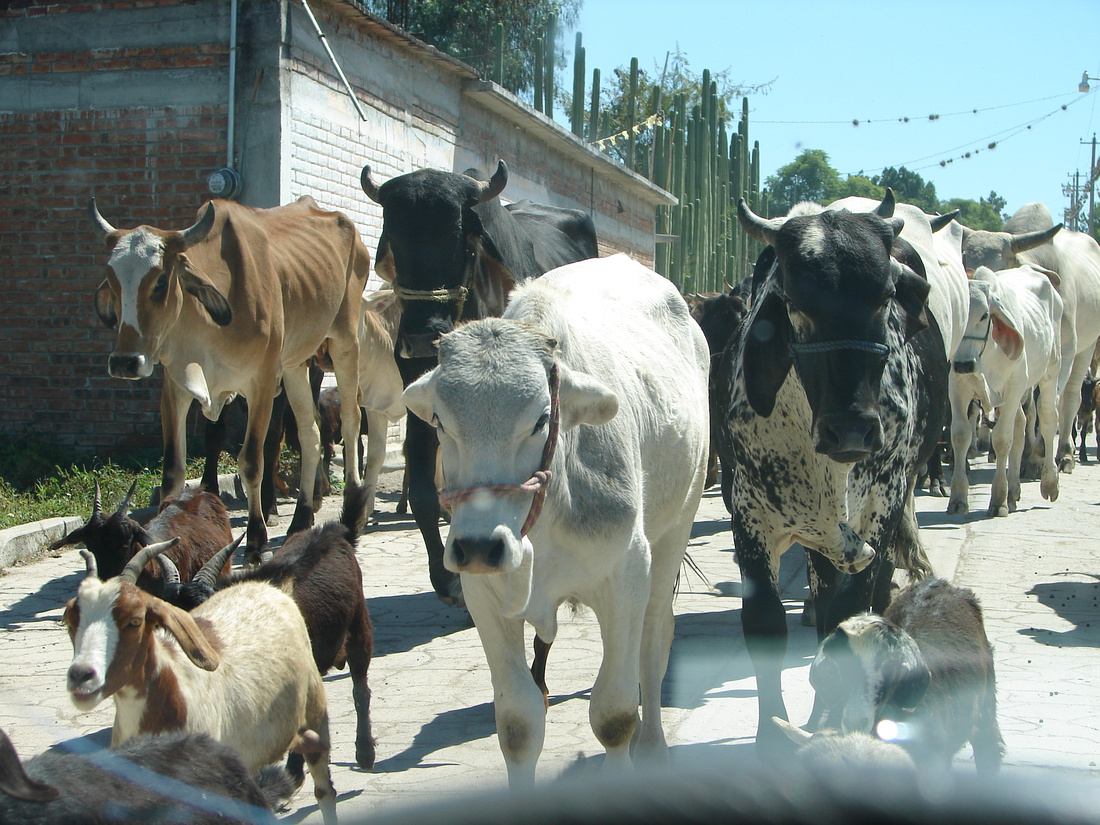

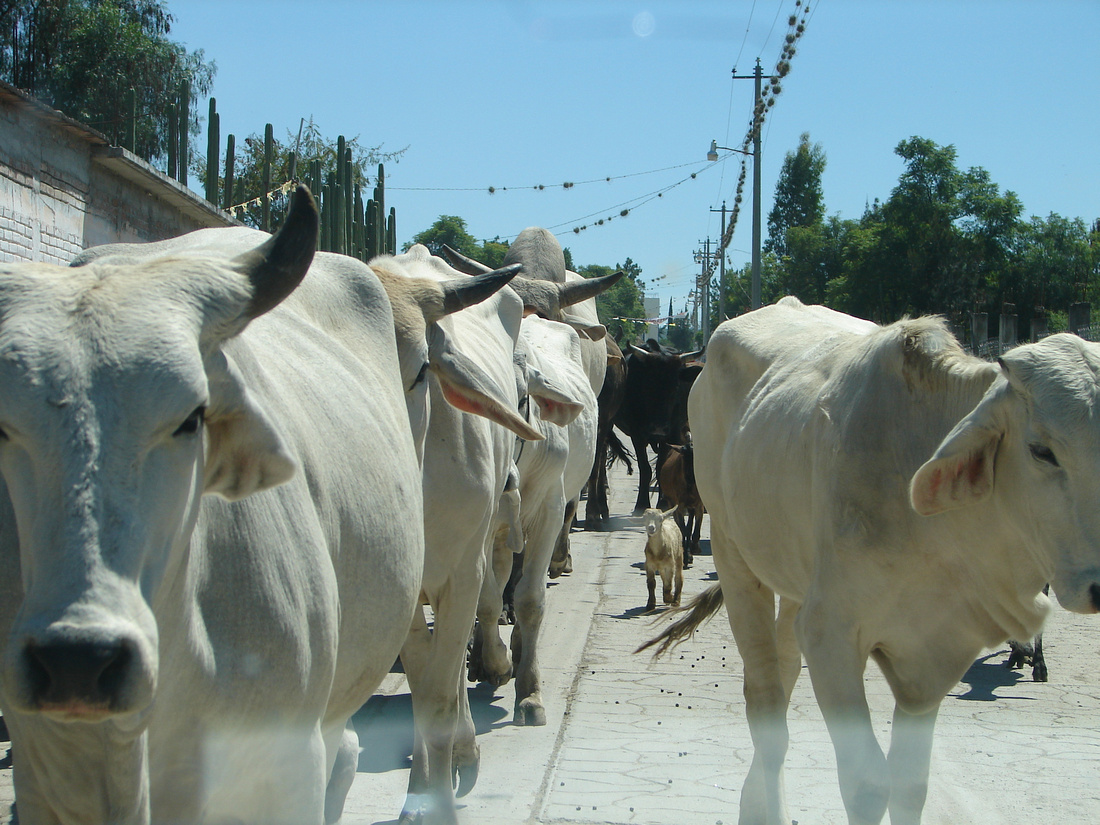

Here's the entrance to our local zoo.
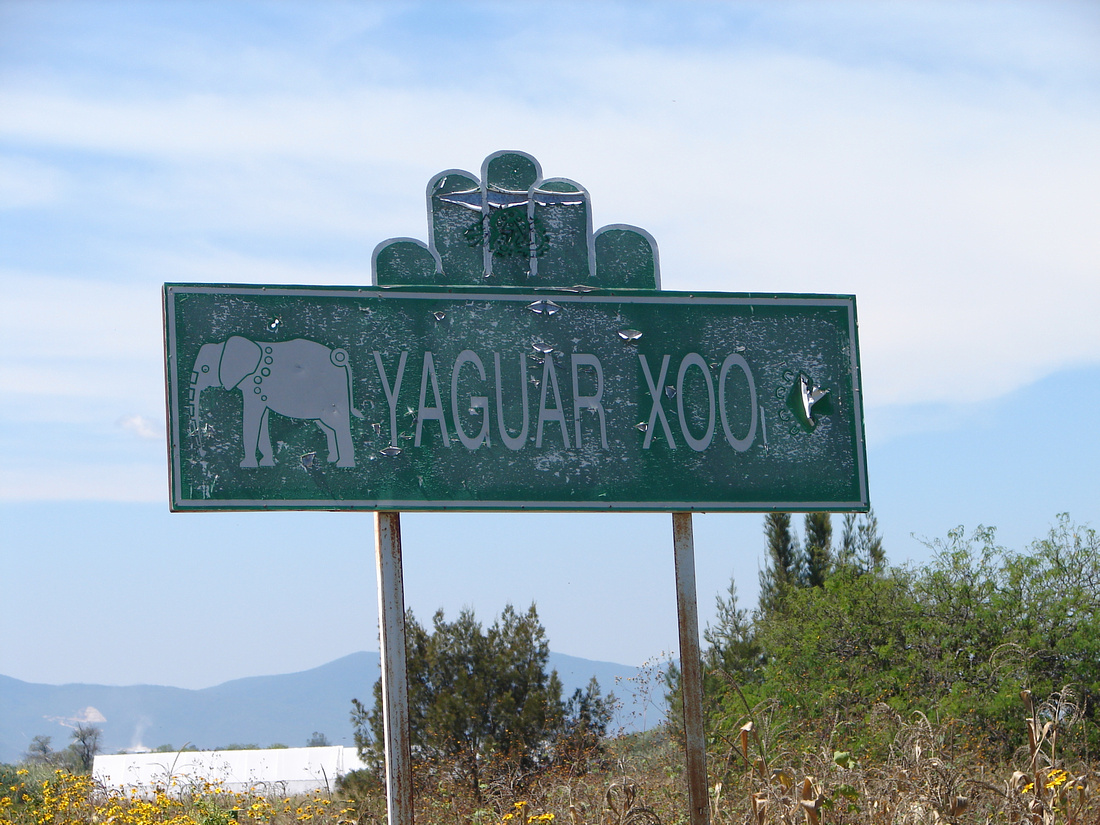

The snack bars at the zoo offer the typical "sabritos," hats, mugs, and other keepsakes.
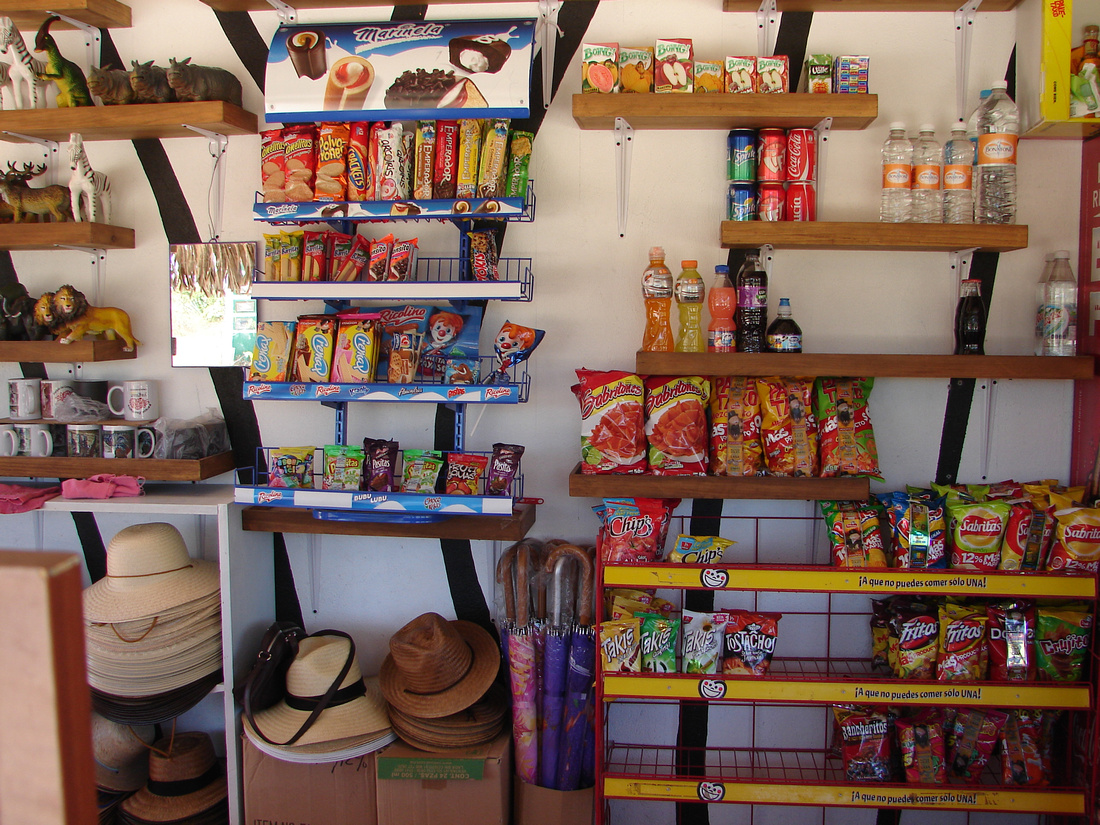

Of course, you can also buy mezcal and cold beer.
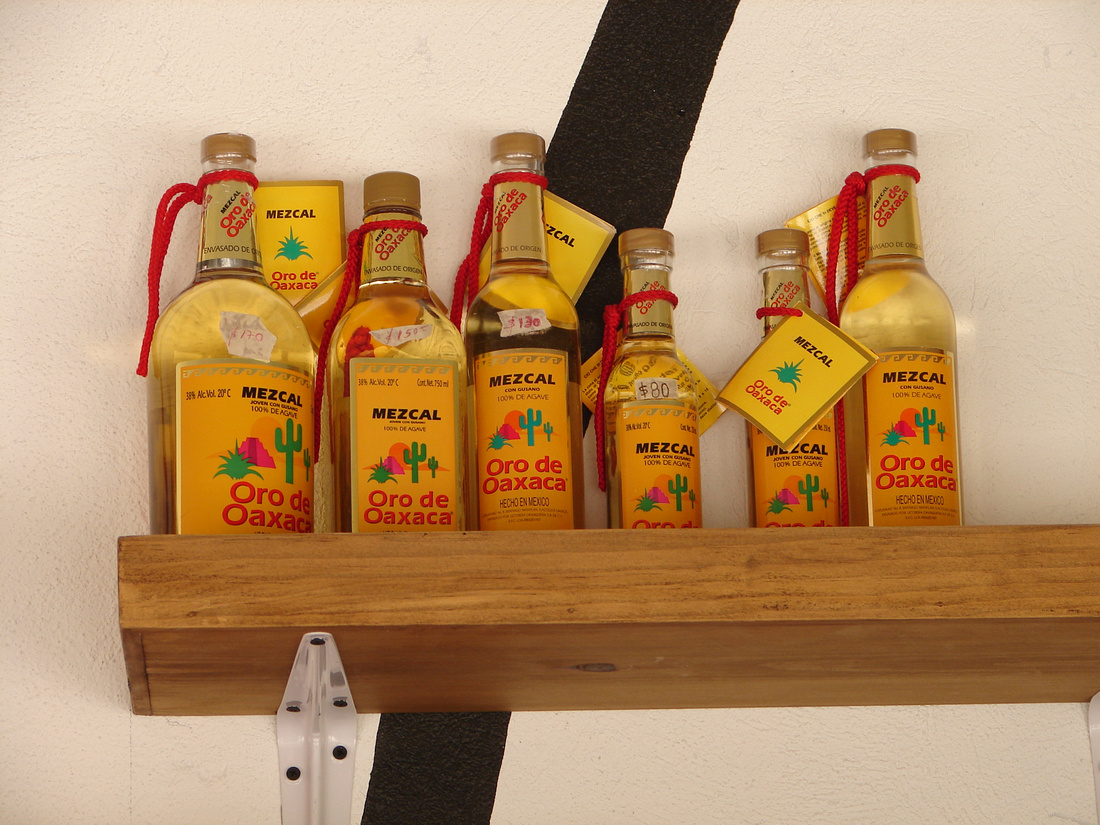

We sure thought this was interesting. They couldn't find a pole of say 14' so they lashed two 8 footers together.
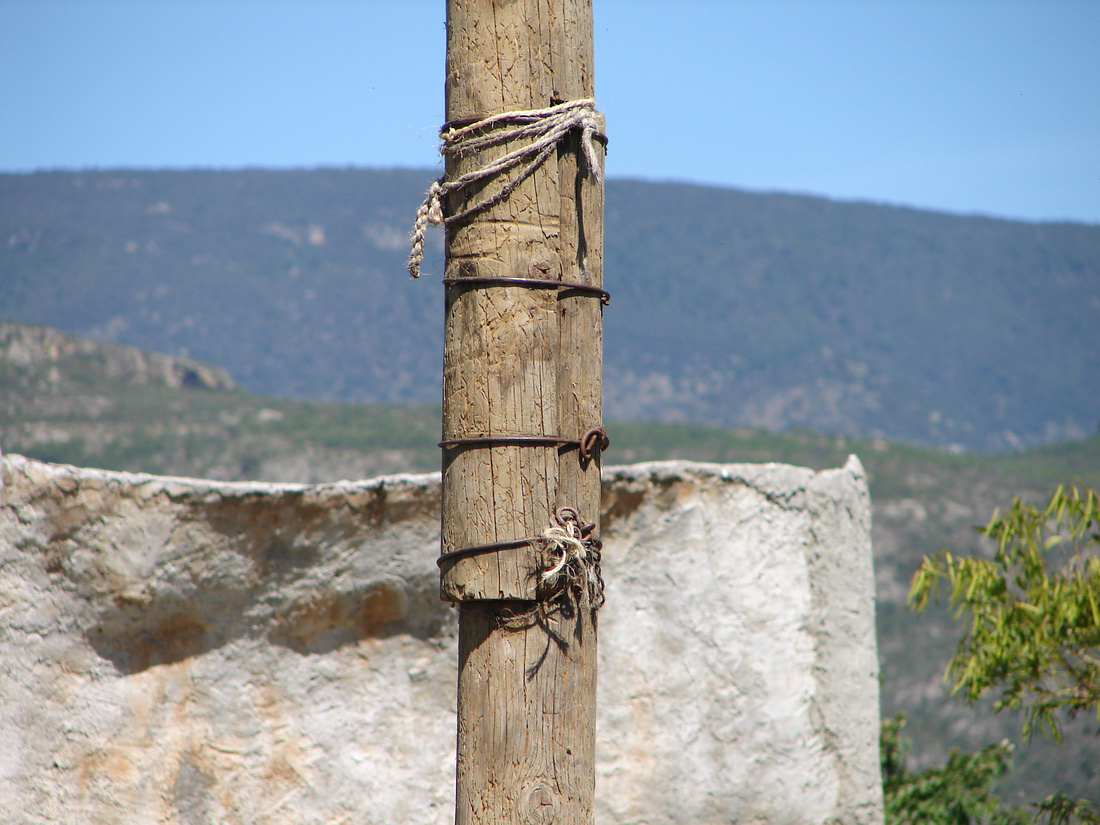

We have mentioned in several posts that the new Macro Plaza de Oaxaca opened the end of August. This restaurant named Toks is located in the plaza. We have eaten both lunch and breakfast here. The atmosphere is clean and lovely, the staff is well-trained, the menu is varied, although the prices are a bit high. We might indulge every other month or so.
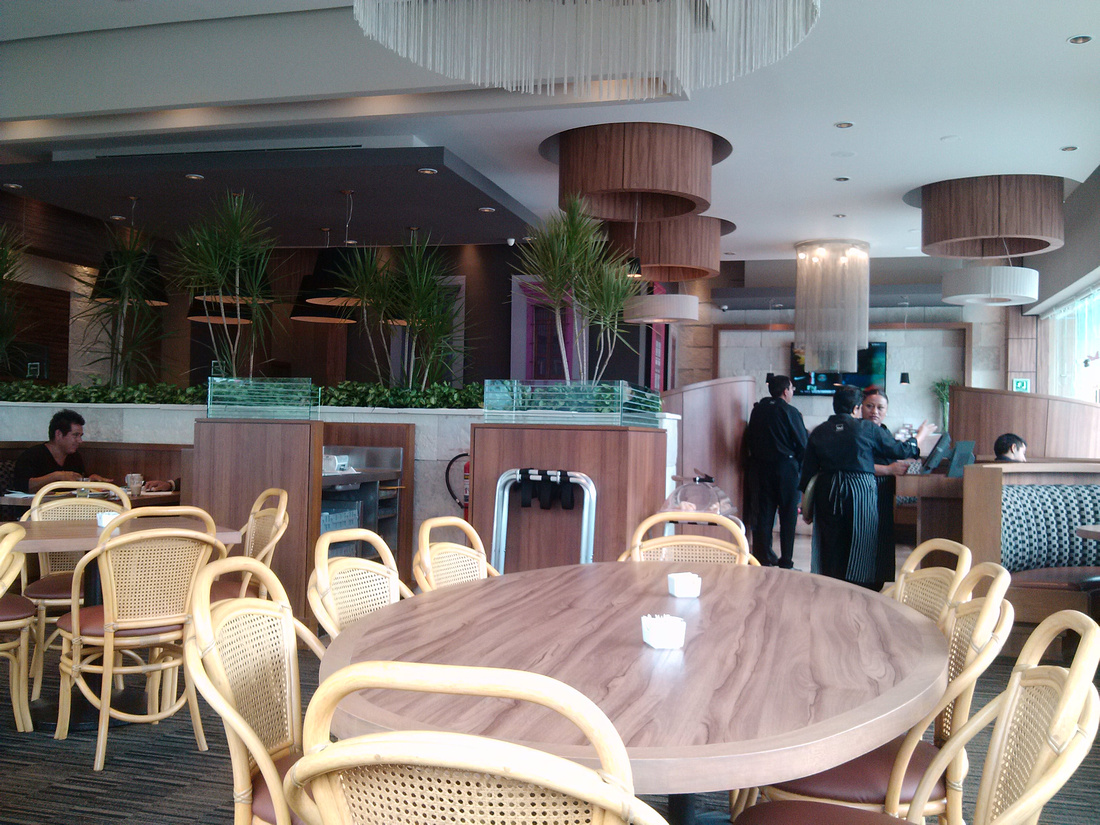

This is the classiest restaurant we have visited in all of Mexico. The menu choices include items we are familiar with from the States.
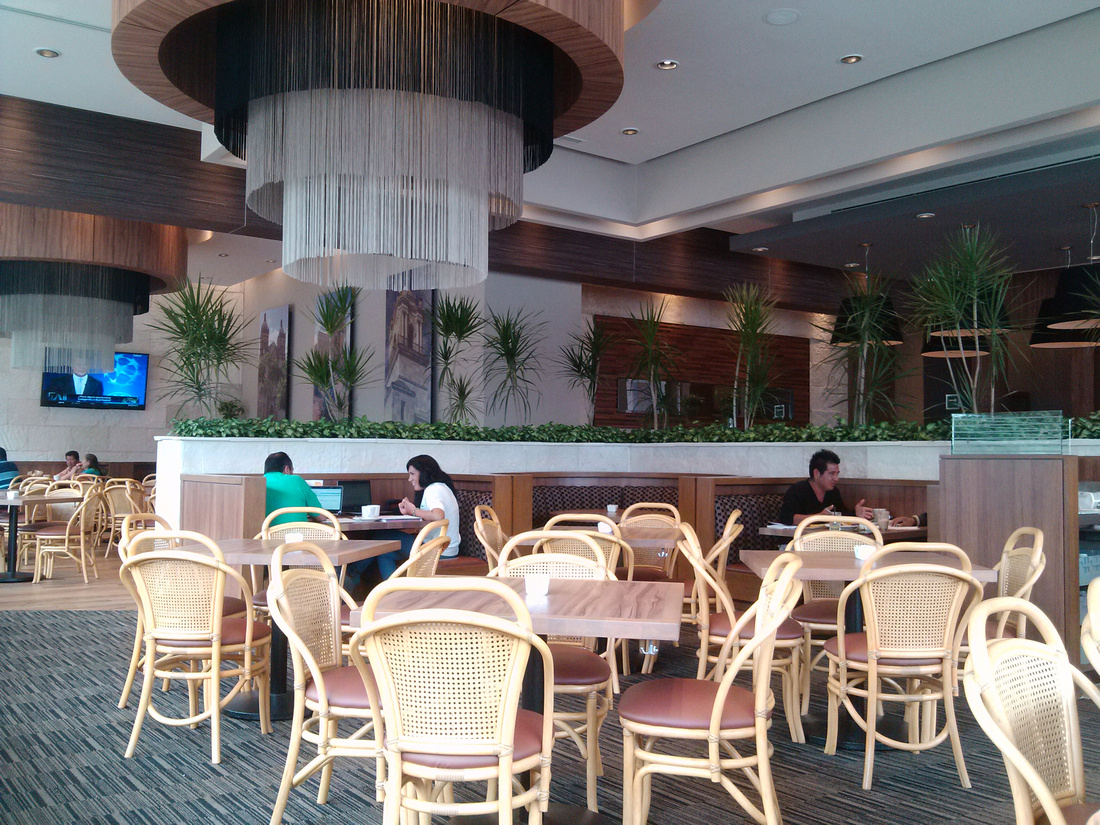

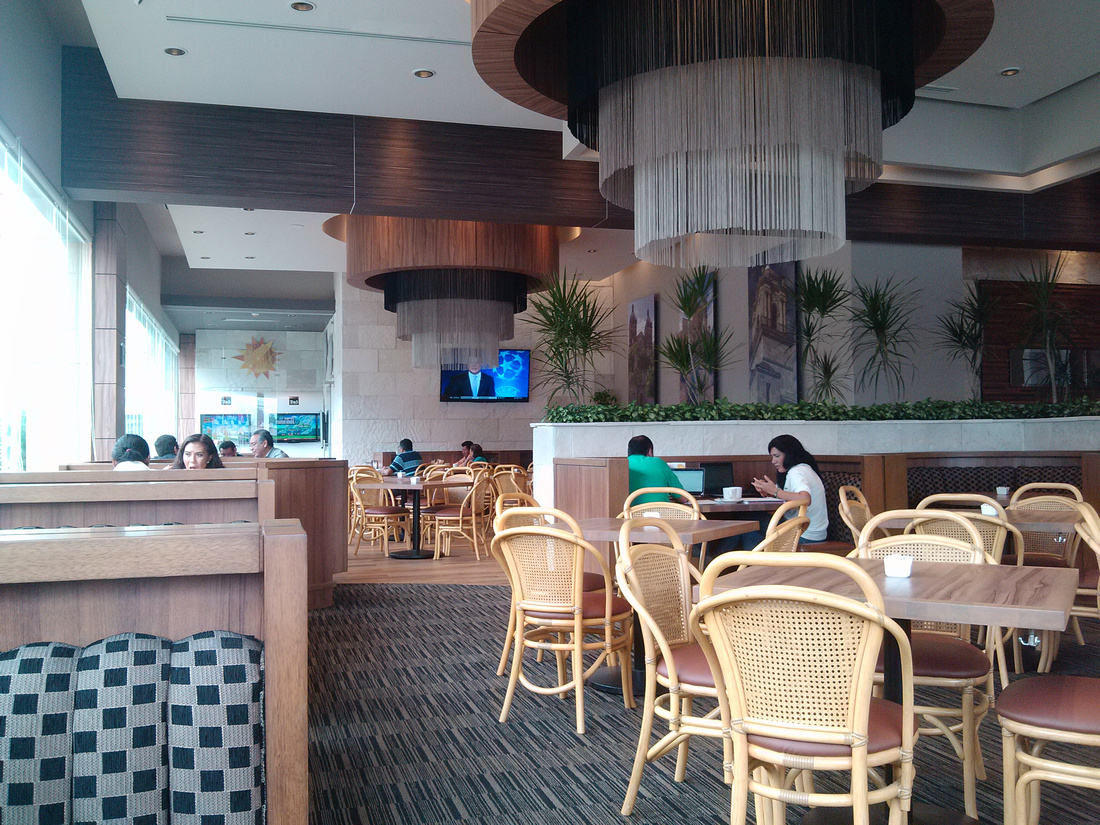

Yesterday, we had to buy four new tires for our Toyota truck (the roads here are pretty treacherous in places). The store where we bought them, mounted them, but the machine to balance was not working. They sent us down the road to a shop which balanced them for nothing. I loved this sign mounted on the back wall: In English, There are 3 types of work: the cheapest, the quickest, or the best. You can choose 2 at a time. [1] Good and fast, but not cheap. [2] Cheap and good, but not fast. Or, [3] quick and cheap, but not good.
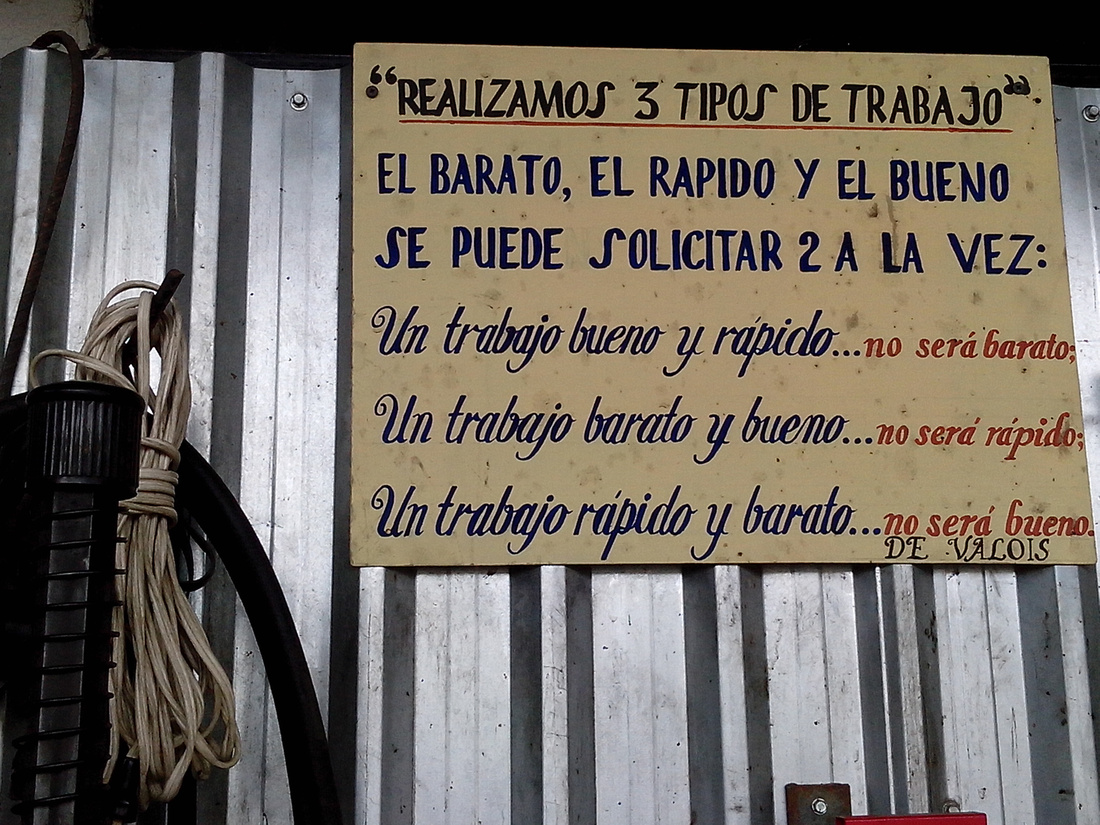

Sept 2014
The valley here is a tough place to live for dog lovers. It's pretty rare to find a dog owner who considers their dog a pet. Dogs are work animals who protect their owner's property. Most dog/owner relationships are strictly business like: food in return for protection. In all my years traveling or living here, I can only remember very few times when I witnessed an owner petting his dog. Many dogs don't know how to play with humans. Tortillas are the main food source for dogs along with table scraps. It's not uncommon to see a dog's ribs protruding from its body. It's tough to see a female that's just had pups in this condition. Some females are unable to produce enough milk for their pups. Many local dogs make their rounds to our home with the hope of being fed. We've learned if we are going to give food, we have to feed them away from the house or they won't leave. Dog food is more expensive here than in the States so owners resort to the most common and less expensive tortillas. Beth and I have begun to make Scooter's food and supplement it with dog food.
Birth control is rare so pup litters are common. In villages you can see a natural pecking order. The biggest and strongest rule. It's fascinating to see dogs in what must have been their natural environment. For a dog to travel from one side of a village to the other, they must endure a gauntlet of other dogs. This is especially dangerous when an owner has several dogs. They'll team up on a passing dog. Dogs that kill chickens are beaten. So there are dogs in an emaciated state that will not touch a chicken. It's almost impossible to make the trip to Oaxaca de Juarez without seeing at least one dog on the side of the road that's been struck by a vehicle.
In the larger towns strays are everywhere looking for scraps. Sundays which are the market day in Tlacolula offer a windfall of discarded food. It's pretty easy to pick out the dogs that live on the street from dogs that have homes. Dogs from the street along with being in poor health are very weary of humans. They will not take food from your hand and handouts must be thrown far enough away for a dog to feel safe enough to pick it up. The higher economic condition of city folks is apparent by the condition of many dogs there. They are healthier and friendlier to humans.
The plight of dogs is a reminder of the plight of many people here who struggle to eek out a living. There is little help or assistance from the government. Consequently, people are forced to be creative and resourceful. Families with relatives in the US are lucky. A few dollars sent from the States makes a world of difference.
I'm going on a month without reading any news. It's been a bit of a struggle. The curiosity and feeling of not wanting to be uninformed still lingers. News from the US was especially depressing. Living amongst people who struggle to make a living make me ashamed to see the issues that Americans squabble over. Americans have so much and are afforded so many opportunities. It's been over two years since we've watched any news on the television. Television news we never missed. I blame television for much of the hateful divisiveness in America. Facebook is a little tricky. A little more Politics than I care to see. When President Bush was in his sixth year in office many of his strengths and weaknesses were obvious. We are now in the same position with President Obama. At this point we have a pretty good idea who he is and what he stands for. Vilifying or making excuses for him is not necessary. I was thinking today that more care seems to be spent choosing a coach for the NFL than for President of the United States as far as qualifications go. I much prefer to read about the hopes, dreams, and accomplishments of friends and family (not that I don't enjoy a lively debate). Another annoyance of Facebook is the use of celebrities who happen to agree with a certain point of view. Are we that intellectually depraved as a Nation that we have to turn to people that make their living playing a sport, acting, or playing music for political or scientific insight?
We just celebrated Mexican Independence here. I was a bit jealous to see Mexicans come together in honor of their country's freedom. It's refreshing to see a population celebrate their oneness instead of constantly being reminded of their differences.
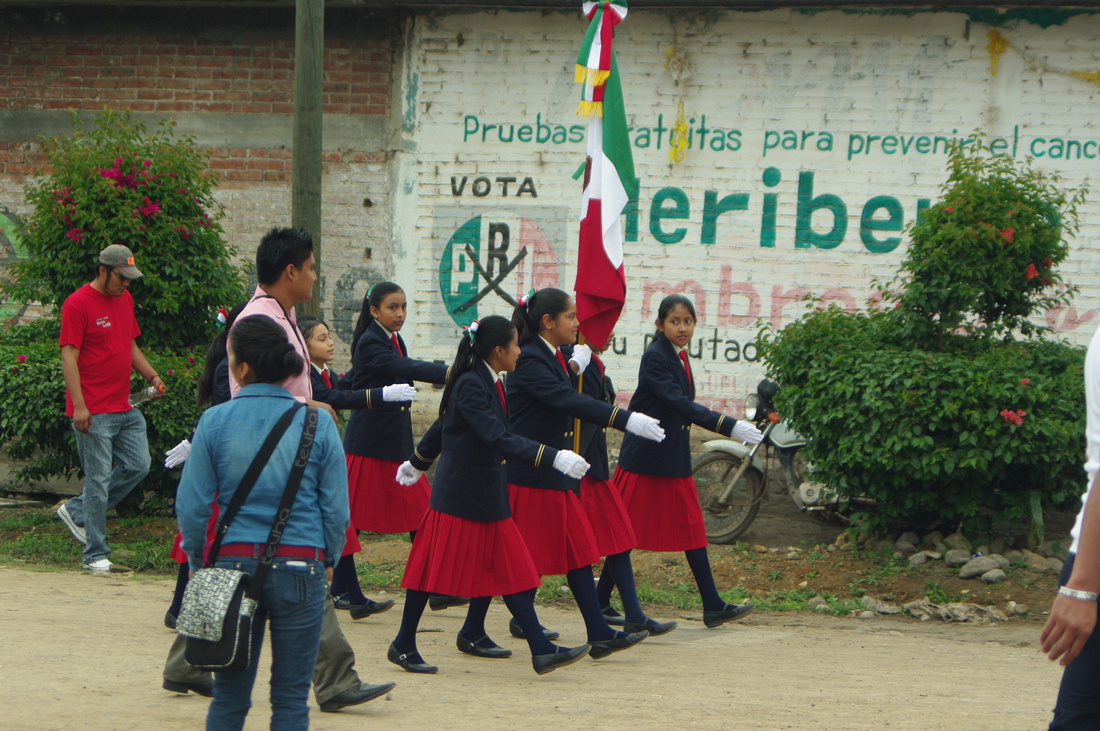

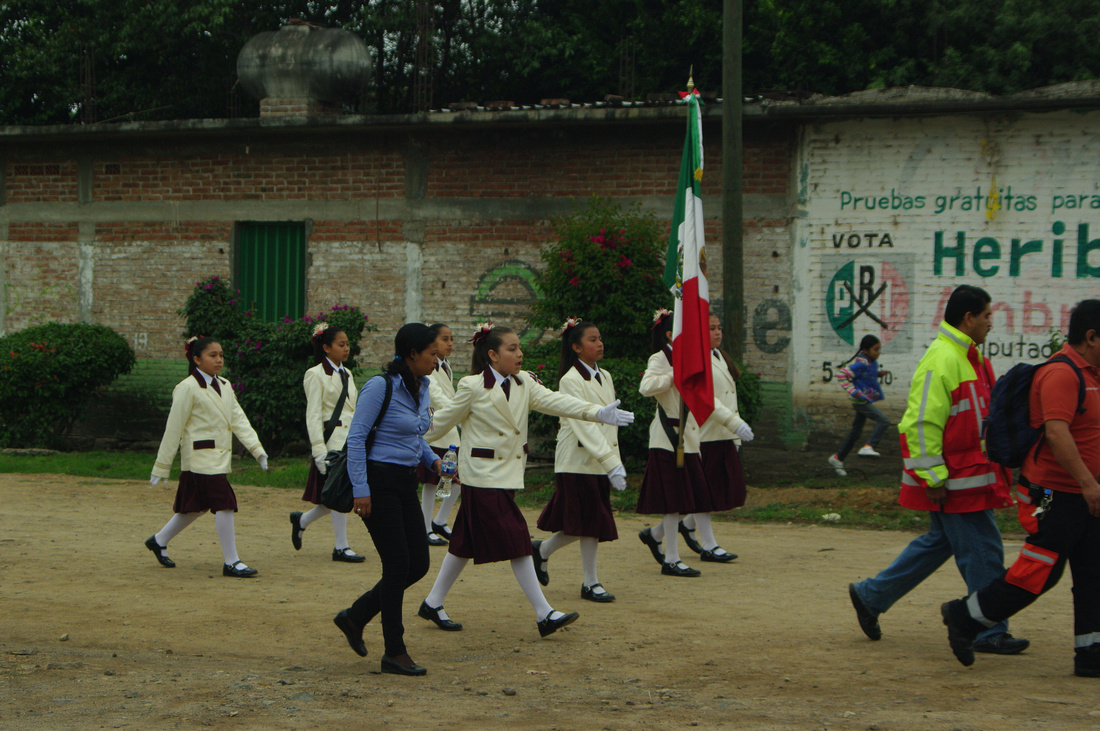

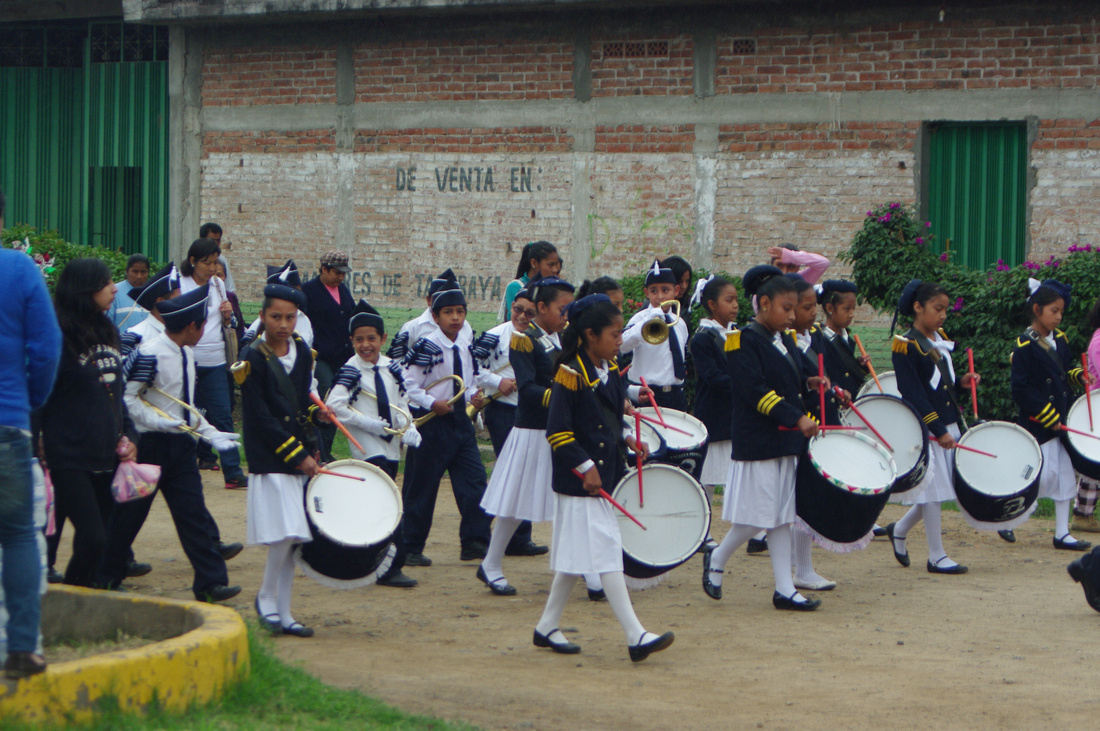

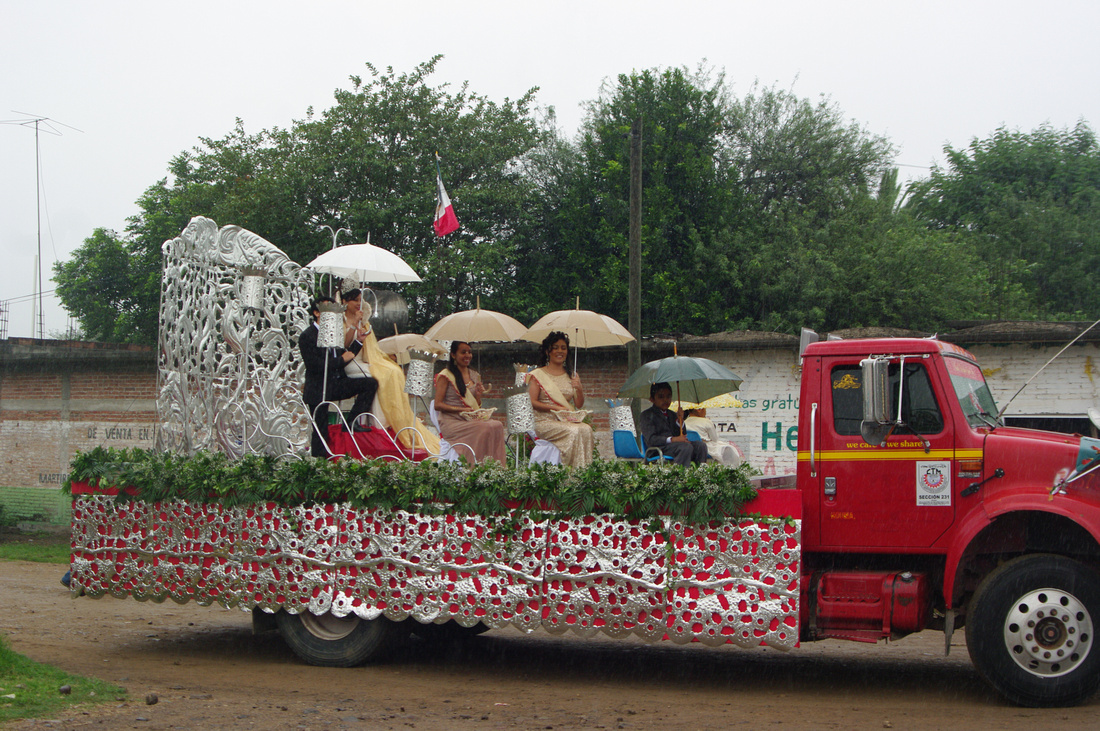

The new Macro Plaza (thirty minutes from our home) recently opened. We've already made several trips there. Located on this side of the city means we don't have to deal with as much traffic. It's close enough that we can make a weekly visit if we choose. We will still buy our fruits and vegetables from local markets, but it's nice to have easy access to items we are accustomed to from the States. There is a movie theater. The manager explained how to determine if the movie is in English (with Spanish subtitles). We were never movie goers but it would be nice if we can find a movie decent enough to see.
A new Home Depot also just opened in Oaxaca. The advantage is that everything is out in the open to see. In the ferreterias almost everything is behind counters so products have to be brought out one at a time to see. It's difficult to ask for items that I don't know the names of or to try to explain a project I am working on especially when the concept is foreign to them. I have to say though that the employees in the ferreterias in Tlacolula have been wonderful trying to assist me. It would have been nice if the Home Depot had been open two years ago when we were doing so much construction. Every month or two we also visit Sam's Club. Again, the familiarity is comforting.
Those who are opposed to Mexicans crossing into the US will be happy to hear that it is much tougher to cross (regardless of the rhetoric). Many people leave the Valley to cross only to return. The unfortunate part is that most borrow the money to cross so when they return they are in debt and much worse off than when they left. Consequently, fewer people are trying. For Beth and I it's complicated. We believe America has the right to protect it's borders; but when a friend leaves to cross, we can't help but wish them good luck. One good friend just returned unable to cross. We were sorry for him. It's unfortunate that our government is unable to come up with a reasonable solution to the immigration problem.
We continue to be thankful for our internet. Resolving problems and gleaning information is a breeze. Of course email, Skype, and Facebook remain our window to friends and family. Beth just traveled to the US to see Chris and Danielle's beautiful little girl (Alysandra). The trip was a bit stressful and we're both glad she is back. We owe a special thanks to Mickey and Yadira who opened up their home and made the trip possible. We are so very proud of our sons as they make their way. They have grown into fine young men.
A recent comida in Matatlan exposed us to a new experience. It was to be an all day event so Beth and I provided cinnamon rolls and scrambled eggs. For dinner goat was the main dish, BUT to kill the goat, it was tied to a seven foot rope about two hundred meters away. Several men shot at the goat until it was killed. I couldn't participate. Anyway the goat was skinned and the meat cut into manageable pieces. I'd never seen the intestines cleaned and prepared. Almost every part of the goat is eaten including the blood. I feel like Beth and I are assimilating pretty well into the culture here EXCEPT for the food. Many things are too foreign. Most of the meals served here are very traditional and have been served for many years. The majority of food here is prepared with lots of spices and contains a fair amount of grease. Sometimes tortillas are all we eat at a gathering.
I'd never seen this method before. A large and a smaller hole are dug. The earth is removed between the two holes connecting them. A fire is started in the large hole using logs that are quite thick. Air from the smaller hole allows the fire to breath. Rocks are placed on top of the fire. When the fire is burned down and the rocks are hot enough, the small hole is filled in.
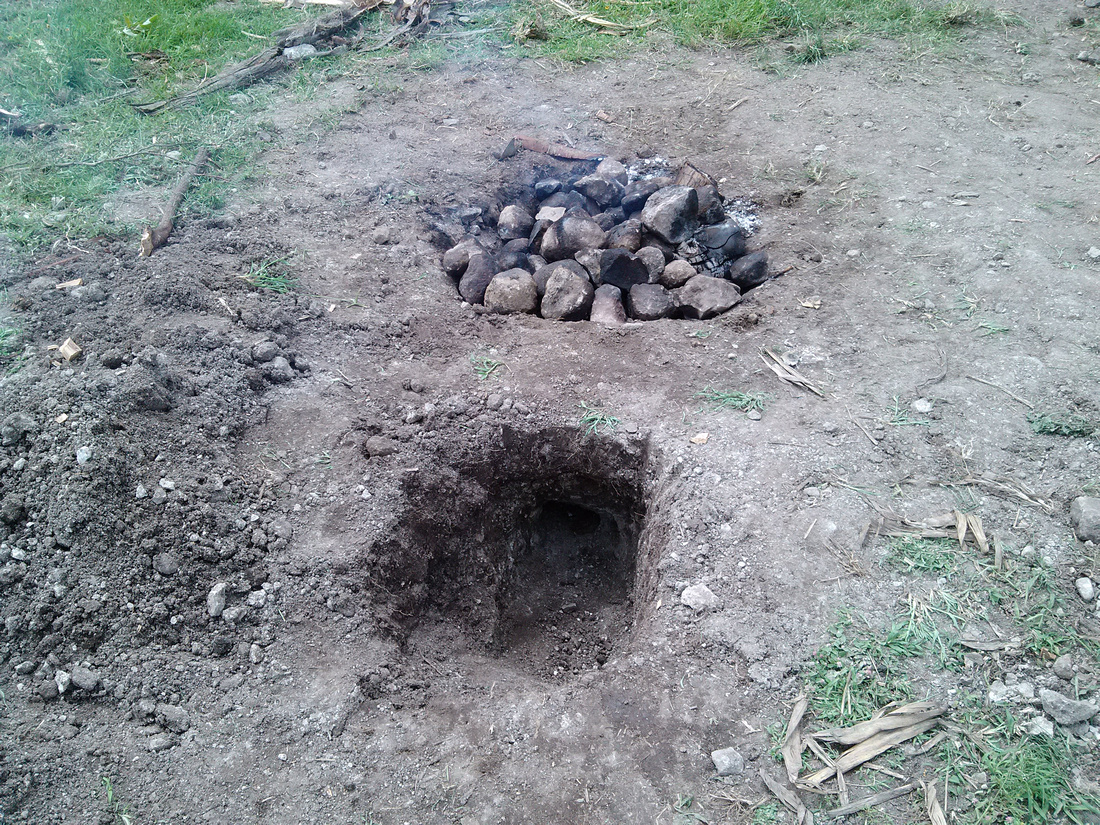

The goat is two hundred meters away. Most of these men belong to a hunting club so are permitted to legally own firearms. It took a few shots to kill the goat.
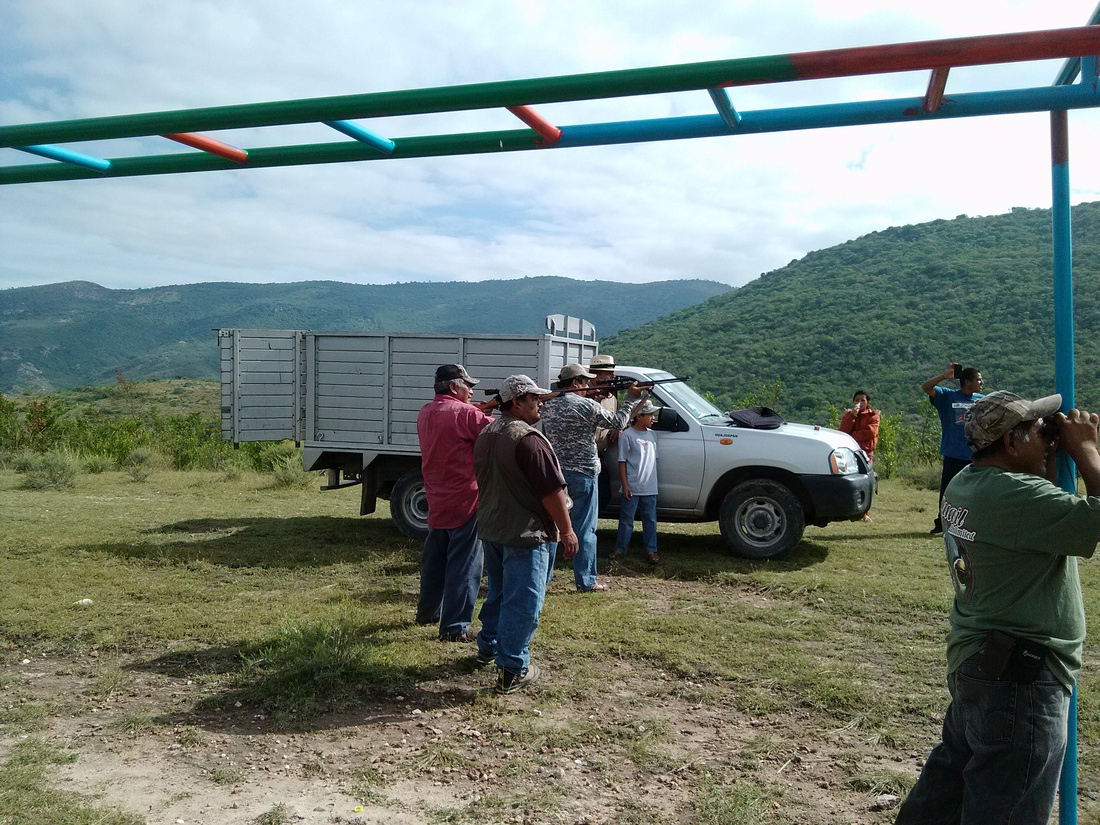

Skinning the goat.
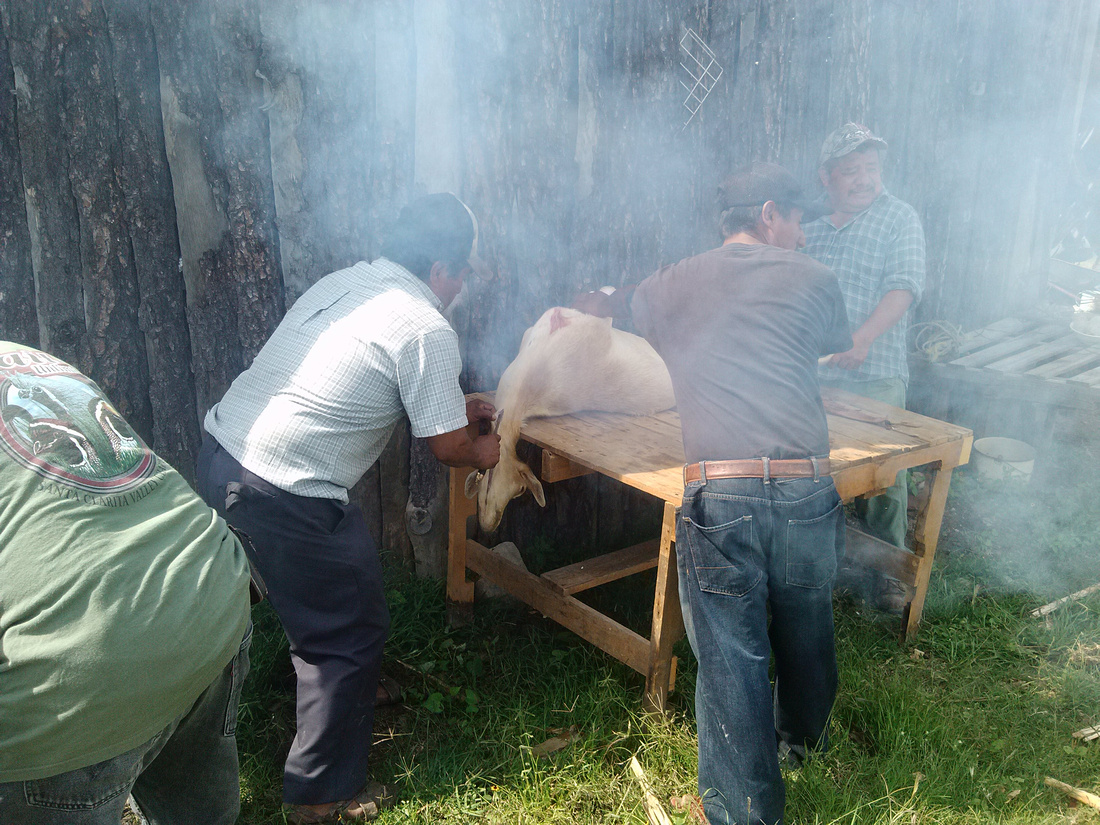

This tub was placed on the rocks. I'm not sure what the liquid was but it didn't look very appetizing.
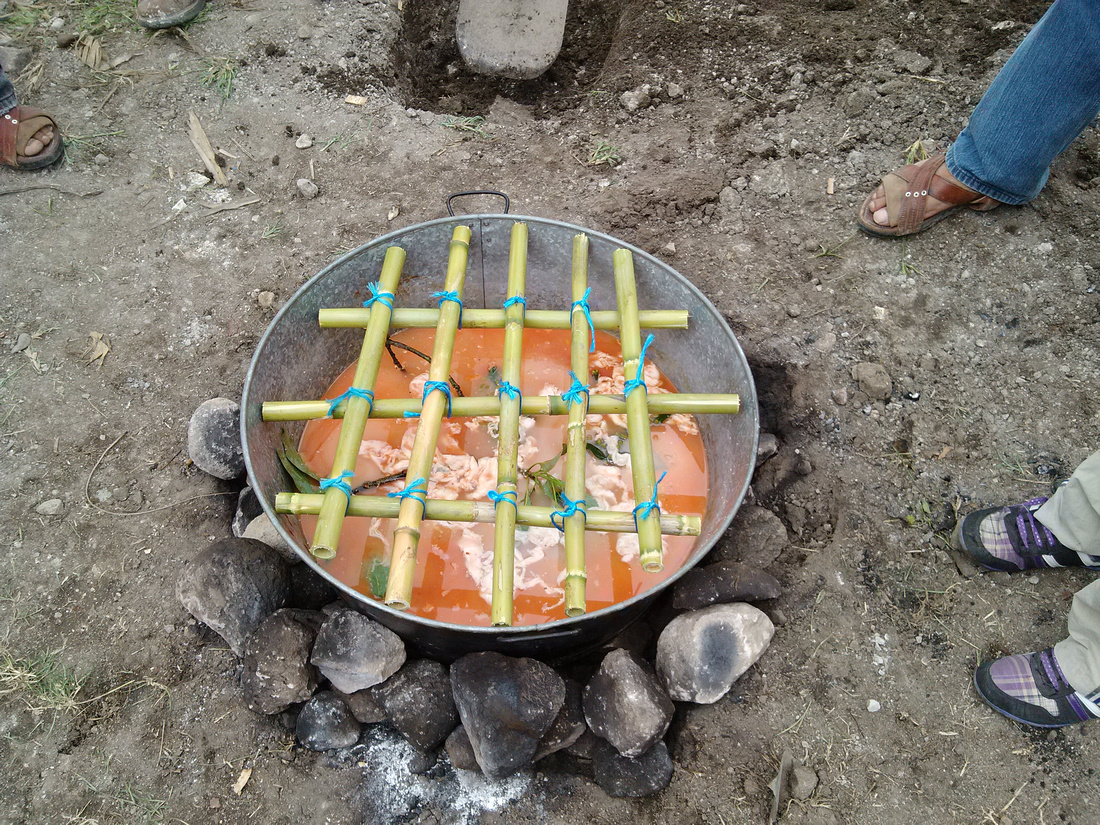

Meat was placed on the carrizo to be steamed by the boiling liquid.
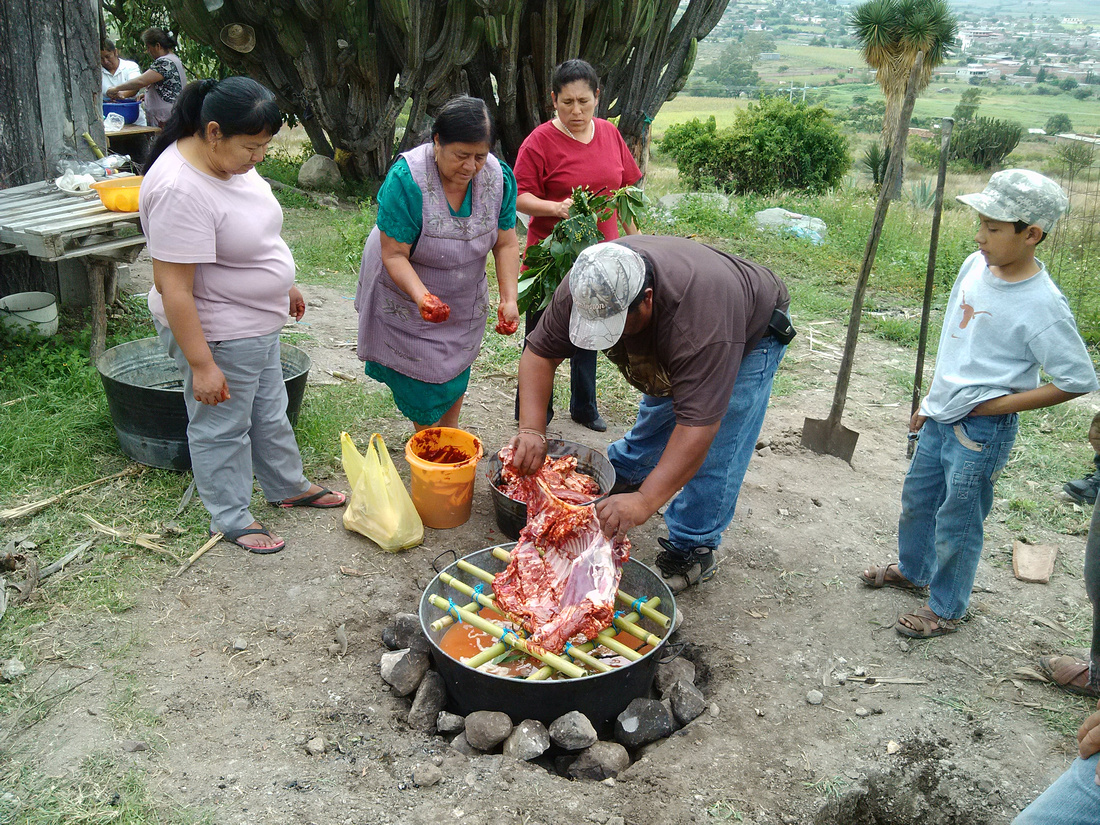

I believe the contents of the yellow bowl was fat from the goat.
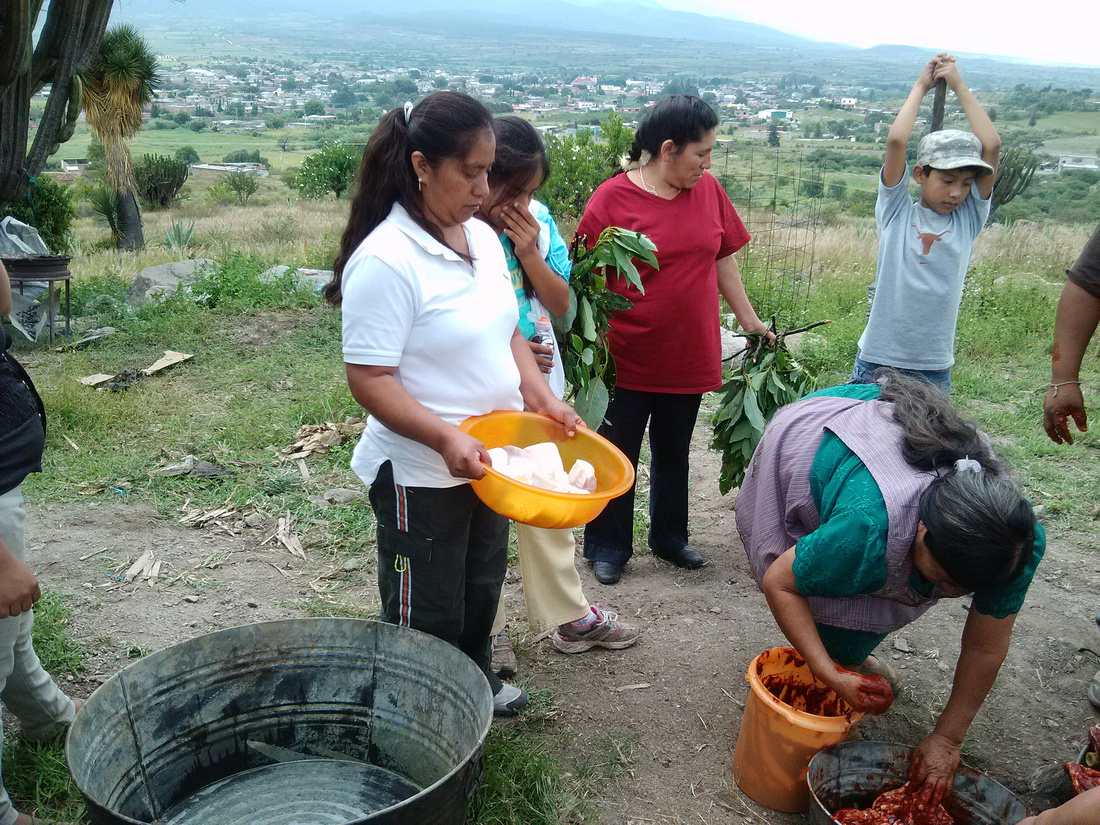

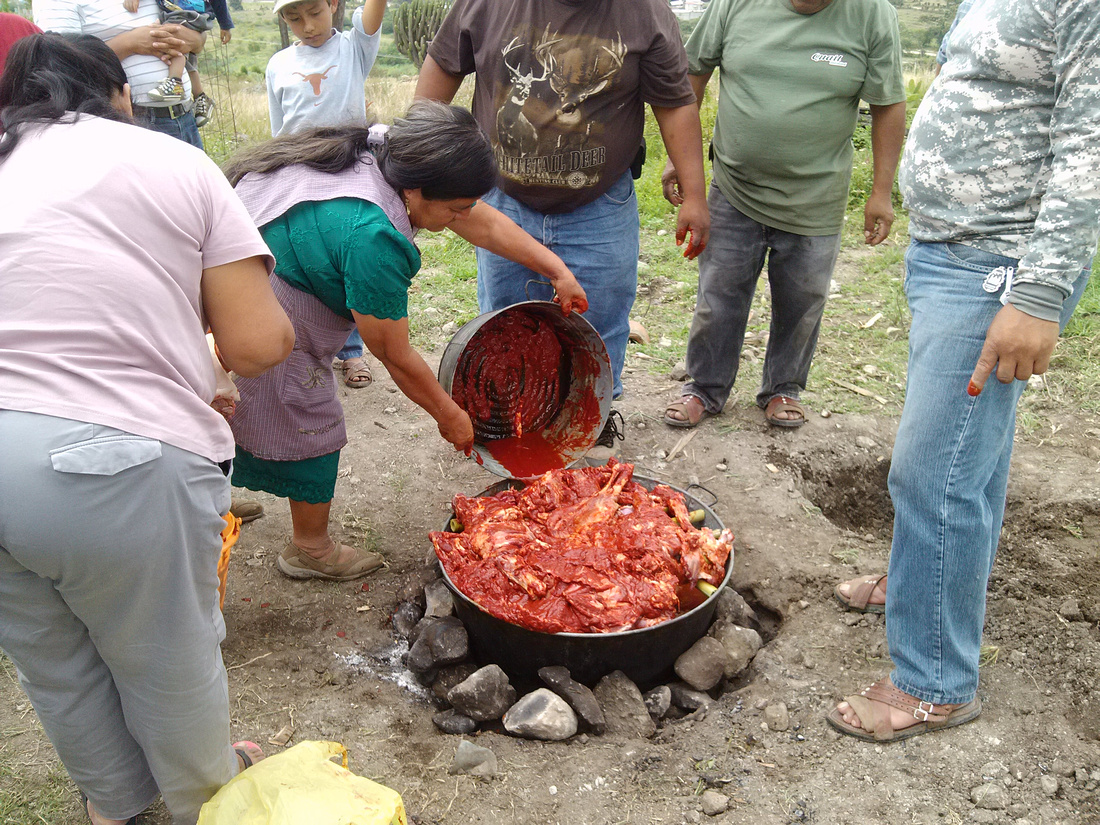

Cleaning the intestines.
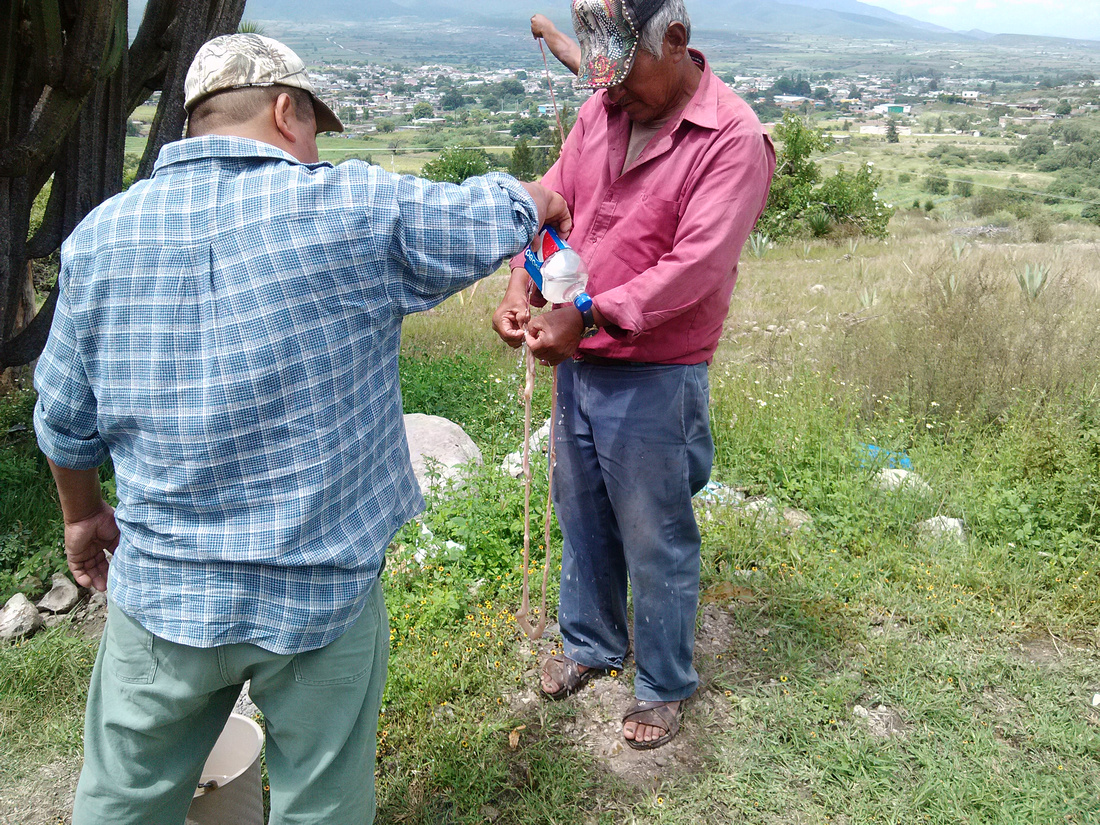

A consume is made from internal organs.
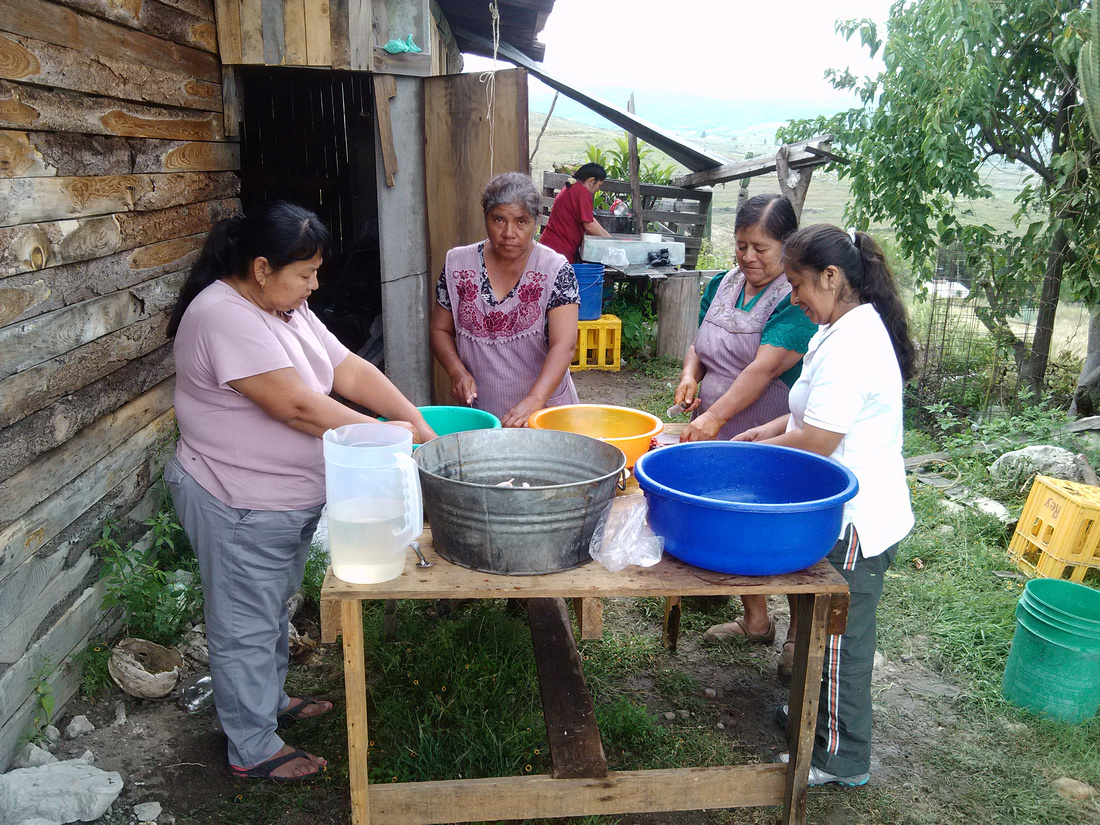

You could tell that everyone was familiar with the process. Everything was prepared very quickly. We left at this point, but I was told that it would take about four hours to cook. I believe I explained in another post that when we first arrived we tried to eat everything placed before us. That caused us a lot of stomach problems. As we've become closer to our friends, we've become a little pickier. If we are uncomfortable, we won't eat. Sometimes we feel uneasy sitting there munching on tortillas while everyone around us is eating. Eating meat that is freshly killed makes for a strong flavor. Not being accustomed to goat meat in the first place, the potent taste can be difficult.
Rainy season is petering out so we'll have to water our watermelons. I believe the ground is moist enough to bring corn crops to maturity. Beth and I continue to care for plants and trees. Brownie the dog that showed up about two months ago wandered off. We miss him and hope he is OK.
I've mentioned that our well water has a high content of alkaline. We are considering a reverse osmosis filter system. Beth purchased a Turmix juicer which is made here in Mexico. It's built with steel parts. Usually vendors who sell juice use the Turmix. The fast RPMs does a great job of extracting maximum liquid. After juicing the left over pulp is pretty dry and is a great addition to our compost. Not sure if the Turmix is available in the US, but we strongly recommend it. Beth has been experimenting with a variety of juices. We are fortunate that many fresh fruits and vegetables are available and of great quality.
Turmix Extractor


When Beth was in the States I ordered a Victorio Strainer and had it shipped to Micky's. We had one year's ago in Sedro Woolley. We processed and canned apples into applesauce, pumpkin into pie filling, blackberries and peaches into juice. Now that we are here with so much lovely fruit and veggies available, Beth had been dreaming of owning another. Beth packed her new one into her suitcase when she returned from Mick's. Last week we made a large batch of applesauce from local apples and froze it in small portions. No need to peel and core, nor to add sugar. We're excited to make pumpkin puree again from these calabasas.
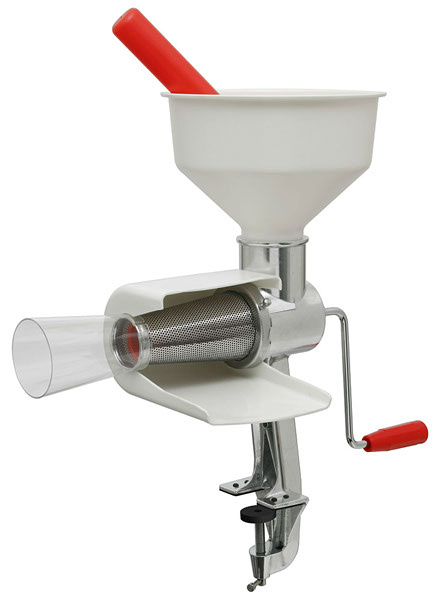

The Mormon church is growing rapidly here in the valley. Tlacolula just built a building. It seems like everywhere we go in Oaxaca de Juarez, a new church has been built and of course there is a Temple in the city. We see missionaries often. They stand out in their white shirts and ties. I've been a little critical of the rise of Christian Churches here in Mexico but a moral compass is sorely needed. For many these new churches provide one.
July/August 2014
It's rainy season again here in Oaxaca. Unlike last year we are seeing consistent rainfall. All of the farmers that depend solely on rain for their crops are content. In some fields corn has already reached four feet in height.
Numerous crops are grown here but corn and beans remain the staples. Several acquaintances here don't understand how Beth and I get by without growing corn and beans. The answer is that we don't eat a lot of tortillas and beans are inexpensive to buy. The black bean rules here in Oaxaca. Growing up eating pintos we prefer them. There is a bayo bean that is very similar to the pinto but holds together better when cooked. We eat bayos more often now than pintos.
We did plant a crop of peanuts and watermelons. The peanuts are growing very slowly but the watermelons are doing extremely well. We're hoping it stays warm long enough to allow the watermelons to grow and become sweet.
People walk around here hawking newspapers. Often the paper is unfolded so potential buyers can see the whole front page. The photos can be very explicit. Decapitations and car wreck victims are common. I'm reminded of the newspaper business in the 20s when headlines were shouted out by sellers.
While on the subject of selling. It's almost impossible to go to Oaxaca and not be approached by someone wanting to wash your windshield usually at a stoplight. I pay between 40 and 80 cents. Not sure what locals pay but if it's close to what I pay these guys do alright. I love watching them clean. They do a great job and very quickly. Some men work in pairs each taking a side then splitting the money. There are still people who put combustible liquids in their mouth then spray it on a lighted torch. I imagine all sorts of liquids are used and who knows what these fellows are doing to their insides. Jugglers sometimes dressed as clowns juggle at red lights then quickly go from window to window for tips.
So many scenes here reflect life from a hundred to two hundred years ago: men plowing their fields with bulls, old adobe structures, women carrying their cargo on the top of their heads, and countless other images. A profound contrast to this old world is the cell phone industry. Everybody seems have one. There are stores everywhere that sell phones and saldo. I can also purchase saldo now over the internet. Not sure if I related the story of being in Mitla and walking past a woman talking on her cell phone. As I passed her I noticed that she was speaking Zapotec. It struck me as odd. She was speaking in a language from the past on the latest technology. The contrast between past and present is also obvious when I see women from one of the outlying pueblos dressed in traditional clothing talking on a cell.
A friend of ours from Union Zapata passed into the US a couple of months ago with his wife and kids. It's his second trip. He crossed over several years ago and made America his home for over ten years. In the states he married, had two children, bought a nice truck, and saved enough money to build a home and small store here in Oaxaca. Things didn't go well when he returned to Mexico. I think our friend wasn't ready to fit back into life here in Mexico. It was very difficult to make the adjustments needed to survive here. The decision to return to America was a tough one. His parents are getting older and there is the distinct possibility they won't be around when he returns to Mexico. He called me from the States yesterday. I could tell from his voice that he was relaxed and happy. The family crossed the border with a few clothes and nothing more. He was proud telling me that he'd gotten his old job back. His boss had allowed him to live in a house until rent could be paid. He told me quite enthusiastically how they were beginning to acquire a few things for their home. They'd recently just bought a car. His wife has found work in the evening and their son (from a previous marriage) also has found work. The family is living the American dream. He is a very hard worker. Their goal is to work a few years in the States then return to their country and take another stab at making it here. I think of them as a poster family for immigration. They started with nothing but understand that with work and determination their dreams will come true. I saw this photo posted on Facebook and thought of our friend when I saw it. Basically it says, what is important is the will to overcome. I can't help but wonder why this philosophy is lost on so many Americans.

A new Walmart Superstore is being built on the east side of Oaxaca. This is great news for us as we won't actually have to enter Oaxaca to shop. Beth and I read and hear about how terrible Walmart is. They don't pay enough, they treat their employees badly and so on. We've always liked Walmart. They offer goods at a low price and provide work for unskilled people. I doubt you'd hear people complaining about Walmart here. Workers are thankful to be employed and prices are very competitive.
Beth and I tried to go to Sam's Club the other day but couldn't enter the store. The teachers were protesting and had blocked off the entrance. The store finally closed its doors probably to avoid any conflict. As I've said before I think the teachers are very selfish. It's summer now but we've heard that many villages are going to refuse teachers who miss school to participate in protests. In the past teachers would miss weeks protesting. Schools were closed and teachers still received their pay. The sacrifices parents make here to send their children to school is much different than in the US especially at the high school level. Books must be purchased, no free lunches, parents pay for transportation, and parents buy school uniforms. Many schools don't have a custodial staff. Parents clean the schools in the evenings. When a child graduates from high school here it is truly something to be celebrated. I had the opportunity to talk to a husband and wife who are both teachers. They told me that causing disruptions is the only way they know to get the attention of the Government. While I was sympathetic to their complaints I am still wary of their methods.
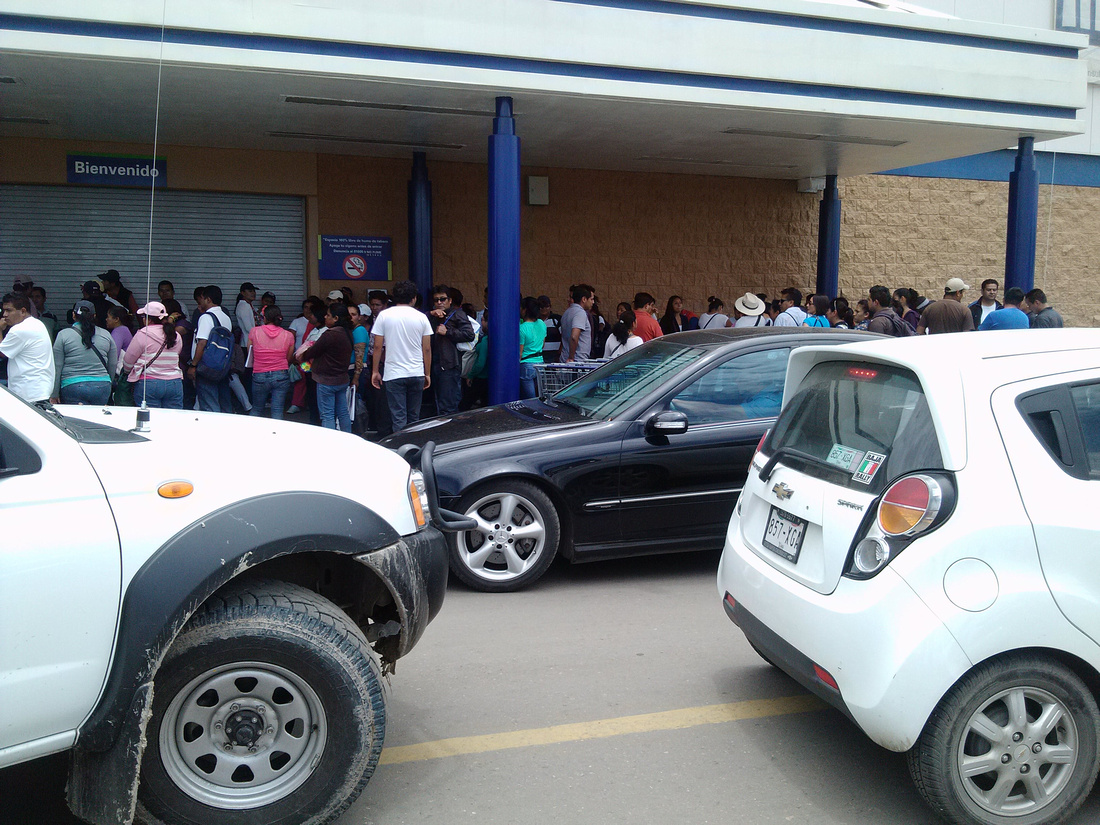

I've mentioned Cuajimoloya before. It's a little village about an hour and a half off the freeway towards Veracruz. We have a history there. Back in '94 we attempted to buy property. The seller was willing but the town was not. We drove up there again the other day.
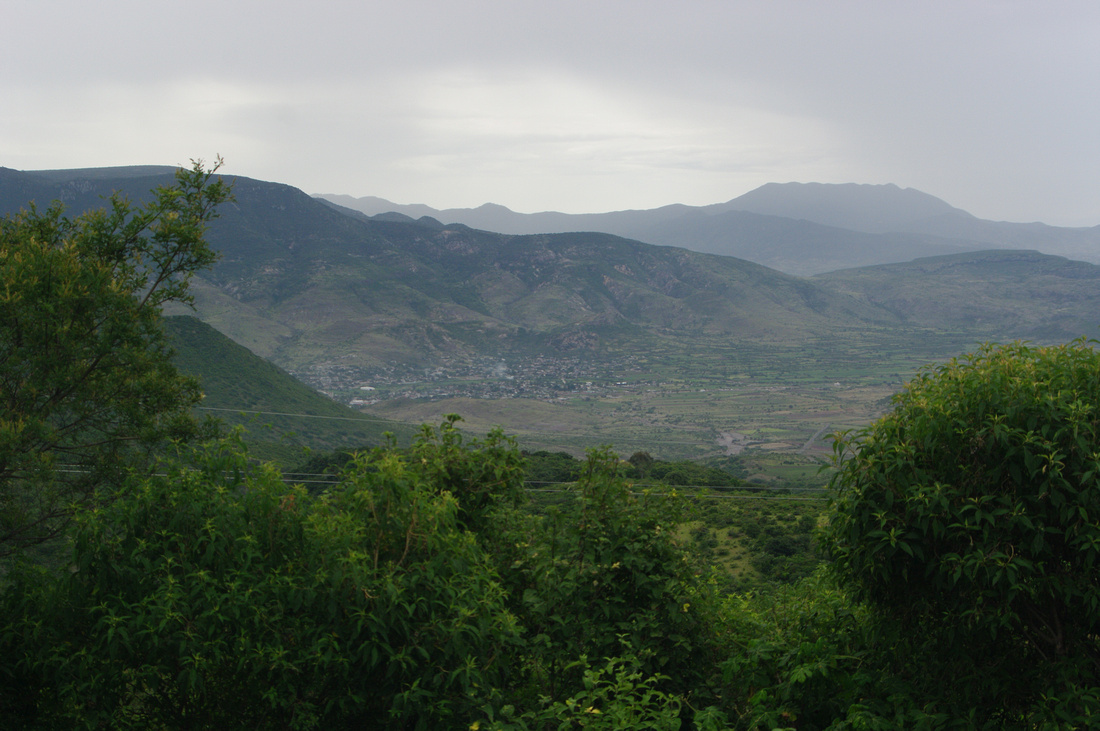

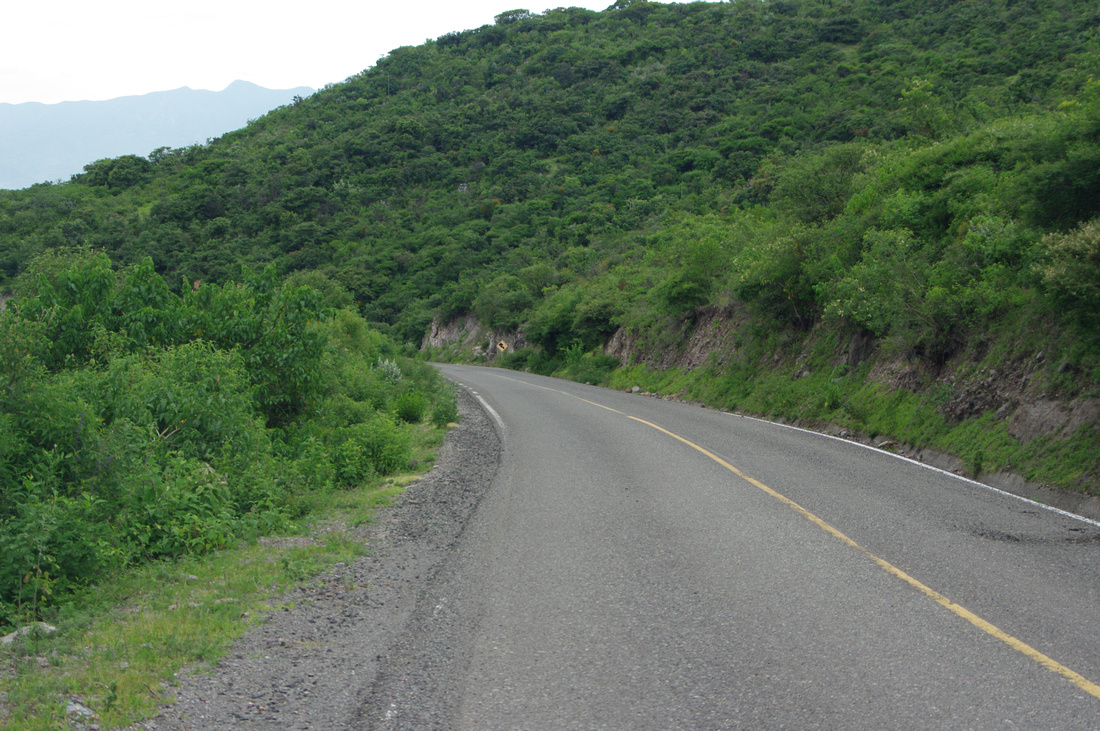

Many of the valleys here are gorgeous.
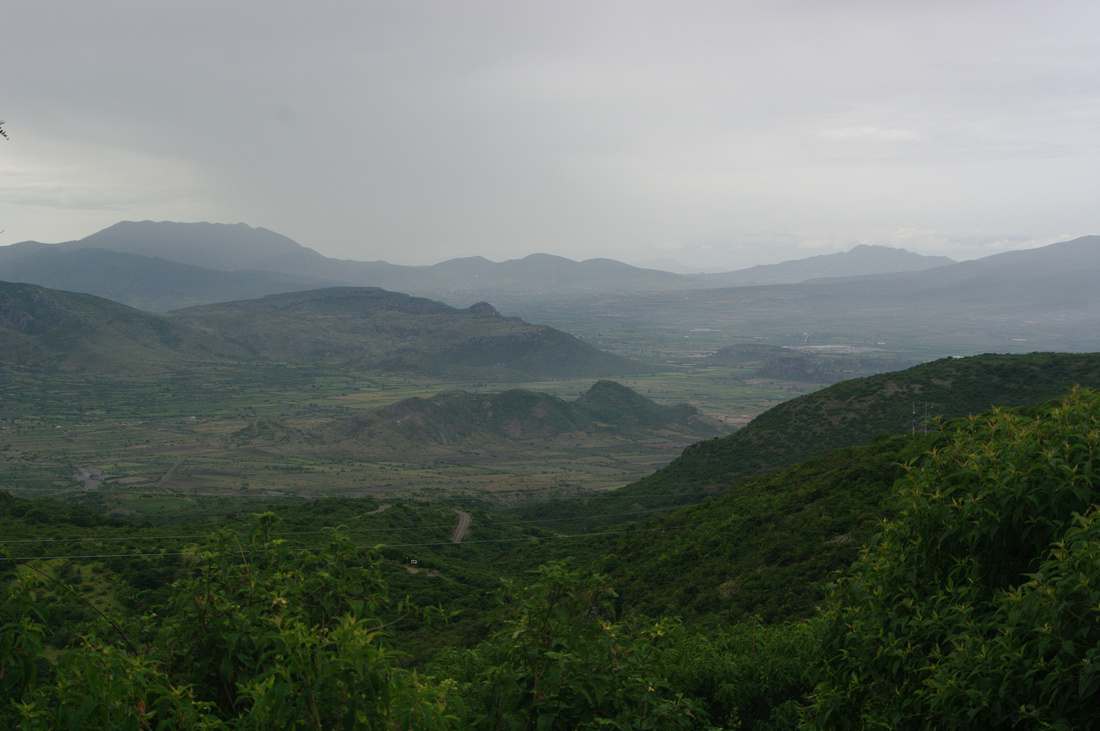

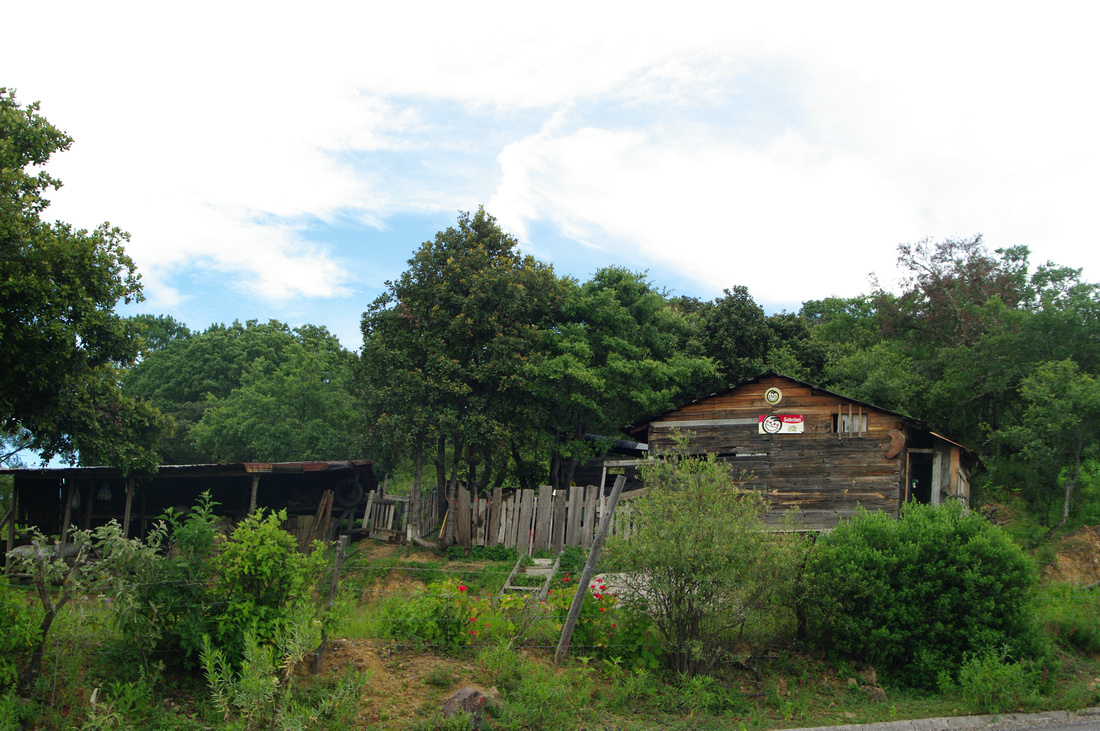

We took Brownie who showed up at our house one day and decided to stay (we feed him well).
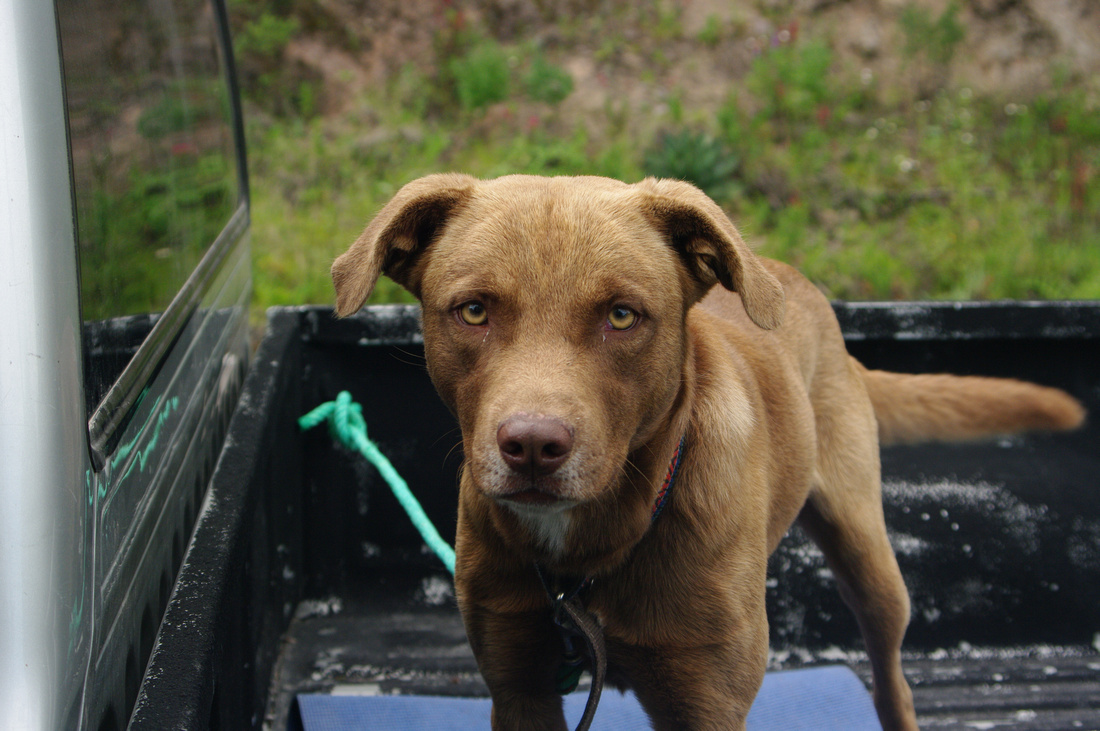

The entrance to Cuajimoloya. It must me about nine thousand feet elevation.
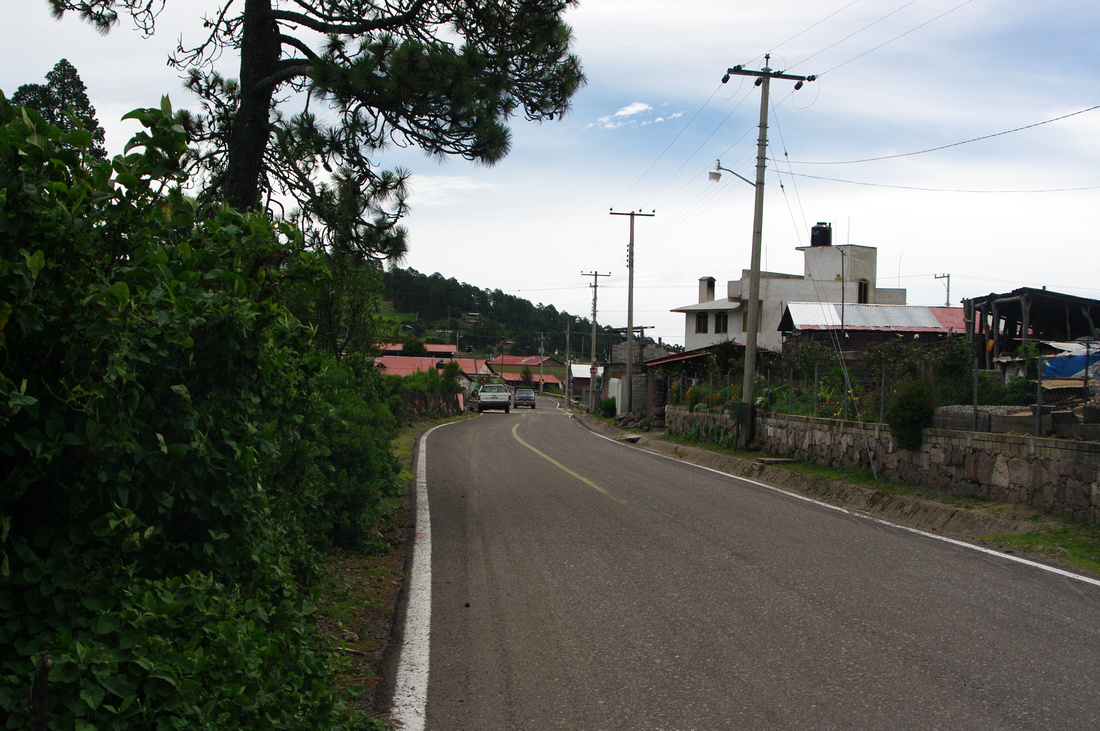

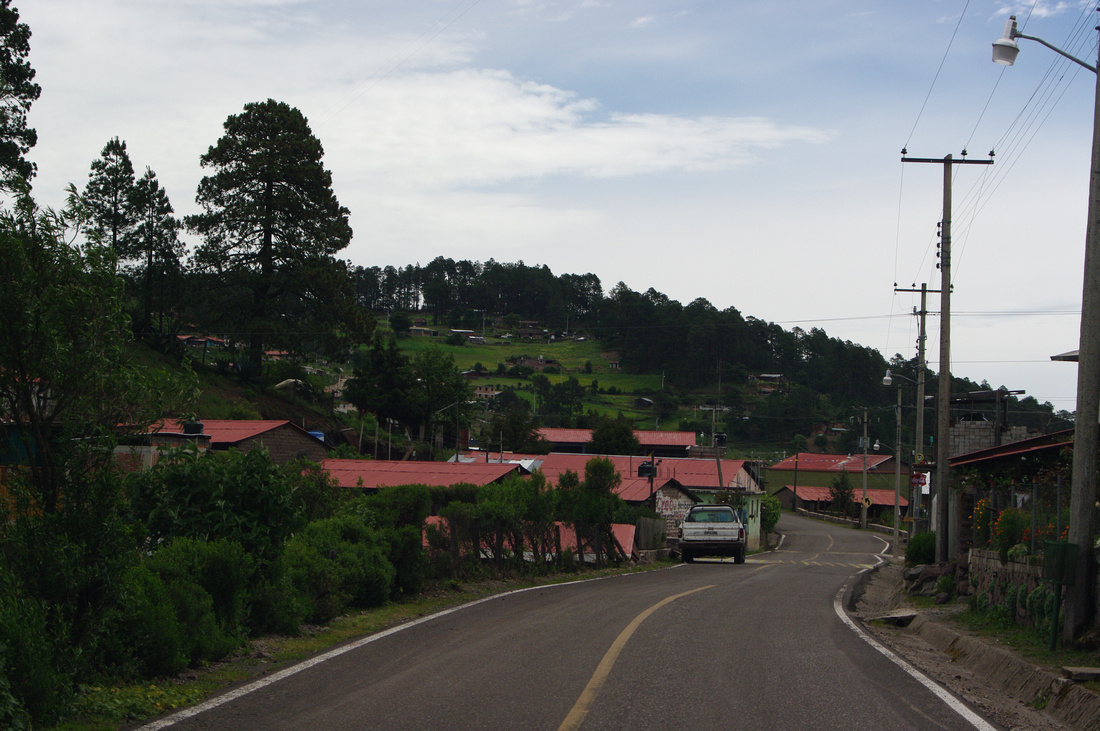

I wouldn't expect this hotel to cost more than twenty dollars a night.
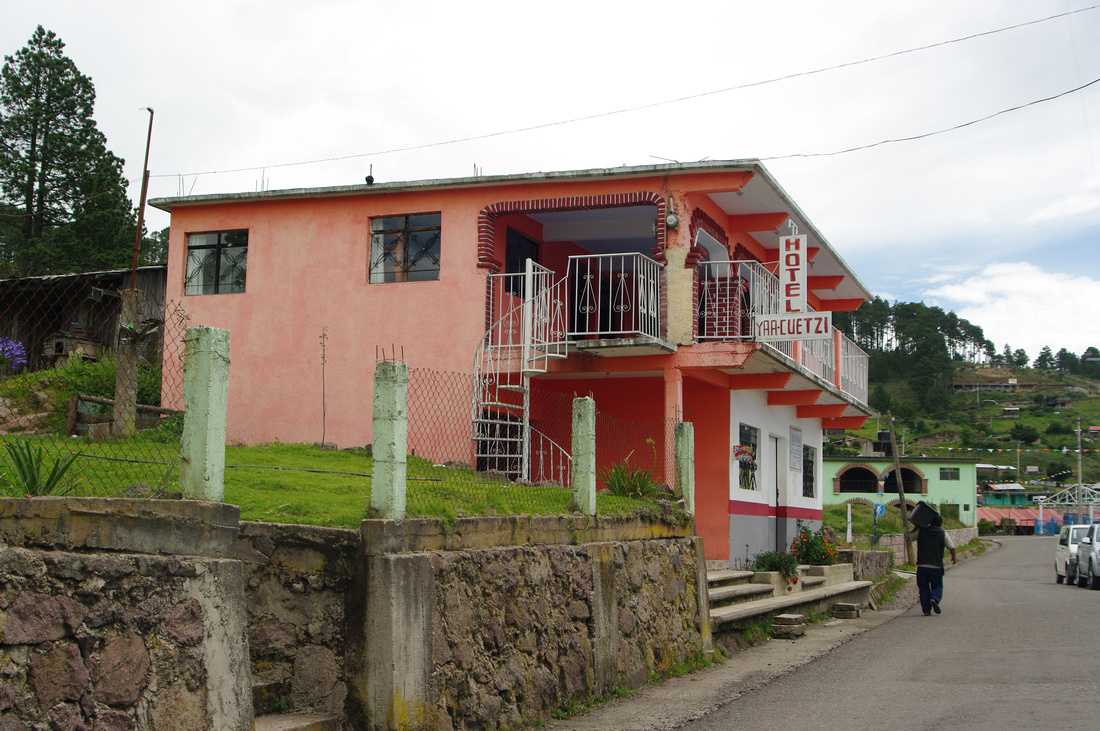

The villages in the mountains are very different than the villages in the lowlands. The most obvious difference is the use of lumber which is very rare in the lowlands. I've always felt like life in the mountains is a slower paced life whether Zapotec or Mixe. Cuajimoloya is part of an Eco-tourism program here in Oaxaca. The influx of tourists has certainly seemed to help economically and I suspect tourism is responsible for a more progressive attitude.
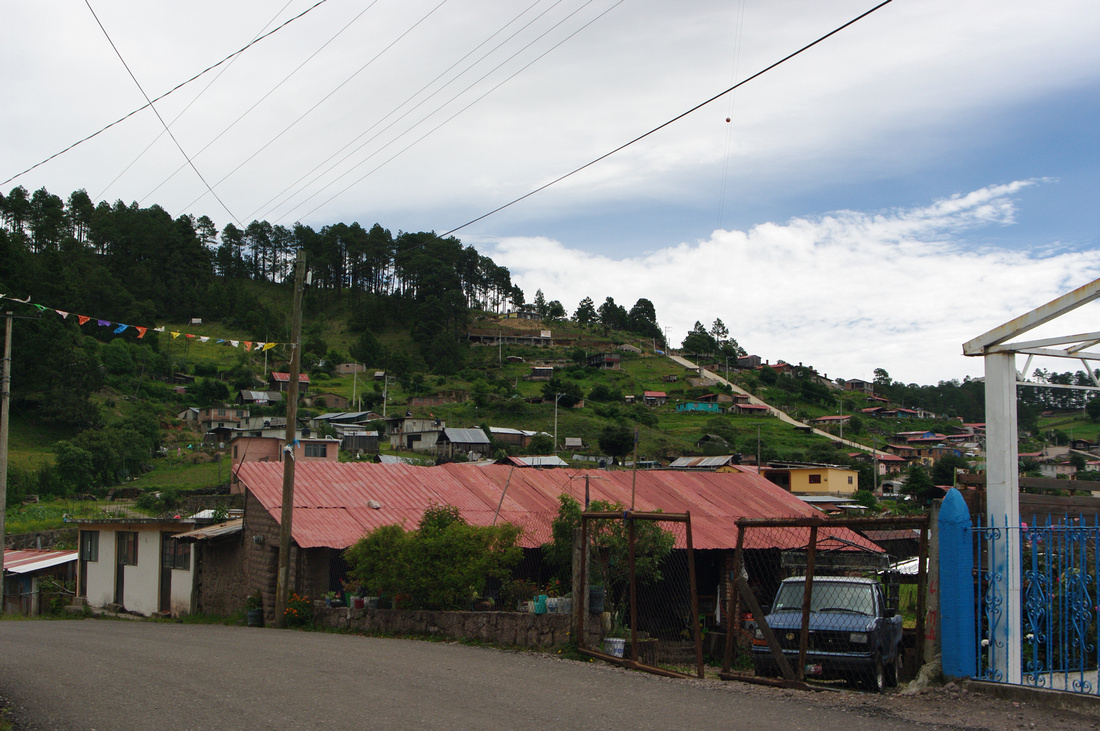

I don't believe I've ever been to a town that didn't have a Catholic church. The surrounding area where we live is not religiously diverse. Almost everyone is Catholic. I can think of a few towns that have churches of other denominations but they are rare. There are Evangelical Churches, Seventh-Day Adventists, and Christian Churches. The Mormons have a new church in Tlacolula and we've seen several Mormon Churches in Oaxaca de Juarez which even has a Mormon Temple.
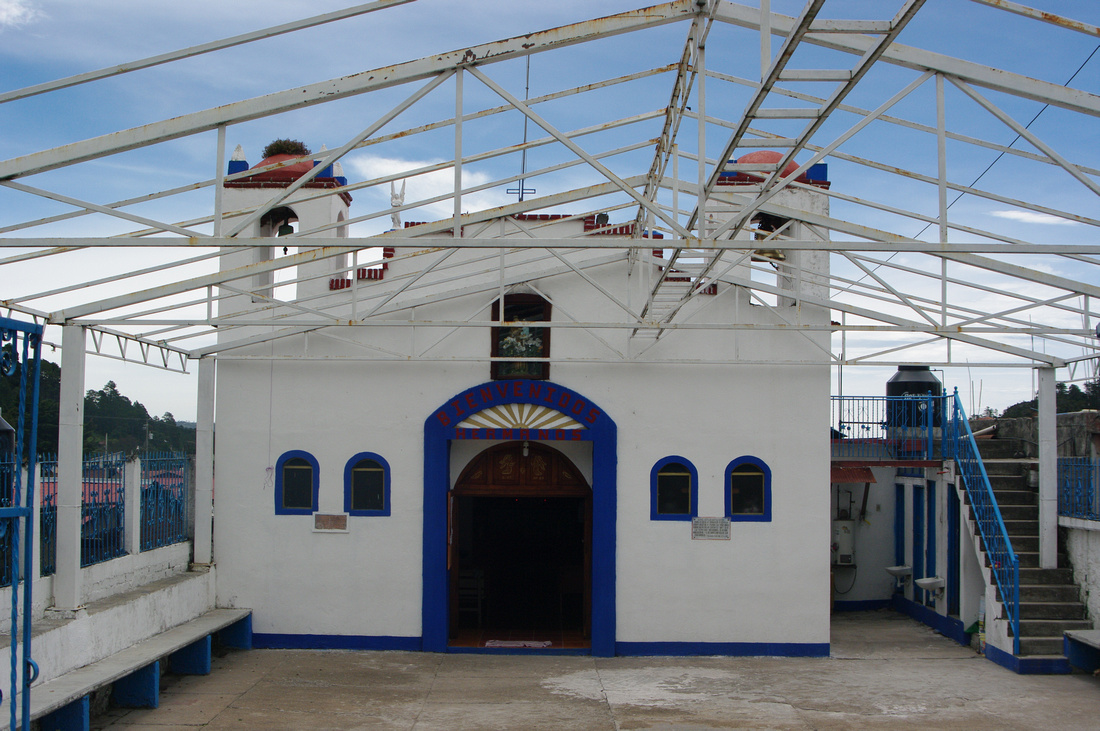

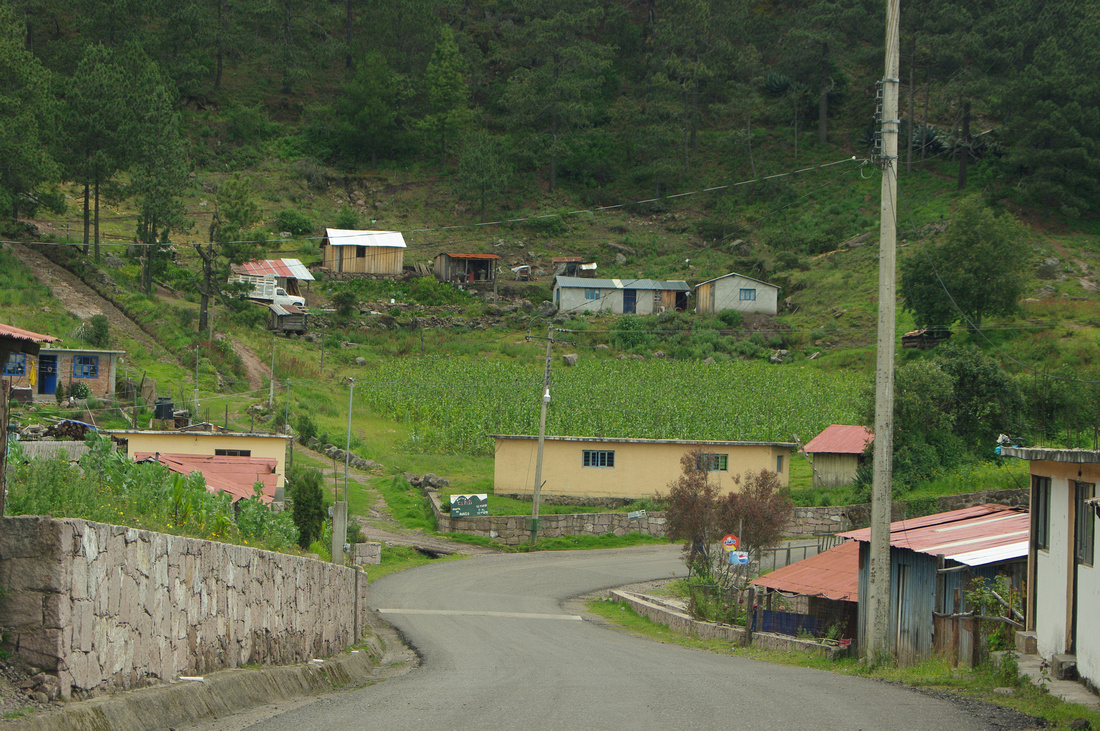

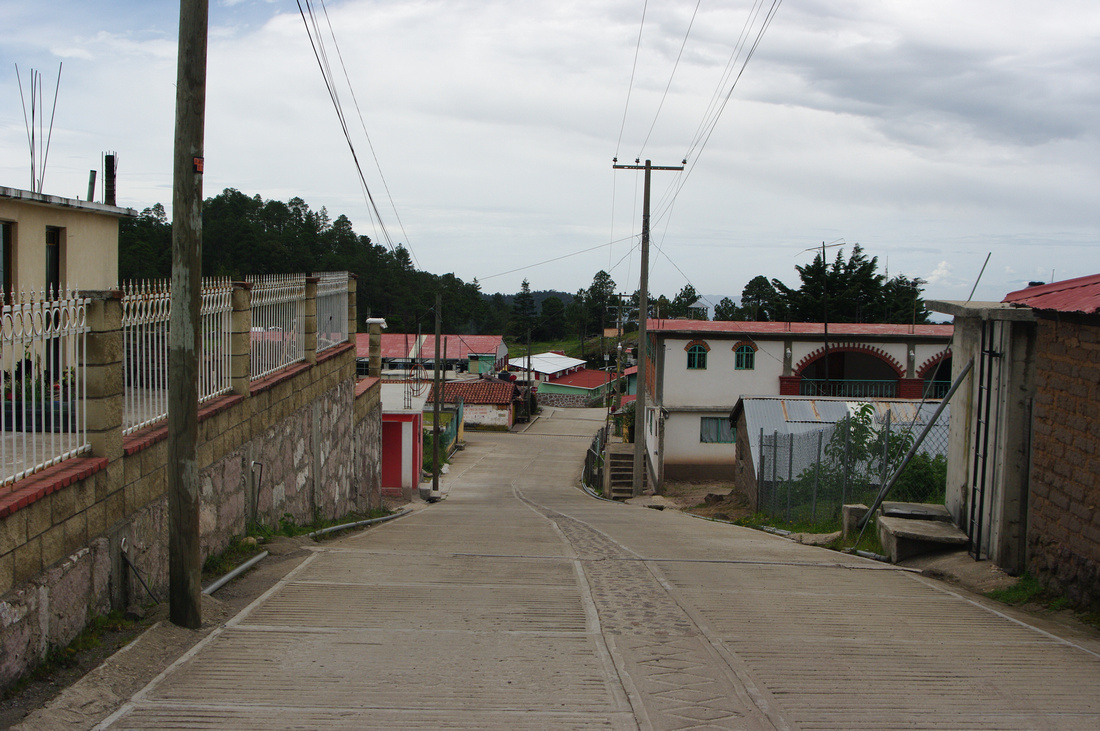

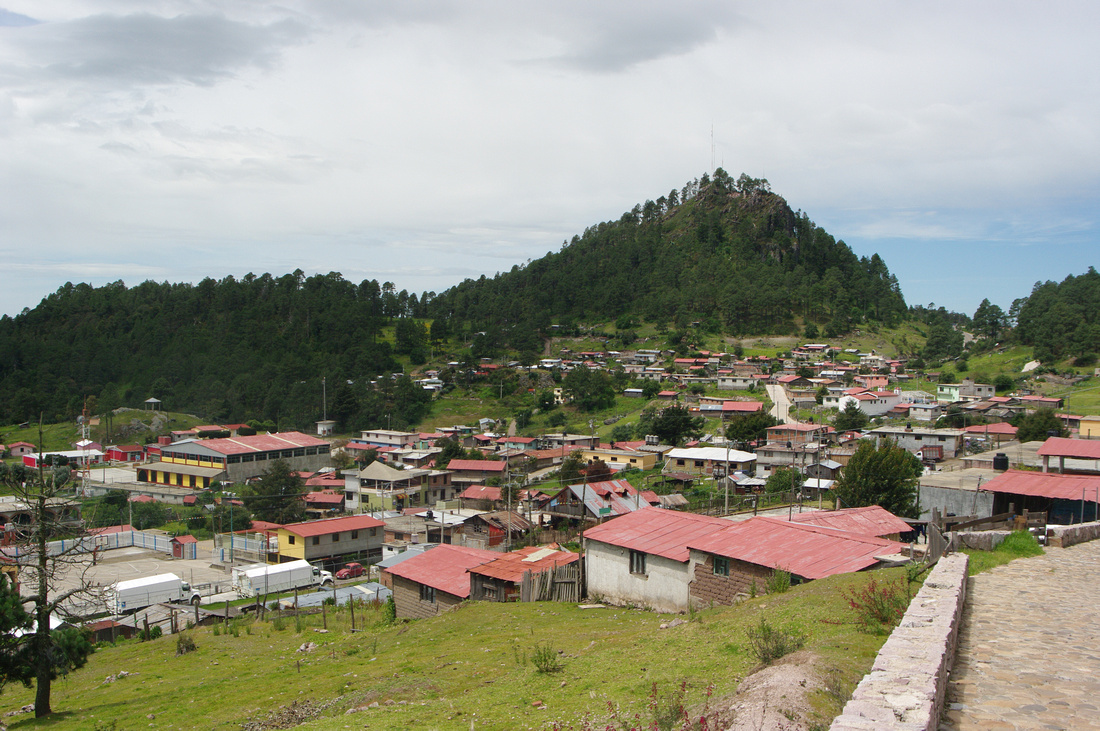

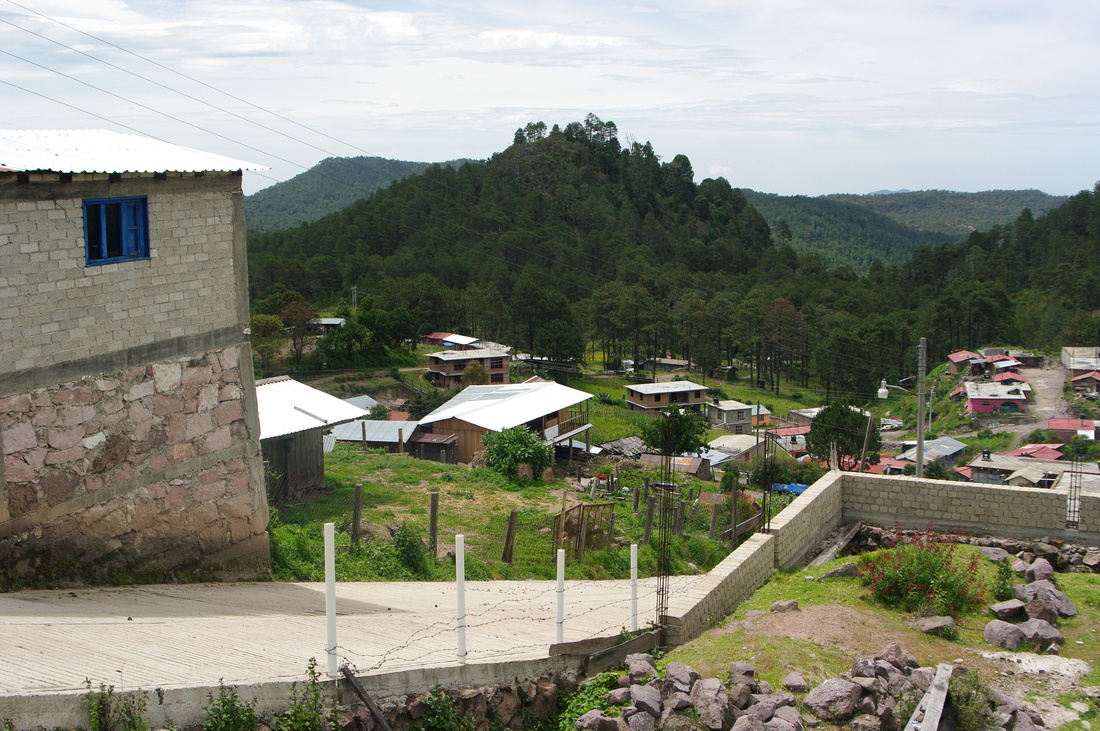

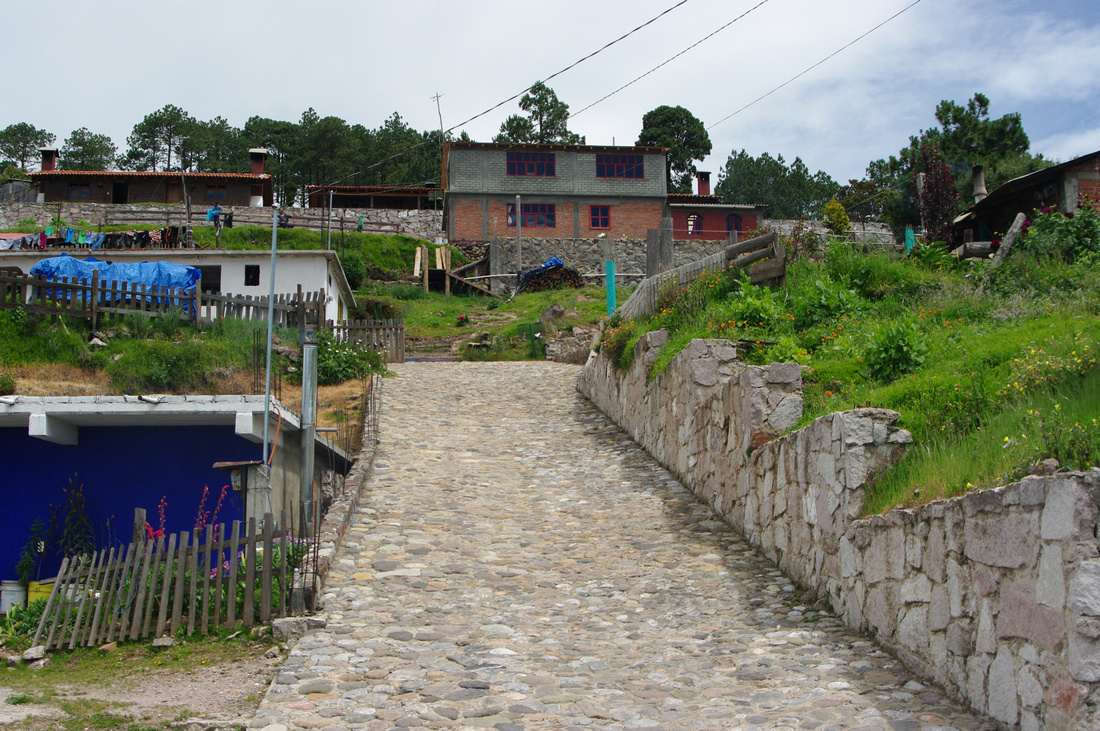

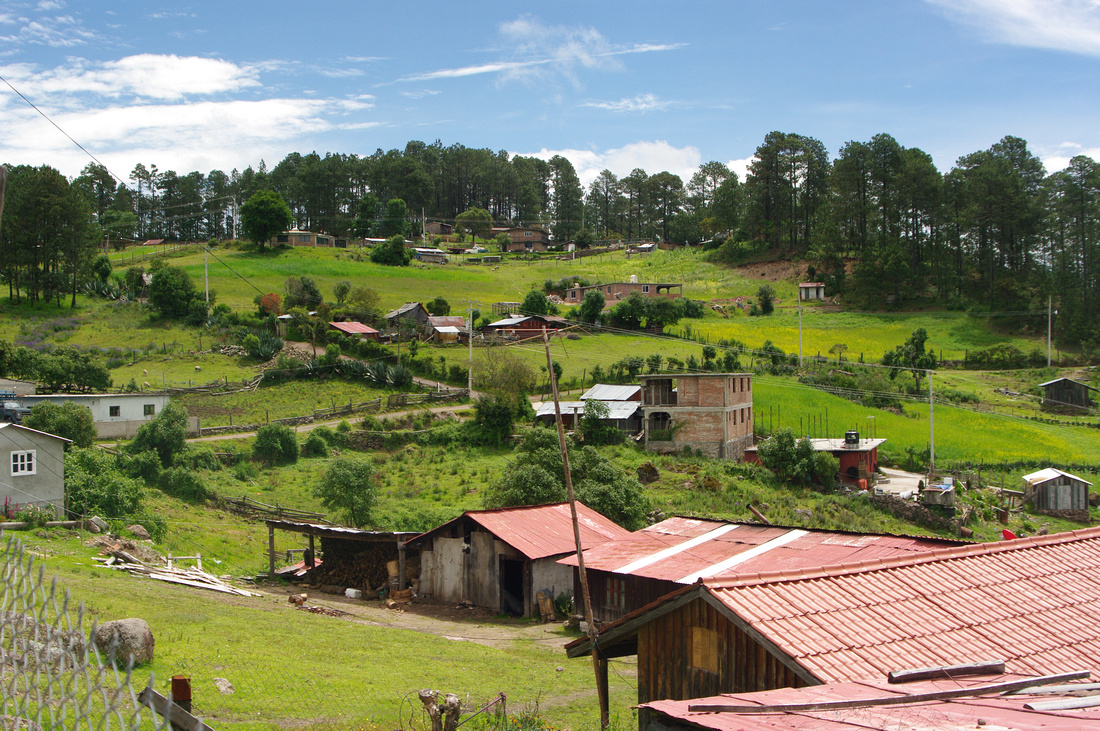

Cuajimoloya has some of the friendliest people we've ever encountered. It's changed a lot since '94. It's much more progressive now.
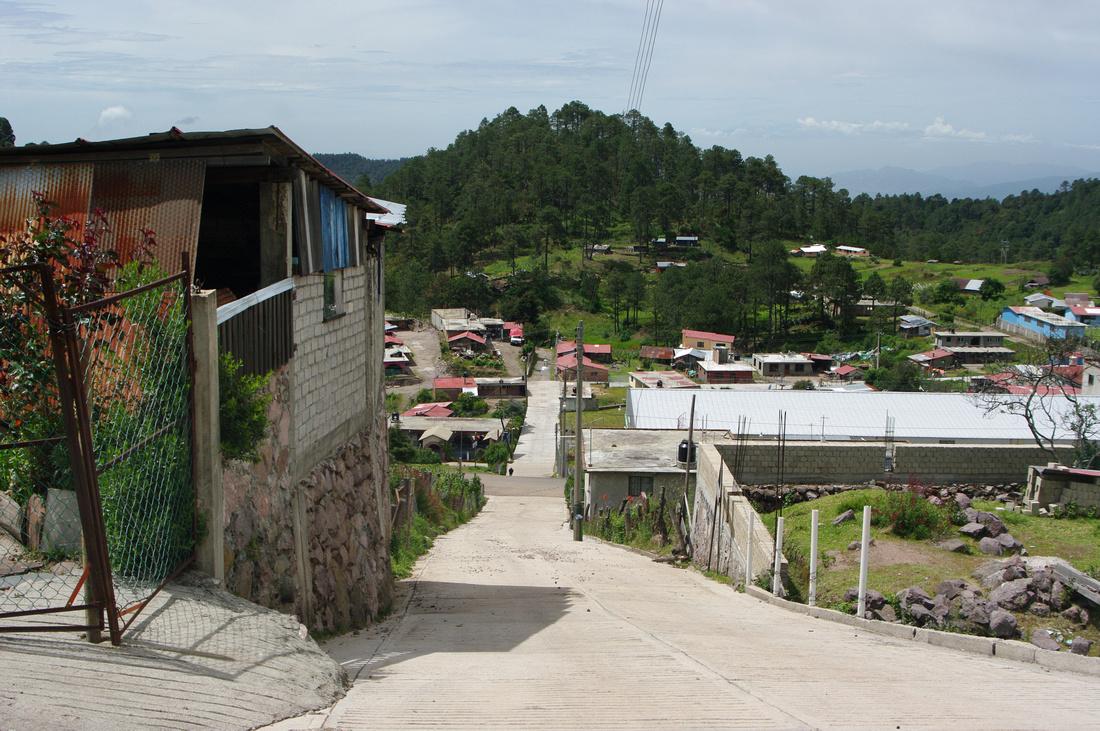

Those are pretty big Maguey plants.
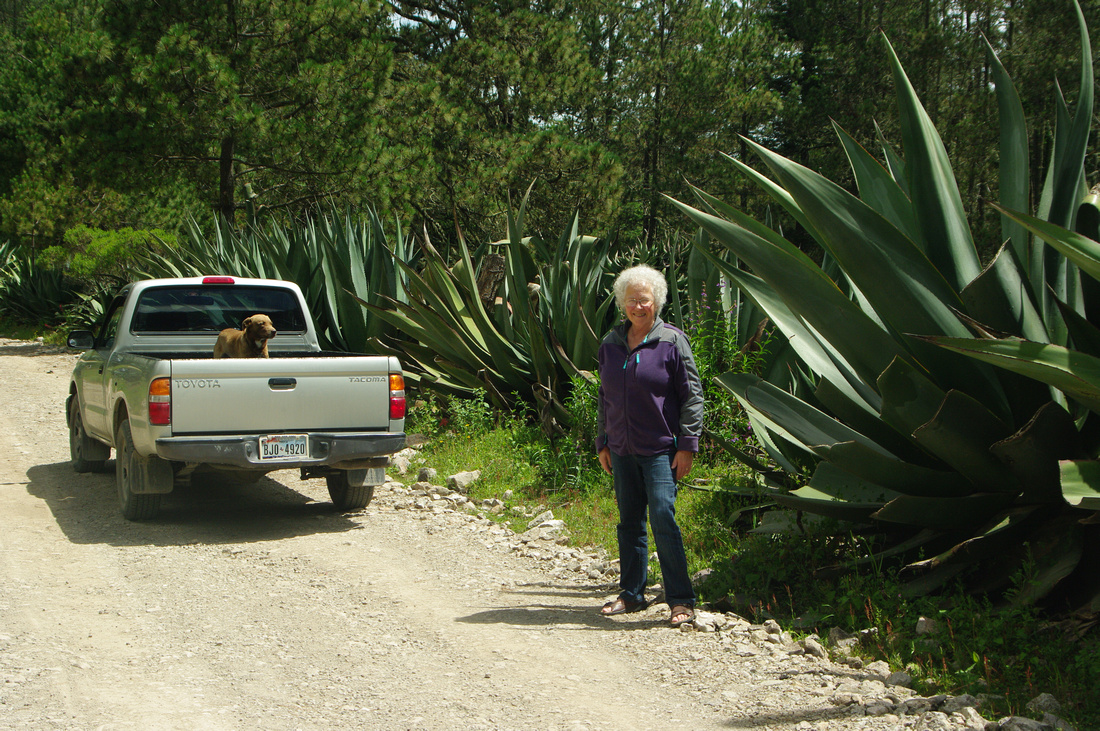

This old cabin reminded me of the mountain men in the early west.
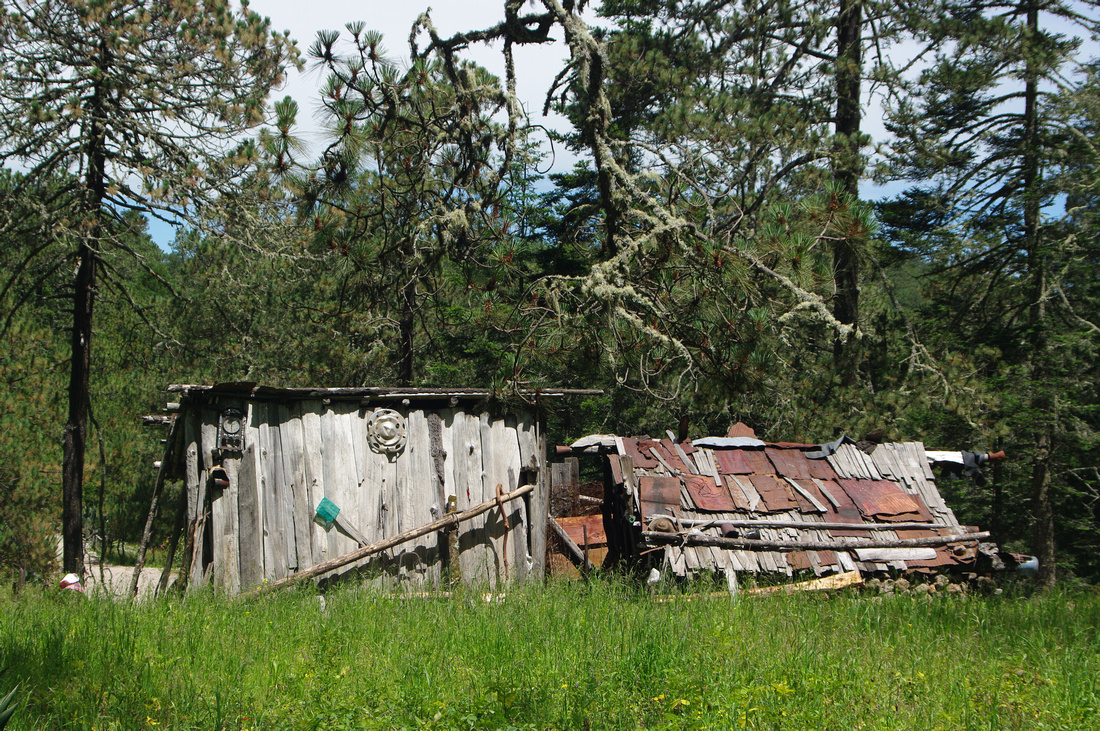

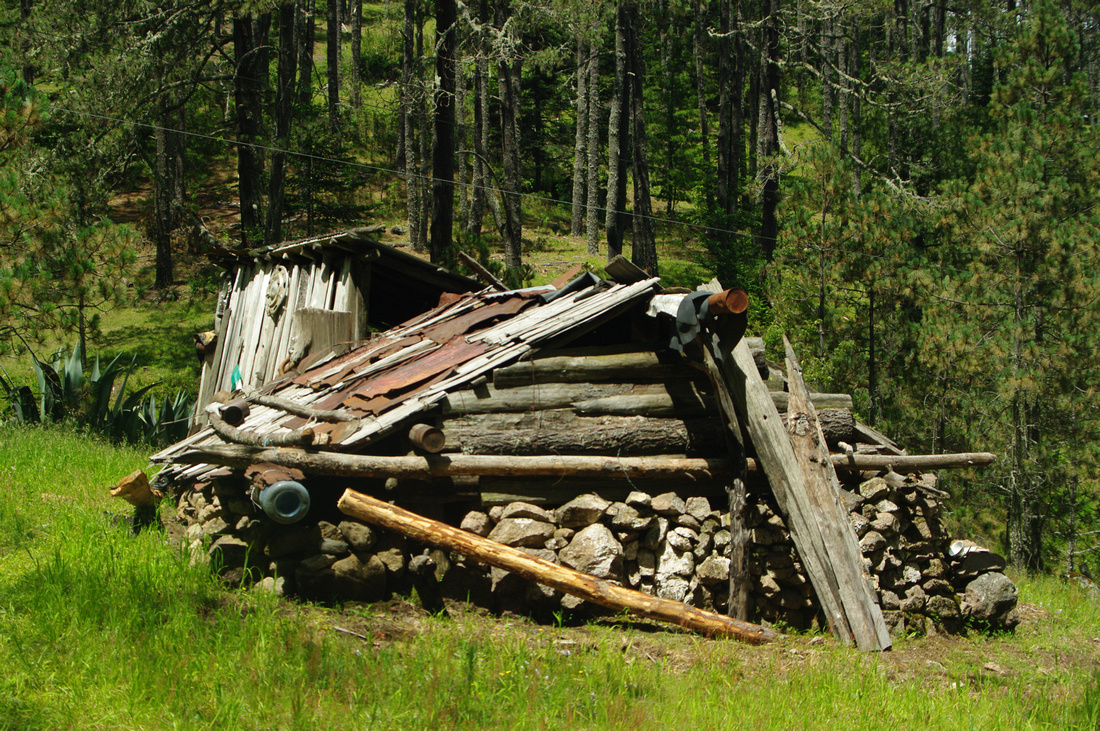

Picturesque scenery is everywhere.
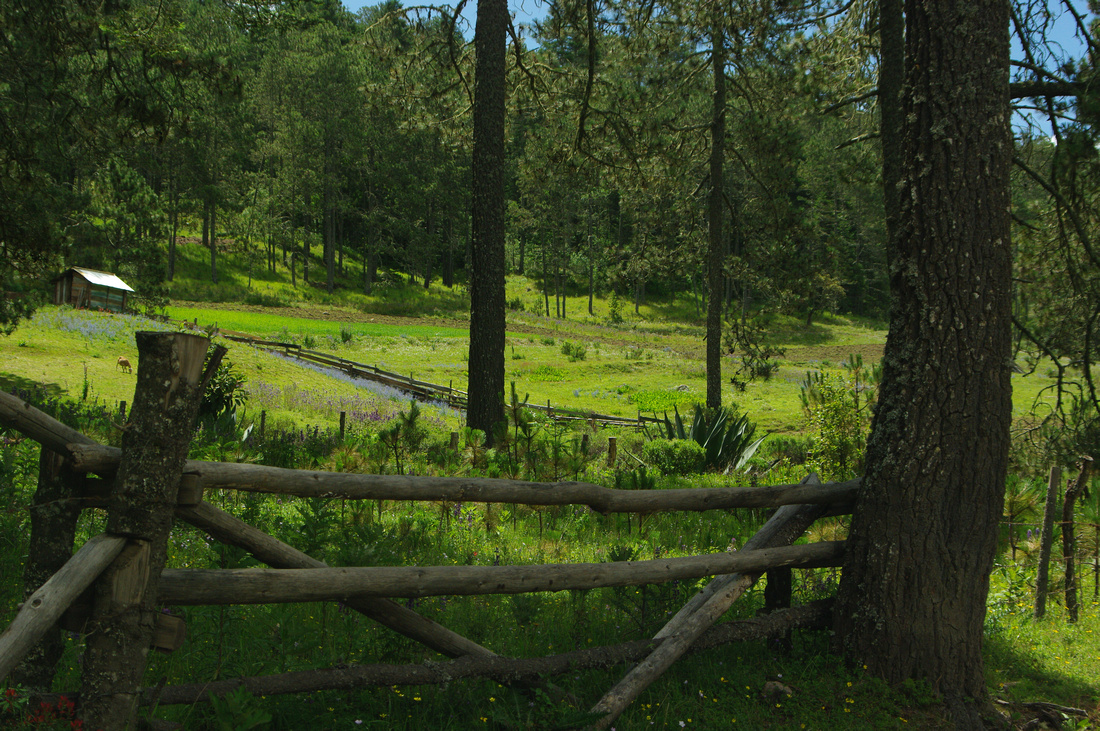

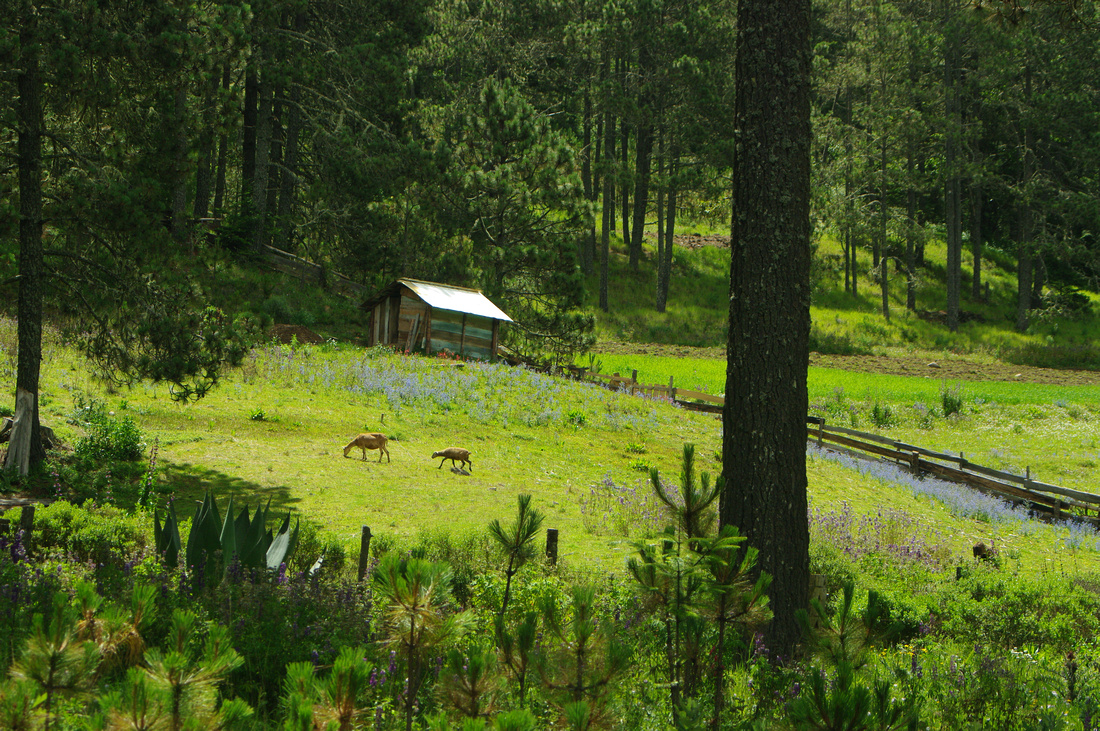

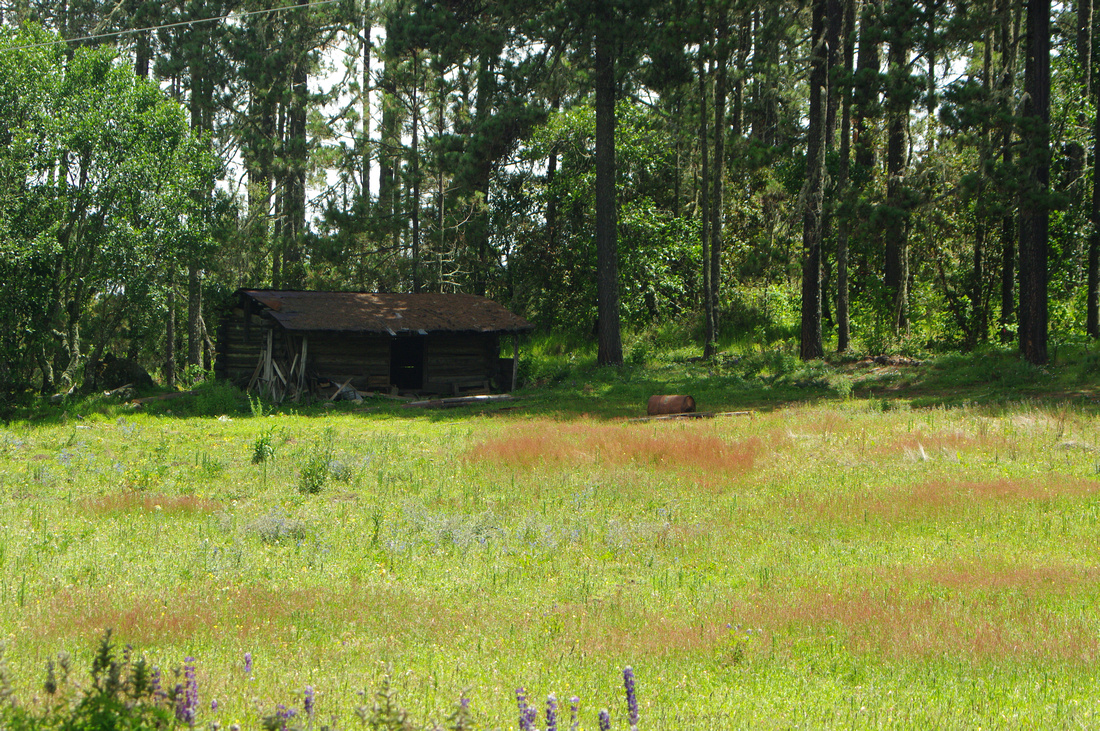

There are cabin rentals with power and water.
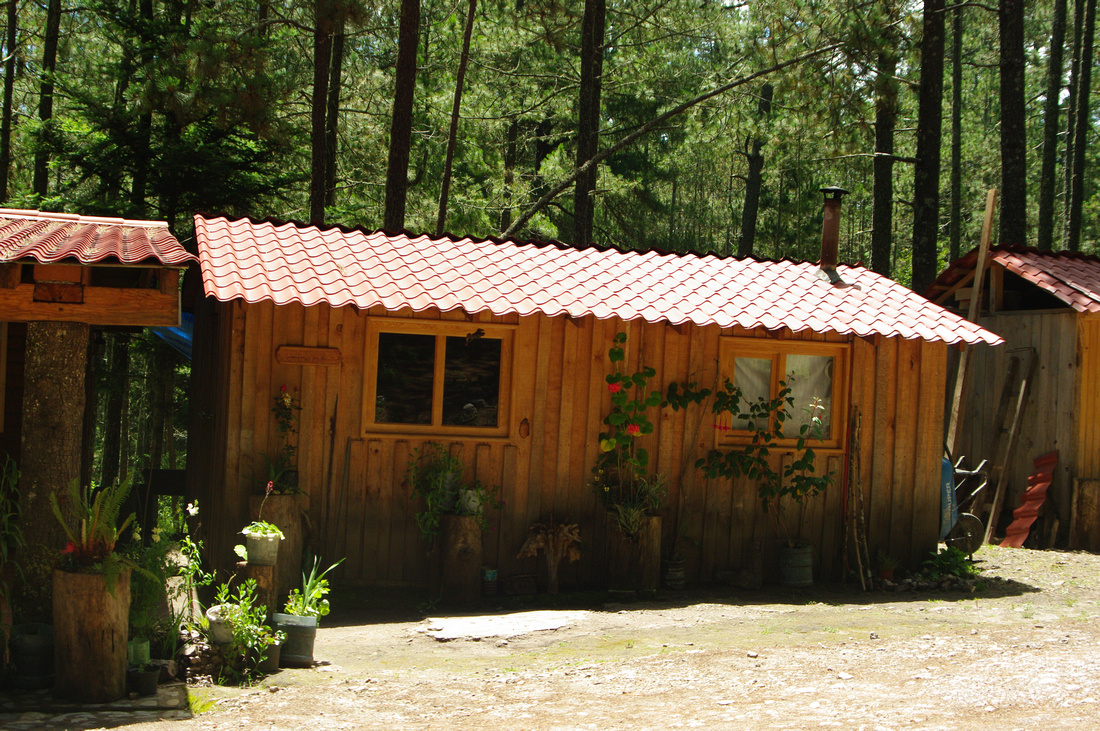

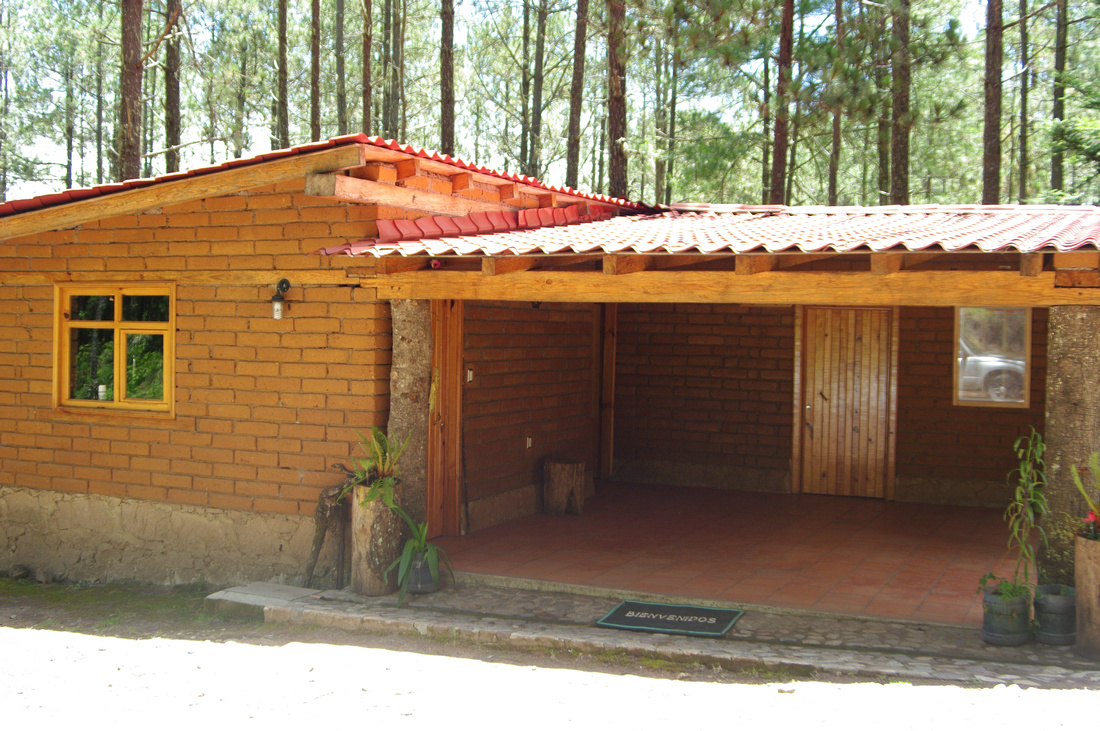

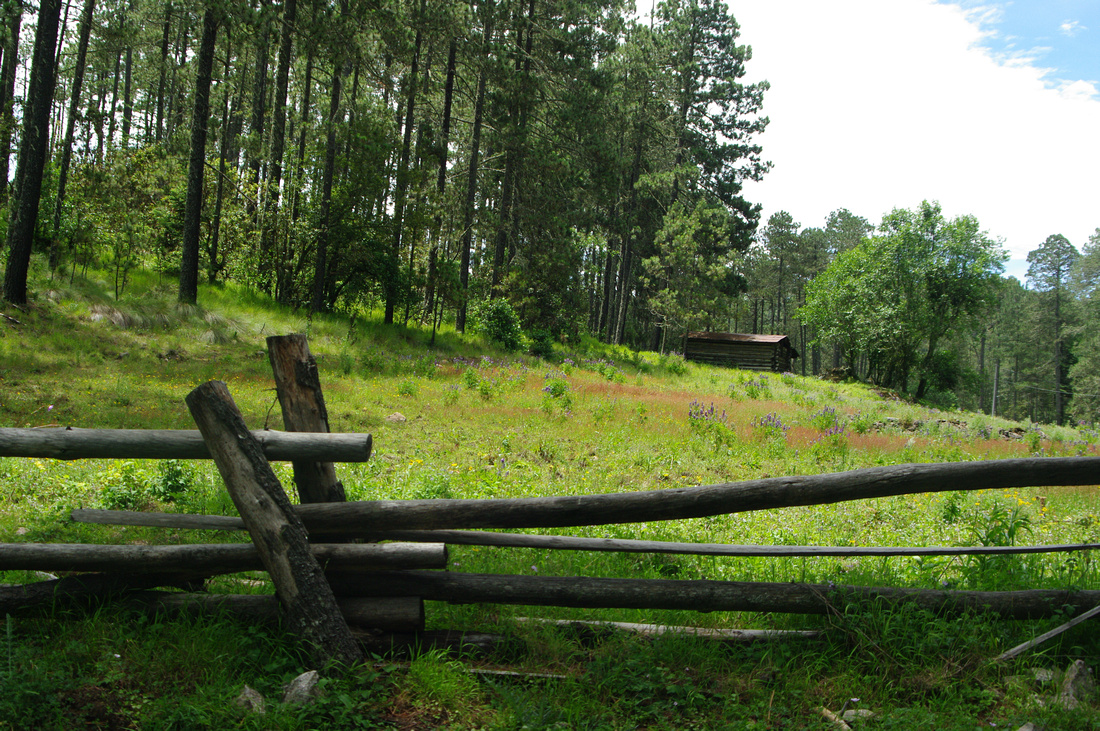

There are lots of wild flowers now during the rainy season. It's great to see the ground covered with pine needles.
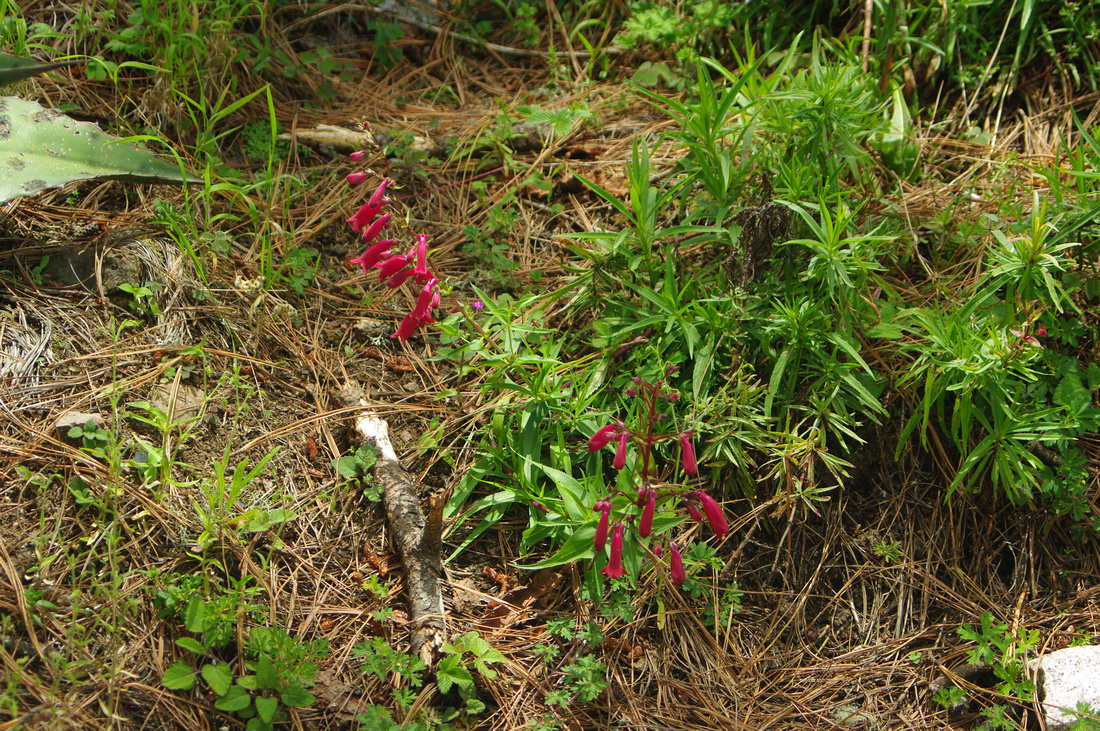



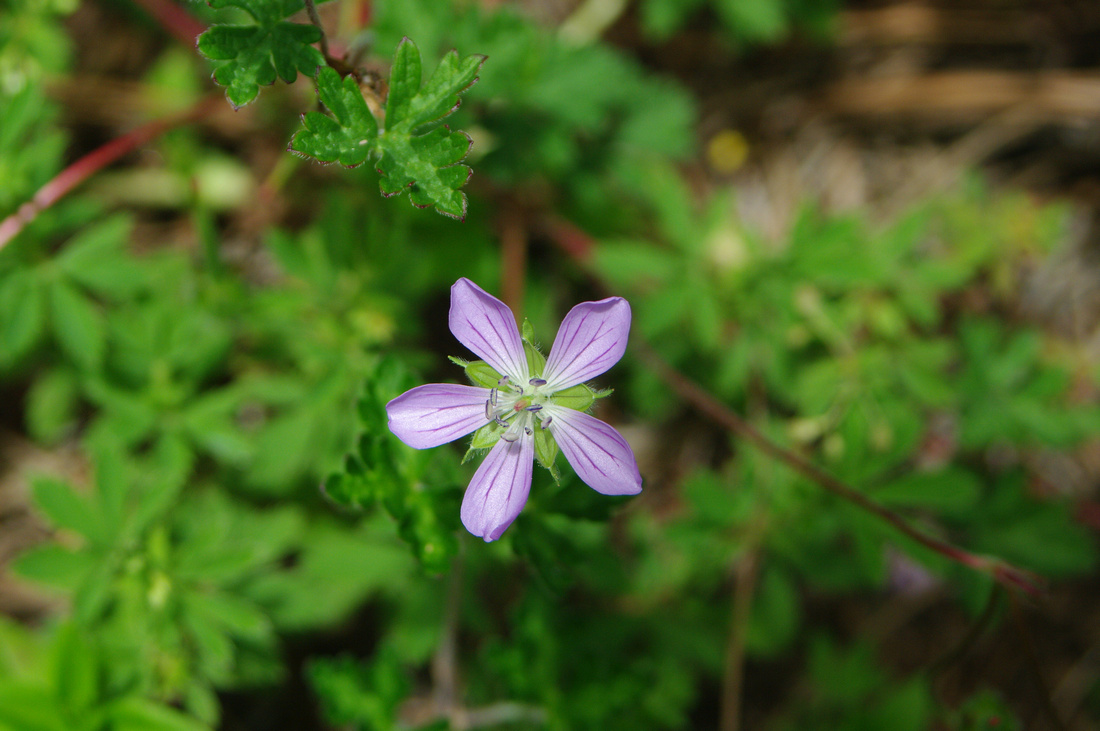

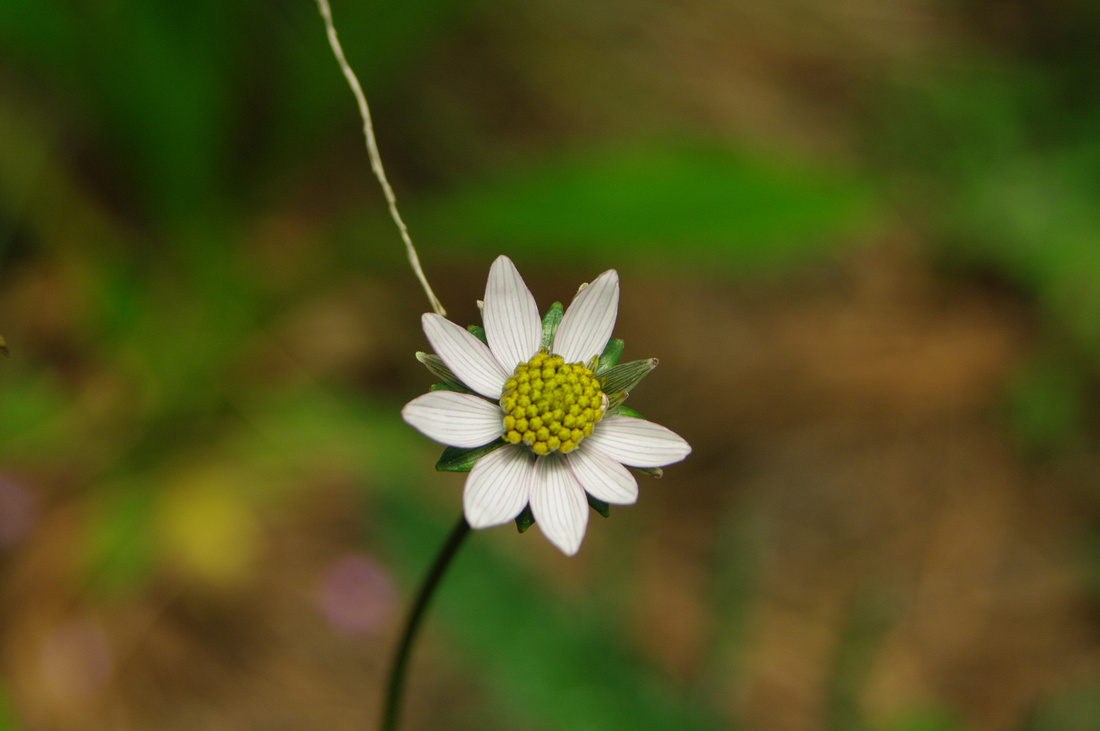

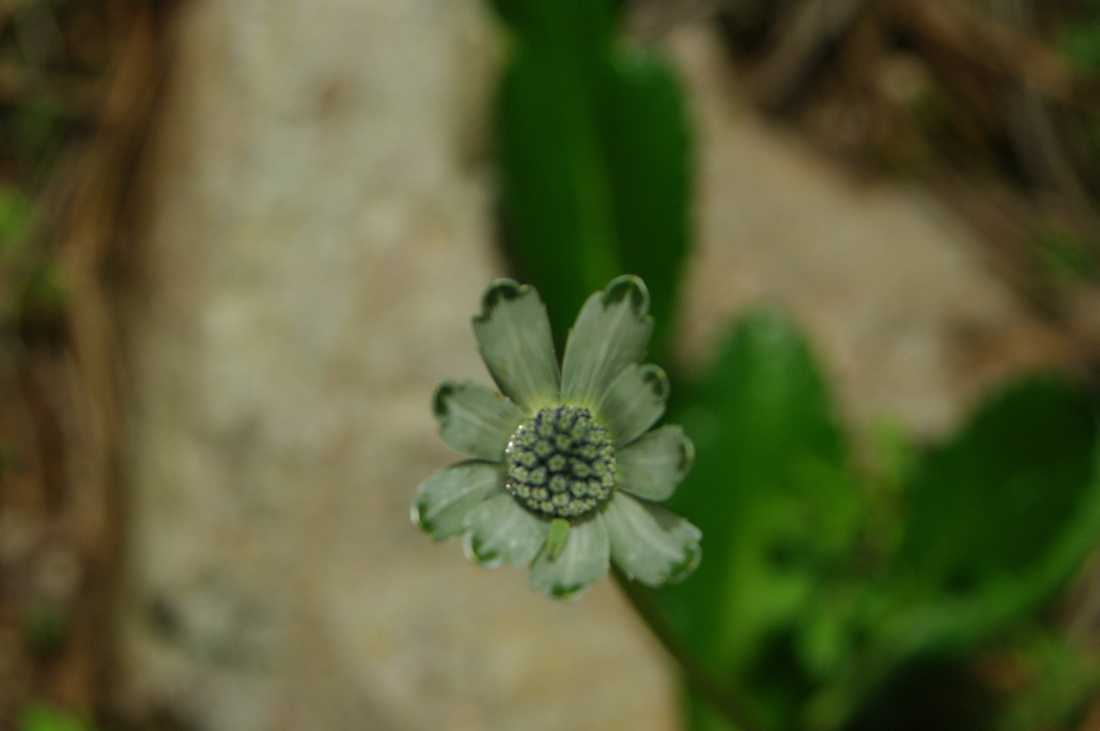

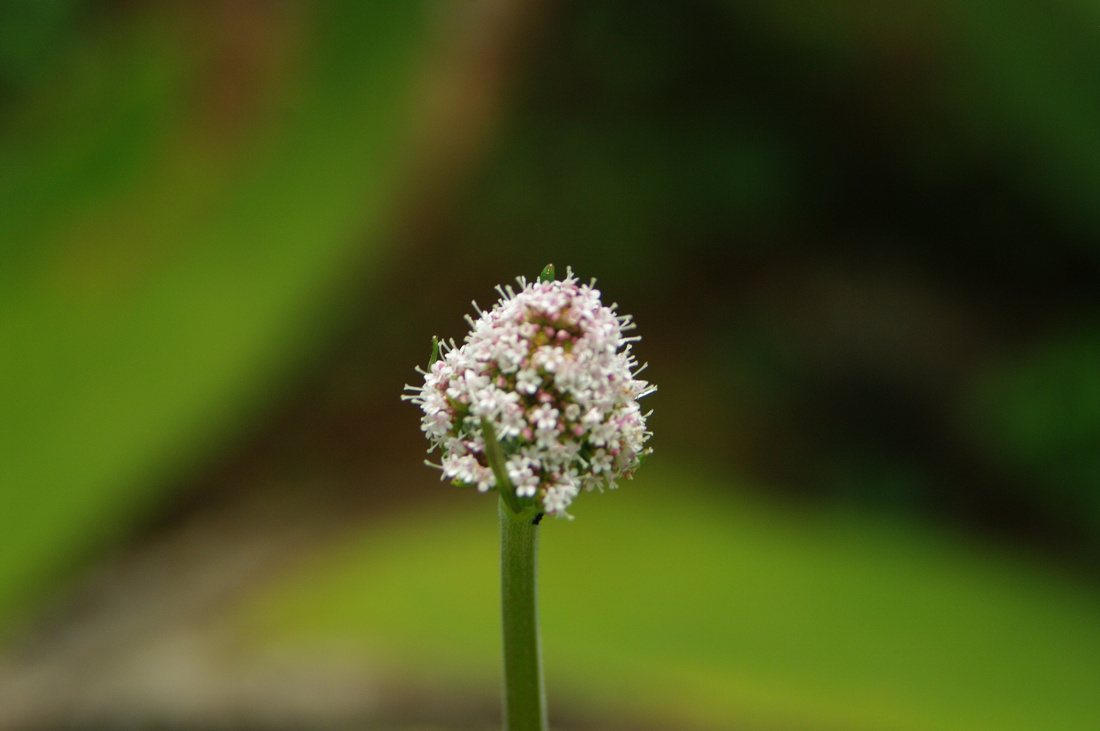



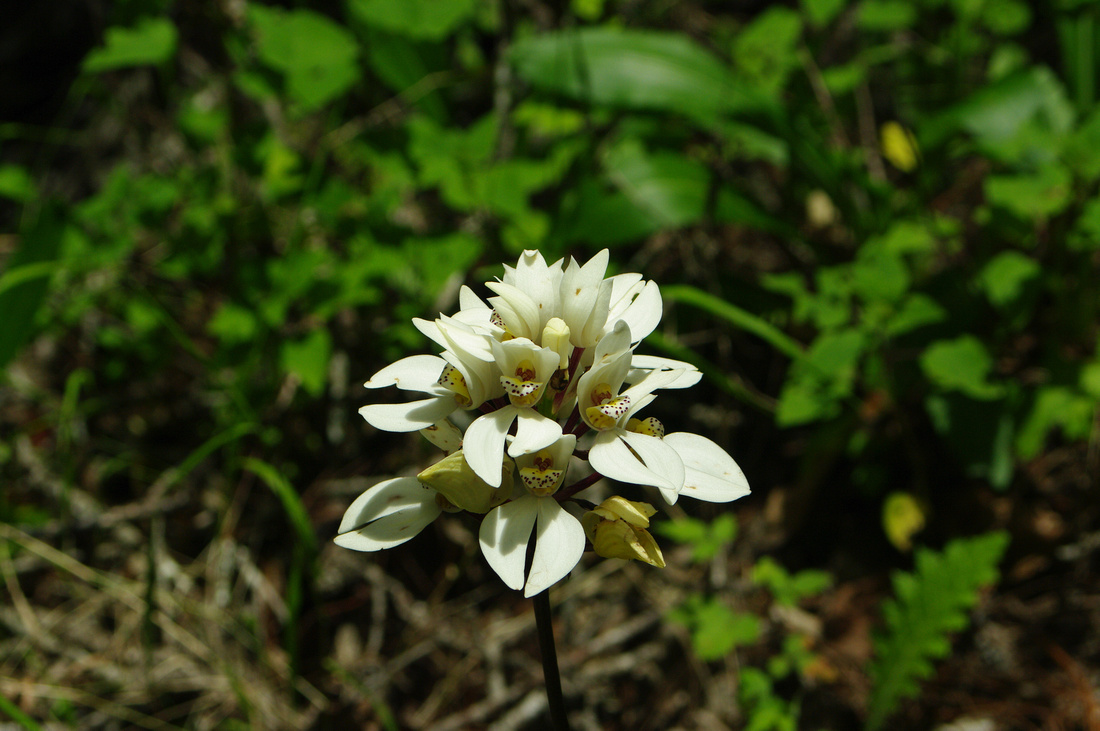

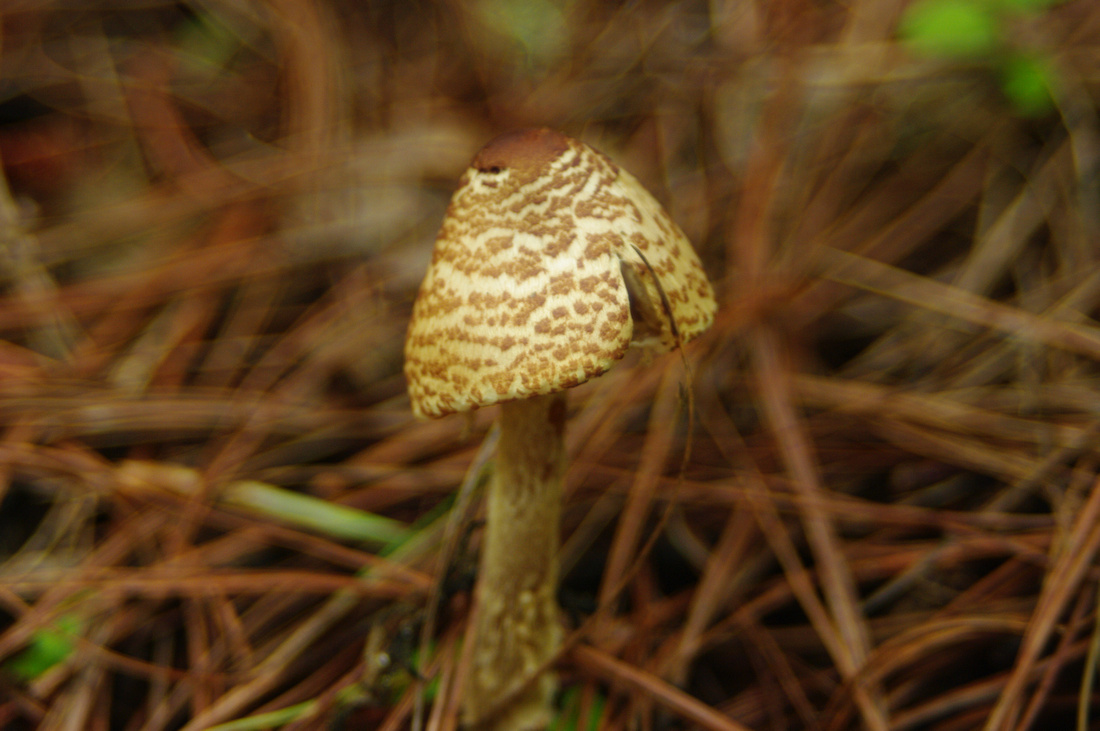





We ate at this restaurant. Don't know how they survive. It's in the middle of nowhere. There are a few log structures in Cuajimoloya. We love them.
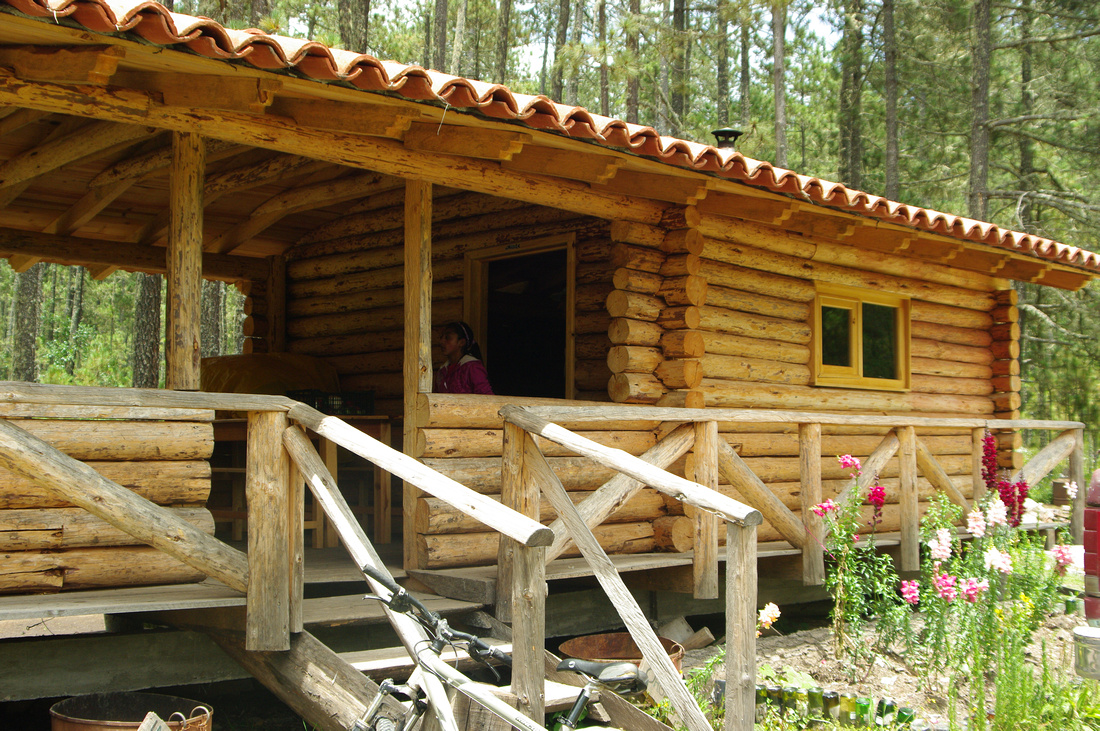

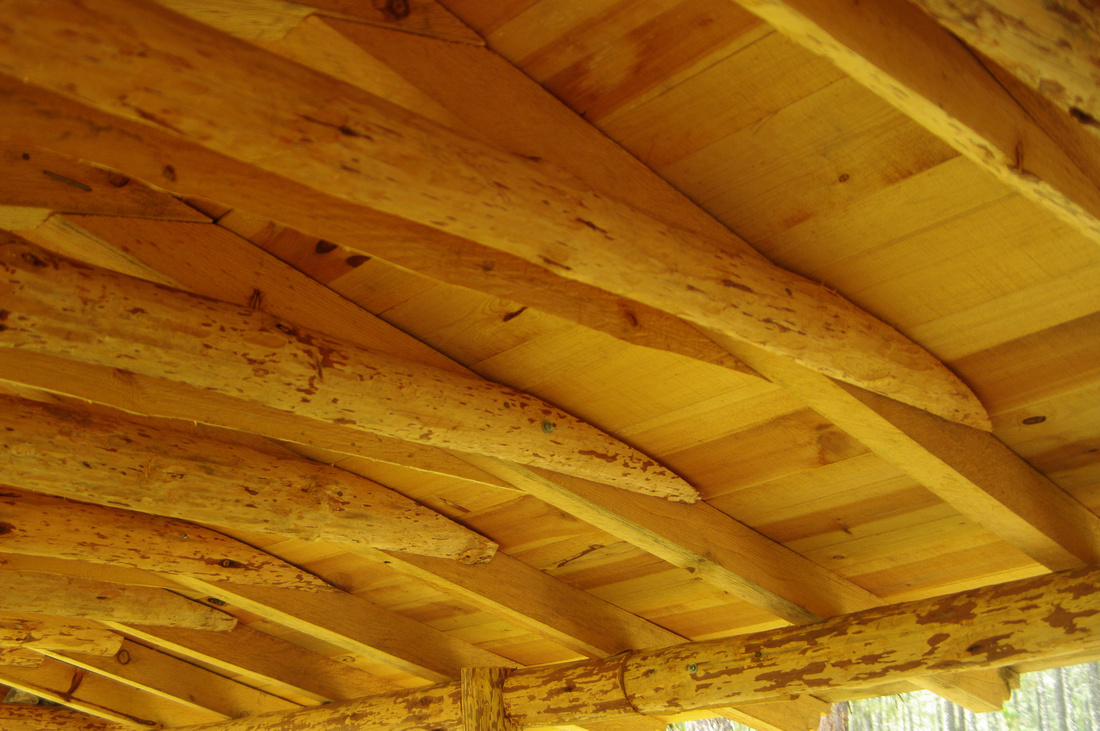

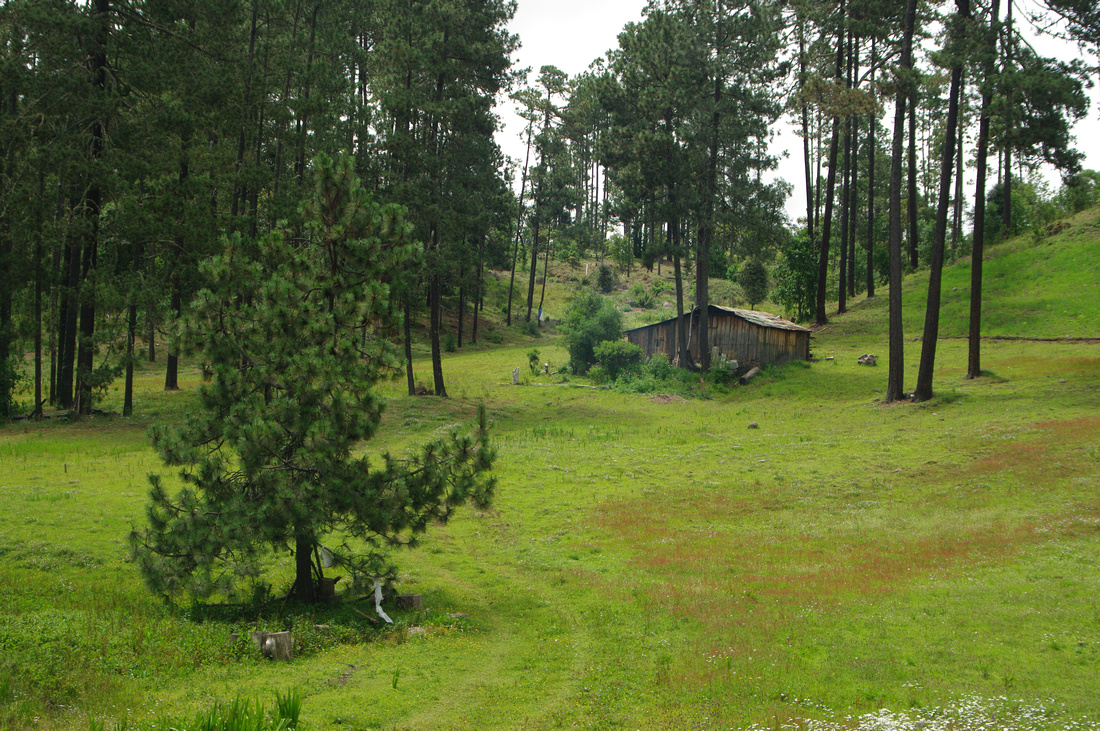

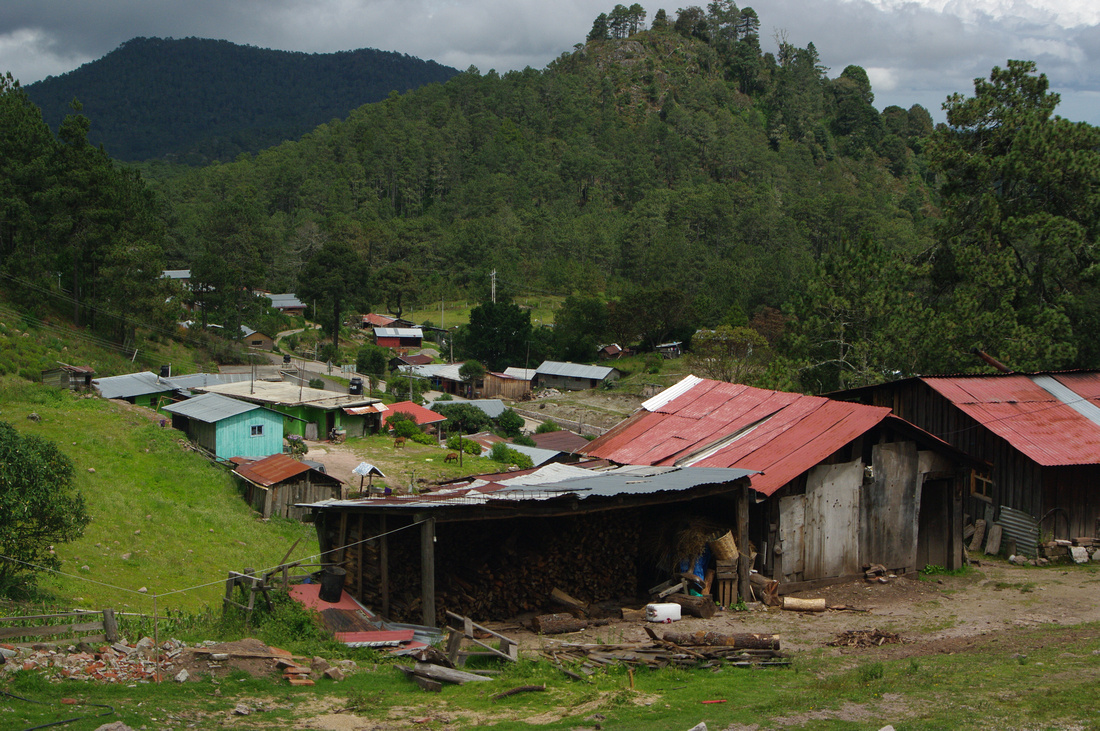

On the way out of Cuajimoloya, we ran into these ladies waiting for a taxi. It could have been a long wait! We took them into Tlacolula. Turns out they were from Ireland. We got to chat for a while. They'd been hiking for a week in the mountains. Many Europeans are not real friendly to Americans. These women were an exception.
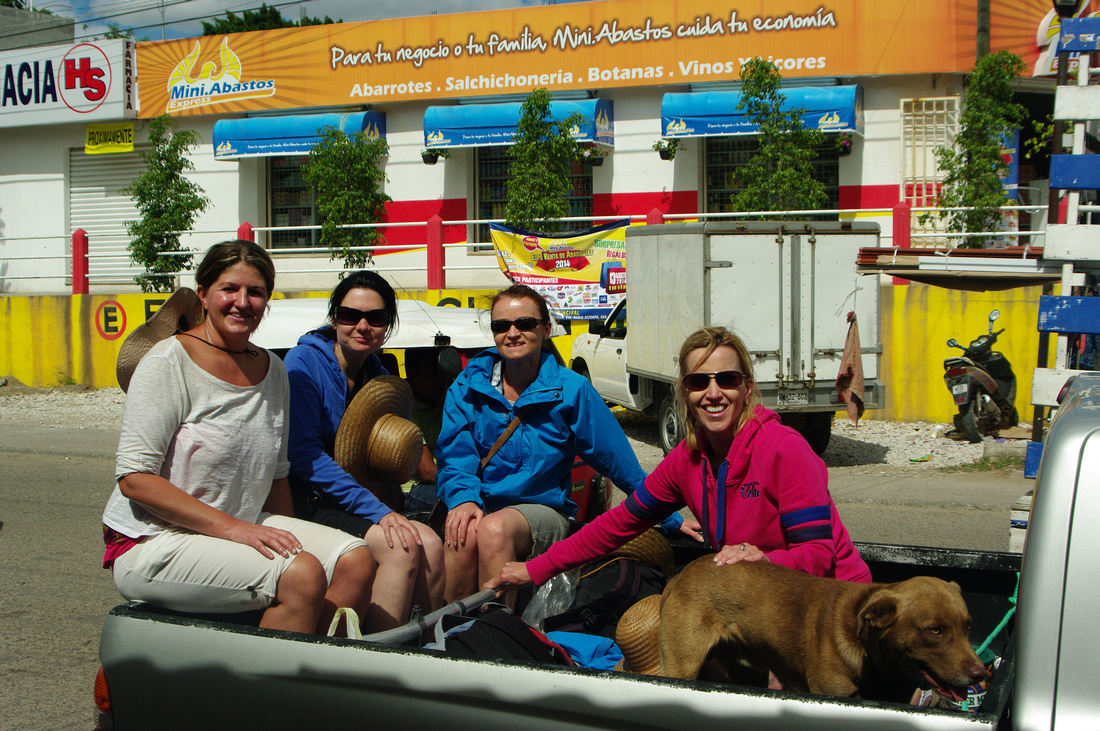

Beth showing off a quilt, a crocheted blanket and baby beanie that she just made for Chris and Danielle's soon to be daughter Alysandra.
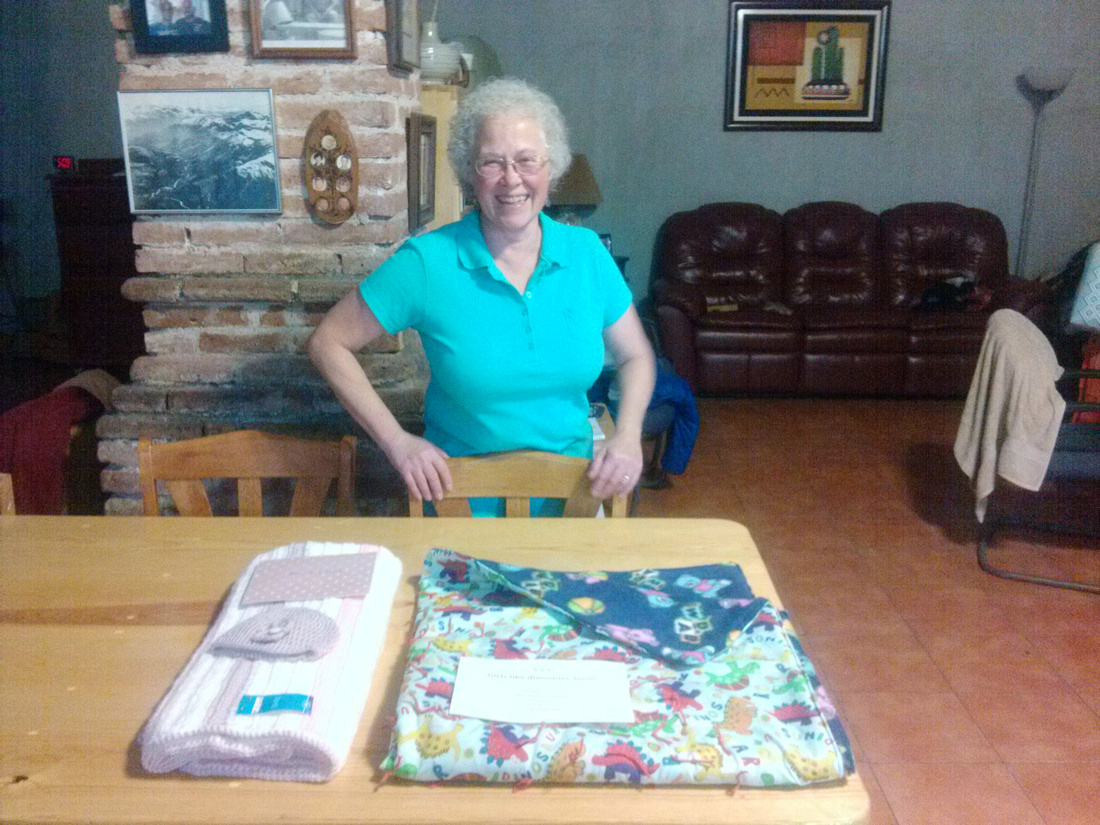



Beto took us to a river by La Reforma which is on the way to Tehuantepec. We played in the water and Beto's uncle fished.
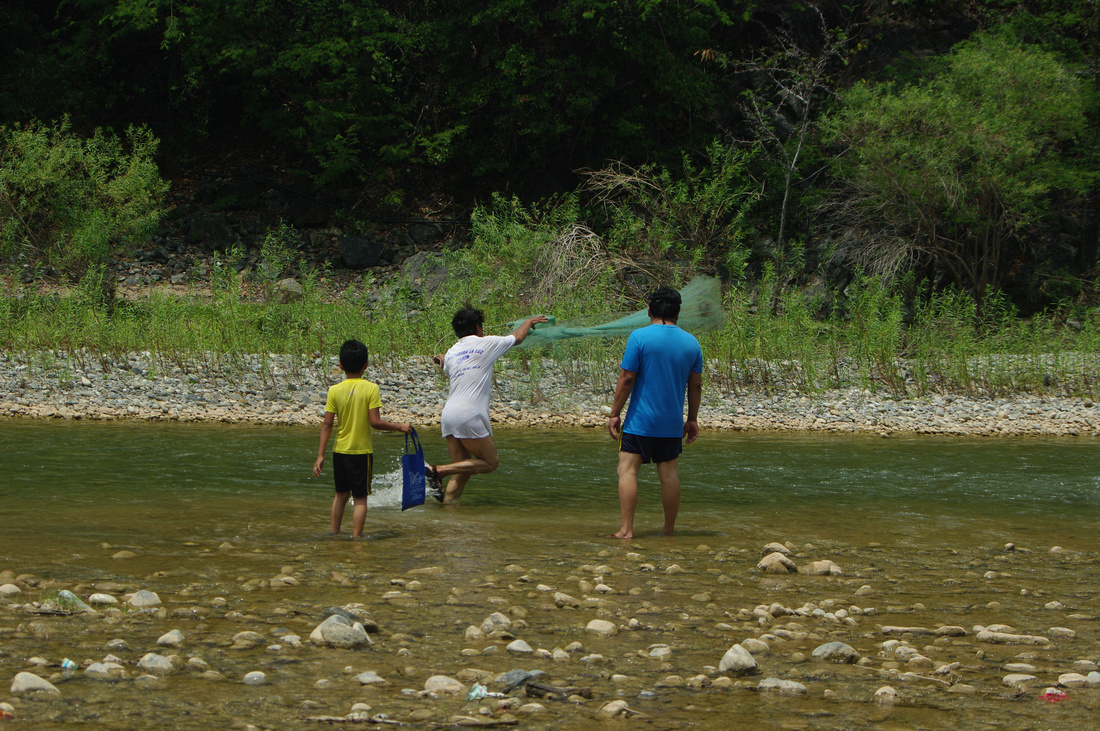

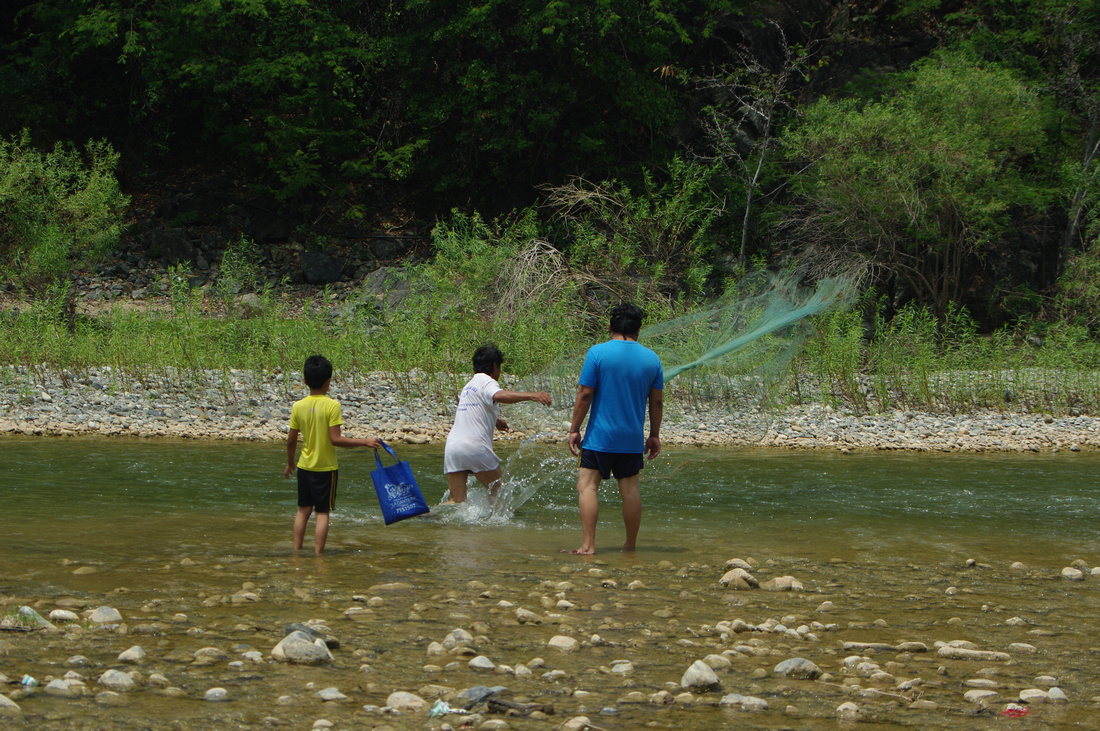

The River reminded me of Baker River in Washington.
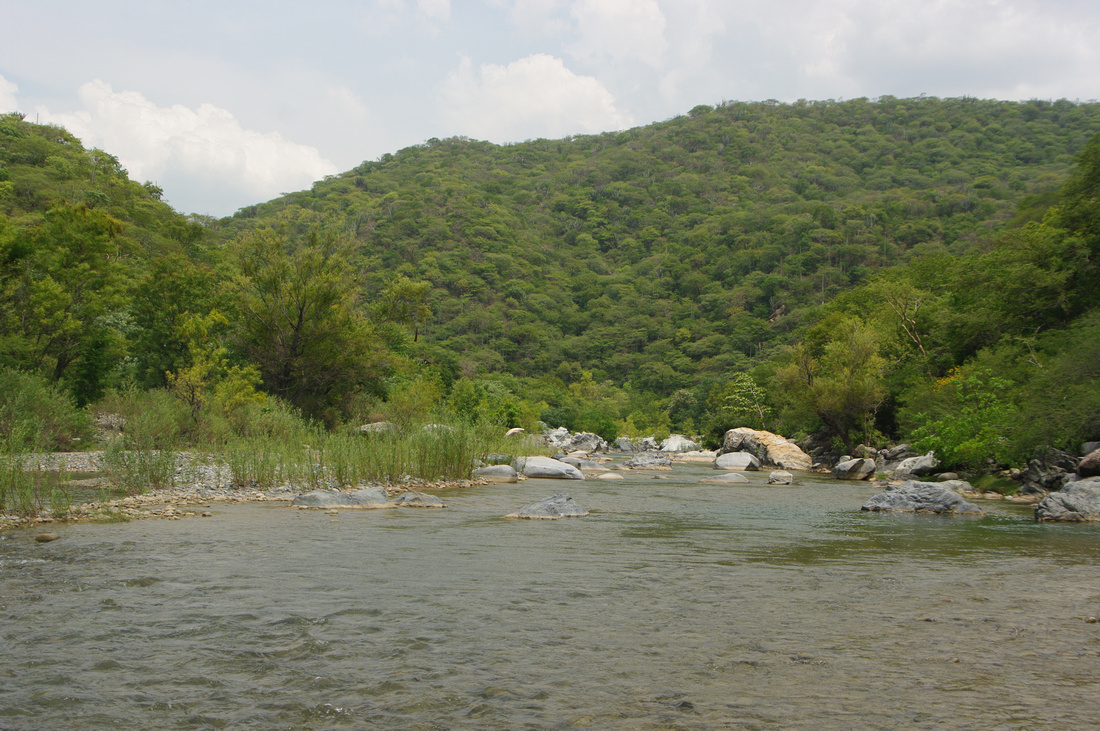

Beth didn't stay dry for long.
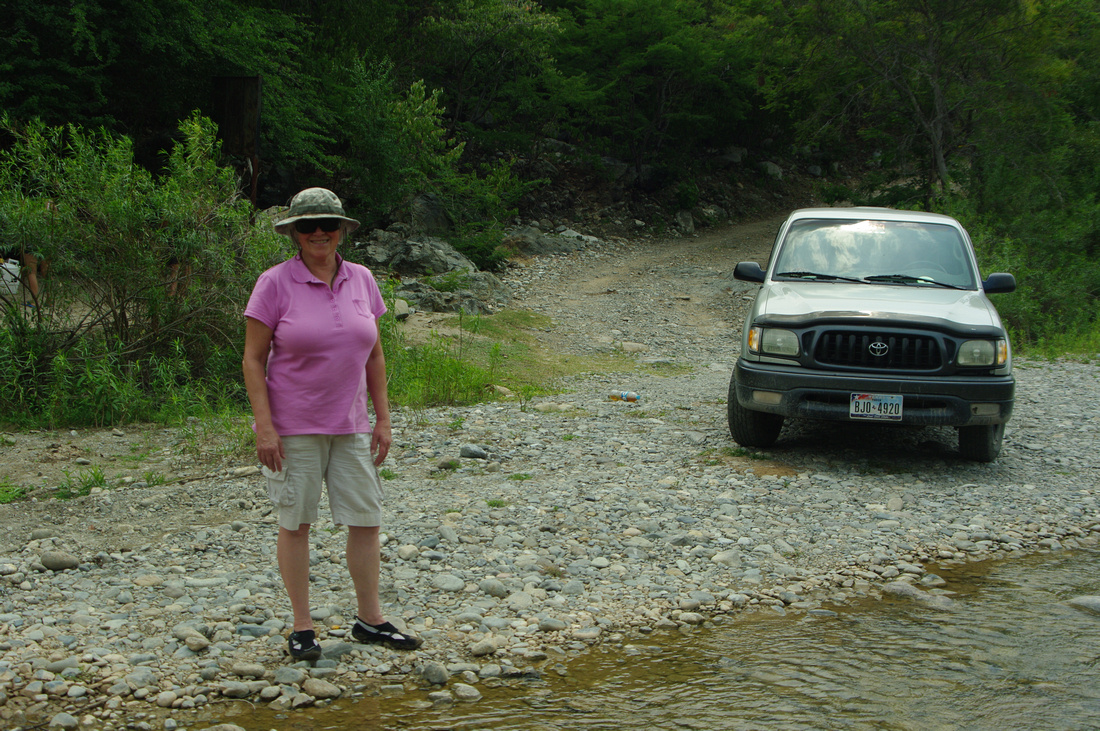

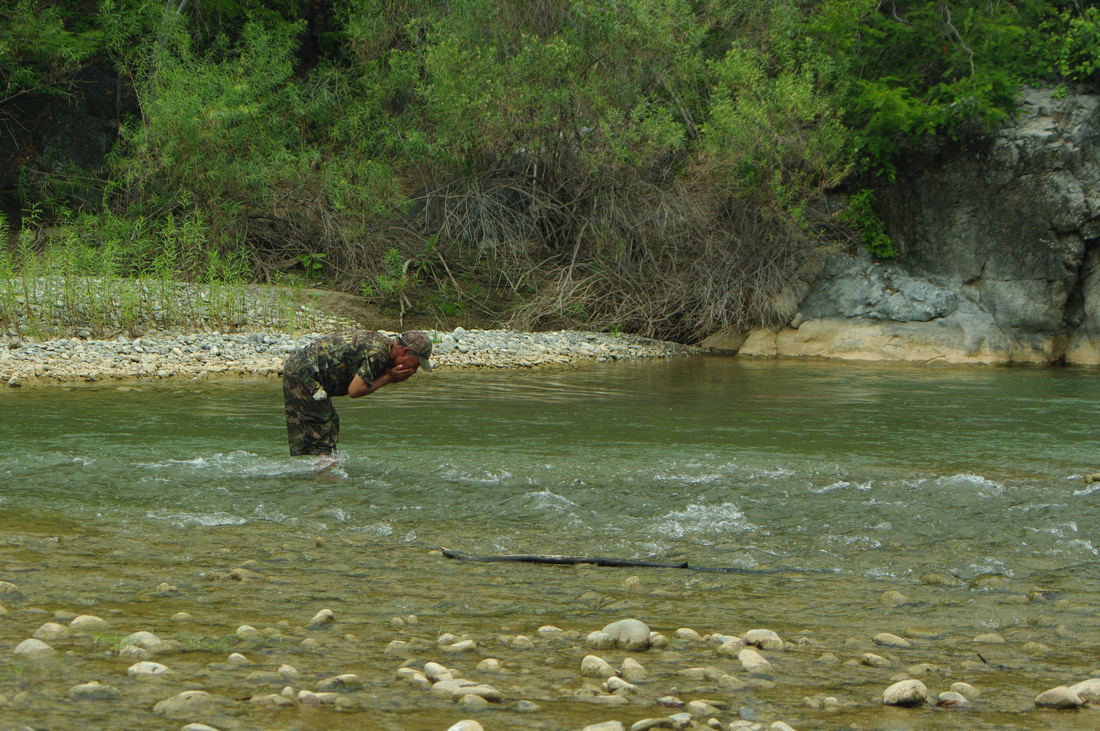

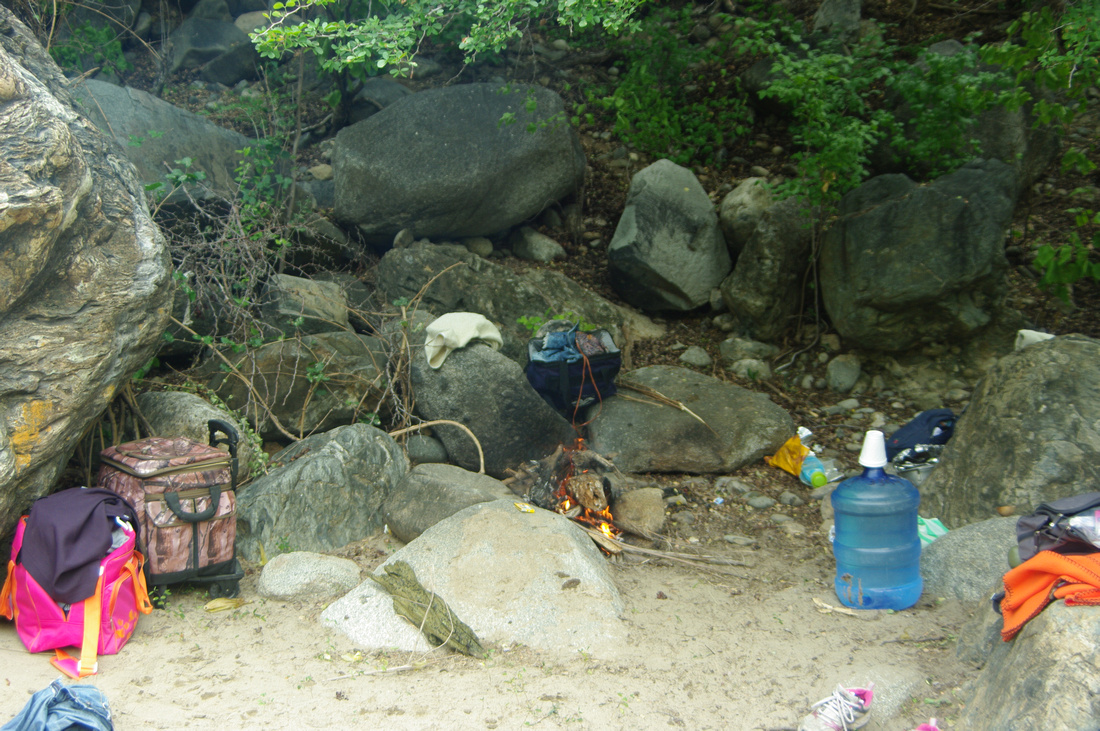

We had grilled tasajo, tortillas, and black beans. Beth also made cookies for everyone. Naturally we tried and eventually purchased some of Beto's uncle's mezcal. Very strong, about 60%.


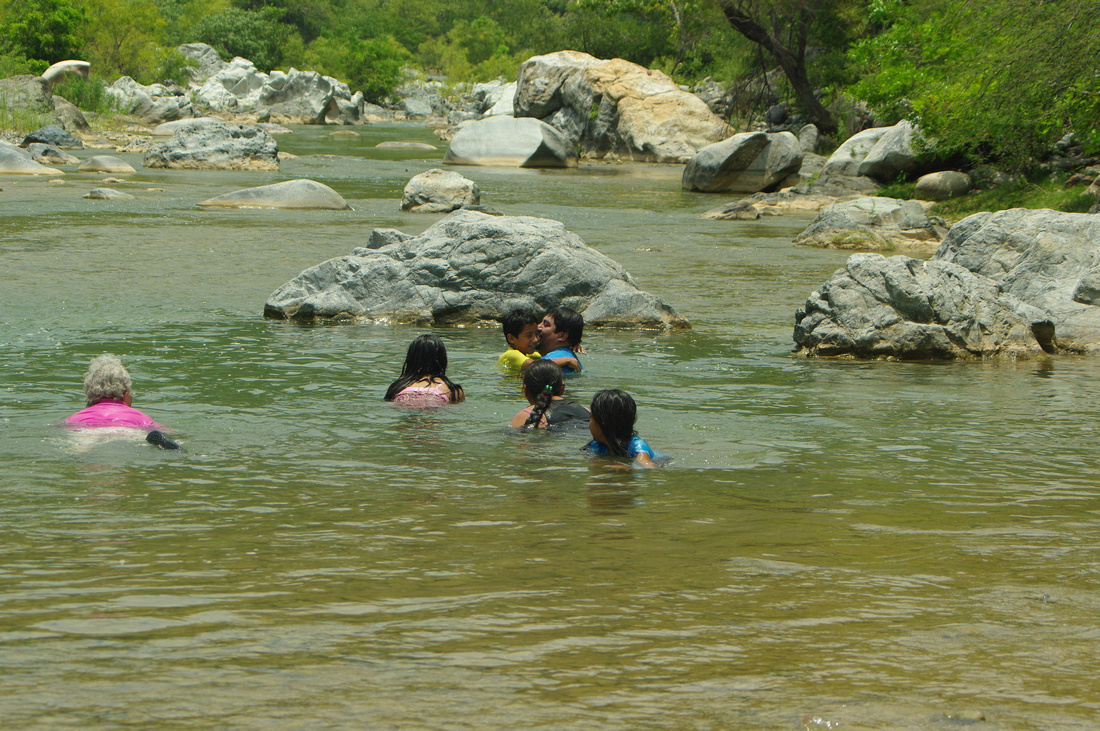

Thought this rock looked like wood.
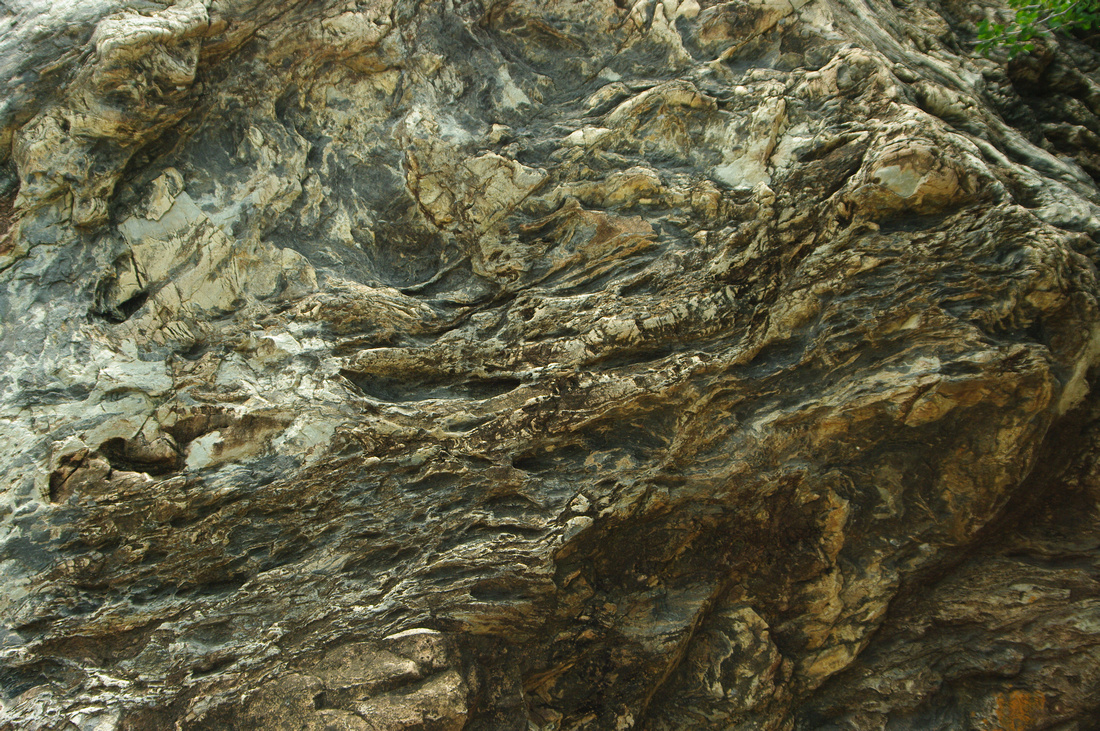

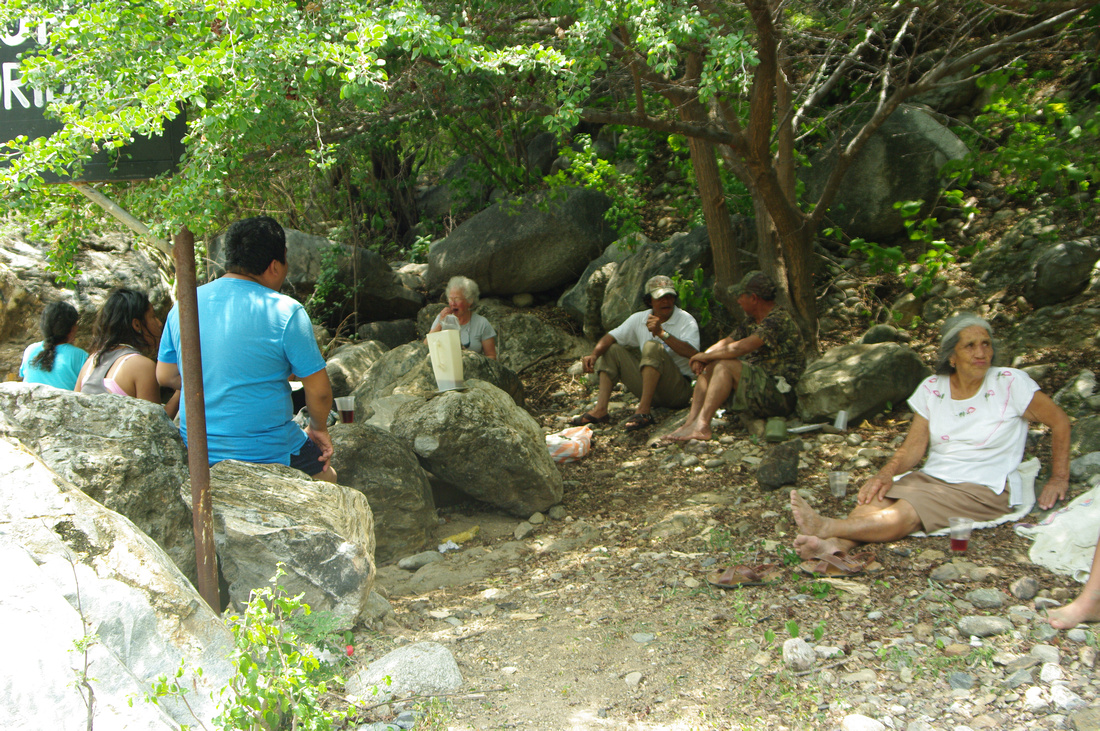

Mickey and Yadira just spent two weeks with us. We had a great visit. They both like Oaxaca and I suppose they'll live here one day. Mickey bought a used motorcycle while he was here. It's out in the patio. Not sure if I'll ever have the nerve to use it. In 1994 motorcycles were rare. They're pretty common now especially in Oaxaca. Italika is the most popular. I believe there are Chinese and Mexican models.
Because it's so dry here rust on vehicles is rare. There are still cars from the sixties and seventies. Nissan is by far the most popular name for trucks and cars. The majority of taxis are Nissan. Ford was popular back in ninety-four and you still see them frequently especially the big trucks. I don't know anyone who prefers an automatic to a standard. Many men have brought trucks with them back from the states. I'm always amazed to get in a truck and see that it's a standard. I wasn't even aware that standards were made for some models.
A trip to the mountains
Normally a trip to a restaurant wouldn’t be worthy of a blog but our trip last Sunday is an exception.
About a year ago Beto had a friend that works for CFE, the electric company here in Mexico to come to our house to help resolve a problem. Rodolfo and I became friends so he stopped by a few times when his work brought him near our house. A week ago Rodolfo showed up with his wife and we ended up chatting for hours. Rodolfo’s wife Olga designs and makes custom clothing. Beth really enjoyed getting to know her and sharing similar interests.
They invited us to go with them up into the mountains to eat trout at a restaurant. So Sunday Beth and I rode the bus to Oaxaca where we met them at the Monument of Benito Juarez and then rode with them in Rodolfo’s car.
Highway 175 leaves Oaxaca and winds around to Tuxtepec eventually ending up at the Gulf Coast in Vera Cruz. The highway is a mountain road with lots of curves and elevation changes. It’s a beautiful drive! I was reminded of the North Cascade Highway in Washington State.
Very quickly we left the city and lowland vegetation behind and were surrounded by pine forests. We’d forgotten how much we missed being in a forested area. Normally when Beth and I go somewhere I drive; it was a real treat to sit back and enjoy the view.
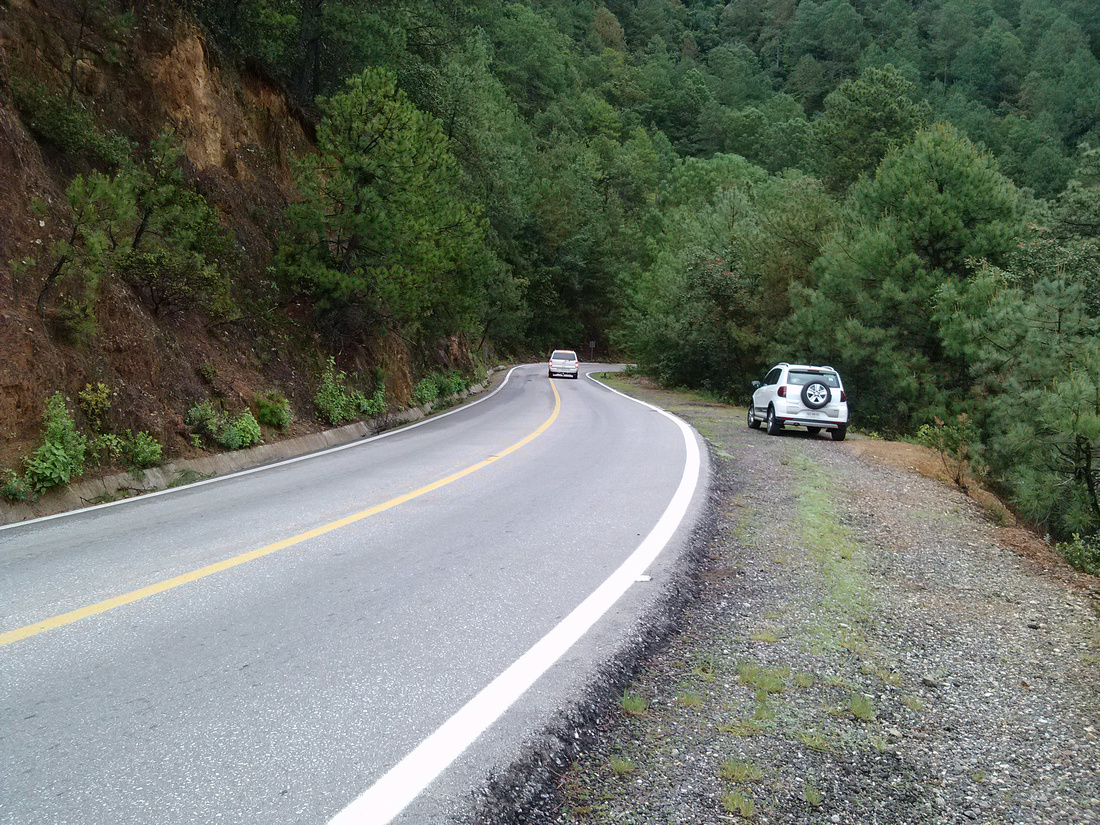



In the Background you can see Oaxaca de Juarez
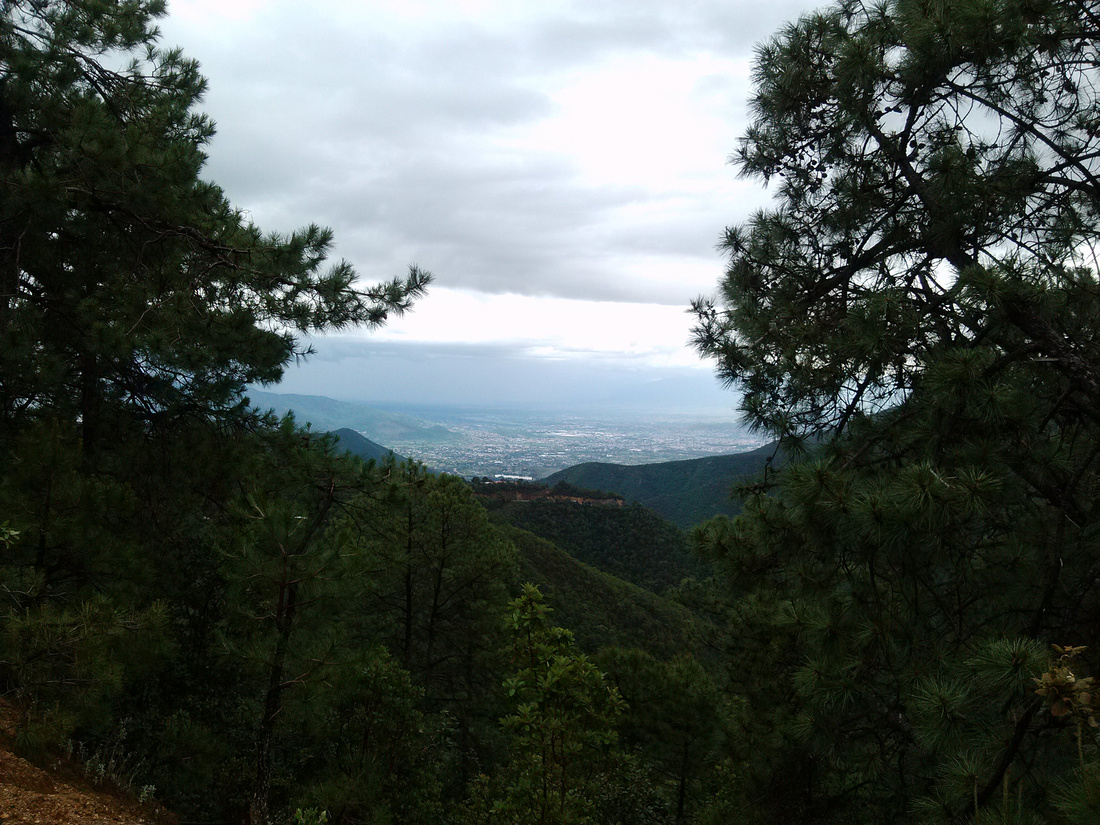

It's hard to make out but at the bottom of the valley sits a small village.
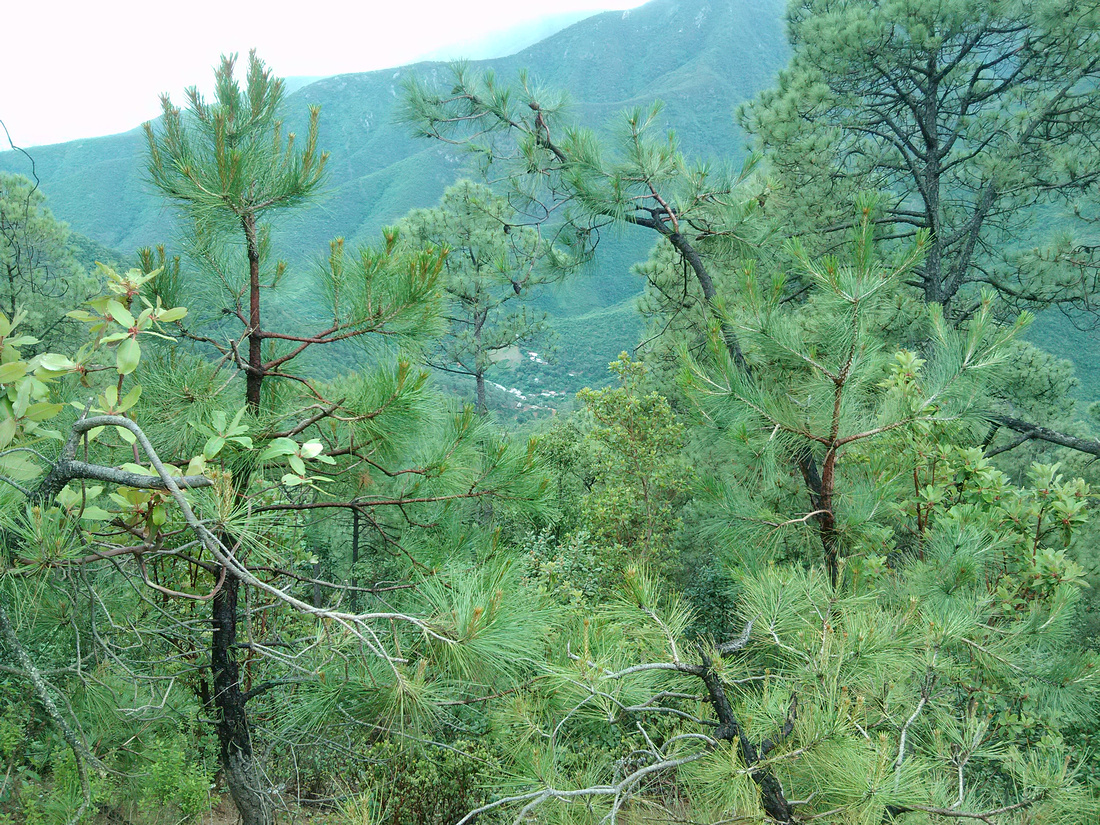

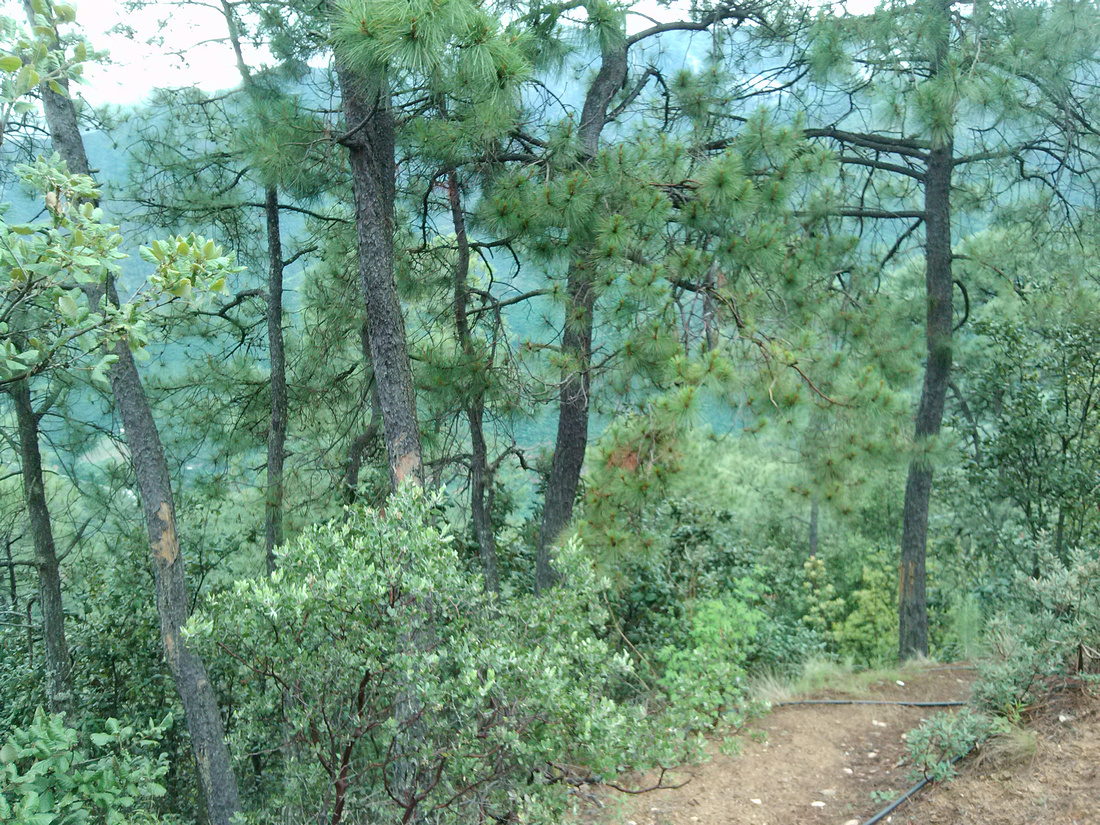

We passed through San Pablo Guelatao (birth place of Benito Juarez) and stopped at a restaurant just past Ixtlan de Juarez. The restaurant specializes in different ways to prepare and cook fresh trout. The fish farm right next to the restaurant provides the fish. The restaurant is nestled in a small valley. The location is spectacular.
Entrance to the restaurant.
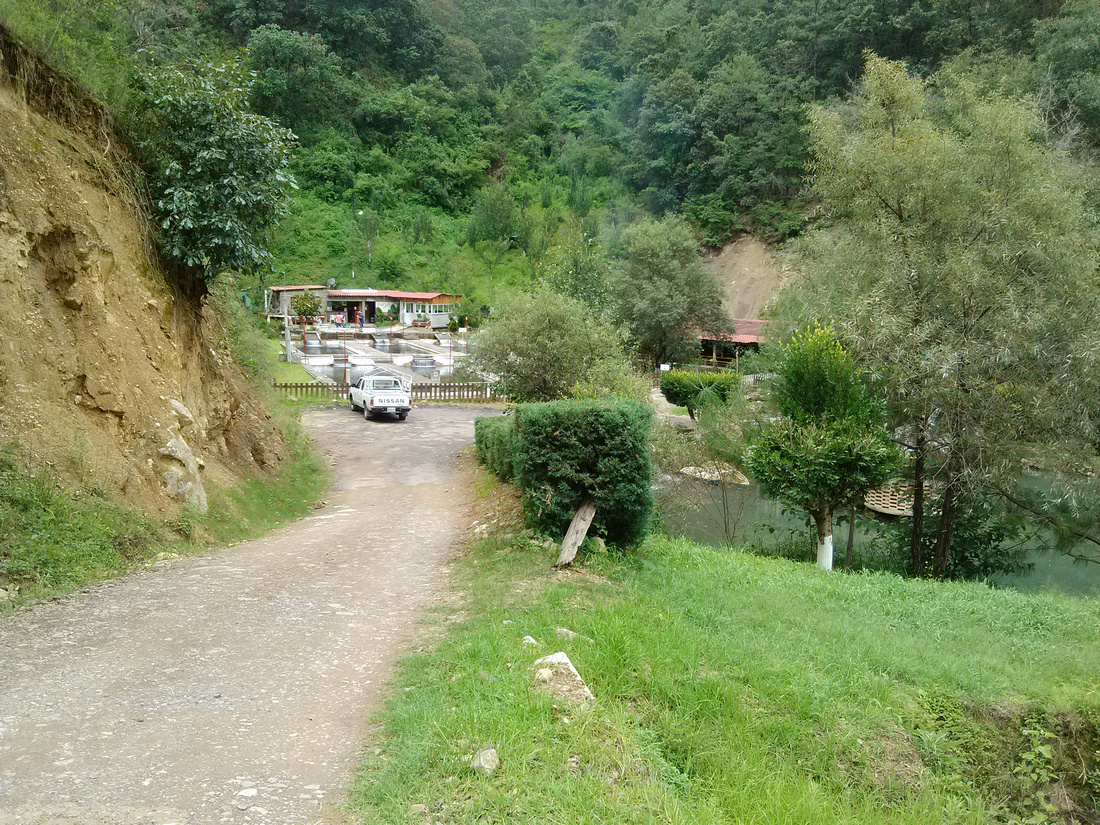

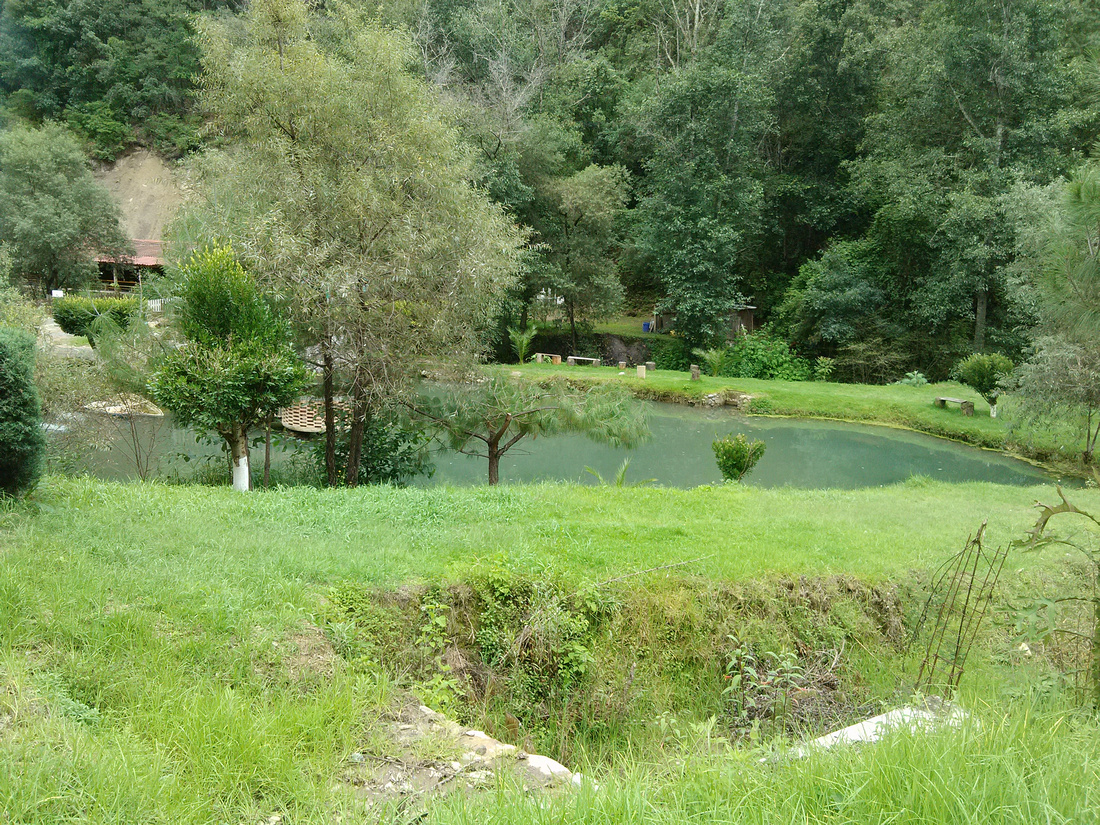

Other than drinks and deserts the menu was almost totally dedicated to trout. Instead of having tortillas with our meal we were served large tostadas about a foot in diameter. The food was great and the open restaurant provided a very relaxing atmosphere.
While eating we received a wonderful surprise. A family we knew from Brownsville arrived at the restaurant. It was a shock to see them here in this restaurant so far from Texas. The Sosas are originally from Zoquitlan which is about an hour and a half from our home. Their daughter had been a student of mine and through her we made a friendship. They lost contact with us when we moved so it was exciting to exchange info and new means to communicate. They come down once a year so I’m sure we’ll be visiting Zoquitlan in the future.
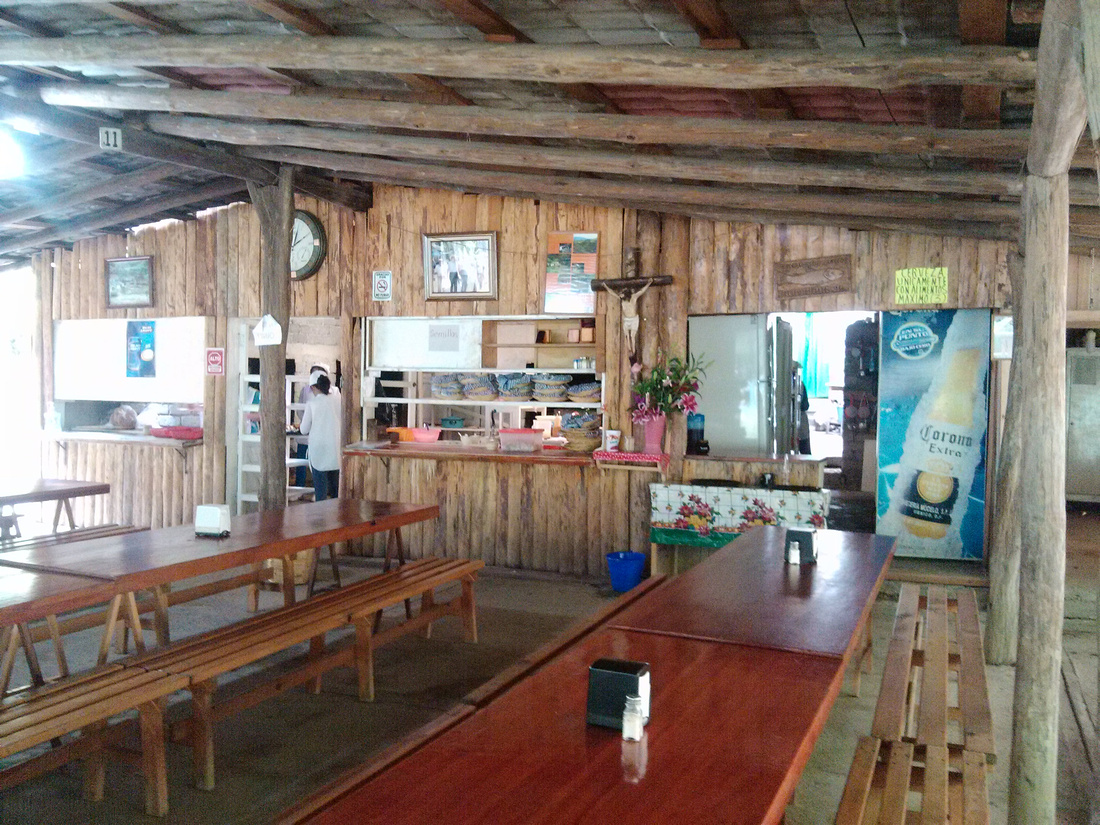

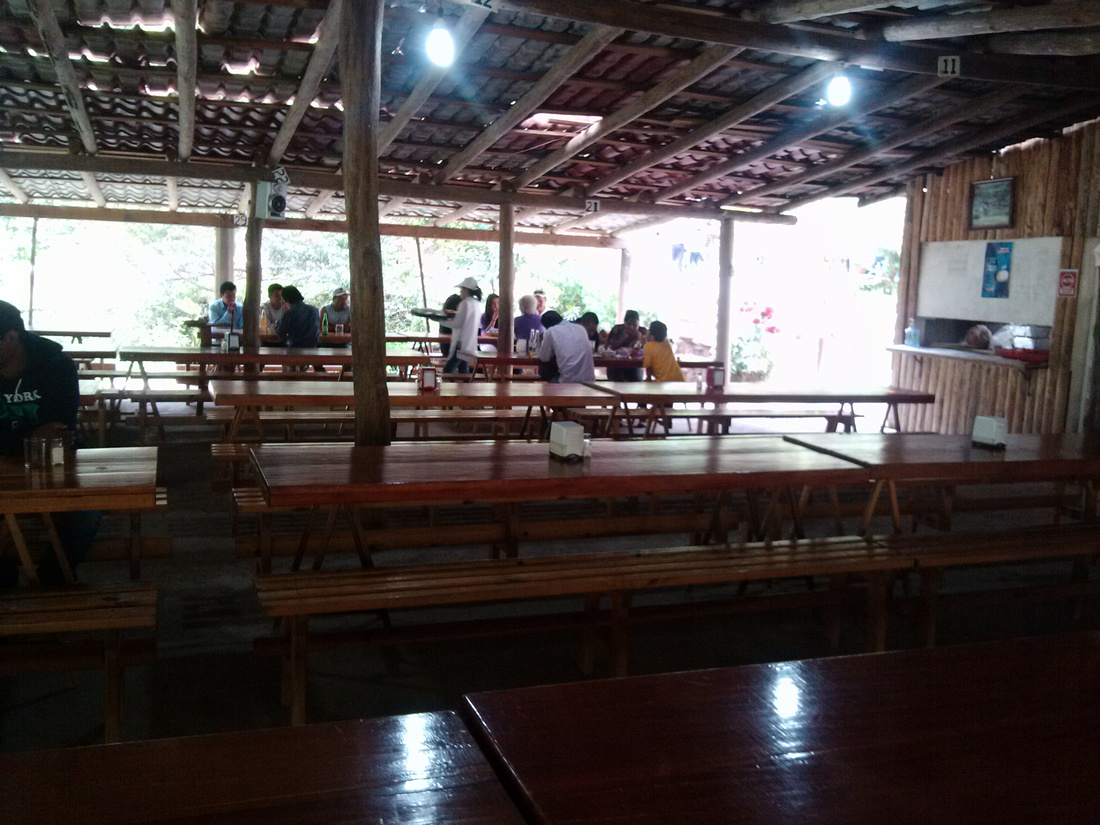

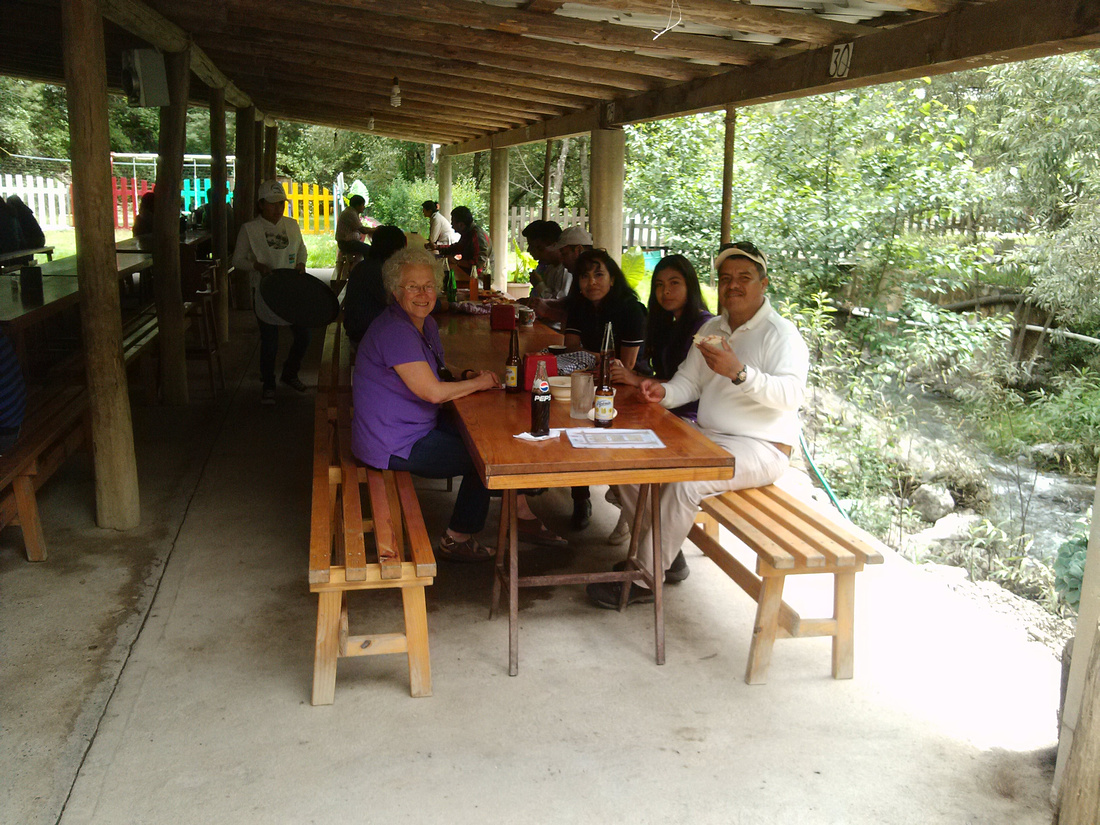

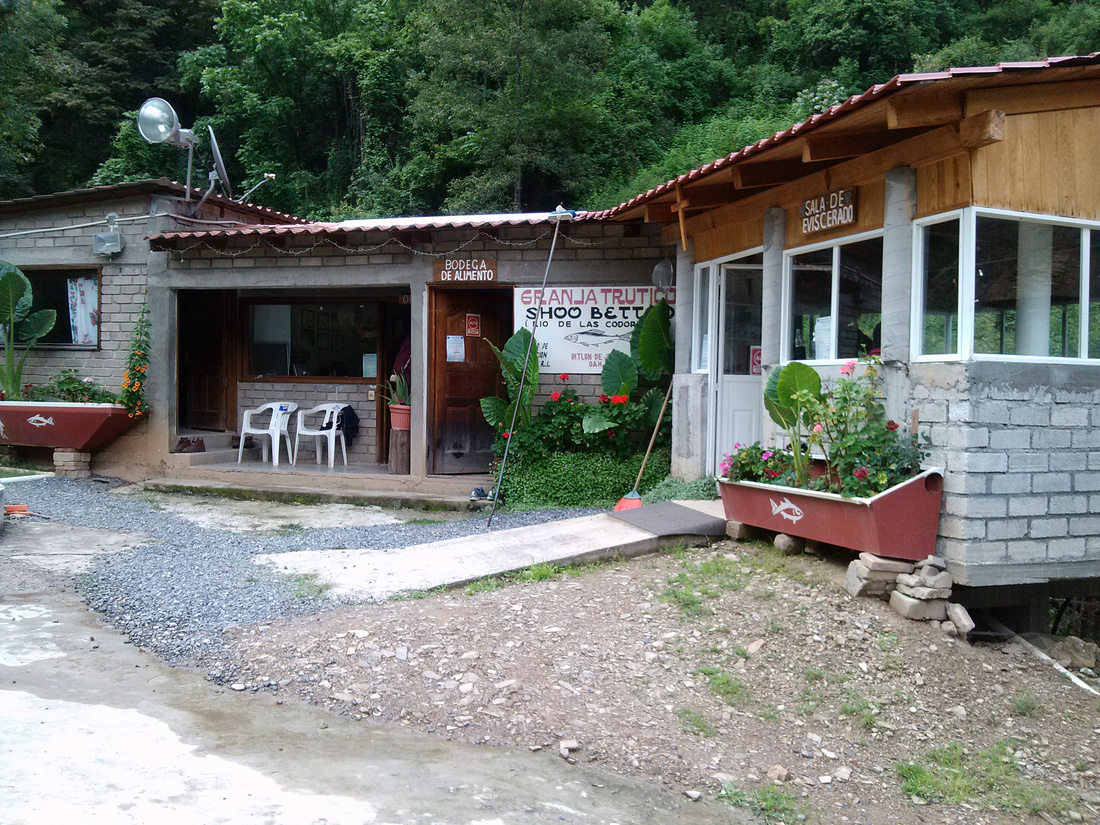

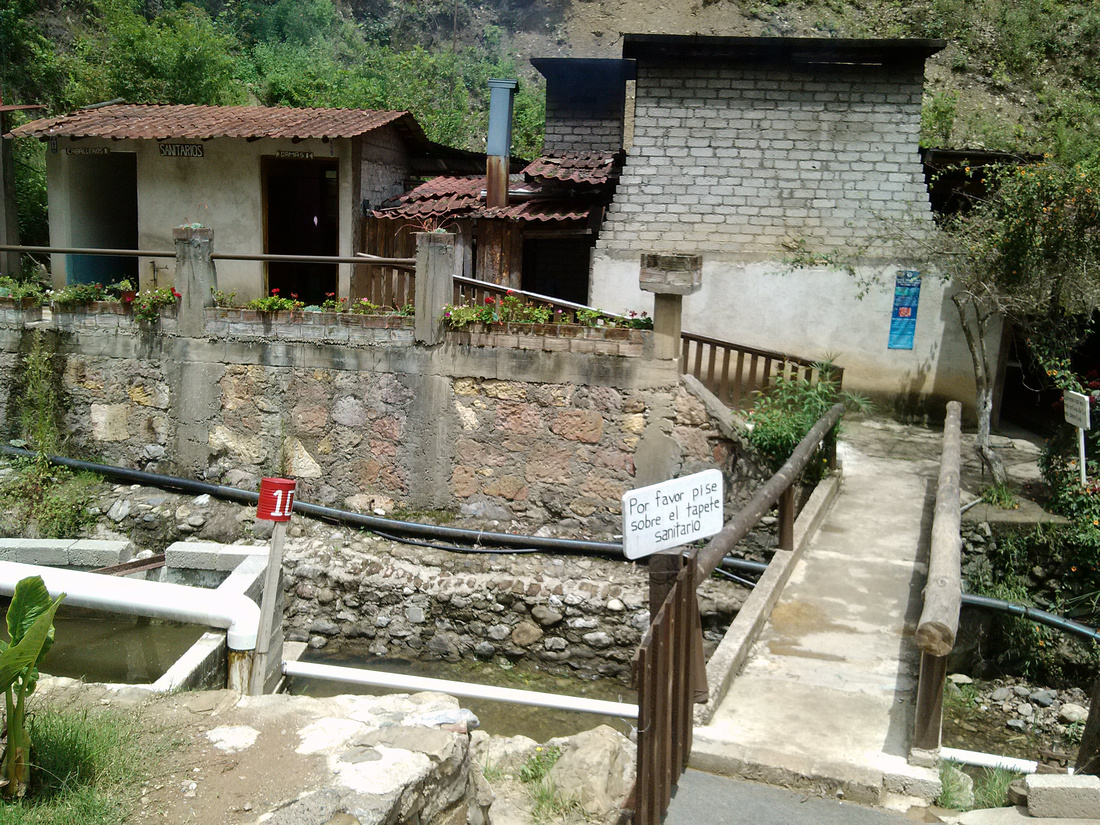

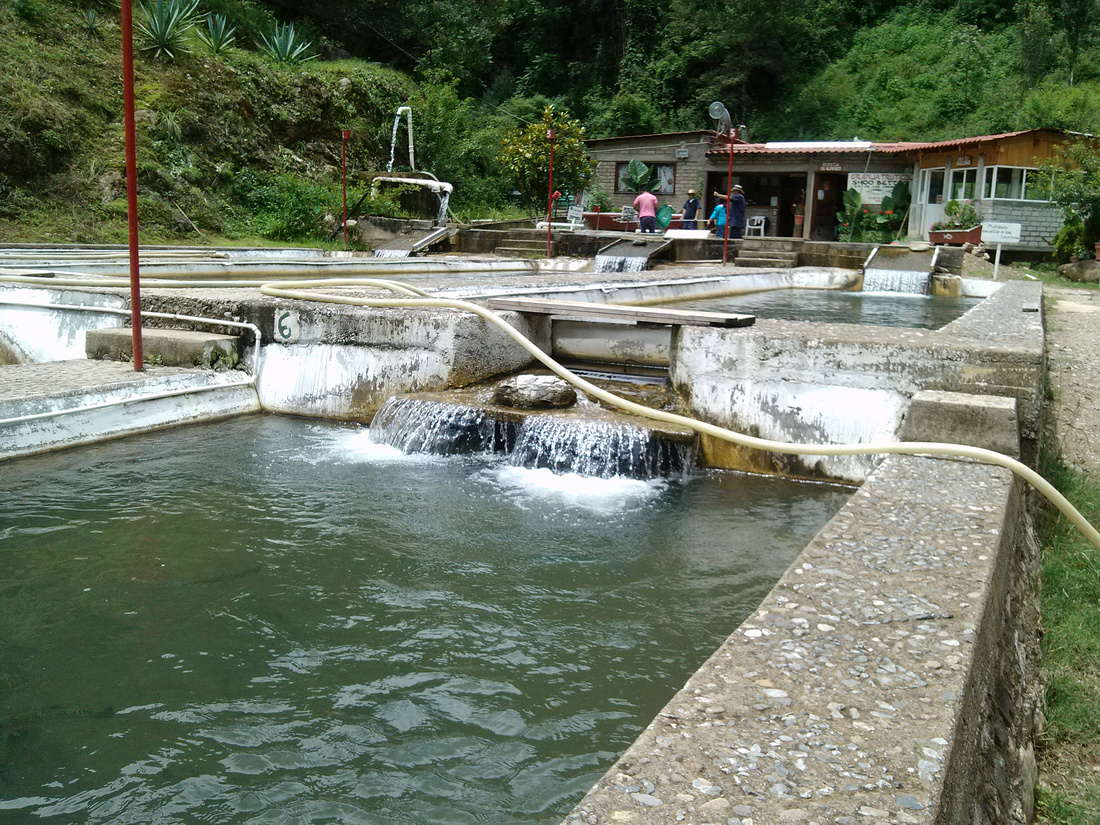

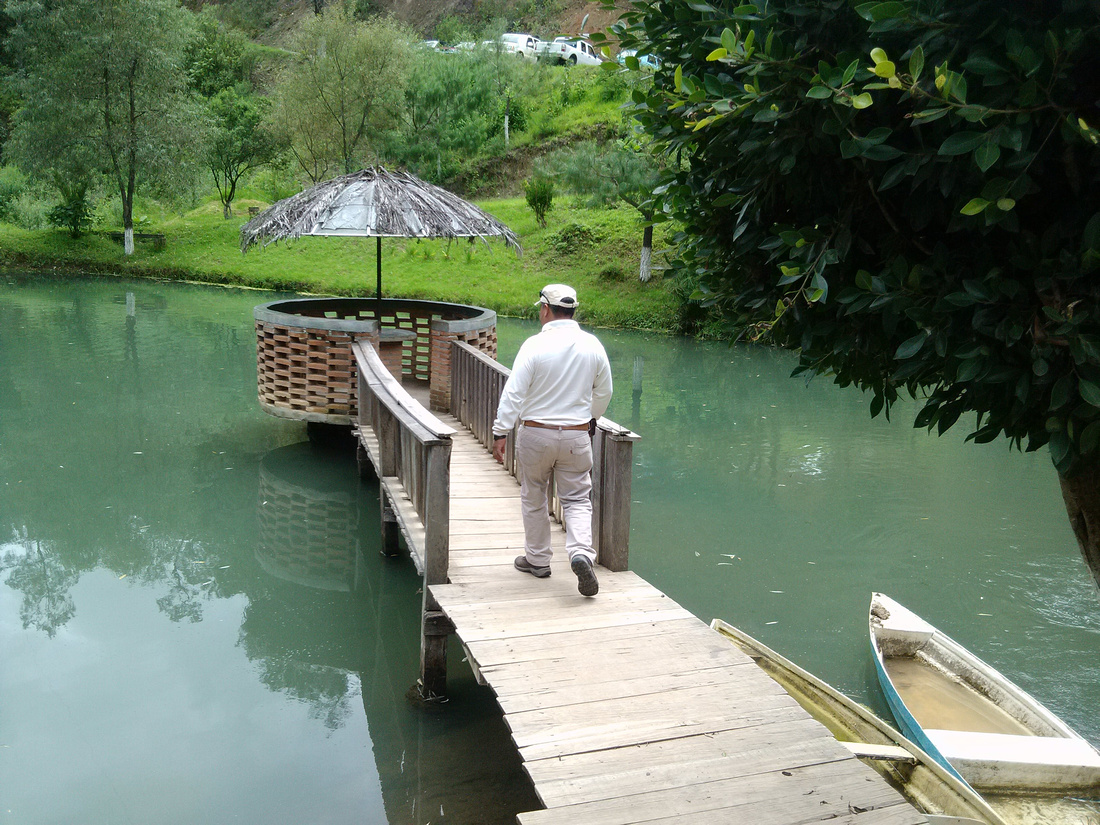

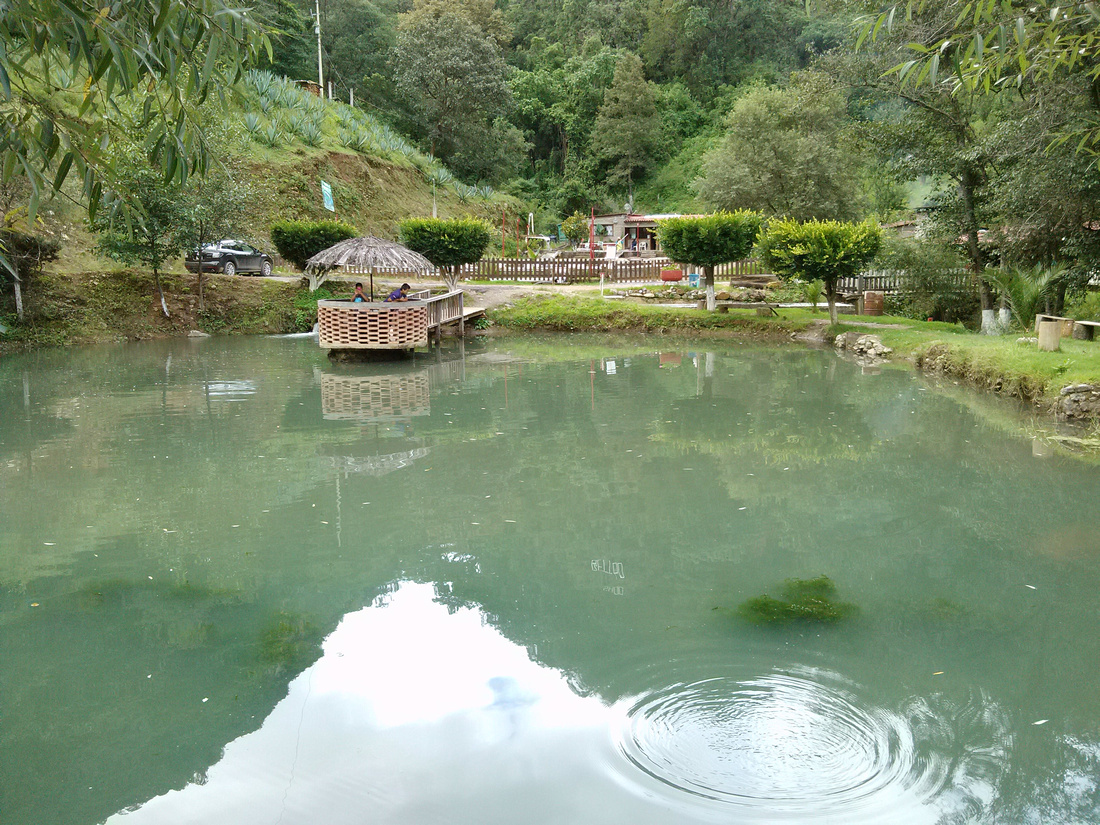

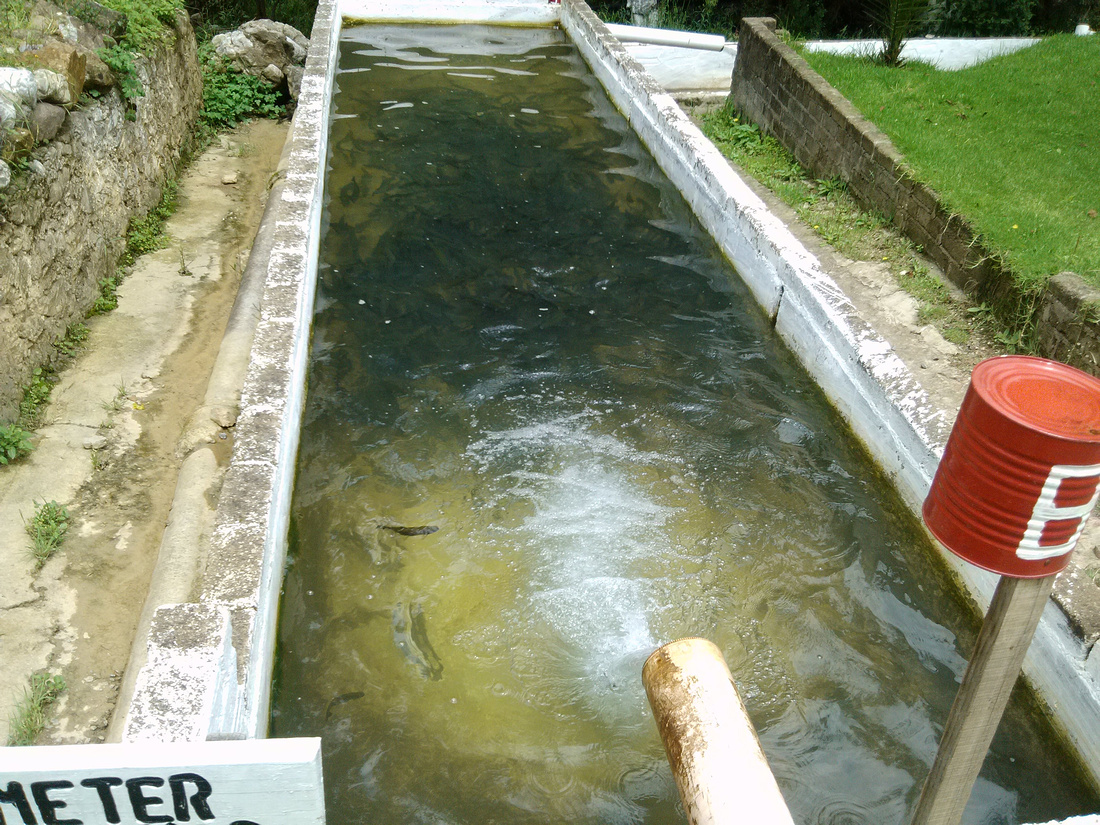

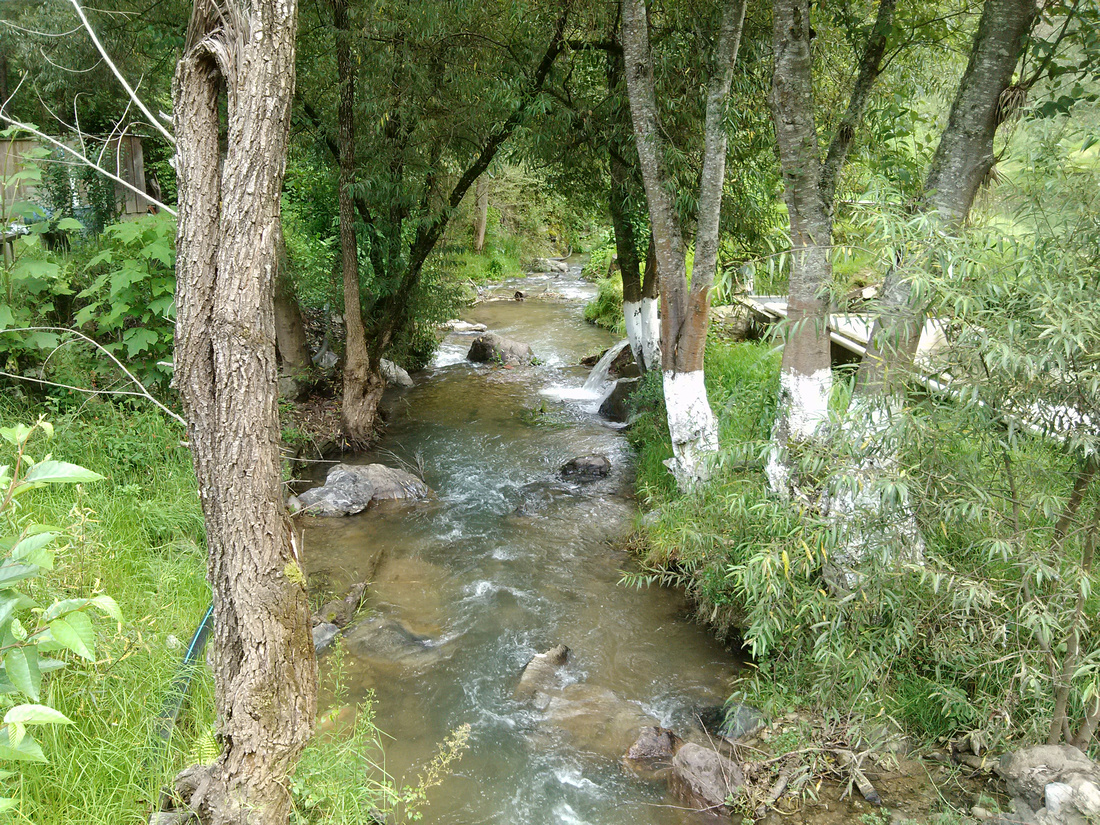

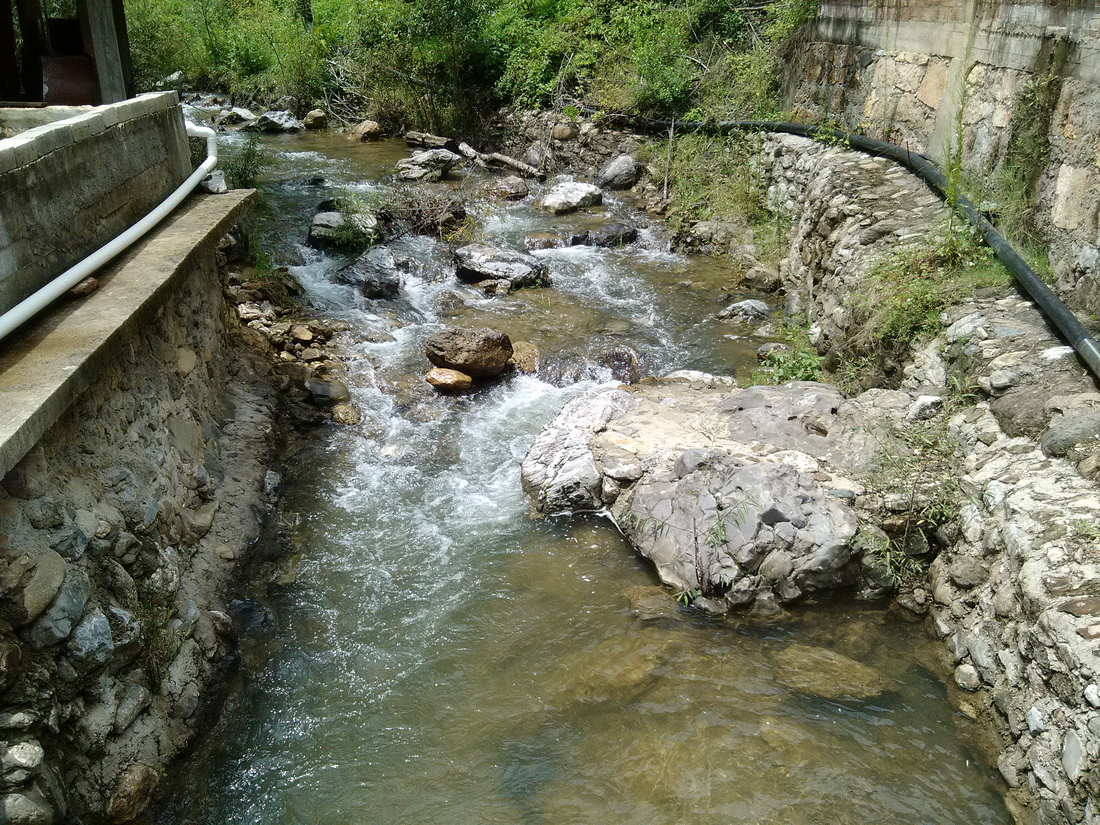

After we were dropped off by Rodolfo and Olga, we met up with the Sosas who then spent time visiting with us at Don Pedrillo. They have a daughter who is going into the eleventh grade next year in Los Fresnos. It was fun hearing about my old school.
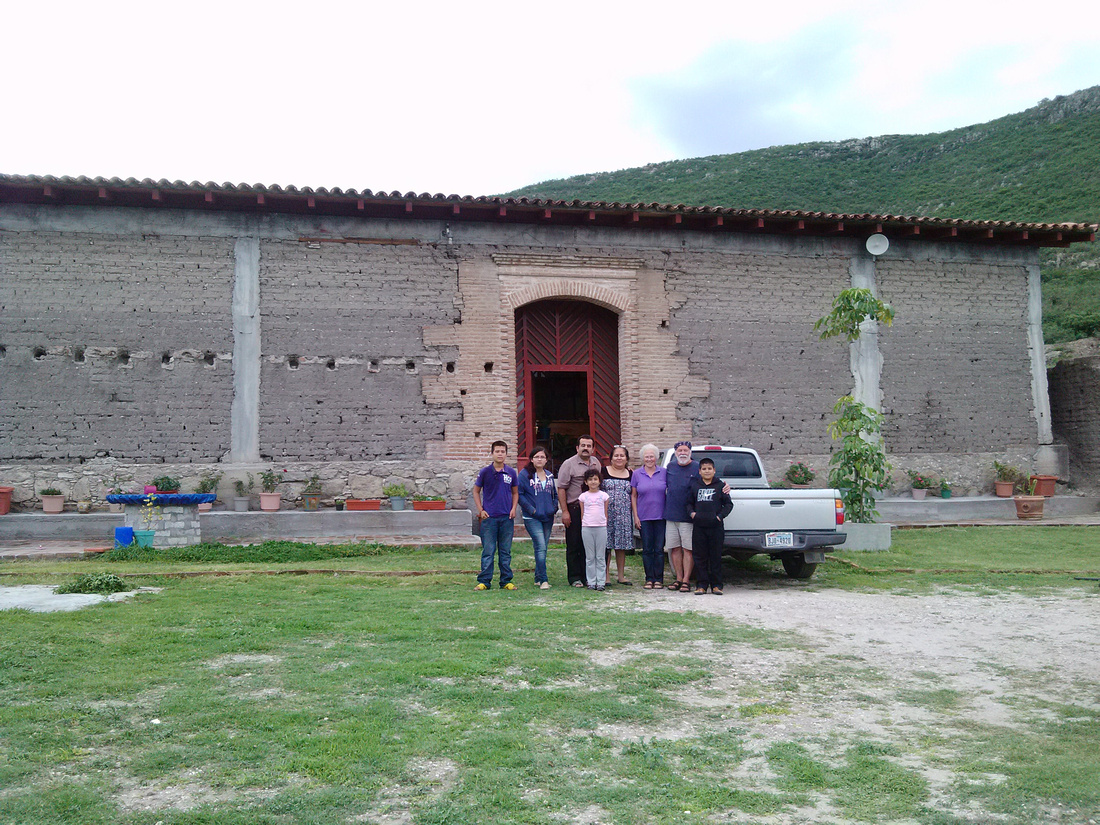

Traveling to Guelatao filled in a spot that’s been missing in our lives. Beth and I both love the mountains especially with the pines which the mountains around our home just don’t have.
Jaguar Zoo
Beth and I live about three miles from the Yaguar (Jaguar) zoo. The zoo is about thirteen years old. I visited the zoo when it was in its third year. At that time it was little more than bulldozed paths with cages. The zoo is a private enterprise. They receive no help from the government. Growth has been slow but steady. We talked to the owners about donating our burra to their petting zoo. We’d love to see her there. The owners are coming this week to look at her. I’m sure they want to be certain that she’s gentle enough to be around children.
Two things are immediately apparent at the Yaguar zoo. First is their obvious limited budget. Shelter for the animals is very primitive. Shade is provided in the most rustic ways. Some of the cages are smaller than they could be. Walkways are not paved and snack shops are very basic. One area where corners do not seem to be cut is food for the animals. All look well fed.
The second observation is how close you can get to the animals. Even many predatory animals are within hands reach. Unlike in America where if a child were bitten a probable law suit would result, I suspect here the owners would ask why did you let your child put their hand in the cage? Personal responsibility is much more apparent here in Oaxaca in many areas. I’m reminded of an article I read this morning that stated one out of five American children live in poverty. Beth and I live around poverty. It seems almost an insult to use the word poverty so broadly.
The location of the zoo is very curious to me. It’s basically out in the middle of nowhere. I’d guess it to be about a forty minute drive into Oaxaca de Juarez. The zoo is located next to a village called Tanivet. It’s fun to have to drive through part of the village to get to the zoo. One minute you’re in a typical Mexican village and the next minute you’re in an area with animals from all over the world. Two extremes!!
The manager told us they have a real problem with local dogs coming into the zoo. Aside from being able to cause harm to some of the animals, introducing disease is a concern.
Here is a map of the zoo showing all the animals.
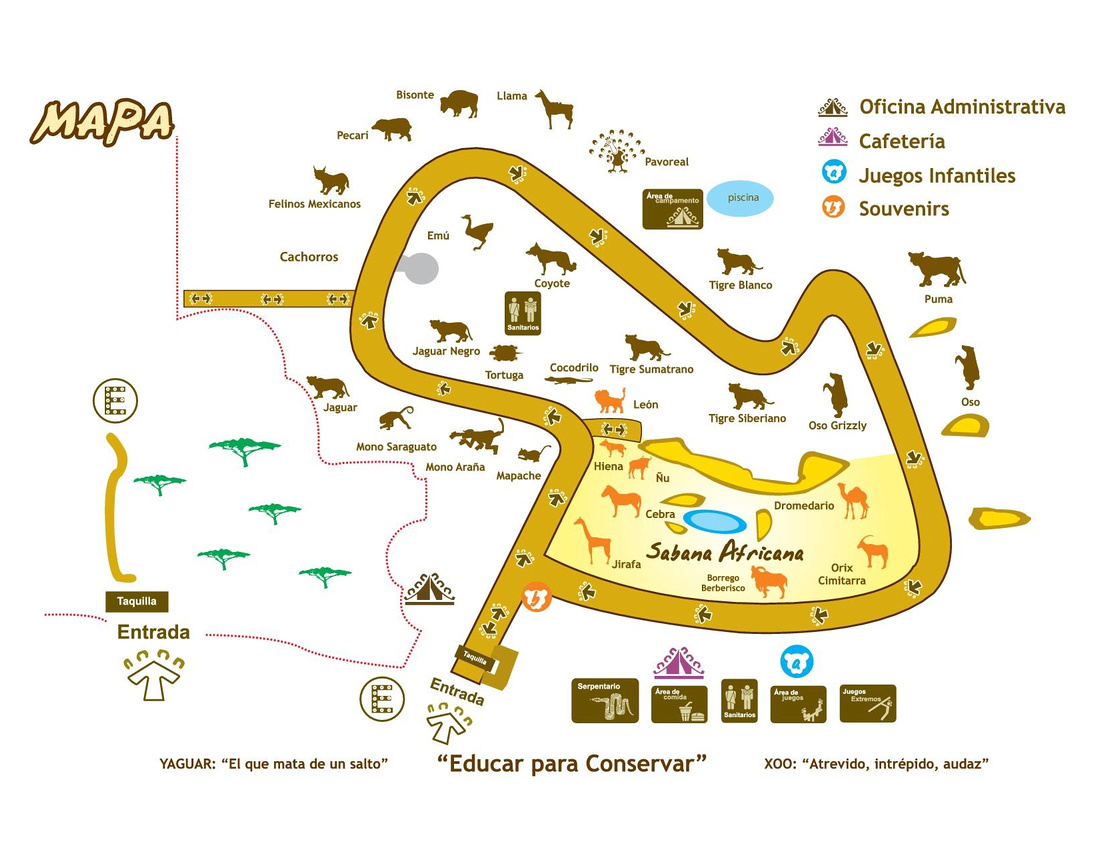

Entrance to the zoo.
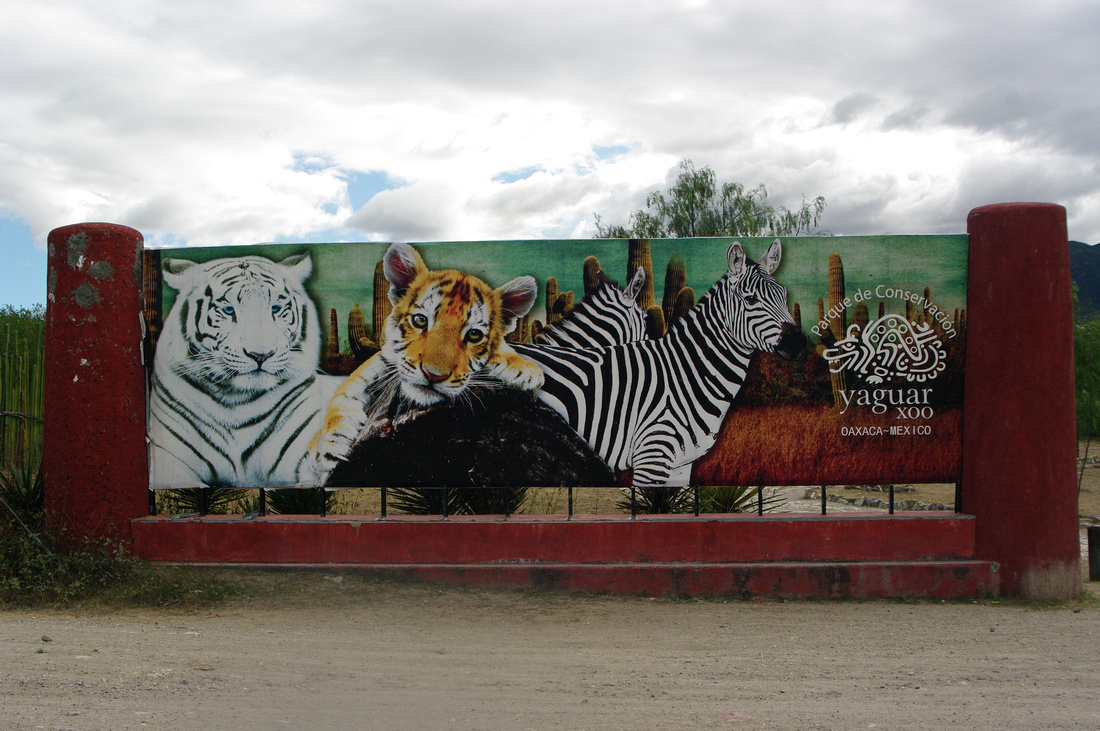

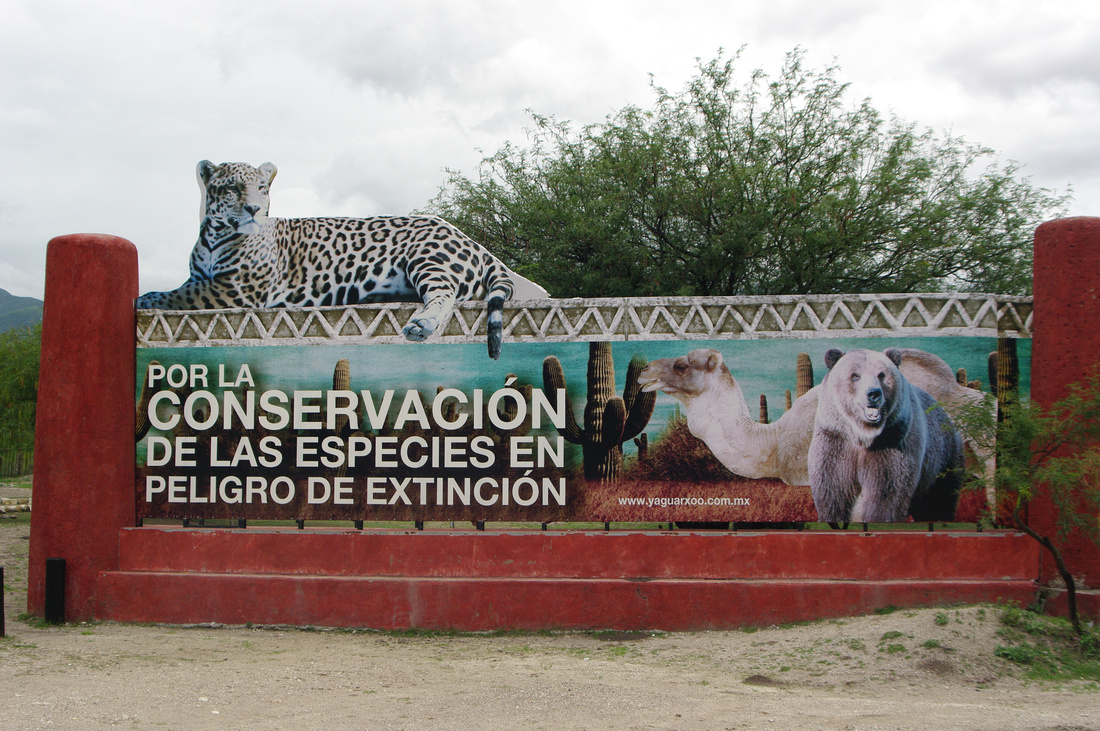

Snack bars without hotdogs. There ought to be a law!!!!!!
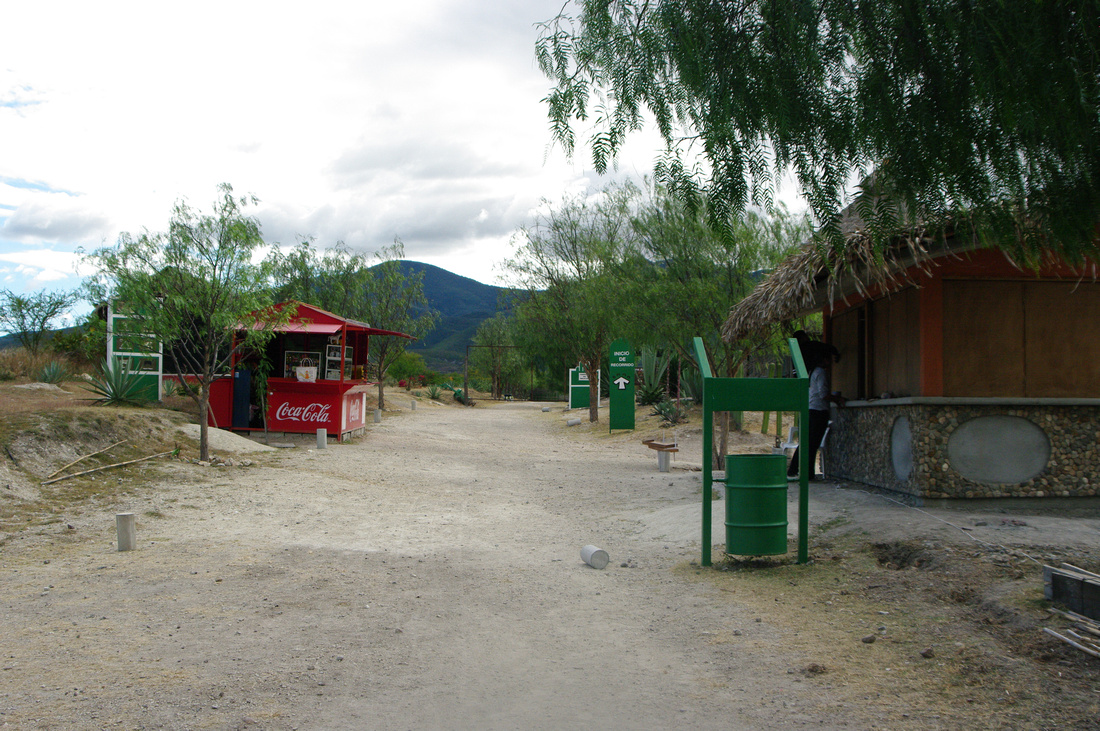

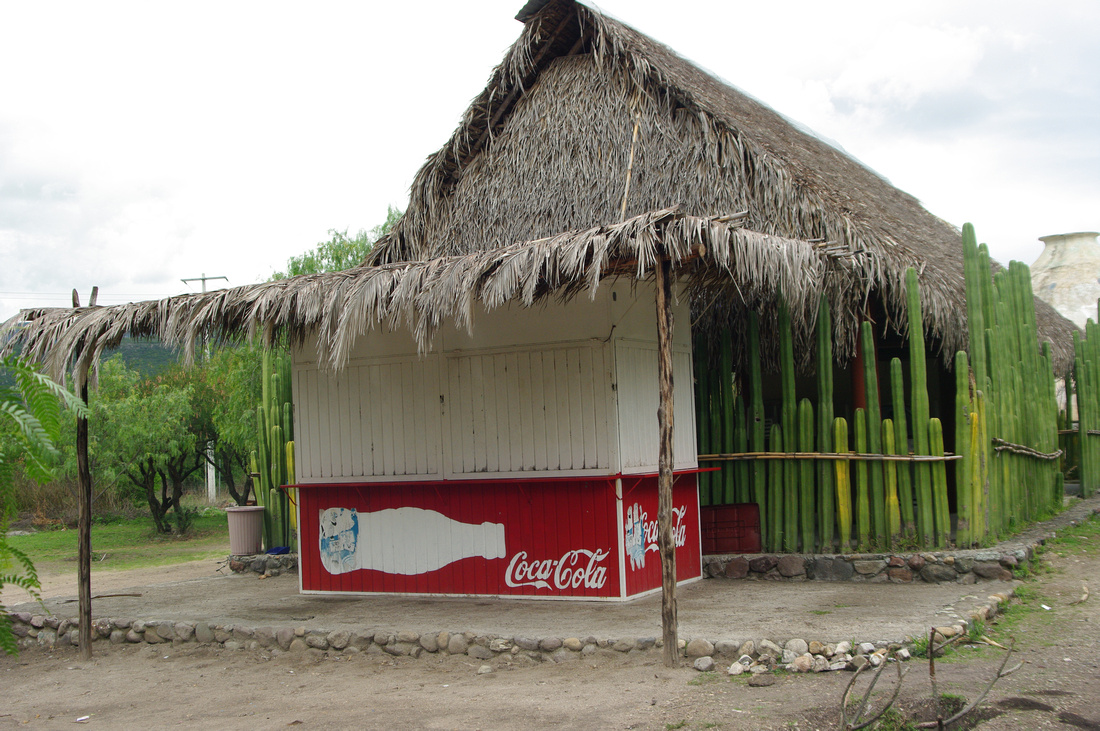

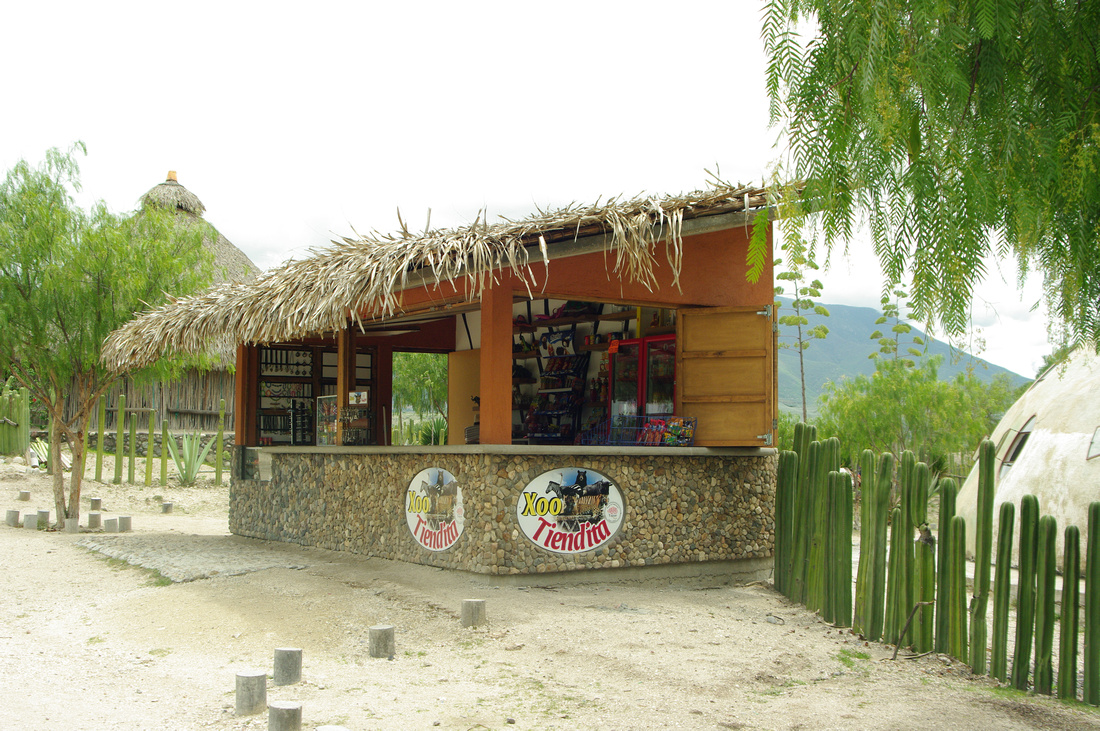

Rustic looking but functional.
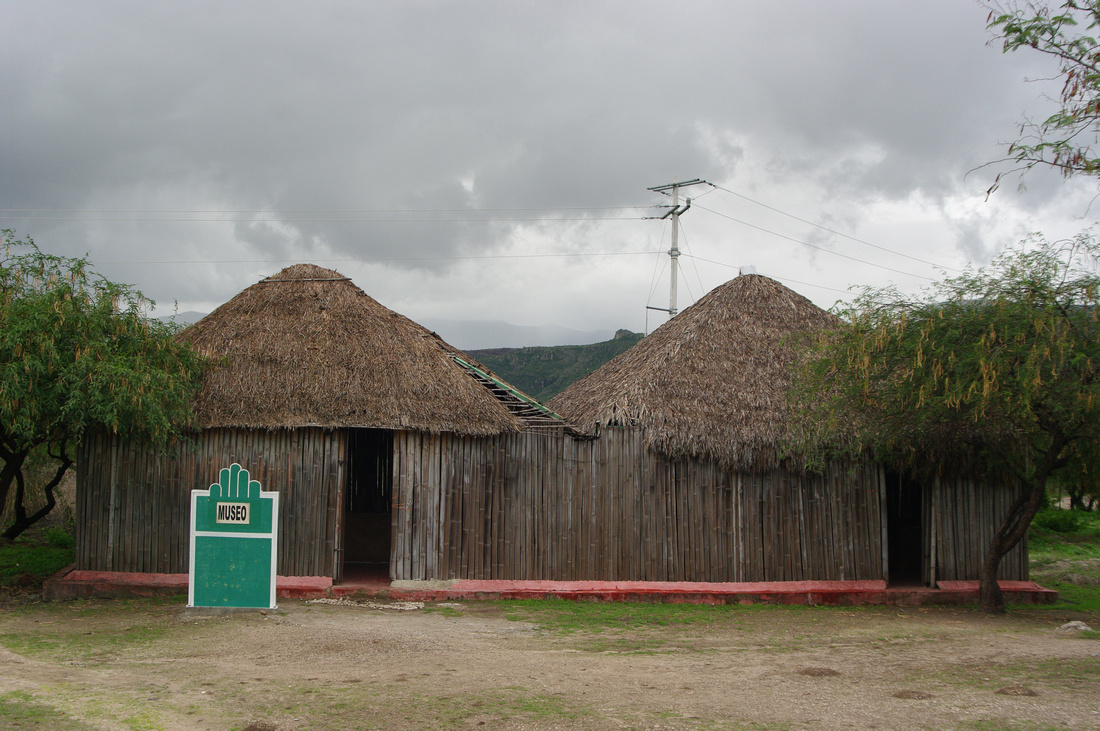

This interesting structure holds work for sale by local artists.
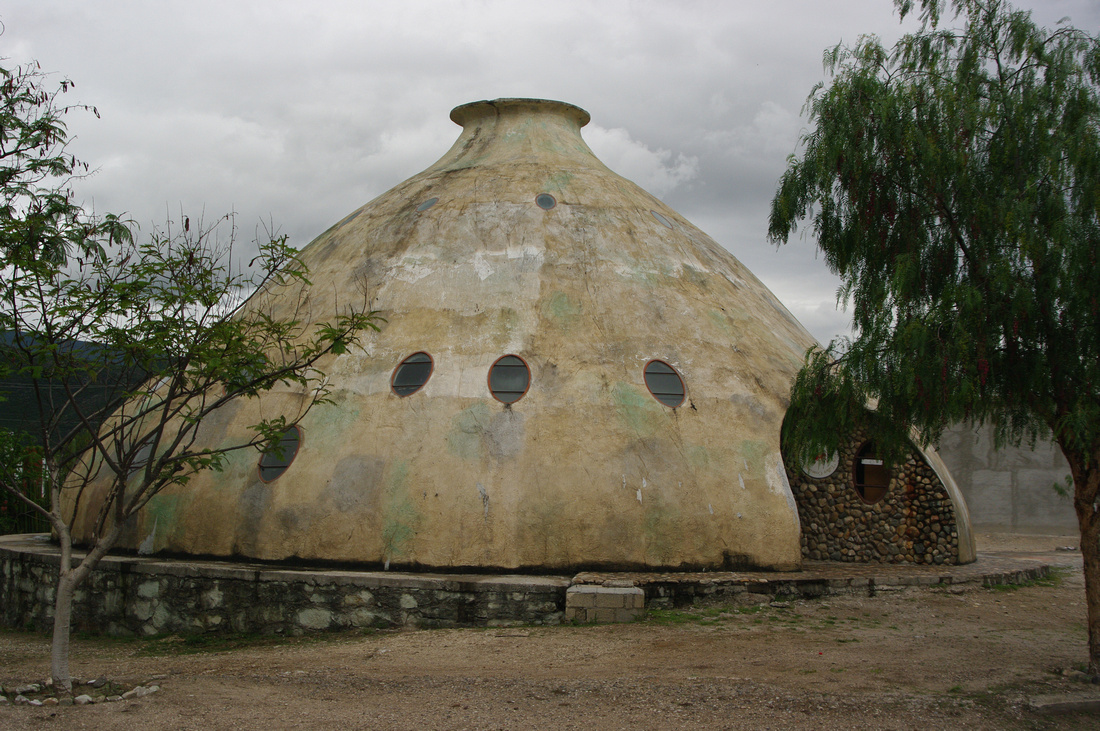

Paths are not paved but are beautiful.
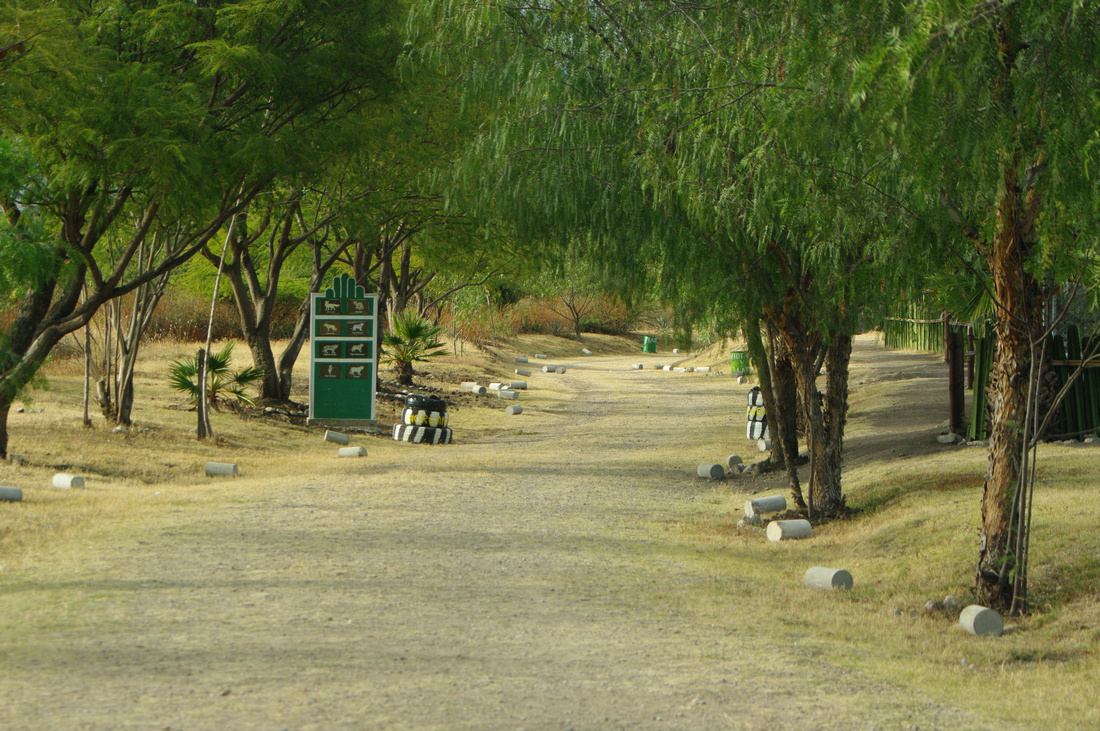

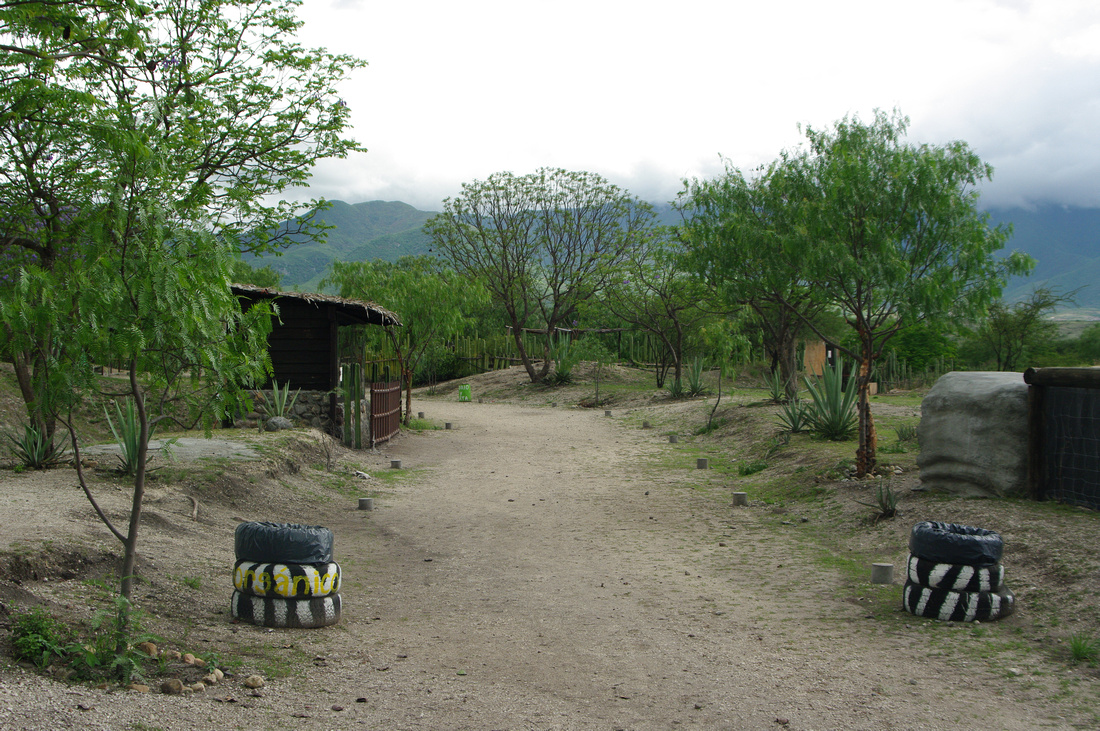

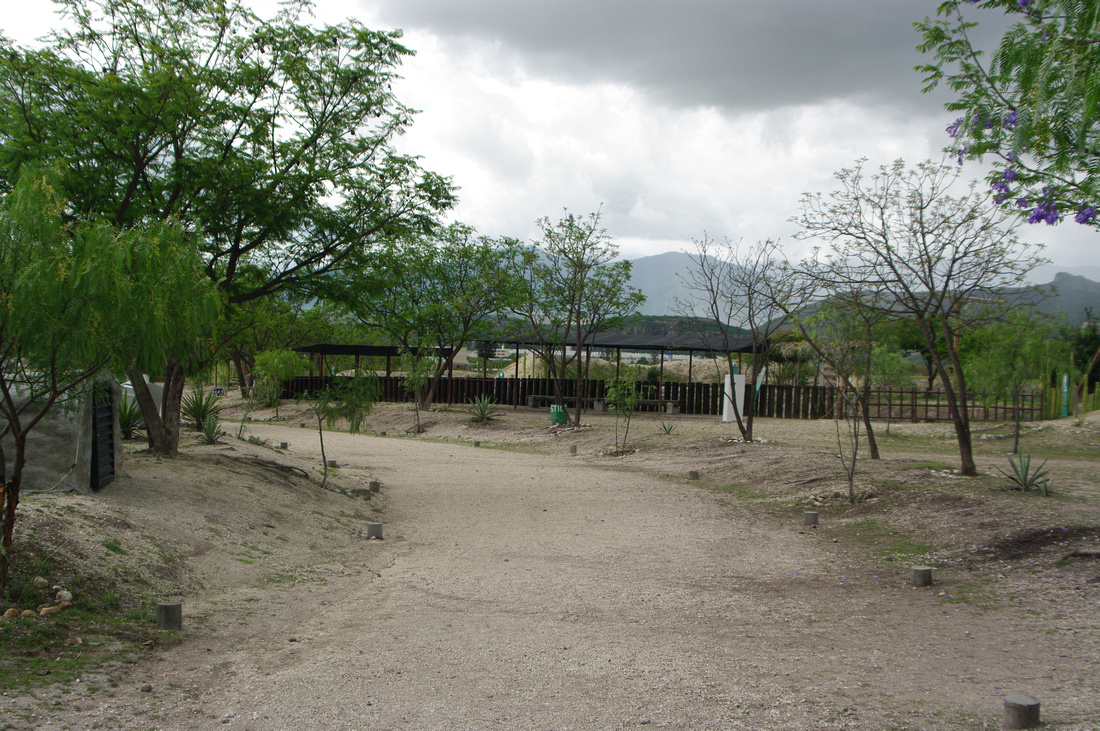

Shade and housing are pretty basic.
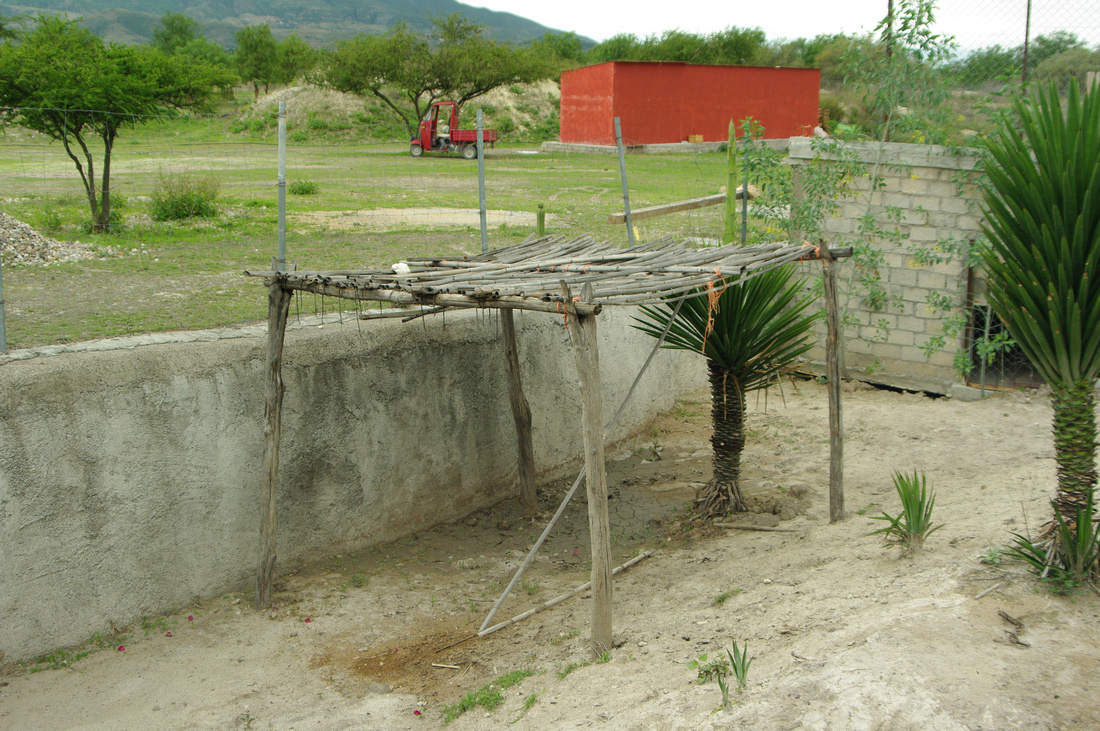

One section of the zoo is dedicated to felines found here in Oaxaca.
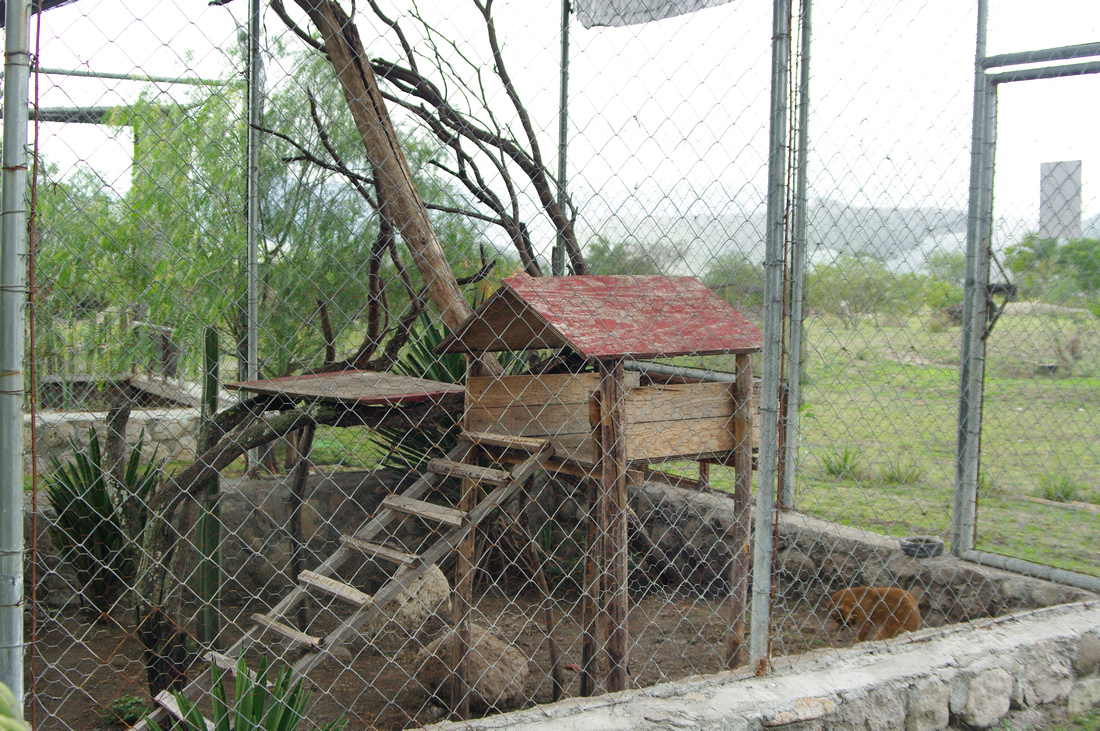



Some of the predators are in areas that look like they could get out if they tried.
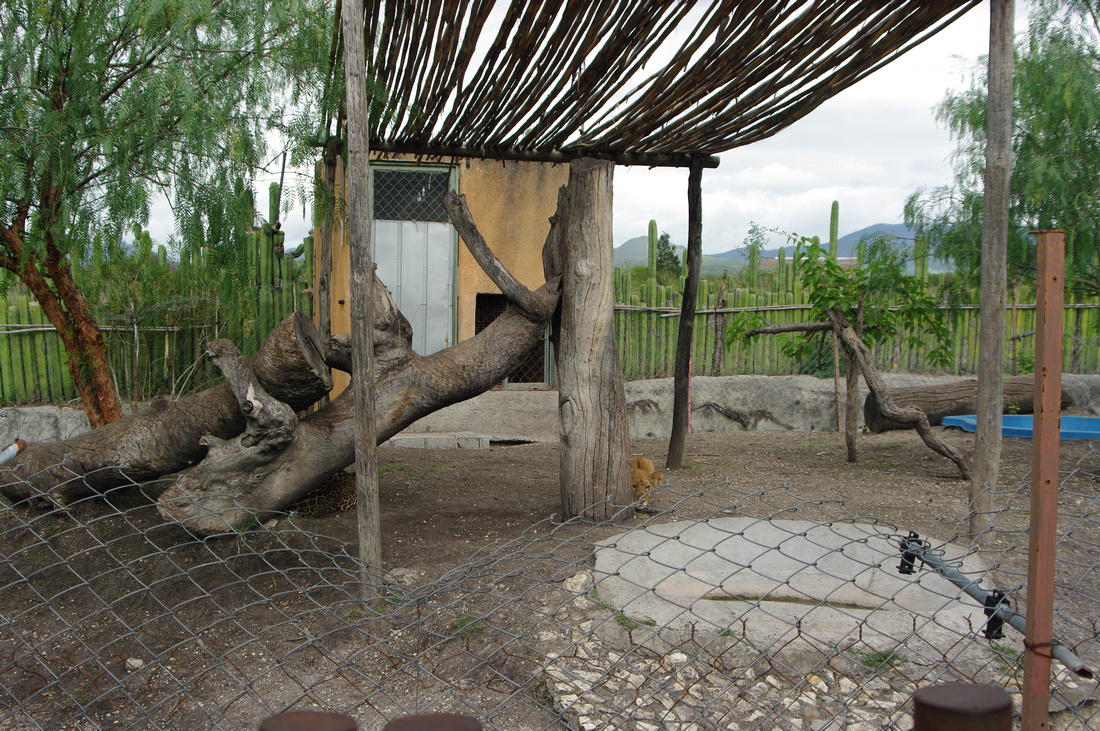

This cracked me up. Producing mezcal in a zoo. Not sure how this would go over in the States.
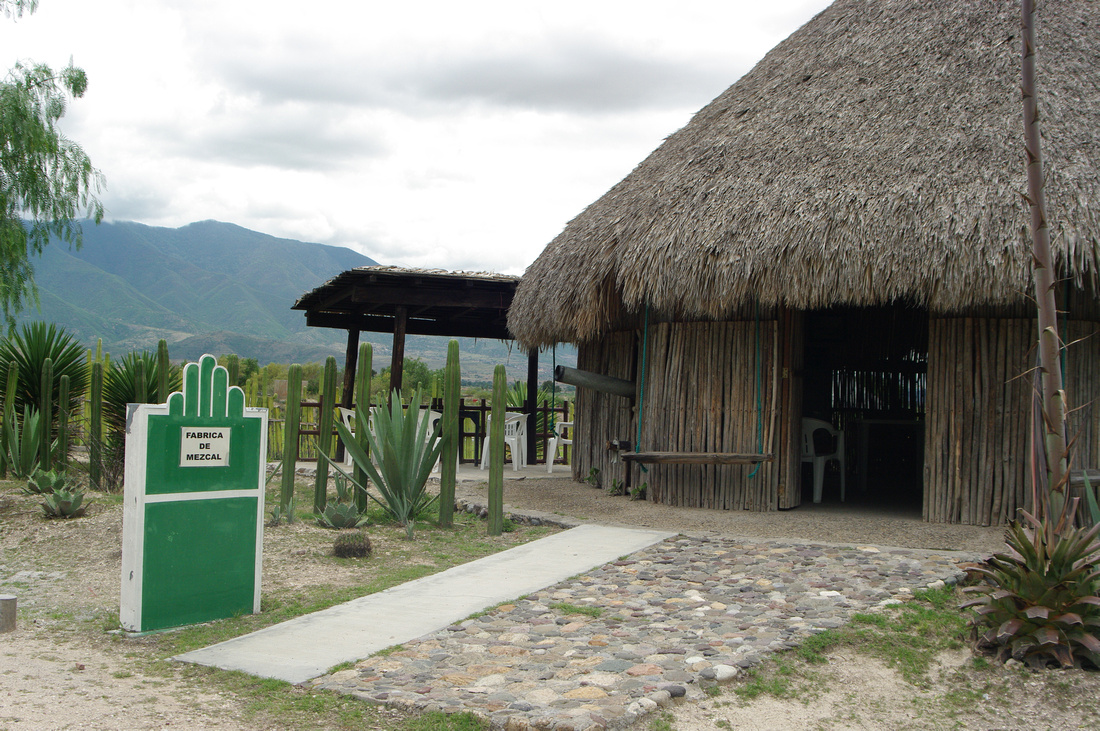

I couldn't have been more than three feet from this guy.
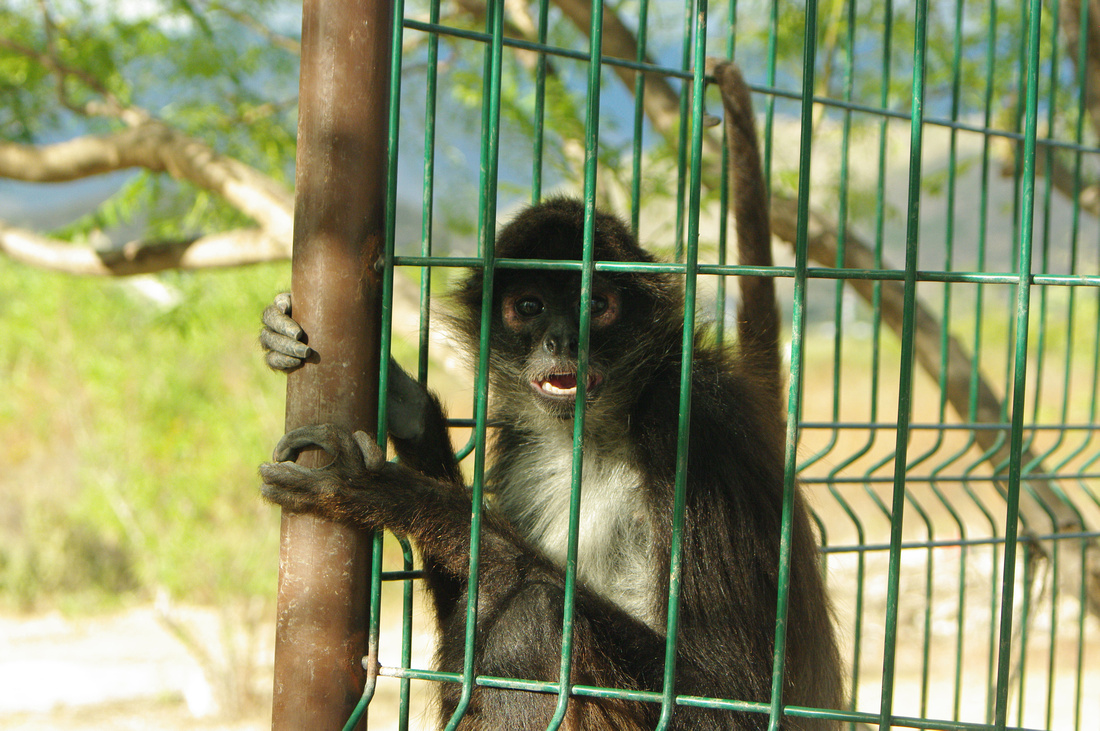

On this day Beth and I were the only visitors. We had the zoo to ourselves. You can see from most of the photos we try and pick overcast days to visit the zoo.
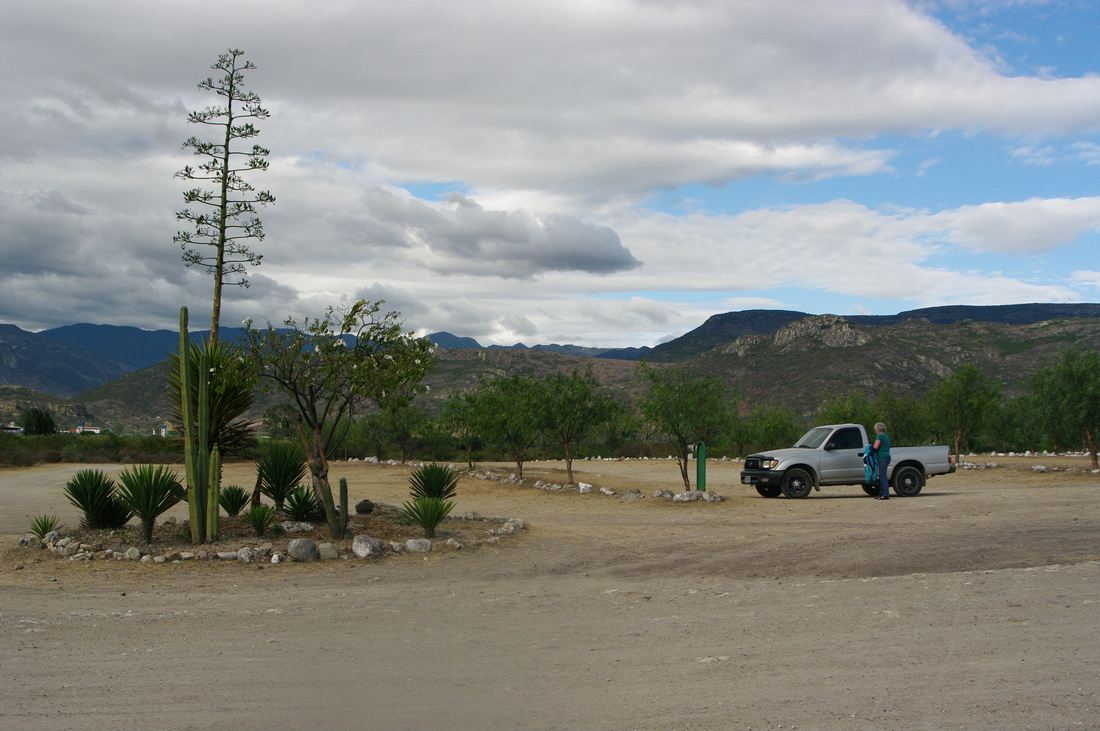

How fortunate were are to live so close to such an attraction. The web page for the zoo can be found at: http://yaguarxoo.com.mx/
Otro viaje a Guatemala
We just got back from another trip to the Guatemalan border. This made our third trip so we are beginning to establish a routine. We found a very comfortable hotel in Tonala, Chiapas where we stay the first night. The next day we drive to the border, get our new visas, then drive back to Tonala. The next day we drive back to Don Pedrillo. It makes three short days of driving.
We are still accosted by the scam artists at the border but now ignore them the best we can. Some of them are very persistent! You have to become rude before some accept the message you want to be left alone. The biggest scam is the exchange of pesos to Guatemalan money. People walk around with wads of money looking to buy pesos. Their exchange rates are much less than the official exchange rates so the unsuspecting tourist can be gouged pretty good. We have to have our passports stamped in Guatemala showing entry and exit. One of the favorite tricks of money changers is to convince you that the Guatemalan immigration office will not accept pesos, but they do.
When we arrive back on the Mexican side we feel like we are home again.
While renewing our permit for our truck in Mexico, we met a couple of missionaries who work in Guatemala. Michael and Kambria along with their two young girls were driving up to Northern Texas. They normally drive up the Gulf coast of Mexico to Matamoros which is a curvy, hilly, two lane drive. It's a very tedious drive. It's not uncommon to come up behind ten cars trying to pass a slow moving, heavy laden, double trailer semi. It can take up to an hour before you reach the semi traveling at speeds down to ten miles an hour then get your chance to pass when there is a short stretch of straight road. Years ago we discovered that driving inland was much quicker and safer. By chance, Michael and his family had stopped at La Puerta del Sol, our hotel. We explained the new route to Michael and decided to travel together as far as our home. I received an email from him explaining that they'd just passed into the US. We hope to see them on their way back to Guatemala.
Southern Chiapas and along the Guatemalan border is very rain forest-like: a lot of rain, lush vegetation, and very humid. You have to sympathize with all of the people that live without air conditioning.
Talisman, Chiapas is separated from Guatemala by the Suchiate River. Crossing into Guatemala is as strange as passing from the US into Mexico. Like many border towns Talisman, Guatemala seems very seedy. Michael told me that the highway system in Guatemala is as different as the road system is in Mexico compared to the US. Must be rough driving.
The Suchiate River.
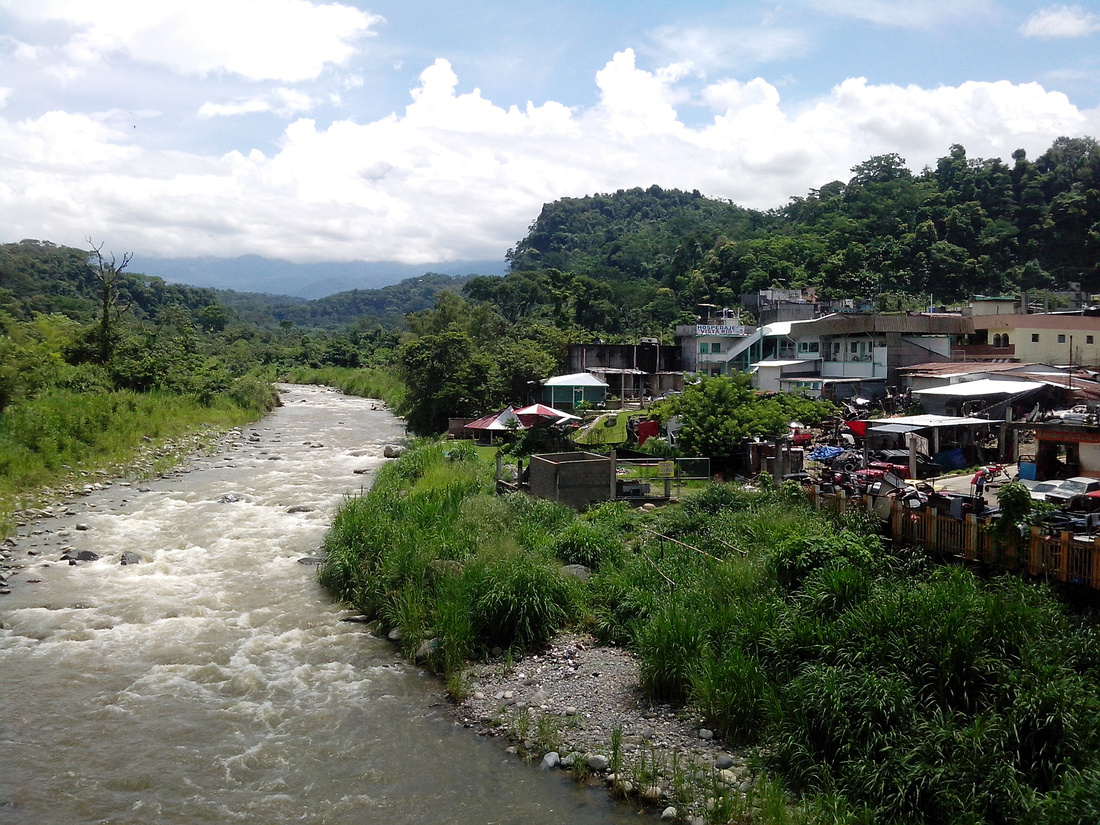

Street view in Guatemala.
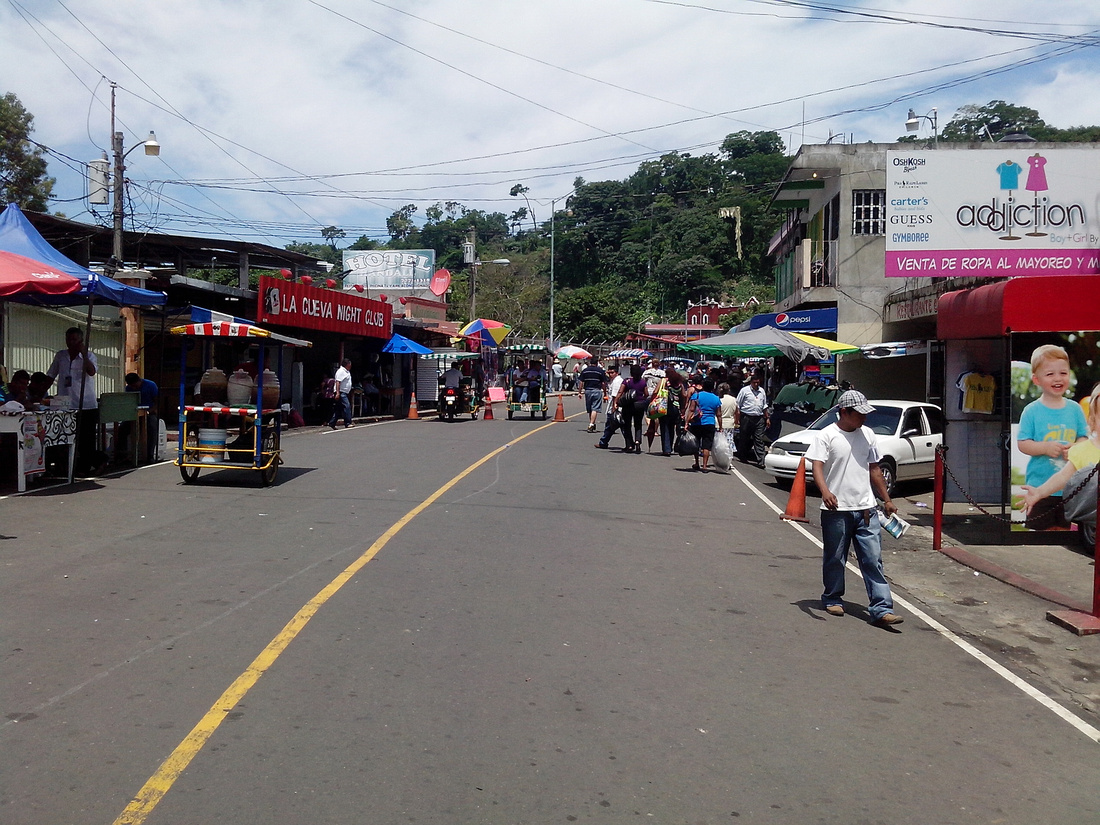

Notice the missing presence of much auto traffic.
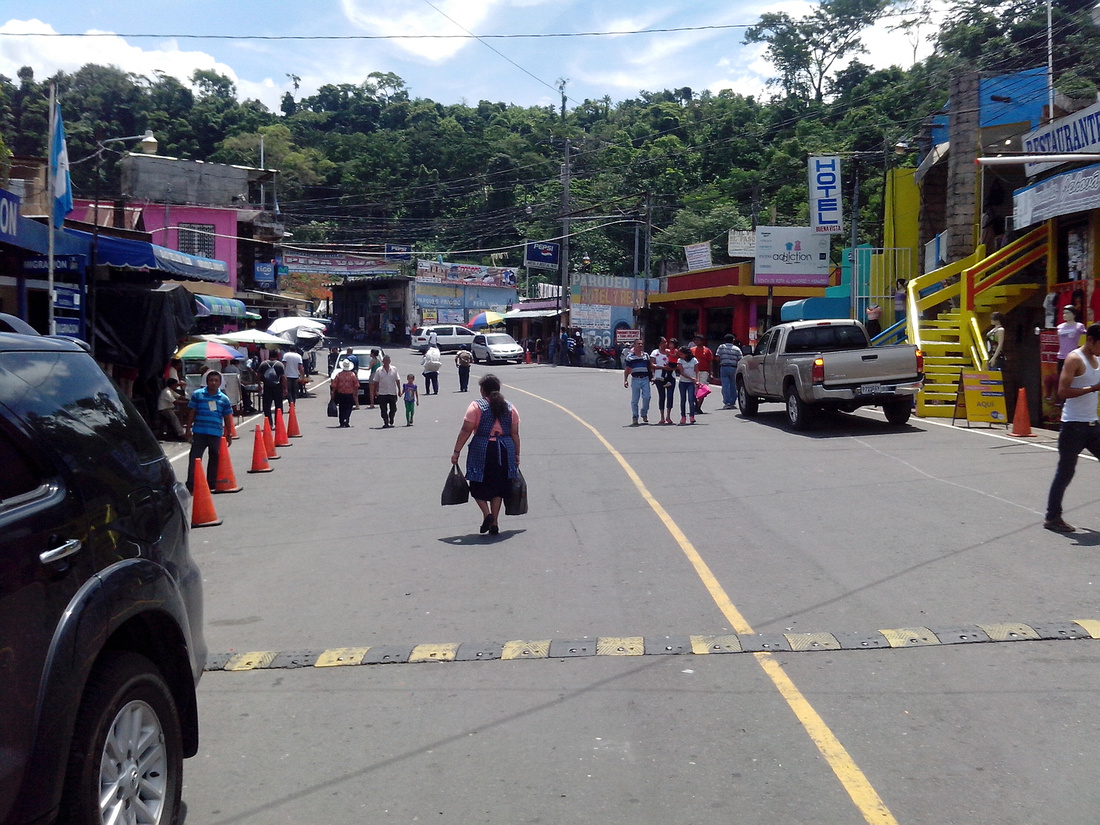

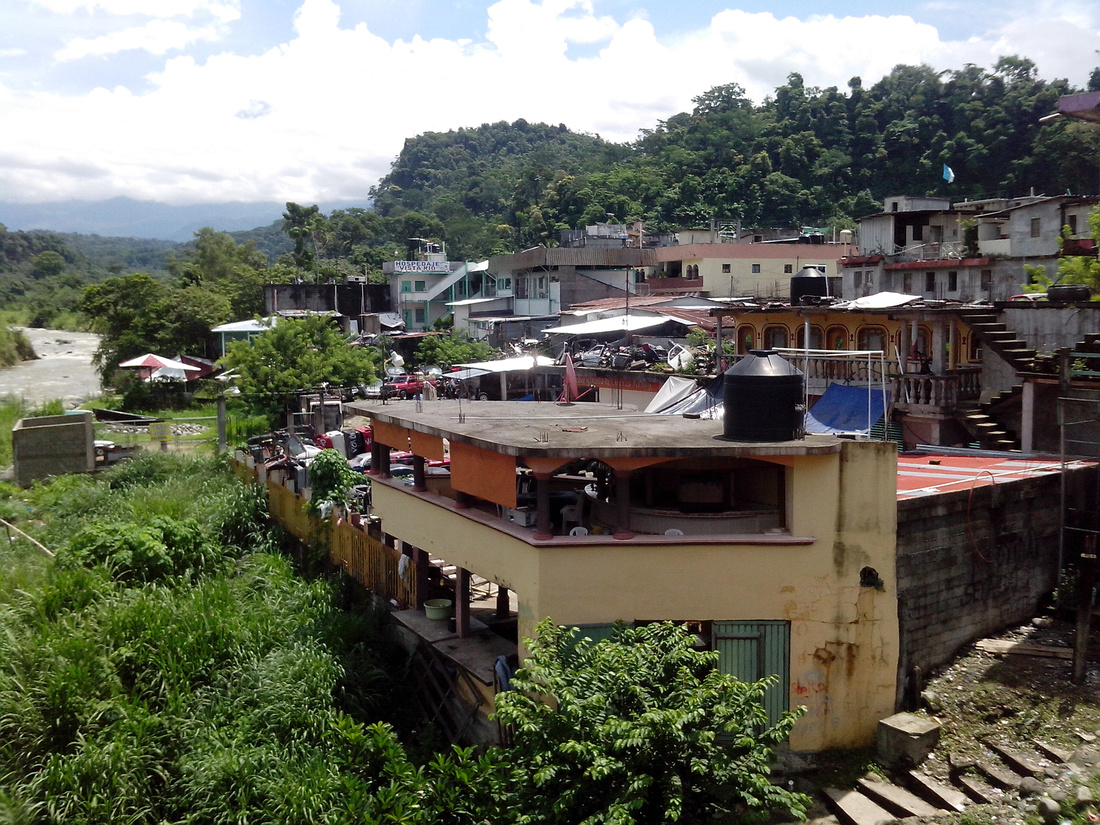

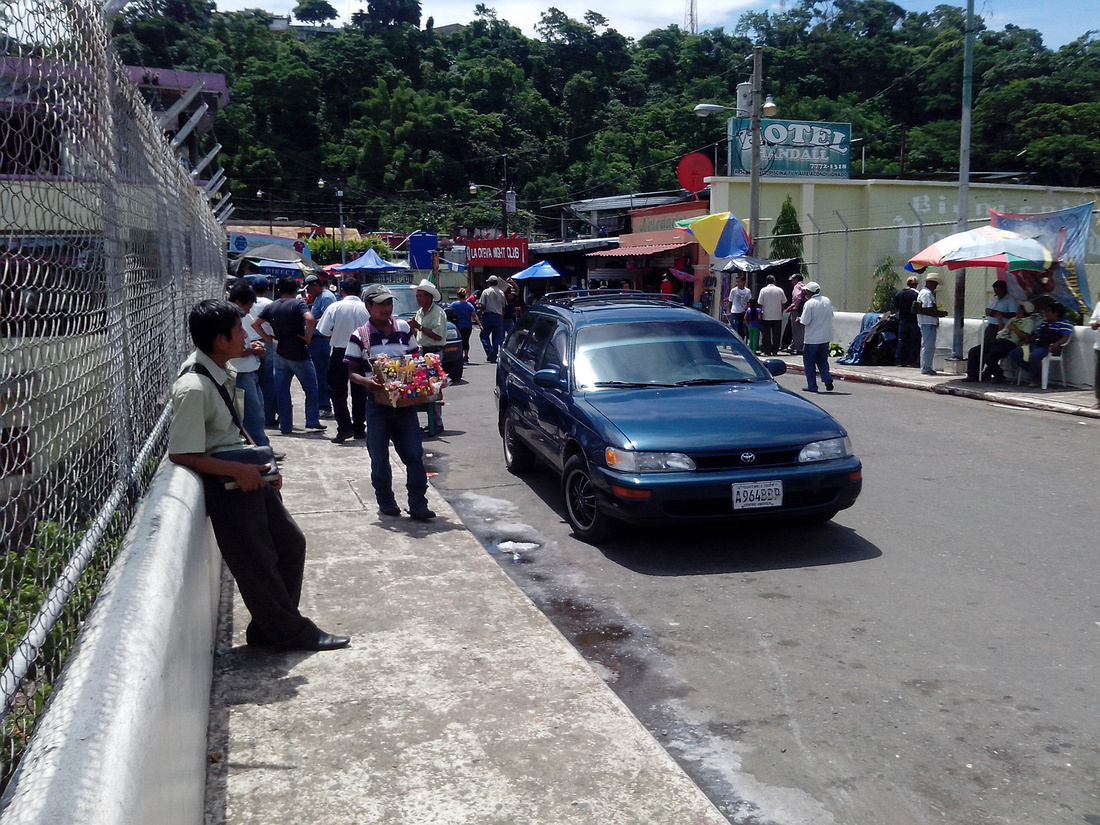

Most bridge traffic is on foot or these mototaxis.
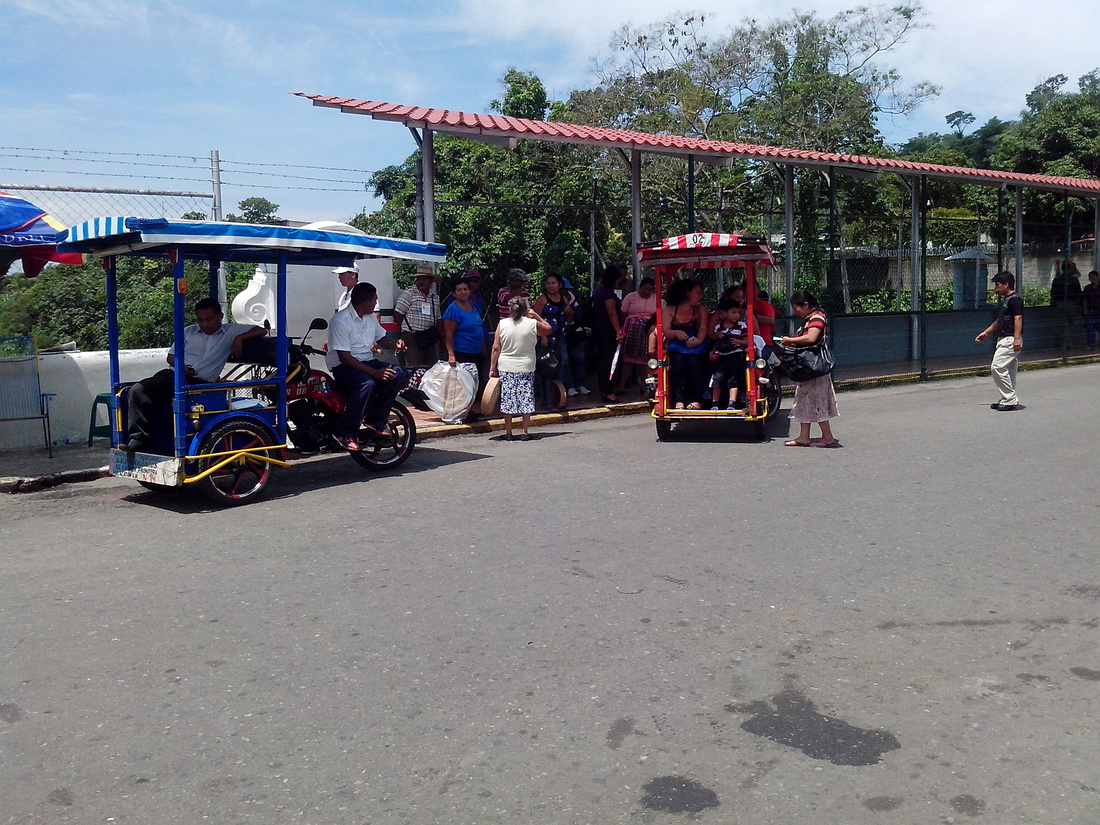

This is from the Mexican side looking towards Guatemala. Quite a difference from the border crossing into Matamoros.
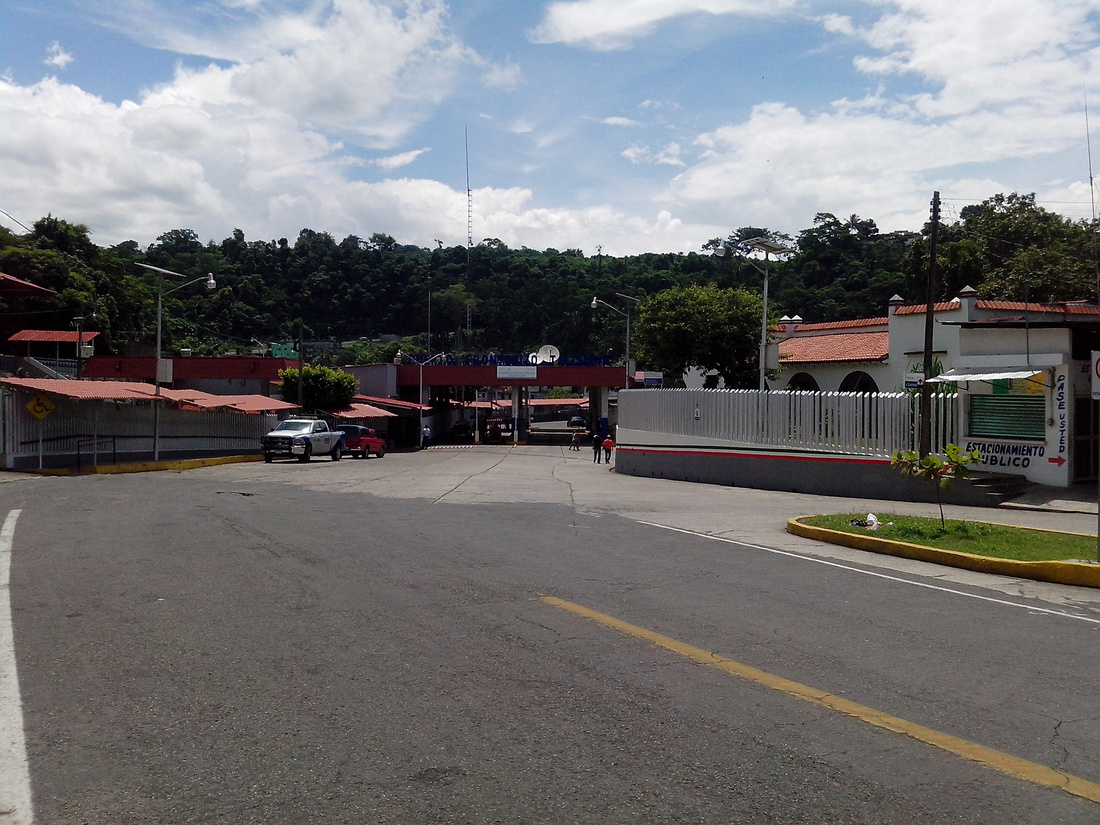

Hotel Puerta del Sol
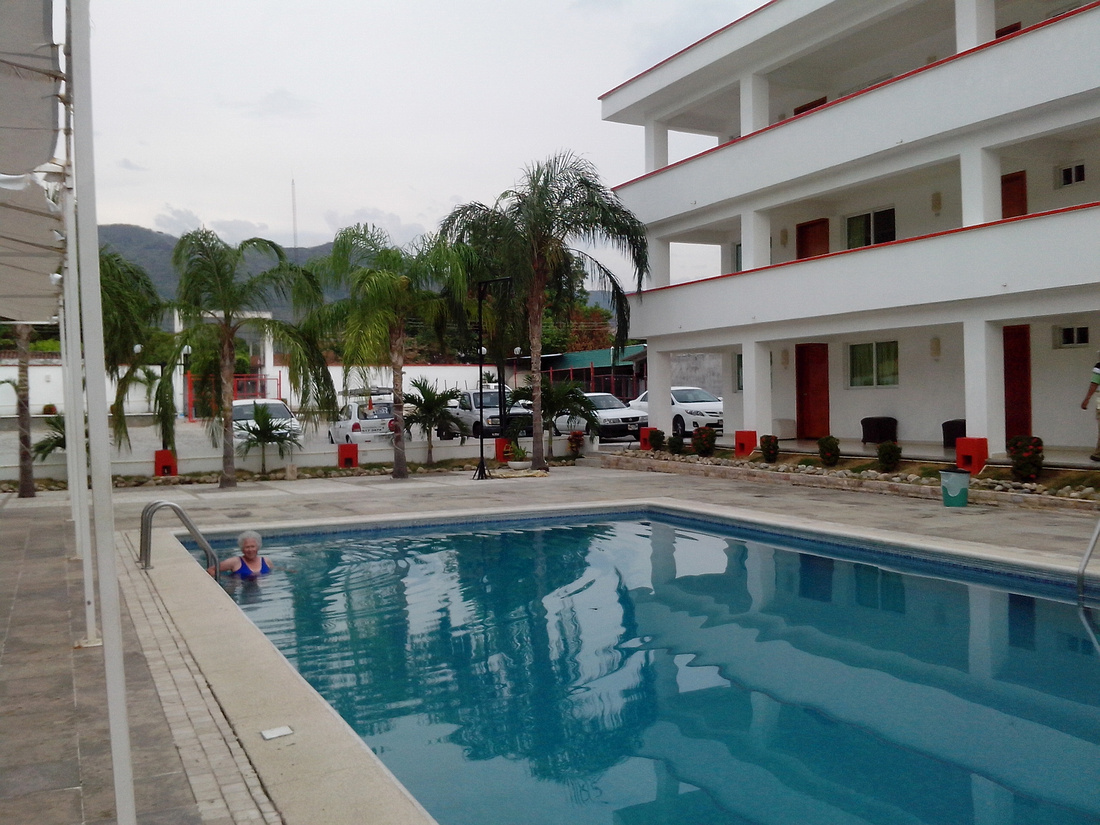

The hotel costs thirty seven dollars a night. Quite a deal for a clean, safe, hotel with air conditioning, a pool, fast internet, and a restaurant.


The store is a small Soriana. It's right across the street from the hotel. The Auto Zone is new. It was completely built in six months. There was no sign of it on our last trip.
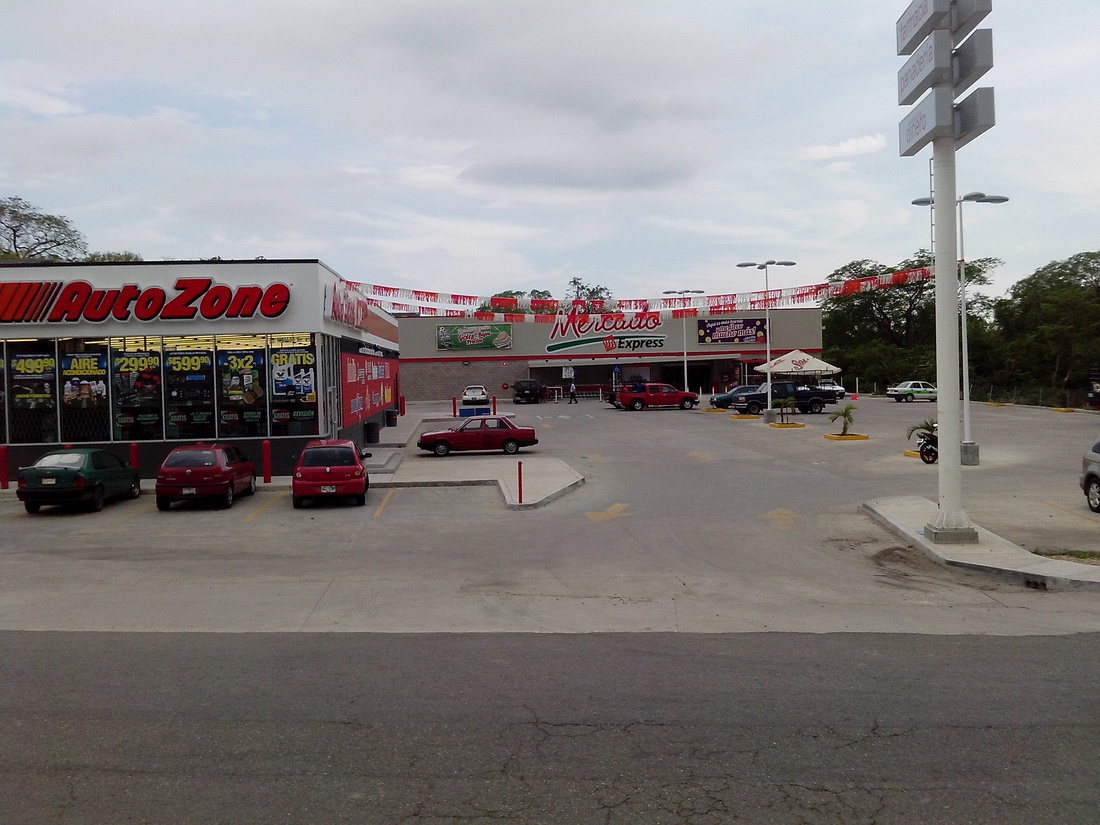

Travel for us has changed dramatically because of our increased ability to speak Spanish. Asking for directions is less complicated and we often actually understand them. The process of obtaining our visas is much smoother because we know the procedure but are also able to communicate much better. A major advantage is the ability to stop and chat with folks along our way to ask about their lives and answer questions about ours. We have found the people of Chiapas to be warm and friendly and it’s such a beautiful state. The highways we travel are amongst the best in Mexico.
In Tonala we purchased a barbequed chicken from a gentleman. He was set up in front of a Soriana (large store). While we were waiting we struck up a conversation. He had crossed the border into the US in his early teens with the plan of being taken to Canada. Something happened at the border that resulted in him losing his ride. He eventually ended up in Atlanta where he was taken in by an American family. I was bursting with pride as he recounted his time with the family that saw to his education and taught him to be a young man. I wish I knew the name and address of the family so I could write and thank them for their kindness and generosity.
The teachers here in Oaxaca are back out in the streets again. This year their beef is a new law stipulating that all teachers must take and pass an exam in their area of teaching. So in protest, they block off main thoroughfares with buses or trucks. Not only does this cause much inconvenience for the people that live in Oaxaca de Juarez, it hampers commerce and hurts the tourism trade. I am astounded by the selfishness of the teachers here. Life is very difficult without the disruption of the transportation system. Closed roads add to the difficulty of trying to make a living. I believe this boils down to unqualified people being held accountable and their inability to accept the consequences of their lack of knowledge in their chosen profession.
While teaching along the border in Texas, I was always amazed at the different speeds that Mexican students acquired English. Some newcomers learned very quickly while others who’d resided in the US for years spoke little English. I’m not a linguist nor do I understand much about language acquisition but I have gained an insight from being around Americans here in Oaxaca. It seems to me that the best speakers are those who really desire to improve their Spanish and are good listeners.
The other day in Matalan, Beth and I attended a birthday party. One of the men showed up wearing a Duck Dynasty tee shirt. I started laughing and had to explain I was laughing at the tee shirt and not the man. At the moment it just struck me as odd. There was a picture of the old man on the front. I have no idea what the old man thinks about minorities but he doesn’t strike me as the most accepting person in the world. Anyway it cracked me up to see a Mexican with a picture of a redneck on his tee shirt.
Friday we were invited to Beto's mother's birthday party in Tlacolula. A Mariachi band played for a while before the switch to modern music.
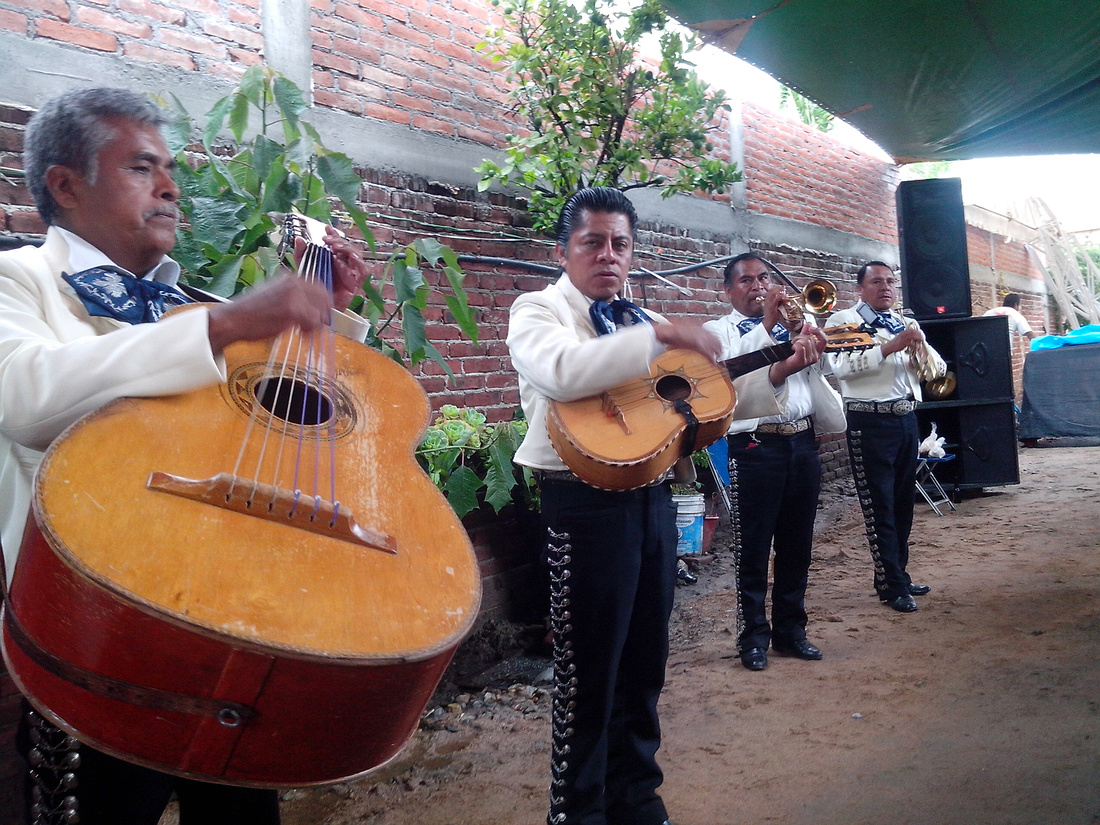

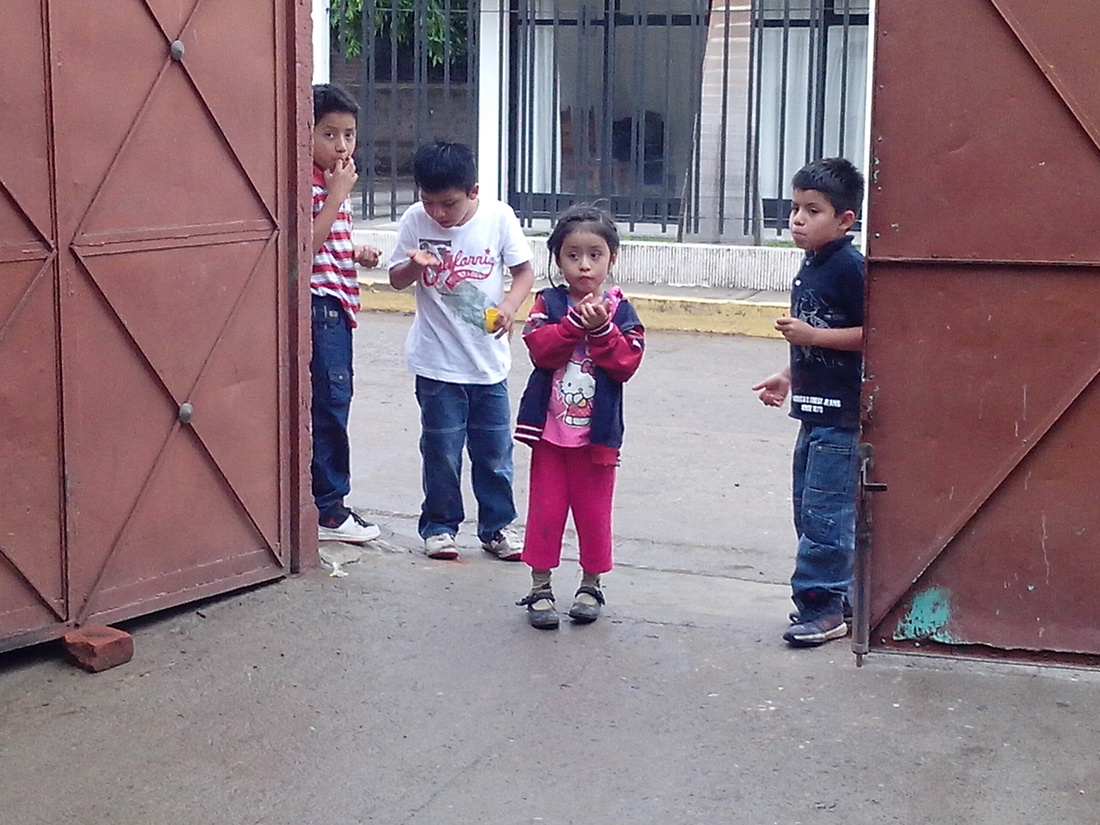

Beth sucking on a Corona. I would guess Indio to be the most popular beer here. Corona is a little more expensive as is Victoria which is our favorite.
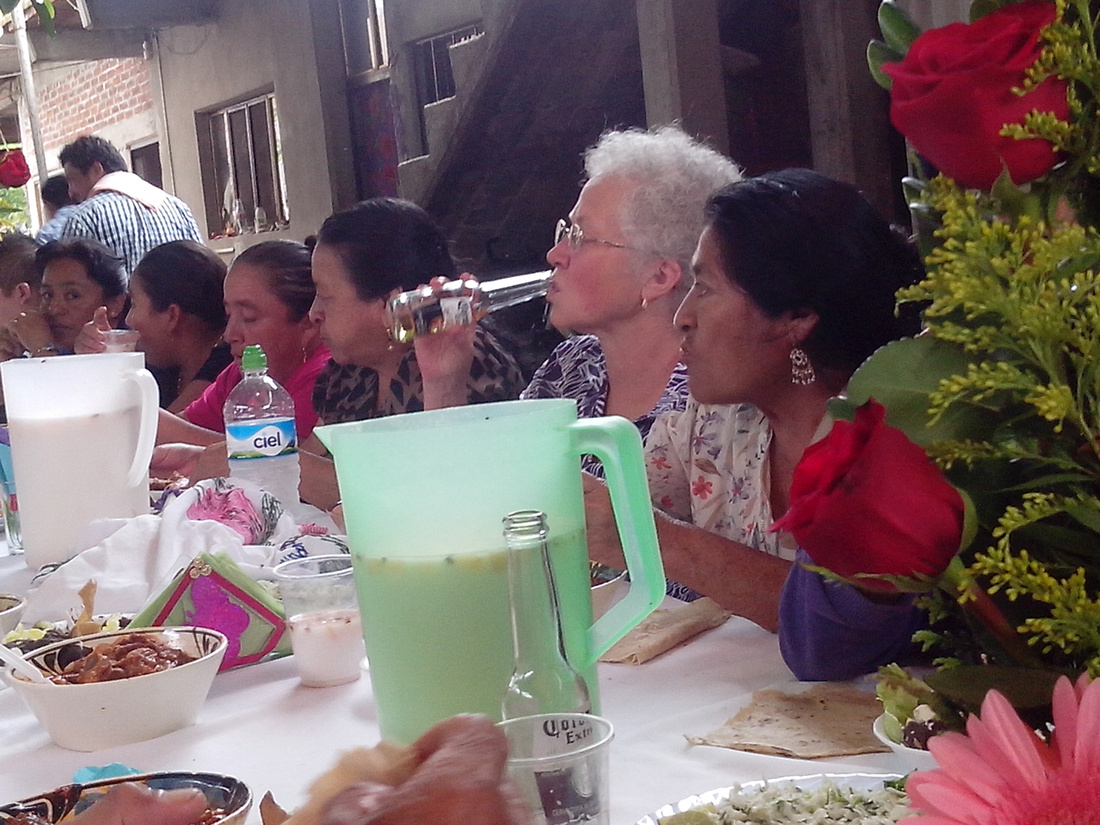

The Priest from Tlacolula loves to sing. I've mentioned that he always heads for my guitar when visiting.
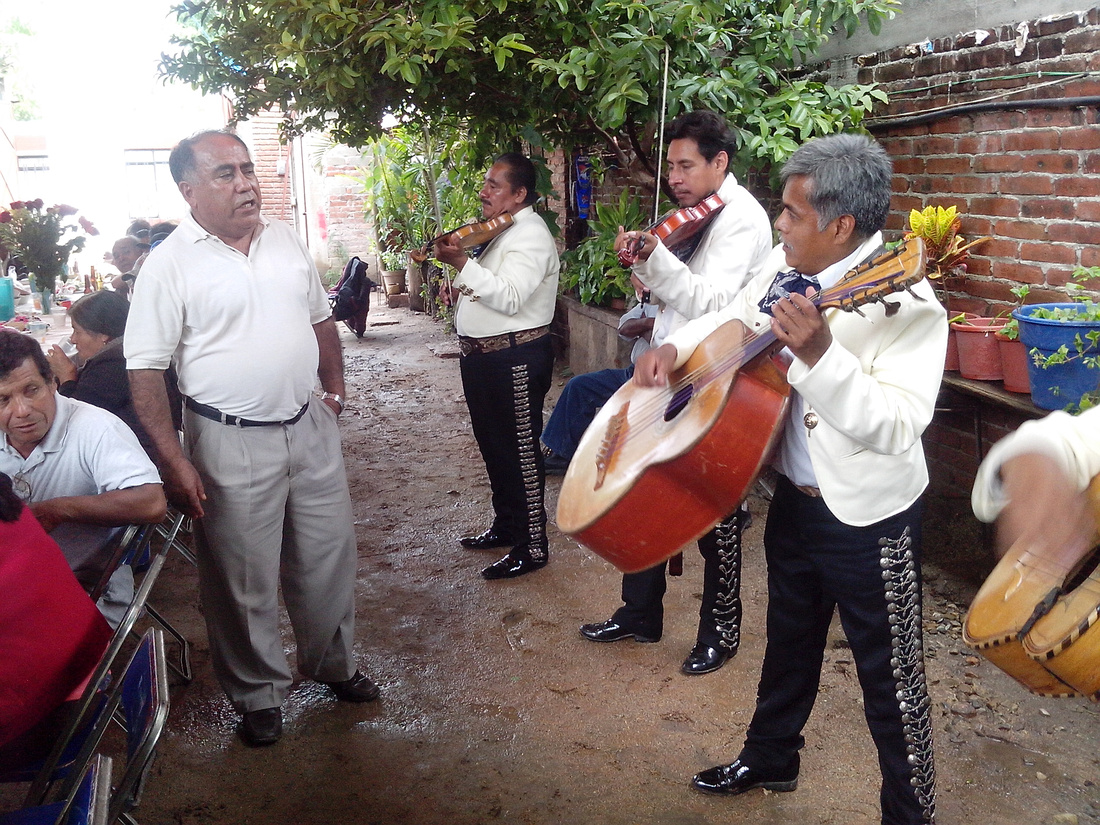

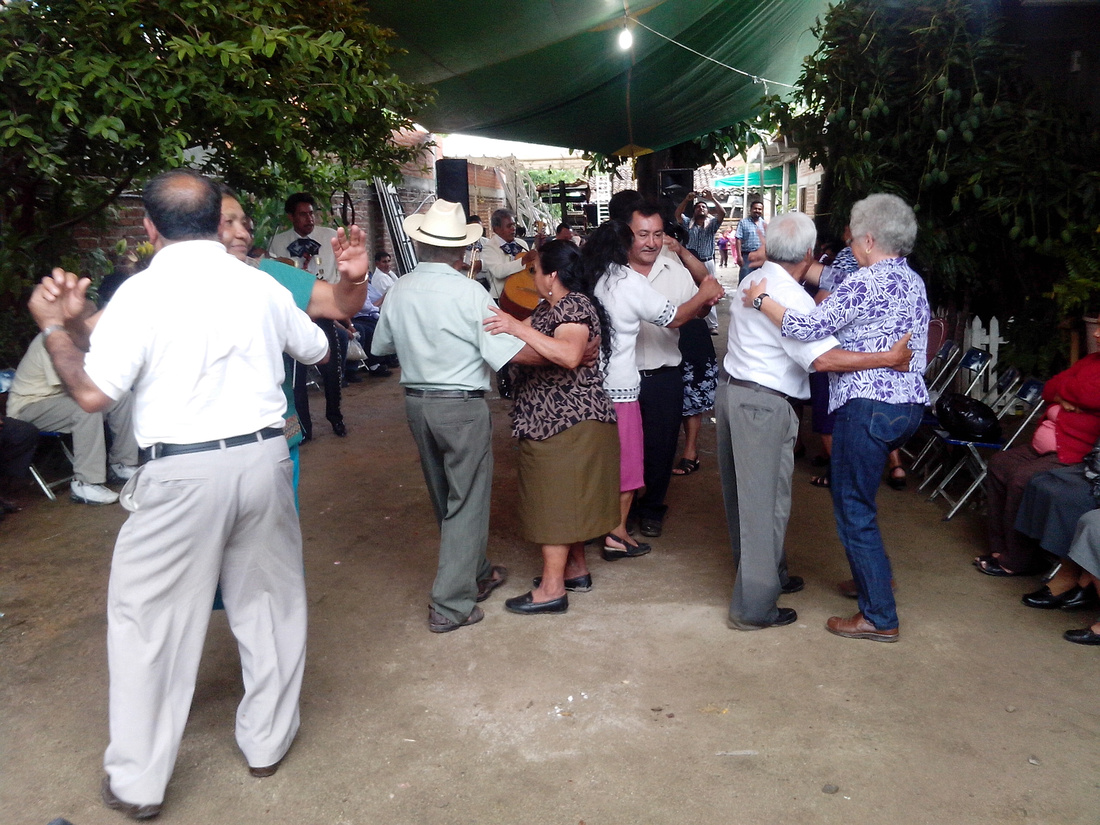

Beth trying to explain something over the loud music and in a foreign language.
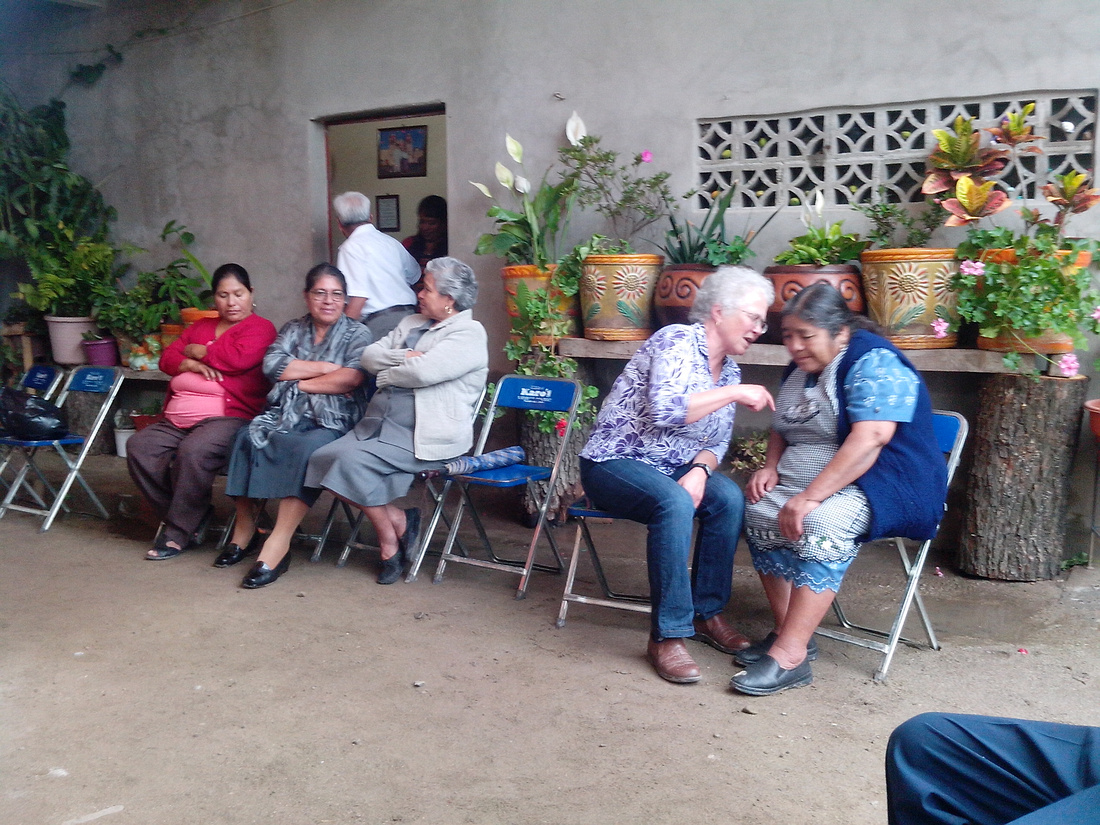

Normally men and women are separated in fiestas. It reminds me of junior high school dances.
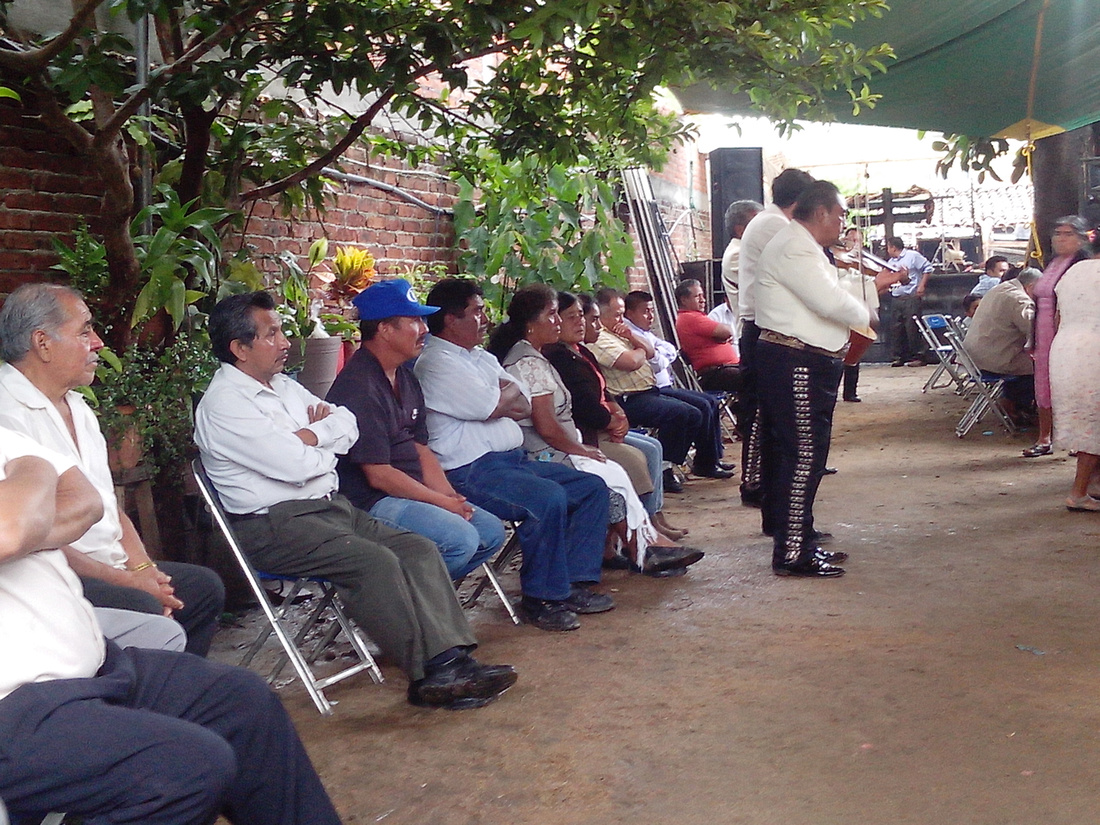

Beth and Beto. Beto has become a very good friend to us.
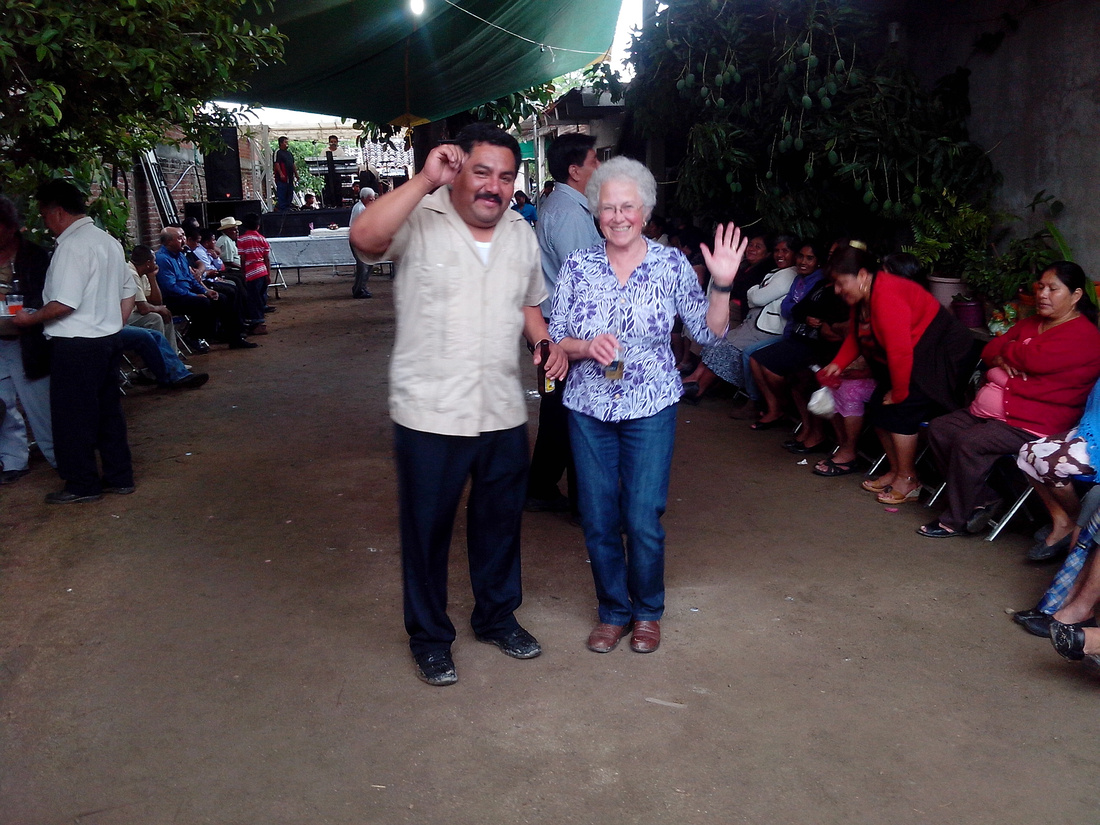

Here comes the beer. This was one of those fiestas that you didn't get much rest in between drinks. The young man in the background is serving mezcal. The young man in the plaid shirt is from Tule. He recieved his degree in Vancouver, Canada. He speaks English pretty well and I'm sure we'll be seeing him here at Don Pedrillo. That's Beto's dad in the white shirt. He loves to dance.
During and after fiestas I always think back to Brownsville. Arnold and Melba Mendoza invited us to several fiestas as did a brother and sister from Totolapan, Oaxaca. We appreciate the friendship they showed us.
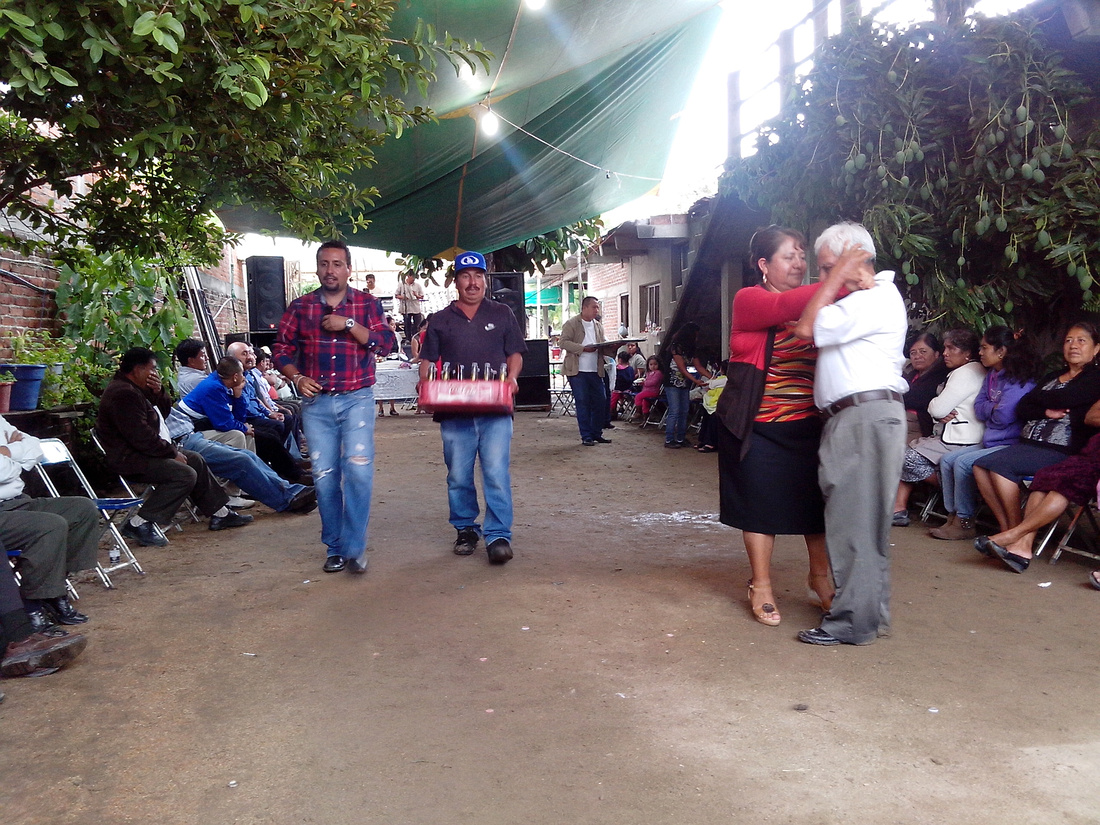

The other day while hoeing, I was listening to music with my little mp3 player. The song "Free" by Zac Brown came on and it really touched me. One of the lines was " We're free, free as we'll ever be". I couldn't help but think that the song pretty well expresses my feelings here. Having good health and being able to experience daily life without a lot of outside pressures is very fulfilling. We are confronted with just enough challenges to keep life interesting but not to the point of feeling overburdened.
We are in the rainy season and new life springs up almost daily. Normally when it rains here it pours but this year we've had some long steady periods of gentle sprinkling. I'd never noticed how much quieter it is when the ground is wet. We haven't had to water our trees for over a week.
May 2014
Beth and I don't usually pickup hitchhikers. Actually we don't even see them very often. The other day while returning from Oaxaca we saw a surfer looking fellow hitchhiking. We picked him up with the idea of helping him get a little further down the road. Brian is an artist. He'd been to Mazatlan to paint some murals. He was hitchhiking because he'd had his wallet stolen. He'd been on the road for a few days, so we invited him to rest at our home for a while. Tonala, Chiapas was his destination. He lives in a little village on the beach and makes his living painting. Brian is forty and lives alone. His wife died three years ago and the pain he lives with shows in his lifestyle. He's a little reckless in his search for peace. He's originally from Oregon but has traveled and worked around the world.
We talked, drank, and talked while listening to music. It turns out that the anniversary of his wife was the next day. I think he enjoyed being able to talk to strangers. Our conversation went well into the evening so we invited Brian to stay for the night. A little risky because we still didn't really know him but felt compelled to help. In the morning we took him to Tlacolula and bought a bus ticket for him to Tonala. We were a little sorry when he left. A bright adventurous guy making his way in Mexico! When we go to Guatemala, we'll pass about fifteen minutes from his home. Looking forward to the visit.
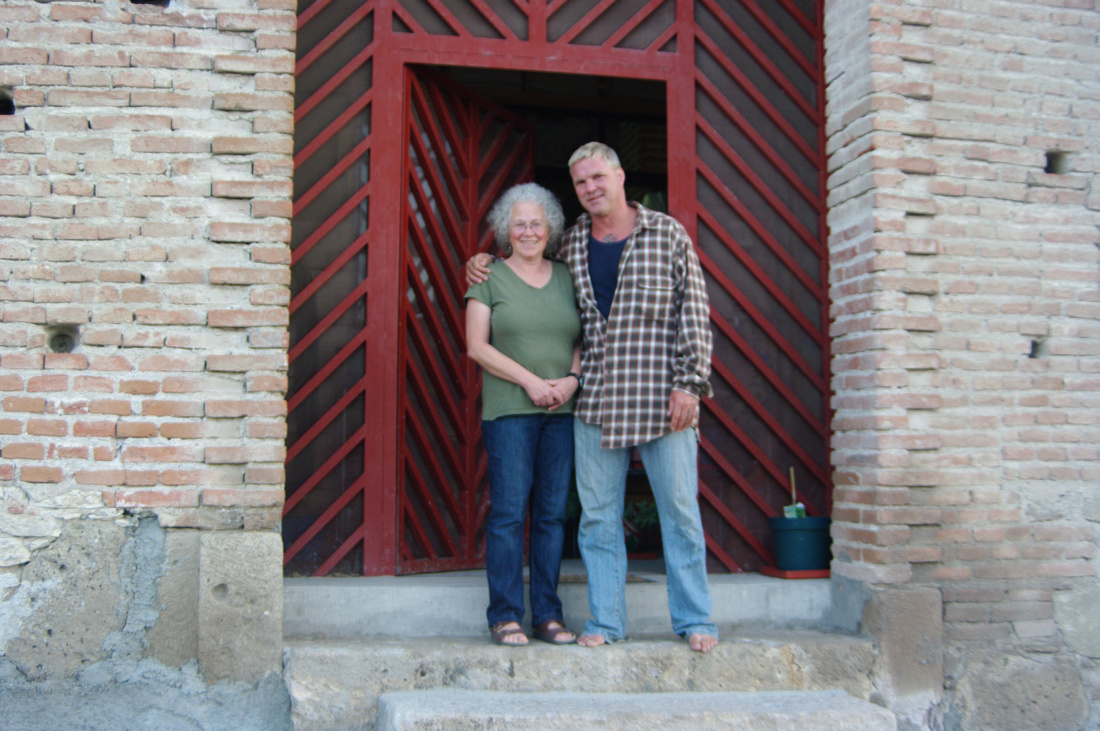

This photo was taken before sunset one evening. The colors are true. They were not manipulated in any way. It was almost eerie. There is a dramatic sunset here almost every evening which is our favorite time to be outside.
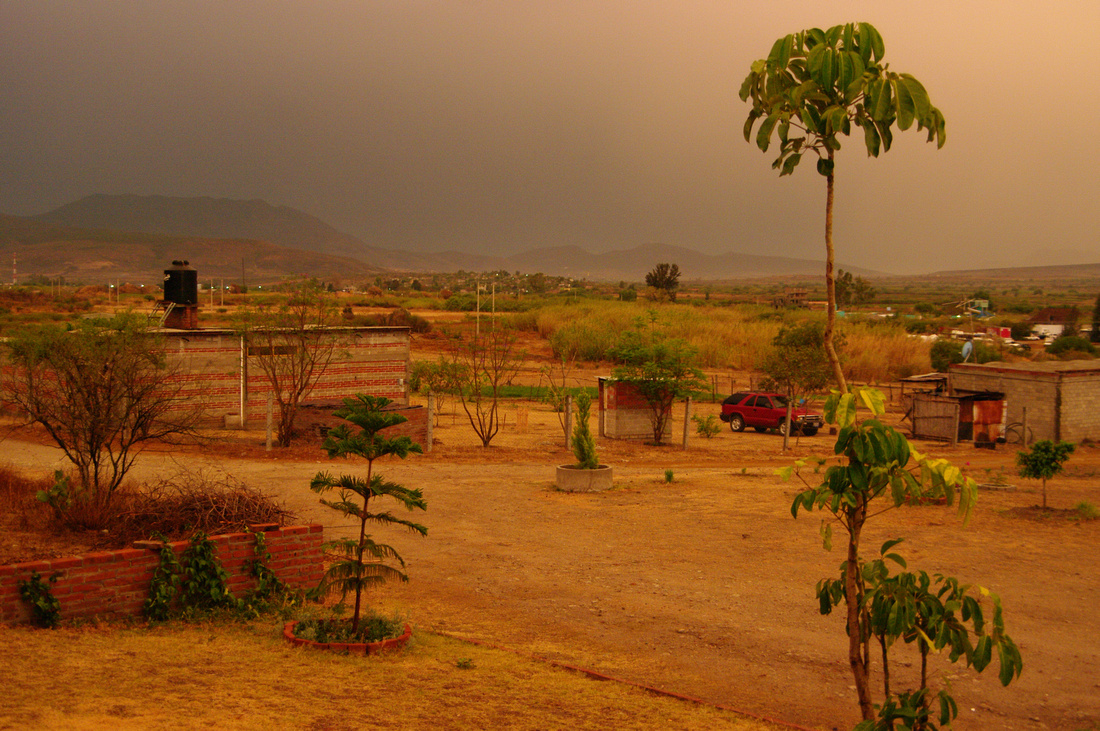

We were recently invited to eat at Juan's cabin above Matalan. Beth and I were the first to arrive so we helped Juan throw together this comal of adobe, rocks, and mud. We ate memelas (a super thick tortilla) and re-fried black beans.
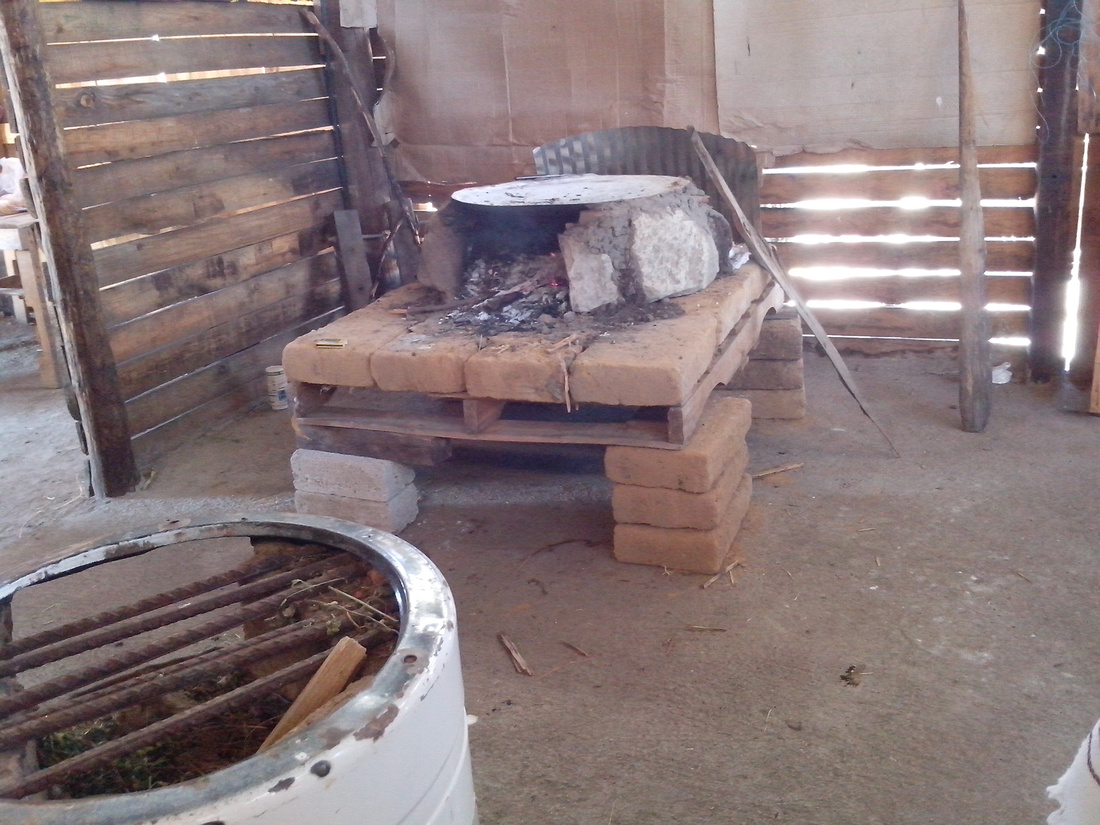

Juan just finished closing off the cabin. The wind really whips through here so the protection was welcomed.
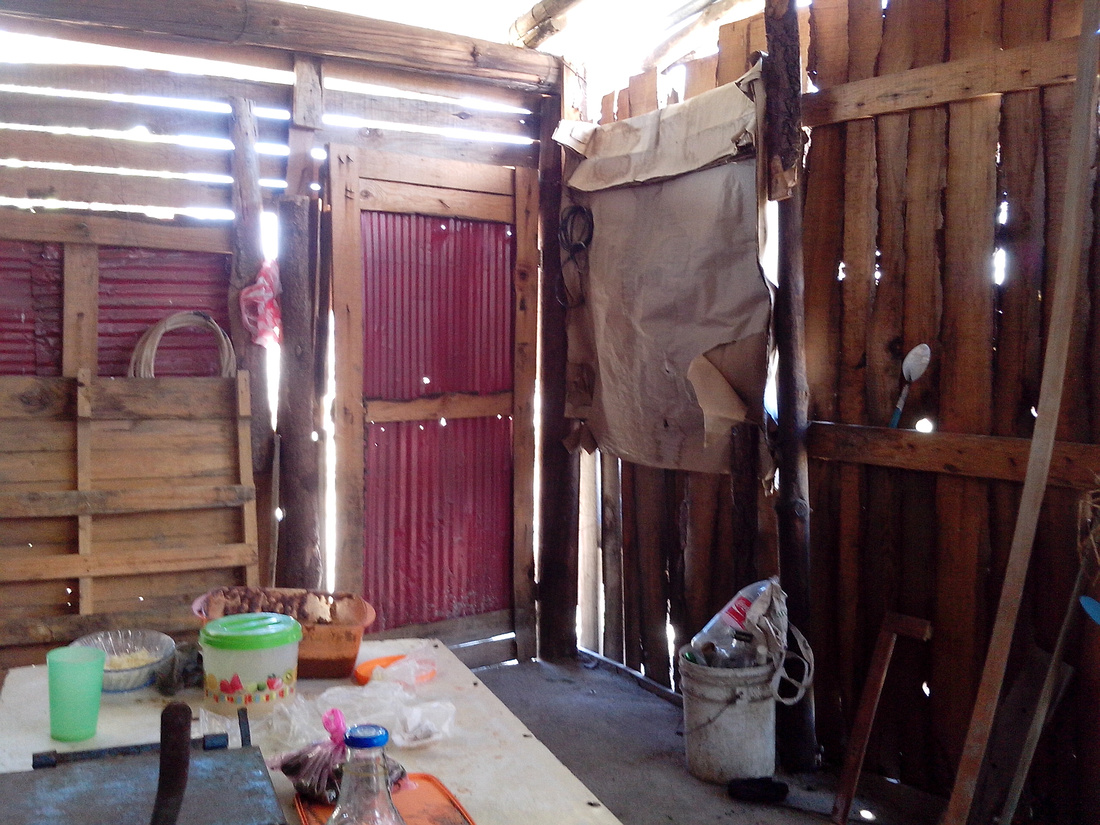

The rustic cabin provides a warm atmosphere. It's a wonderful place to relax and be with friends.
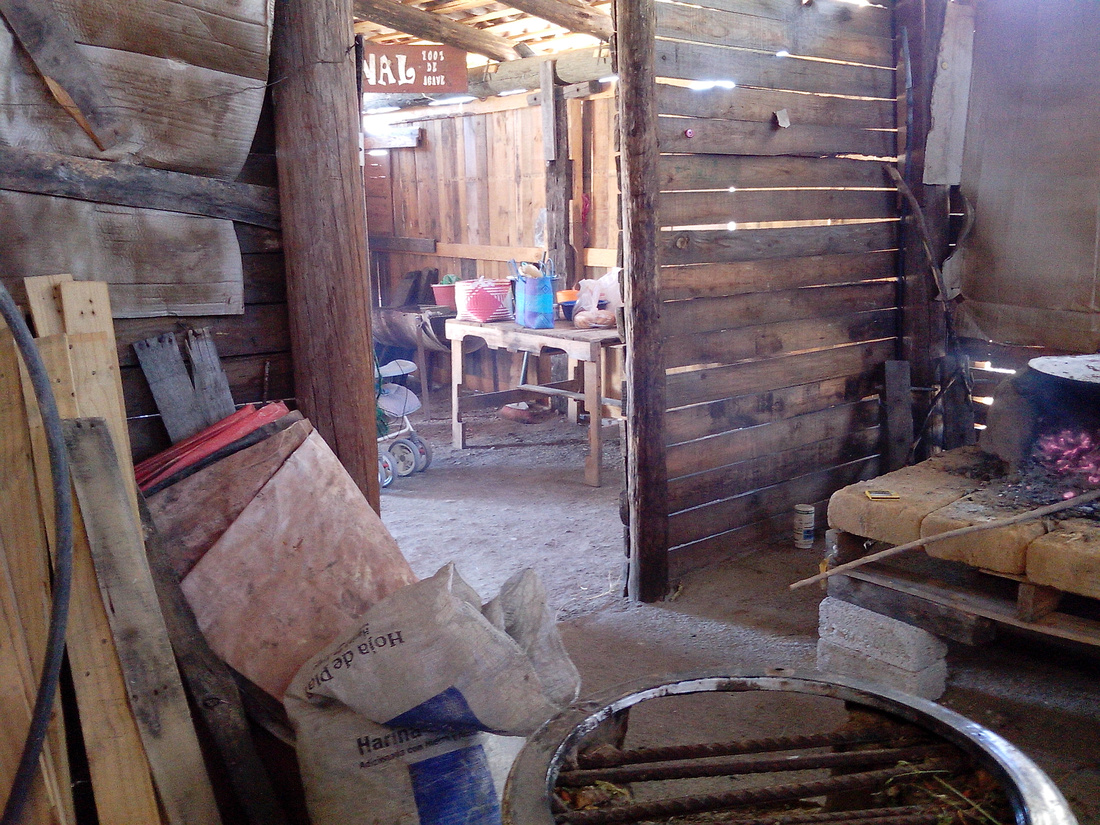

Juan and Felipe in front of the magnificent view of Matatlan down below.
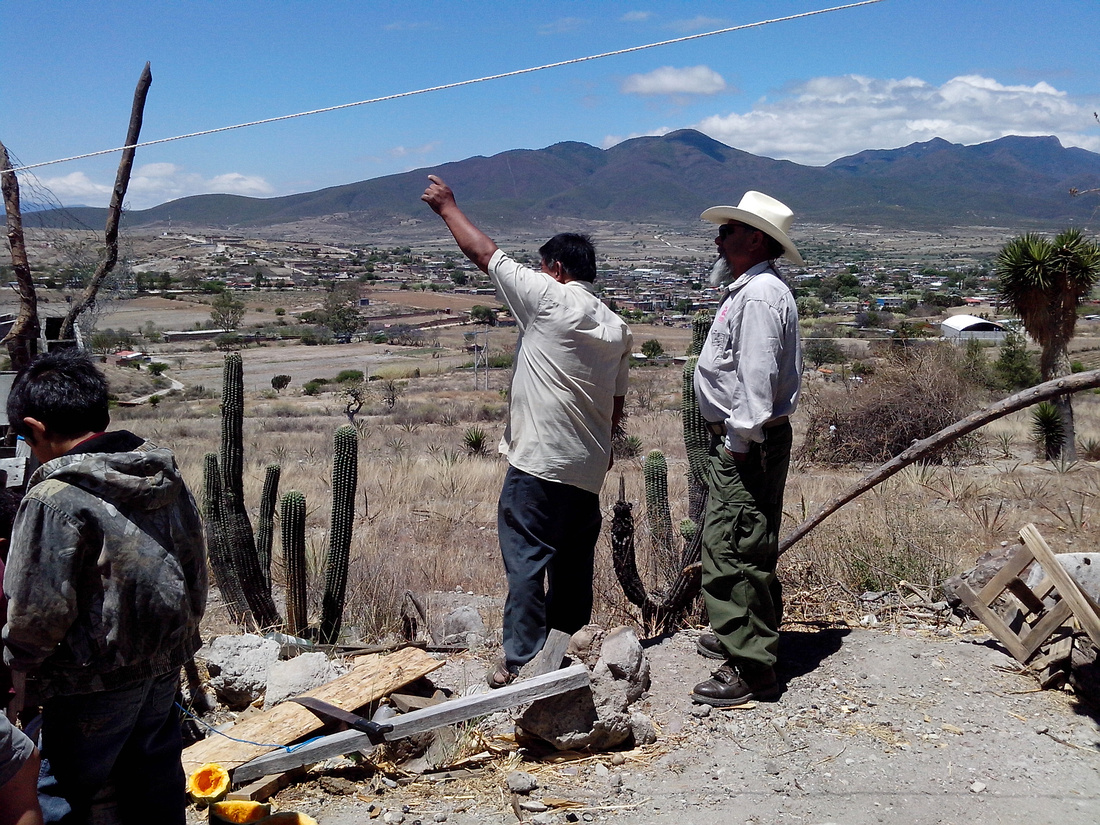

For Mexican Mother's Day a few friends from Tlacolula, Matatlan, and Union Zapata, came over to celebrate with us. Casto and Luis are cutting up the chivo.
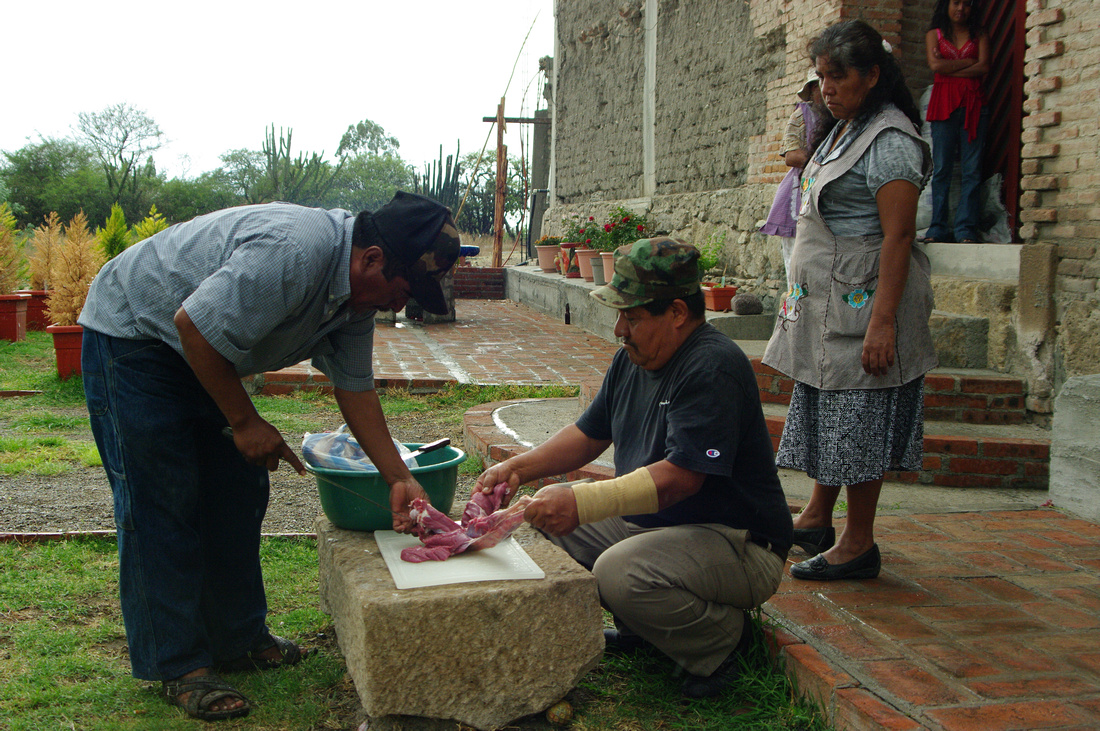

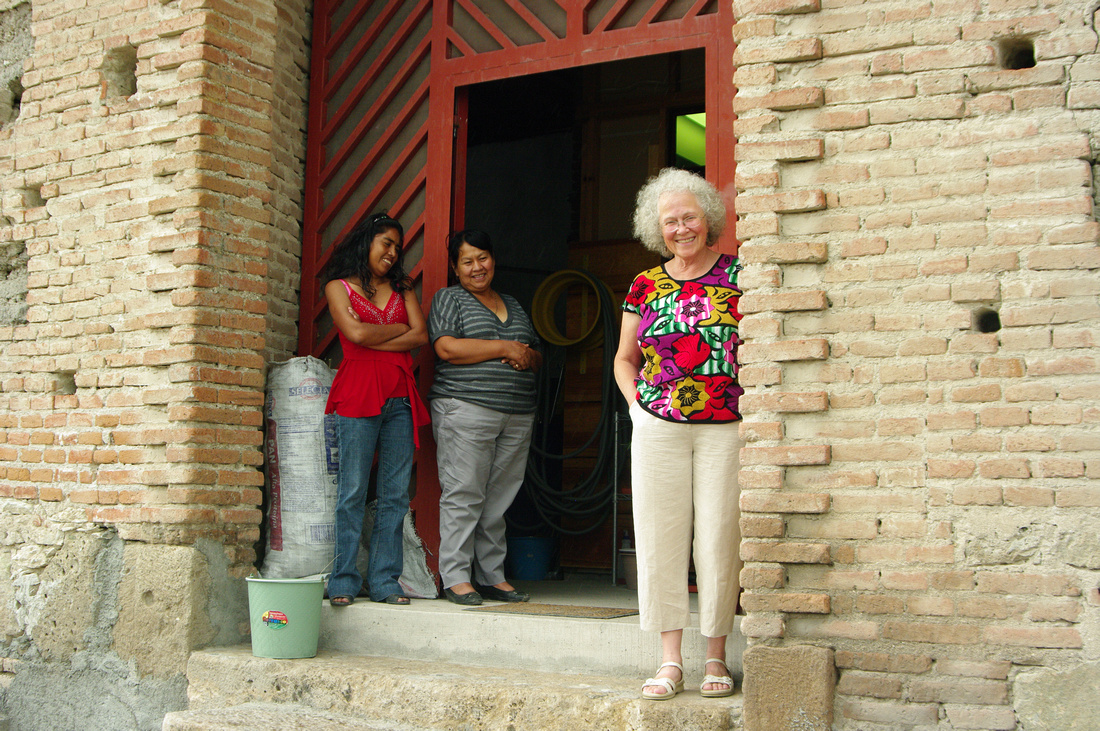

Beto's kids Shela and Armando always gravitate to the computer.
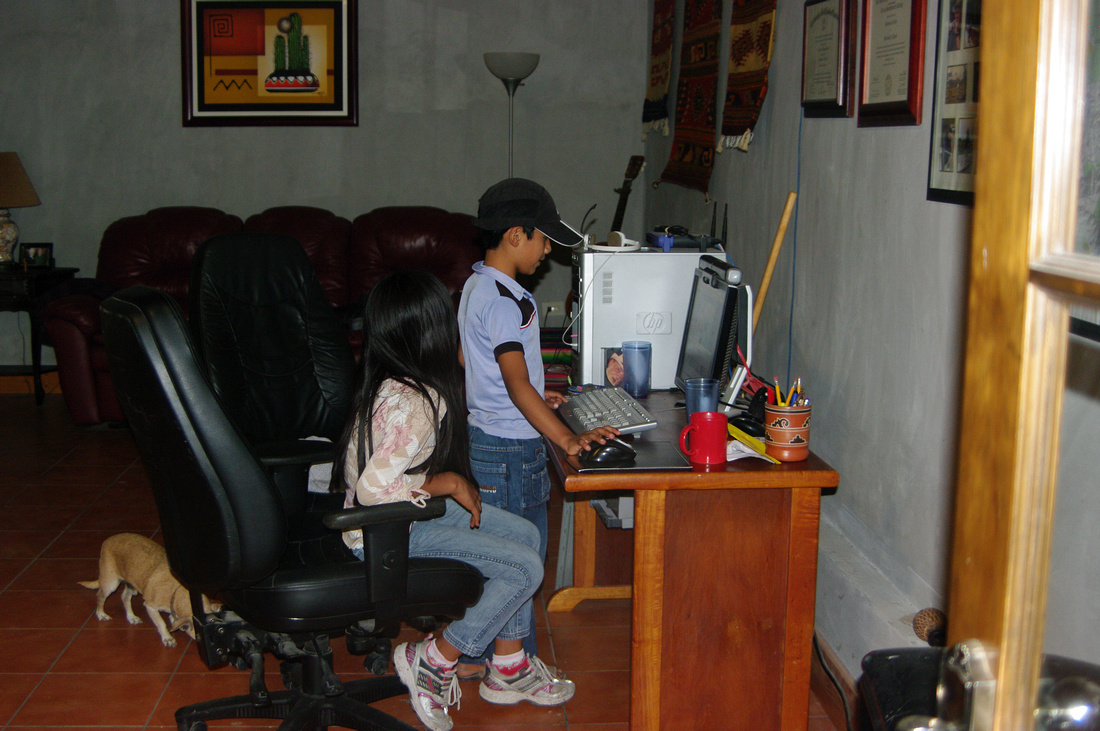

Never trust a woman with a machete!!!!!
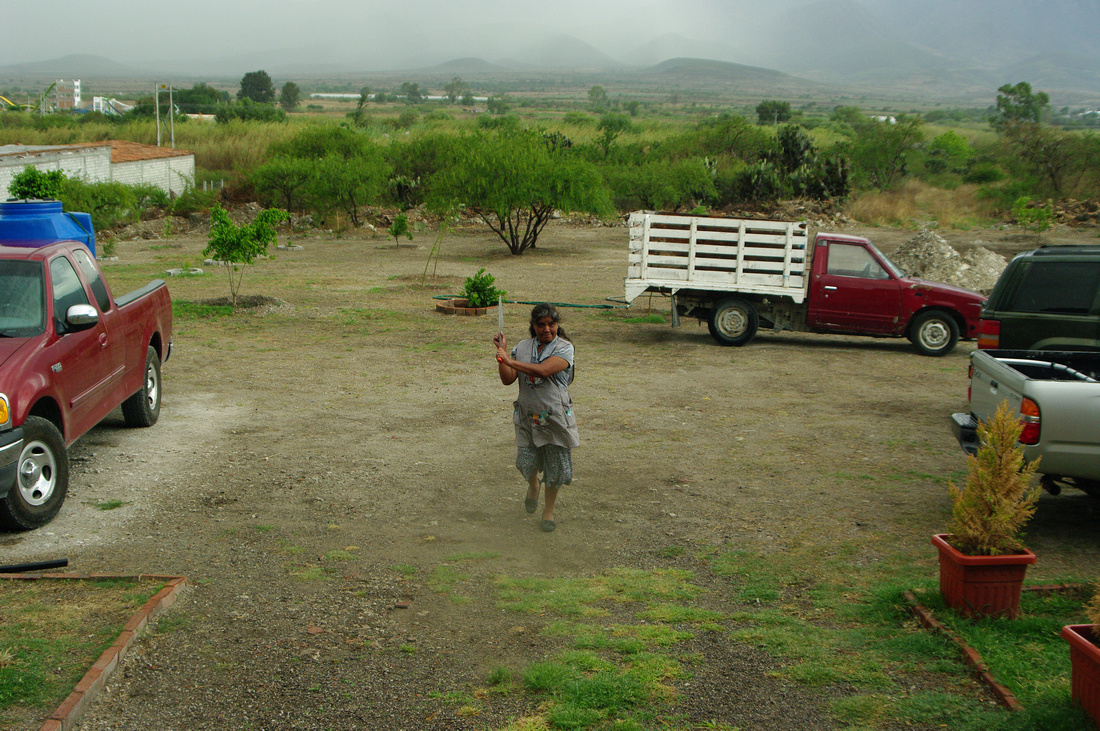

Grilled goat meat. A first for us. We even added a little barbeque sauce.
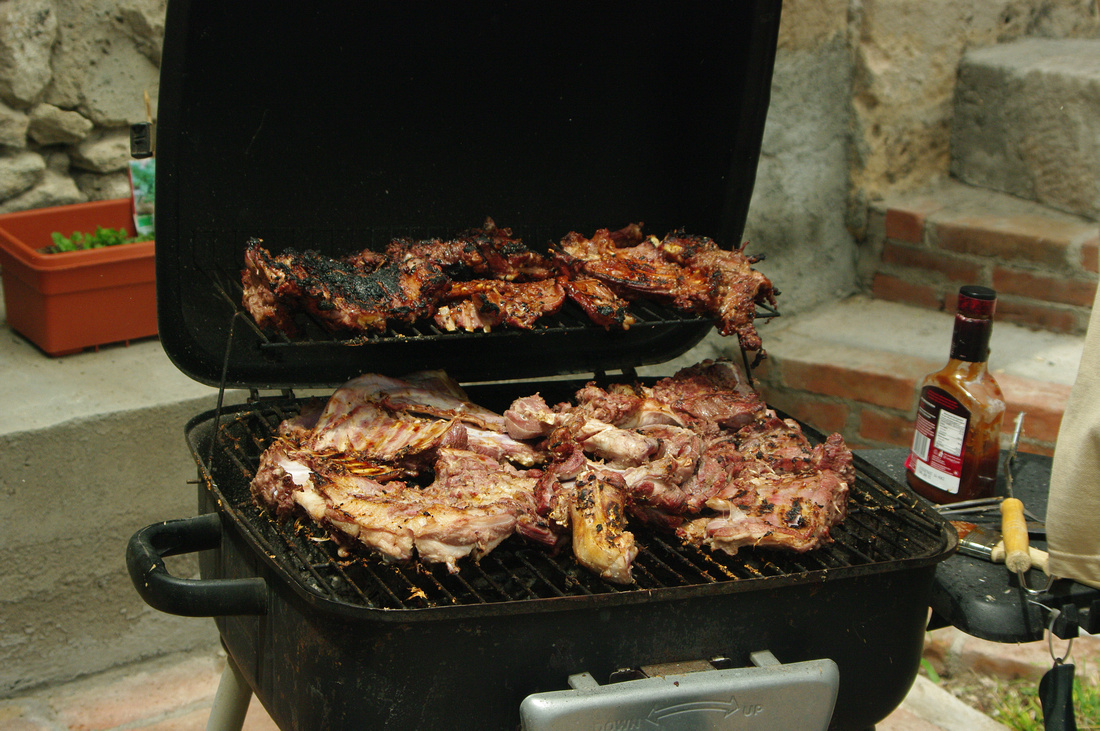

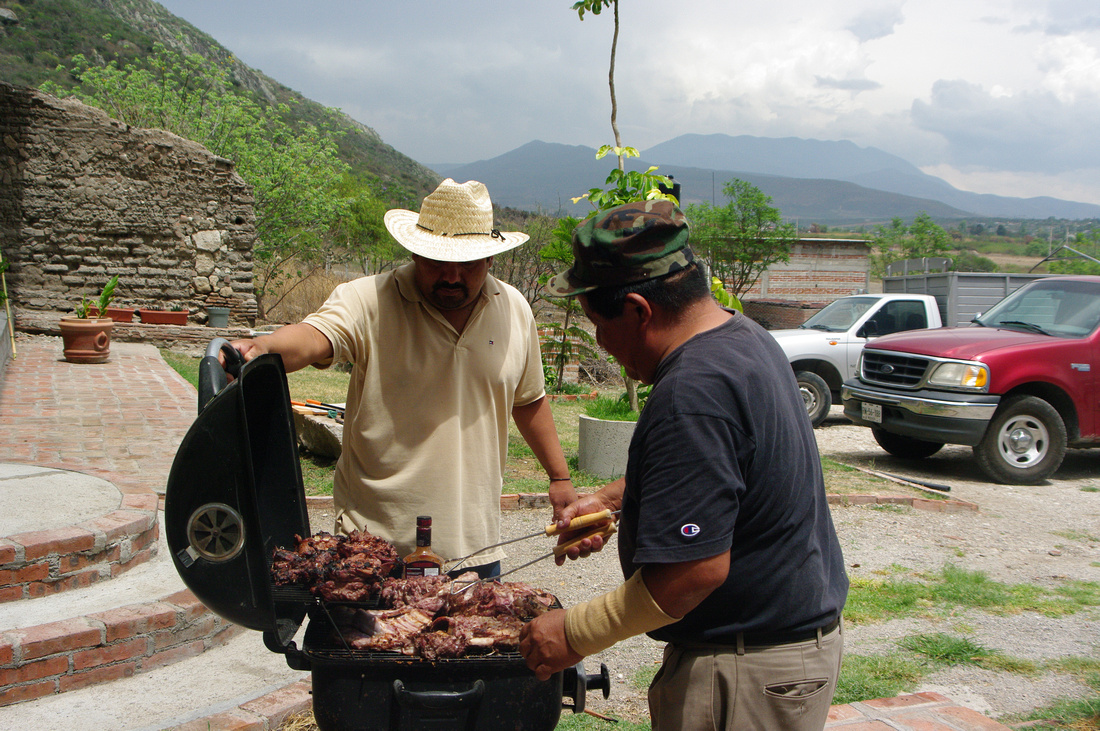

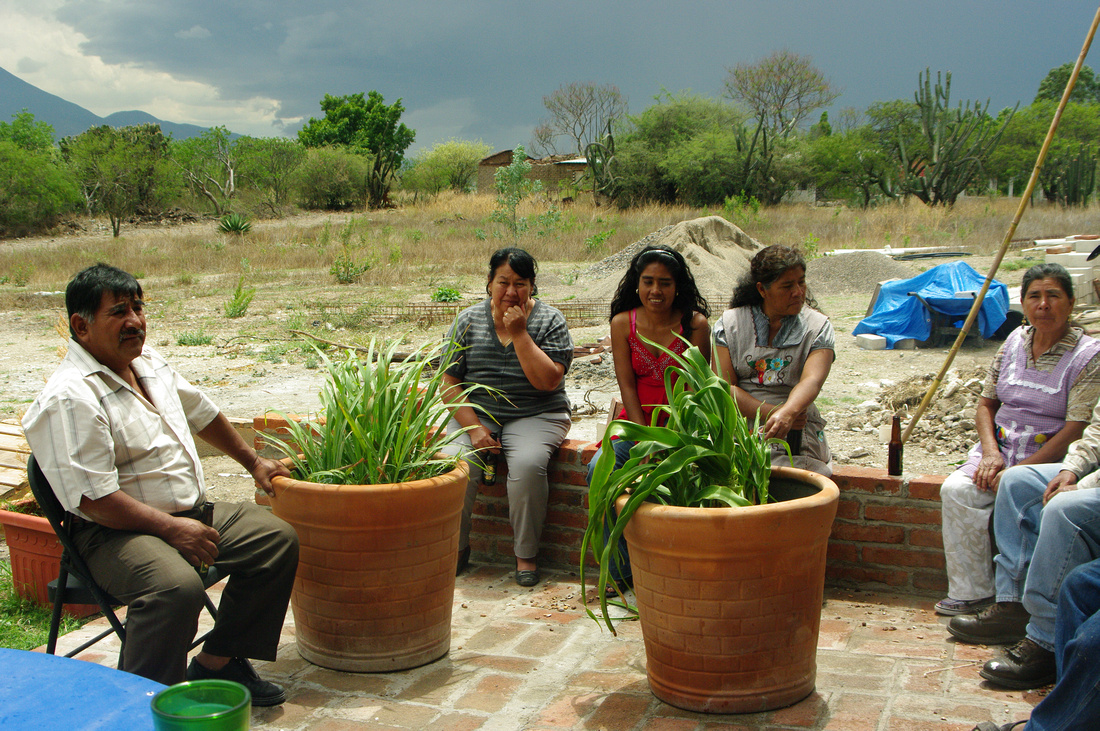

Delores in the background talked to her son in the US while we waited for our meal.
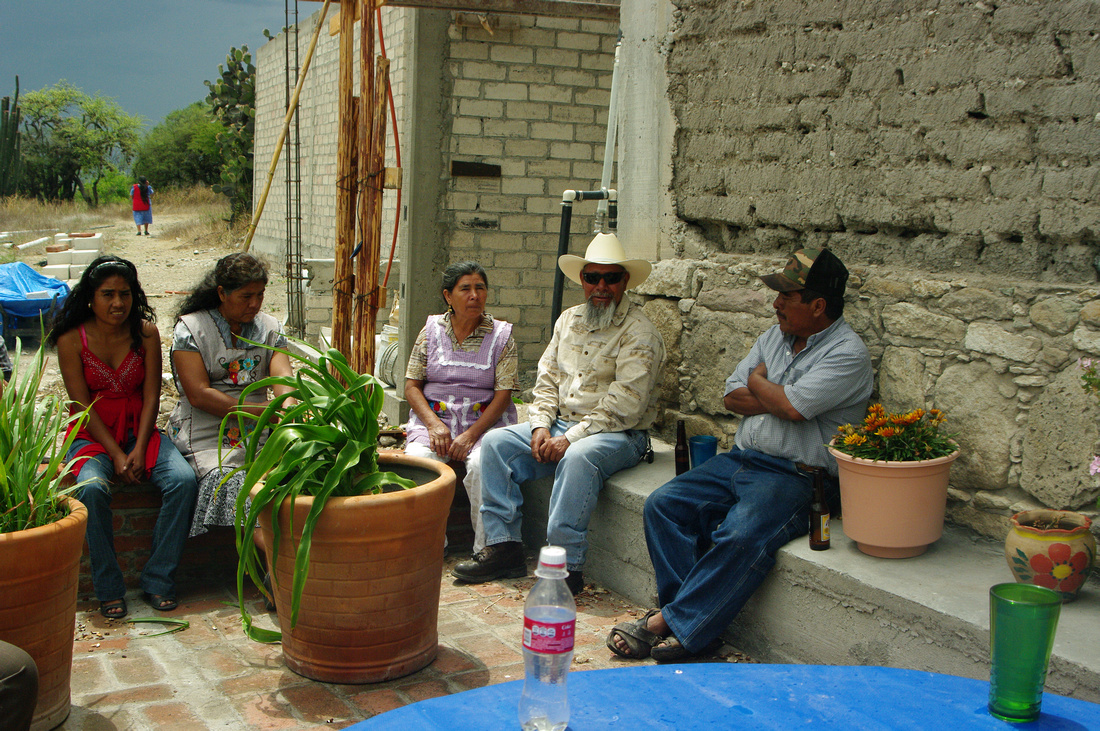

The first course was consume made from the internal parts of the goat. It looked good but turning it over with a spoon and seeing pieces rise to the top was a little much for me. I kept thinking where is Andrew Zimmern?
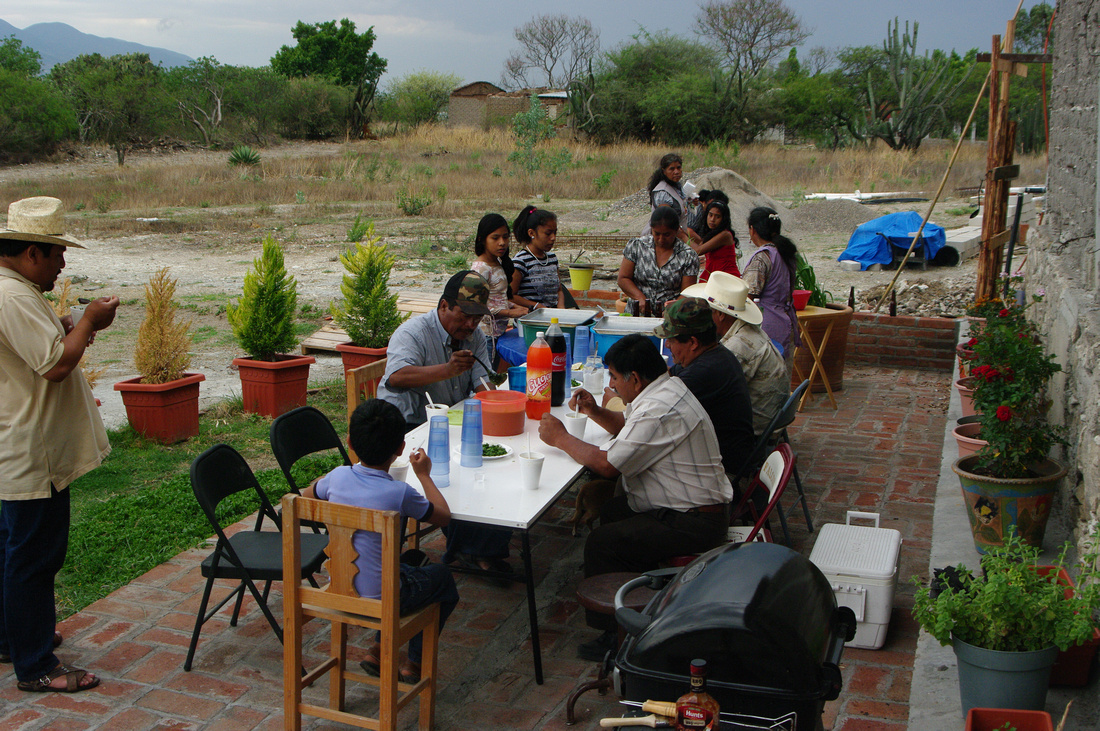

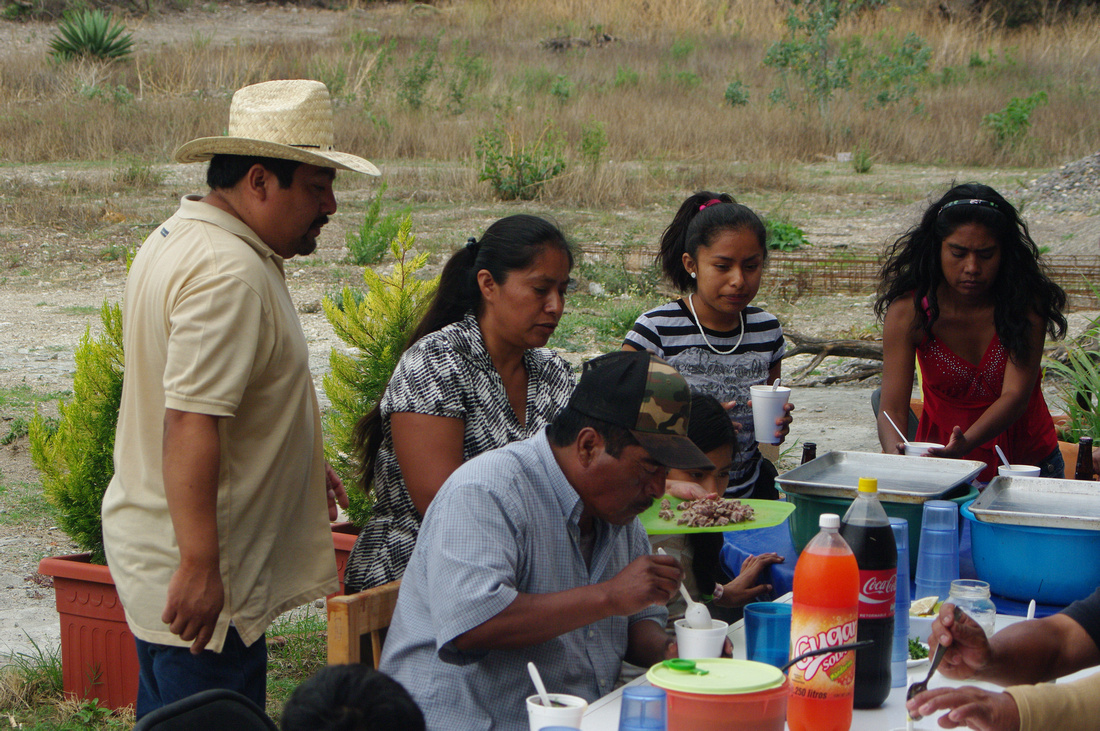

Beto's daughter Yesenia. She's fifteen and a half and has a wonderful personality which shows in her picture.
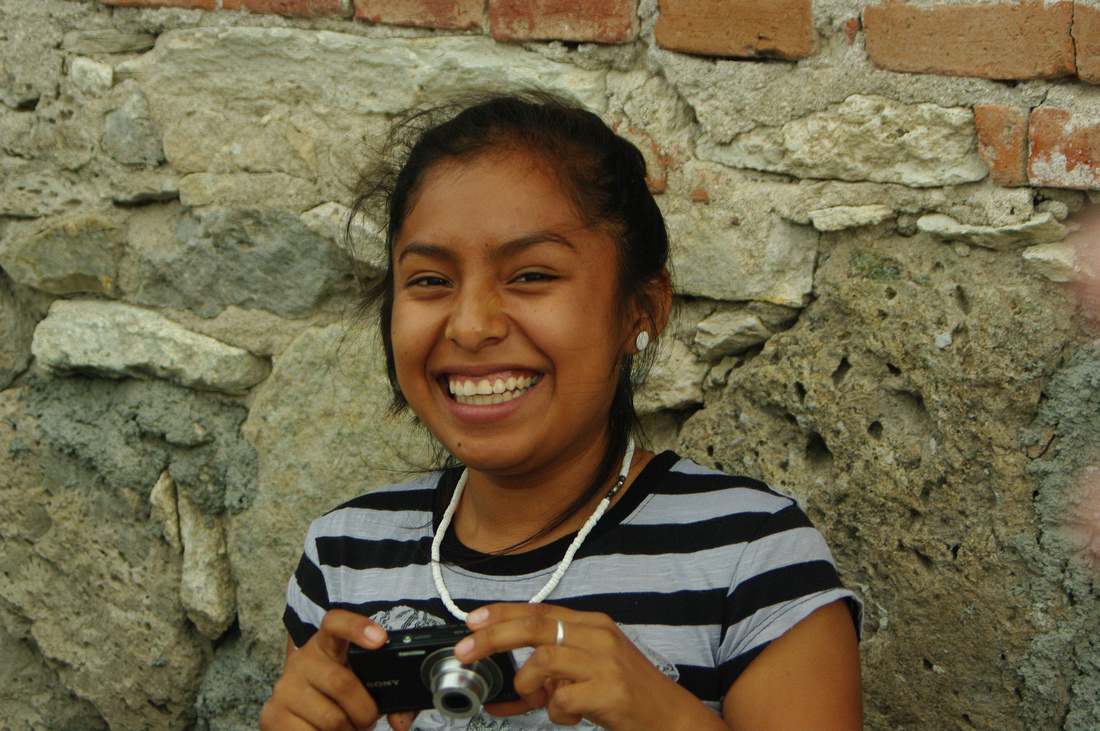

We ended up having to eat inside due to the rain and wind.
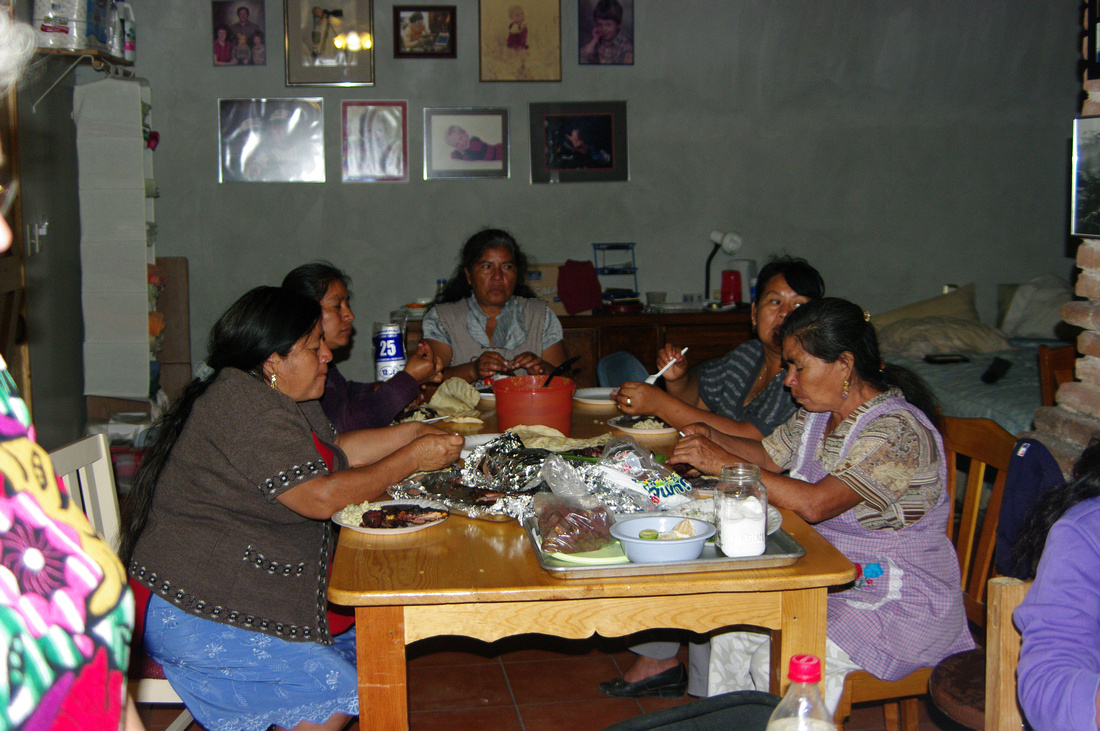

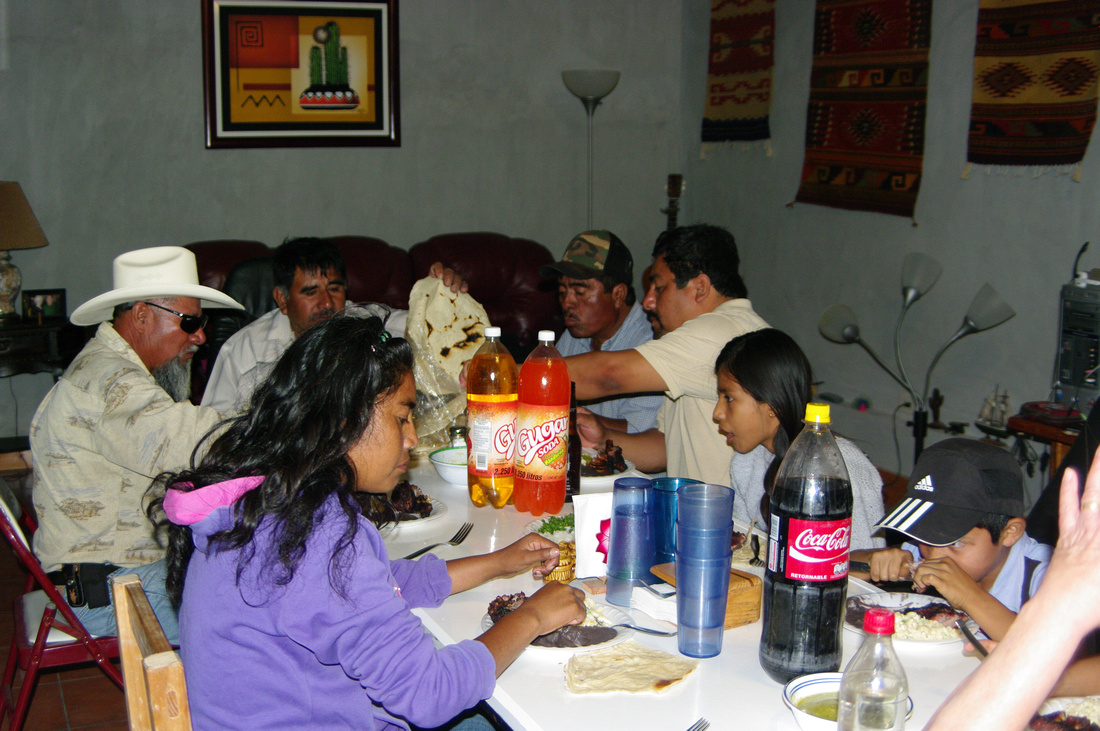

We went to a park with Beto's family in Tlacolula the other day. Seeing families playing together must be universally heart warming.
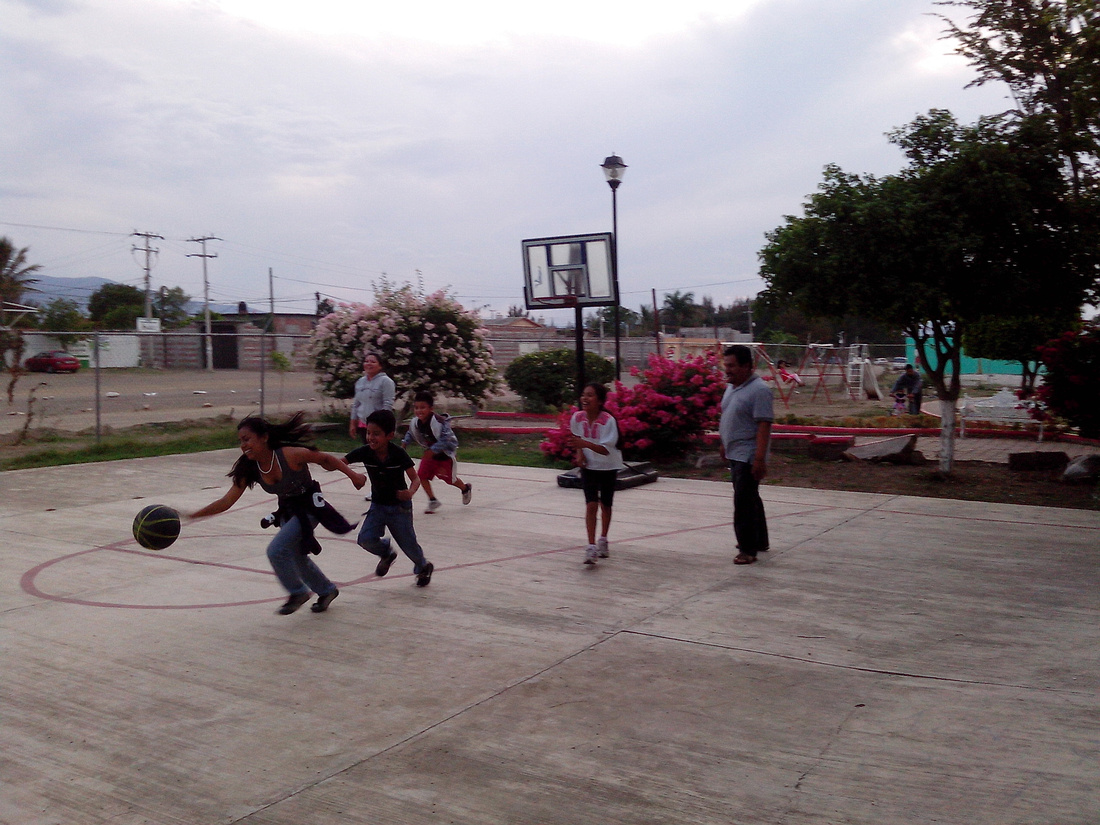

We are adding another septic tank to help disperse the water. Topsoil here was about a foot then pure sandstone. It took a backhoe six hours to dig the hole. The backhoe cost about thirty two dollars an hour.


Because we live so far from a supermarket Beth has started washing storage bags instead of throwing them away.


We drove to a little Zapotec village called San Marcos. Looks like they are serious about their people behaving. These cells are not for serious crimes. Wandering around drunk and being obnoxious is probably the most common offense.
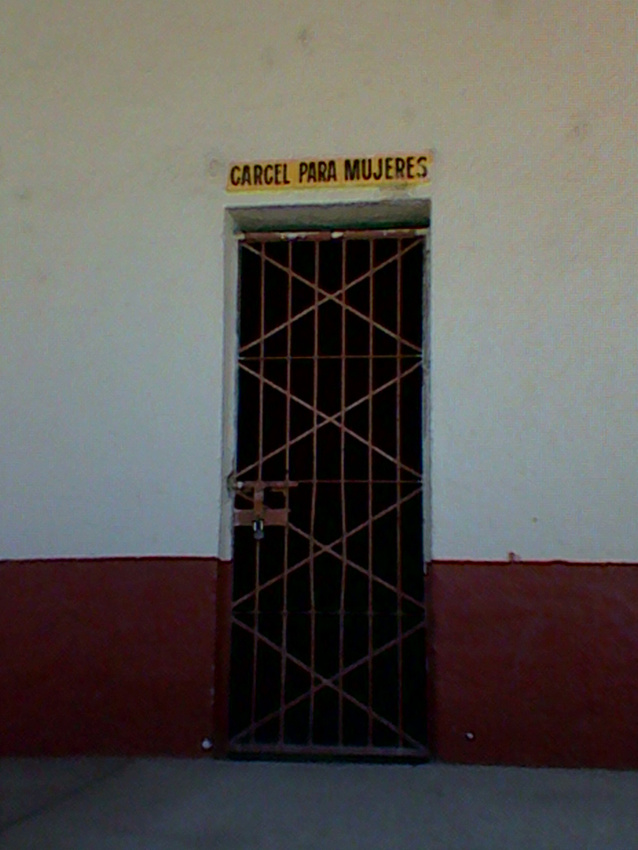
 c
c
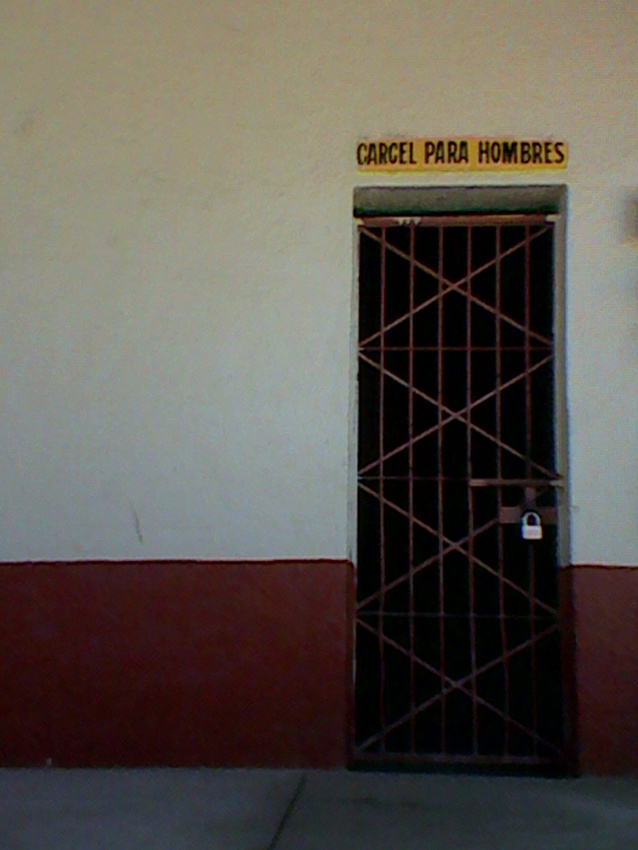

Looking inside the gate you can see that Beth is acquiring quite a green thumb.
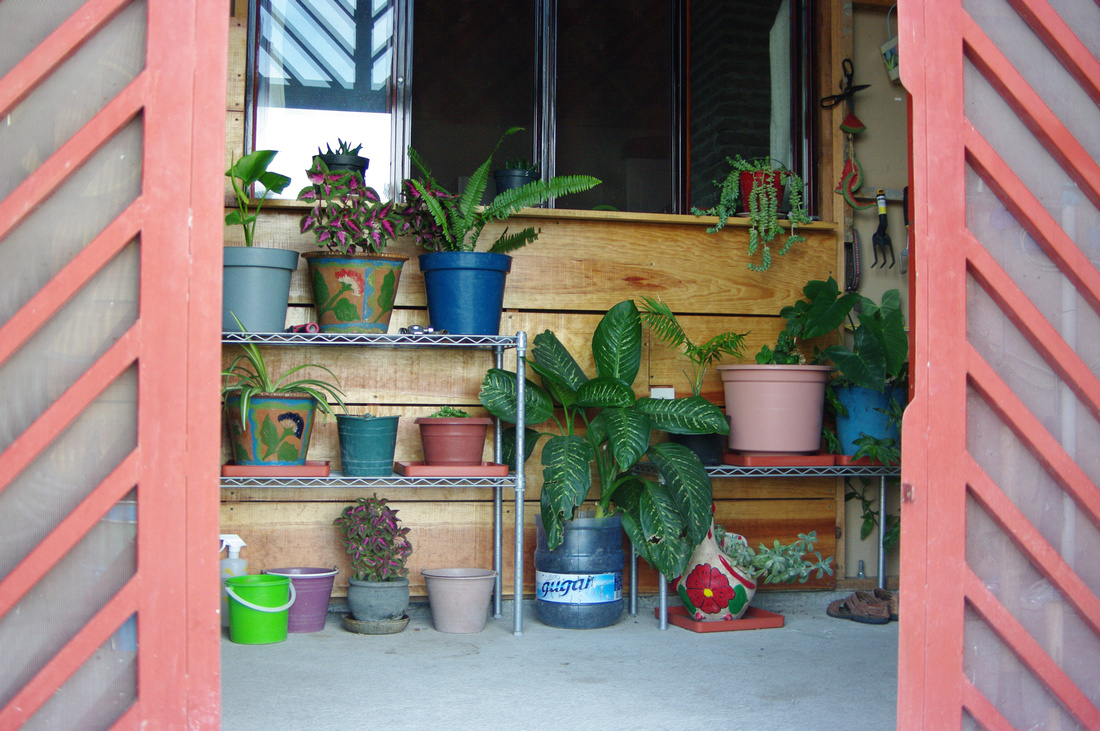

Our first blackberries! Zazamoras are not very common here but we managed to find some plants in a Oaxacan nursery.
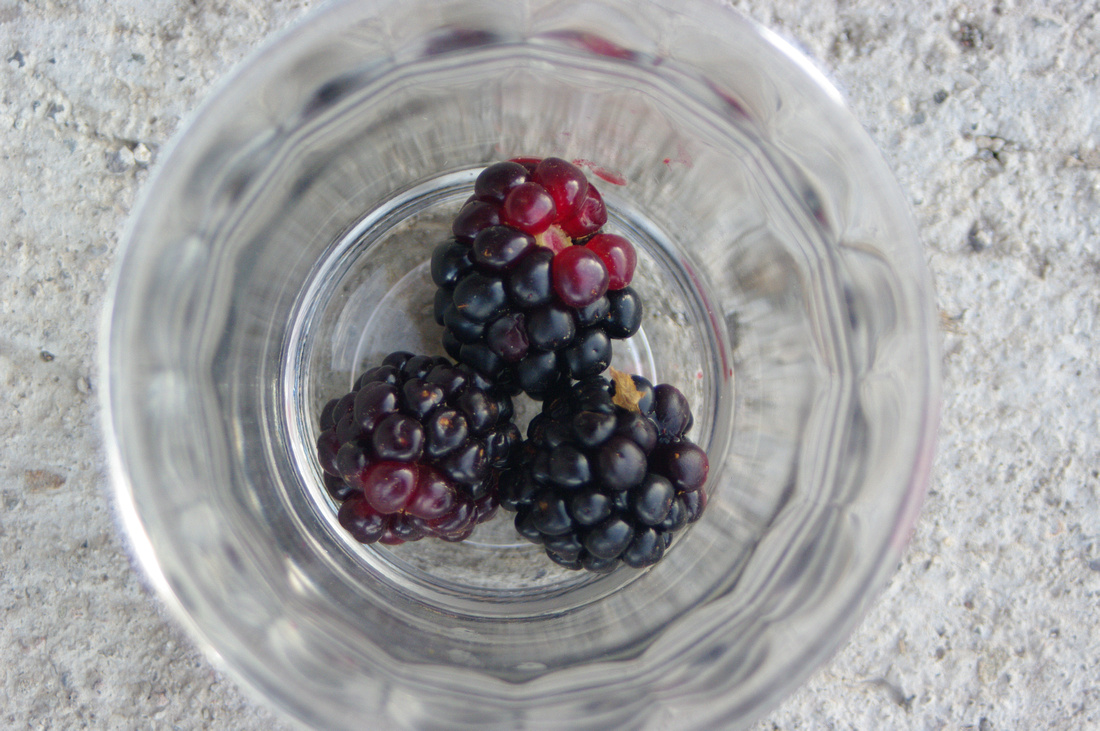

There is a bird's nest in the tall ficus. She can't be much more than two and a half inches tall. We've never heard birds singing like they do here. Sometimes they actually wake us up in the morning.
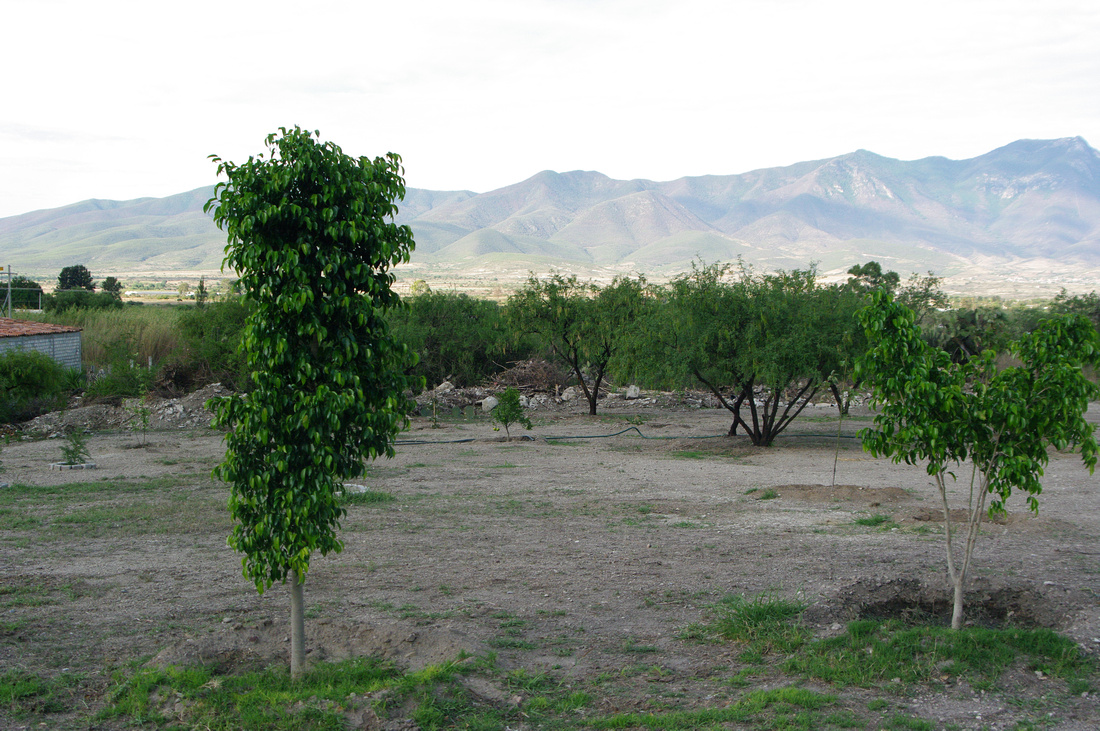

Our mandarine tree. We'll be eating them before long!
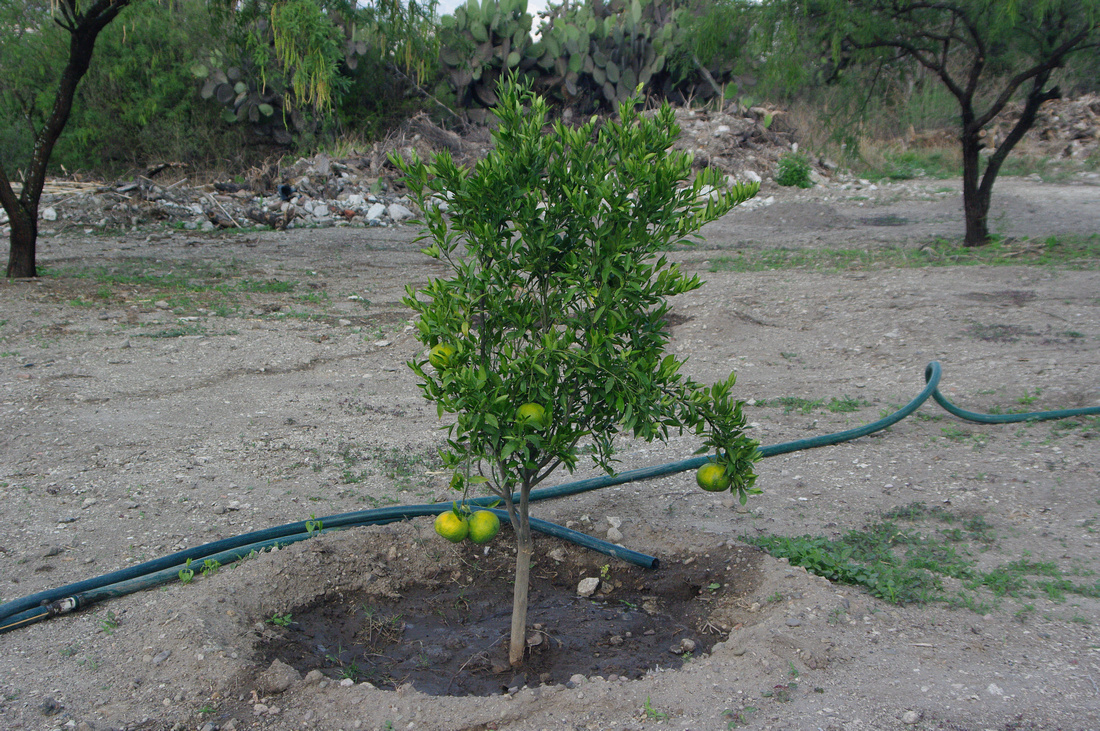

Our orange tree. Planting trees here is very labor intensive. In many places the topsoil is only six inches deep. We dig into the sandstone about three feet and fill it back up with natural fertlizer and soil.
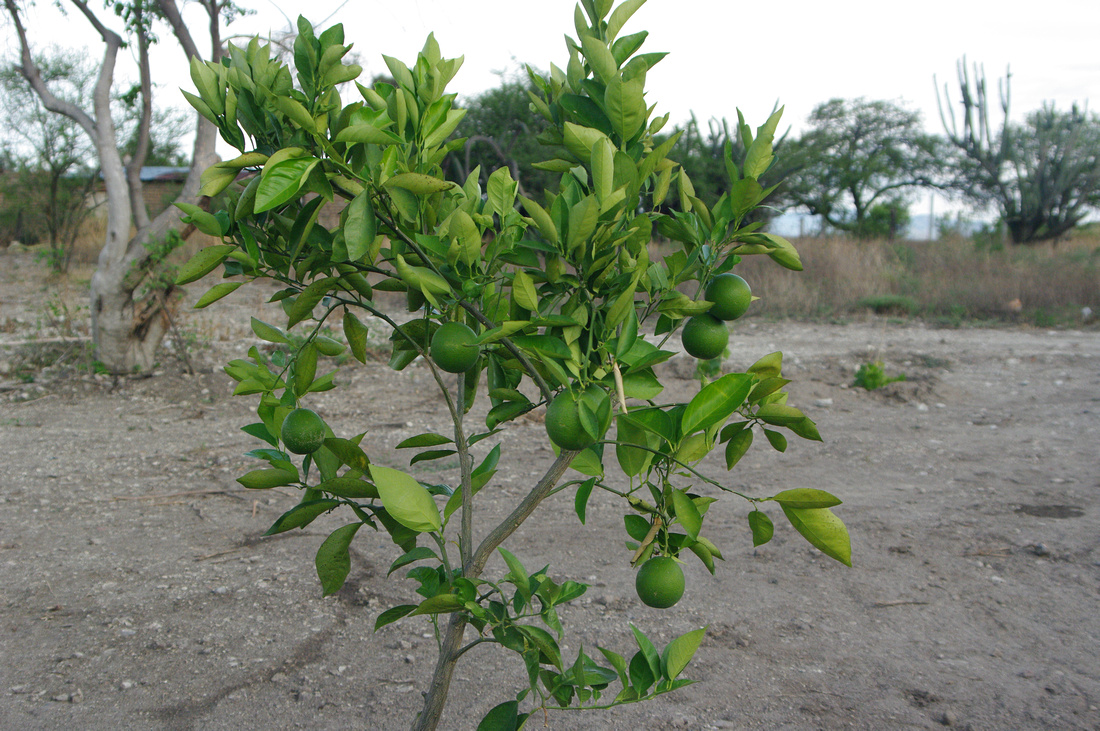

One of our blackberry bushes.
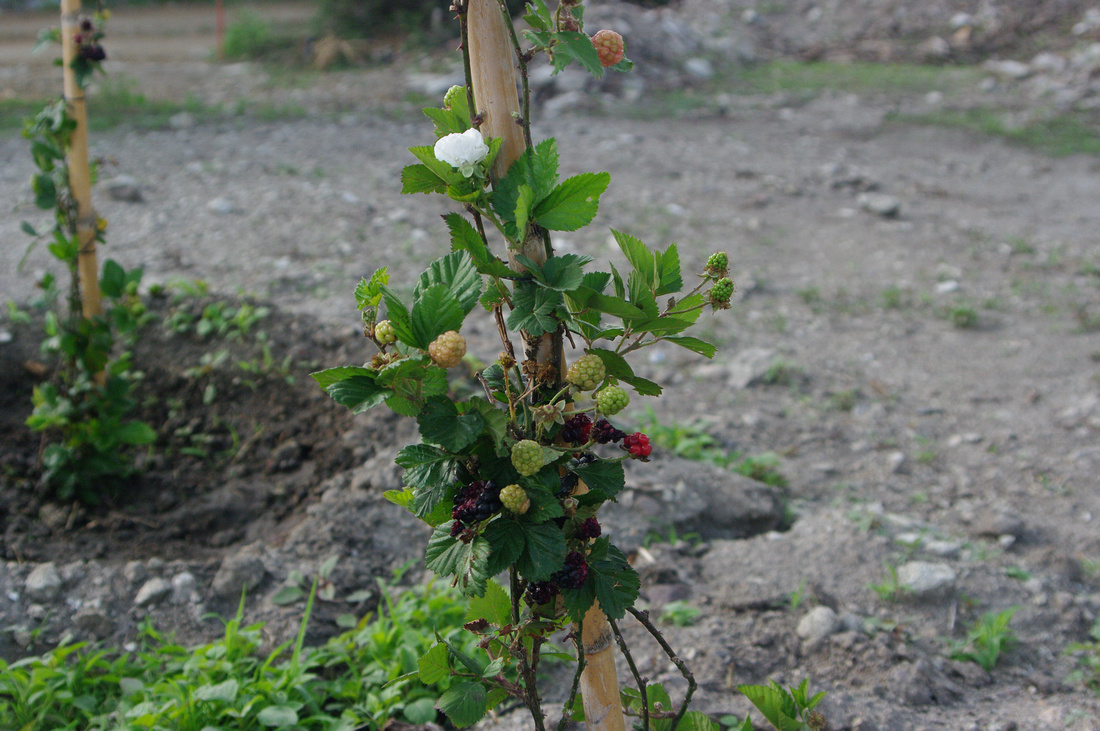

We very seldom walk to the property behind the house. This view is looking towards Tlacolula. There is a red dot towards the right hand side of the photo. You can't make it out but there is an orphanage there. I believe it's ran by a church group from the States. We've donated toys there given to us by friends.
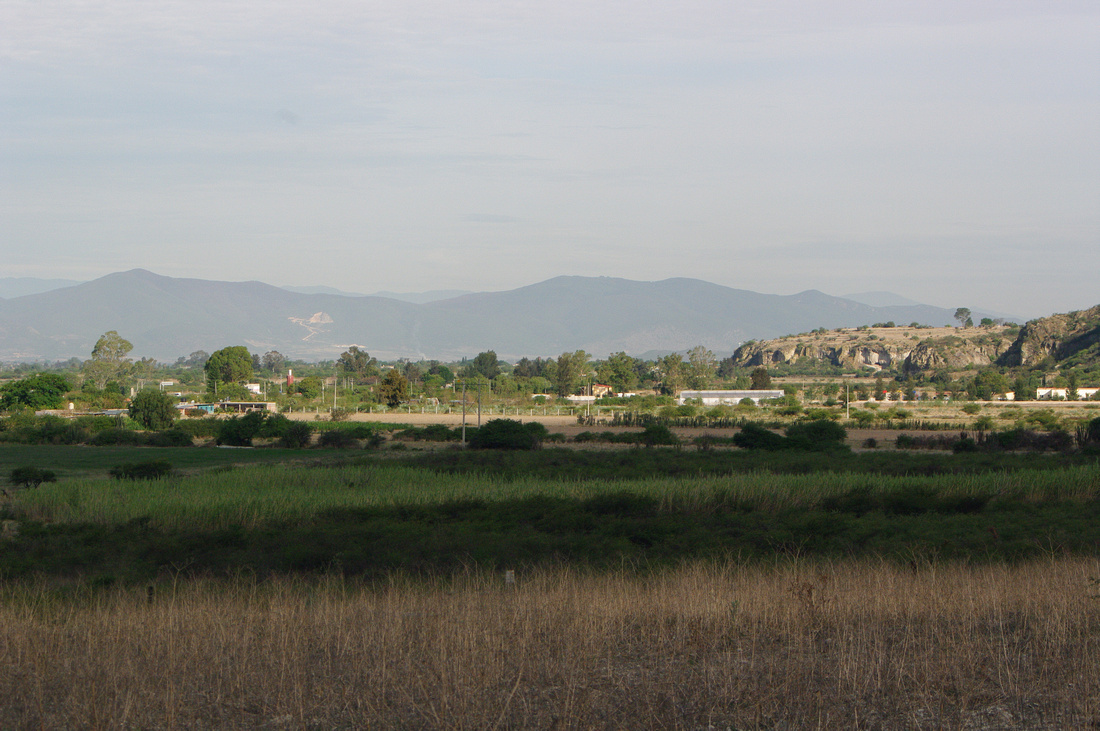

This is from the end of our property. You can see how close to the mountains our property is.
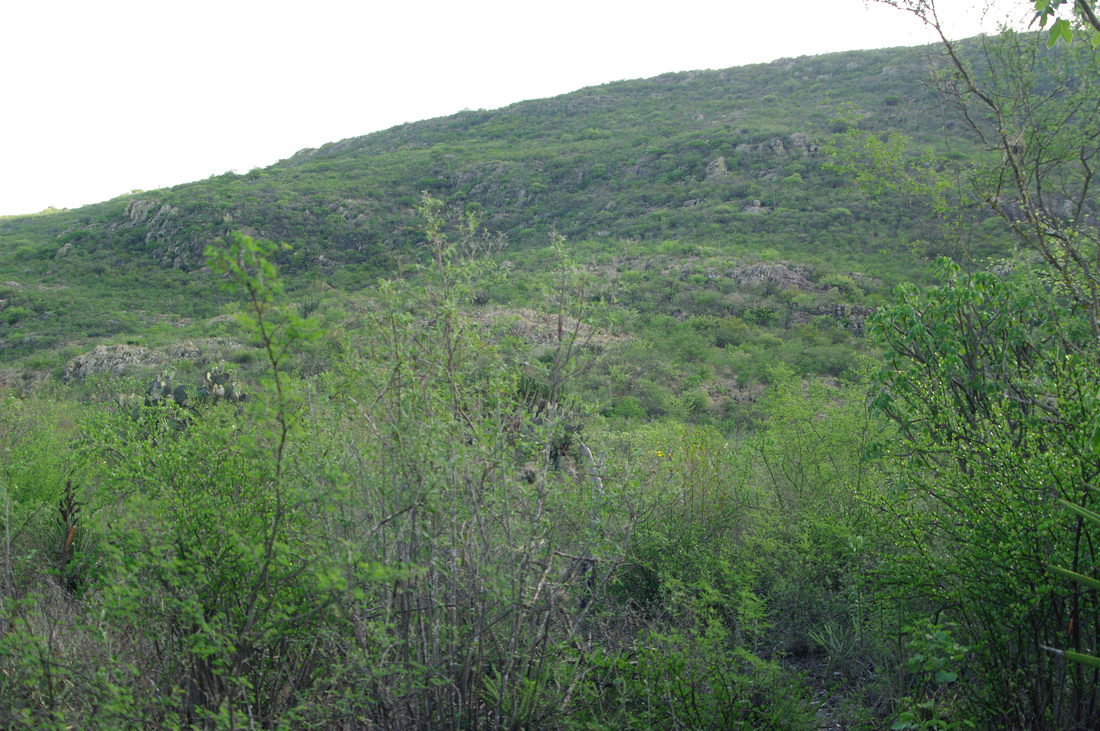

This plant is called Mala Mujer and with good reason. A brush againt it can cause discomfort for more than six months.
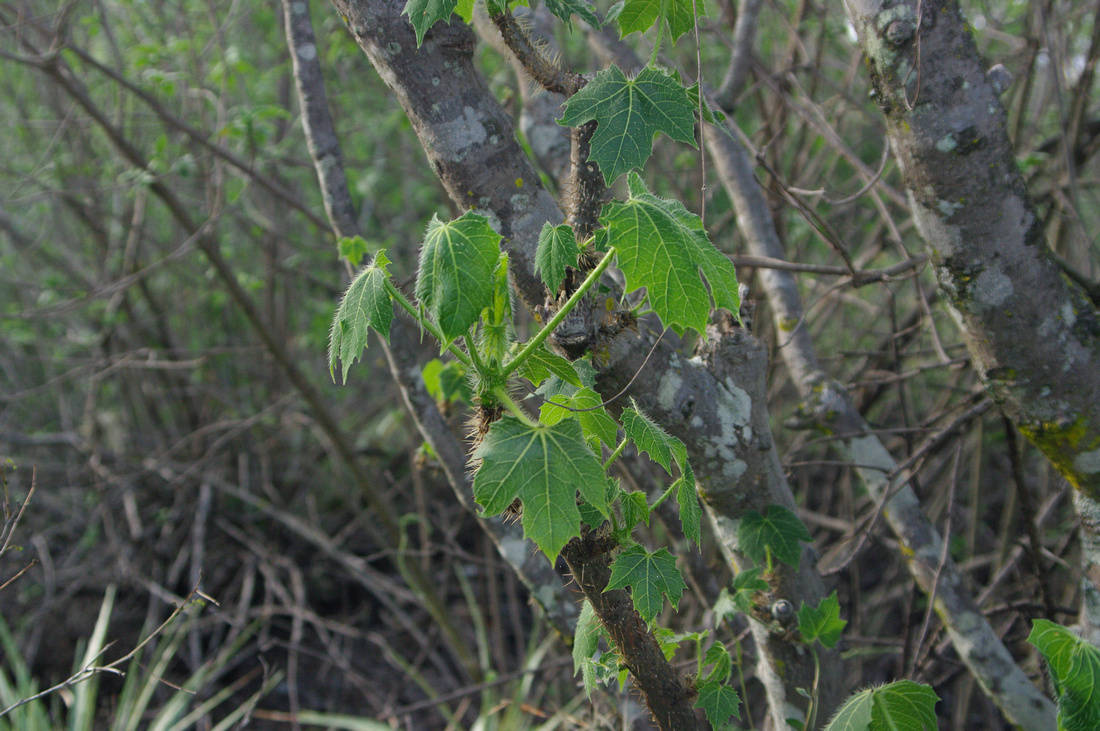

This cactus is also another you don't want to brush up against. The needles are released on the slightest contact and they have a barb on the end which makes extracting them painful. These plants are very common so when walking in the brush you have to be on the lookout for them.
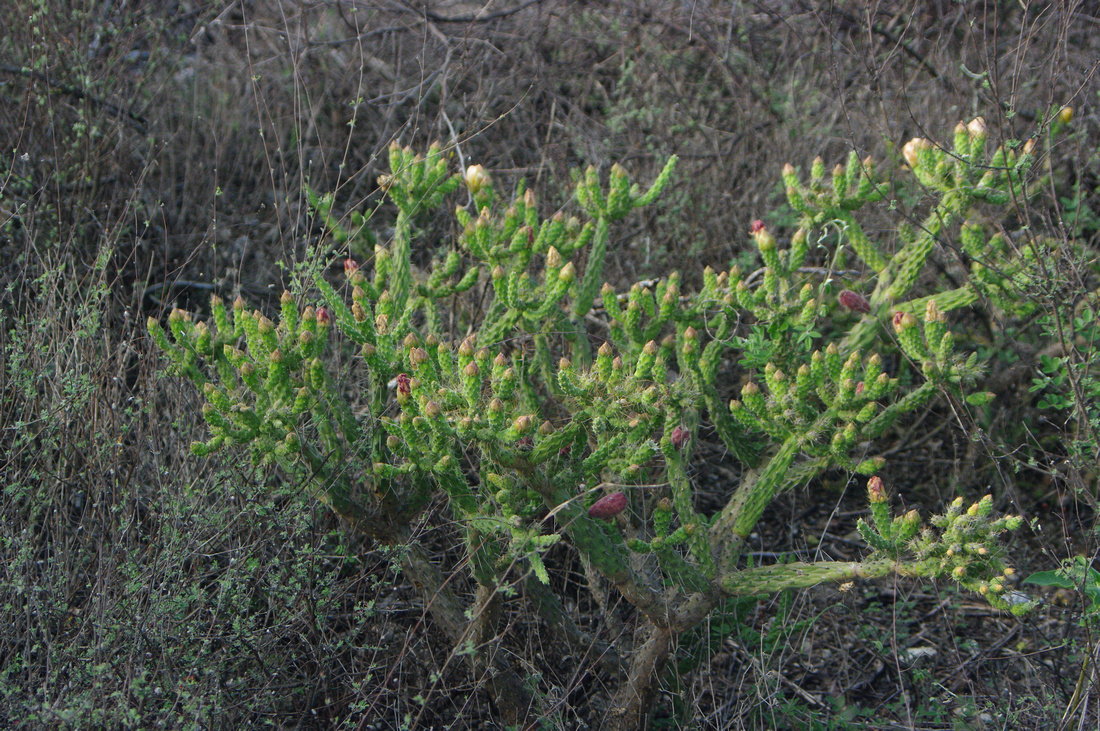

This cactus produces a prickly pear that is much sought after. They are quite tall.
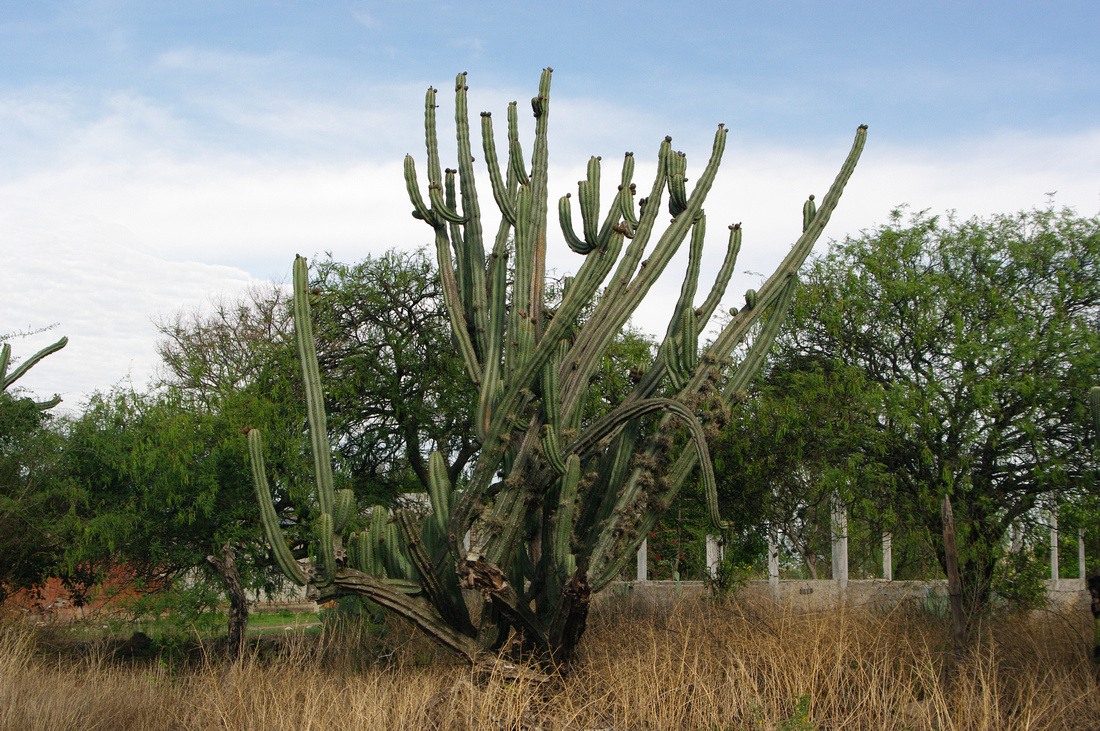

A close up showing the pricklypear.
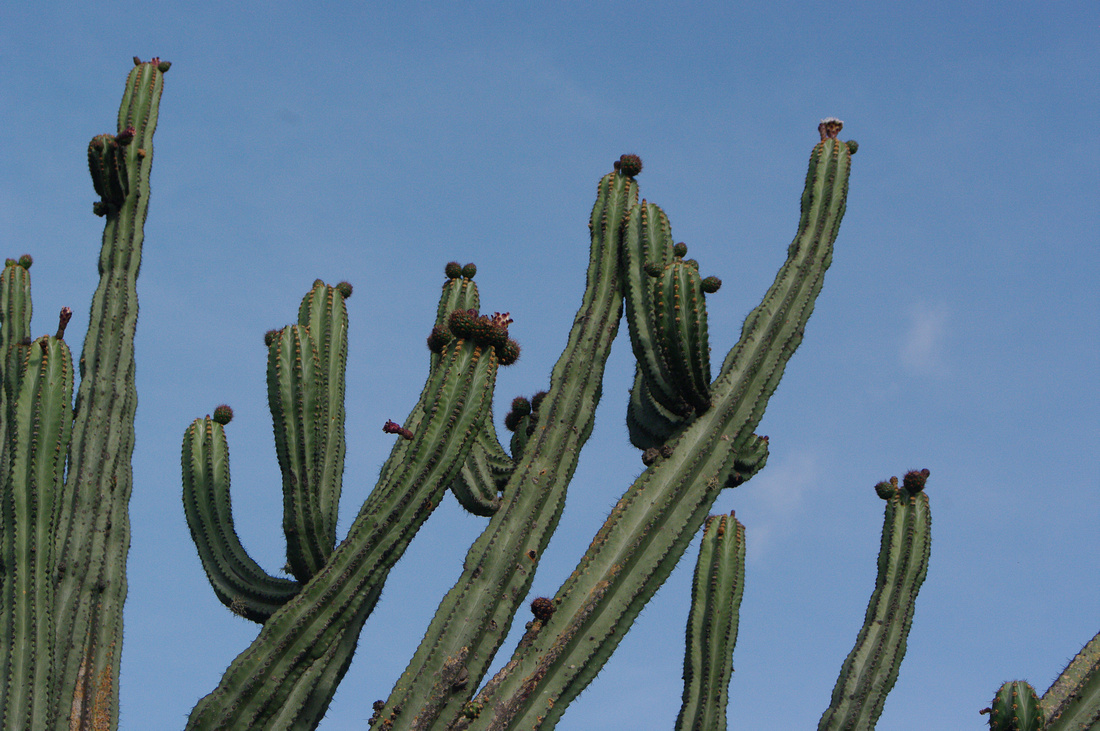

These are the tools used to pick pricklypears.
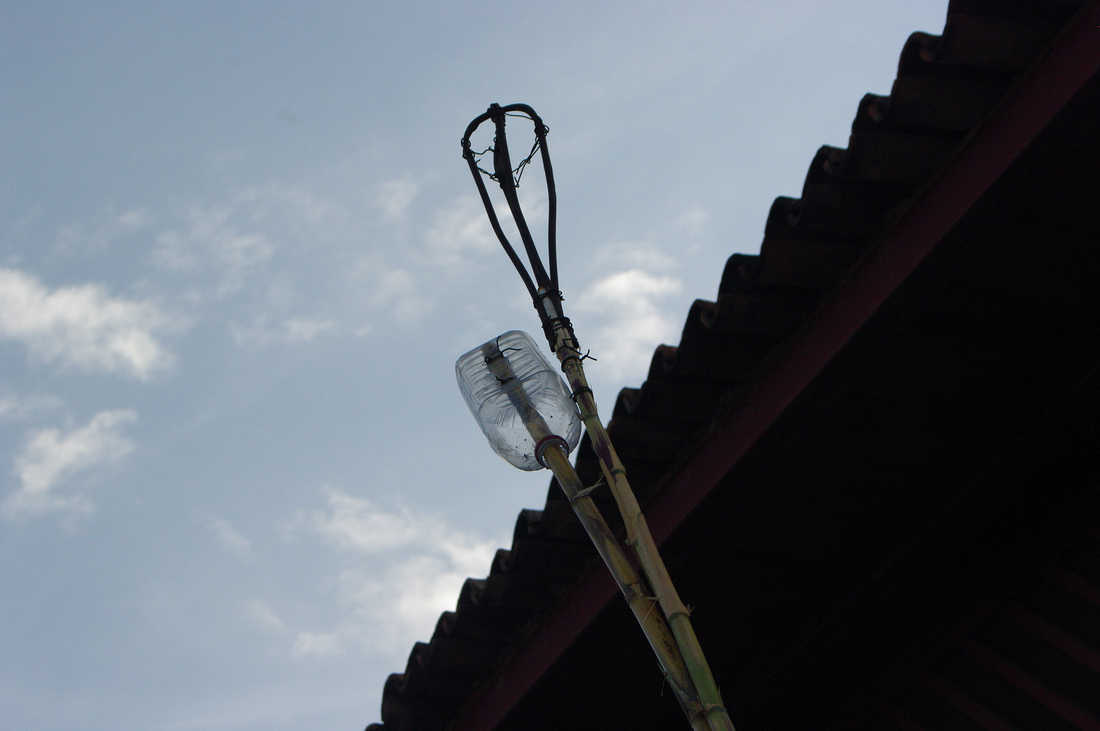

I built a little bridge to avoid stepping on our pvc sewer line.
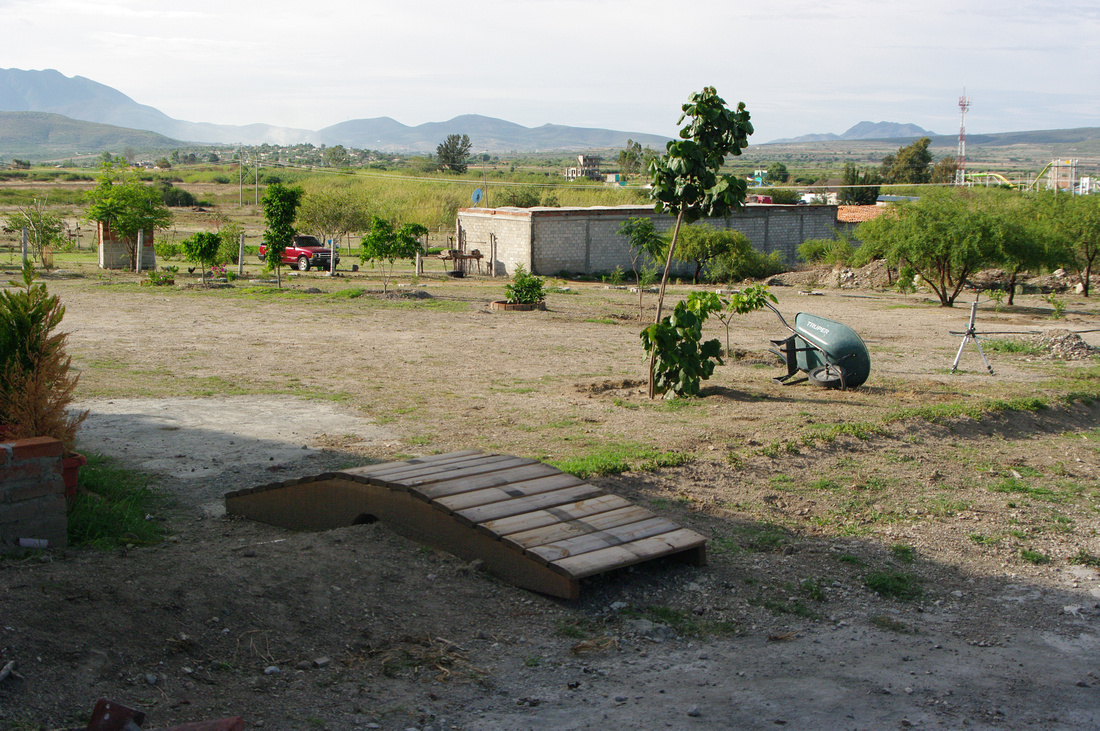

Beth makes tea from this lemon grass plant. It's not in the lemon family but smells and tastes exactly like lemon.
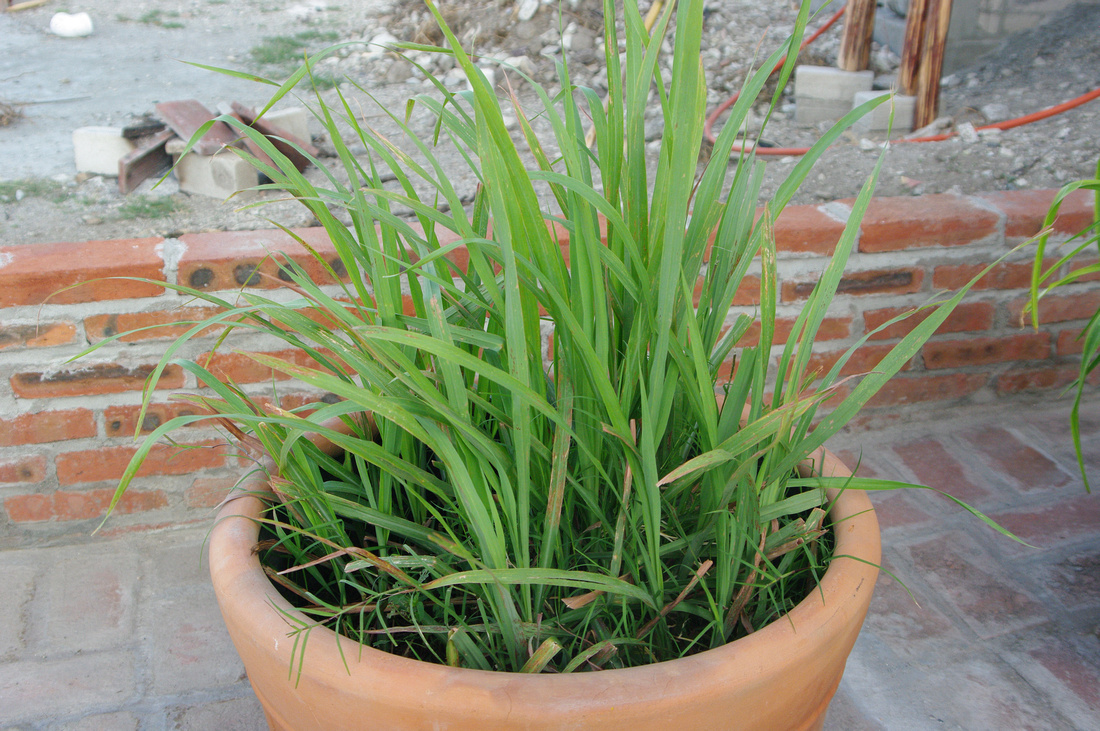

Beth and I are about to finish a book titled The Oxford History of Mexico. We've read several narratives but this one is a little different. It's a compilation of essays written by several authors who specialized in certain time periods. It's so informative we both feel like we understand the Mexican psyche a little better. Things make a little more sense now. I've always admired the way Mexicans we know deal with their country's past. The grumbling always stops short of hate. Quite a contrast to many Americans who seem to relish in it. We don't miss those folks. Been there done that!!! Anyway we recommend the read.
March 2014
March 15: Our well has begun to dry up. The rains came late last year and the season was short. We are in the process of deepening the well. We have already seen new water and are hoping that another three meters will put us back in the green. If we had been drawing water just for household needs, we probably would have been alright but we have over forty trees that also need water. We have been able to maintain water for the house from the water that is being pumped out daily to facilitate digging. Trees are being watered by filling a tinaco from the old well below the house.
March 19: Stopped the digging, considered having a machine come in and bore a deep well, but decided to dig on. Felipe brought in two men from San Baltazar. They worked one day then noticed a problem. The rings on the top of the well were supported by two cement posts. The workers located breaks in the cement posts. If the posts broke, the rings would fall to the bottom.
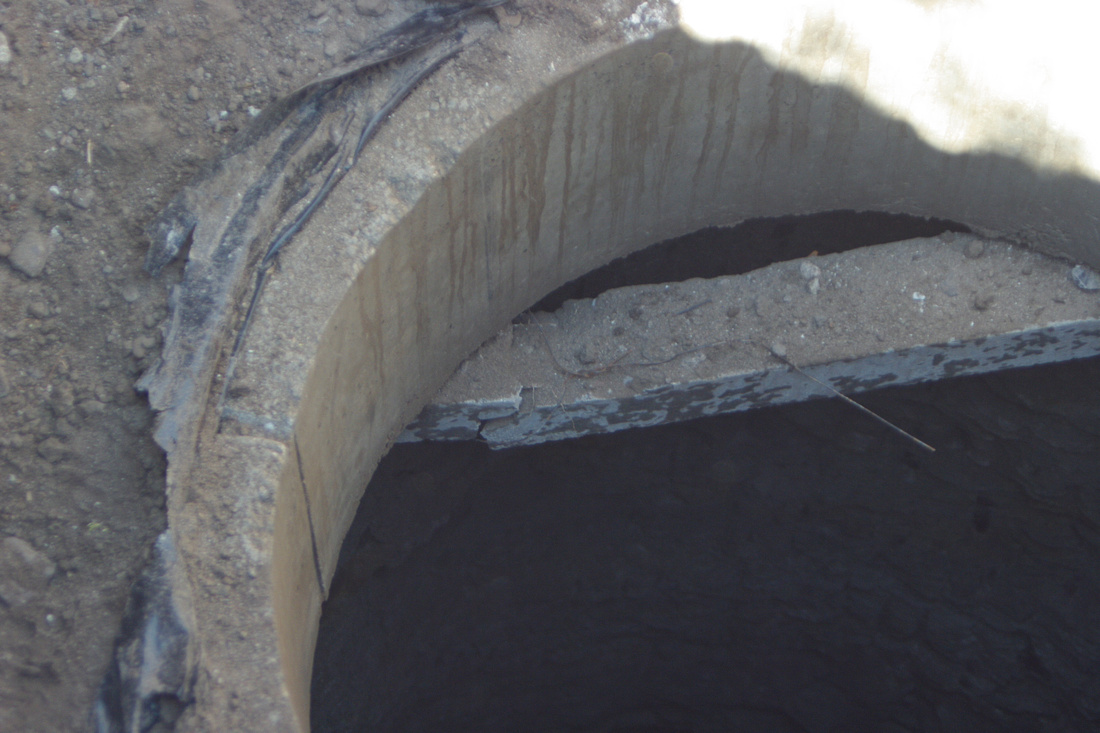

So... all the rings had to come out. I bought two, two inch rolled steel bars which we installed in place of the cement posts. The rings were then put back into place. We used a chain hoist to remove and replace the rings. It was very scary especially with the bottom rings. I decided to photograph the removal of one of the rings. Not sure what everyone thought but I could of sworn I got some "what the hell" looks for not participating.
The gentleman in the orange shirt is my neighbor.
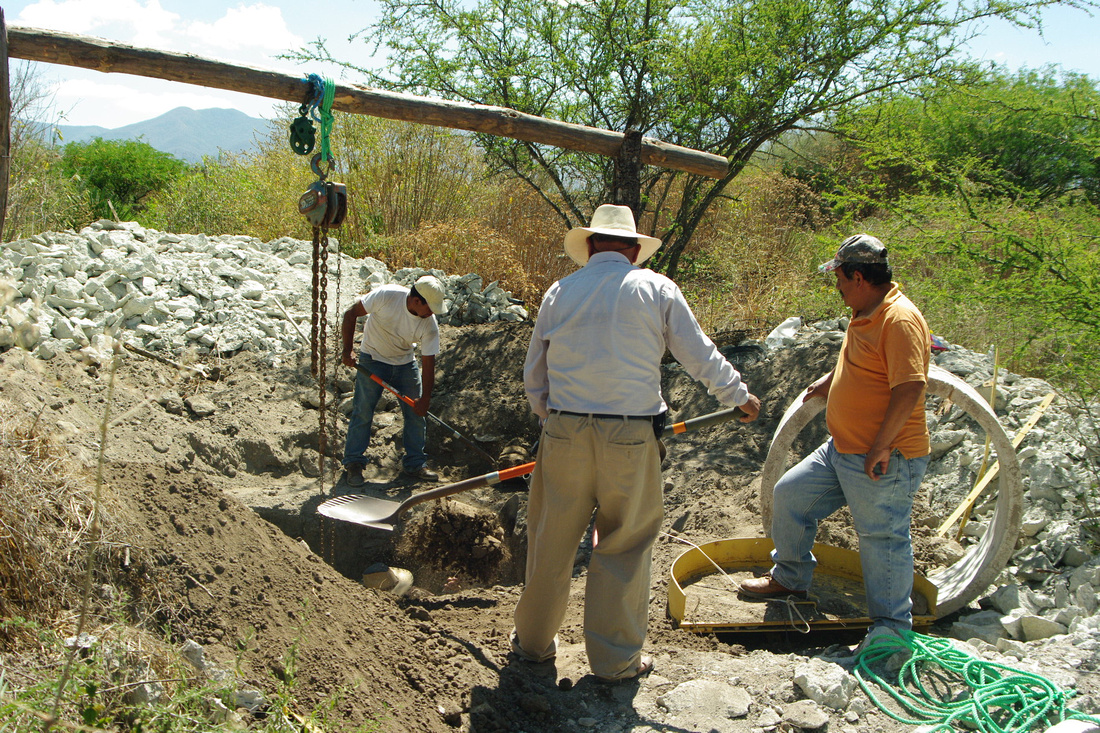

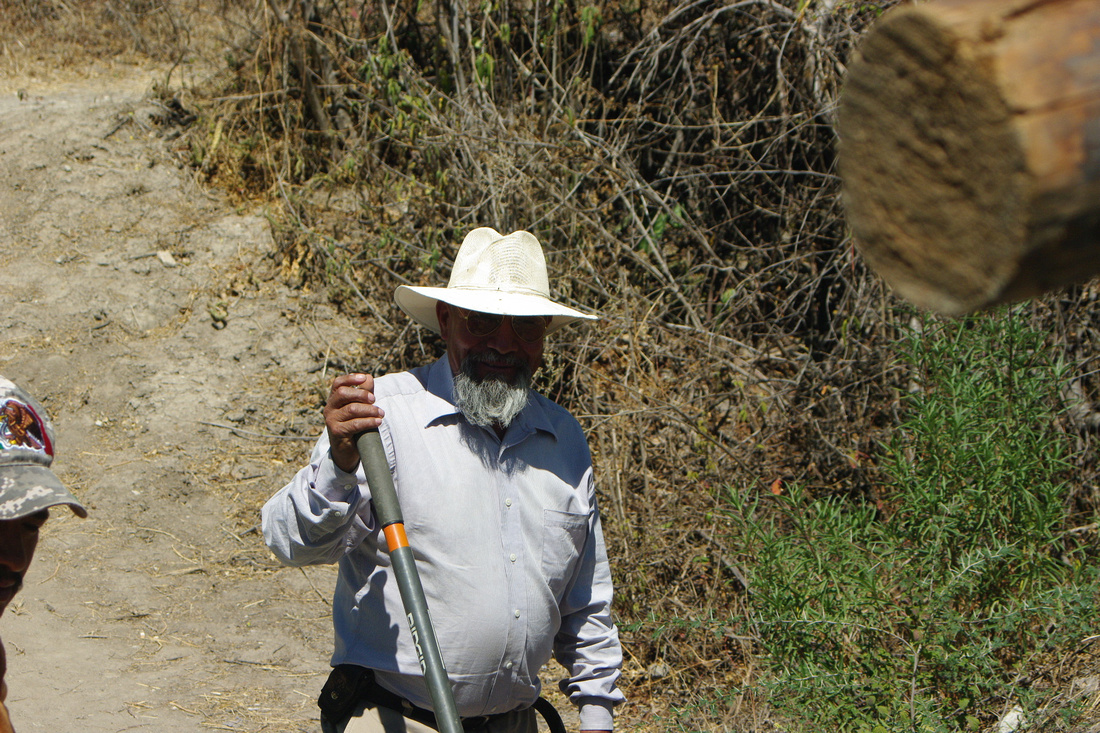

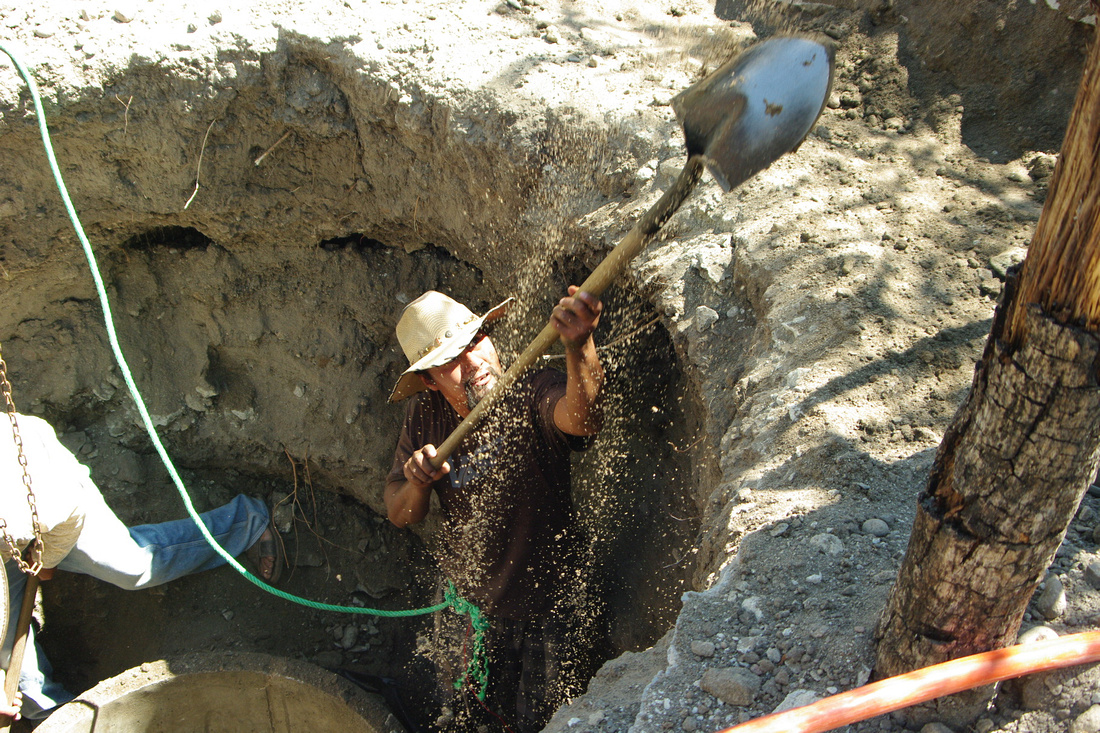

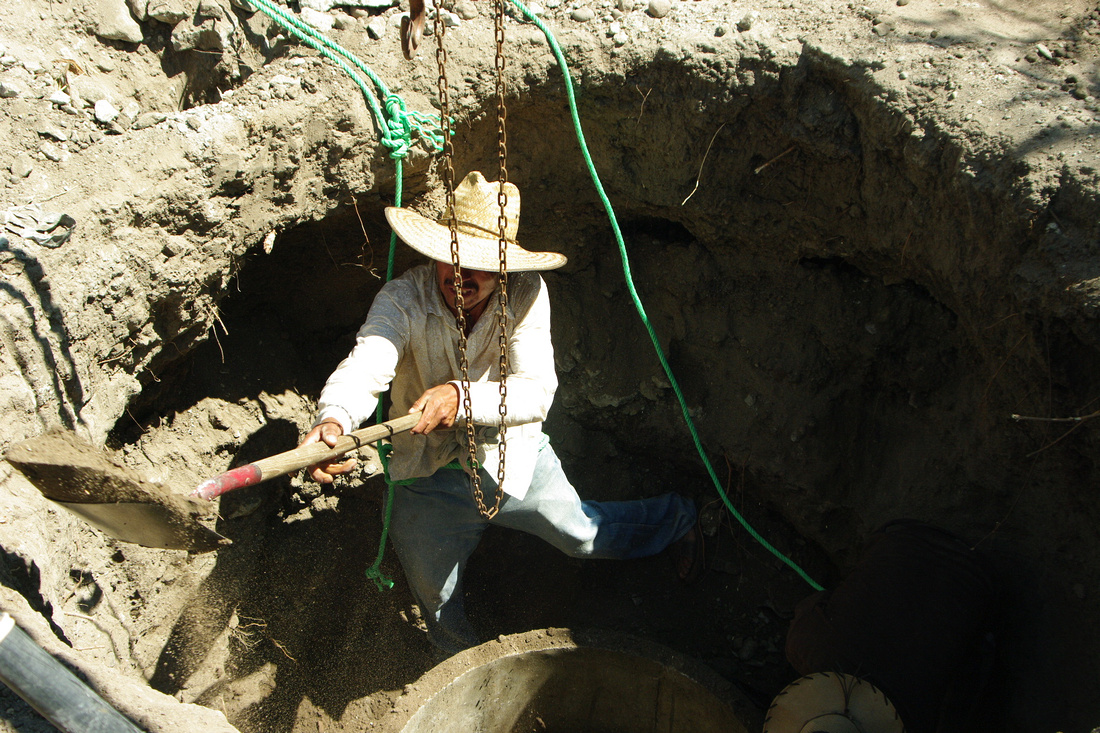

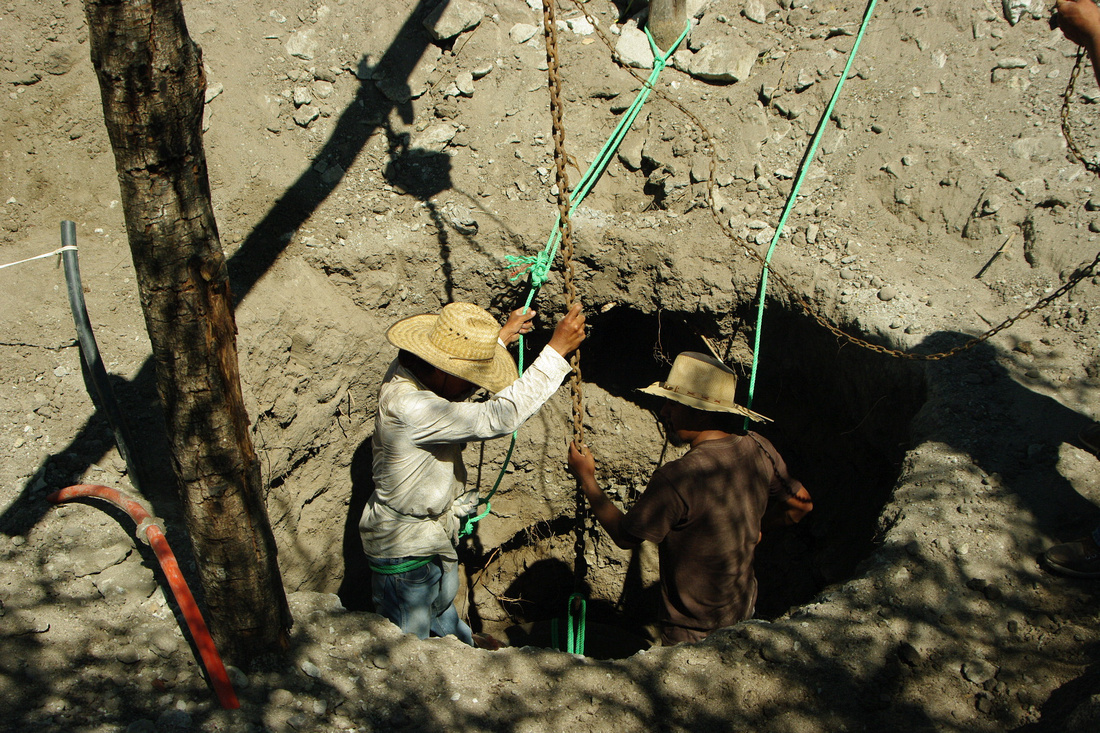

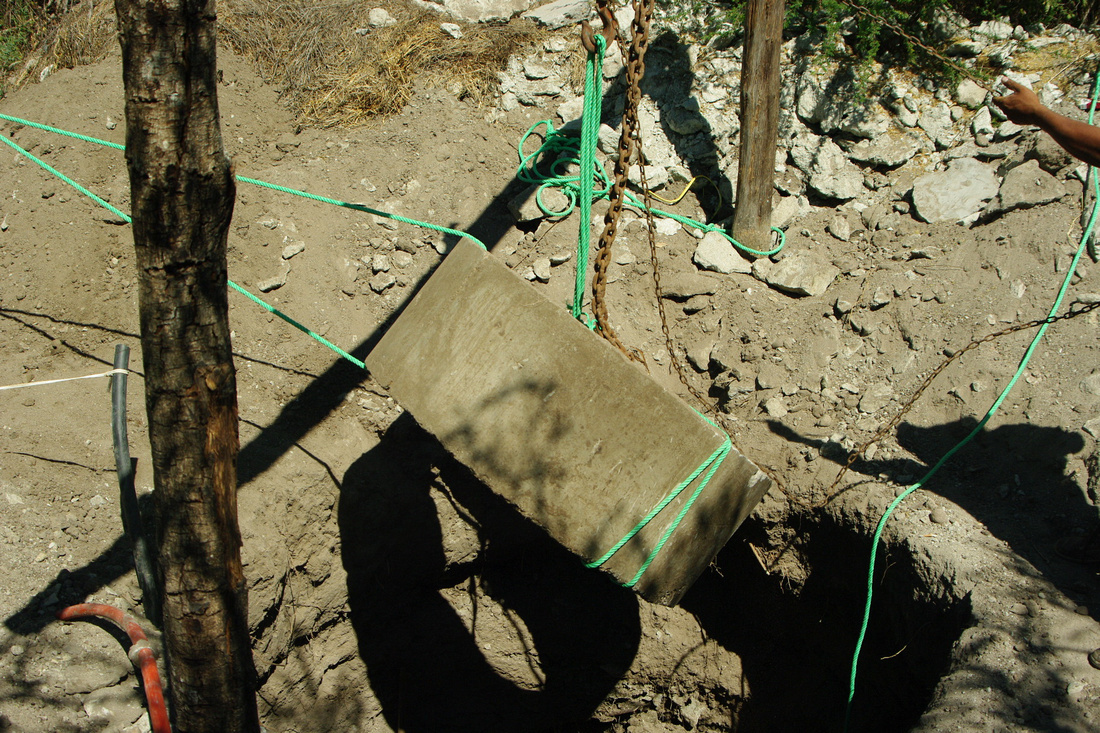

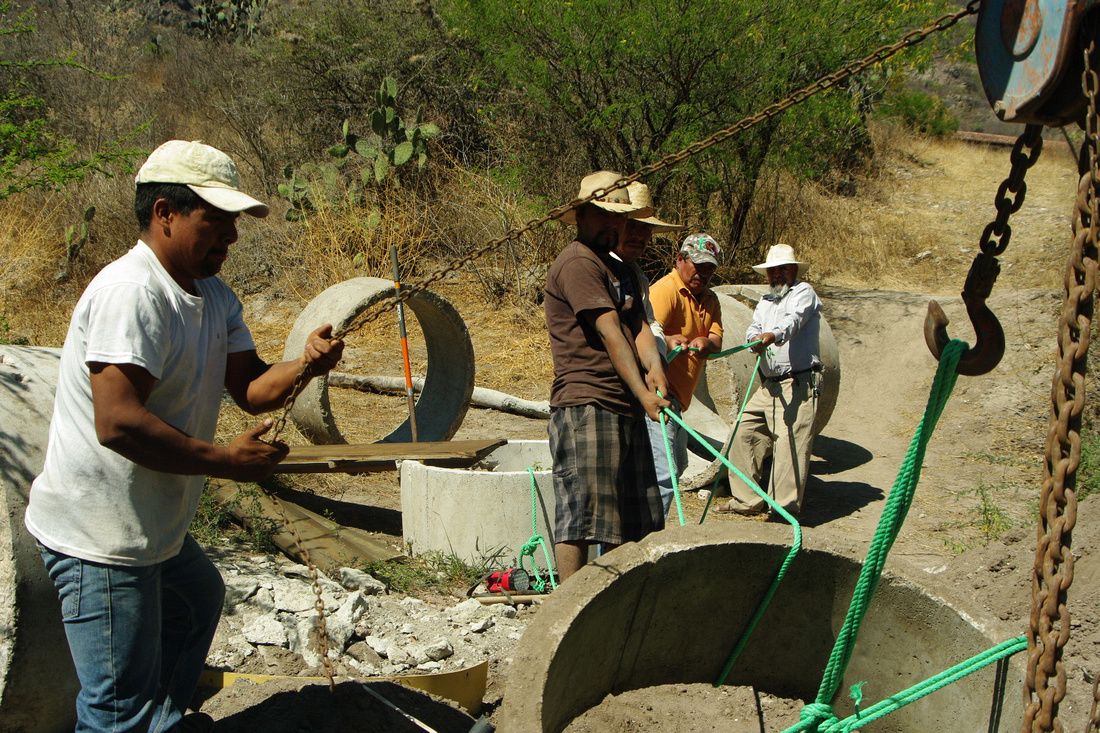

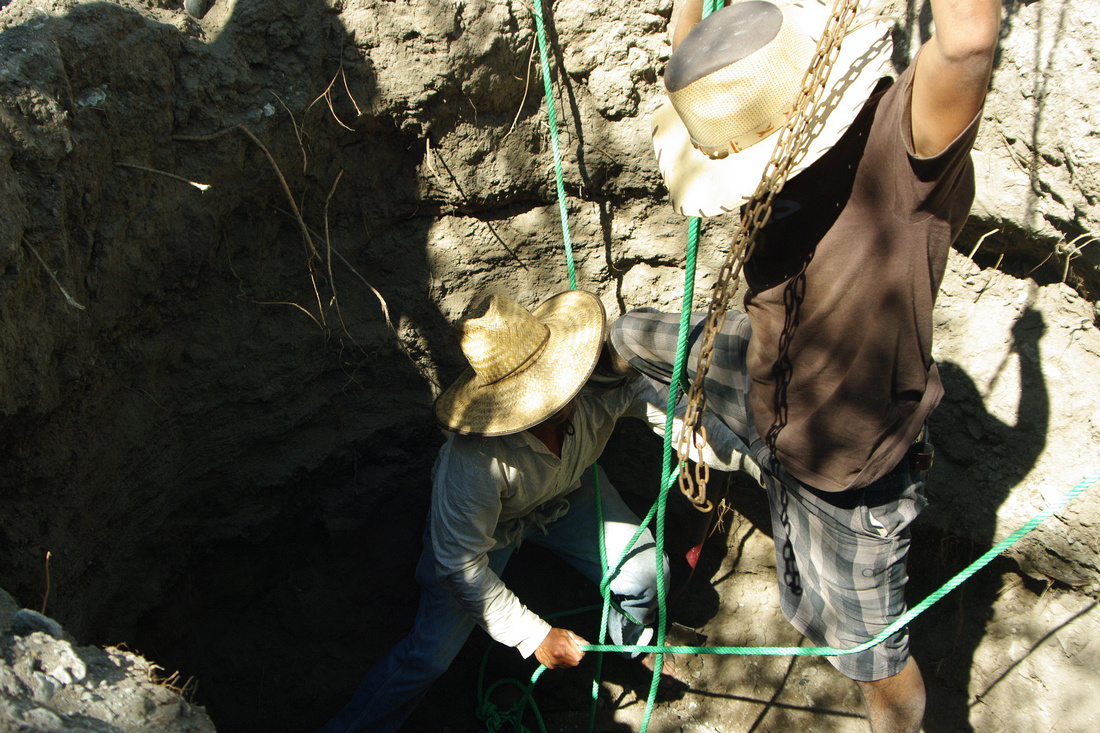

March 26: Next Monday we'll start digging again. Back to the chisel and sledge hammer.
I mentioned in one post how the men at the blacksmith shop work in tandem putting an edge on a tool. I took a chisel to be sharpened and remembered I have a video camera on my phone. Here are two men working in rhythm. I've seen as many as four working together. When the man holding the piece turns it, he often hits the anvil instead of the piece so the rhythm is not lost. The man in green is the owner. I'm guessing he must be sixty but he keeps busy.

Here in the valley Nissan pickups are often used as taxis. The other day while driving to Tlacolula Beth and I saw the truck on the right so crammed with people a man had to stand outside on the bumper. We couldn't resist sticking a camera phone outside the window to record this event that would undoubtebly land the driver in jail or at least have his license taken away in the states.
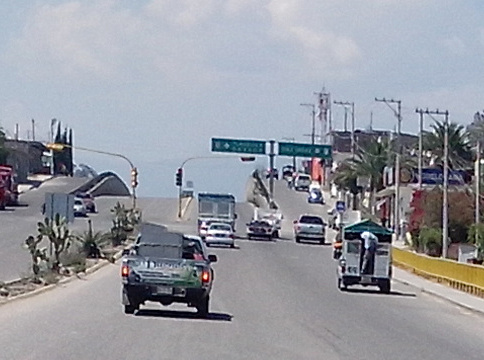

I also mentioned once the difficulty buying peanut butter in a large container. This store in Oaxaca is owned by Walmart. Choices are very limited and prices are high. You can divide by ten to get an idea of the prices. After we took this photo we were approached by security and asked what we were doing. After I explained that we were used to seeing a greater variety of peanut butter and wanted to show our friends back home the difference, she was ok. She did ask me though to not take any more photos.


Beth and I took a day off to visit a couple of hacienda sites. Then surprisingly a couple of days later a couple of Americans from Oaxaca de Juarez showed up at our home asking about our hacienda. Linda and Allen are photographing and gathering information about the haciendas here in Oaxaca. We had a great time talking about Don Pedrillo (our hacienda) and hearing about their project. Once again it was a treat having an extended conversation in English. Hopefully later on everyone will have access to their work. There are a lot more hacienda sites here in our end of the valley than we knew of. More places to explore!!!!!!
Beth and I spent years in Brownsville being critical of people that mixed their sentences between English and Spanish. I even scolded a few students for continually doing so. Well we owe everyone an apology. It seems as though your mind picks out the word that you remember the easiest. Sometimes we can no longer remember the word in English (old age?) but the word in Spanish is right there immediately. There's probably some laziness involved; anyway, sorry for being so critical.
For years Beth and I read stories about Mexicans crossing the desert into the US and perishing for lack of water. A year ago a young man from Union Zapata died trying to cross. When immigration found him he was still alive but died shortly after in the hospital. I don't remember the young man (twenty eight years old) but am friends with his brother and parents. I was going to Union Zapata the other day and offered the mother a ride. The subject of her son came up. It was extremely painful listening to the mother recall her son's life and his subsequent death. The tragic part is that no one knows what happened to him. Was he abandoned? Was he trying to cross alone? I wish there was some way for this woman to know. I'm sure it would help her with closure. A friend I worked with in Los Fresnos works with an organization that drops off water in the desert for folks that are trying to cross. Larry happens to be against an open boarder but doesn't want people dying that try to cross. My hats off to you Larry. Maybe if your group had more support this young man would still alive.
Before we left Brownsville Beth bought an attachment for her Champion juicer that grinds corn. She got to use it the other day. Corn meal is very difficult to find here so we bought some whole kernels and had them ground at a grain mill. It wasn't quite fine enough so we ran it through the Champion and it came out perfectly.
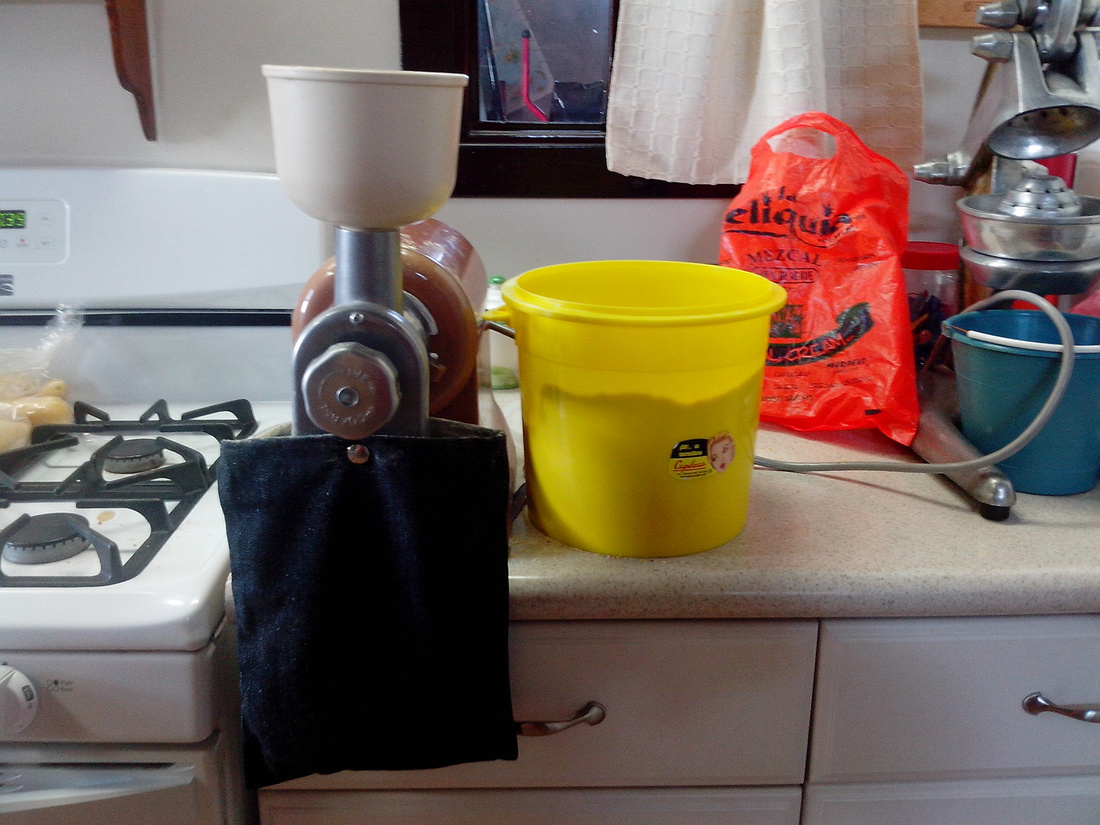

Last night we attended a birthday party for Beto in Tlacolula. I think it was our best fiesta yet. Beth is becoming more confident speaking which makes gatherings more enjoyable. I was too lazy to take photos but did get this video of Beth shaking her booty with Juan's grandson.

February 2014
We get our internet from across the valley from San Bartolo. An enterprising young man who owns internet cafes figured out how to send out a signal that we pick up from an antenna that looks like a satellite dish. For us it's incredible living in a building over four hundred years old and having internet. We are most grateful to Daniel for his skill and ambition.
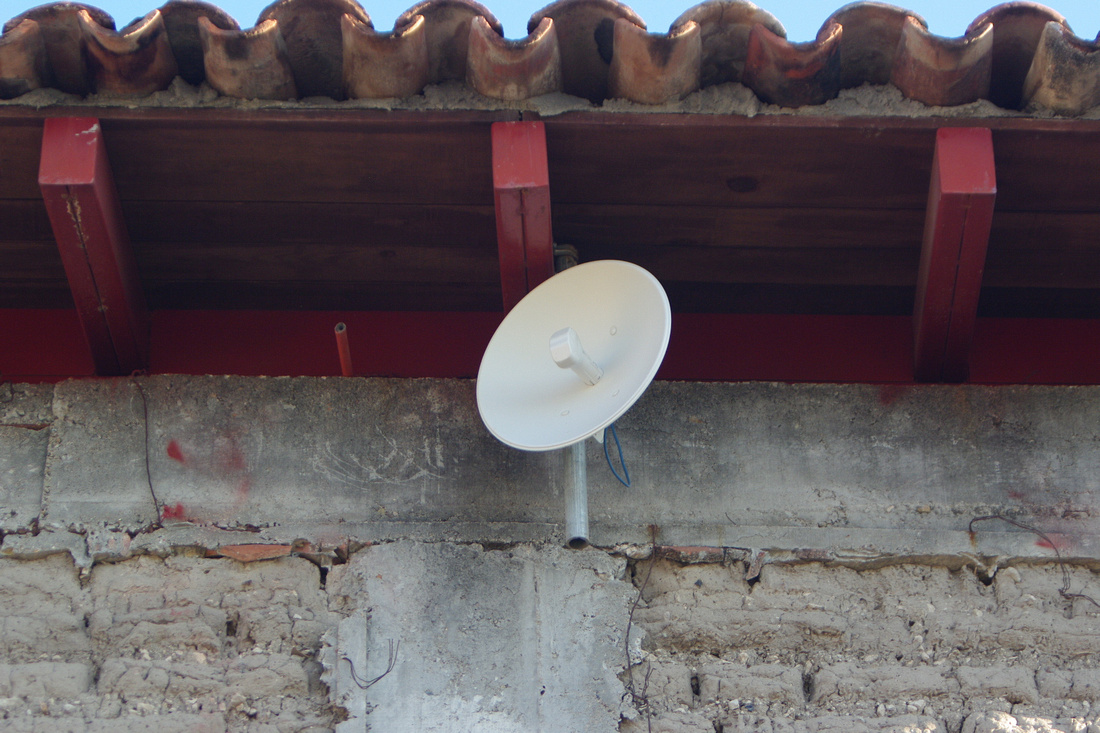

We are still living here in Oaxaca on tourists visas. That means we must leave Mexico every six months. Also as of yet our property is still in Felipe's name. Our goal is to put our property in our names and increase our immigration status to allow us to buy into a health care program, nationalize our truck, obtain a Mexican drivers license, buy Mexican auto insurance, and avoid having to leave the country every six months.
We've read extensively on the processes of accomplishing these goals, but between working on our house, laziness, and extreme fear of the Mexican bureaucratic system we have failed to move forward. We decided last week to hire a lawyer to assist us.
One day while paying our internet bill in Tlacolula, the young girl referred to Daniel as a licensiado. Having great confidence in Daniel, I called him and asked if he could help us out. It turns out that licensiado in Mexico can also mean completing college in addition to being an attorney. Daniel's title reflected his completion of studies in computer science. I was let down until he informed me that his father was a lawyer. Daniel talked to his father and an appointment was made. Daniel, his father, along with their wives and Daniel's brother came to our house Monday evening to discuss our needs.
Daniel's father, Manlio, and I hit it off right away. Through our conversation I sensed how well read he was. Apart from law our discussions drifted to many topics. I was amazed when Manlio mentioned the Beatles. We went on to exchange stories about the Beatles and other early music. Manlio and I are the same age but encountering someone here in Mexico that appreciates American music from the 60's was a first. He even has old records from the sixties.
As far as our legal problems, Beth and I are ecstatic to have someone like Manlio to assist us. More importantly we made new friends. Of course we were invited to their home for dinner. I predict Manlio and I will have mezcal shots and listen to his music collection.
Beth and I are still assisting the committee in charge of restoring the old organ in Tlacolula. The process has moved to restoring the mechanics of the organ. We were invited to photograph some of the process for the webpage we created. The gentlemen doing the restoration are from Spain. One of the workers stood out from the others. It turns out that he is from Germany. He's lived in Spain for the last fifteen years. The workers travel around the world restoring old organs. They are masters! The work is tedious and meticulous. The gentleman from Germany patiently walked us through all of the processes. His Spanish was very articulate.
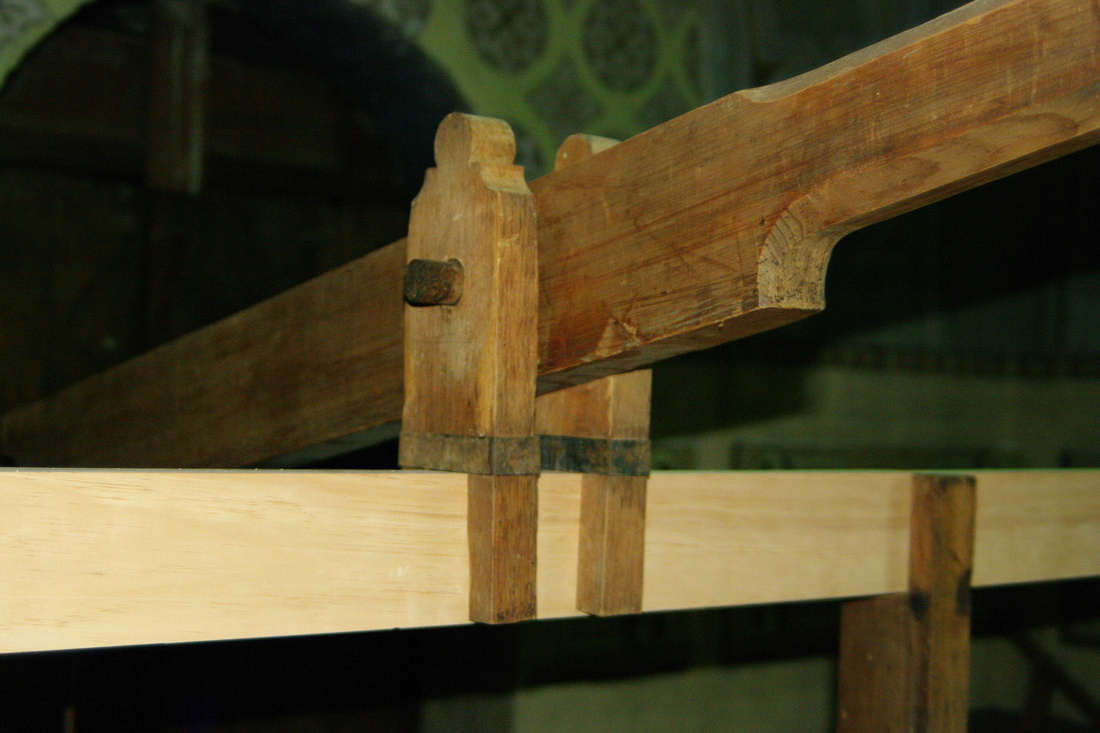

I was surprised that an electric motor was added to pump air. The original bellows are being restored. I guess the motor is an option if no one is available to pump the bellows.
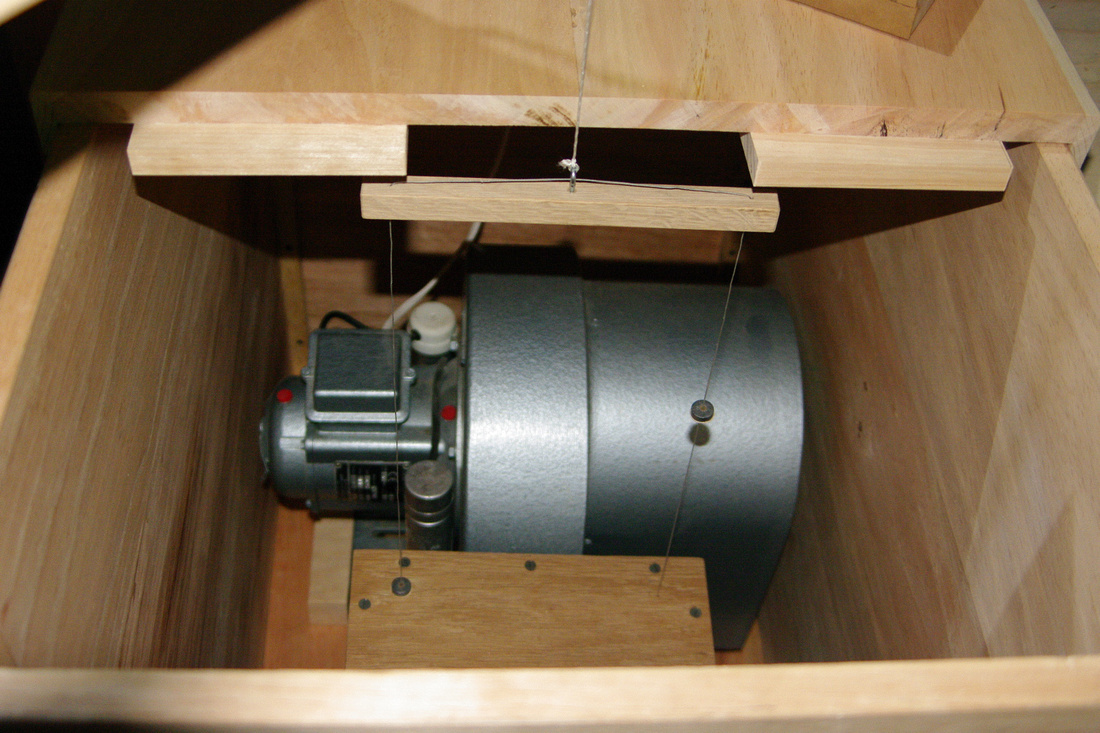

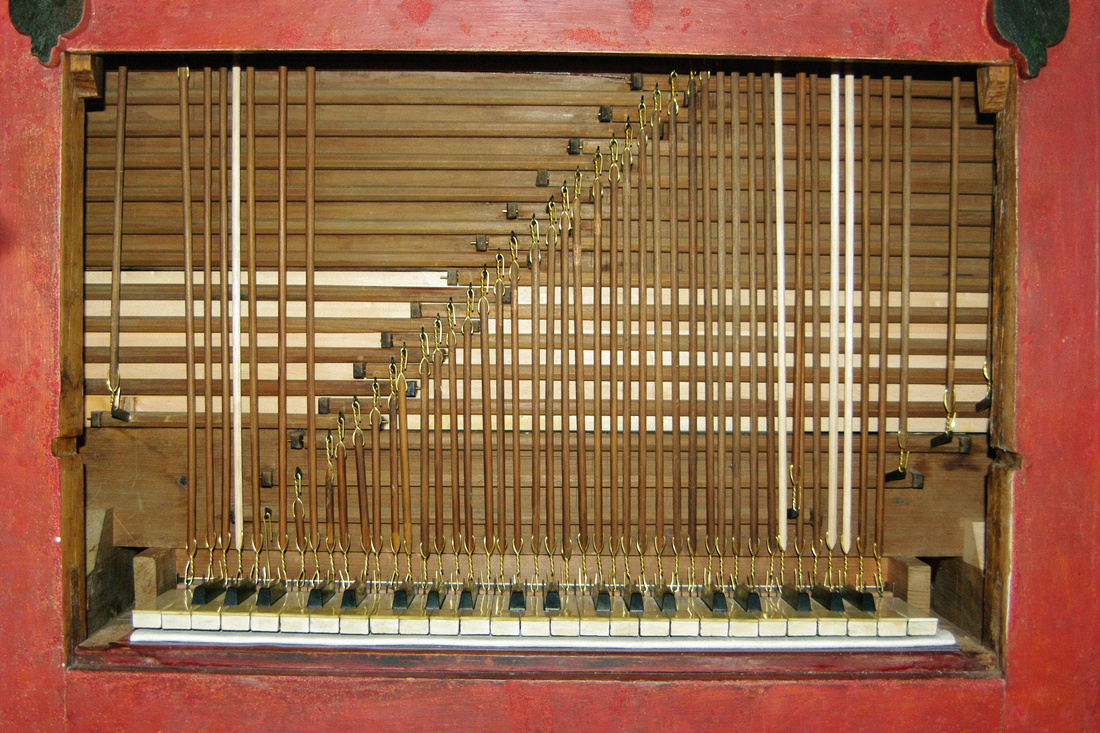

One of the restored bellows.
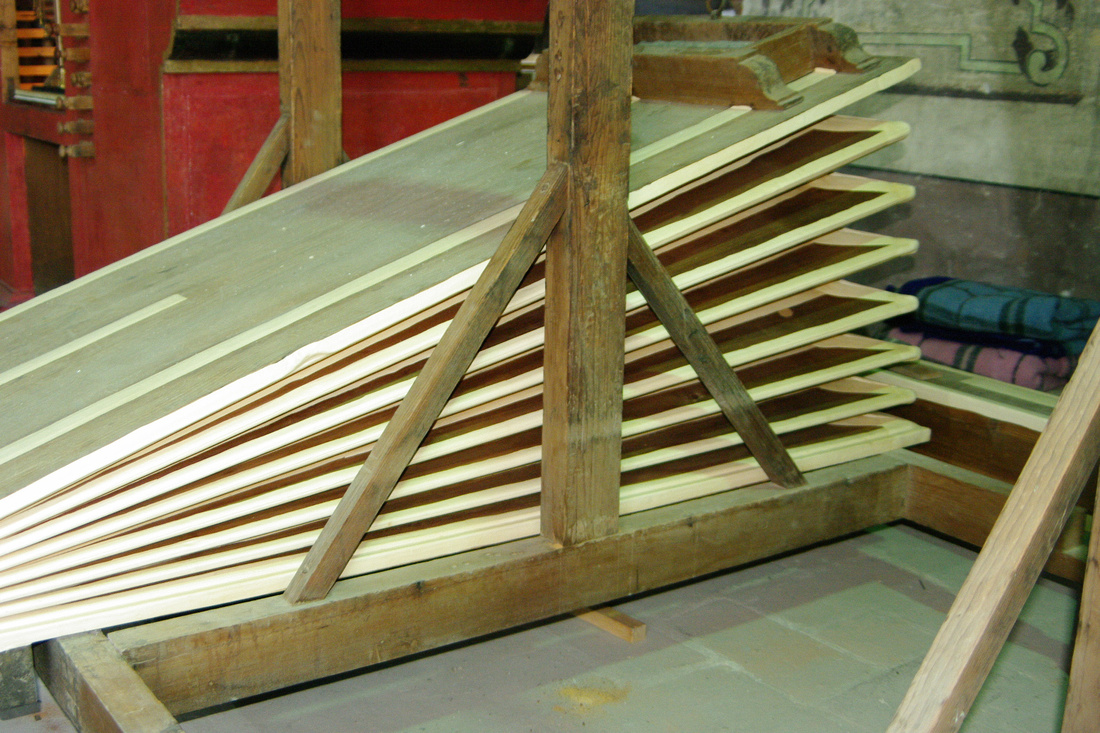

A bellows yet to be restored.
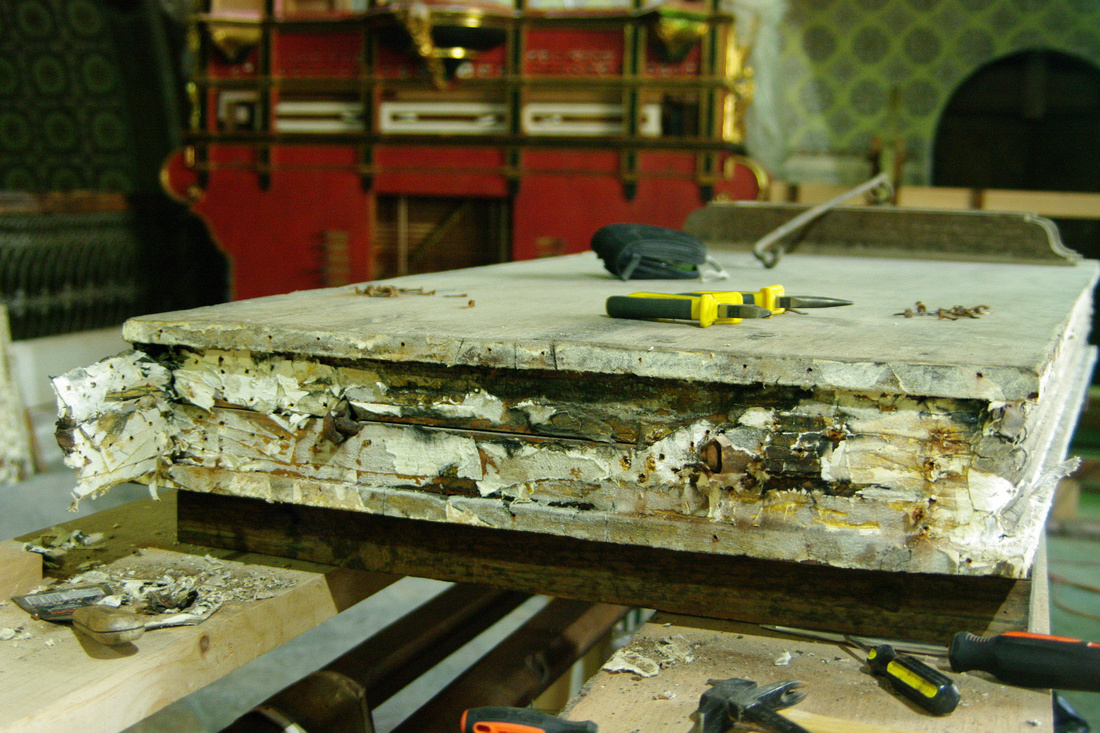

We are here in Oaxaca due to a friendship we made in Washington back in ninety-four. A friend of mine was an auto mechanic and spoke Spanish. He called me one day to tell me that there were a couple of men from Oaxaca at his shop. Beth and I went over and met Felipe. A friendship began that day that has evolved into something special. We just helped him celebrate his sixty-forth birthday. The differences between our early lives adds to the richness of our friendship. Felipe is a unique character. To say that he was poor growing up would be an inadequate description. Plants that could be gathered in campo were sometimes all that kept his family from starvation.
I don't remember how he acquired his first firearm, but I do remember conversations about the pressure of making a kill expending only one bullet. He became an excellent marksman. Today he belongs to a hunting club. He is registered with the government and is allowed to own firearms. When they go out as a group, Felipe is usually the most successful.
Here's Felipe with a coyote he eliminated.
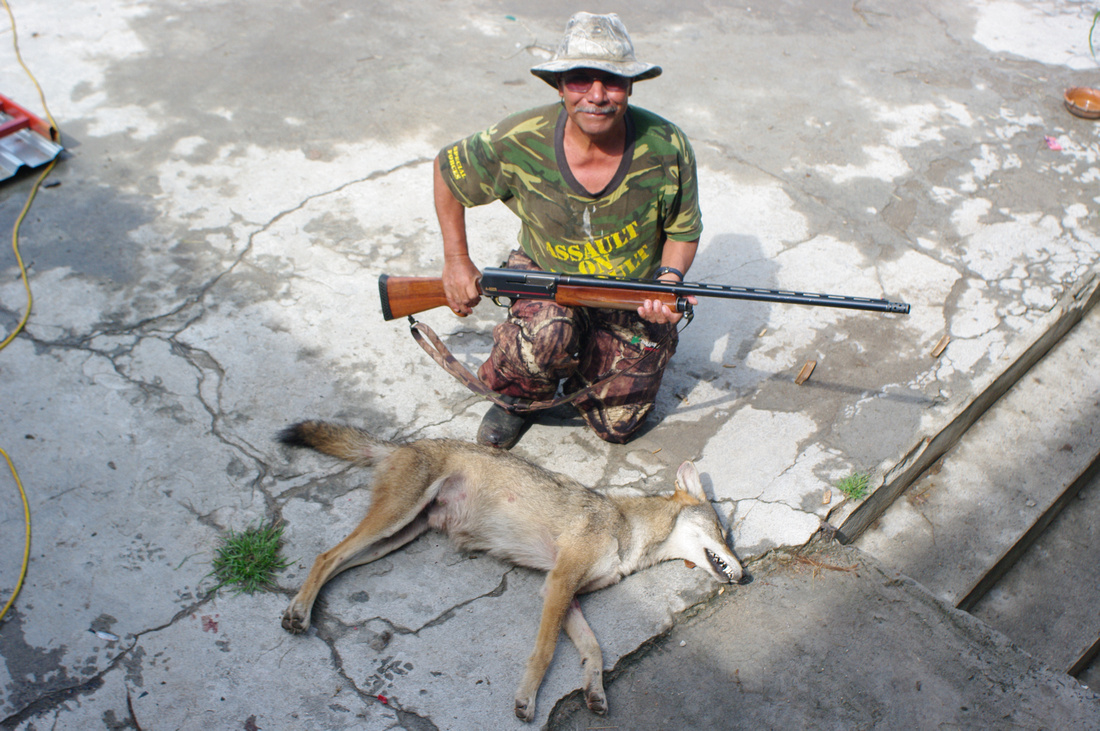

Felipe with a deer he recently killed.
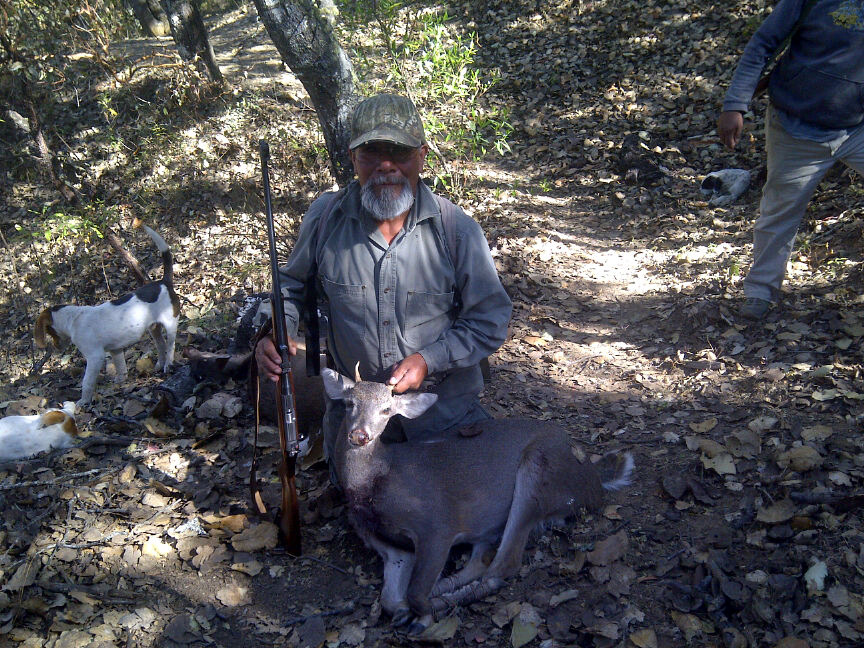

Felipe reminds me of Will Rogers. He's a wonderful story teller. Between his growing up in Old Mexico, his experiences working in the US, and his present life back in Mexico, his repertoire of memories is endless. I admire Felipe's resourcefulness, his never wavering ability to keep plugging along, and his keen wit and incredible sense of humor. How odd that one of my best friends in life doesn't speak English!
A word about Felipe's children. All but one reside in the US. They are industrious, hardworking, and caring people. My family is better because of the contact we've had with them.
One of the organ commitee members is named Alonso. He is a panadero (baker). He too worked in the US as a young man. He and his wife built a home with their earnings. Alonso is from Tlacolula. We've had he and his wife over a couple of times. He invited us to his home a couple of weeks ago to eat pizza. His oven (which he uses to bake his bread) is a dome structure made from adobe and bricks. It must be six feet across and is fueled by burning wood. The wood is burned down to coals before the bread is placed in the oven. The ashes are pushed aside to make room for the pans. Eating pizza from a wood burning stove was a first. The oven sits on a large base that consists of brick, dirt, pieces of metal and ground up glass that are meant to help conserve the heat.
I didn't take pictures at Alonso's but his oven was very similar to this one.
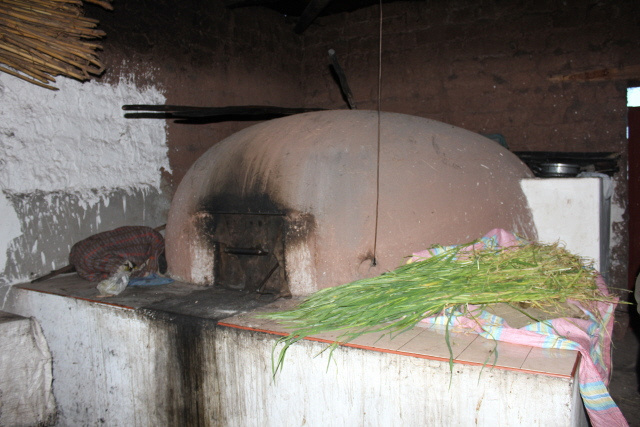

Alonso likes to talk about his faith. He is Catholic and is very involved in the church. He brought the Priest from Tlacolula over the other day to drink and sing. The Priest from Tlacolula is another interesting man. He loves to sing and play my old guitar. We attended his birthday party last week along with about six hundred other people. He is loved by the community. Unfortunately we heard the other day that he is going to be transferred.
My cousin Freda and her husband recently built an outbuilding by their home. She posted pictures of some of the progress on Facebook. I was a little envious because the structure was built with wood. The finished product looked great! Wood structures are rare here. The sun is so strong that the life of anything wooden is very short. I've seen beautiful wooden gates that look like hell very quickly. Mickey and his wife, Yadi, want to make a home on the patio side of our house. To do this an additional building is needed to store my tools and everything else that is now in the patio. Mickey and I are sharing the cost of making the new building. The building is being made of cement bricks. Because of the weight of the bricks a pretty secure foundation was needed. The workers had to dig down about a foot and a half in rock before they began laying the brick. Progress is extremely slow and is very physically demanding.
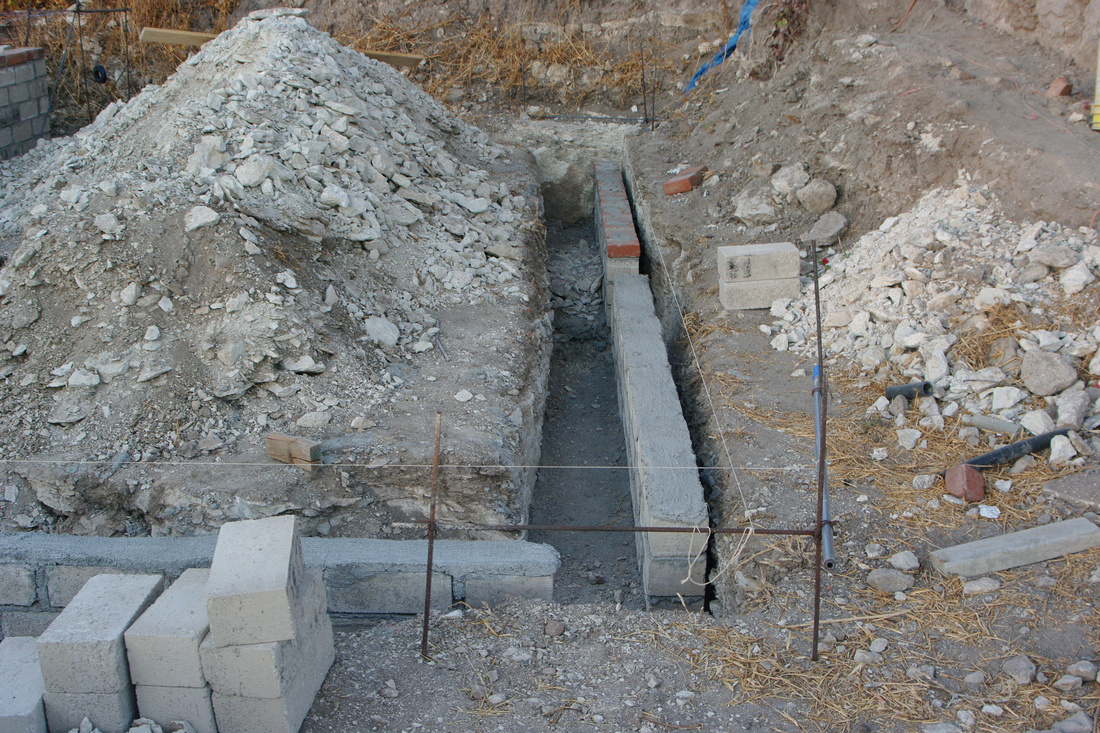

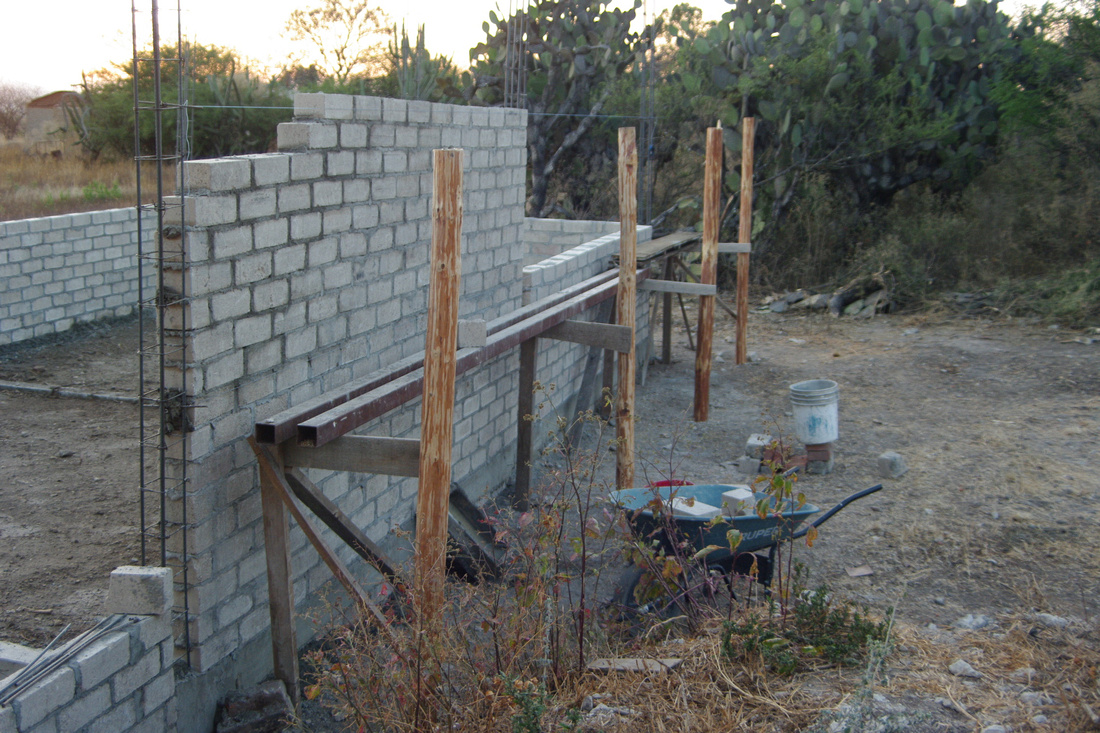

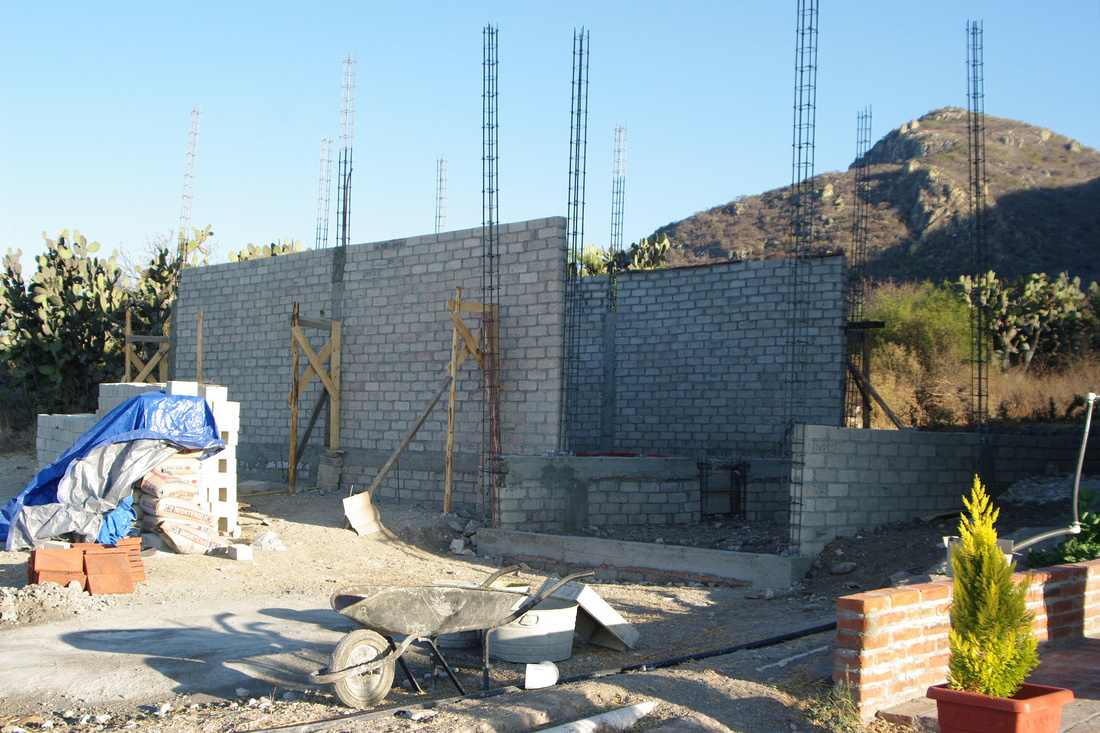

Selverio is in charge of the construction. He lives in Union Zapata but is originally from Vera Cruz. Although only thirty-three Selverio has incredible stories of growing up in Vera Cruz. Their family was extremely poor so Selverio went to work selling bananas when he was just six years old. He also cared for animals taking them out to campo to eat all day. He came to Oaxaca in his early teens because the rate of pay was higher here. He also worked in the US for a few years. Most of his jobs here when he returned were twelve hours a day for around ten dollars. He began helping bricklayers and learning the trade. Our garage/storage building is his first job solo. He and his assistant work from eight to four-thirty. We pay Selverio two hundred and fifty pesos a day (about eighteen dollars and eighty five cents). The rate that we pay our workers has been a difficult choice all along. If we pay the standard rate, we feel that we are exploiting our workers. If we pay more. we catch hell for raising expectations. We have resolved the problem by giving bonuses. We brought down our laptop but rarely use it as we have a desktop. I took the laptop to Tlacolula and had Windows seven installed in Spanish. Selverio's son is thirteen and is a very good student. We gave the laptop to his son to use for school work. A band is coming to Union Zapata as part of a fund raising project for the church. The tickets are expensive relative to the local economy so we purchased tickets for Selverio and his wife. The balancing act is complicated for Beth and I. We are on a fixed income but we want to be fair to anyone that works for us.
Disculpa a mis amigos Mexicanos. Es que todovia no puedo escribo bien en Espanol!!
One night of Las Posadas and dinner at Matatlan
In 1994 during our first year in Oaxaca, we learned that Las Posadas is a nine-day celebration that people in Mexico celebrate annually beginning December 16 and ending December 24. The nine-day event represents the nine months of pregnancy of Mary carrying Jesus. The procedure has been a tradition in Mexico for 400 years. Although Catholics predominately celebrate this now even Protestant Latinos celebrate this tradition.
Village people move in line from one home to the next each evening with the owner responding by singing a song and welcoming a ceramic Mary and Joseph into the home. At the end of each night's journey, the people sing Christmas carols, children break open star-shaped piñatas to obtain candy and fruit hidden inside, and tamales and atole are distributed to all.
In 1994 the festivities were much simpler than they have now become and reflected the poverty of the people. About forty people arrived at the home we attended. The welcoming residents gave two sweet tamales, café, or cocoa to each attendee. Men and women were offered cups of mezcal. There were no piñatas. This year’s Las Posadas was much more extravagant and reflected the increasing income of the people. In contrast, in this year’s celebration over 200 people arrived at the home of Felipe. Everyone received both meat-filled and bean-filled tamales, three to each attendee. Bags of candy and fruit were also given to all, and the children enjoyed breaking six candy filled piñatas.
Preparations began early in the day.
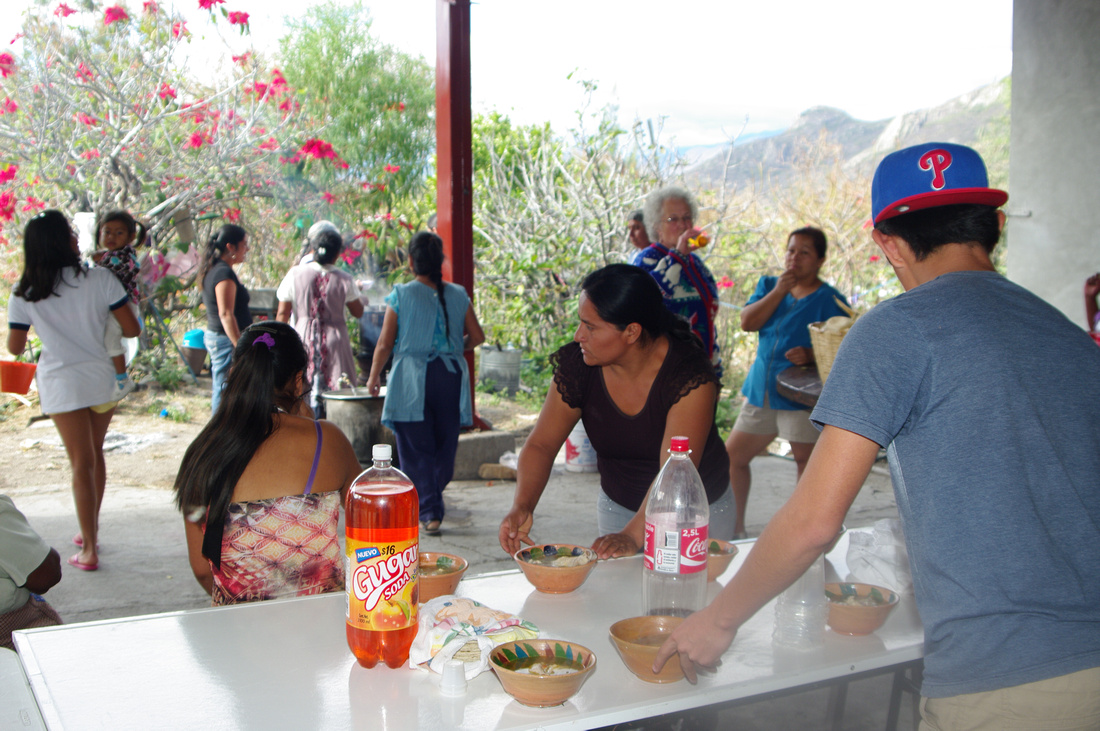

Beth and Amparo taking a break!!!!
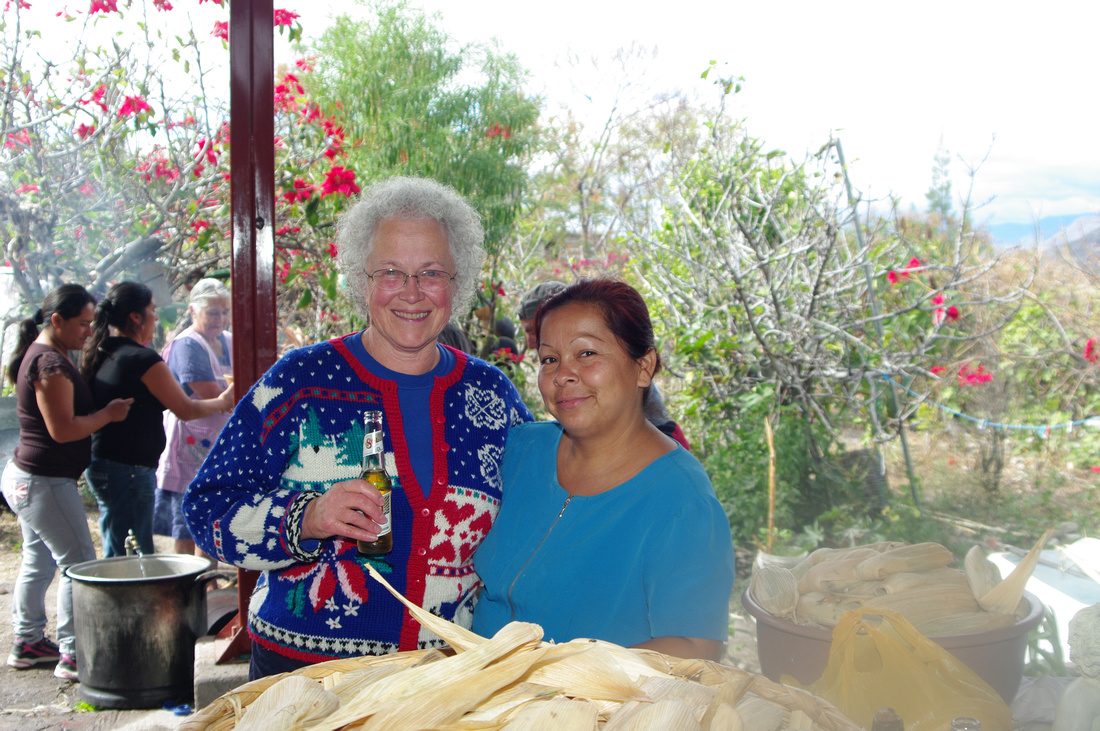

Caldo (soup) was served early in the day.
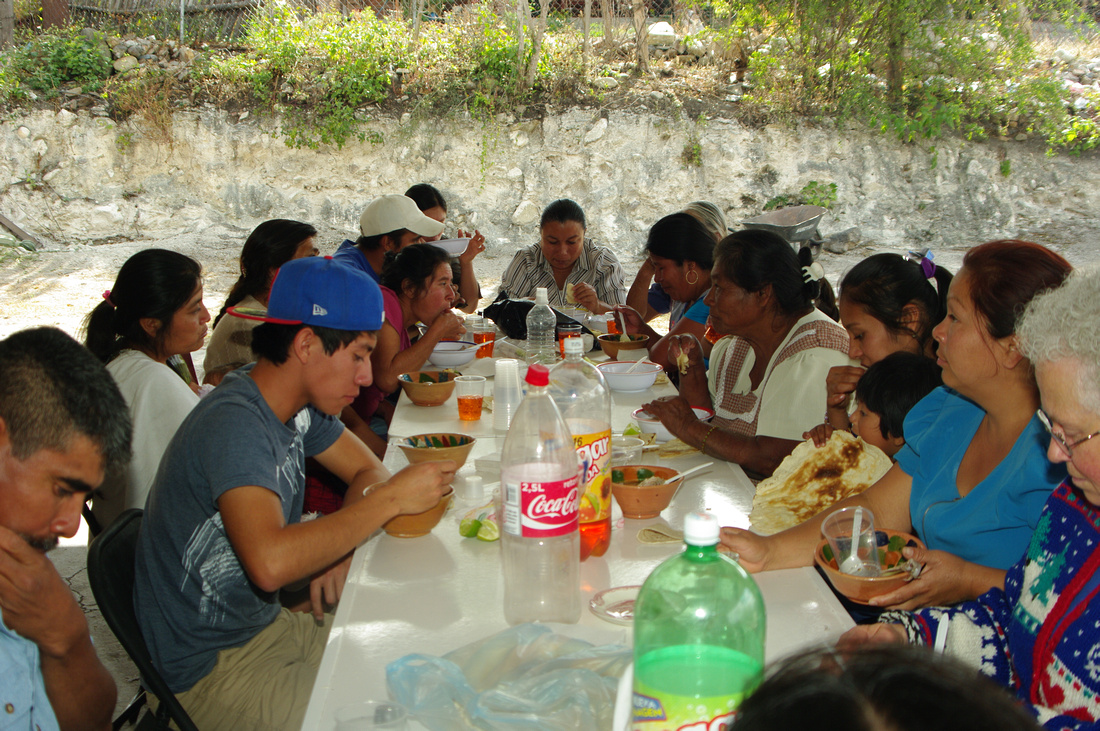

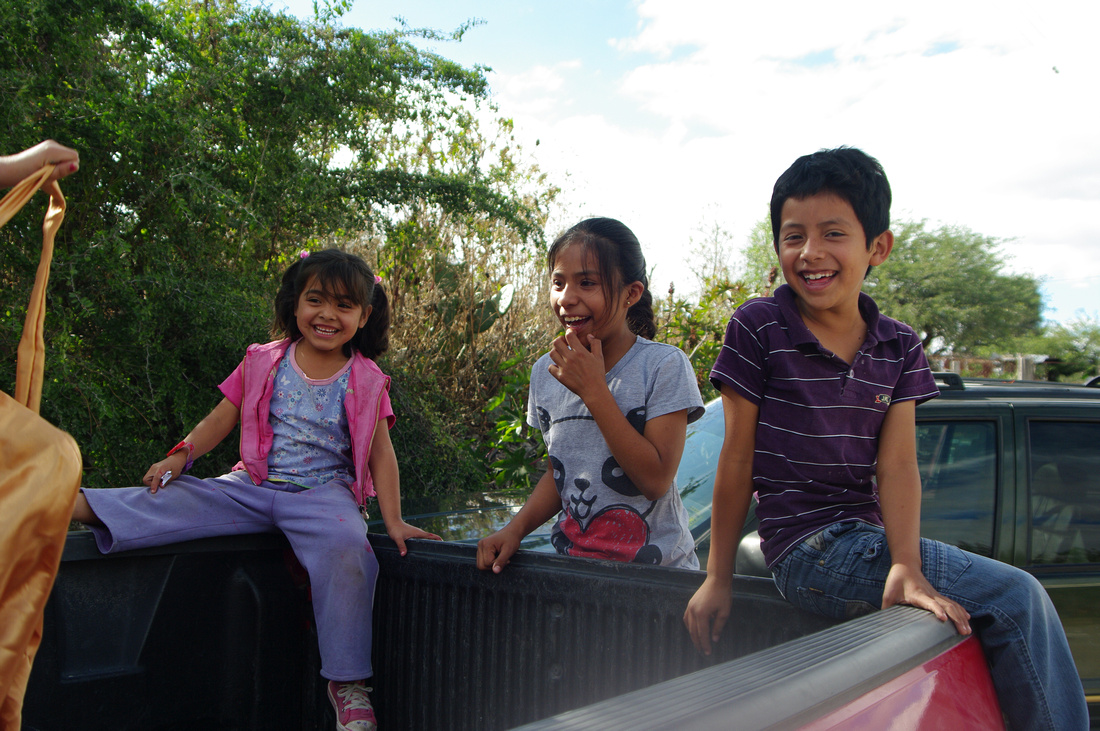

Beth with the grandson of a friend.
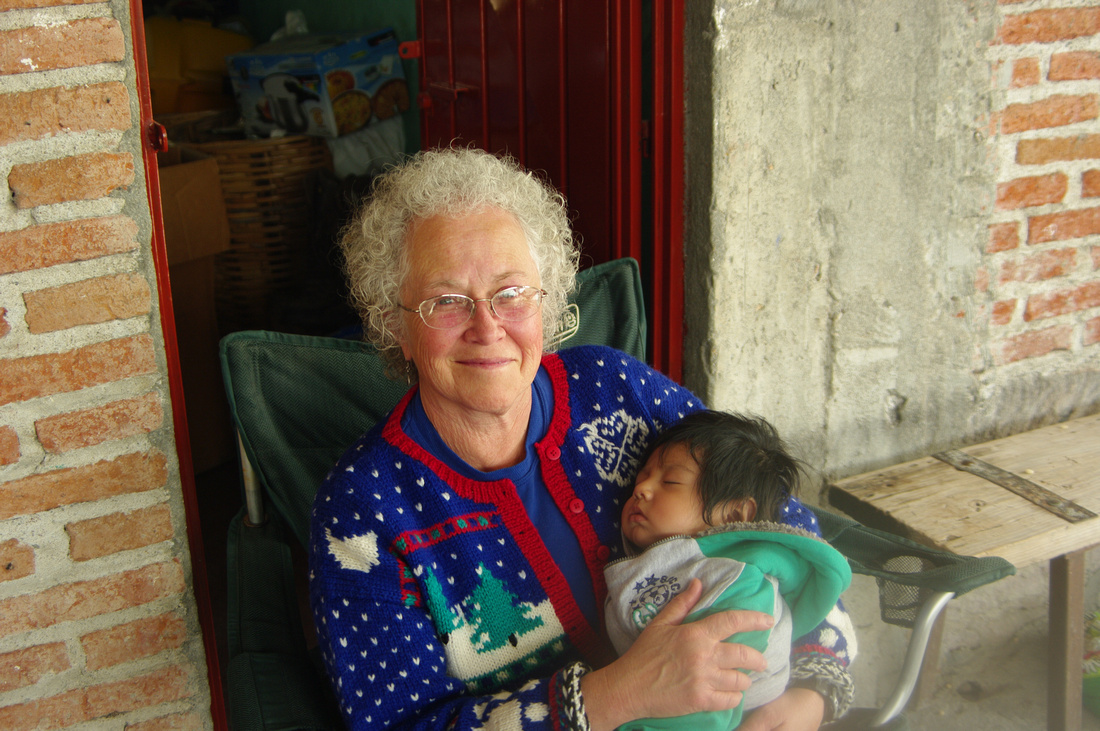

Had to photograph this little guy. He's pretty scruffy but has a wonderful personality.
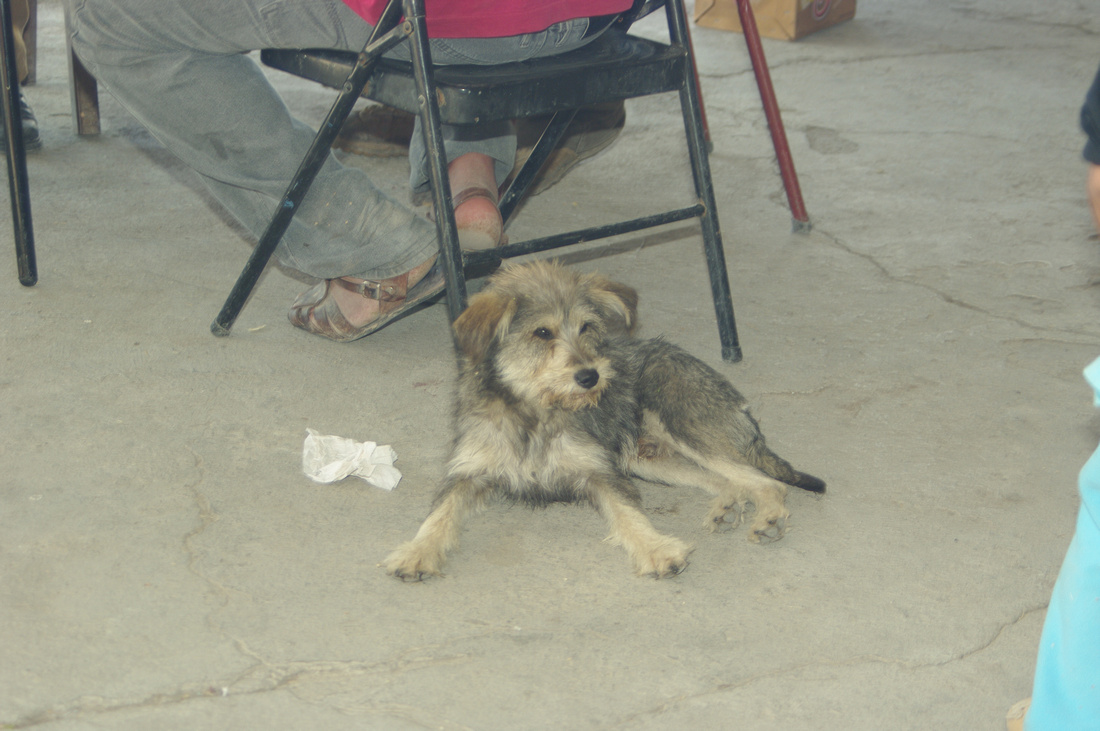

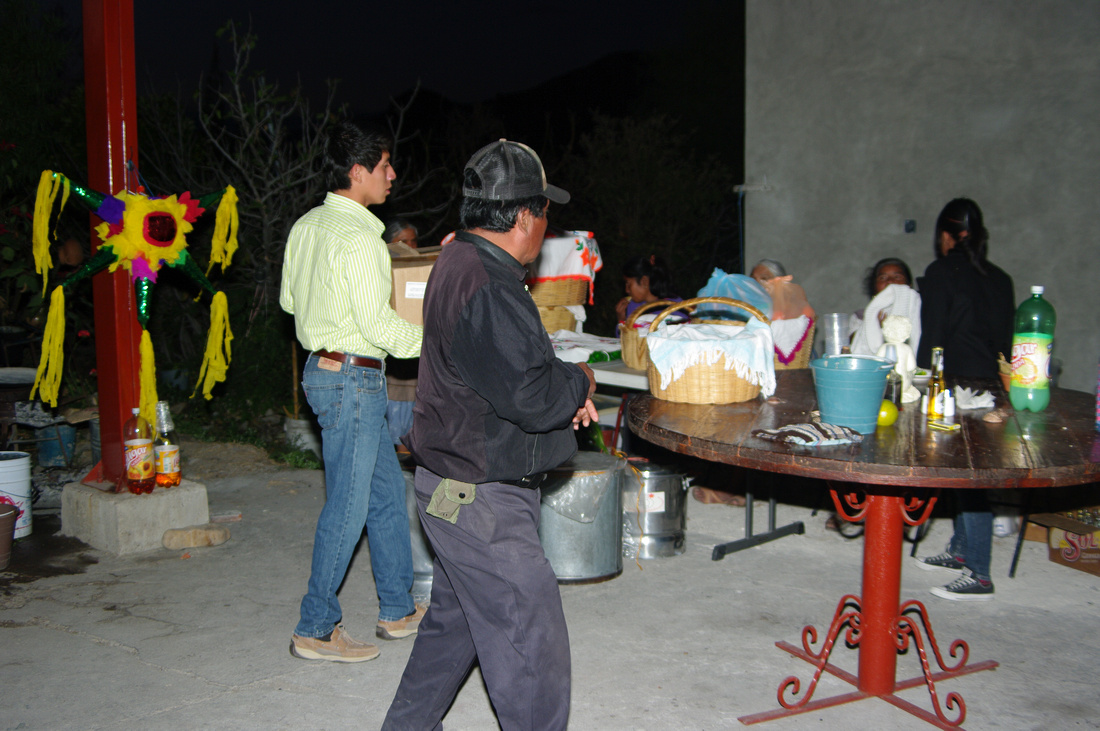

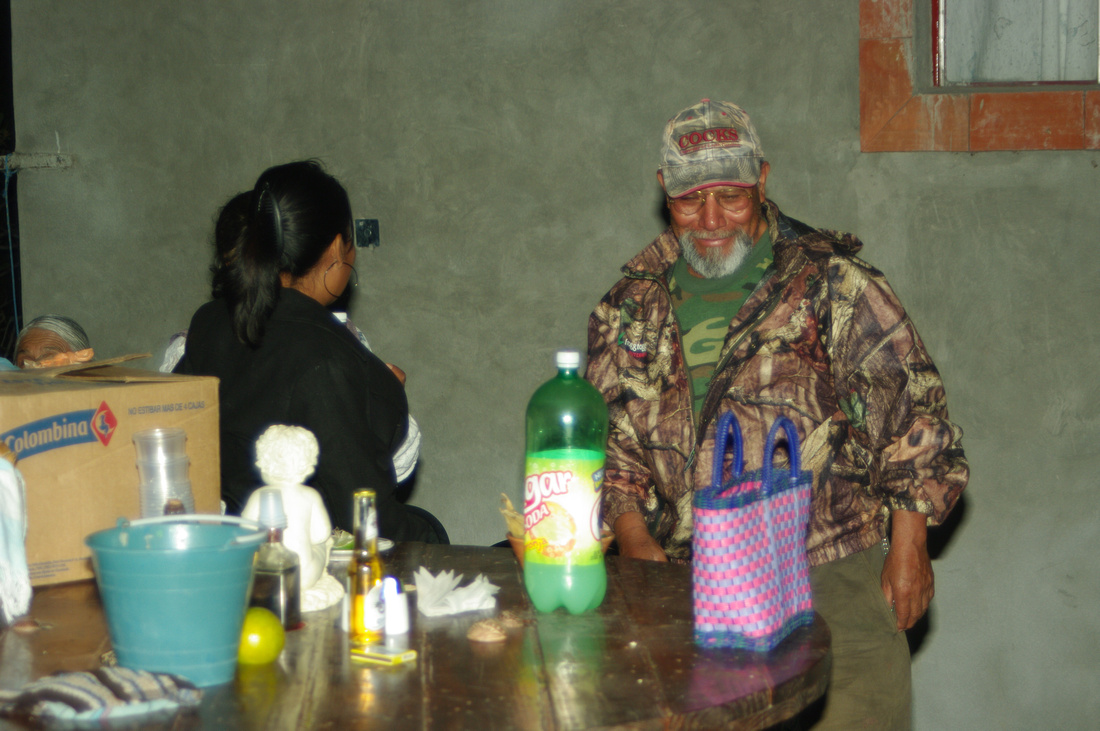

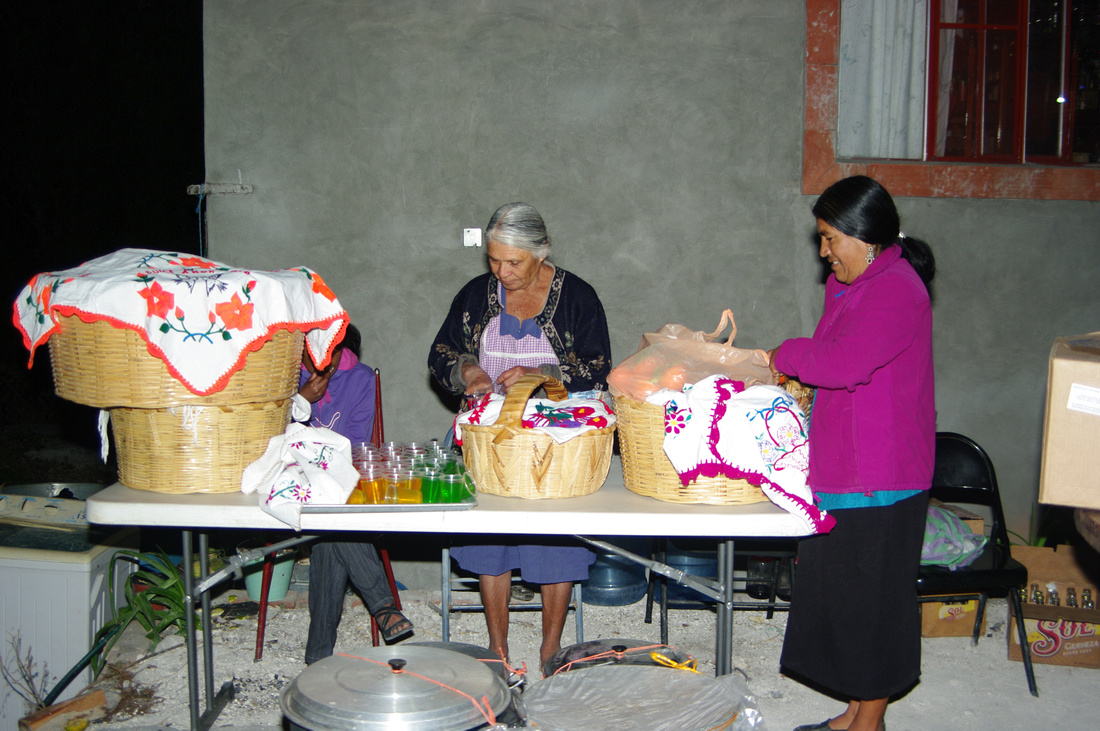

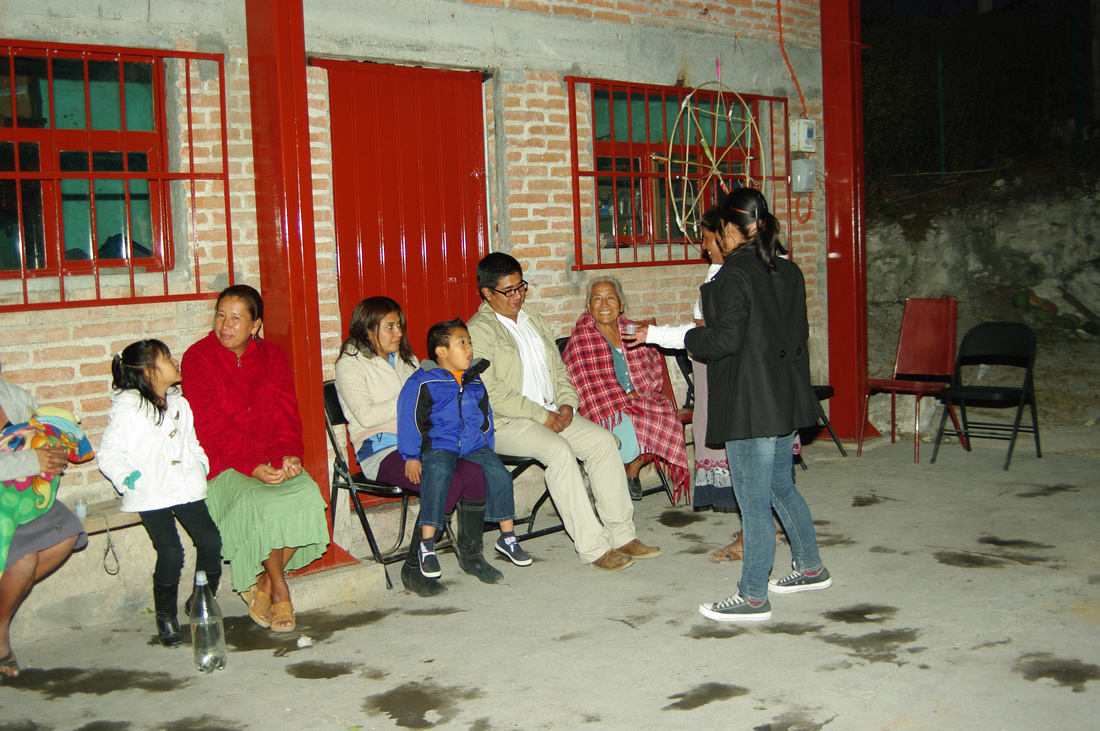

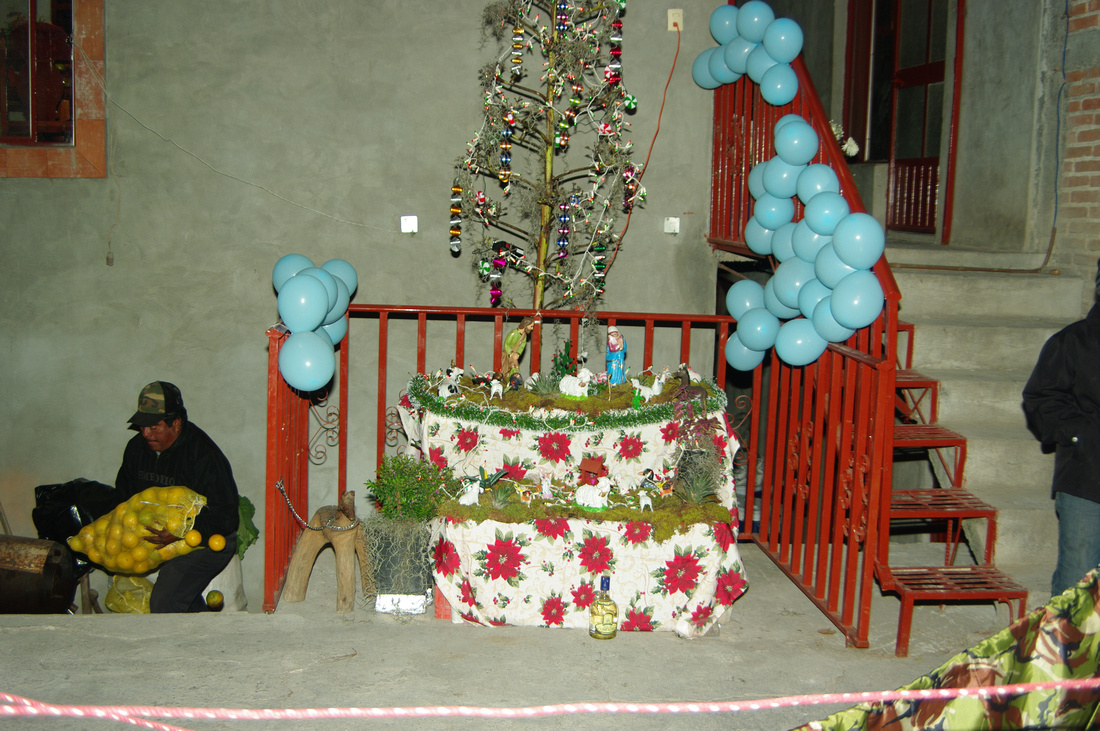

The arrival of everyone. Yea the guy in front was pretty wasted! For us the mixing of a religious celebration with alcohol was at first a little strange. It certainly adds to the festive spirit!!!
For those residents from Union Zapata that have been in the states for years I imagine there are a lot of faces you don't recognize especially the young adults and children. For that reason I tried to include as many faces as possible in my photos.
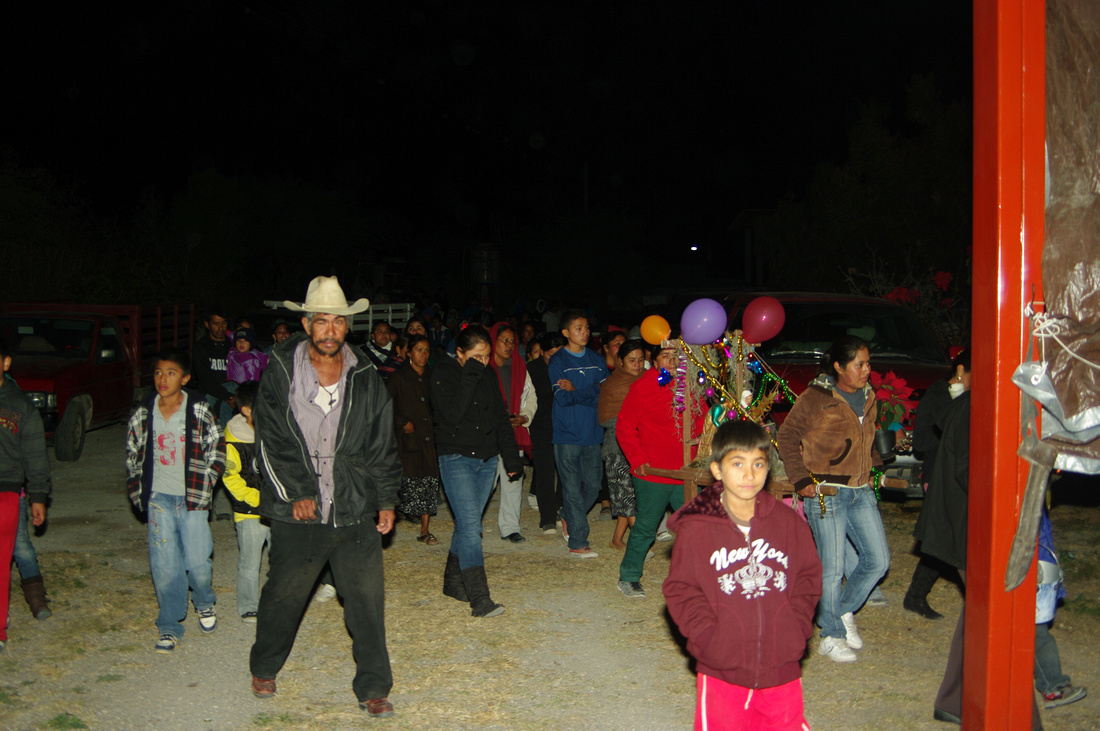

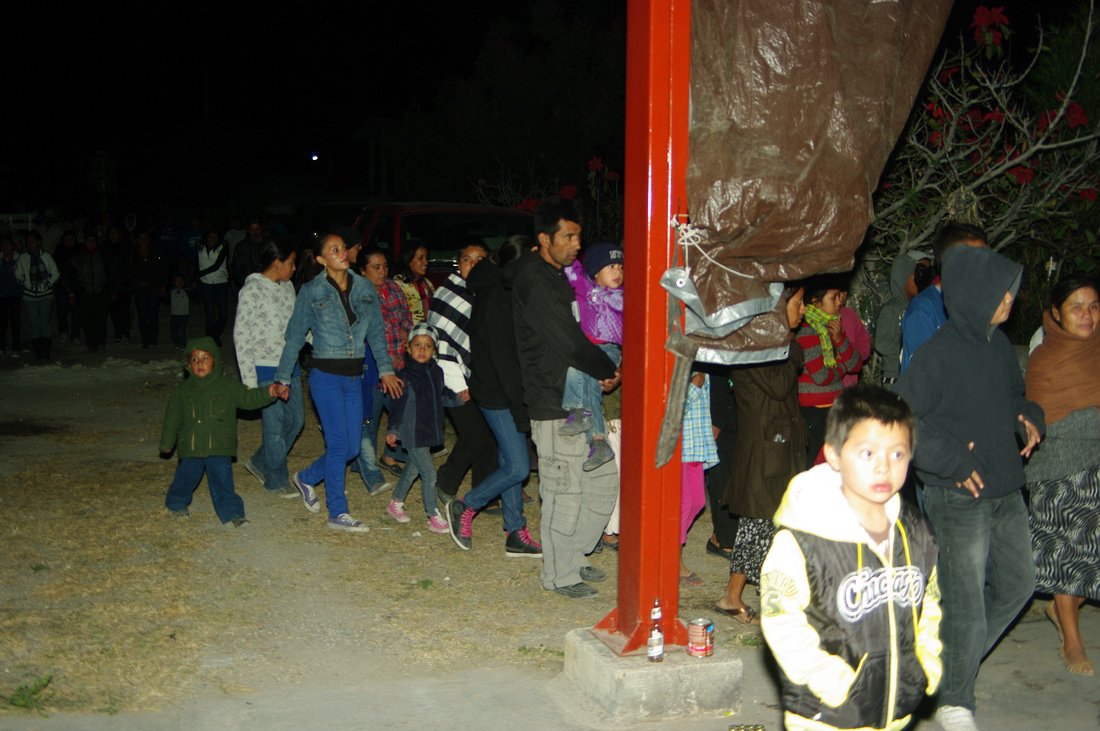

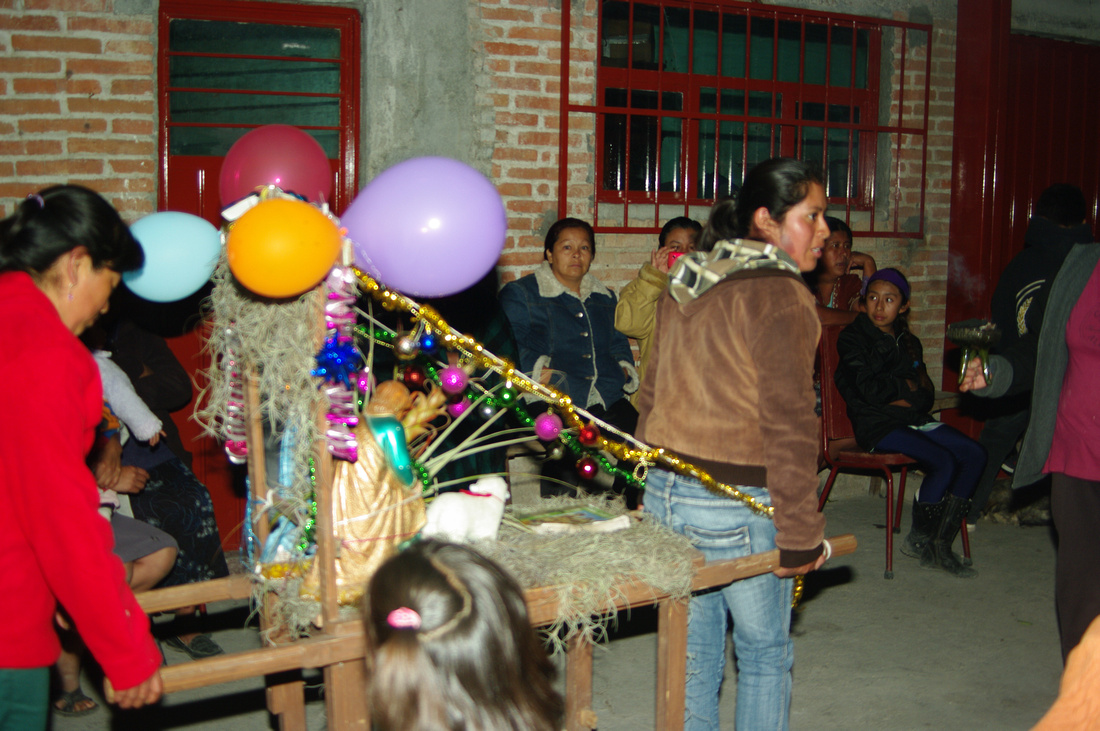

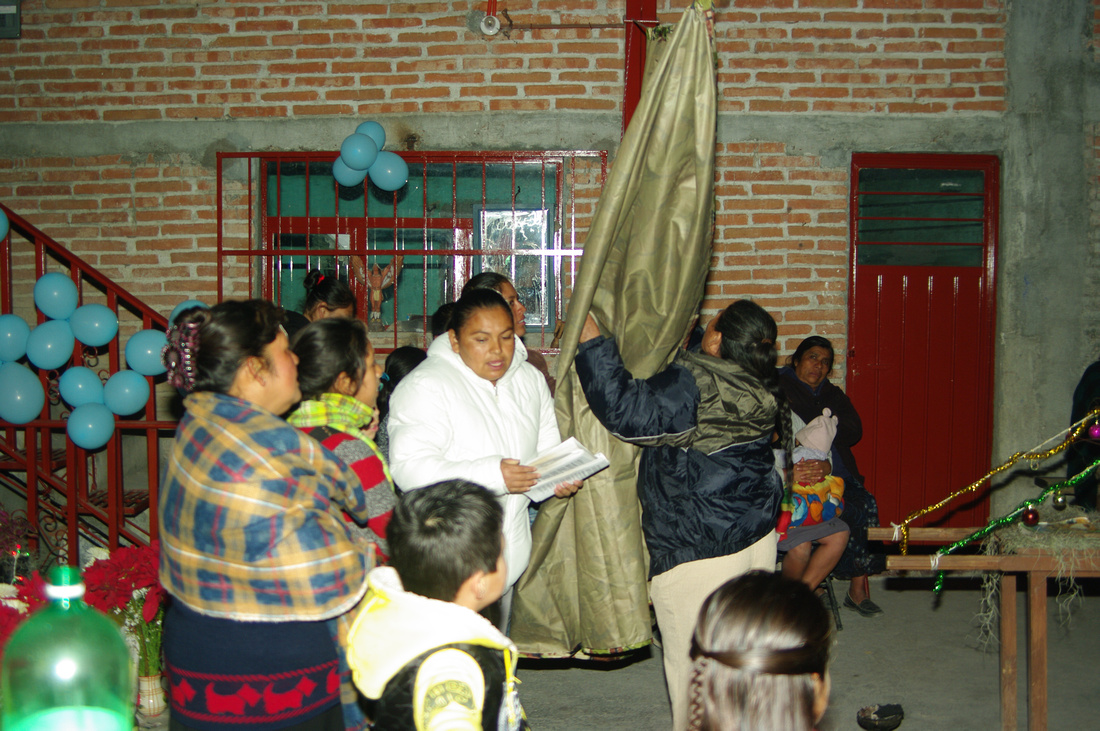

I couldn't believe the young lady in the middle was Pofirio's daughter!
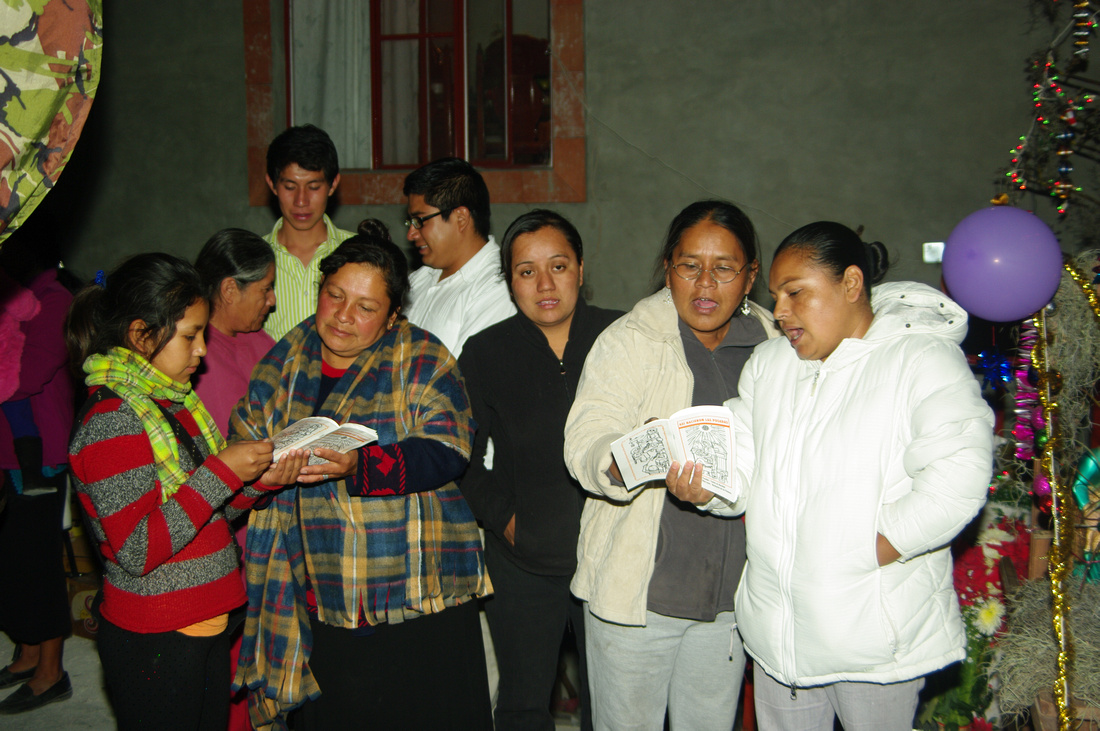

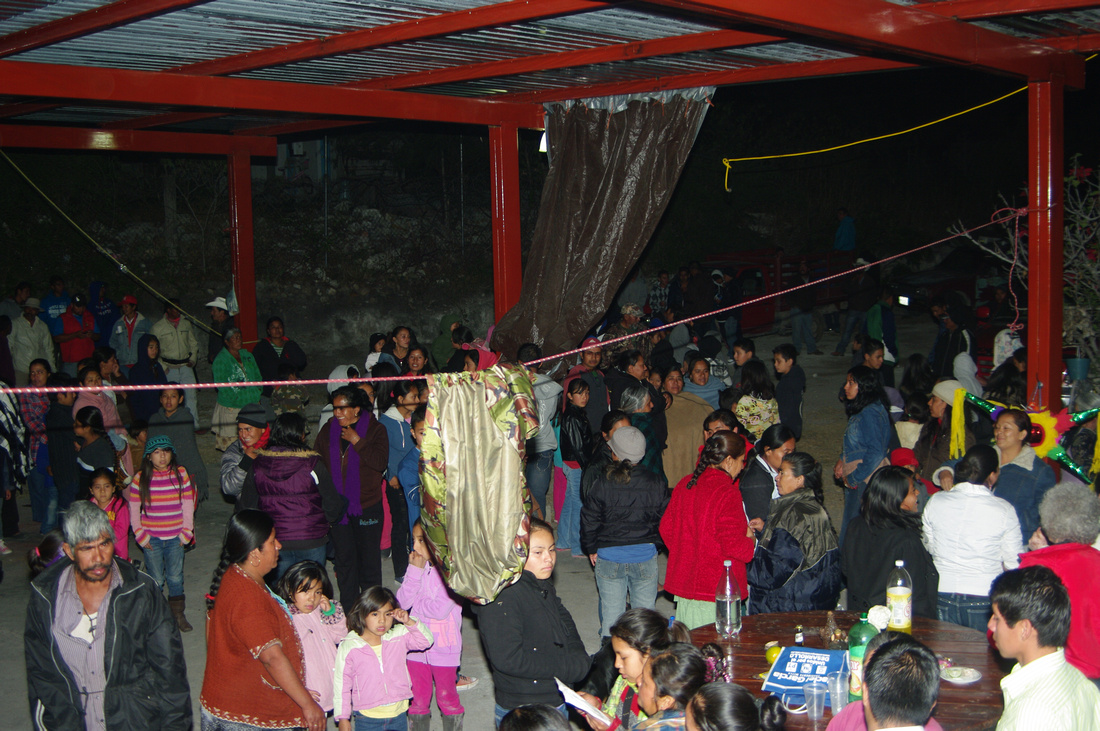

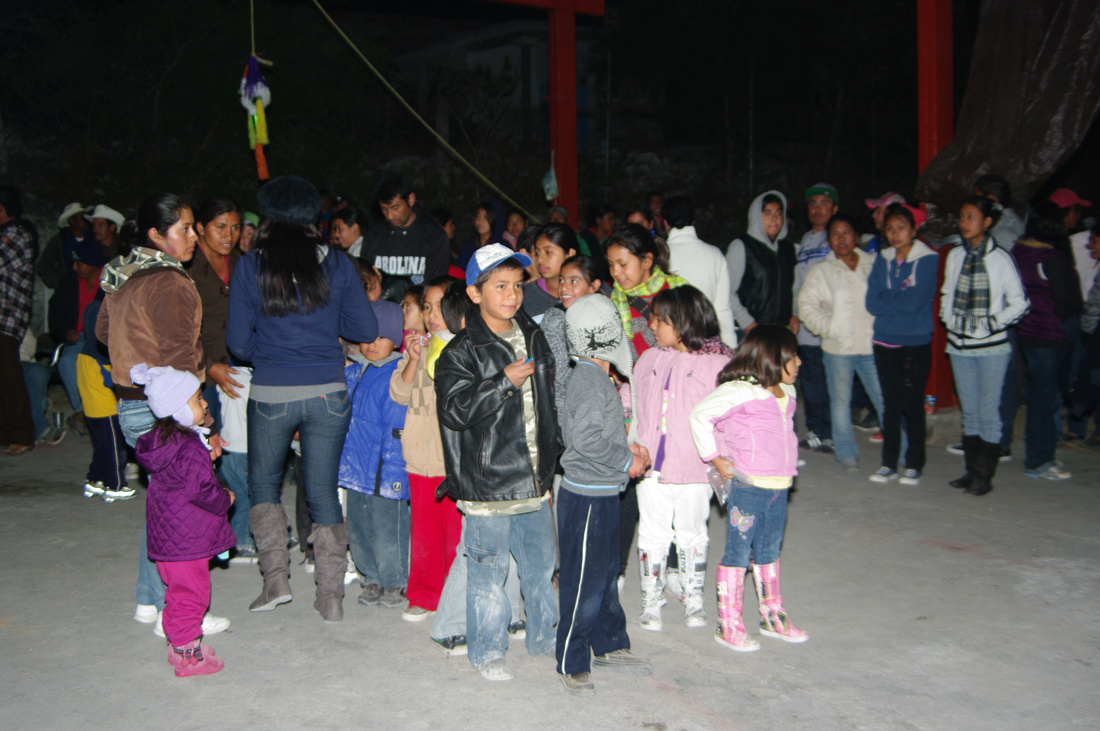

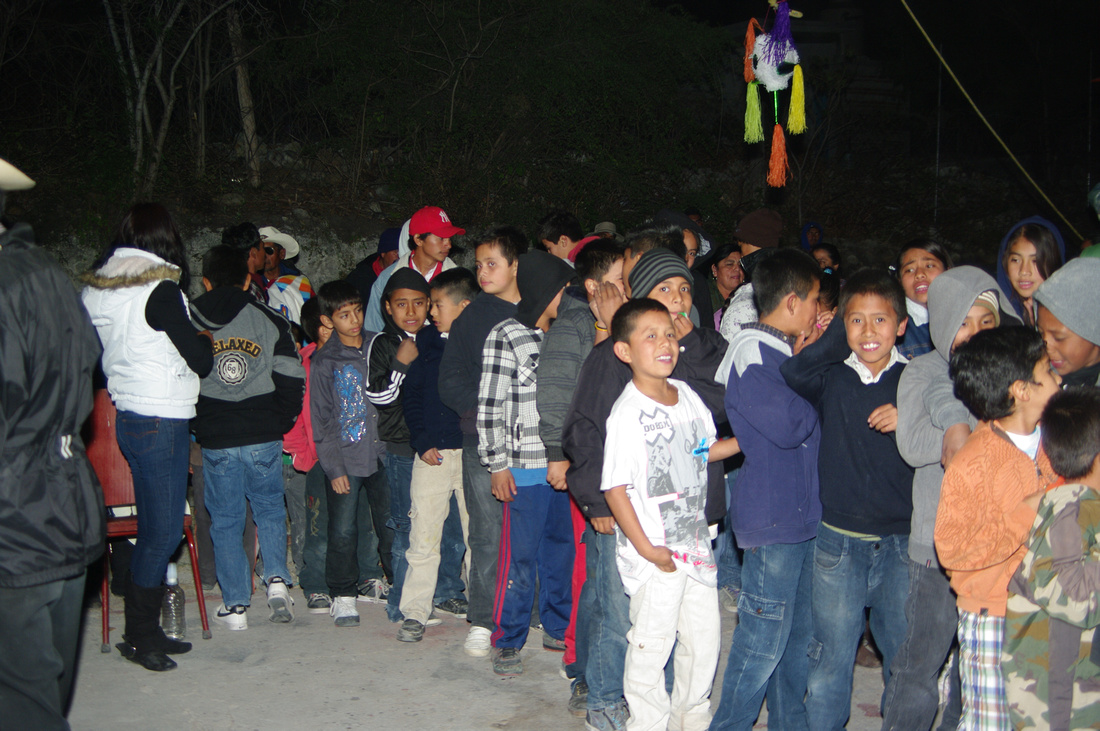

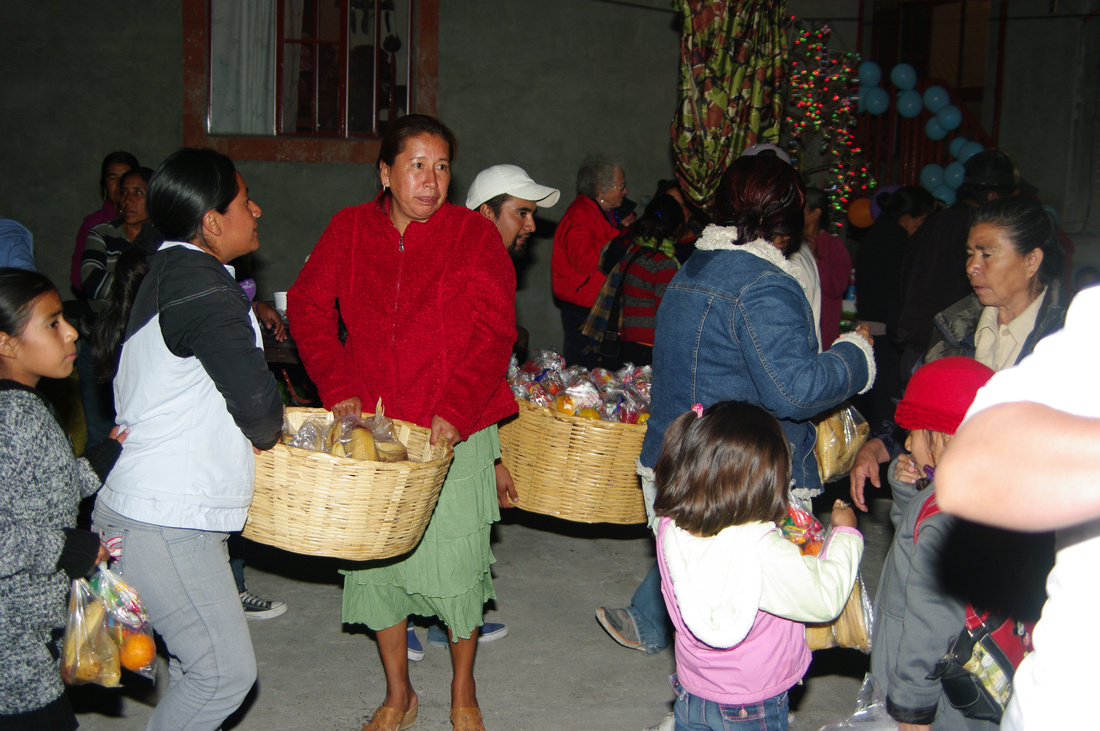

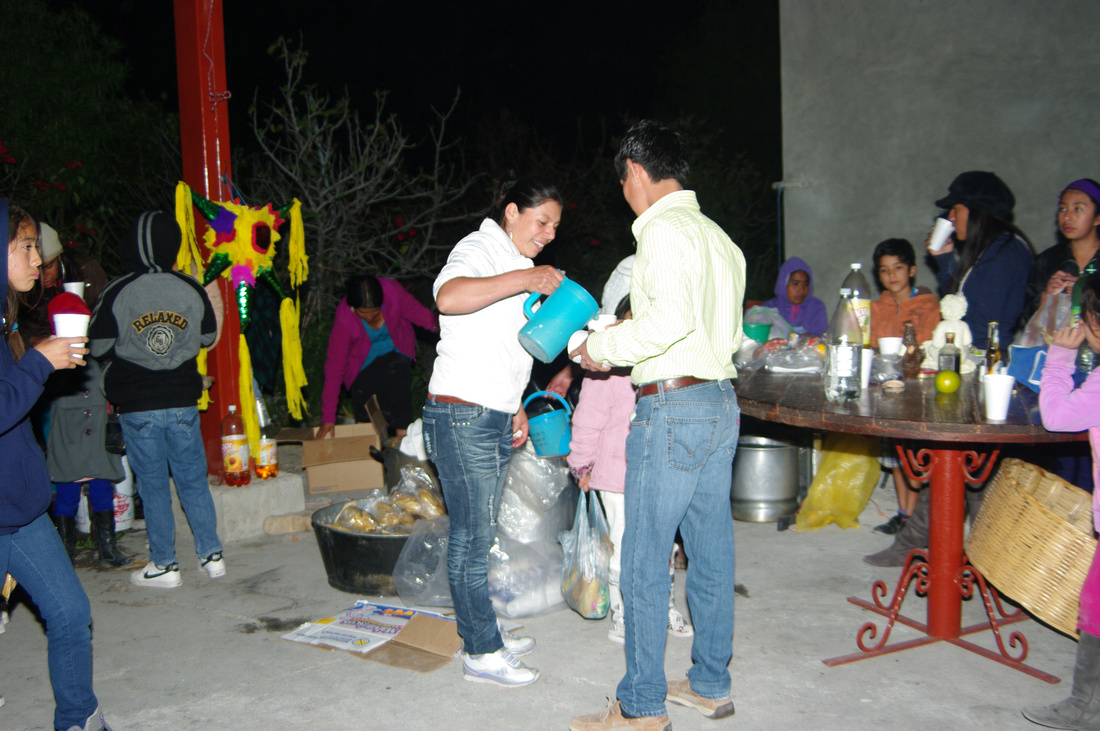

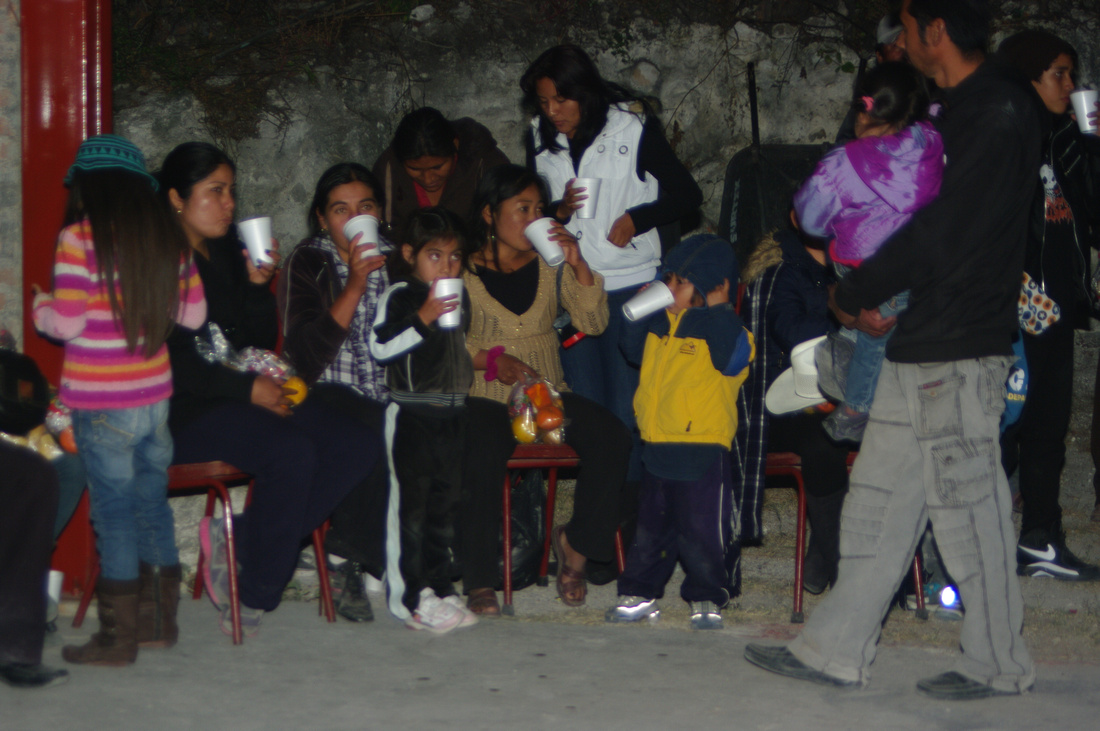

Felipe serving mezcal.
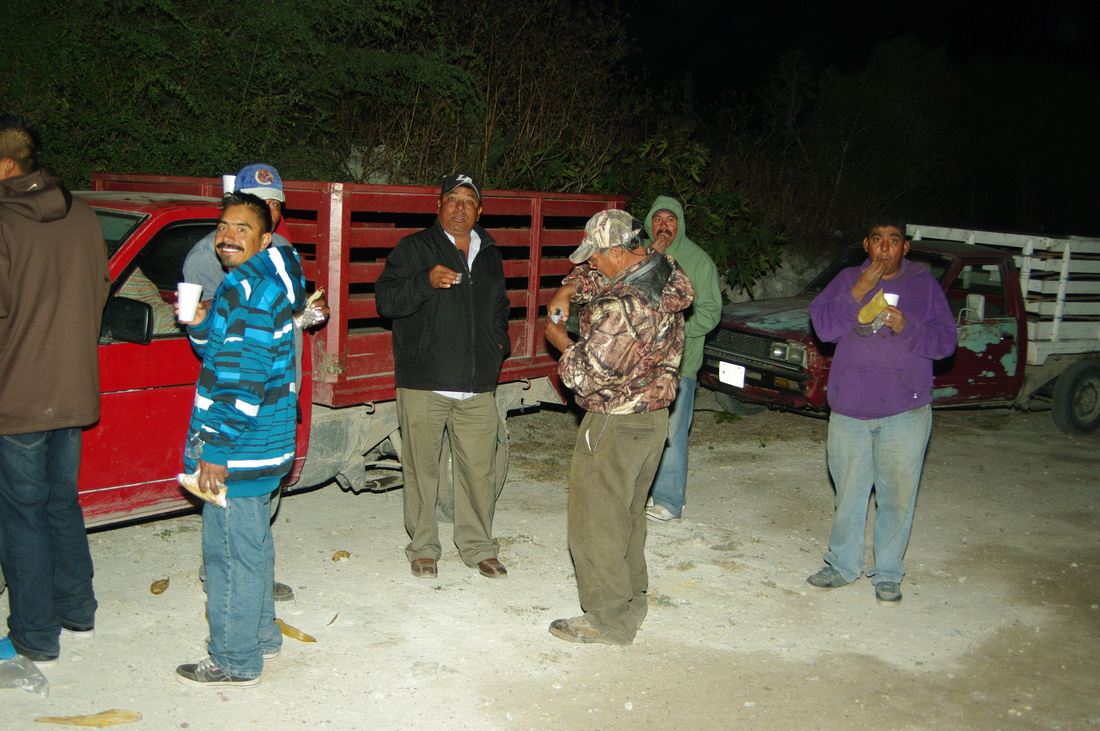

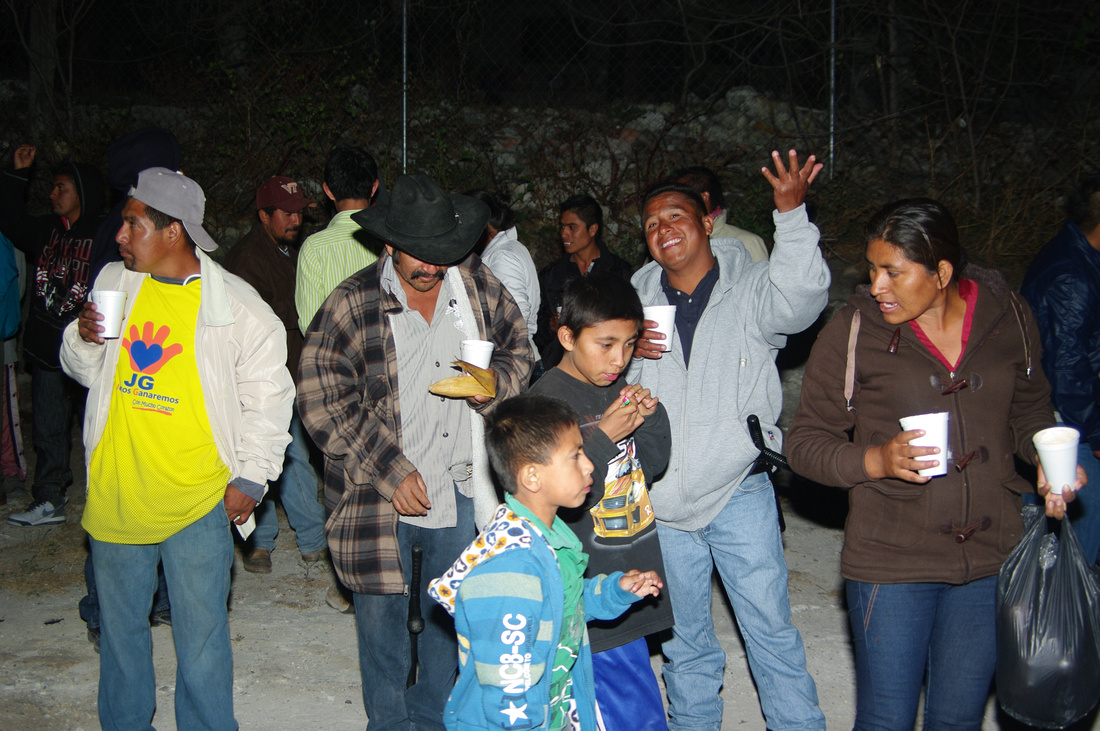

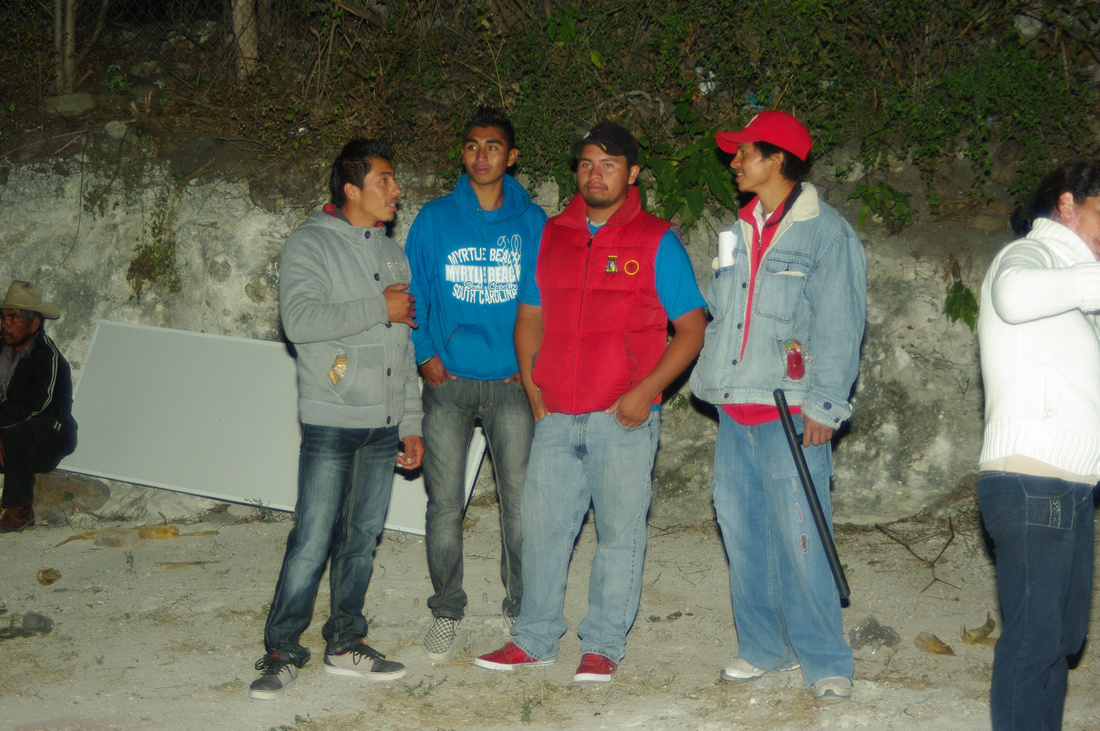

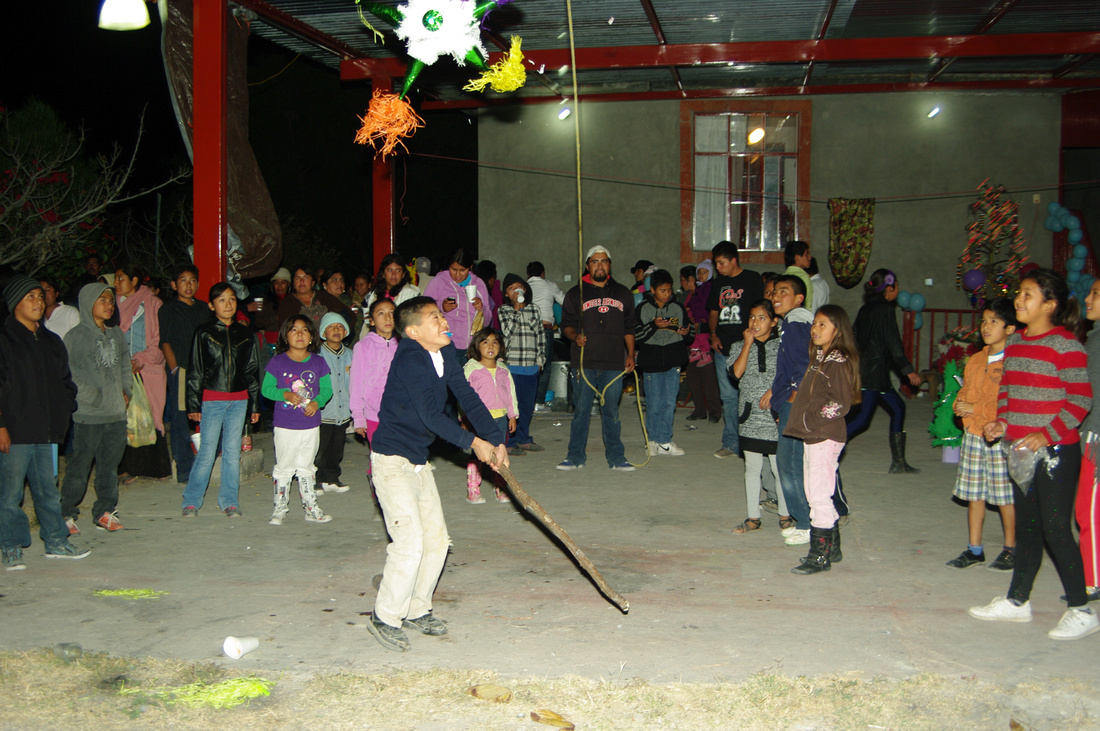

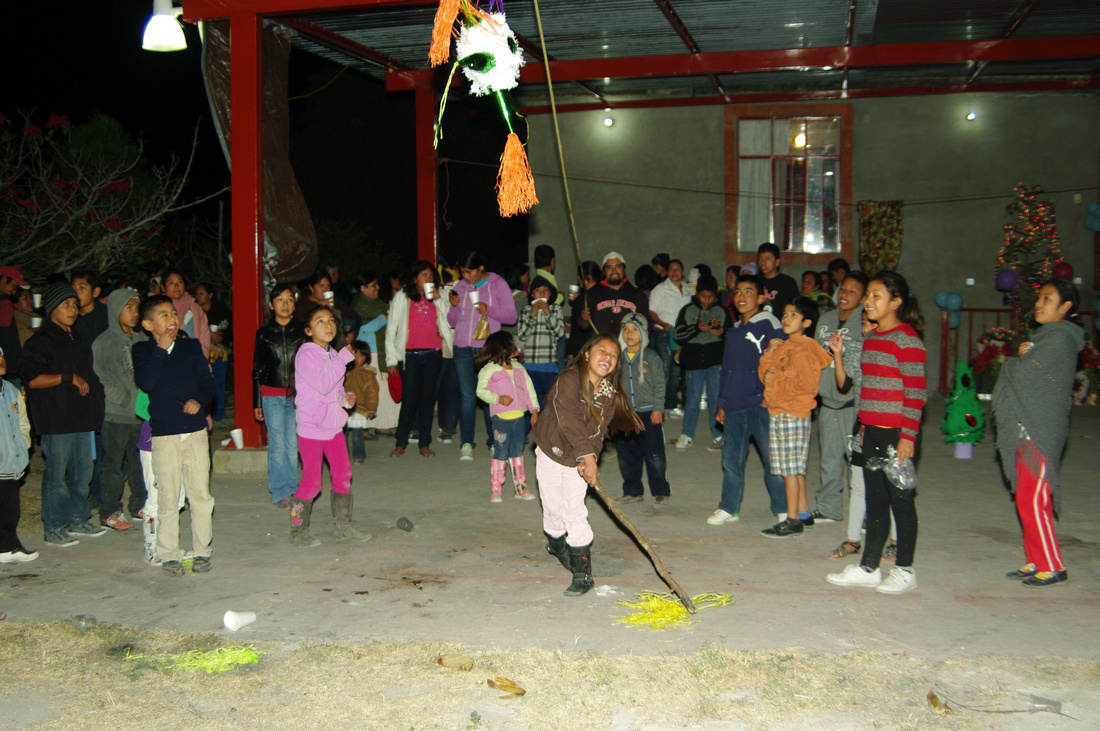

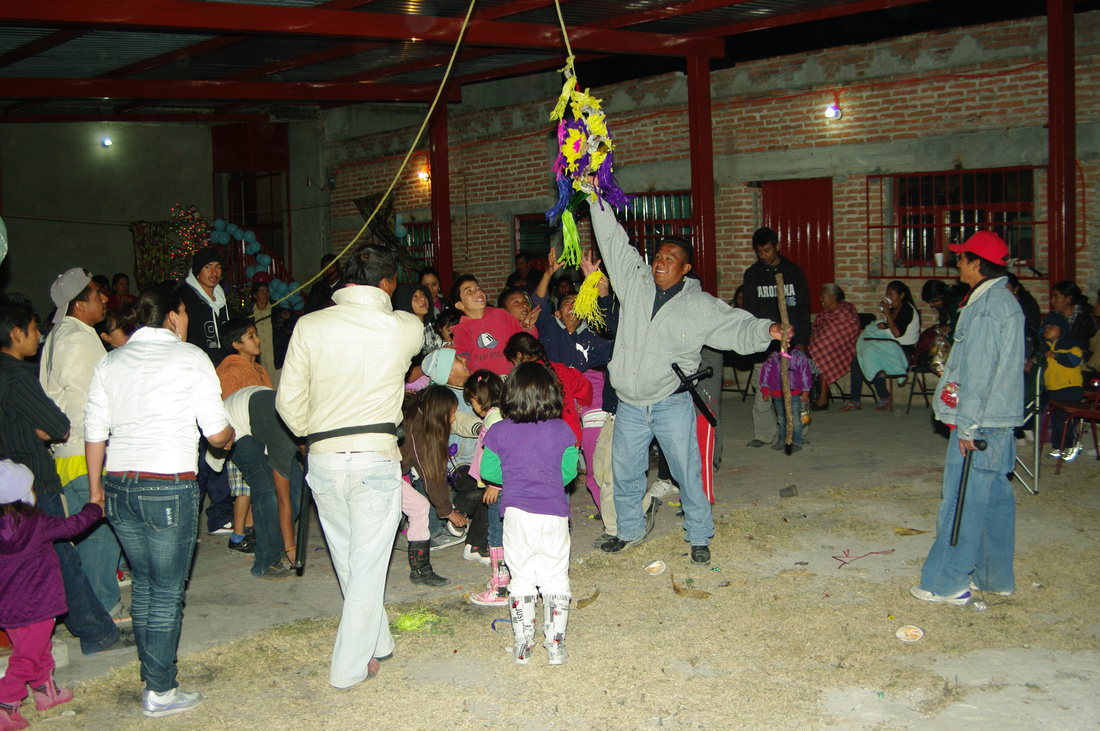

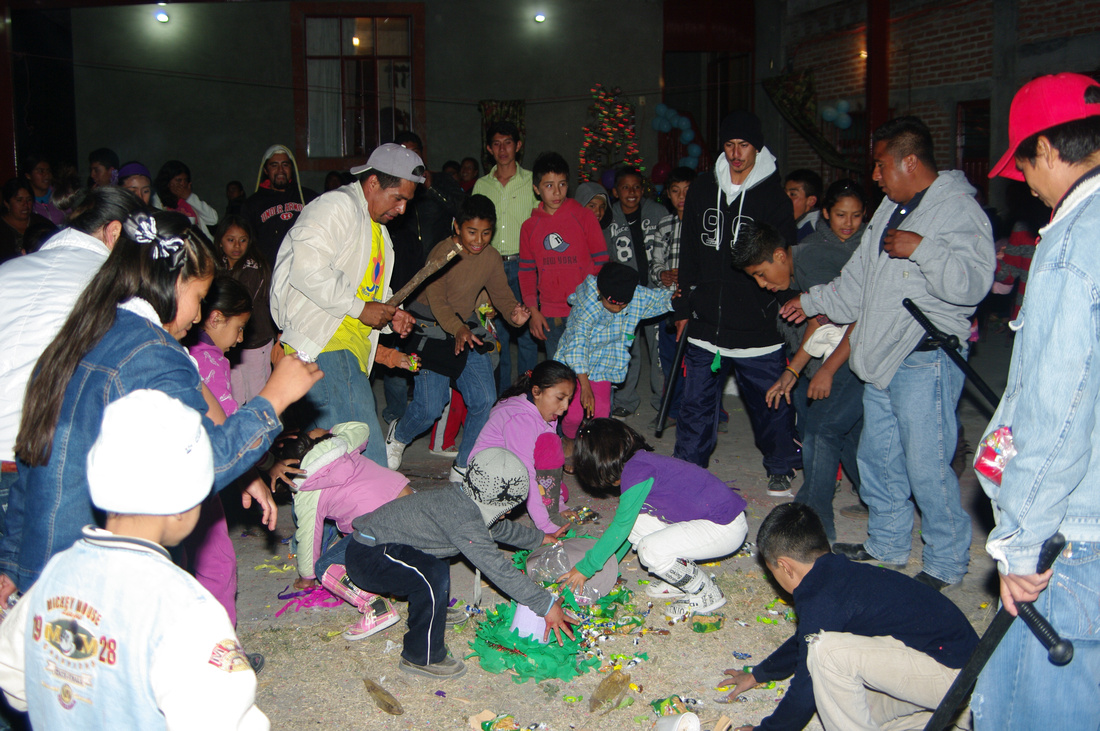

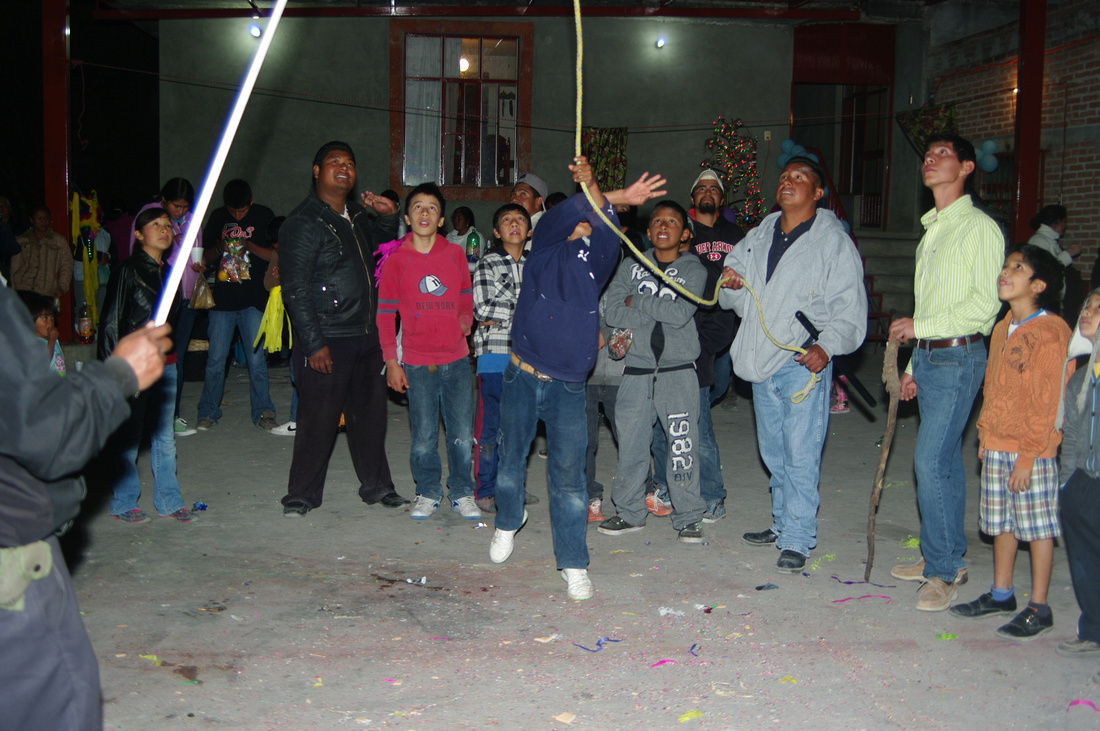

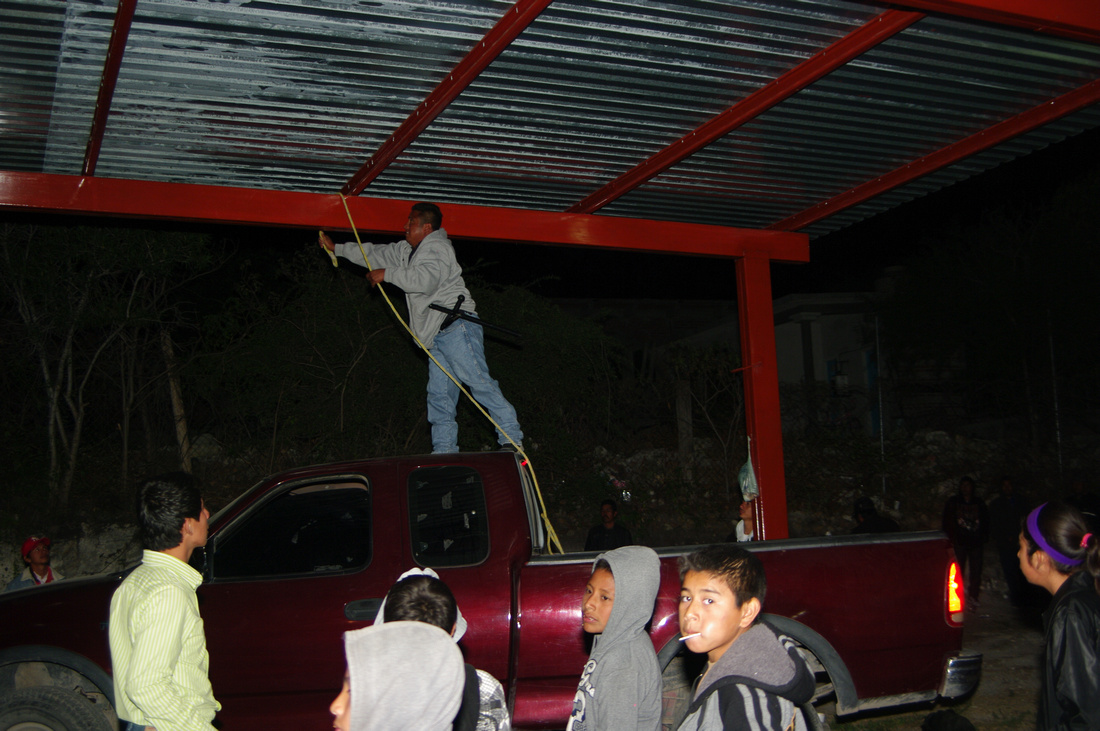

You don't want to get in the way when the kids dive for the fallen candy.
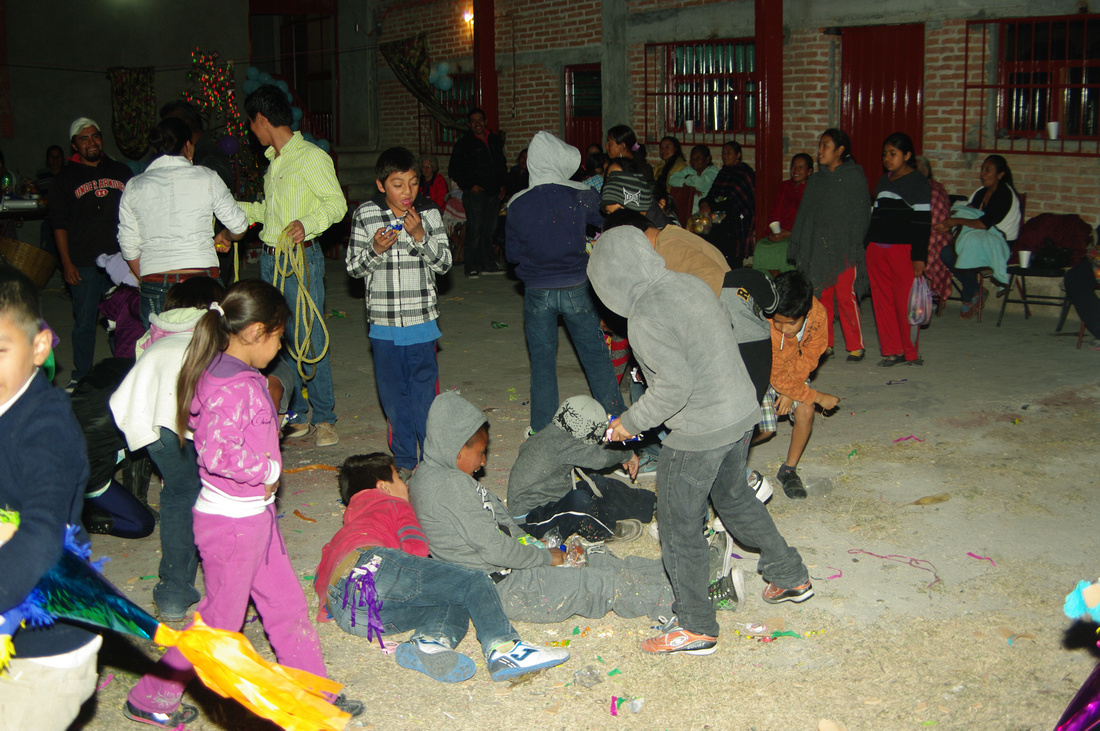

Last week we were invited for dinner to Juan's in Matatlan. He owns a little cabin on the side of a mountain that overlooks the valley where Matatlan is located. The view is spectacular. I'm sorry I didn't photograph it! Anyway we all met at Juan's before driving up to the cabin. Mickey, Yadi, Beth, and I were the first to arrive so we walked over to the palenque where mezcal is made. I love the building. It's made mostly out of adobe and wood. I always feel like i'm walking into the past inside. Everything shows signs of wear and hard use. The boards that make up the walls do not fit tightly together so light filters in and makes beautiful patterns inside. The brutish work it takes to make mezcal is staggering when one sees the process.
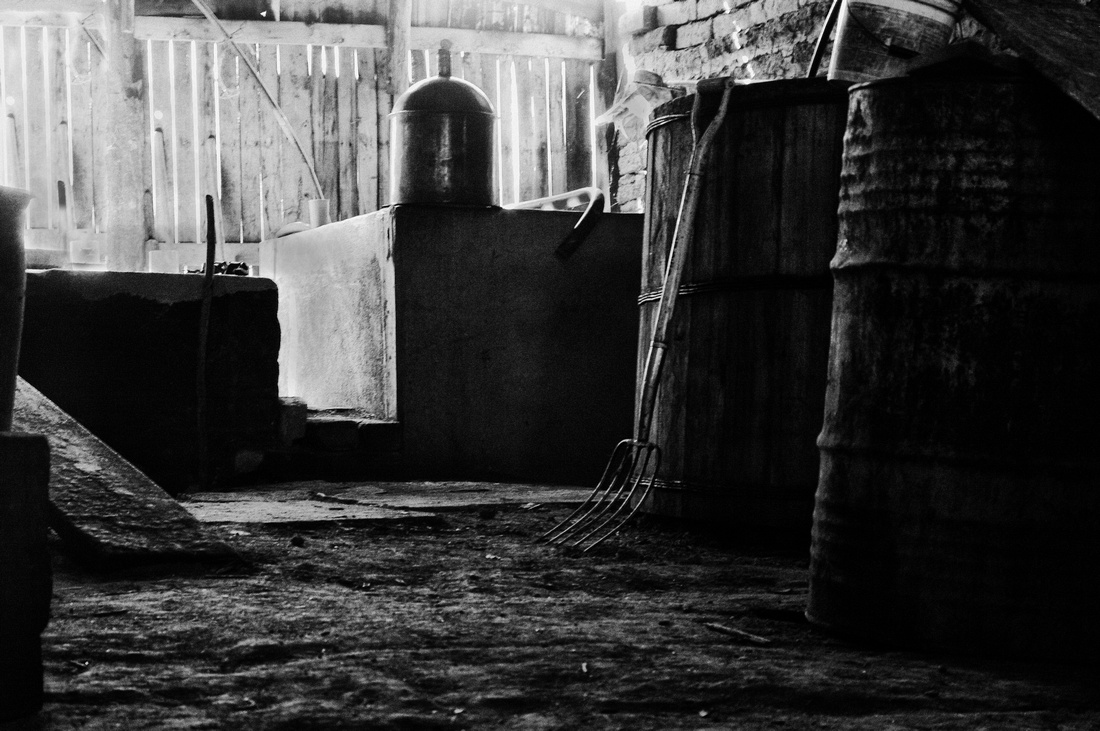

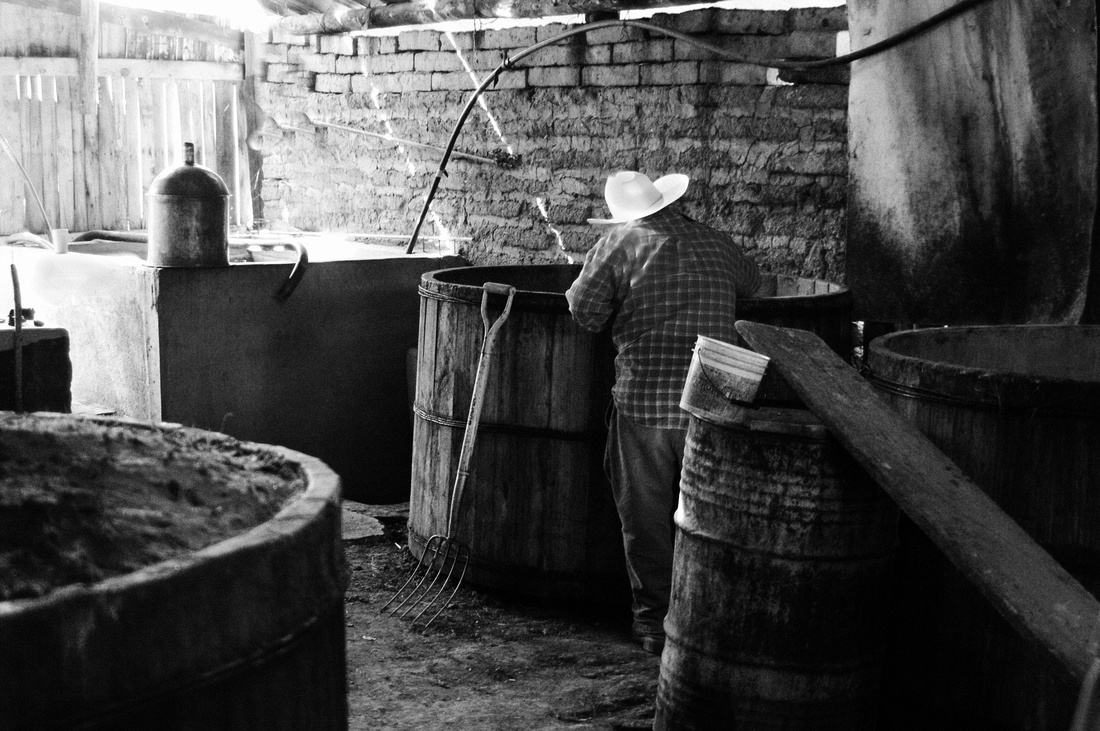

Making mezcal is a long process. Casto and Juan often spend the night waking up to stir the fermenting mezcal or add firewood below the copper hojas that cook the maguey.
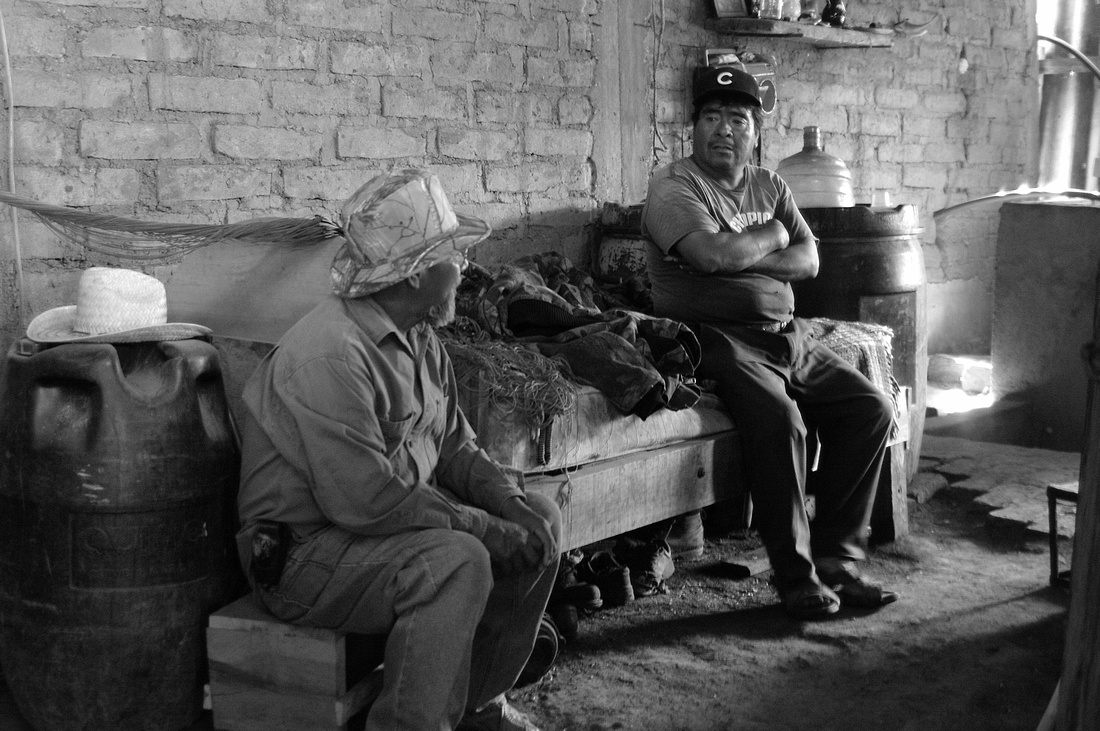

Luis is explaining the process to Beto's son Armando.
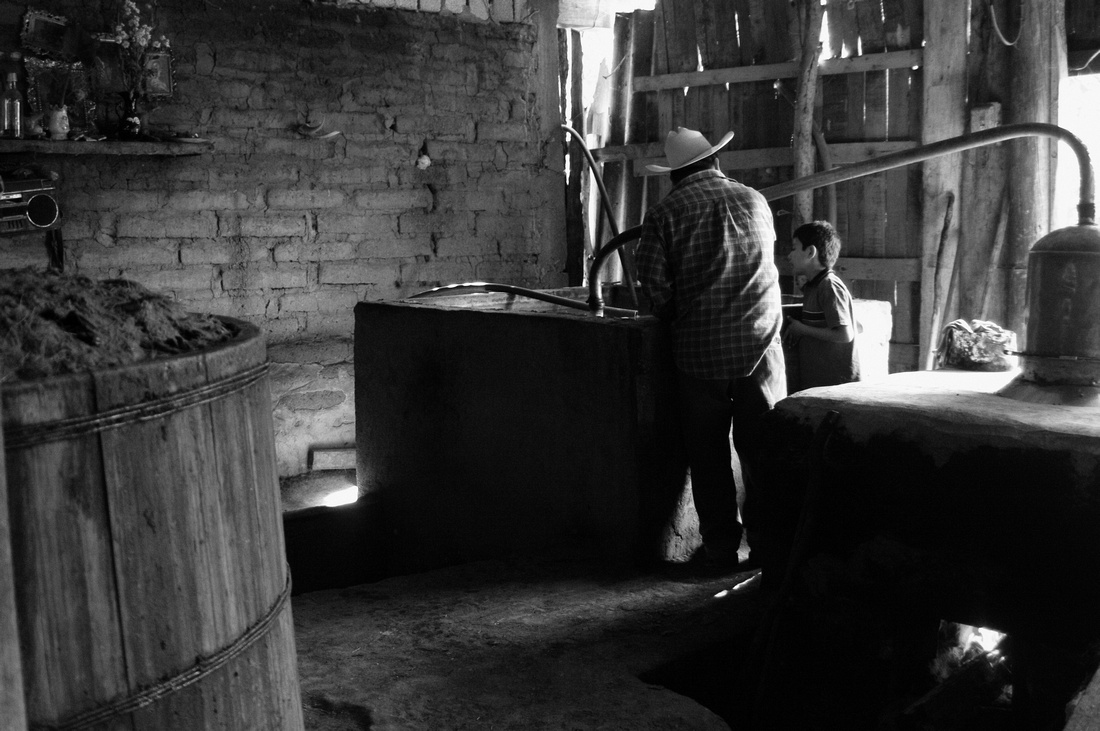

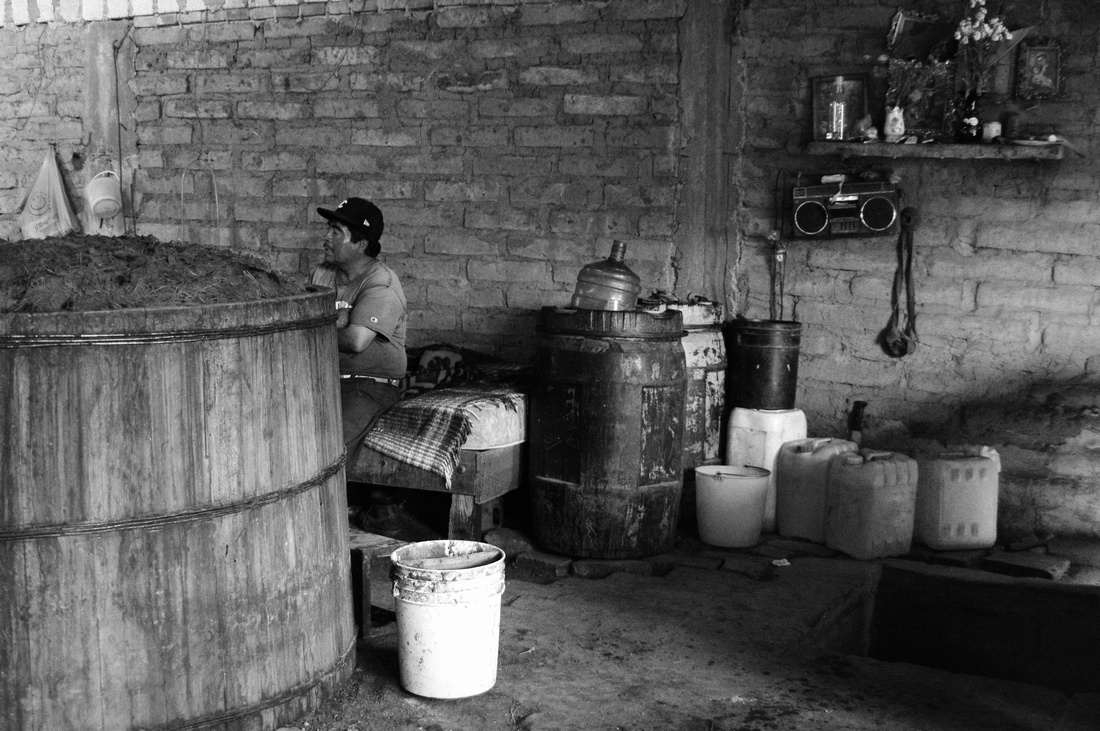

In the background you can see the stone circle where cooked maguey is placed and broken into pieces. A horse pulls the heavy stone around to smash the maguey into a stringy fibres matter. At this point the maguey is very sweet with a maple flavor leaning towards molasses. When the maguey is thoroughly smashed it's put into the wooden tubs. Hot water is added to expedite the fermenting process. You can actually see the bubbles coming up to the surface. After fermentation the maguey is pitchforked into copper pots where it is cooked. Through condensation the mezcal travels through copper tubes and into a waiting container. The first mezcal out of the hoja is deadly often reaching ninety nine percent. It's usually recycled to drop the percentage but there are men who drink it. I put some in a spoon once and lit it. I got tired of waiting for it to burn out and dumped it.
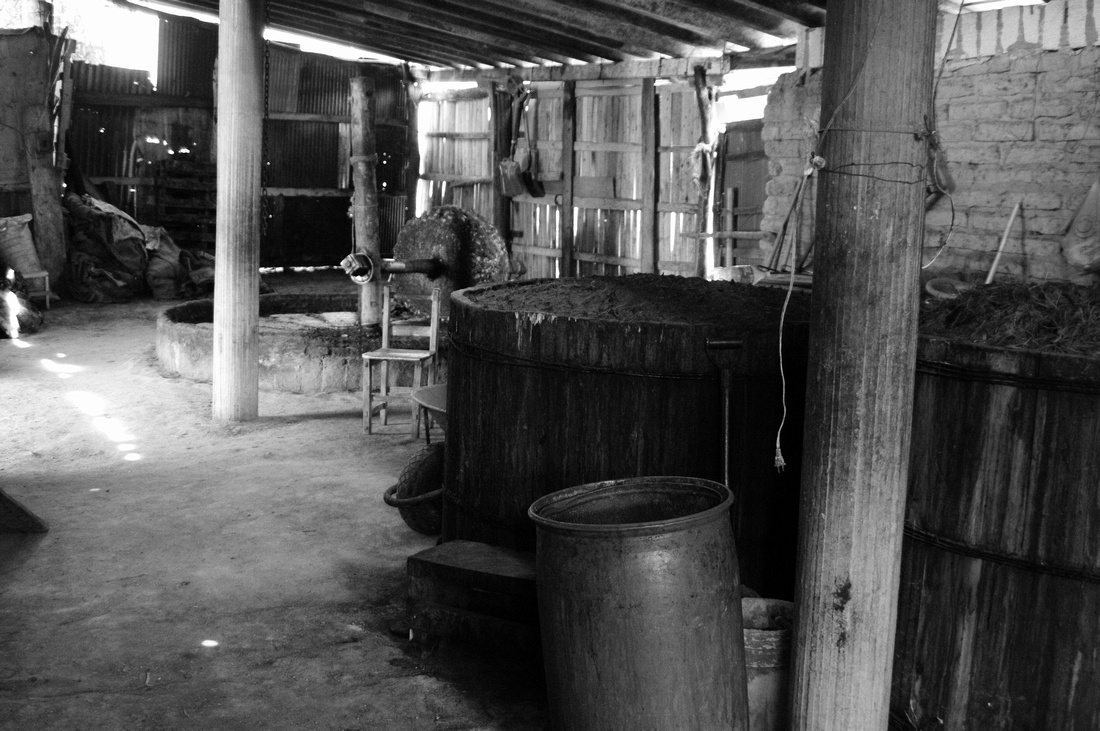

Juan's cabin.
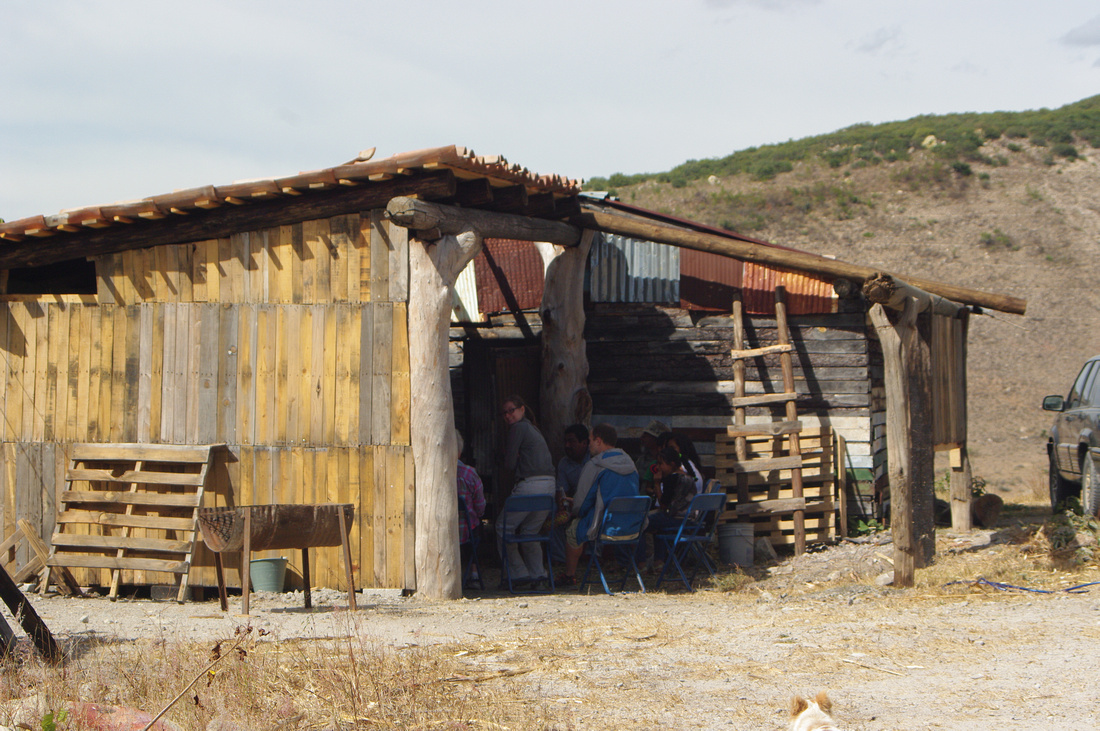

Beth with Juan's grandson.
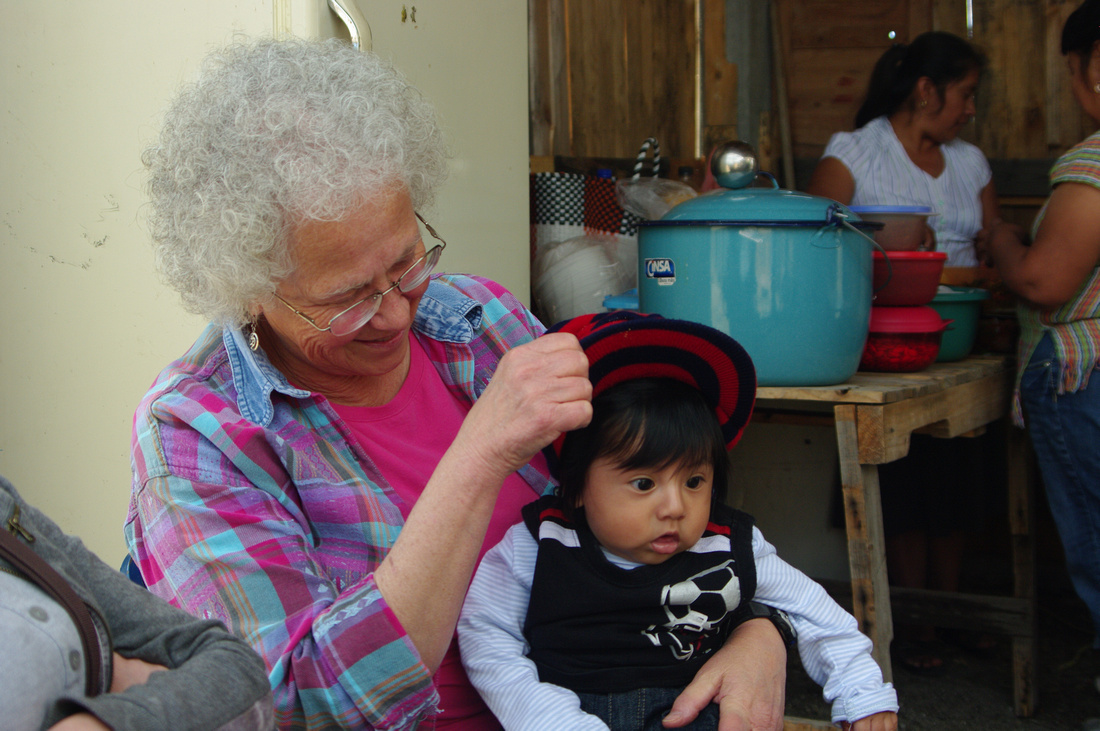

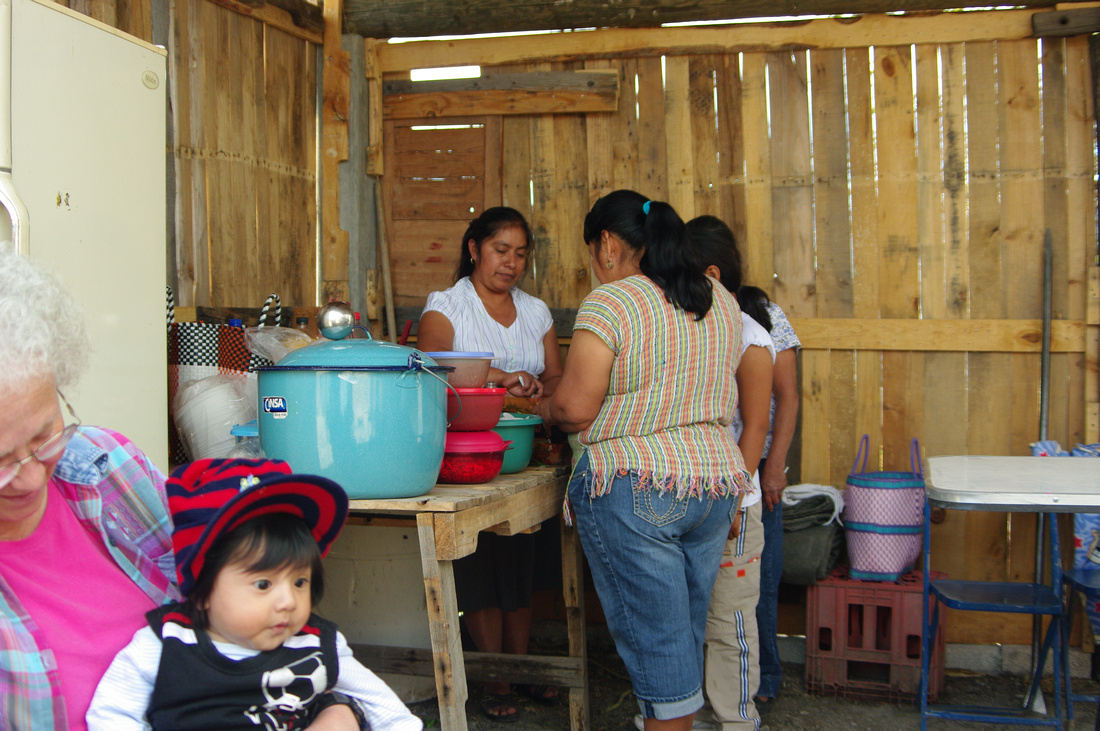

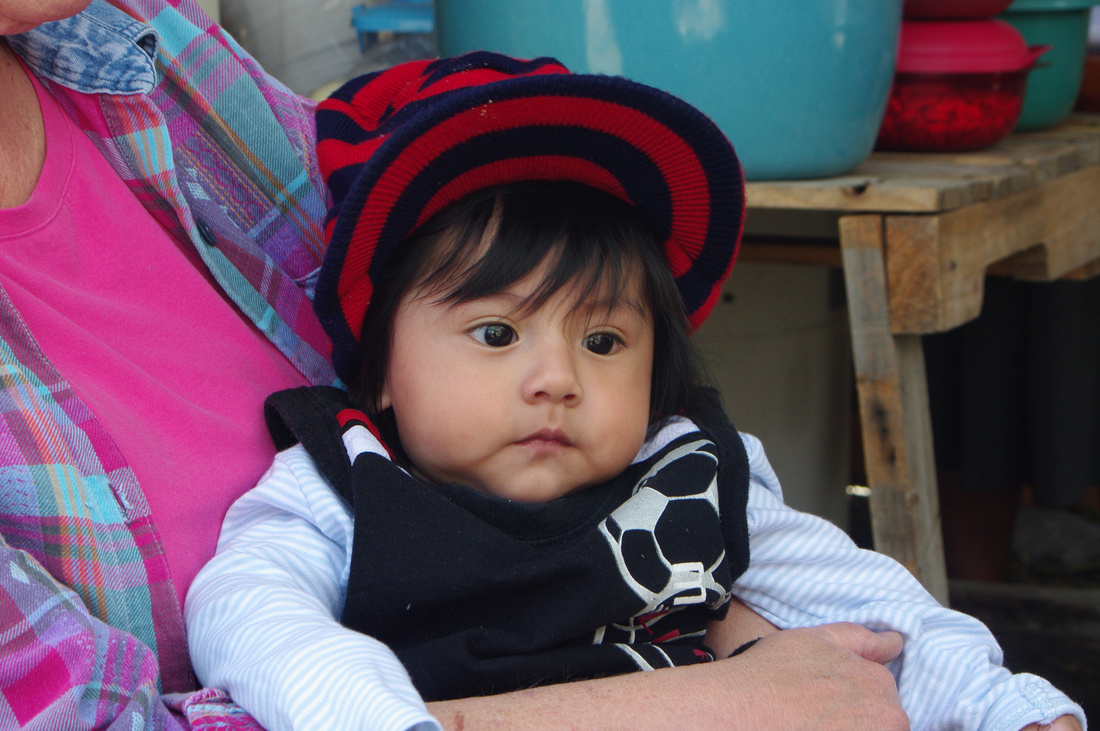

Yadi learning how to make molotes.
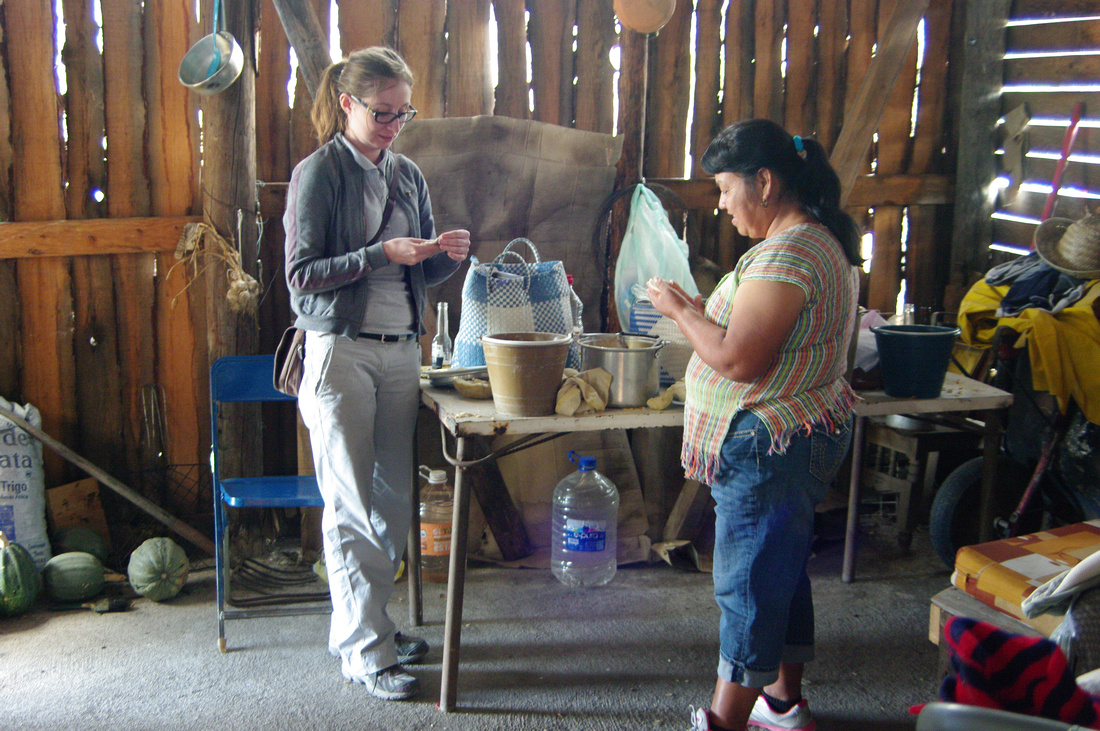

Beto's kids. They are fun to be around.
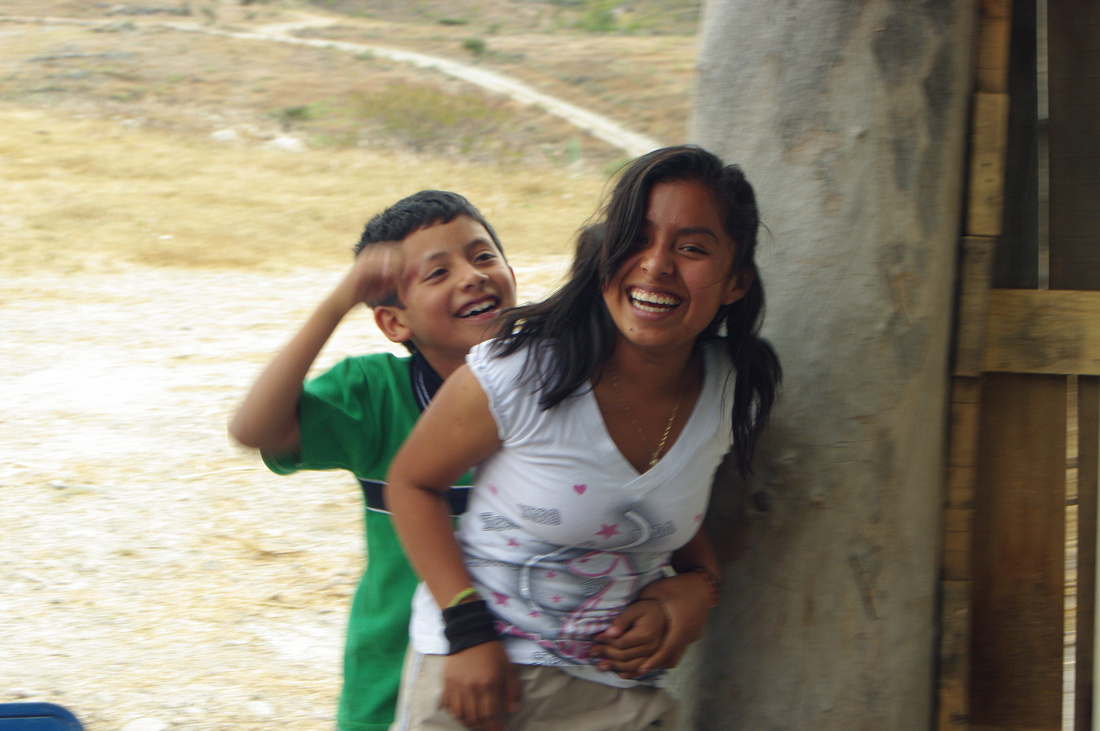

Poor Mickey had a tooth ace. But he more than paid for his trip by visiting the dentist several days. Some vacation!!!
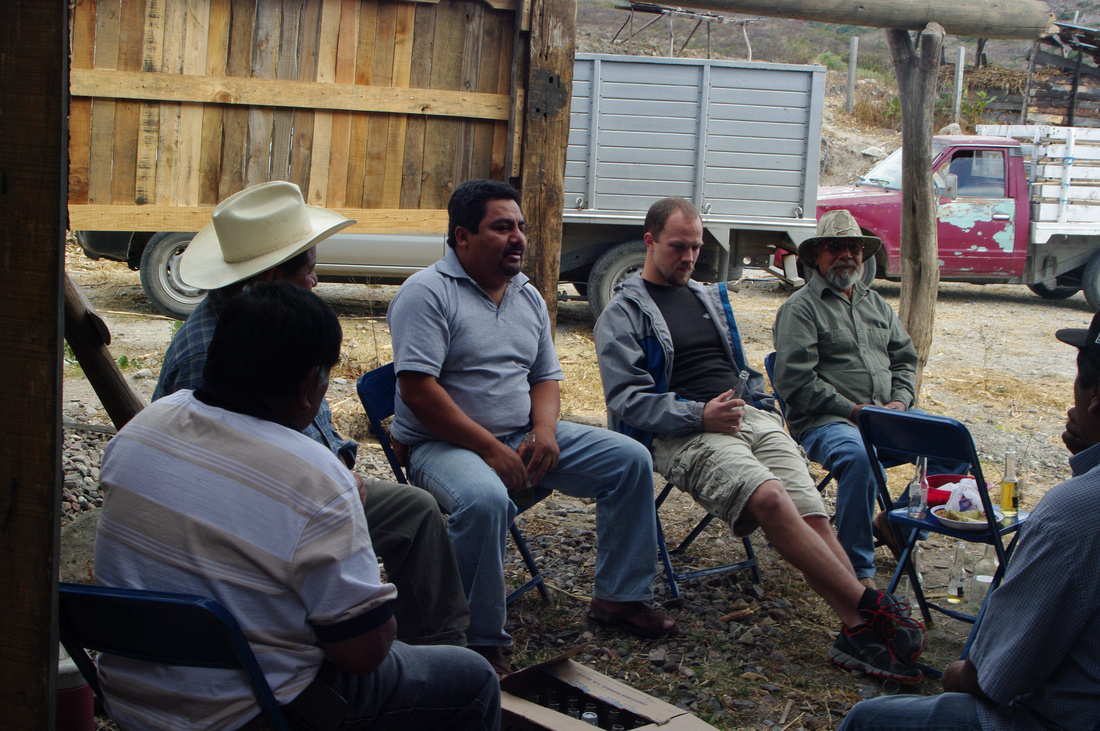

The meal consisted of tesajo, rabbit, Beth's chile, a salad with nopales, large hand made tortillas, and molotes. That's Yadi's hand reaching for hot sauce. It ended up being quite a feast.
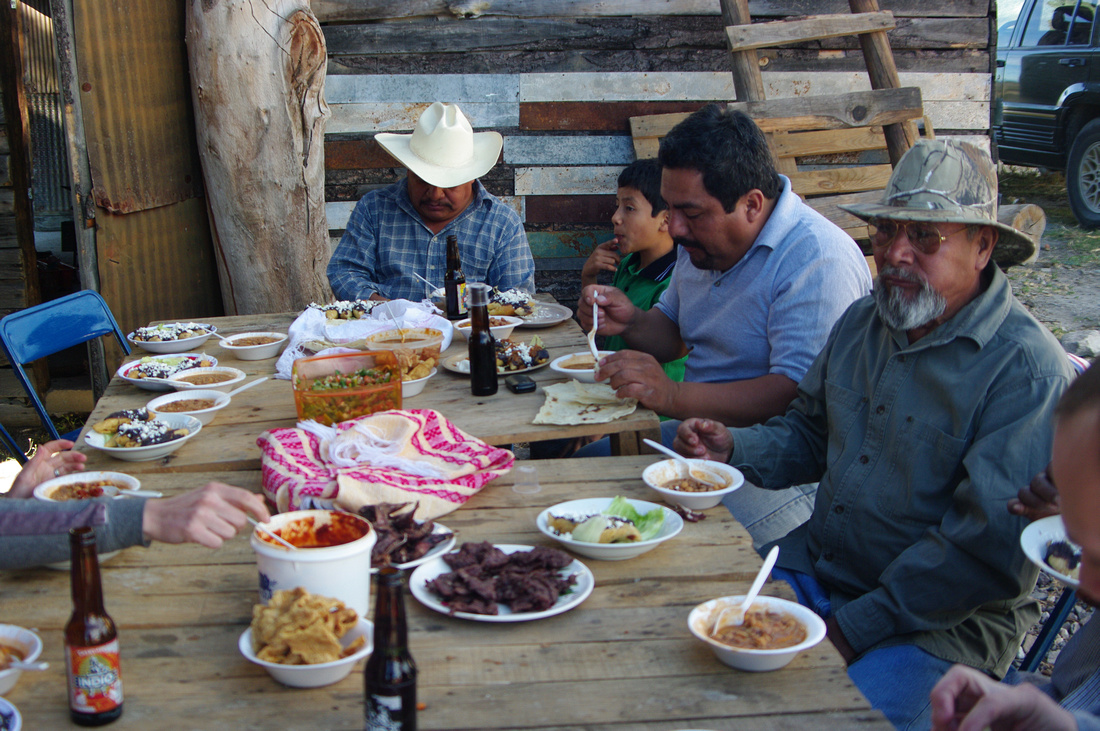

La Feria (The Fair)
Saturday Beth and I went to an agricultural fair down the road in Yagul. The fair gives farmers a chance to display samples of their crops and submit their best for judging. There is also information on new techniques for farming more efficiently. Vendors offer their goods, some concerned with farming and others just taking advantage of the large concentration of people.
Last year the fair was at Union Zapata. It’s a yearly event and must rotate between communities.
Corn is the major crop displayed followed by beans and squash. Chilies are also displayed.
A few artists show their work, some of which are quite good. I was especially impressed with carving done on the gourds of squash-very intricate detail.
The farmers sit proudly behind their displays eager to swap stories and describe what they have. I was reminded of car shows in the US.
The trend here in farming seems to be shifting towards green houses. Crops can be grown year round and more importantly less water is consumed. A bit disturbing is the practice of mixing fertilizer with the water. I’m no chemist but it seems that whatever they are putting in the water is being introduced into the plant then the product. I don’t believe there is much control here so it’s buyer beware. Beth and I typically stick with products grown outside. You can tell the difference. Products grown inside are perfect looking and very tempting.
Until the fair last year I’d never realized how many varieties of corn there are. Some of them are beautiful in color. Beth and I have purchased tortillas made from more colorful corn and the flavor is different. Some have a stronger richer flavor.
Our friend Casto and his family sold pulque and tepache. Pulque is juice extracted from the maguey plant and tepache is made from the flesh and rind of pineapple. Pulque, cinnamon, and brown sugar are added. Pulque, drank in quantity is a great natural laxative. It’s best to drink fresh so I doubt that it’s an exported product. It changes flavor daily as it continues to ferment. Some disreputable people water their pulque down.
One display that caught my eye was a hand crank water pump. A pvc pipe is inserted into the well. The water is brought up by rubber pieces inside the pipe. It works really well and is good to ninety feet. It’s perfect for those without electricity.
There were a couple of booths that provided children with activities.


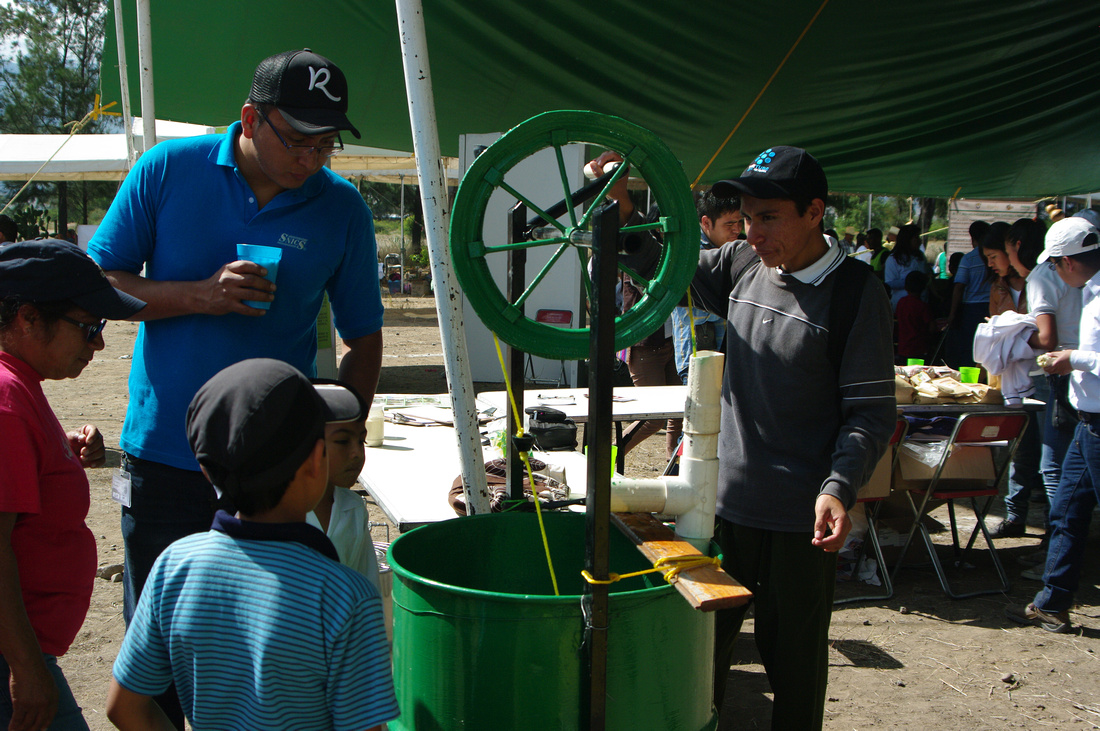

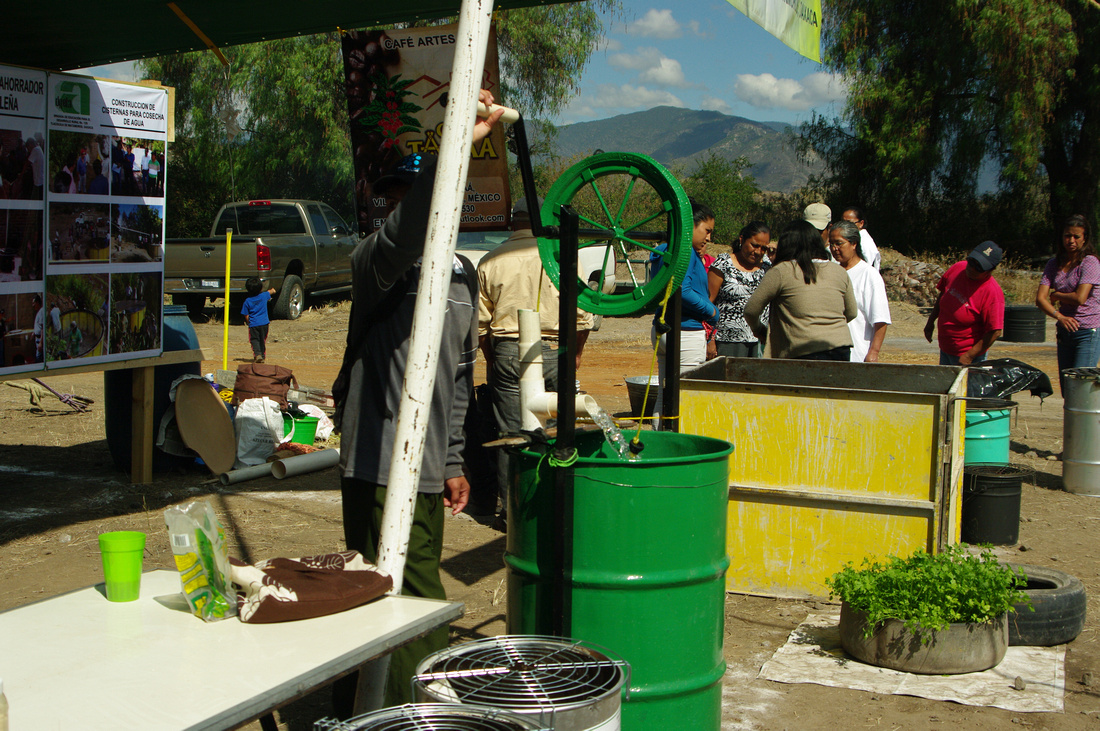

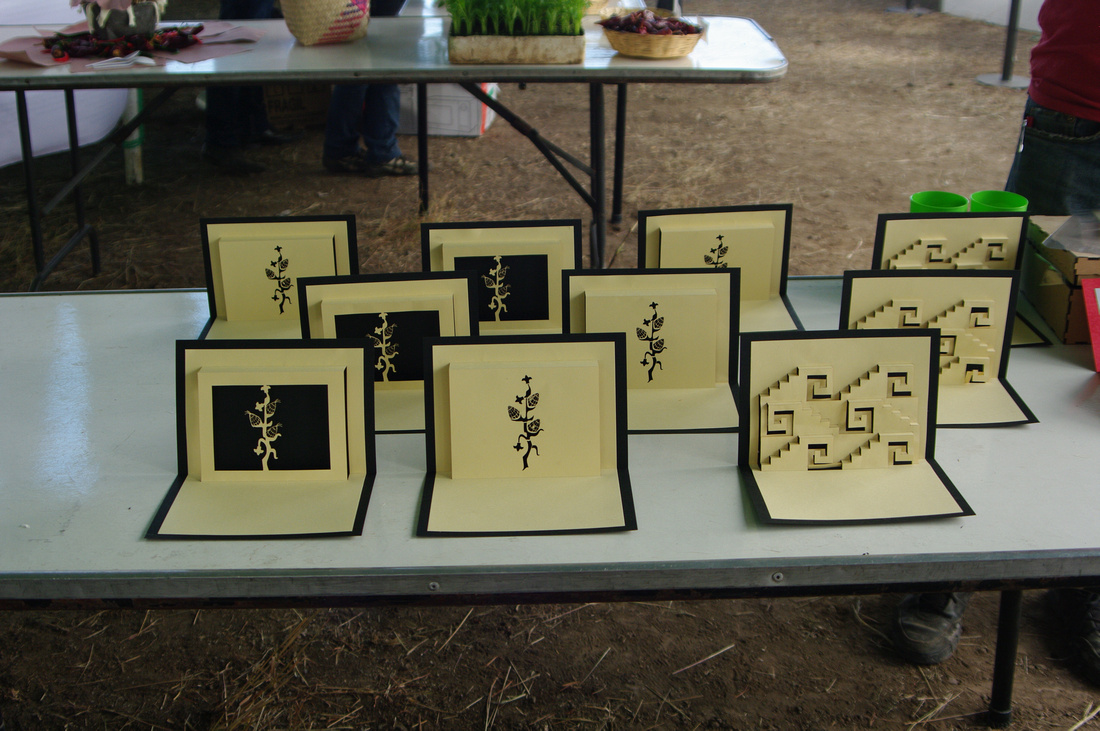

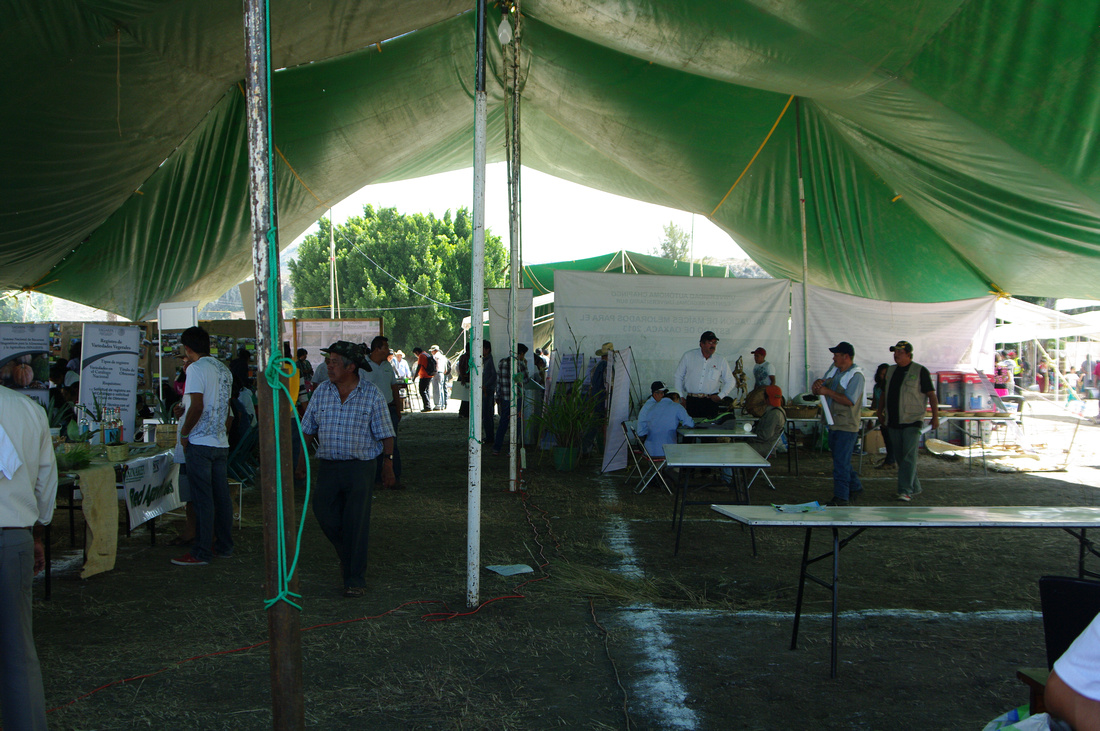

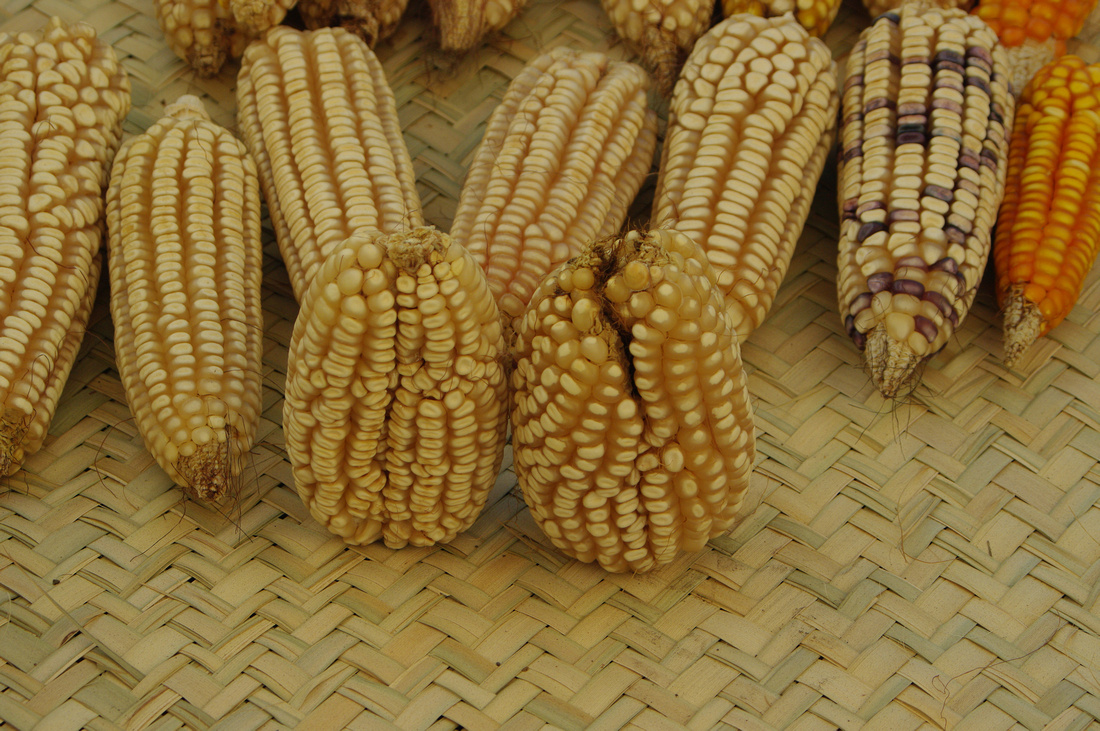

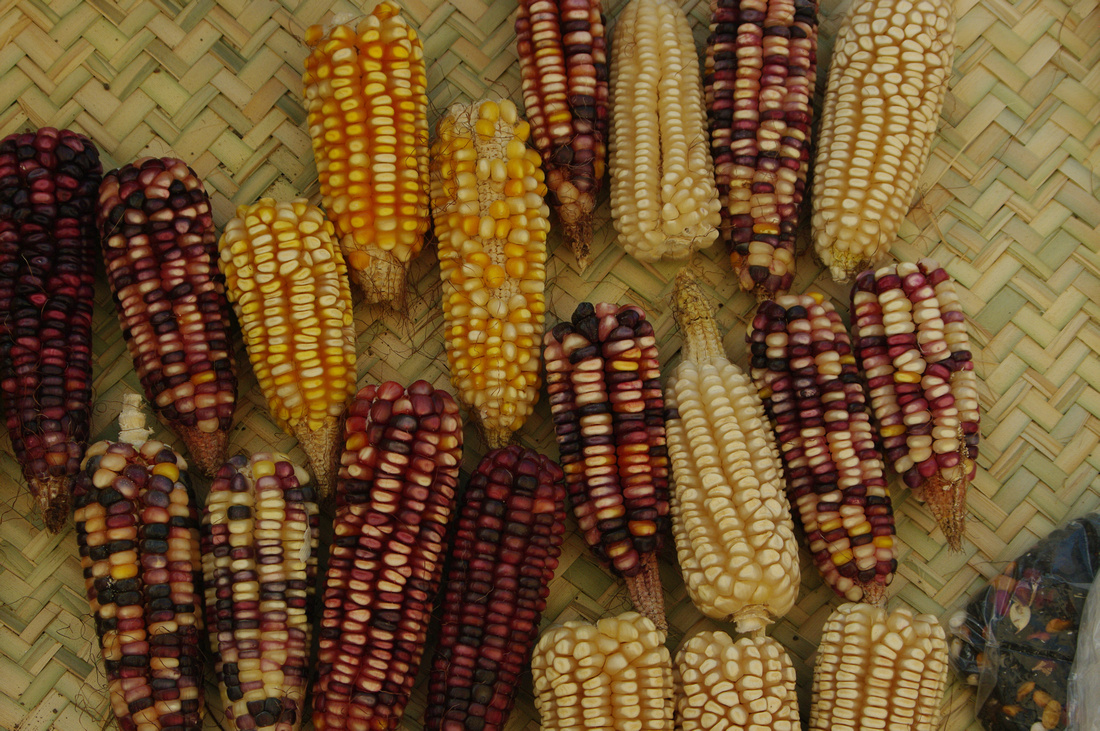

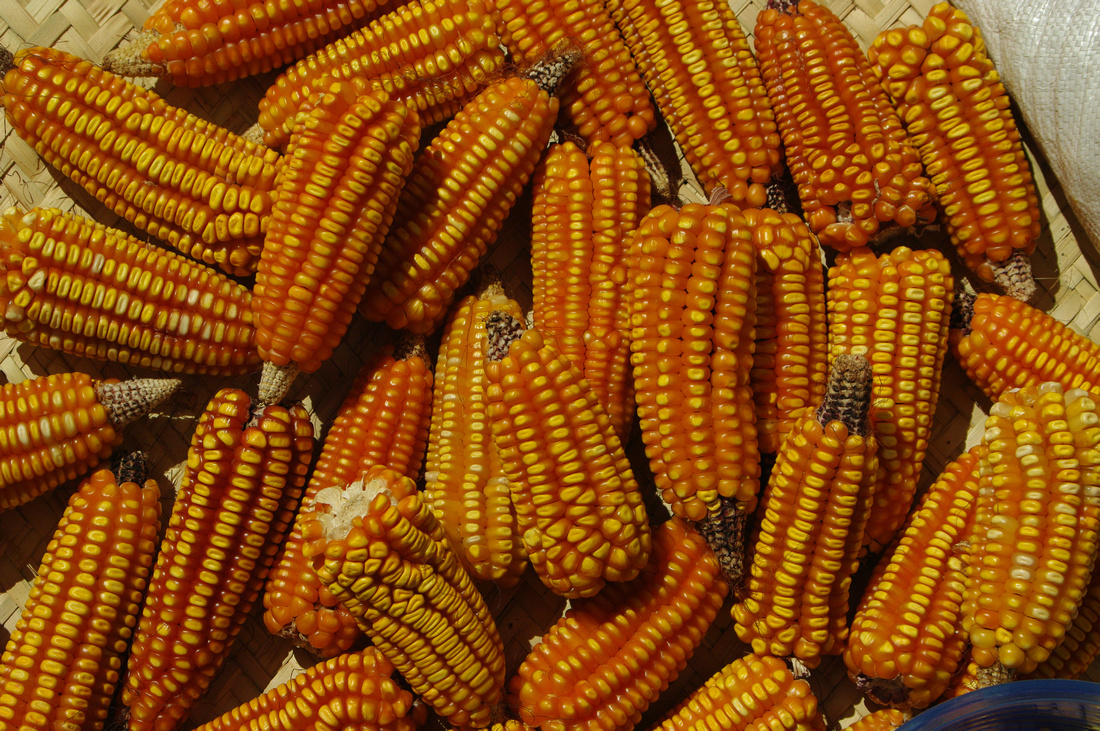



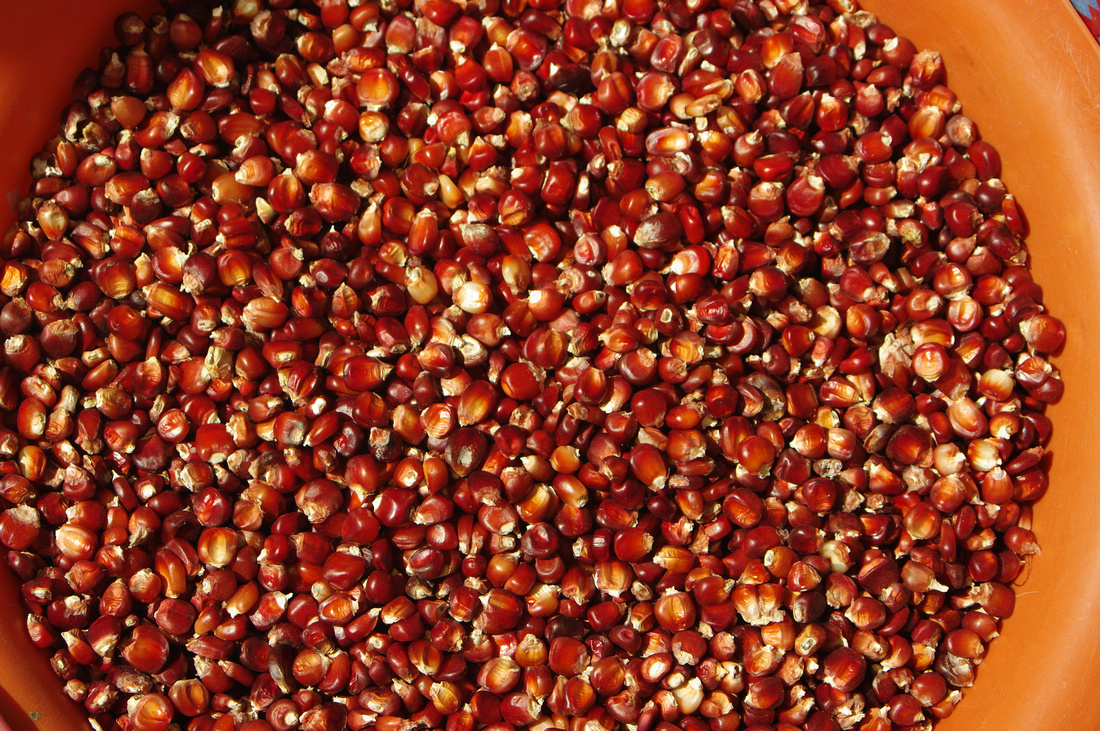

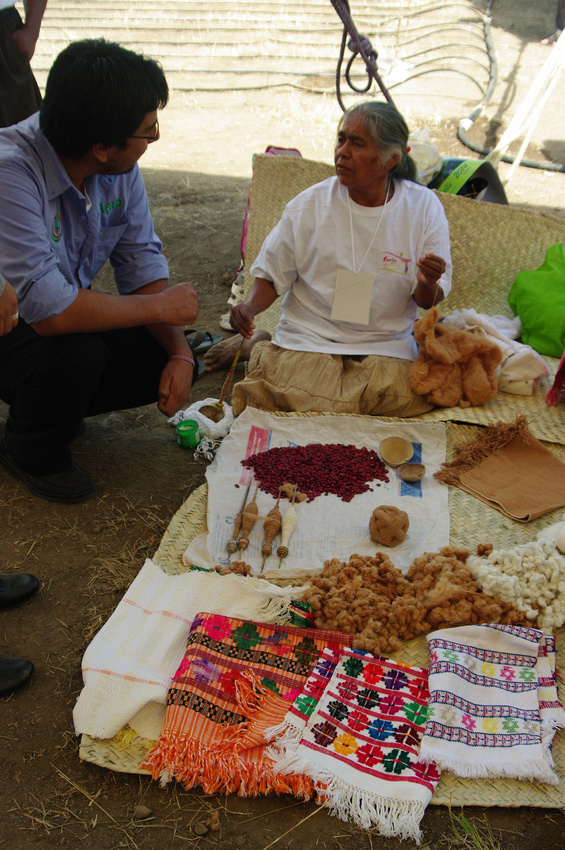

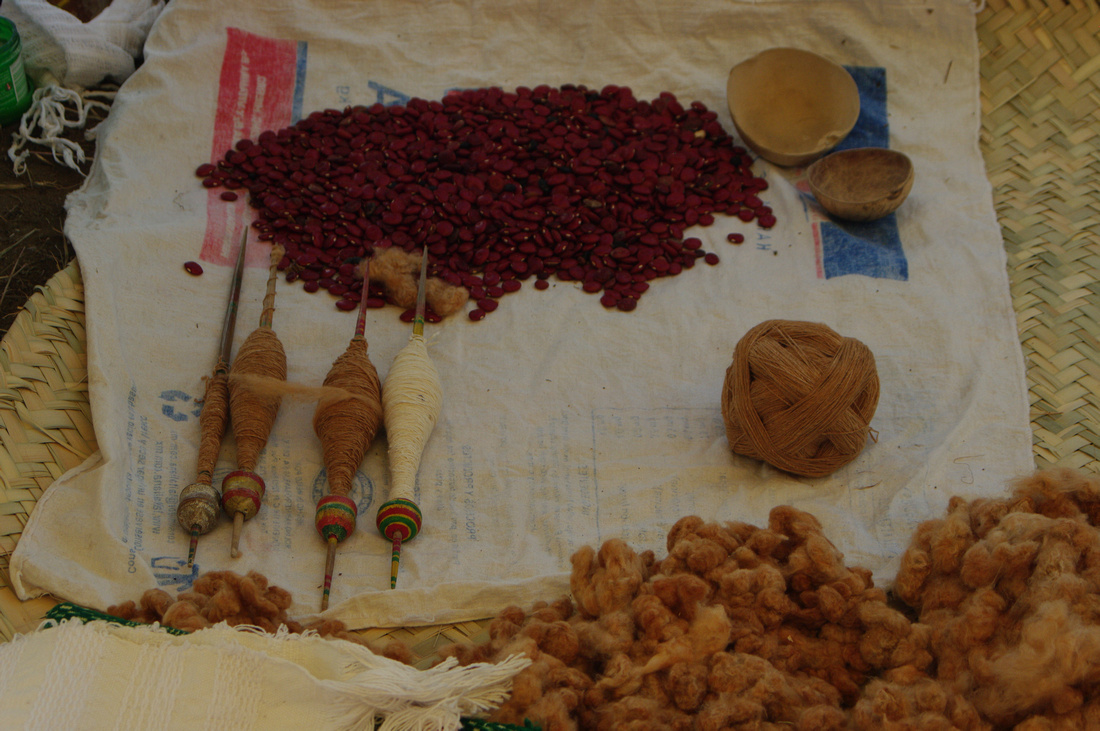

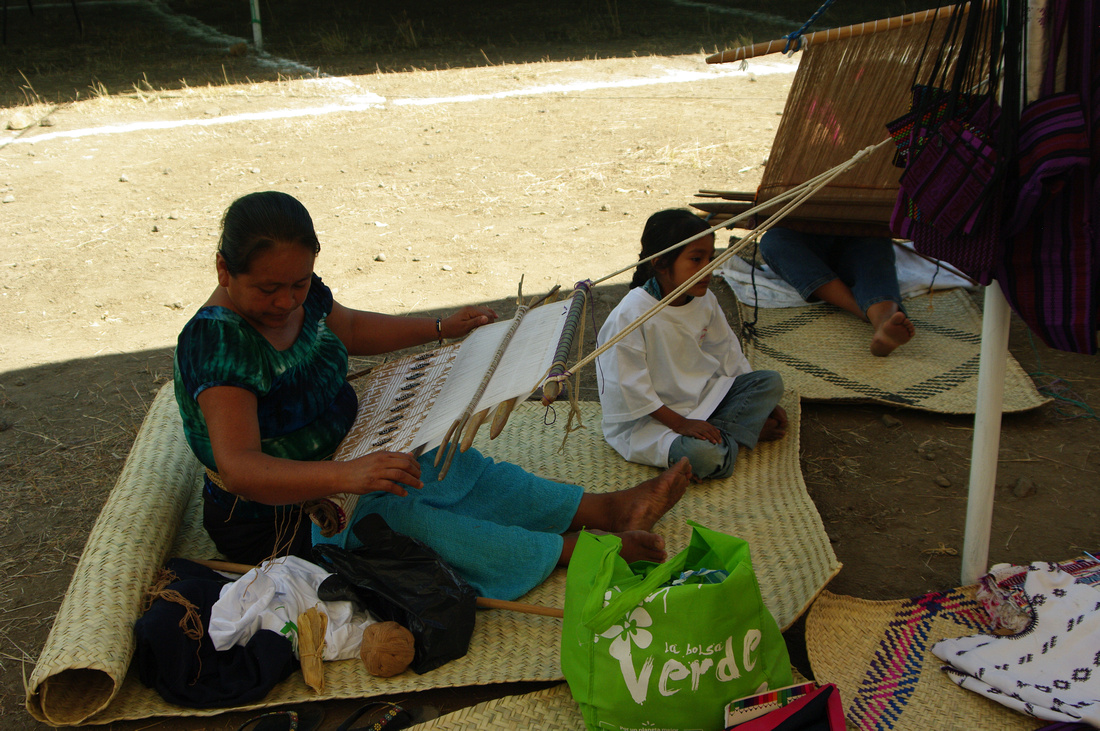

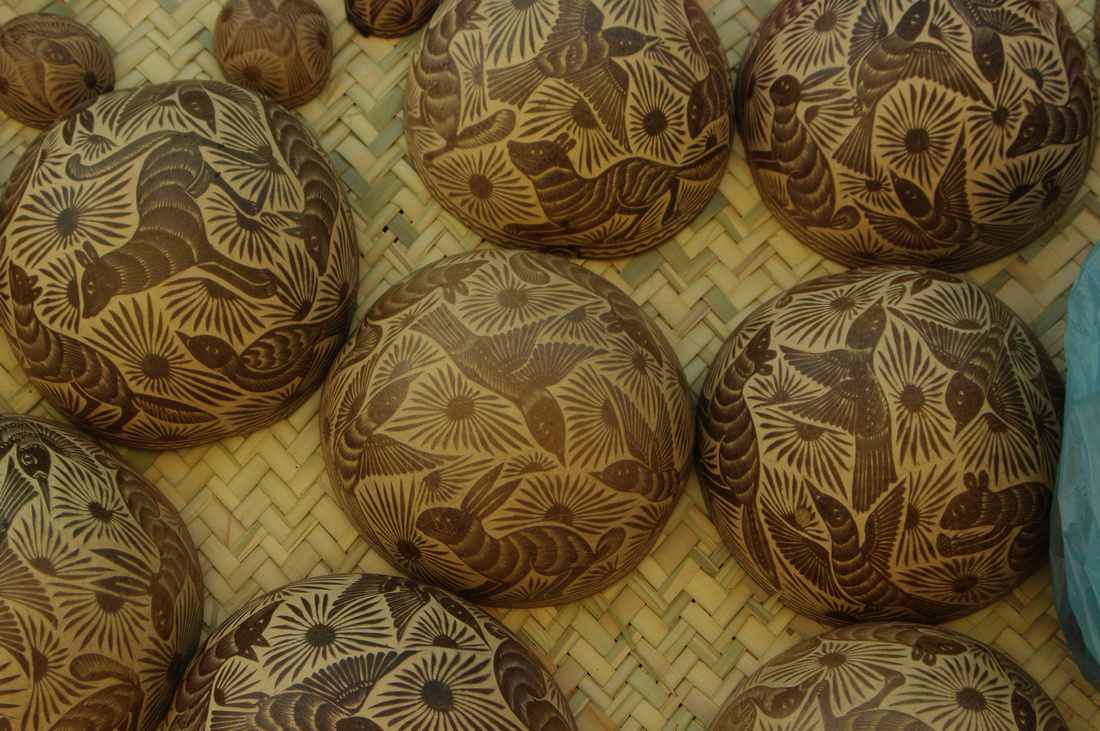

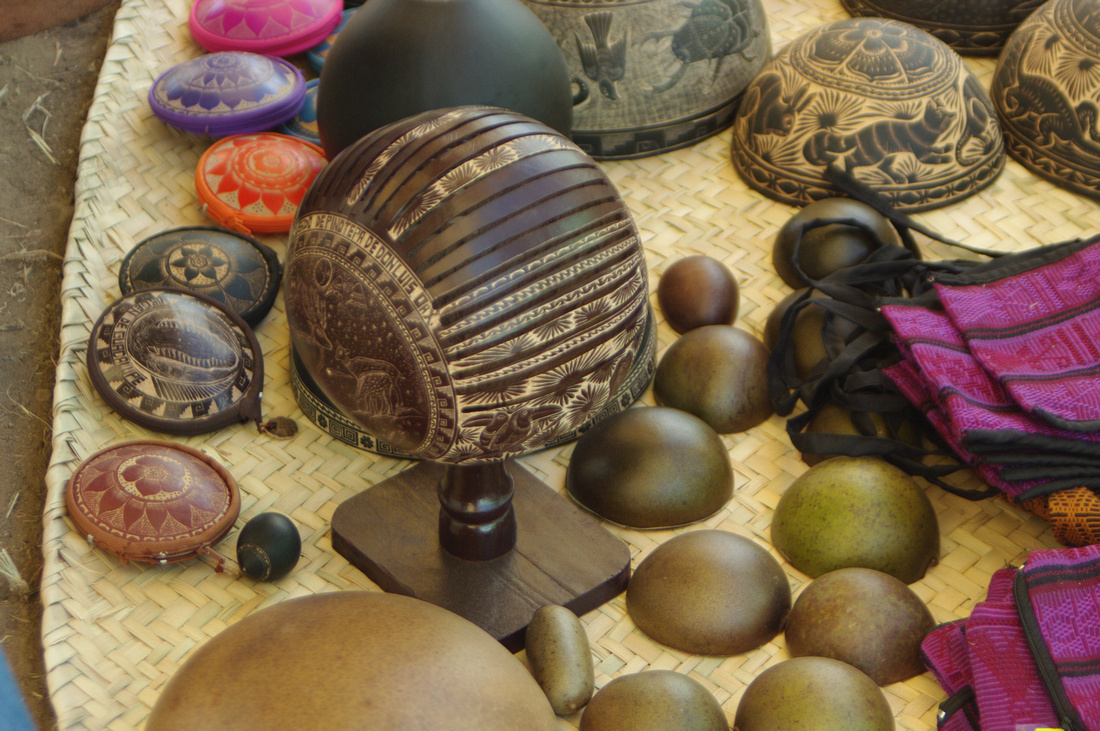

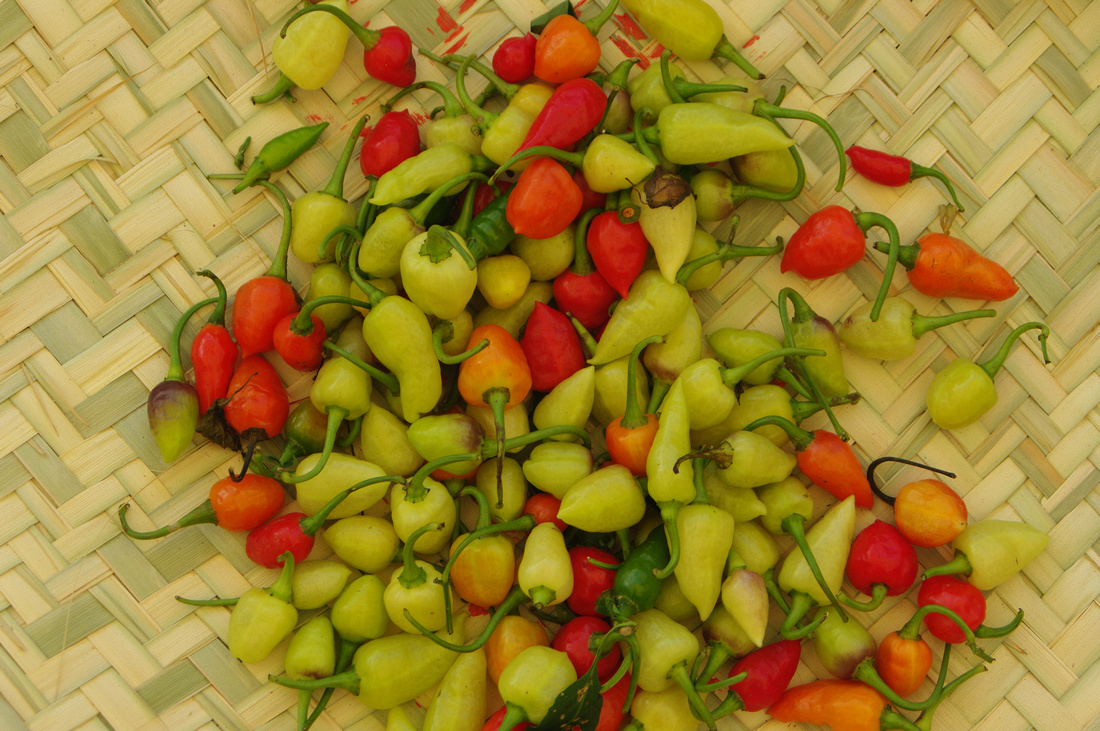

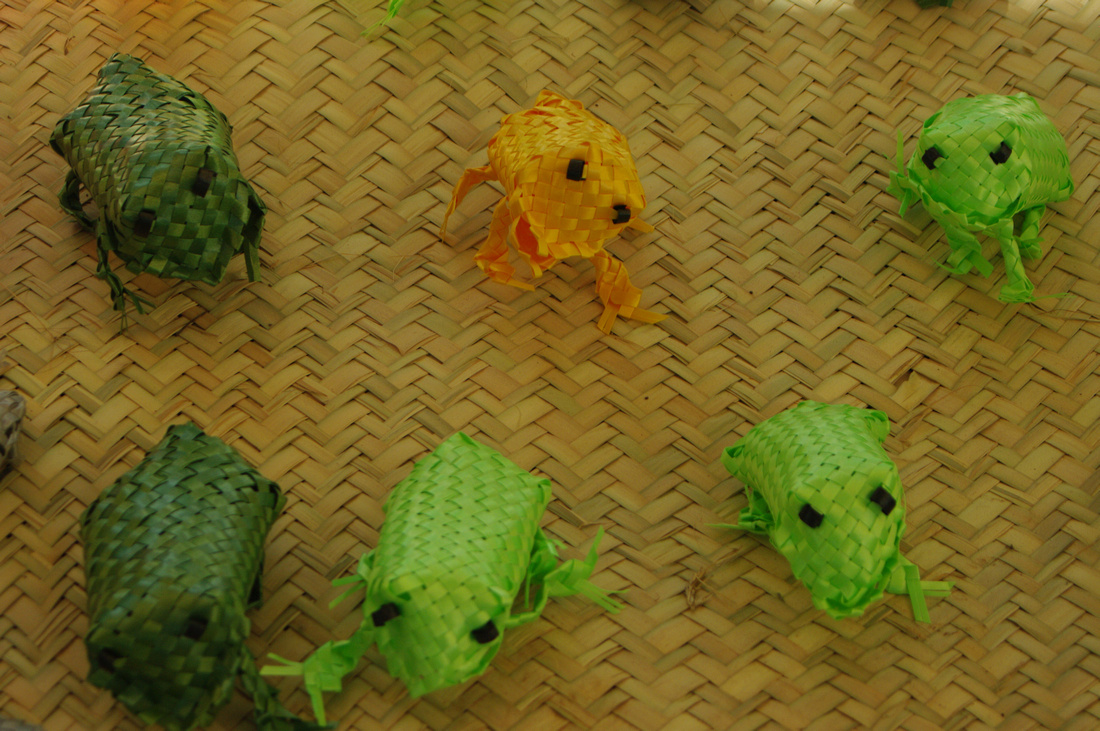

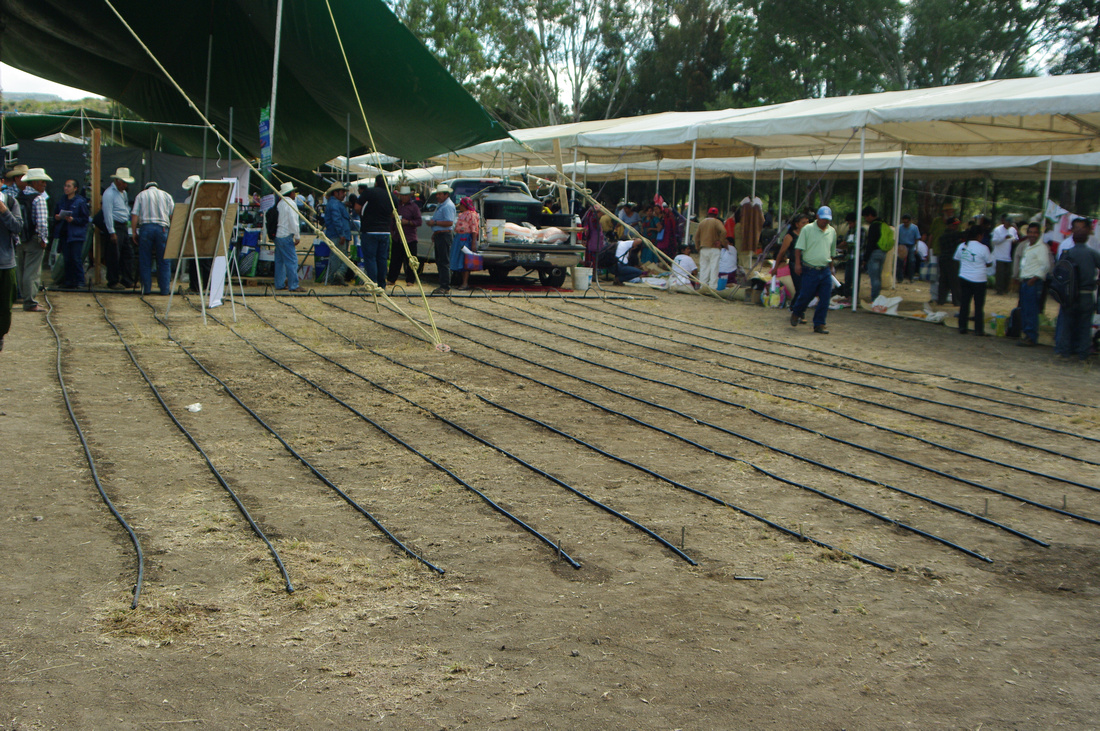

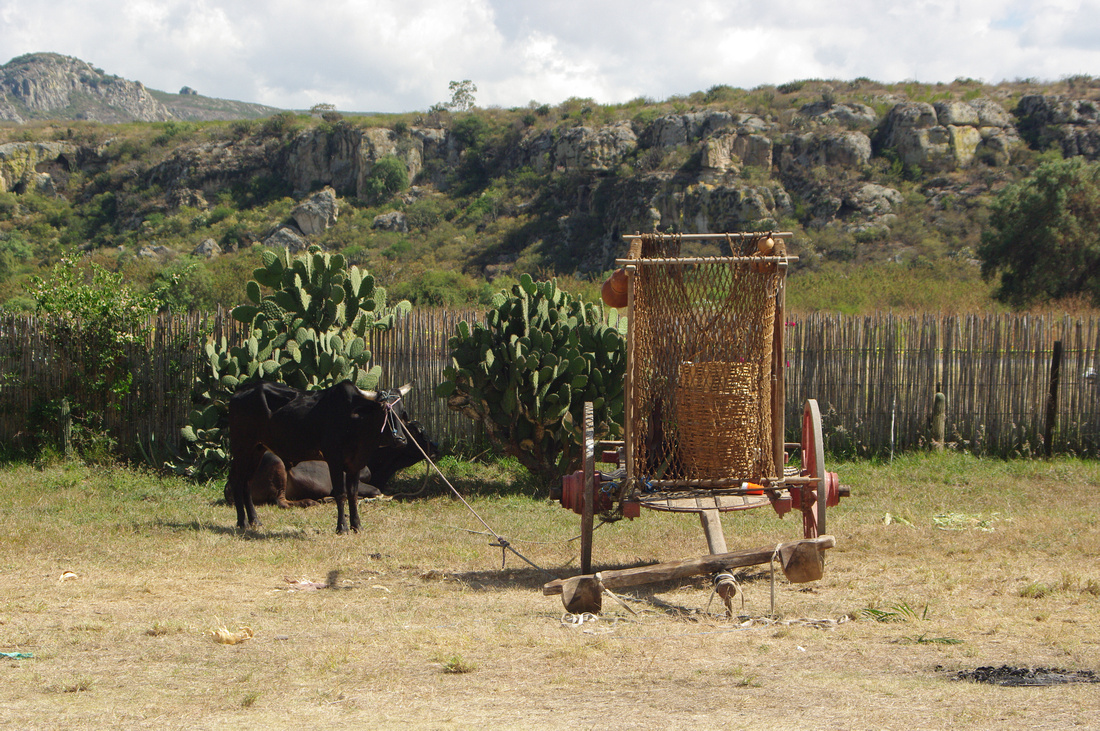

Zapotecs and Mixes
We got invited to San Baltazar week before last to celebrate finishing the roof on one of Epifanio’s sons' home. Juan Carlos (the owner) is in the US and sends money down when he can. He hopes to have the house finished if and when he returns. San Baltazar is about thirty minutes from our home heading down towards Tehuantepec. The village is located in a small valley. The view of the surrounding mountains is simply beautiful. When we arrived most of the cement had been poured. Epifanio told me they’d used about eight tons all of it carried up ladders a bucket at a time. The first layer was cement mixed with sand and gravel. Once that layer had dried a little an additional layer of just cement and sand was poured on top of the first layer. The second layer about a half inch thick is what keeps the rain from passing through the roof. The cement is supported underneath by planks that are supported by vertical beams. The workers, eleven of them, chatted and gave instructions in Zapotec changing only to Spanish to speak to us. Once work was completed we ate chicken and mole.
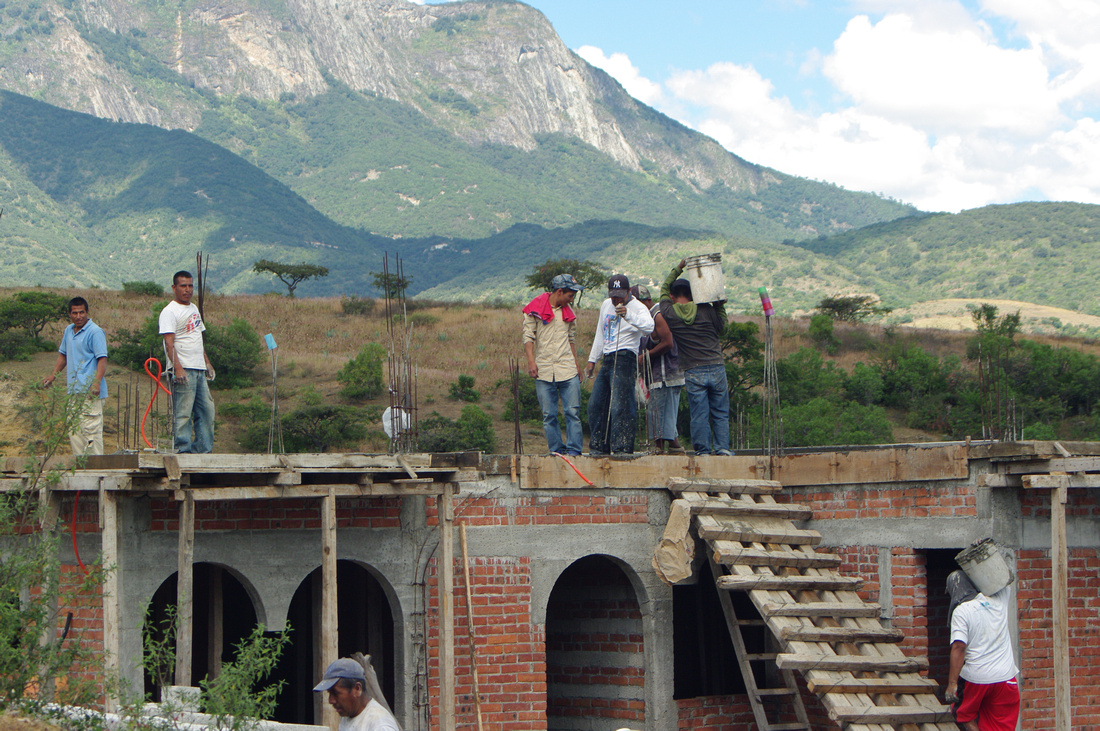

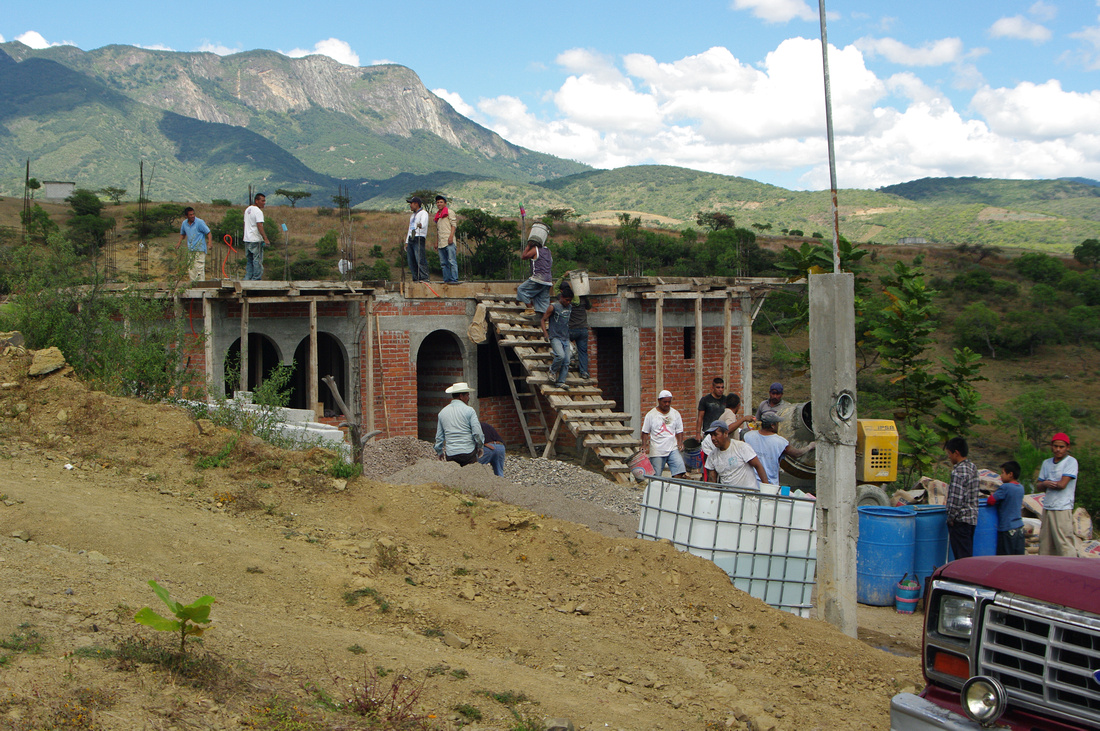

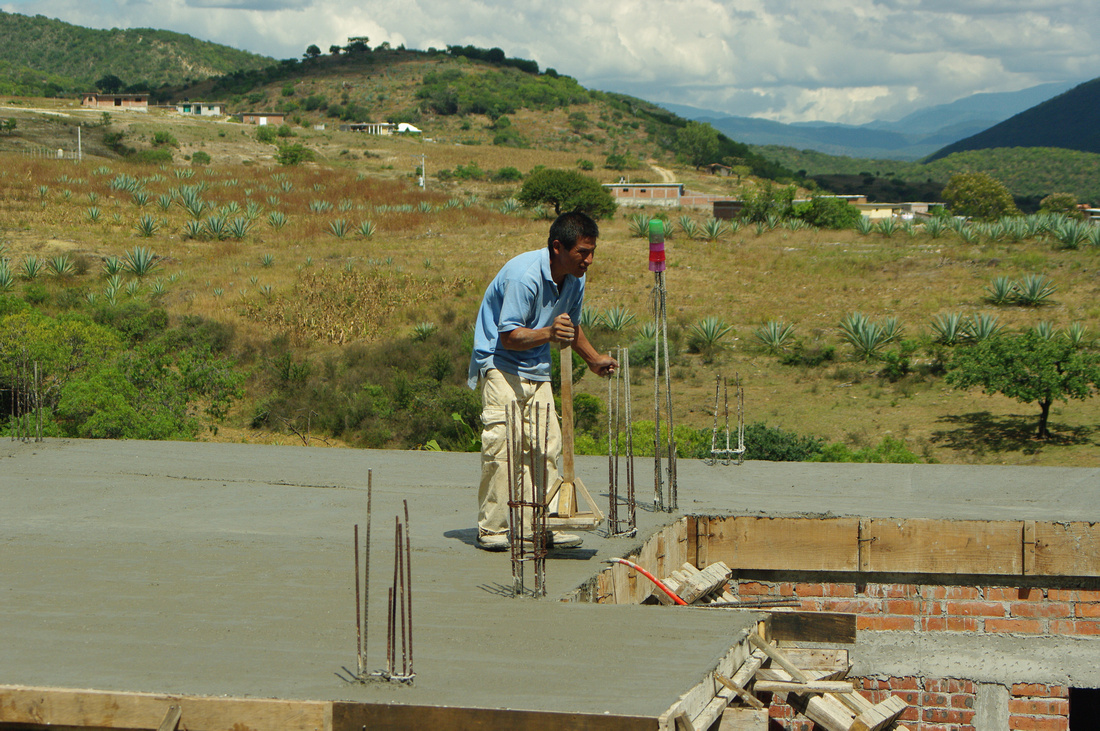

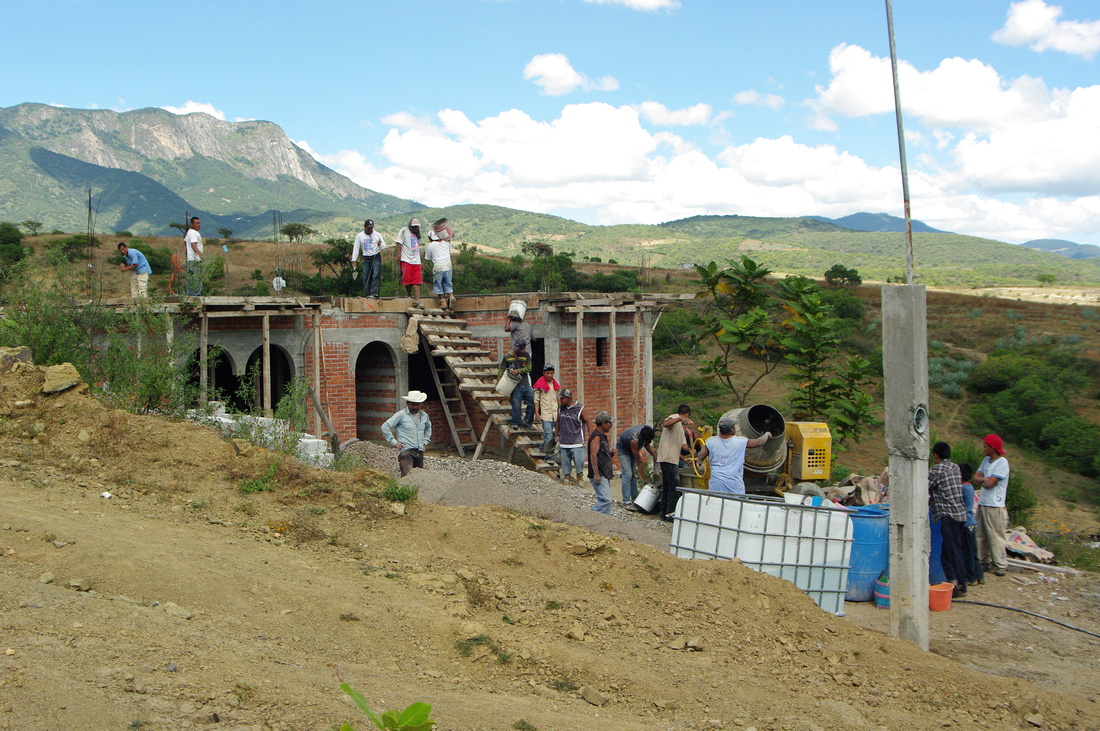

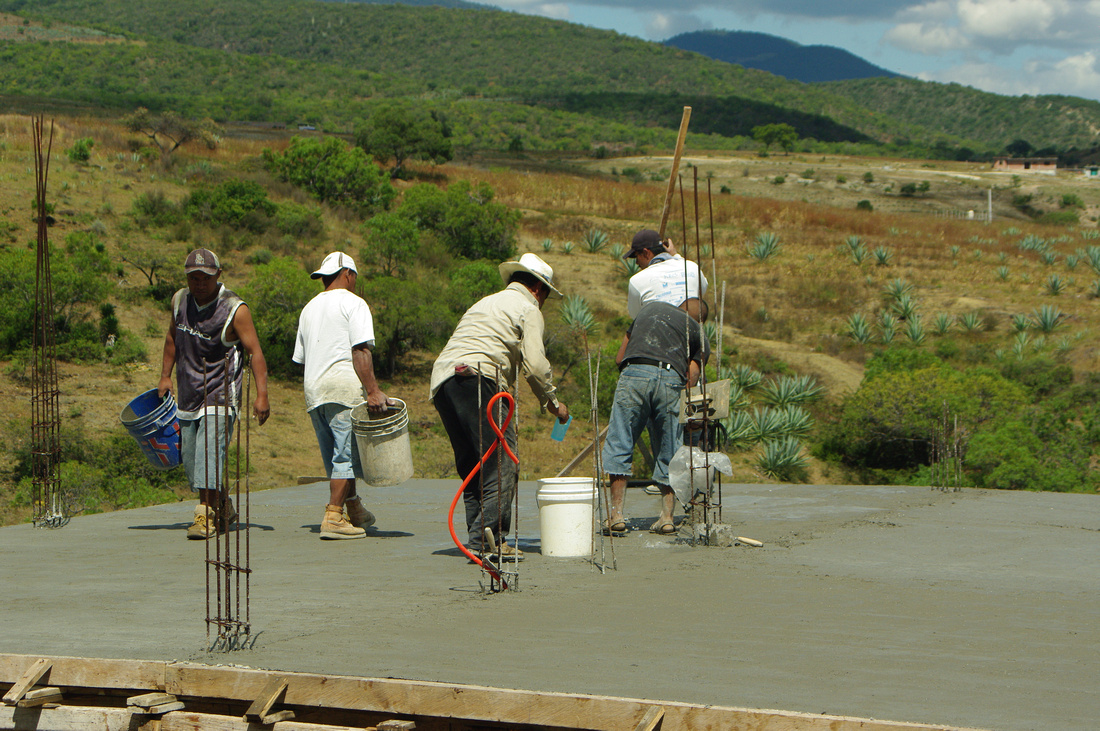

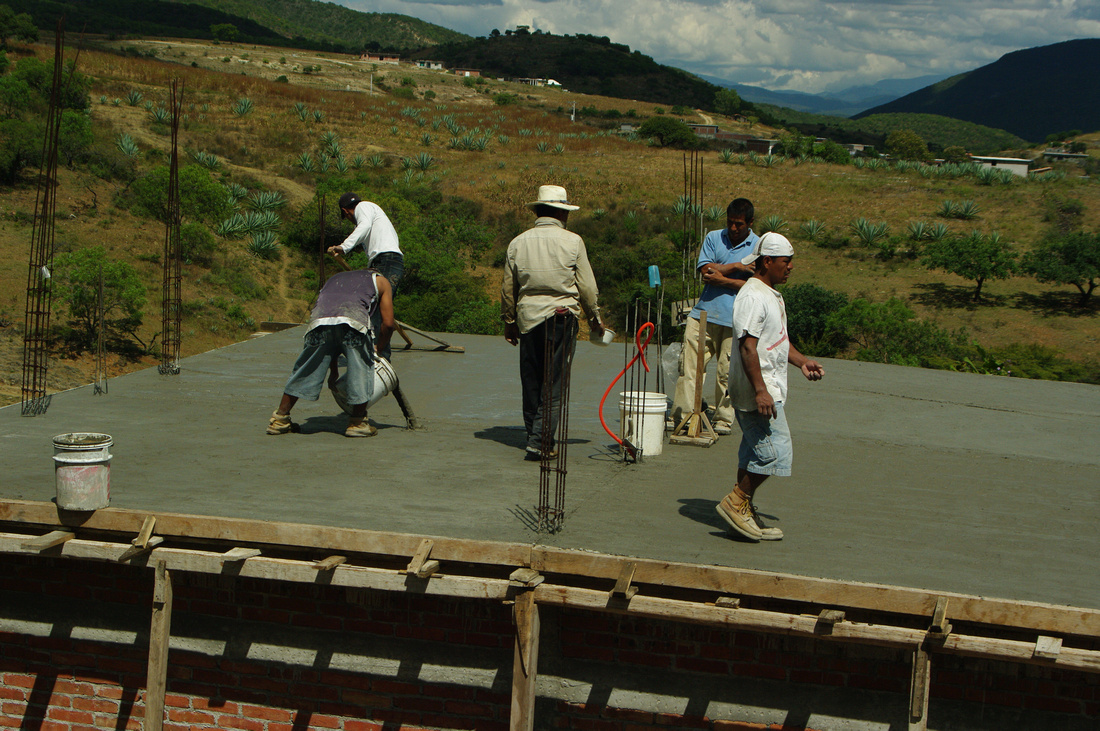

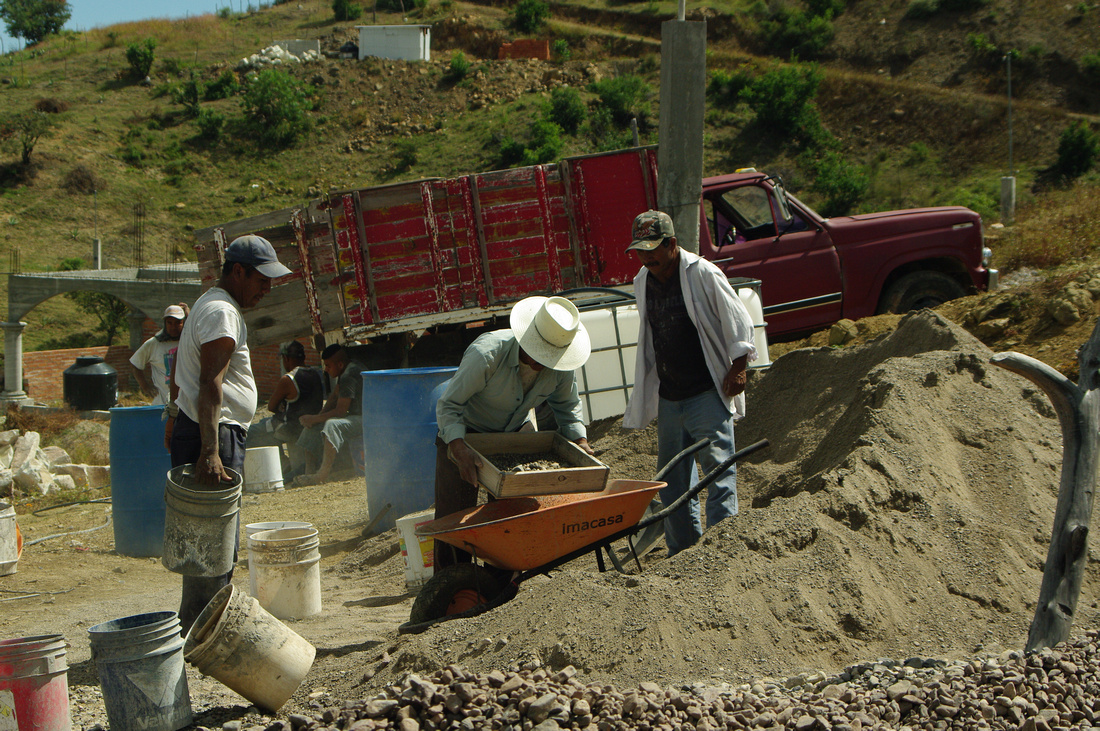

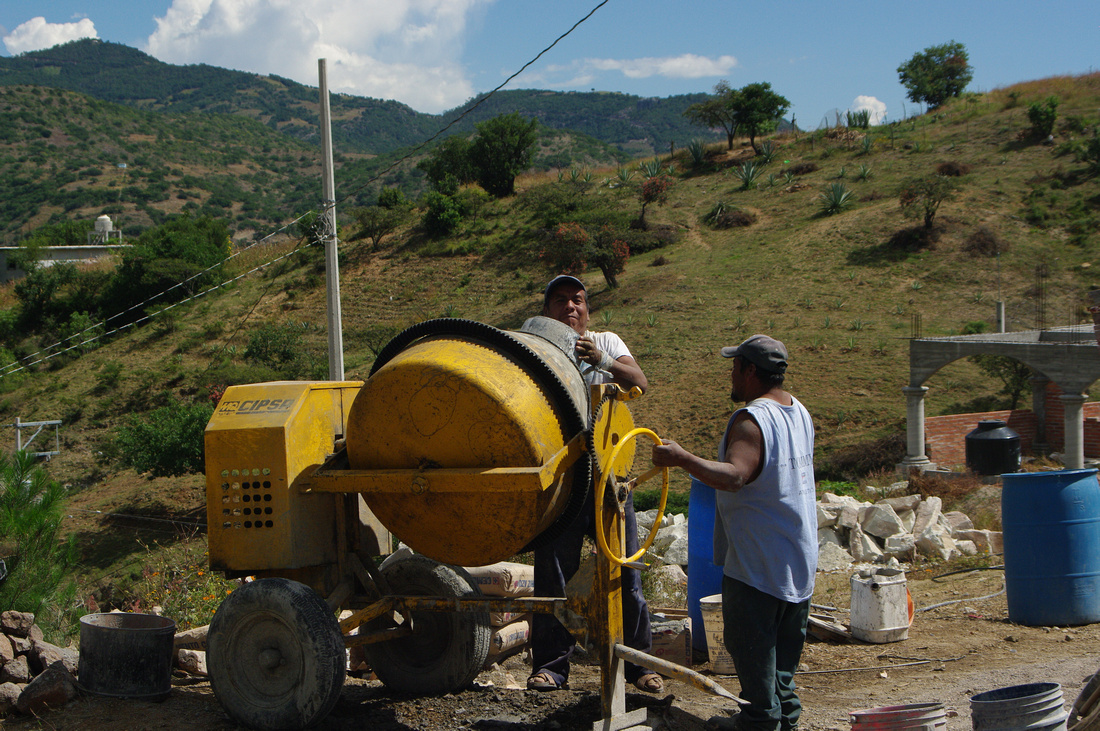

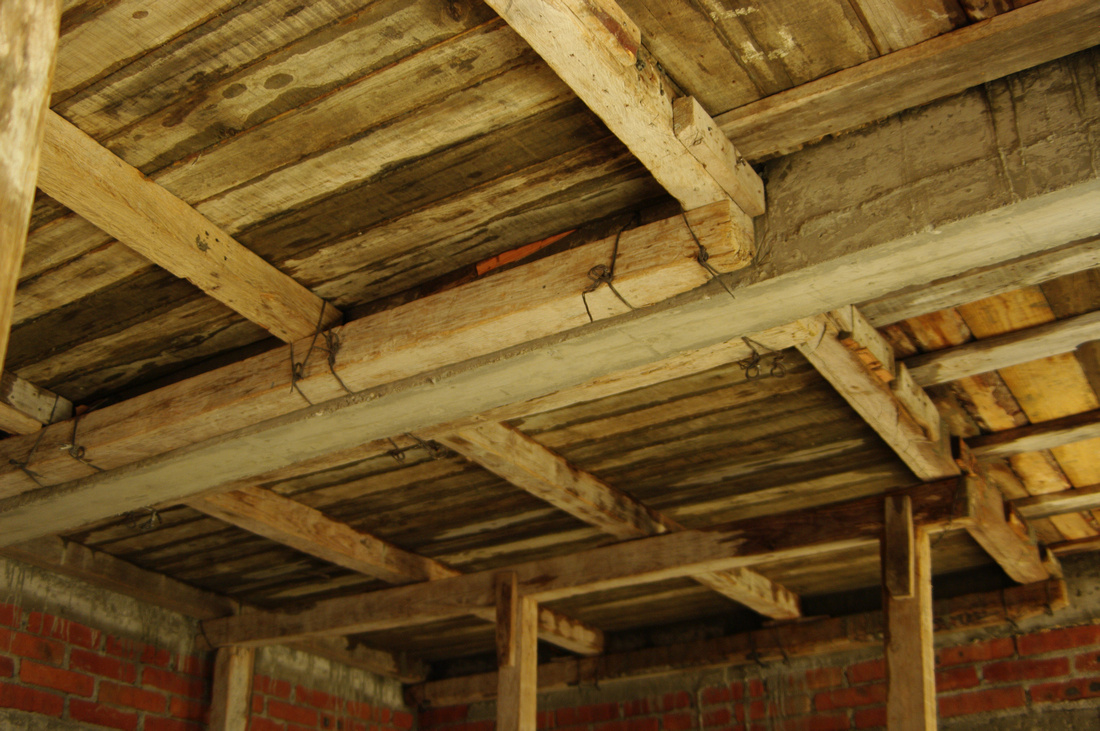

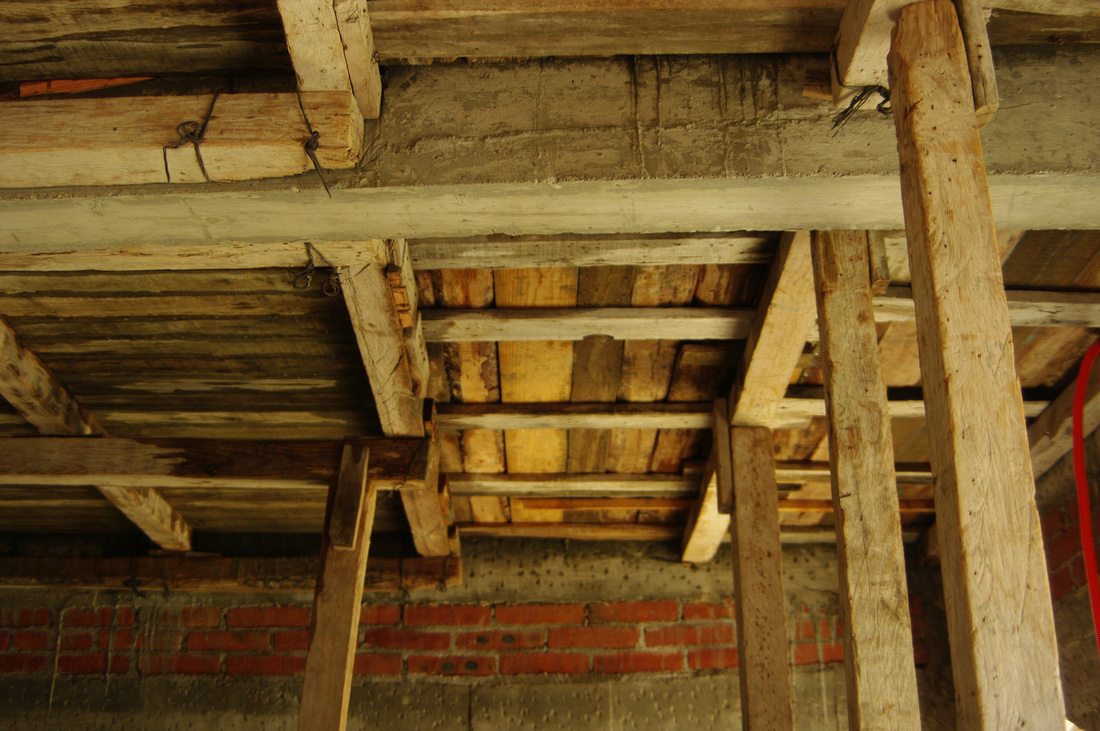

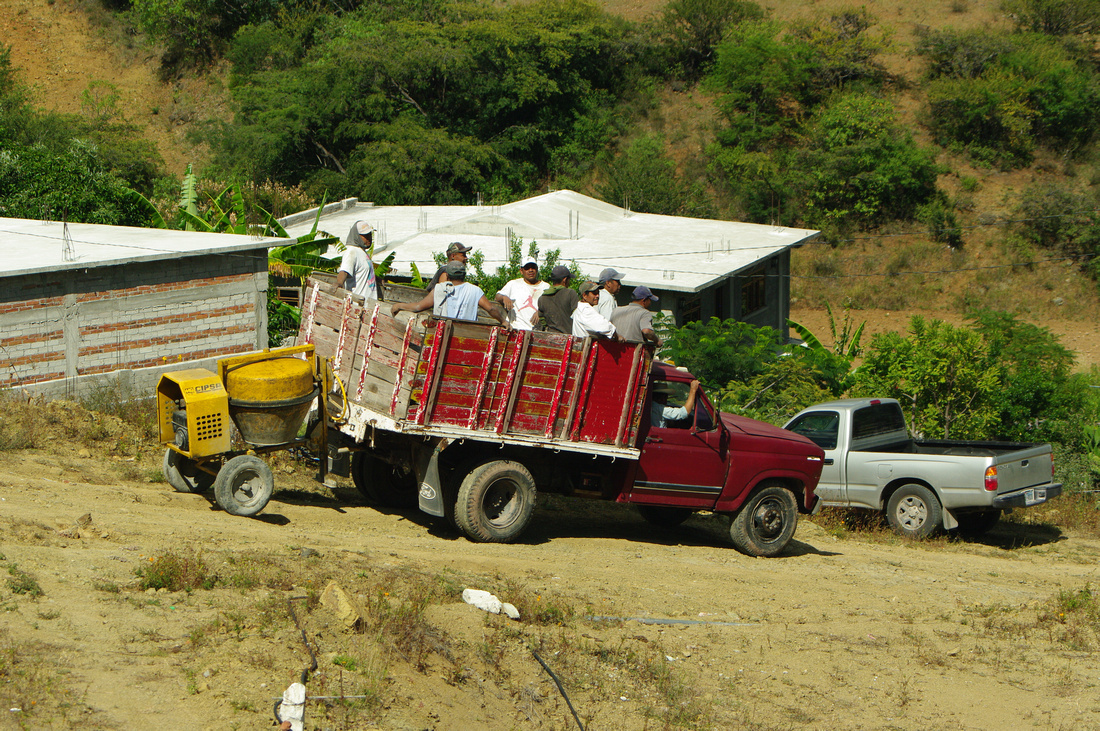

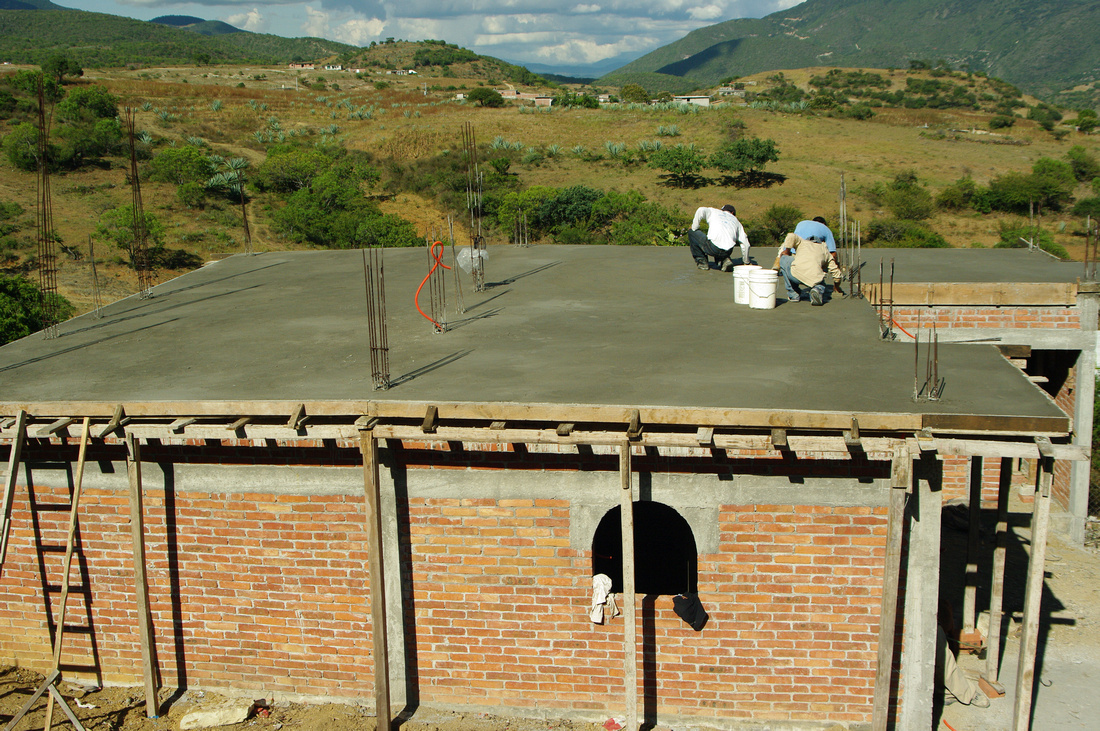

Two weeks ago Beth and I drove up to Ayutla about a two hour drive. Our house is at about five thousand feet altitude. I’m guessing Ayutla is another fifteen hundred. Even though the road is paved (poorly) it reminds me of the logging roads in Western Washington. Very quickly the terrain changes to pine forests. By the time you reach Ayutla the forests are dense. The area around Ayutla is occupied by the Mixe. Because of their remote location and their fierceness the Mixe were never dominated. Both the Aztecs and later the Spanish tried but neither was successful. The Mixe tend to be a little shorter in height but have a reputation of being very strong. I remember hearing stories about the Mixe walking to Tlacolula to purchase goods (including bags of cement) and then walking back home taking several days to make the journey. It’s been my experience that the Mixe are more standoffish than other groups. They are not unfriendly but wary. Never been approached for conversation. But… once confidence has been established they are very friendly. It’s also been my observation that the Mixe as a group tend to be more politically minded. I photographed a wedding in Ayutla in ninety four. At the reception I was bombarded with political questions. They were very interested in my opinions on many topics. I also believe they are the most tied to their ancestral lineage. Their language has been converted to written form. I noticed walking around the town that the street names and numbers on buildings are in Mixe. As you’ll notice from the photographs there isn’t a lot of area that is flat. Almost all buildings and homes are built on the side of a mountain. Also interesting is how buildings and homes conform to unusual lot configurations. They must be in incredible shape from all the walking! I have a good friend from the village of Cero Pelon (bald mountain) whose mother is in her nineties and still going. I’ll never forget my first visit to Cero Pelon. Abelardo drove the hour and a half drive to the village. Once at the village we walked a path for about forty minutes and arrived at his mother’s home. No electricity. To this day I have no idea where the water source was. Her cabin was built from wood. When we ate I was invited into the kitchen which consisted of about a four foot hole dug out in about a fifteen foot diameter. The round cover was made of plank boards. I sat there eating my bean tamales watching the smoke from her fire filter out through the spaces between the planks. The day we were in Ayutla was a holiday so the town wasn’t bustling as it had been in past visits. We spent about an hour sightseeing and making photographs. A new highway is being built that will pass by Ayutla. Hopefully they’ll receive a tourism boost. Anyway the drive down to Tlacolula will certainly be safer and faster.
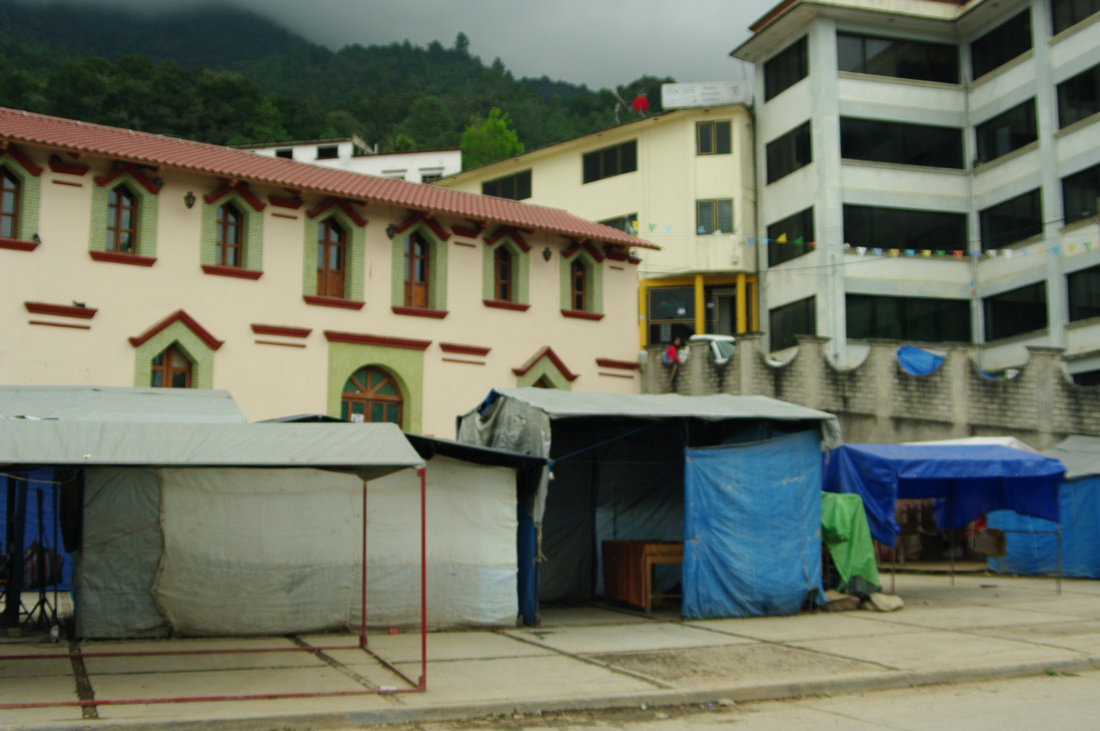

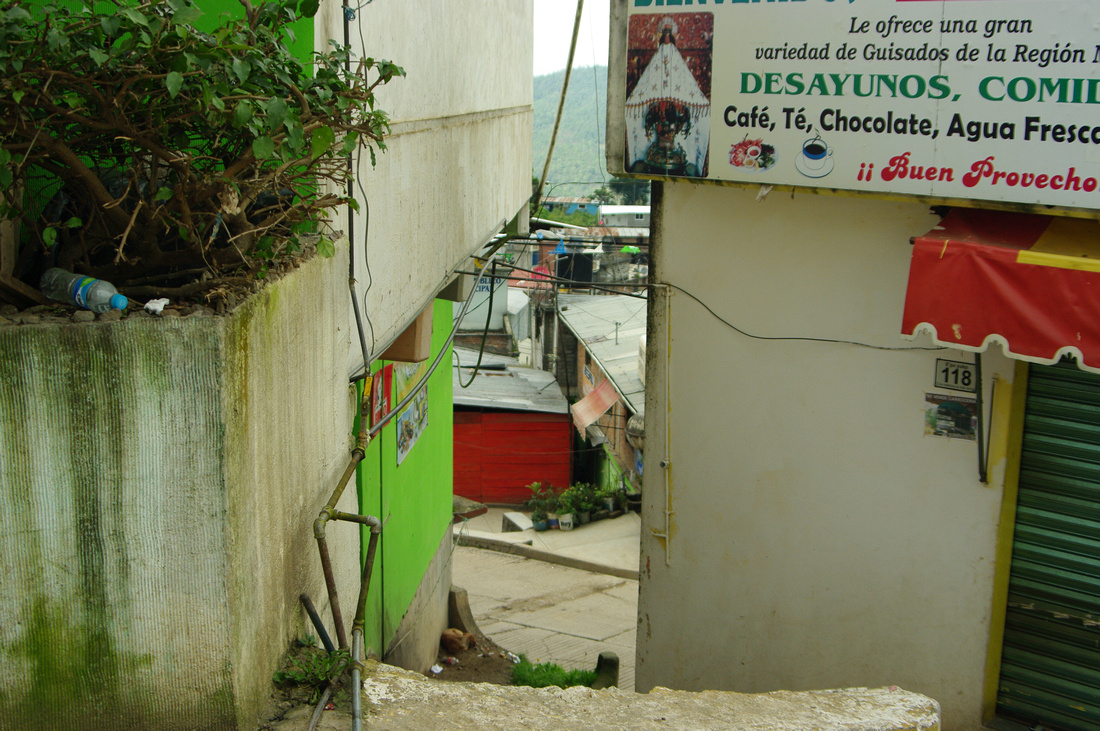

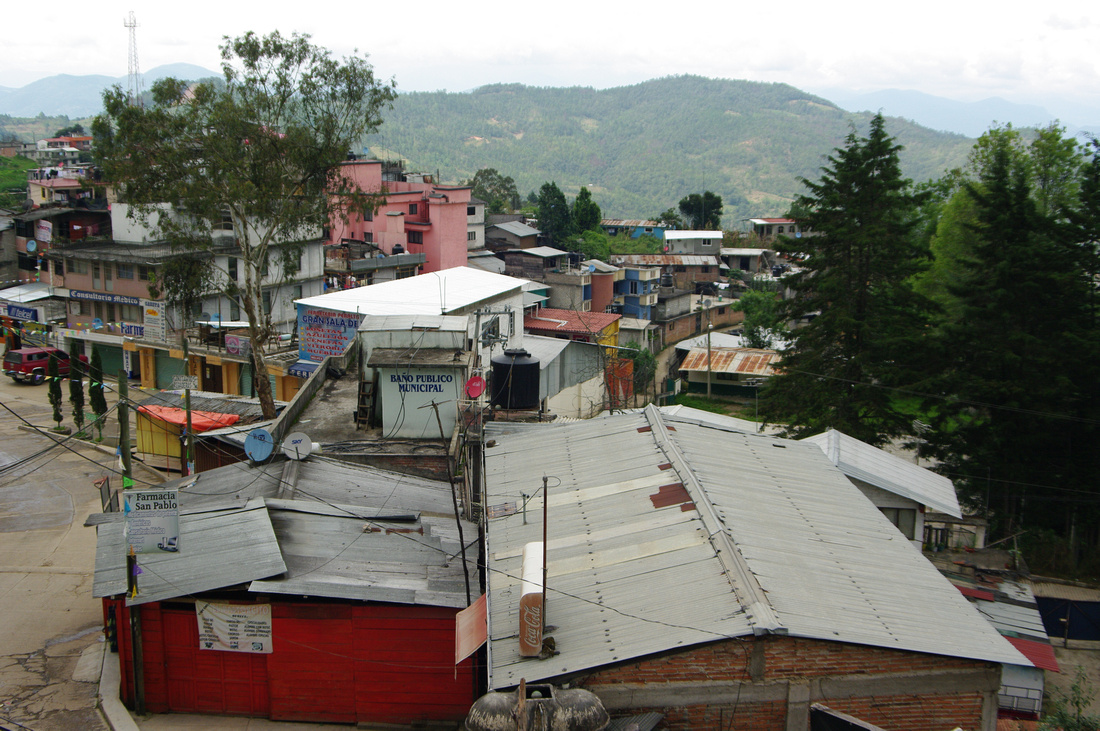

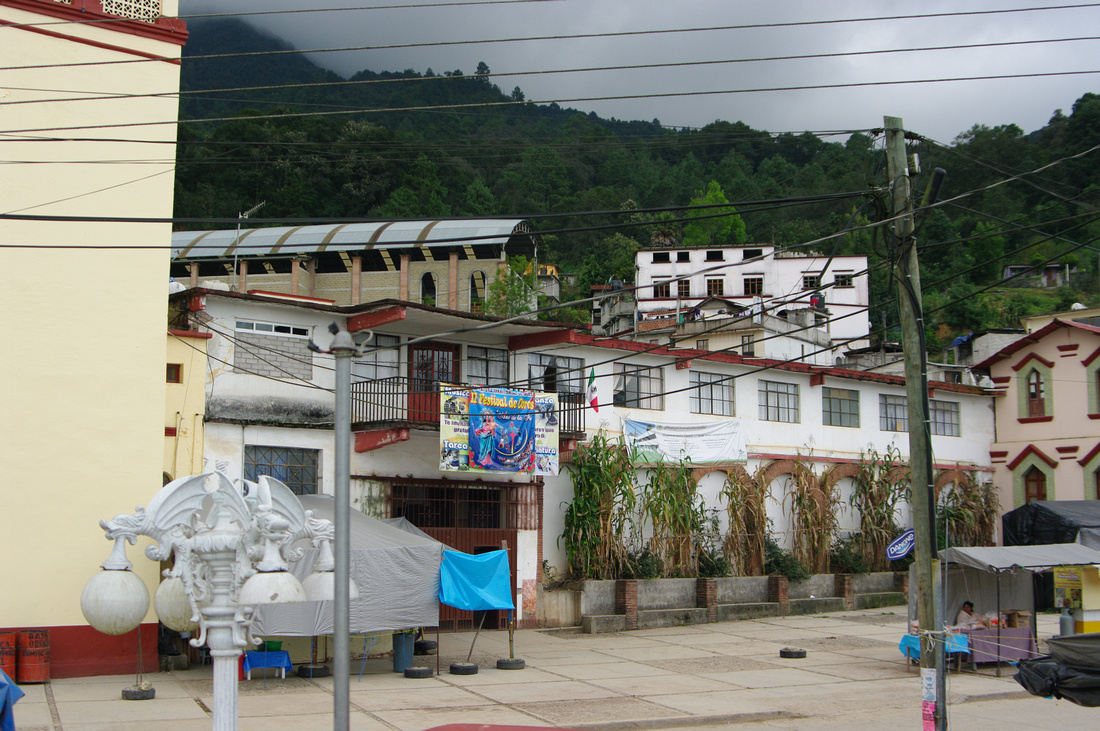

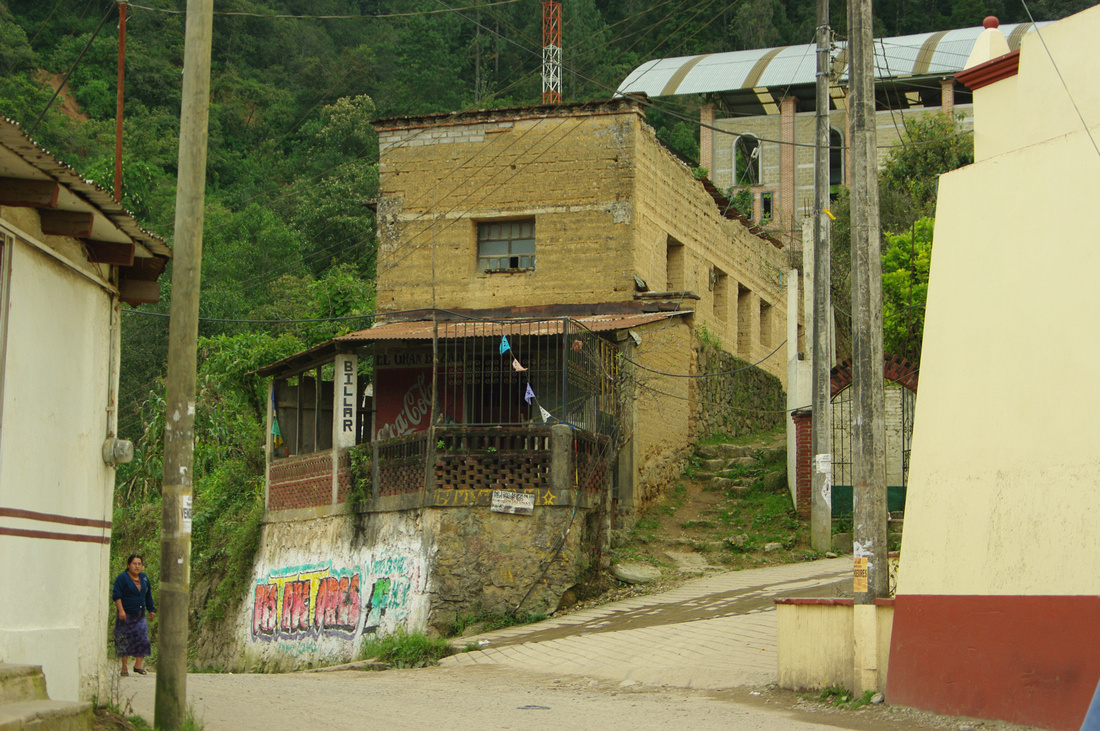

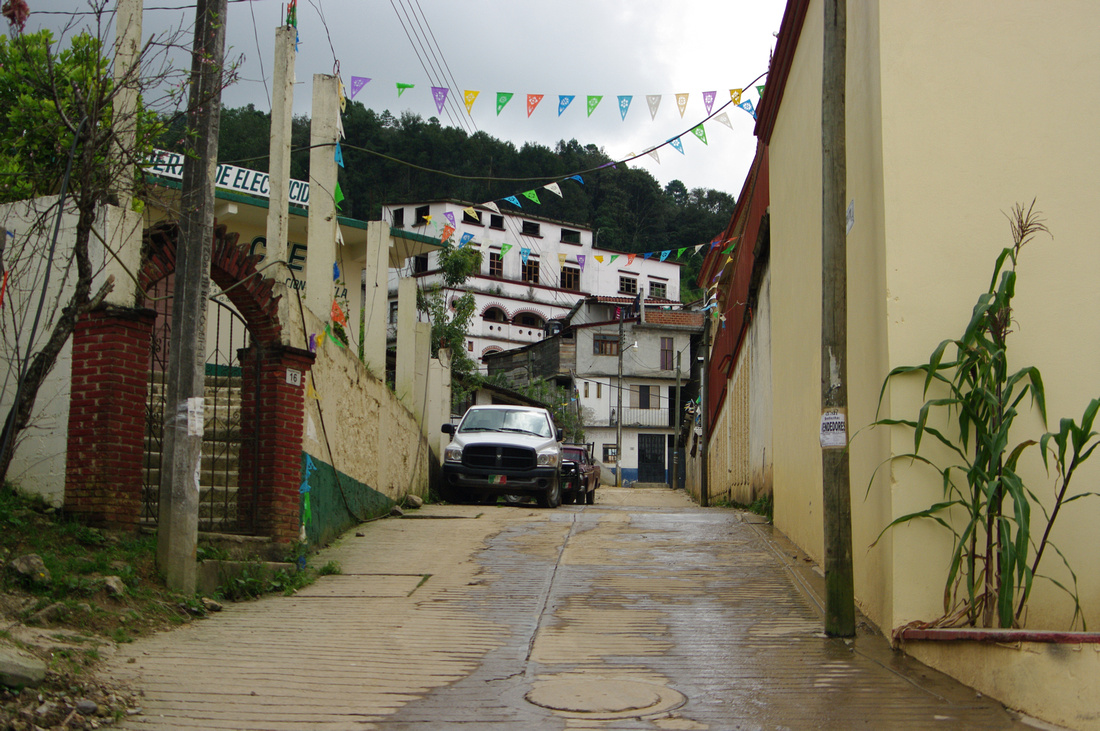

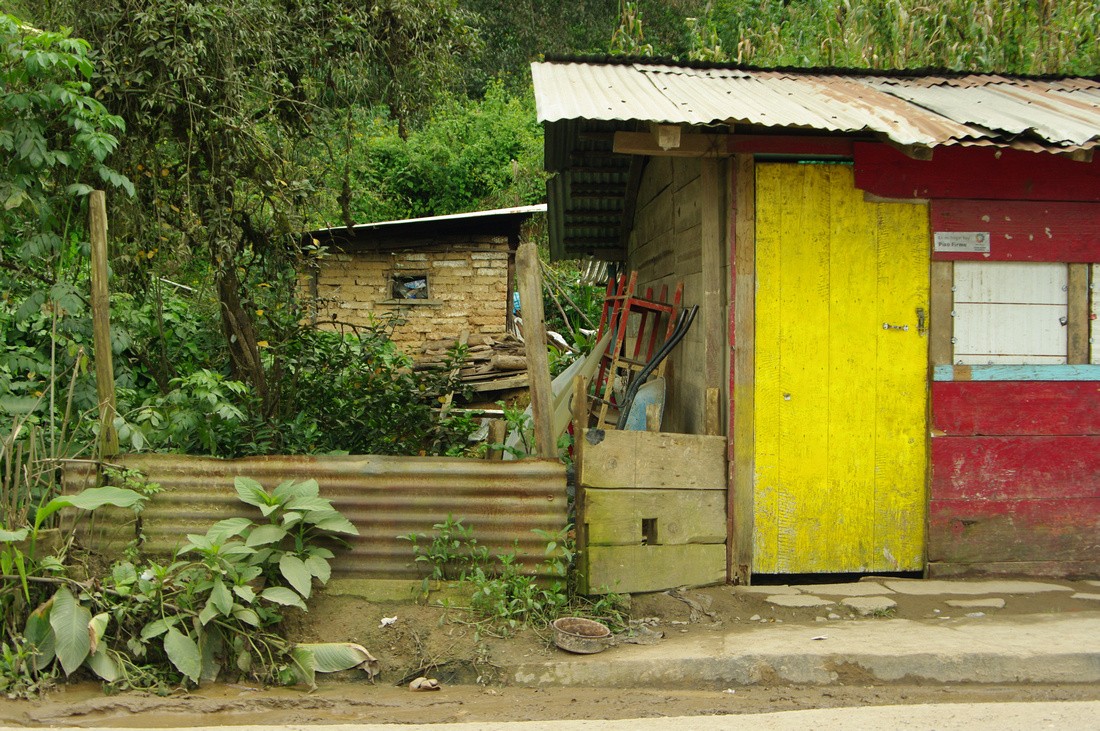

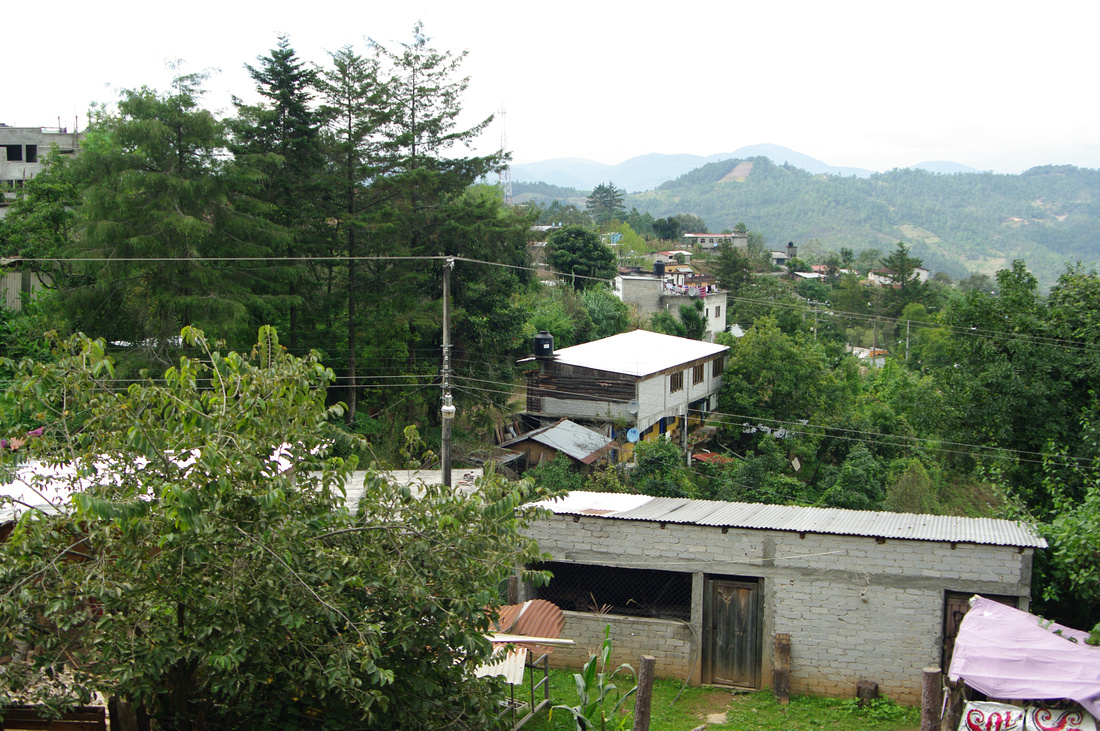

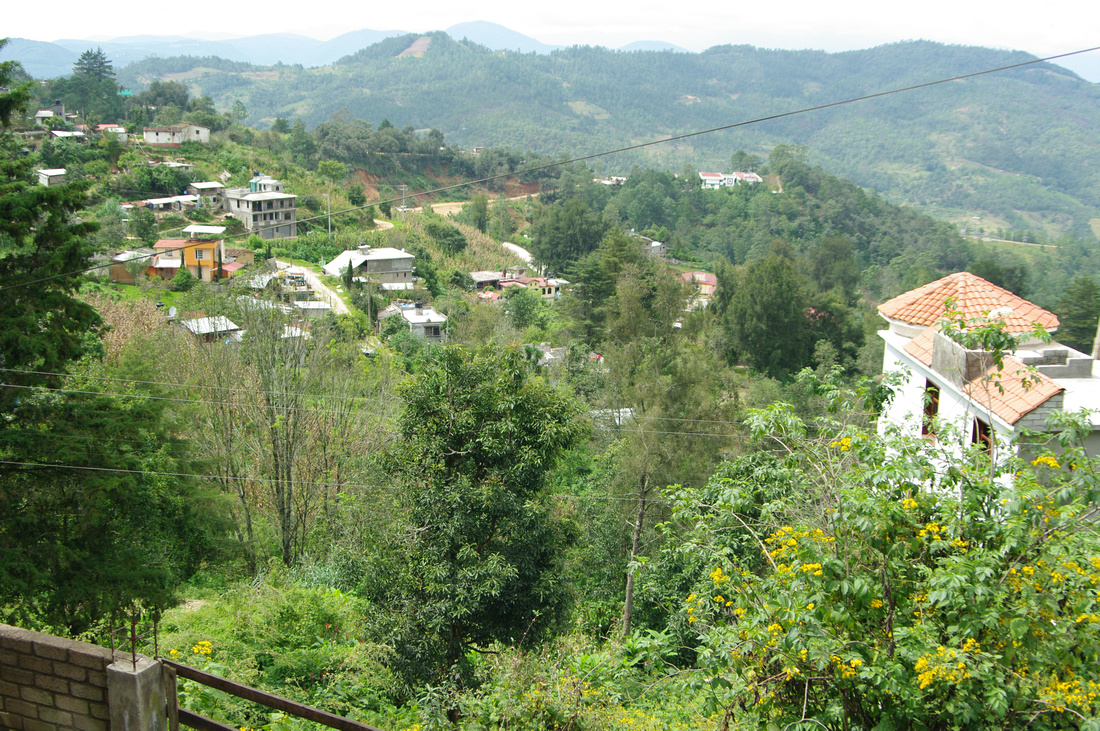

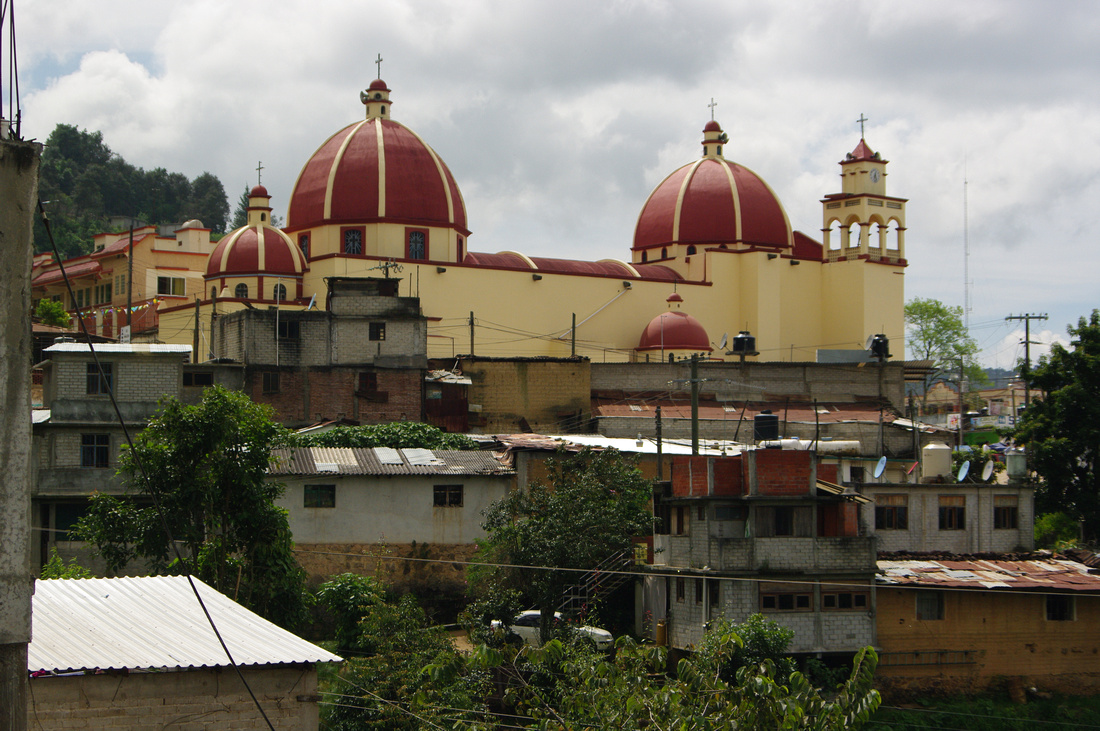

This past week we ate about as far away from traditional Mexican as you can get. A couple from Mitla recently moved back from the States after living twenty years in Los Angeles. They opened a restaurant called “Pink Burger”. We had to try it. So Monday we ate barbecued chicken wings. They were fantastic! Tuesday Beth made chicken cacciatore. It was also very tasty. Wednesday we had to make a run to Oaxaca for a friend so we stopped at our favorite Chinese restaurant on the way back. The food there is always fresh and we always overeat. Thursday we were invited to a birthday party in Tlacolula. In a one in a million chance they served hamburgers and fries. Not a typical meal here! Friday our friends Jeff and Elia came by to cook pizza. Don’t remember a better tasting pizza! Saturday Beth prepared American style chicken vegetable soup. Delicious!!!!!! Back to beans and rice this week.
Yesenia with cake on her face. She got it pretty good! A toast was made to Yesenia. Mom, dad, padrinos, family members, and friends said a few words. It was very touching. What a great support system she has. She is a beautiful young woman. We wish her the best!!!
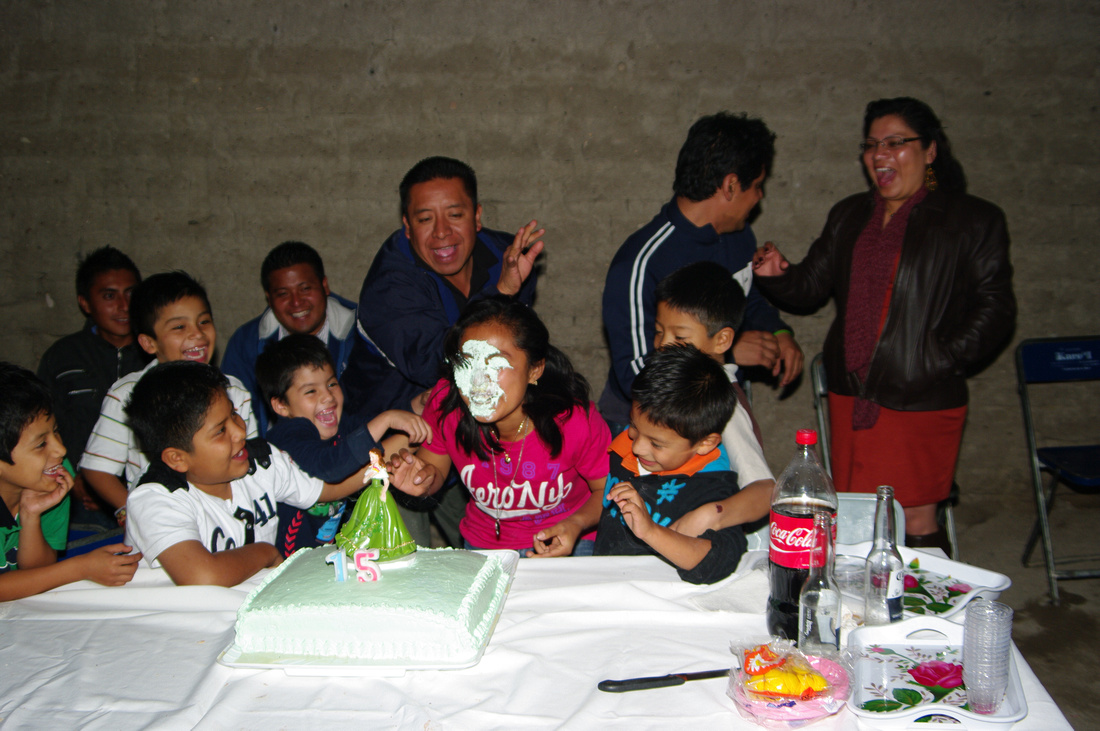

This is Jeff our pizza guru. We kind of see him as our Dr. Phill but Jeff doesn't talk nonsense and he doesn't have to kiss Oprah's ass!!!!!!
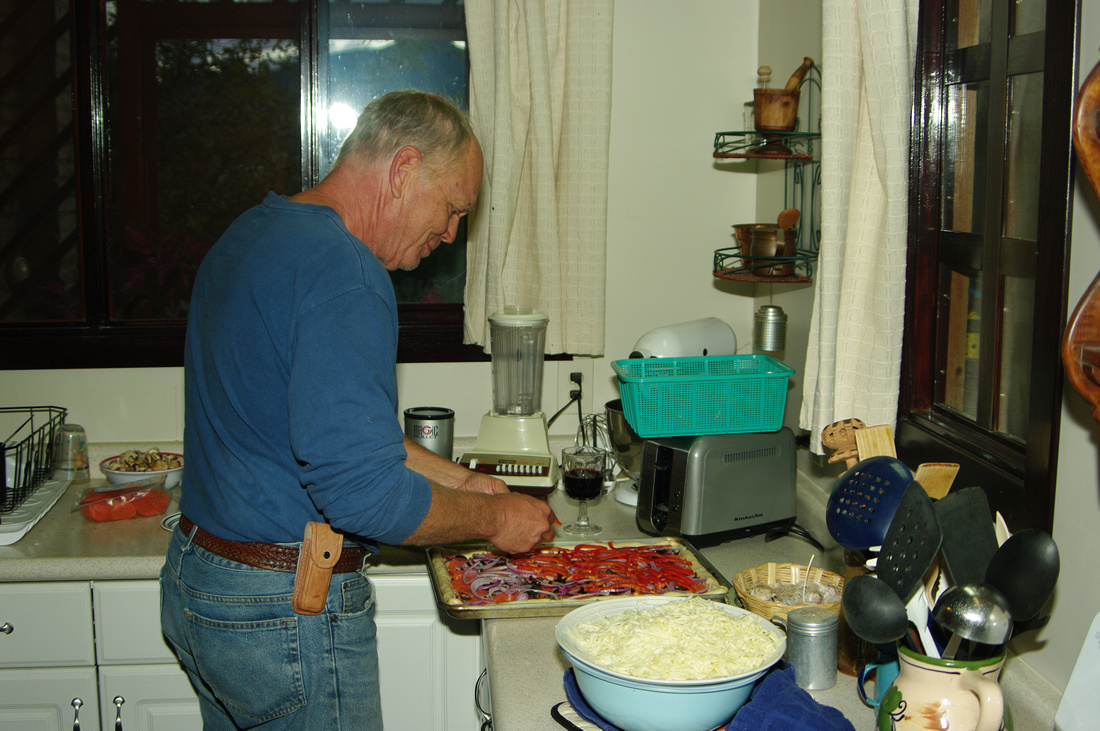

Epifanio's son Jacobo came over last week to seal up the window in our patio. During a break we drank coffee and chatted. The subject of Oaxaca city came up. Jacabo's village of San Baltazar is about forty five miles from Oaxaca. He rarely visits the city. Here is why. For he and his wife to make the round trip it costs one hundred and forty pesos. And that's leaving the kids with family. Jacabo makes two hundred pesos a day. Just the bus ride eats up about three quarters of a day's pay. If they eat there they'll spend more than a days pay aside from their purchases. Jacobo is a bricklayer so he needs pants that will hold up to the punishment they receive on the job. A pair of levis costs about 700 pesos. He buys knock offs that are far from levi quality. We also talked about tools for his work. Drills, saws, and grinders are a must to have. The price of good tools is higher here than in the States. He recently bought a hammer drill that cost one thousand six hundred pesos. Jacobo also has two girls in school so there is the expense of clothing, books, lunches, and writing material. The day that Jacobo worked for us was his day off. He often works on his day off to make a little extra. During our conversation I couldn't help but think about so many Mexicans entering the US. When you live down here you get a real insight on what motivates so many to journey north. Jacabo did work in the US. That's how he built his home. Mind you Jacobo wasn't whining. He and I have been friends for almost twenty years. Our conversation was about life here.
October 2013
We just cancelled our account with Dish network. Too much time spent watching worthless programs. In fact there is not much to see that has any redeemable value. Most of the programming seems so petty, dumbed down, and gives a distorted view of life. One of my regrets is that I spent as much time as I did watching mindless programs. I'm glad that our boys have yet to fall into that trap.
Beth started giving cooking lessons to some of the women from Union Zapata. Anywhere from seven to fifteen women come to the house every Wednesday to learn a new meal. The recipes are all inexpensive to make but give the women choices of meals to prepare at home. No one owns a cook book so meals are usually traditional meals that have been passed along, many of them containing a lot of fat. Spaghetti, chili, banana bread, various Chinese meals, and apple pie, are menus to date. Along with helping others Beth gets a chance to speak and increase her vocabulary. When planning the menu for the following week, the ingredients are divided so no one is burdened with the expense. A couple of weeks ago the women taught Beth how to make tamales of chicken and chepil (a plant that grows here. Don't know the name in English.)
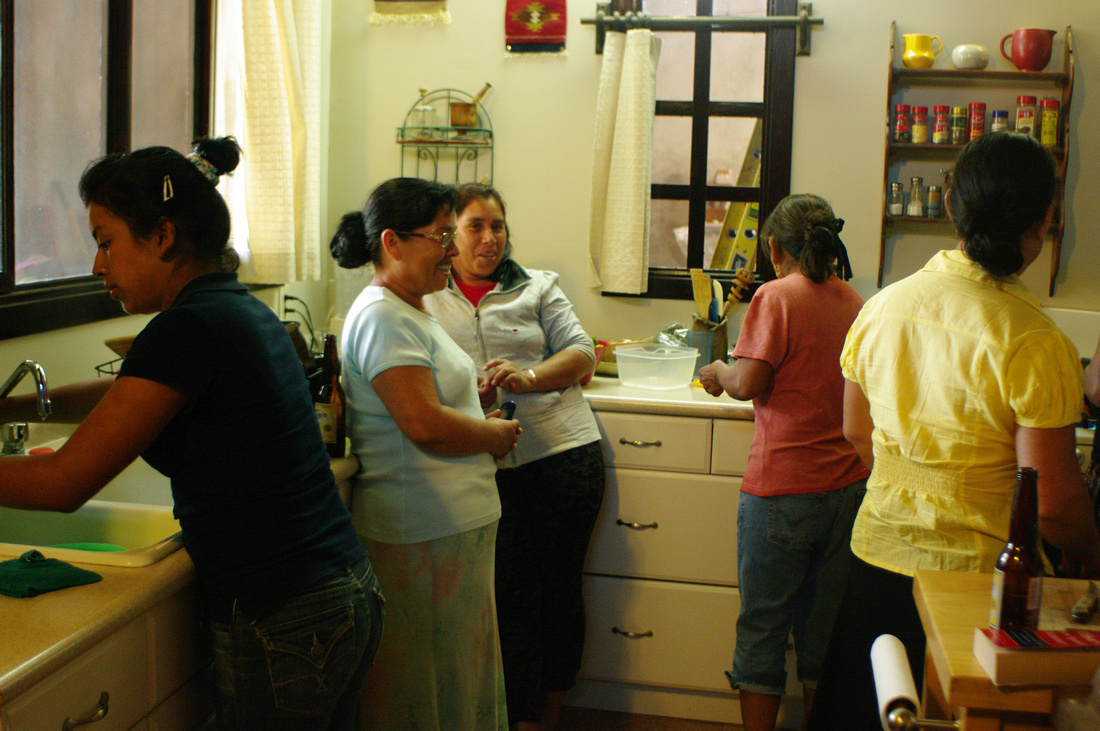

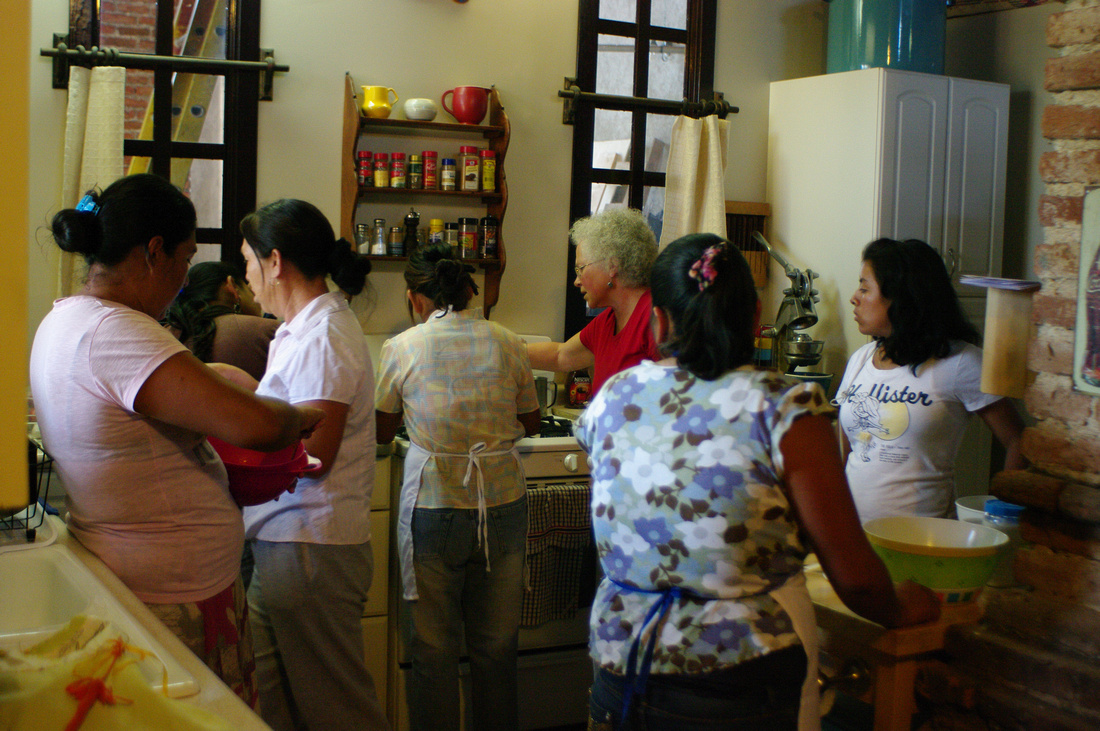

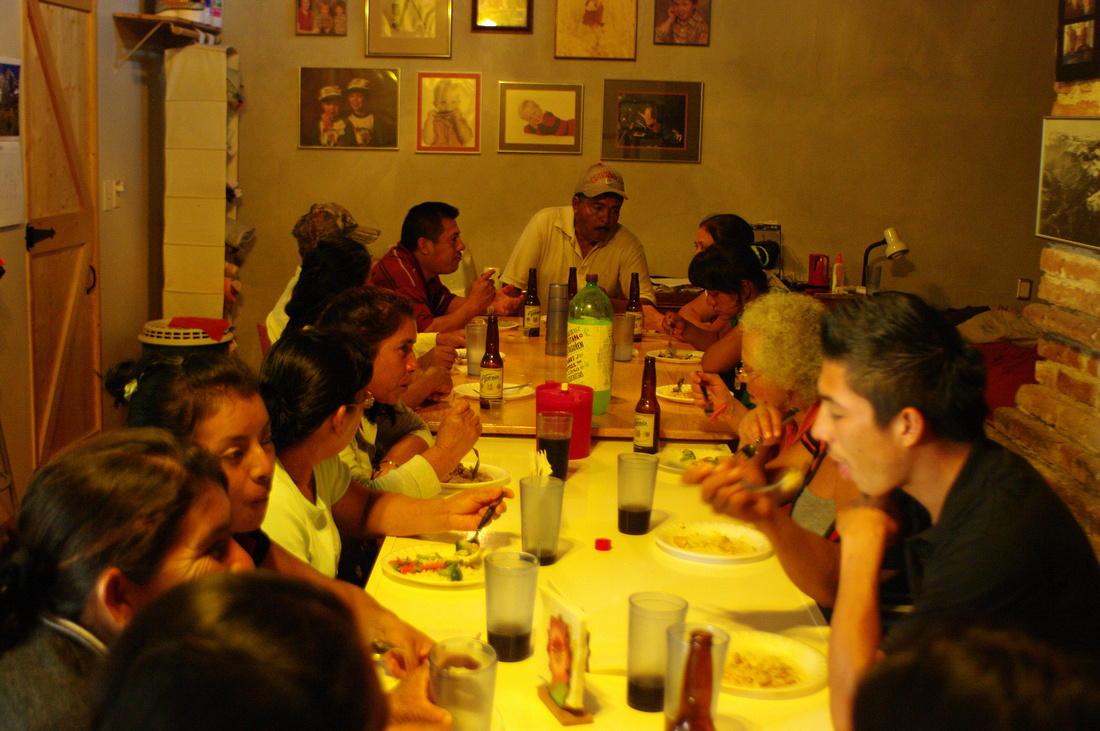

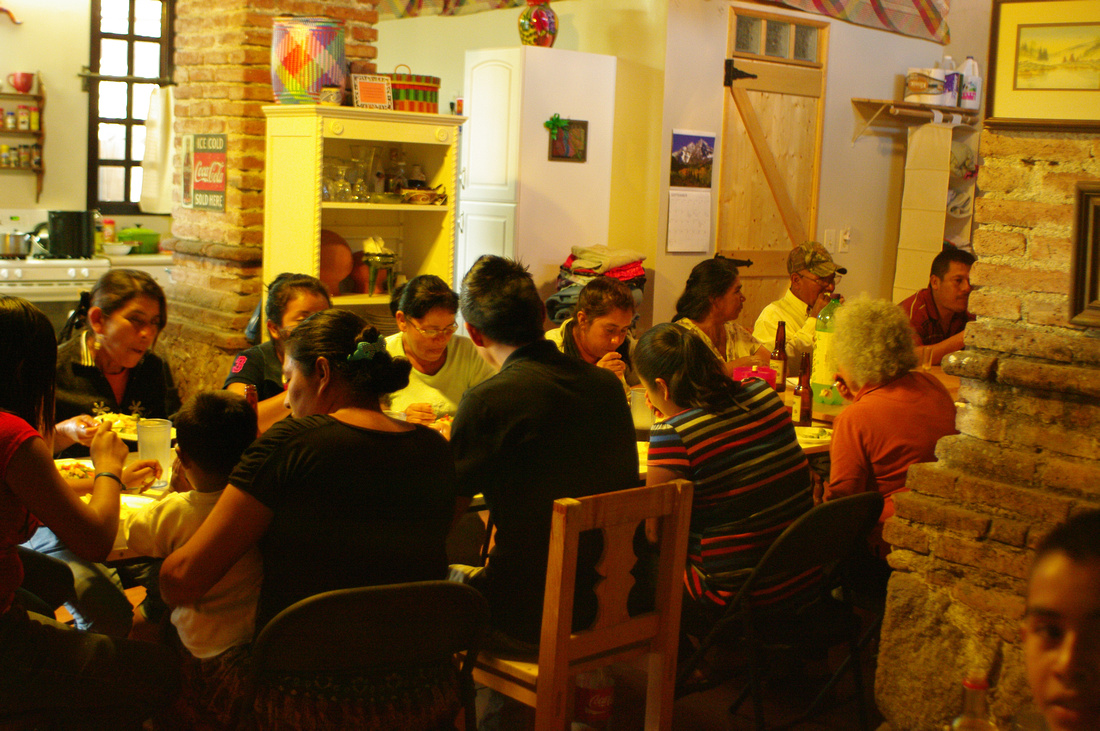

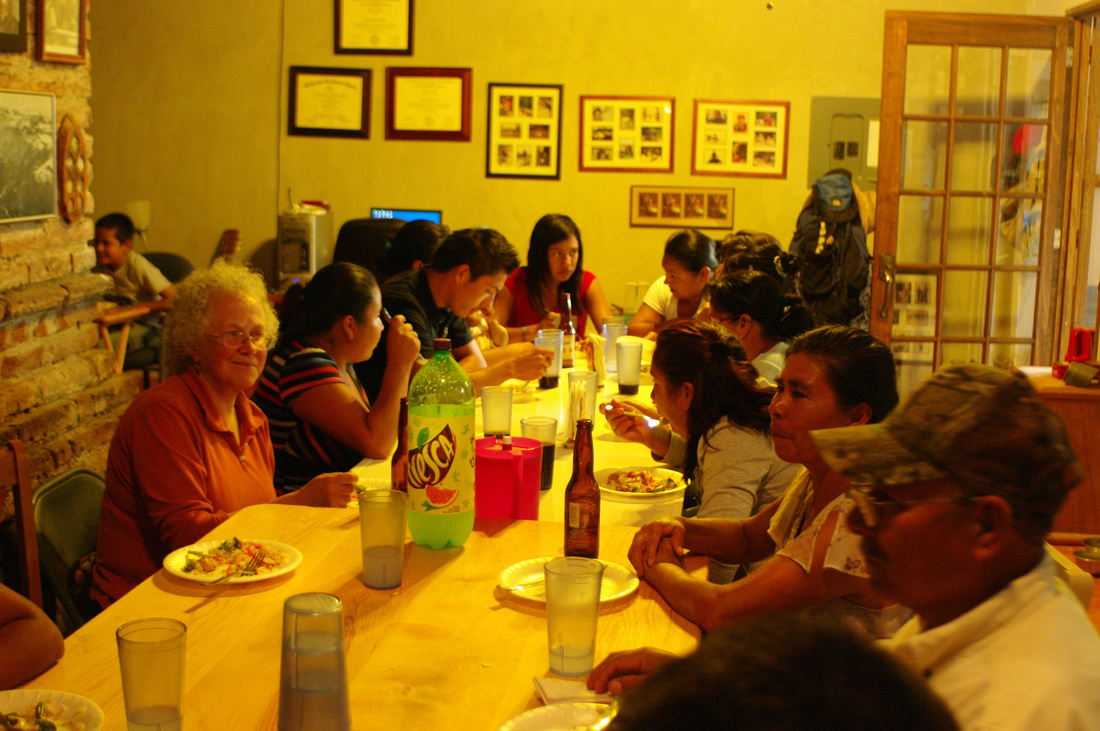

This is the chepil plant. A variety grows wild here.
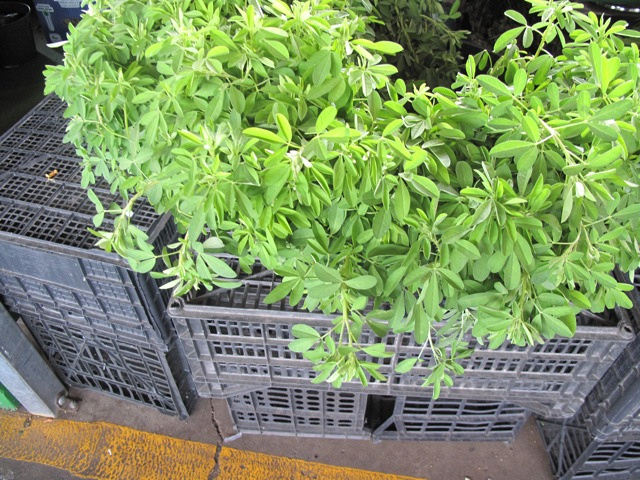

Our final rain was a drencher. It poured! Our well became contaminated from rain water so it had to be pumped dry which took about eight hours. There was some mud at the bottom that was removed a bucket at a time. Cement was poured around the well so next year we will have less of a problem. We did have our water checked in Oaxaca and it came back fine. No bacteria. There is a high presence of alkaline so we still buy water to drink. Cooking, brushing our teeth, washing dishes, and bathing are all done from the tap.
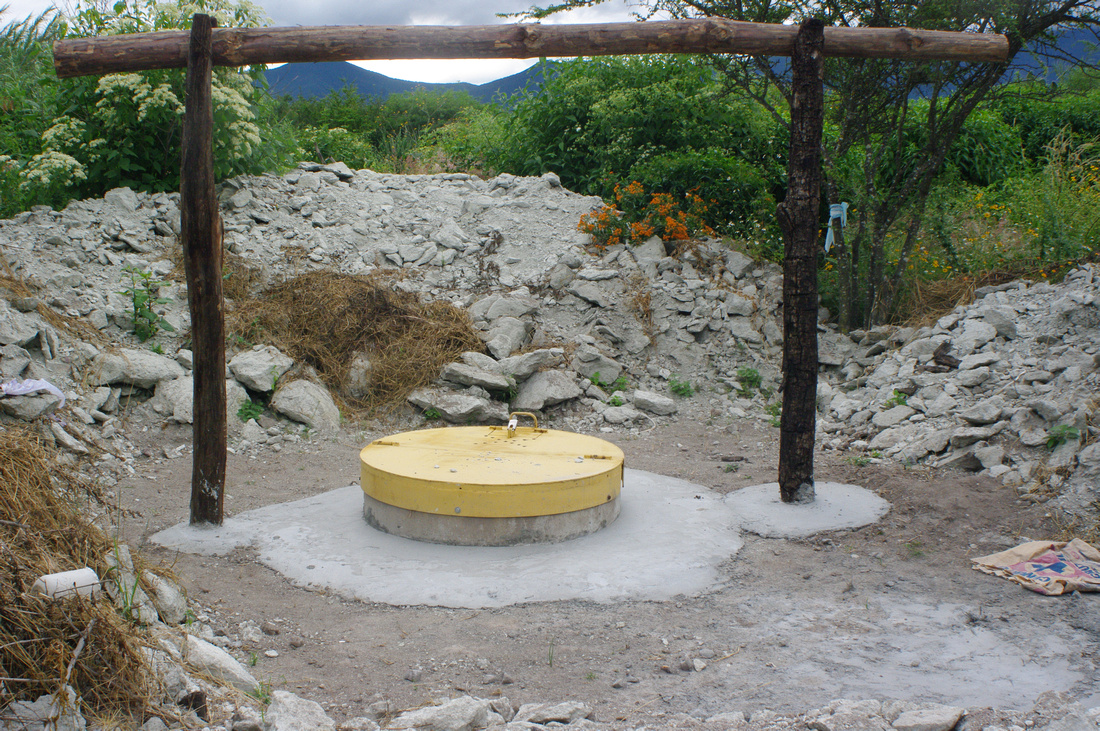

One of the advantages of retirement is the time I have to read and think without a lot of distractions. Because of the number of books we have (over thirty thousand ebooks and growing) I can really jump around. Beth and I both have Kindles and we love them.
I had a crown break last week so we went to a dentist in Matatlan that was referred to us. His name is Dr. Guillermo Serna Bautista. He had to extract the tooth and is going to build a bridge. Total cost, four hundred and twenty three dollars. Incredible! His story is another success story. He crossed into the US as a young man and worked for five years. In America he saved his money, paying for college when he returned. I was proud being next to him and listening to his story. Talk about determination!
Not sure if I mentioned but our burra is pregnant. We believe she is due in March. We are so looking forward to having a little burro jumping and running around. Lily has caused us a little trouble. We usually keep her tied to a twenty foot rope. Every once and a while I let her run keeping an eye on her. Well sometimes I'll walk into the house for a while and she disappears. I finally followed her and found out she's been getting into a field and corn and squash. When I caught up to her she was enjoying a squash. I could see where she'd eaten some corn off the stalks. The next time the owner comes by I'll have to square up. We keep a rope around her neck but have recently found out it's not a good idea. With the rope around her neck it's impossible to stop her if she decides she wants some corn. I tried a couple of times and bit the dirt on both occasions. Sunday we bought a halter to keep control of her. She was very quiet when we first got her but she has become very verbal lately when she wants something letting us know with the typical donkey hee-haw.
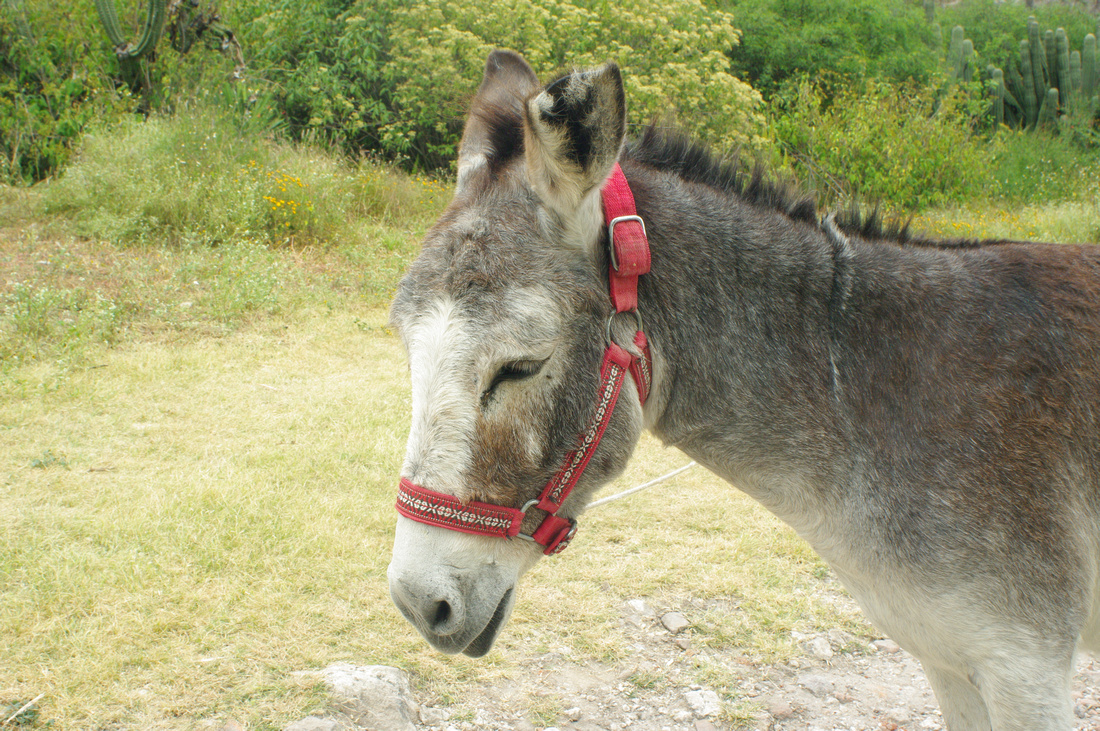

Saturday before last we had fifteen people over for a brunch of tasajo (thinly sliced beef), tortillas, pico de gallo, and guacamole. There was quite a bit of meat left over so we made a day of it eating tacos for dinner. We still had meat left over so we had people over again the next Friday to finish it. Simple conversations are becoming easier and easier for Beth and I. We have a couple of friends that speak extremely fast. They keep us on our toes.
A couple of weeks ago we went to a Calenda in Tlacolula honoring "el Vergen del Rosario". As you can see there were quite a few people there. Some of those globes weigh one hundred and fifty pounds. Men and boys dance with them attached to a harness until they get tired then pass it on. Many young adults and children dressed in traditional costumes. I was a little surprised when beer and mezcal were passed around. The festive mood was captivating. I love the way Mexican's celebrate!
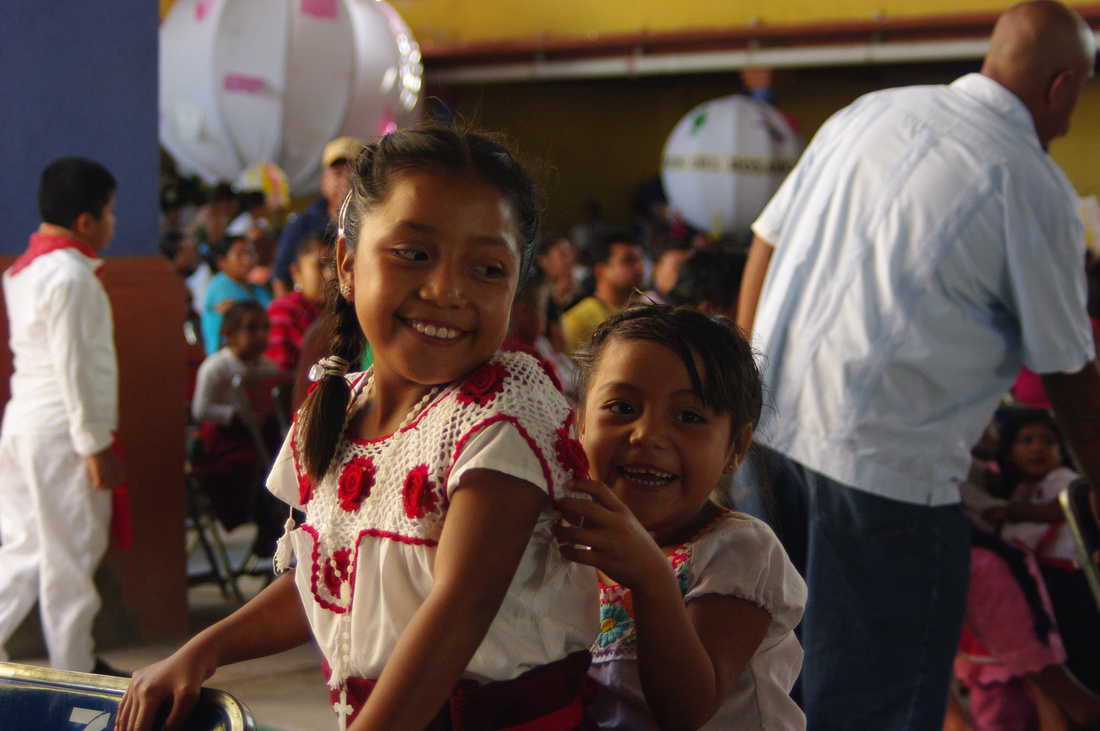

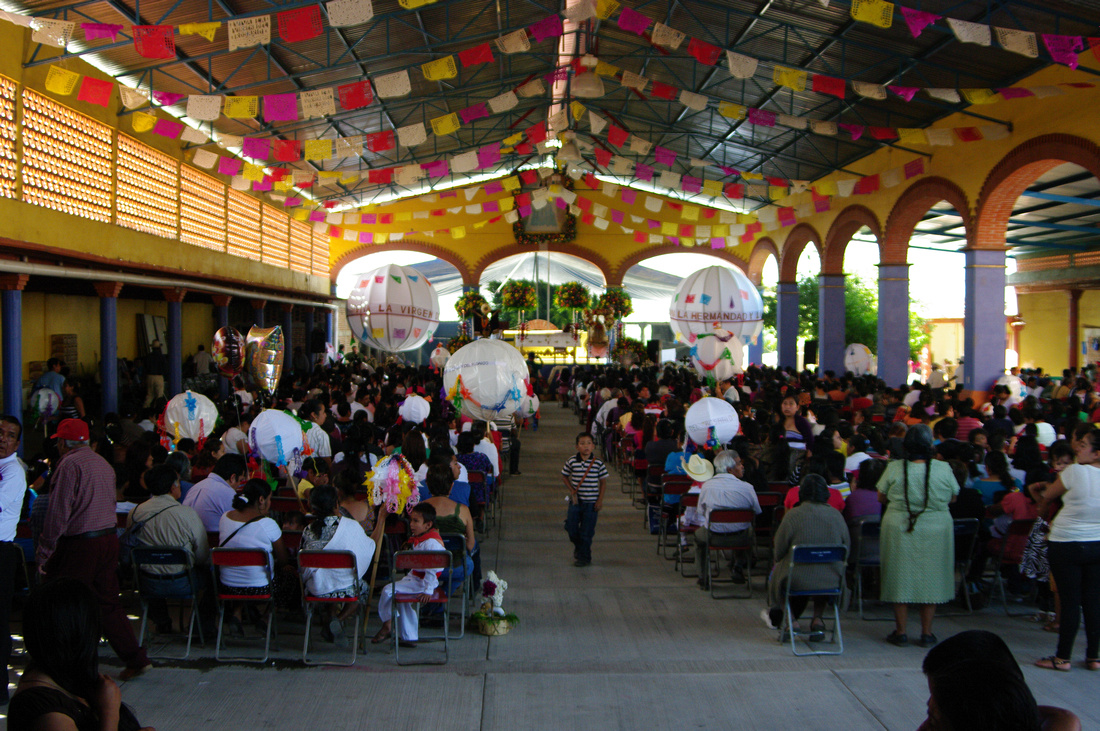

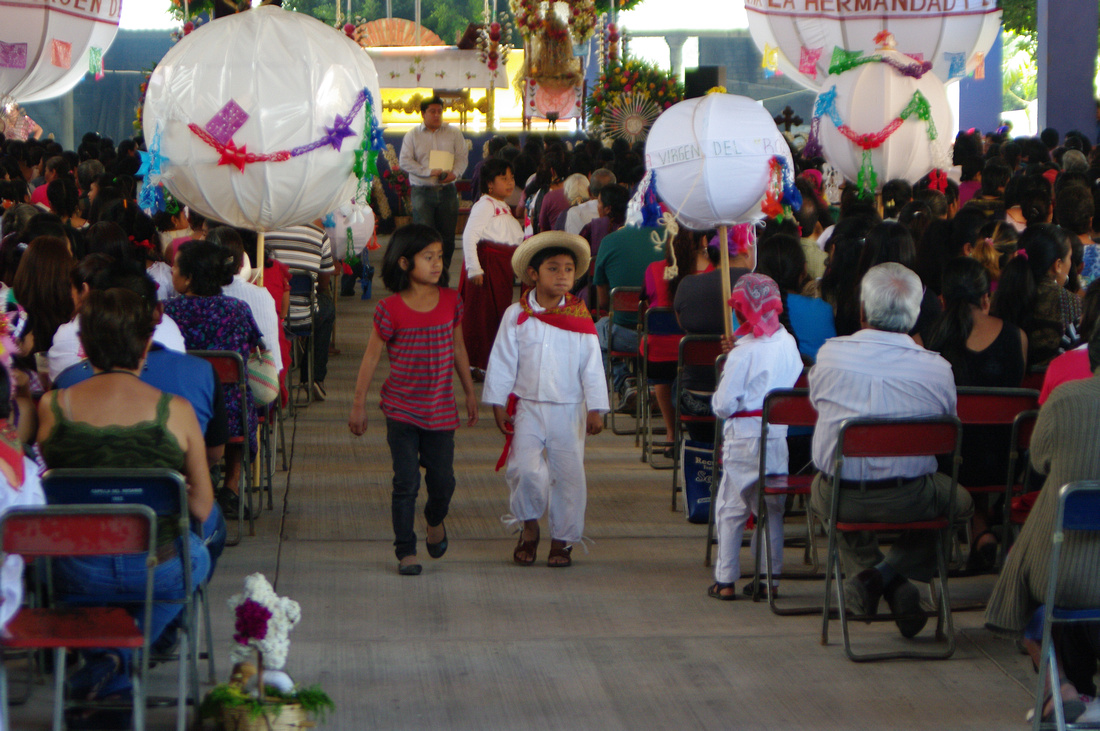

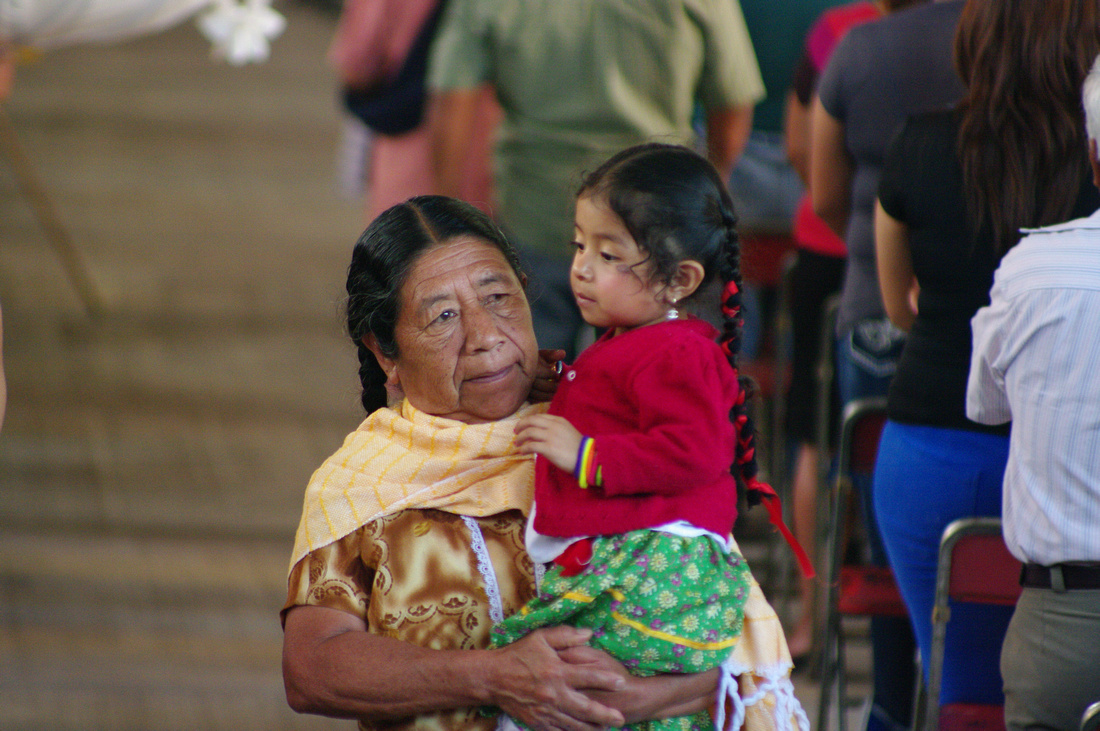

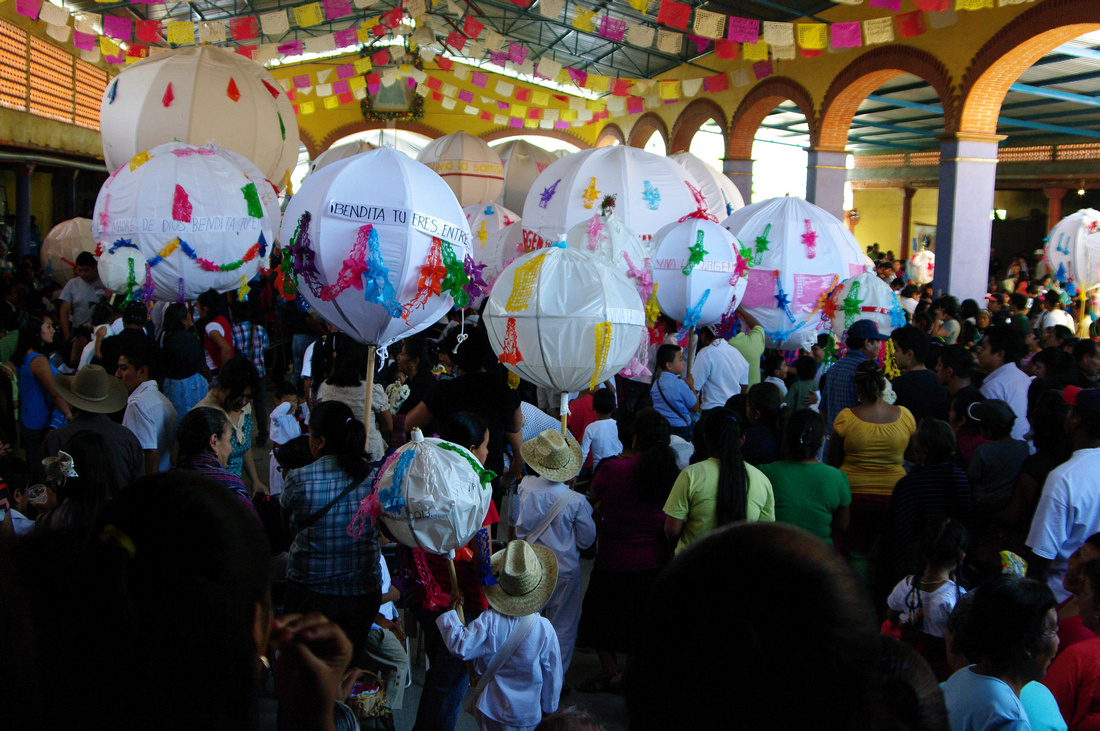

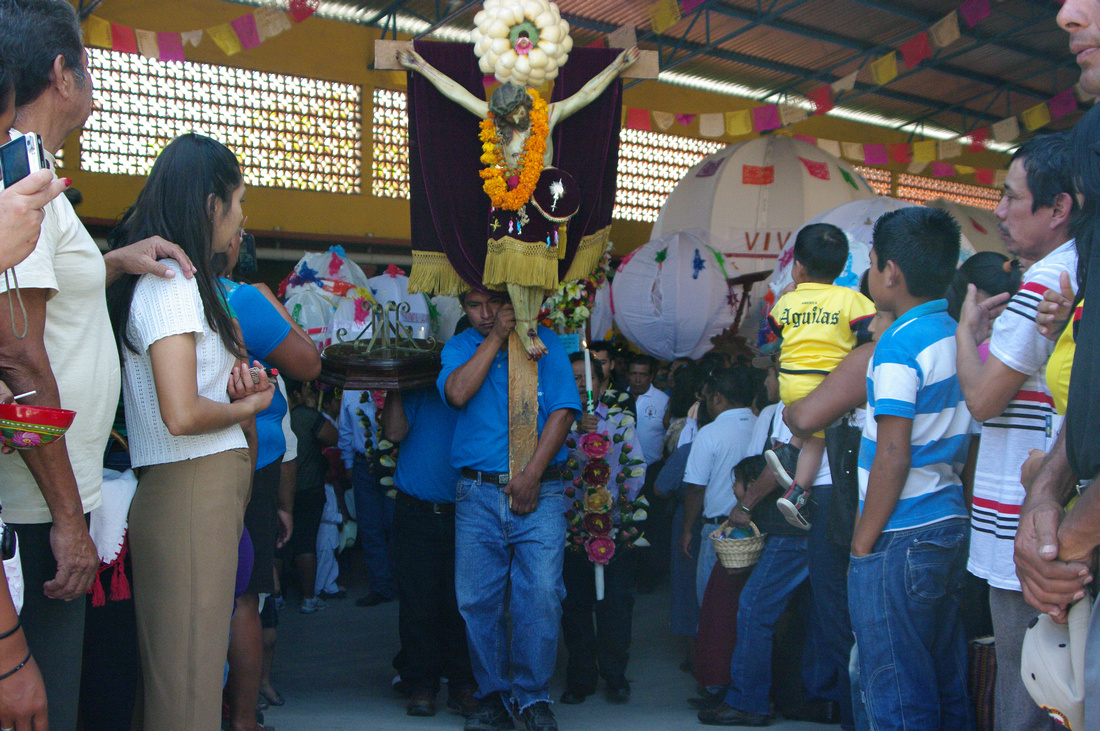

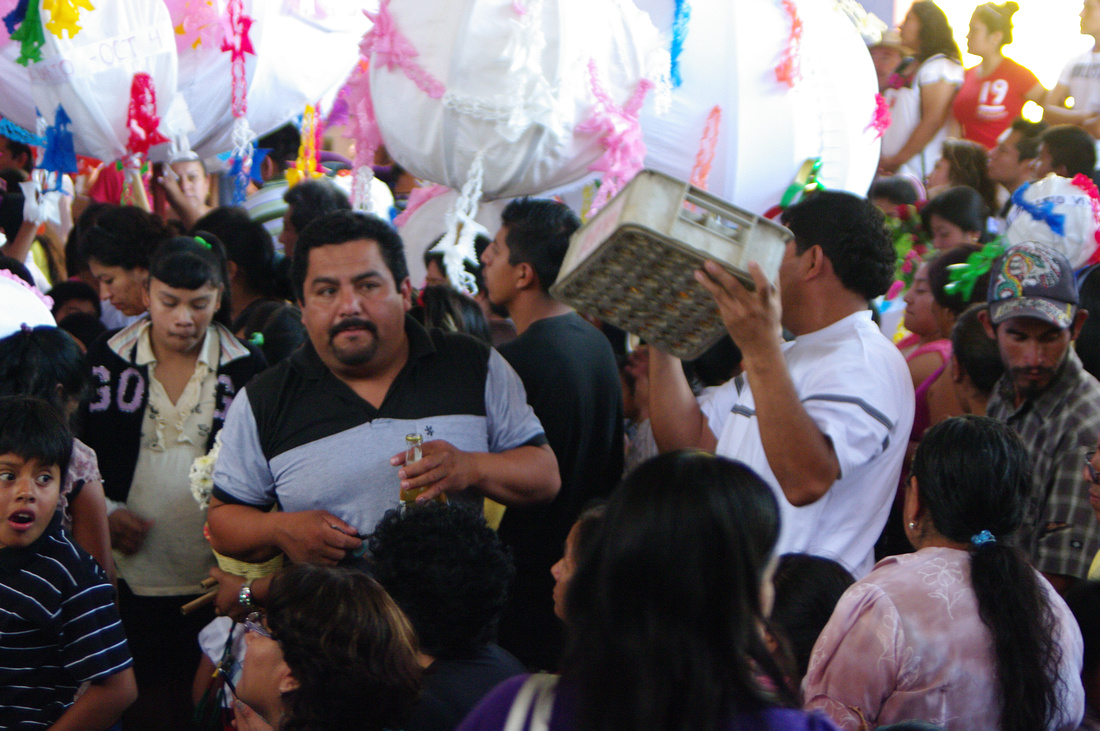

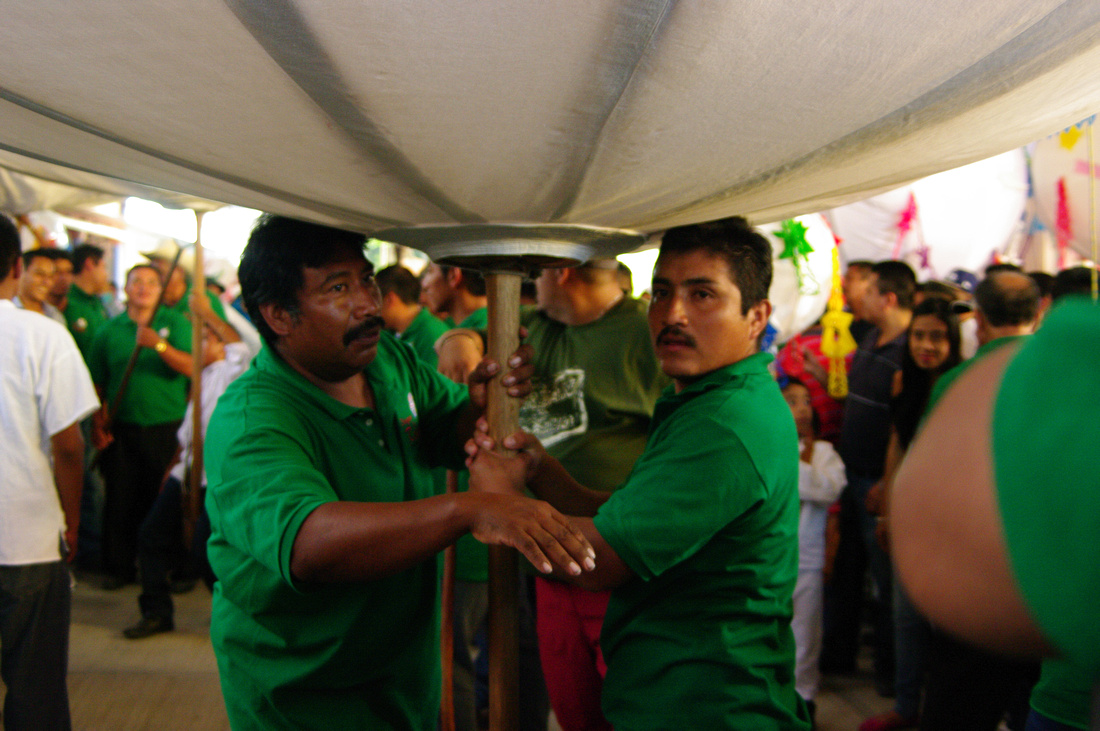

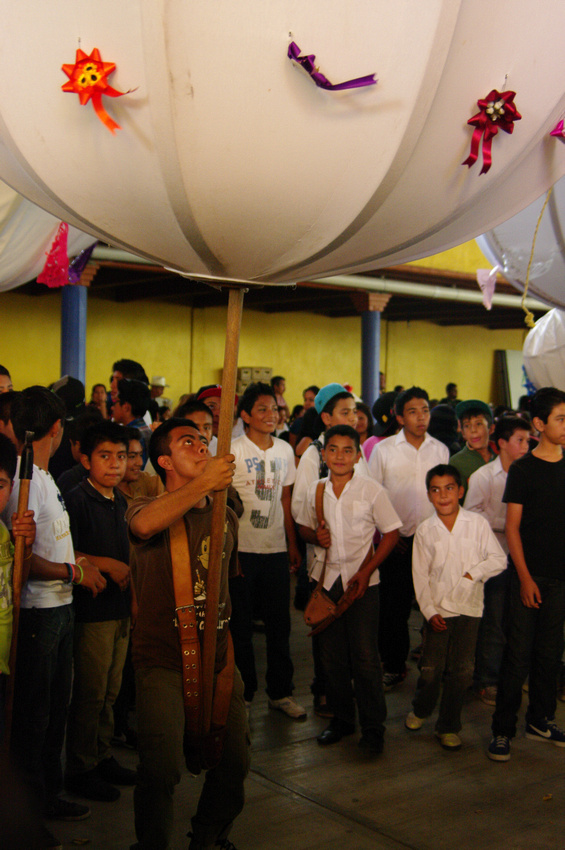

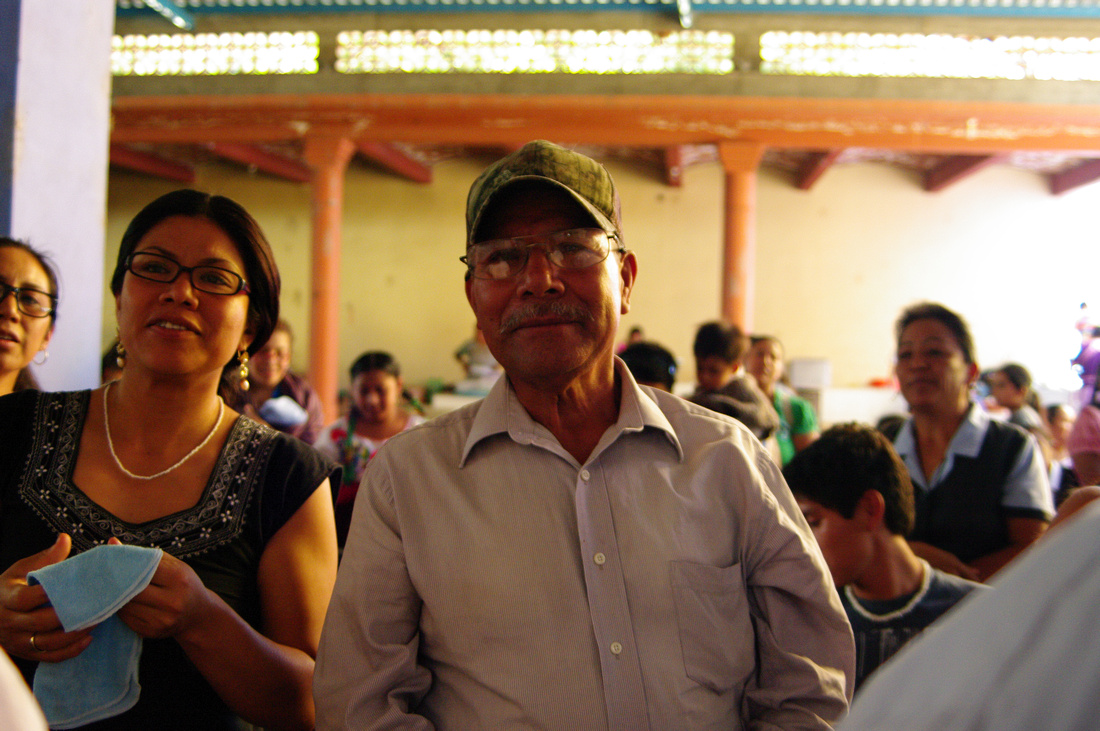

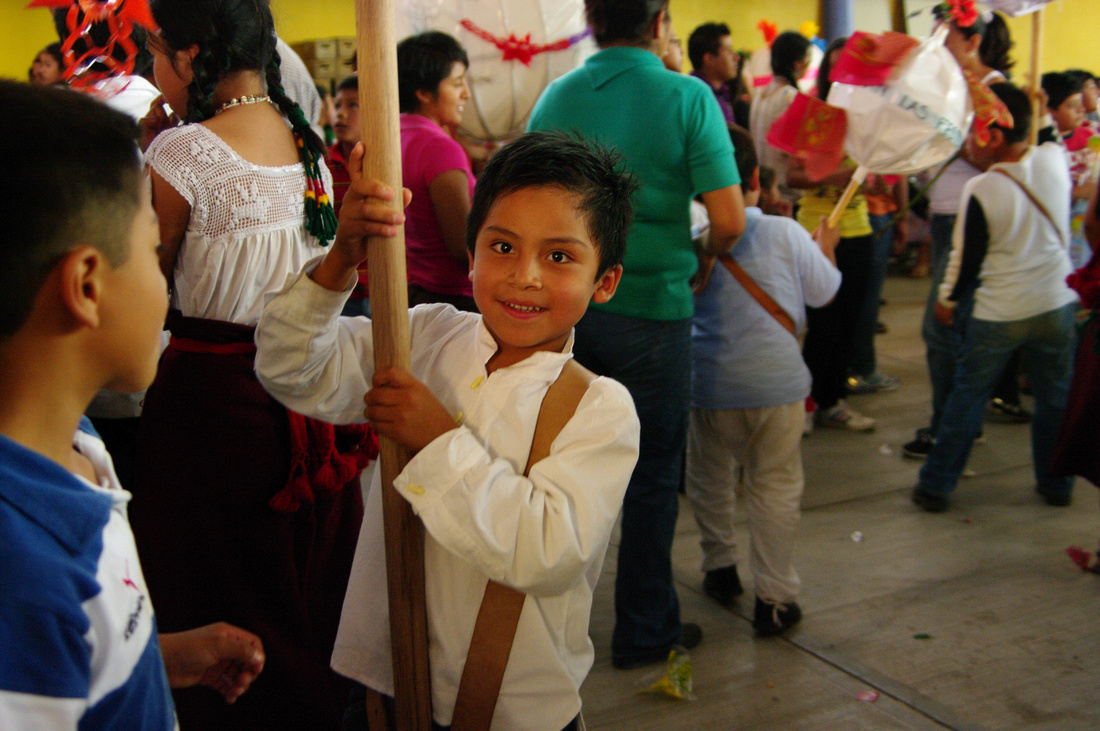

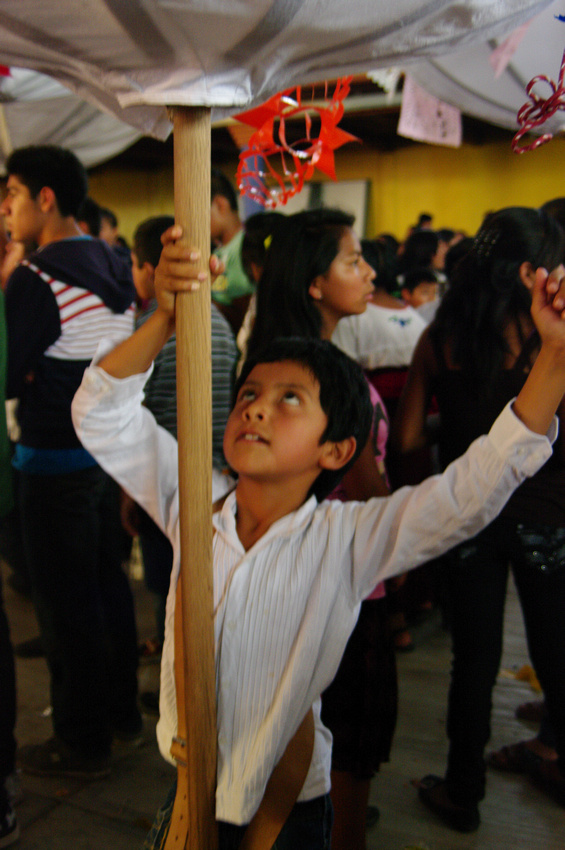

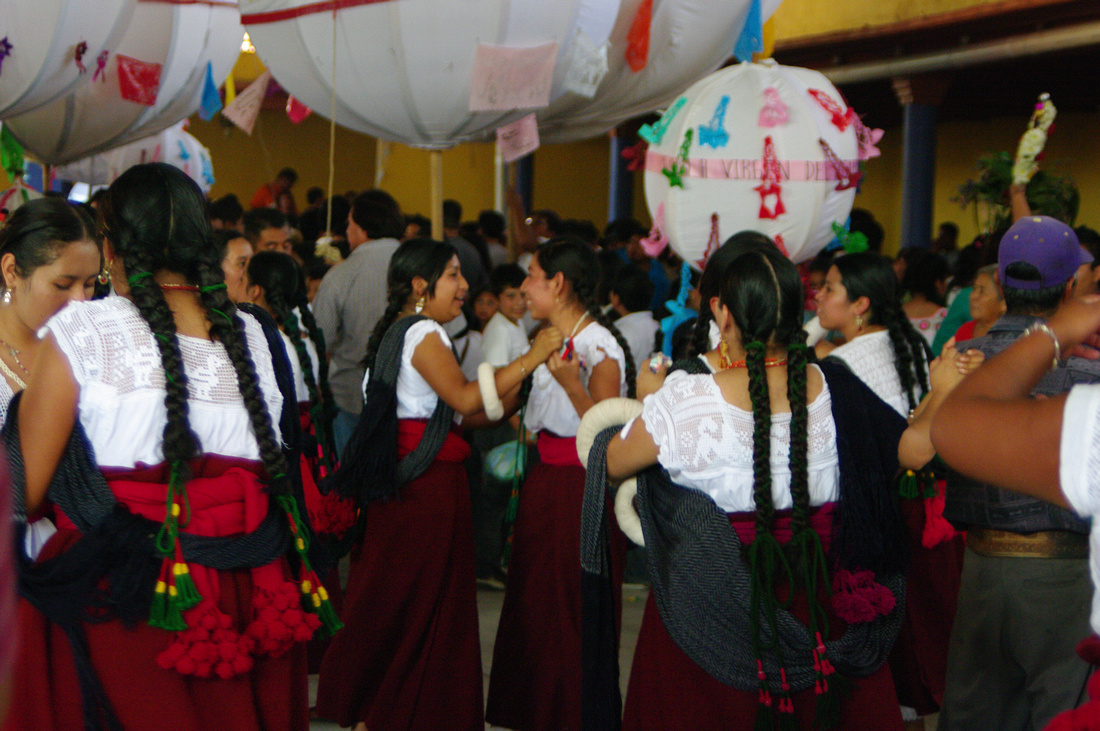

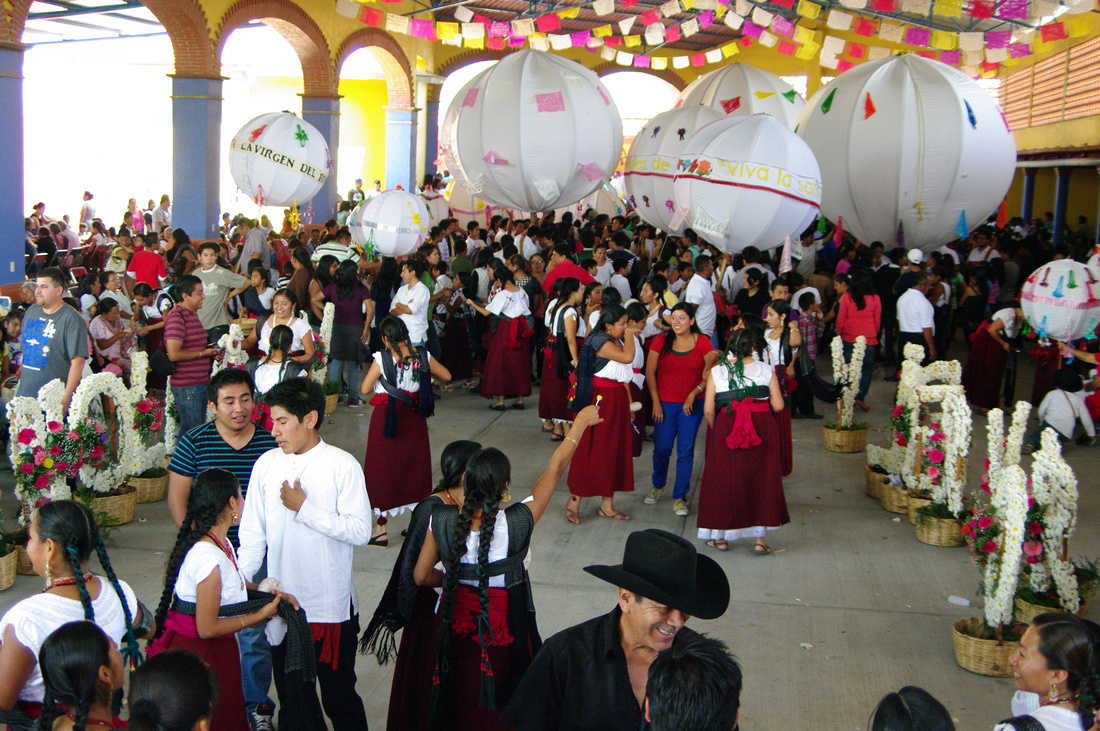

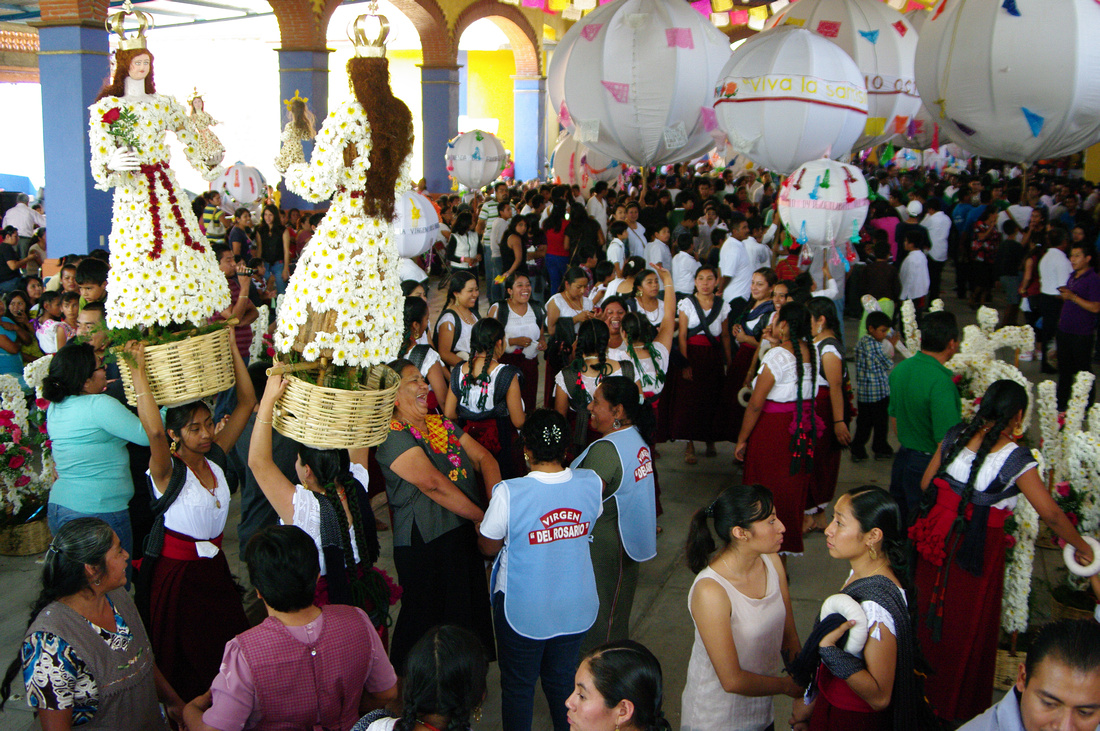

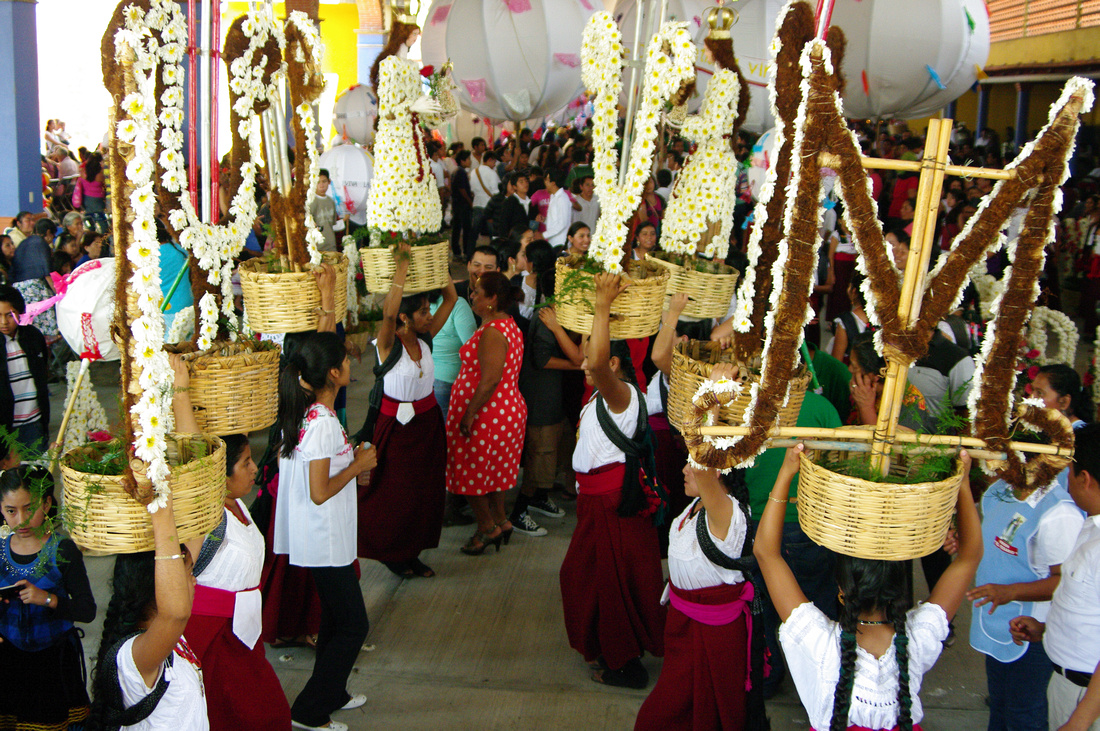

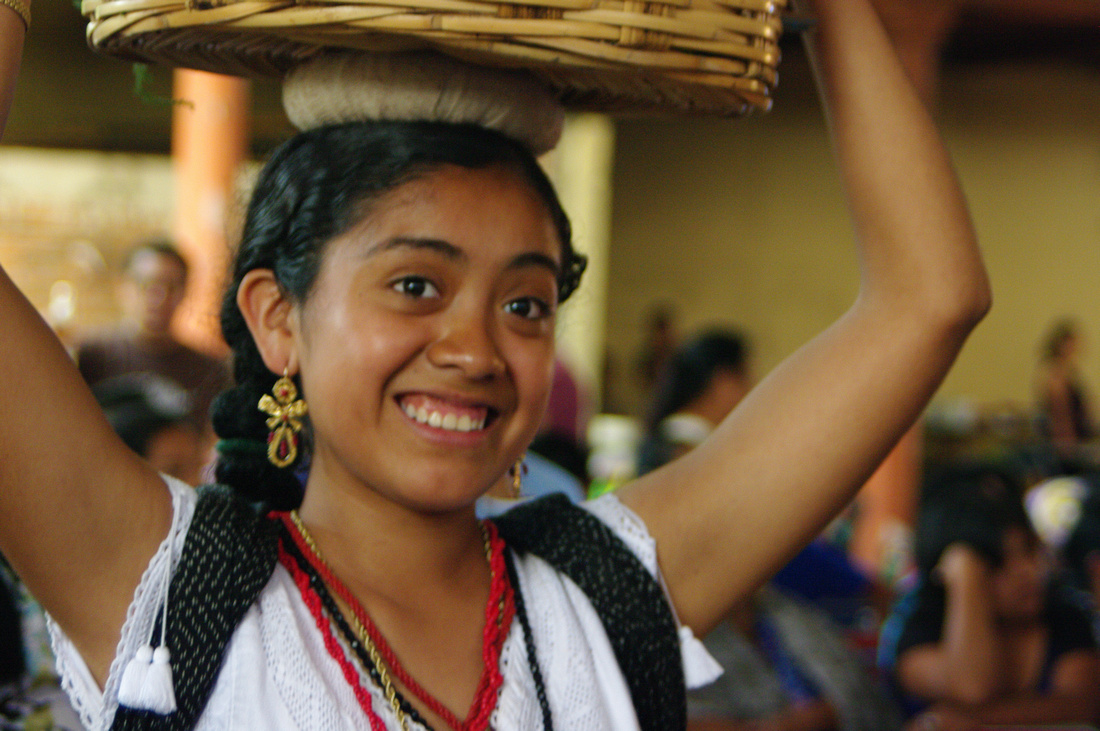

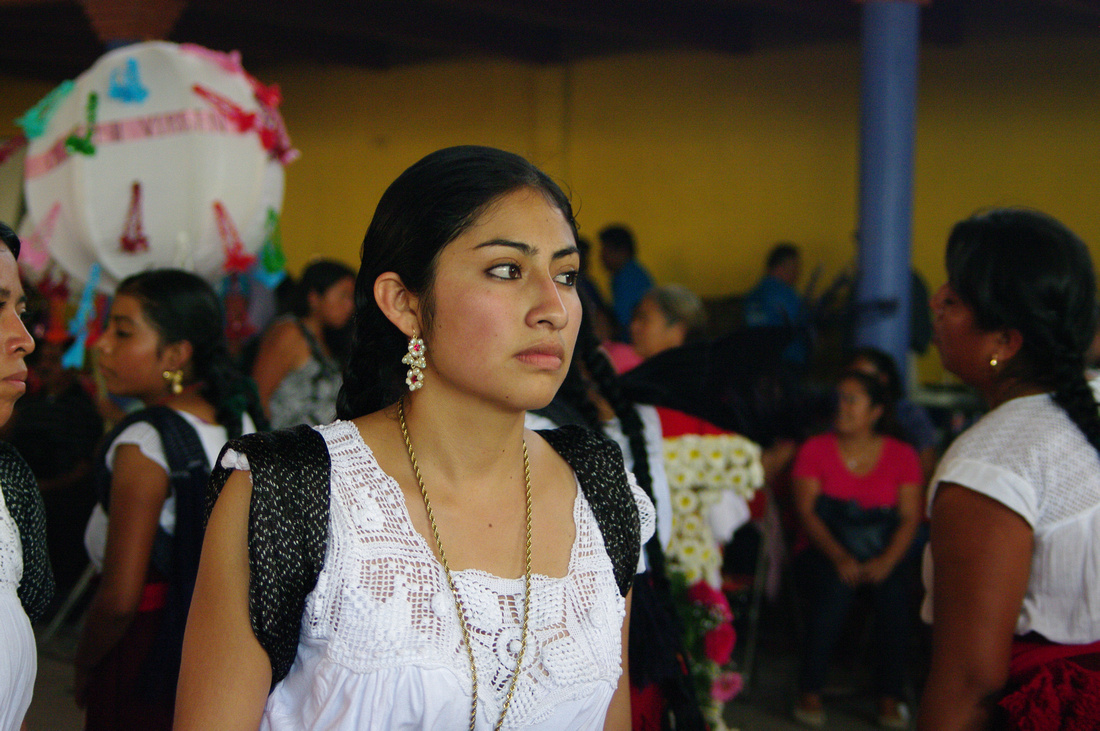

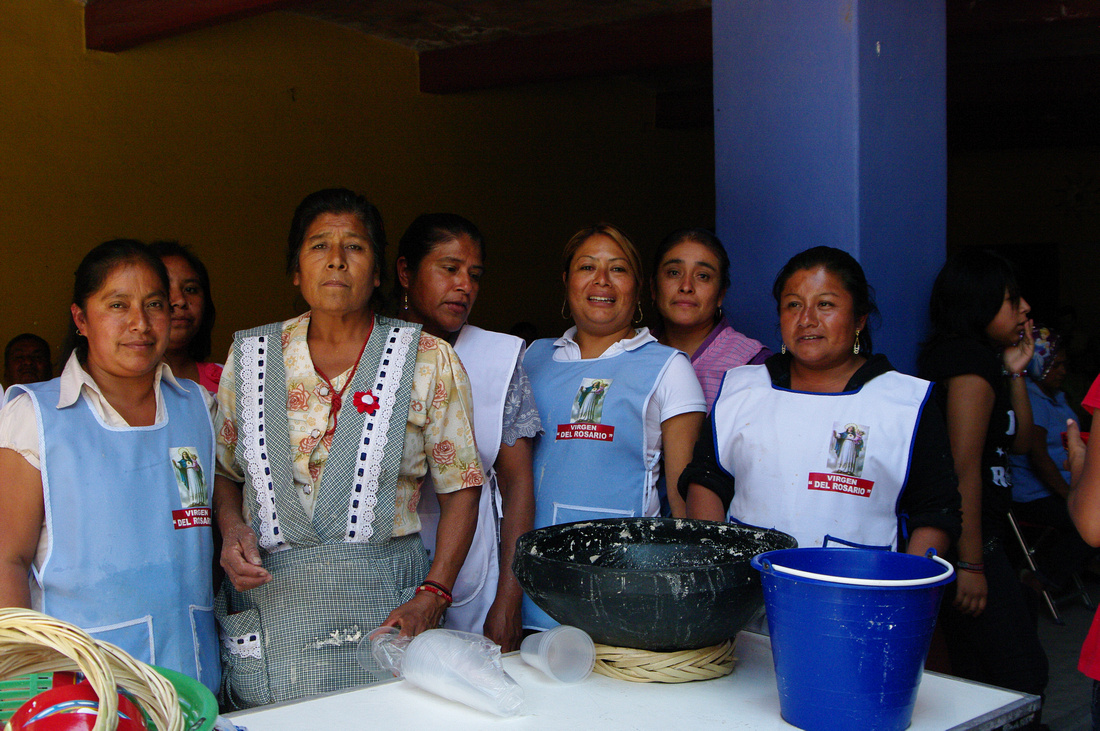

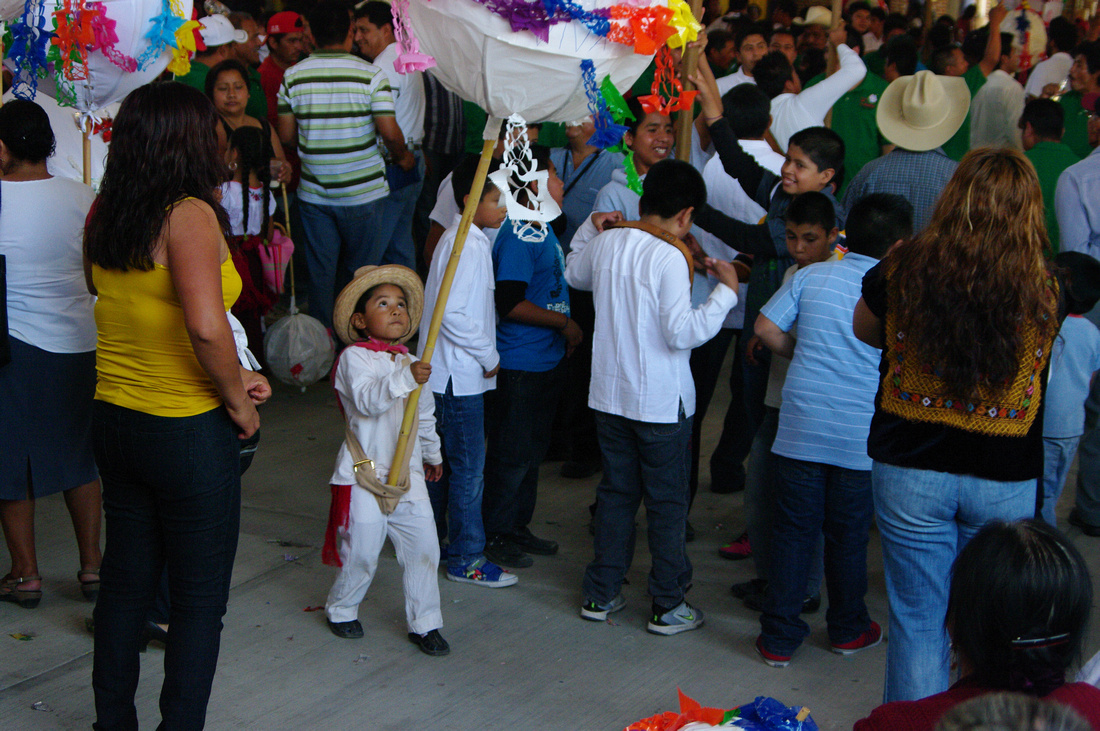

I saw an article that I believe was a follow up to the question of "buying and fixing up haciendas here in Mexico". Someone used our house as an example. http://sparksmex.blogspot.mx/2013/06/hacienda-in-oaxaca.html?utm_source=feedburner&utm_medium=feed&utm_campaign=Feed:+SparksMexico+(Sparks+Mexico) The structure that Beth is standing is not our home though. It's the hacienda in Xaaga, the sister hacienda to ours.
I finished the web page (in English) that gives a little info about the very old organ in the church in Tlacolula. There is a place to make donations through Pay Pal if you'd like. There is still work to do. The page is located at: http://edeese.wix.com/organodetlacolula I'm not a web designer so any suggestions on how to improve the page are welcome. A young friend of ours is currently translating the page into Spanish.
A few years ago we met a man from Washington State who married a woman from Mitla. He owns a storage facility in Eastern Washington. They come down every year for five or six months. About three weeks ago Jeff and Elia came down for their yearly visit. They showed up the other day on a motorcycle and since we've met with them several times. Jeff is one of those guys who knows a lot about a lot of stuff. He reminds me of my brother in law Sam. Septic tanks are made a little different here. Most people that have running water use it for their toilets only, so little water enters the septic tank. Some are even without any kind of drain. Tanks that drain do so through the bottom. No cement is poured on the bottom so liquids seep out through the bottom. That's how or septic system was built. But...... because all the water we use drains into the septic tank we are beginning to see it fill up. That little seepage through the bottom can't keep up. I mentioned it to Jeff the other day and he explained how to build a drain field. A couple of days later he showed up with complete instructions on how to build a drain field complete with diagrams. I could see that he'd spent considerable time on the instructions. We are very thankful for his work. I had been thinking about adding a drain field earlier but I would have done it wrong. Thanks Jeff!!!!!!!!!!!!
Lastly I've been thinking about the idea of getting ahead here in the Valley. In an earlier post I listed some prices of goods. Imagine someone making a living when their income is twenty five dollars a day or less in most cases. The idea of getting ahead is simply unattainable in many cases. I believe the idea is foreign to many. When something as simple as adding a power receptacle is viewed as a major improvement it shows the plight of a lot people here. An illness or need for dental work can set a family back for years. A year without rain also has catastrophic results. I knew before we moved here that we were going to be exposed to the sufferings of local people. It's proven to be more difficult and widespread than we'd imagined. I've said it before. The United States has been a godsend to the people here. The income derived from being in the States changes lives significantly. I read an article a while back that stated many Mexicans are returning home from the States because of the slump in the US economy and the surge in the Mexican economy. I have no idea what's going on in the rest of Mexico but here in the valley that's simply not true. Many families that we know with relatives in the States tell us that their family members have no intentions of returning. Some are counseled by family here not to return. It's a tough choice. Remain in the US and reap the financial benefits away from family and friends or return to be close to loved ones and become engulfed in the brutal economy here. Many people here have never seen grand kids. The young children that left to work in the States are now grown up. Everyone loves to talk about the successes of their children in the States. They are proud and sad at the same time. They pay a horrendous price for getting ahead.
